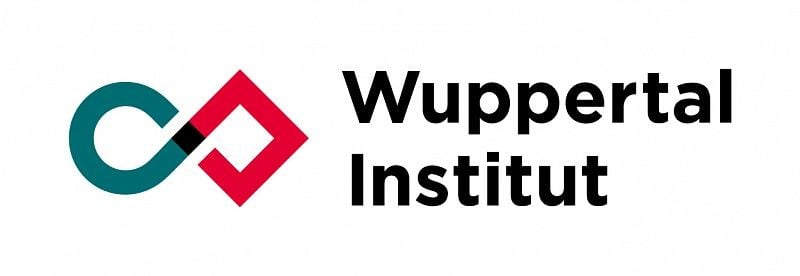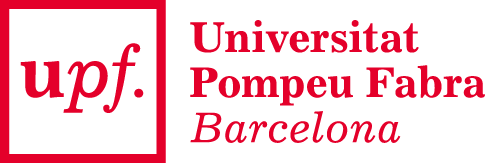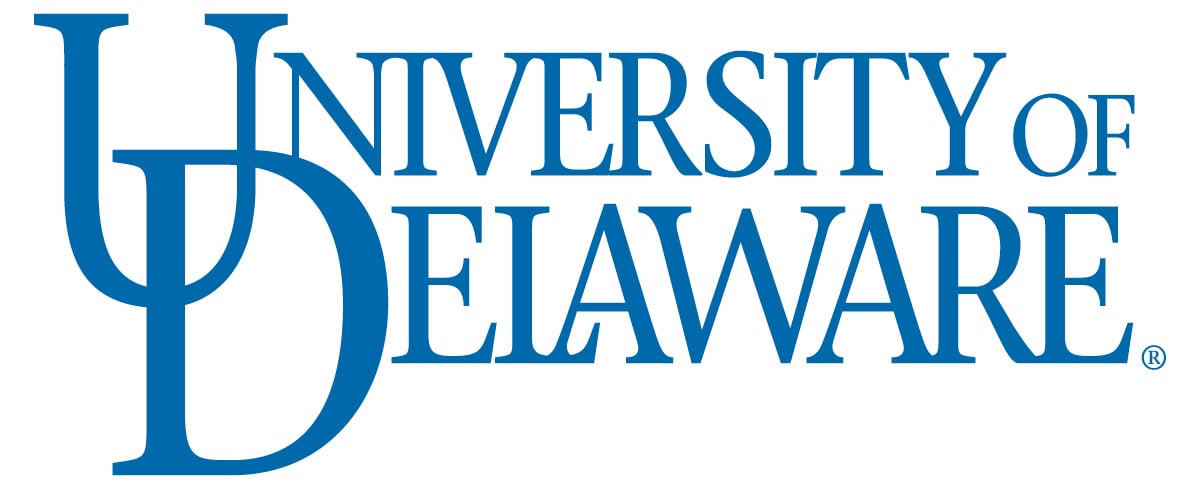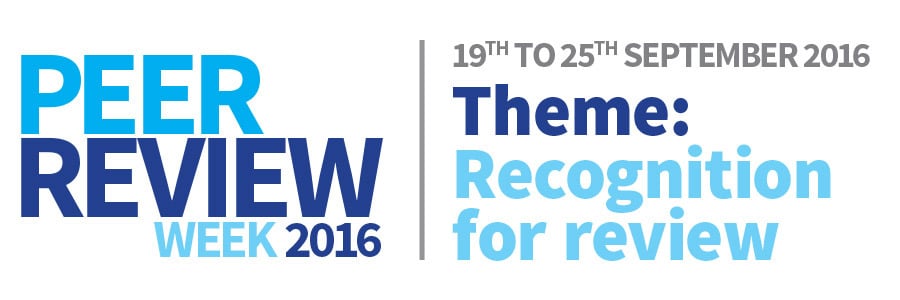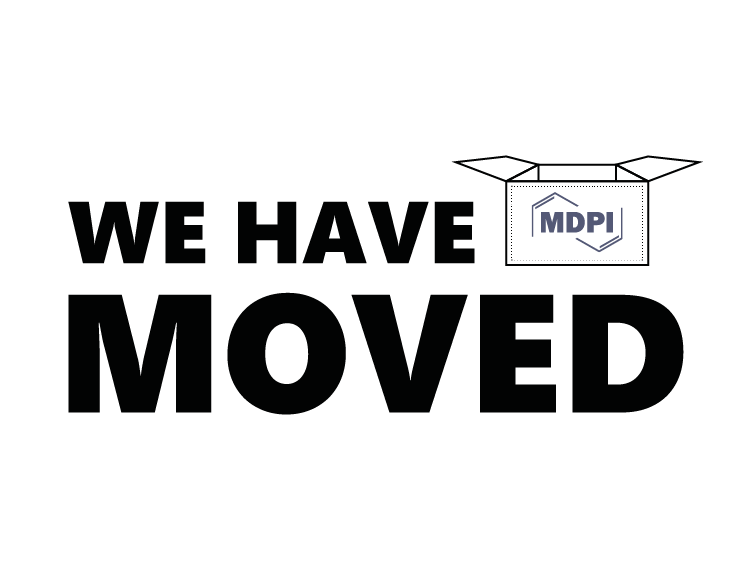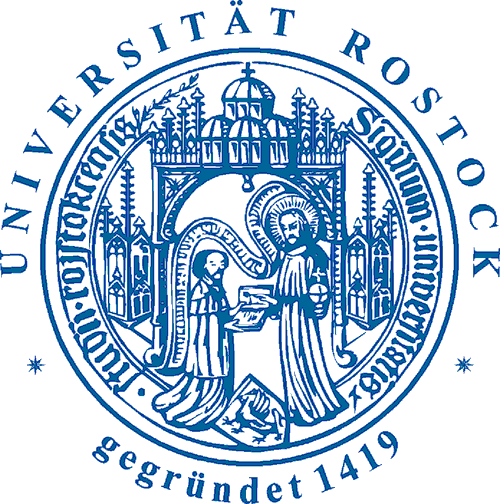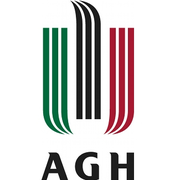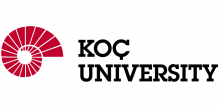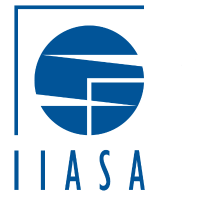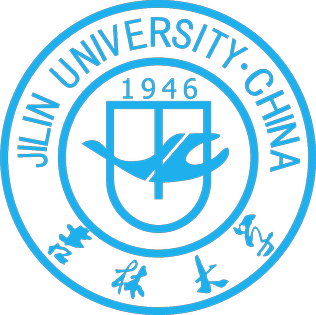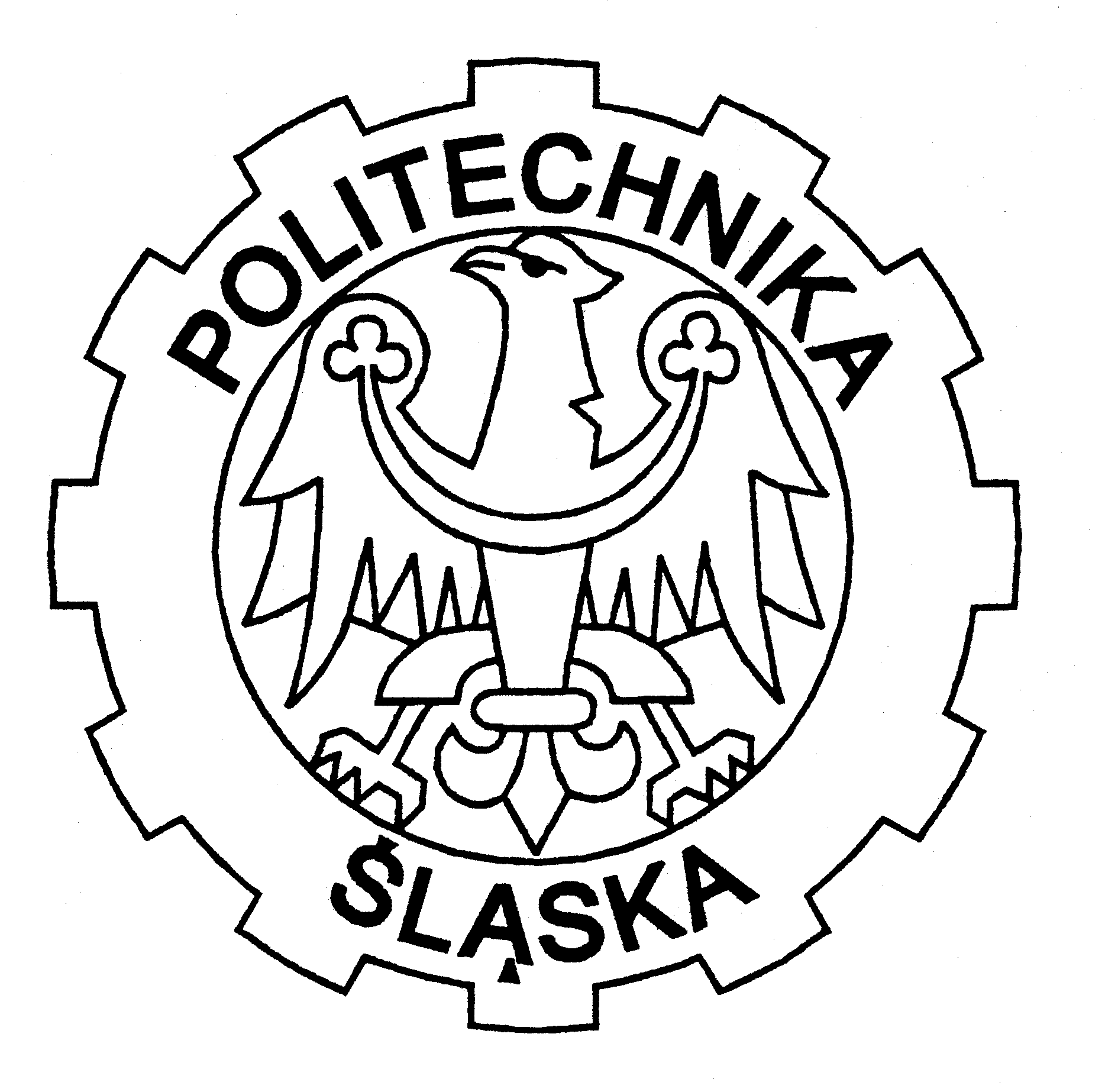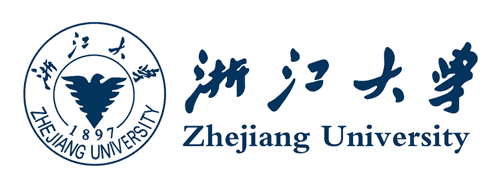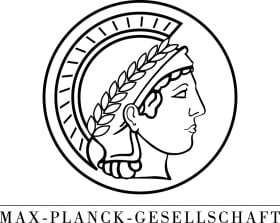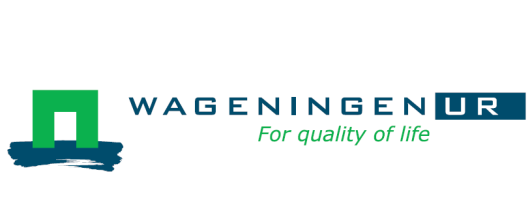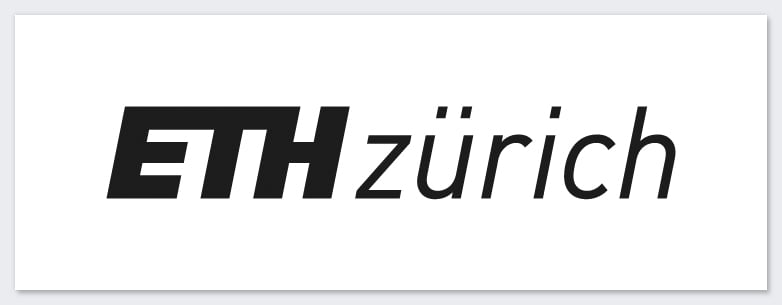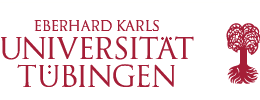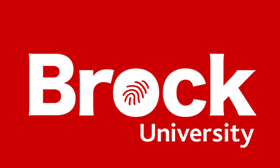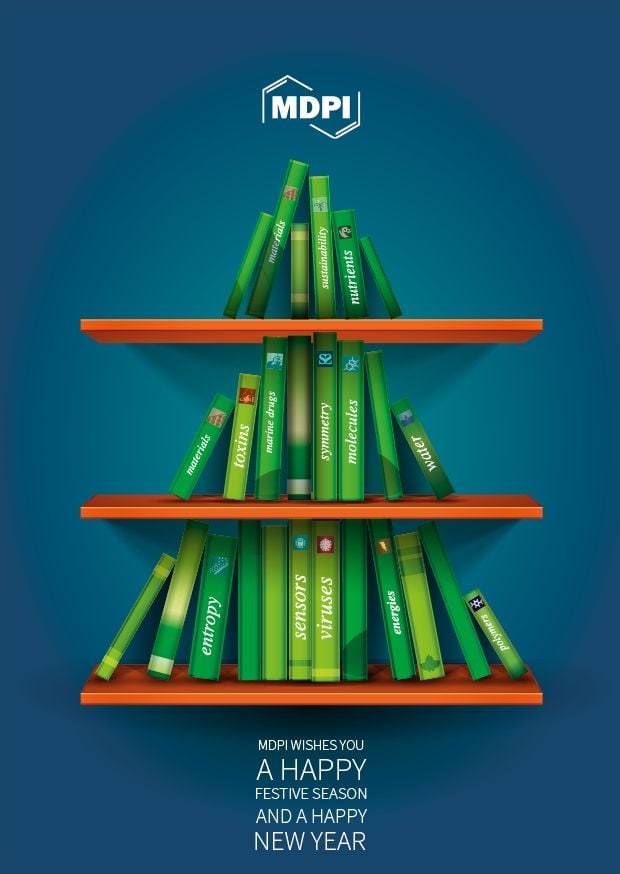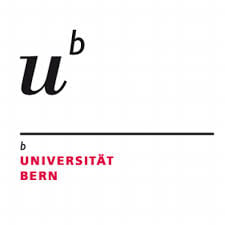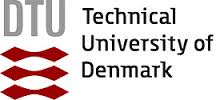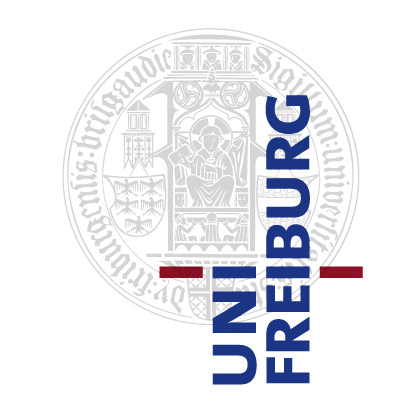
Journal Menu
► ▼ Journal Menu-
- Animals Home
- Aims & Scope
- Editorial Board
- Reviewer Board
- Topical Advisory Panel
- Instructions for Authors
- Special Issues
- Topics
- Sections & Collections
- Article Processing Charge
- Indexing & Archiving
- Editor’s Choice Articles
- Most Cited & Viewed
- Journal Statistics
- Journal History
- Journal Awards
- Society Collaborations
- Conferences
- Editorial Office
Journal Browser
► ▼ Journal BrowserNeed Help?
Announcements
12 November 2024
MDPI Thailand Author Training Session at Kasetsart University Held on 5 November 2024
MDPI successfully held an author training session at Kasetsart University, Thailand's leading agricultural institution. This event took place against the backdrop of Kasetsart University's participation in MDPI’s Institutional Open Access Program (IOAP). The session, which was conducted on 5 November 2024, aimed to equip students with the essential knowledge and skills for maneuvering through the paper publication process, enhancing their English writing proficiency, understanding data visualization in academic papers, and exploring the applications of artificial intelligence in the publishing field.
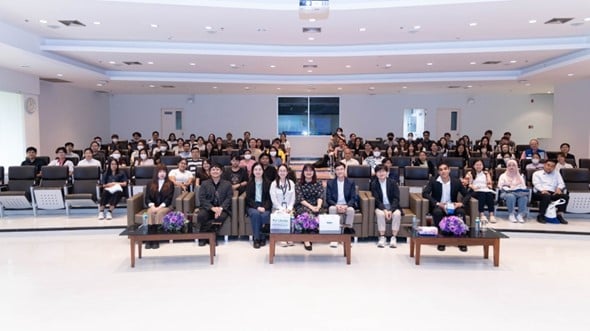
Ms. Watinee Khemakarothai, the Deputy Director of Kasetsart University Library, shared her thoughts on the valuable collaboration between Kasetsart University (KU) and MDPI, emphasizing the significance of joint efforts that support and empower the academic community. She expressed her gratitude to MDPI Thailand for organizing this event, which was customized to meet the requirements of the university’s authors.
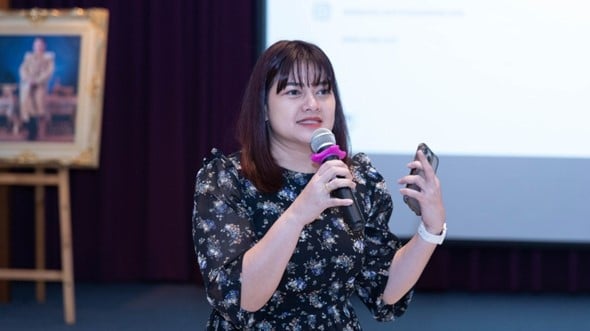
In the first presentation, Dr. Janenipa Saupsor, the Deputy Office Manager of MDPI Thailand, provided insights into MDPI’s development from its establishment in 1996 to its current status as a prominent open access academic publisher. She emphasized MDPI’s dedication to making scientific research freely accessible through its extensive collection of over 400 journals and its global presence. Dr. Saupsor also introduced a selection of key journals, such as Polymers, Sustainability, Foods, Animals and Molecules, which serve as valuable options for researchers seeking the ideal journal for their work. Additionally, she highlighted the successful collaboration between MDPI and Kasetsart University on the Institutional Open Access Program (IOAP), reinforcing support for open access publishing.
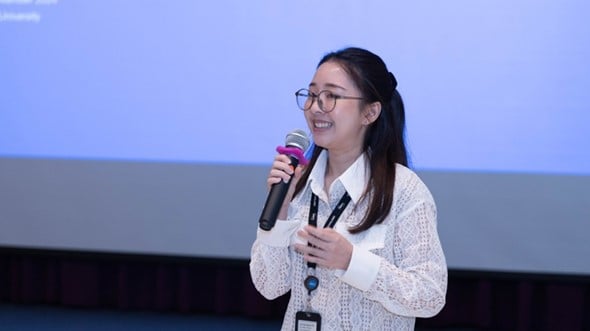
The second session, presented by Ms. Ploy Assavajamroon, MDPI’s regional journal relations specialist in Asia-Pacific, was titled “How to Write Scientific Papers in English”. The session began with the literature search and introduction to the analysis program to investigate the research topic to ensure novelty. Next, she illustrated the front matter, main text, and back matter, the three fundamental manuscript structures, before sharing useful examples to help the audience better understand how to write each section. Last but not least, she introduced the English Language Editing and Figure Editing services provided by MDPI Author Services, all of which support authors in manuscript preparation.

The third session, “Data Visualization for Scientific Papers”, was shared by Mr. Suvicha Sasivimolkul, MDPI’s Training Group Leader for Asian offices. He initiated the session by pointing out why data are so crucial due to the increasing amounts of data every minute. Data visualization is an approach through which we can maintain our perceptual and cognitive abilities to understand trends and patterns of the data by presenting data graphically in figures, graphs, or tables. He then explained and emphasized MDPI Figure and Table formatting, the points that the author should pay more attention to and the points that the author should avoid.

The author training program concluded with the topic “Artificial Intelligence (AI) in Scientific Publishing”, presented by Dr. Kamolchanok Deesrisak, Scientific Advisor of MDPI journal Healthcare. After providing an overview of AI technology in daily life, its capabilities and impacts on scientific publishing were elaborated, with a focus on the current advancements and challenges. In line with the Committee on Publication Ethics (COPE) position statement, the guidelines on AI, authorship, and the peer-review process were thoroughly explained. Before ending the session, the AI tools developed by MDPI's AI team were introduced. These will assist both internal and external users in improving processes and services.
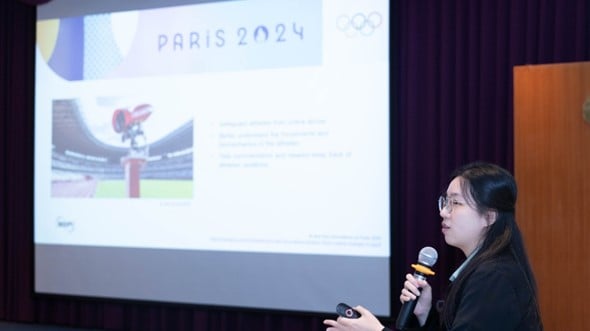
After each presentation, students, faculty members, and MDPI speakers engaged in a vigorous exchange of ideas. Even after the training, many attendees remained and continued to communicate with us, praising the event for its well-structured curriculum and the opportunity to network with like-minded professionals.
In conclusion, the author training session at Kasetsart University marked a crucial step in promoting academic publishing and research dissemination for MDPI. Meanwhile, it emphasized the importance of continuous learning and adaptation in the constantly evolving landscape of higher education and the publishing industry. This initiative represented a reinforcement.
Please do not hesitate to start a conversation with us at [email protected] if you would like to hold an author training session with MDPI in Thailand.
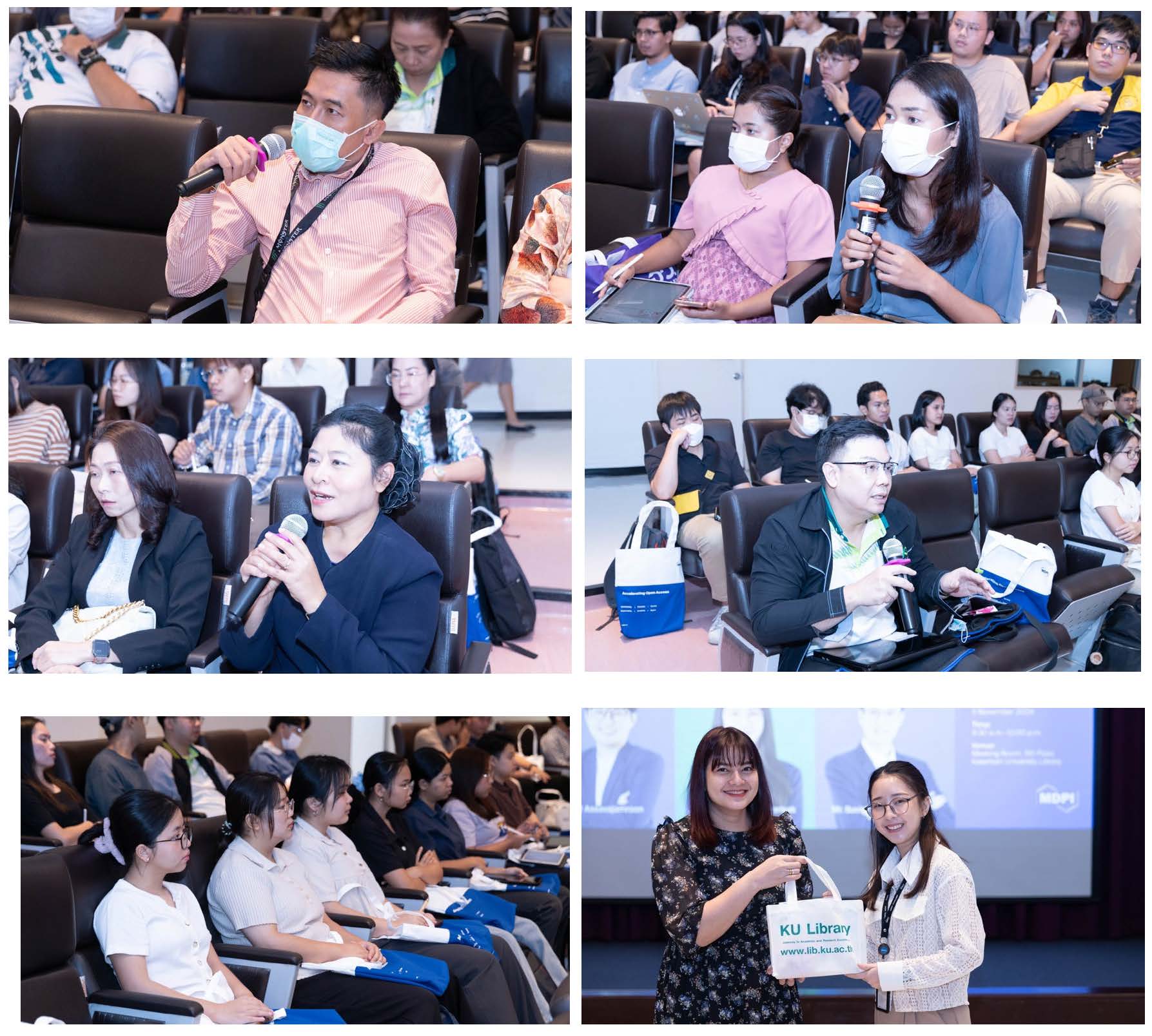
6 November 2024
Meet Us at the Plant & Animal Genome 32 Conference, 10–15 January 2025, San Diego, USA

Conference: Plant & Animal Genome 32 Conference
Organization: Scherago International
Date: 10–15 January 2025
Place: San Diego, CA, USA
MDPI journals will be attending the Plant & Animal Genome 32 Conference as exhibitors. This meeting will be held at the Town & Country Resort and Conference Center, San Diego, USA, from 10 to 15 January 2025.
The Plant & Animal Genome Conference (PAG) will bring together the leading genetic scientists and researchers involved in plant and animal research and related areas. With 62 countries typically represented, the Plant & Animal Genome Conference provides an established forum for the exchange of information internationally as well as in the USA. Approximately 39% of attendees travel to the PAG from outside the USA, making the conference a truly global event. Of the attendees, 73% checked “Plant” and 27% checked “Animal” as their areas of interest.
The following MDPI journals will be represented:
- Plants;
- Agronomy;
- Life;
- Epigenomes;
- Biochem;
- Current Issues in Molecular Biology (CIMB);
- International Journal of Molecular Sciences (IJMS);
- Animals;
- International Journal of Plant Biology (IJPB);
- Taxonomy;
- Crops;
- Agriculture;
- Journal of Zoological and Botanical Gardens (JZBG);
- Horticulturae;
- Genes;
- Grasses;
- Seeds.
5 November 2024
MDPI INSIGHTS: The CEO's Letter #17 - OA Week, Basel Open Day, Beijing Graphene Forum

Welcome to the MDPI Insights: The CEO's Letter.
In these monthly letters, I will showcase two key aspects of our work at MDPI: our commitment to empowering researchers and our determination to facilitating open scientific exchange.
Opening Thoughts

Open Access Week: Forging the Future of Open Access through Global Reach and Collaboration
From 21 to 27 October, we celebrated International Open Access Week (OAW), highlighting the importance of making research accessible to everyone. This campaign reinforced our commitment to advancing open access (OA) and showcased how we are helping research communities worldwide adopt OA as their standard.
“OA publishing is now a cornerstone of global research”
Throughout the week, we featured MDPI’s efforts to support quality open research through blog posts on topics such as how Research Integrity Promotes OA Practices, our Preprints.org platform, and supporting societies with different OA models. These initiatives capture our commitment to making research more inclusive and accessible to all.
OA publishing is now a cornerstone of global research, with more researchers choosing OA over traditional paywalled models, and embracing new, community-driven models.
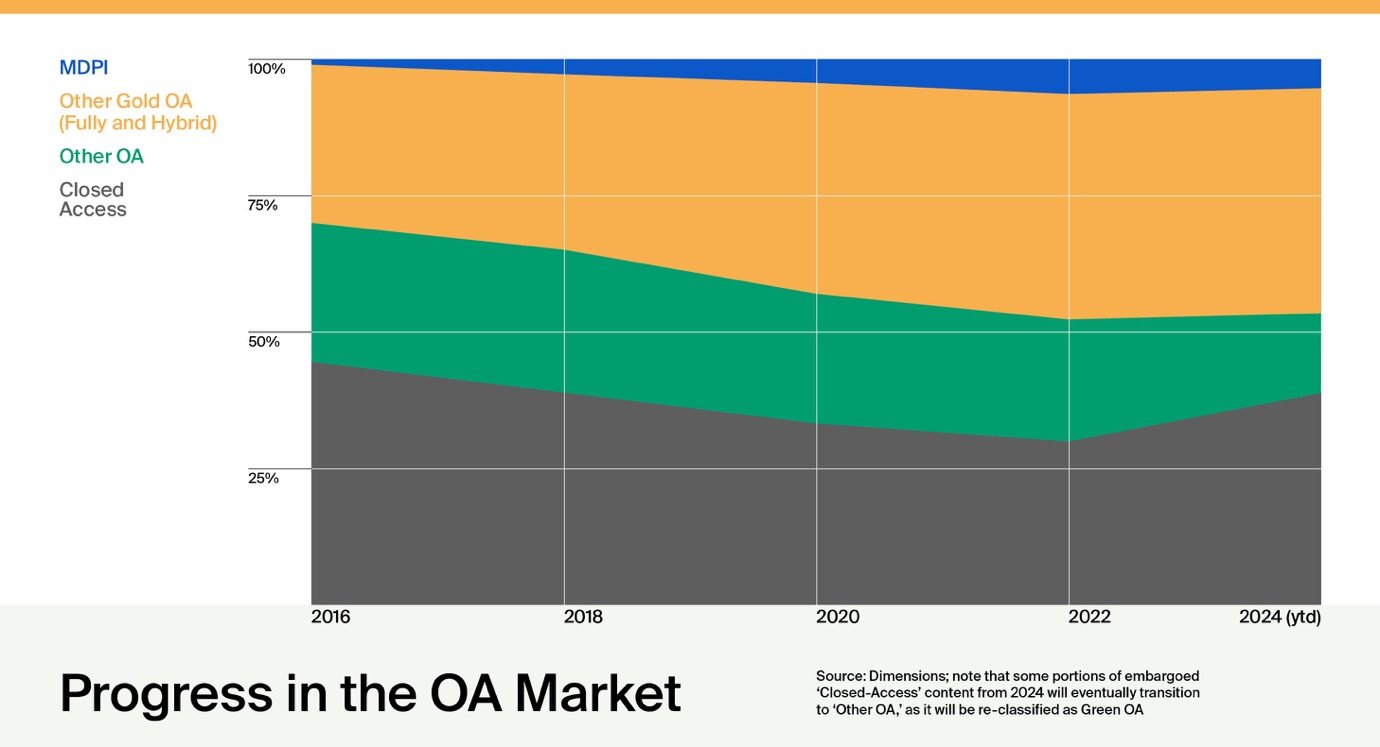
Benefits of Open Access and Open Research
- Accelerated Discoveries: OA speeds up scientific progress by allowing immediate access to findings, enabling researchers to build on each other’s work faster.
- Community-Led Innovation: Open research empowers communities to manage their own platforms, creating collaboration and shared knowledge.
- Increased Visibility: OA broadens the reach of your research, leading to greater recognition, collaboration, and impact.
- Cross-Disciplinary Connections: By removing financial and geographical barriers, OA unites diverse fields, sparking innovation across disciplines.

MDPI Singapore Celebrates Open Access Week
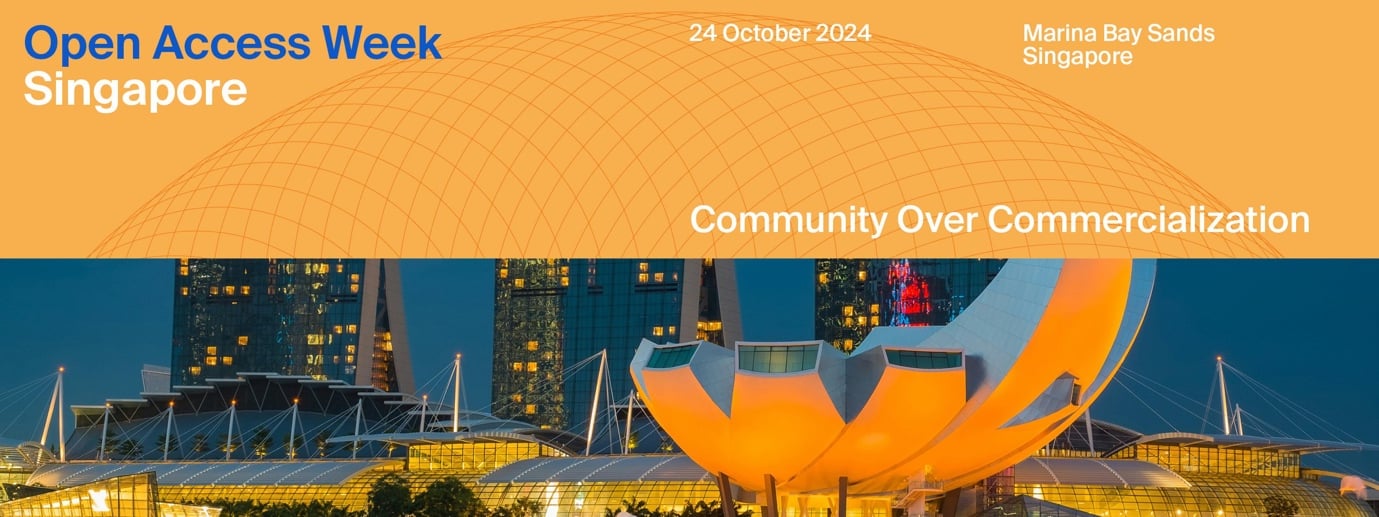
MDPI Singapore also hosted its first-ever OAW event at the Marina Bay Sands Convention Centre, bringing together academics, researchers, and students to discuss the future of open scholarship. Conversations focused on the potential of new publishing models, alternative funding strategies, and the importance of communicating research to wider audiences.
As OA evolves, MDPI remains a committed partner in advancing open science and creating a transparent, inclusive research environment. For a full recap of the week’s highlights and resources, visit our campaign page.

Impactful Research
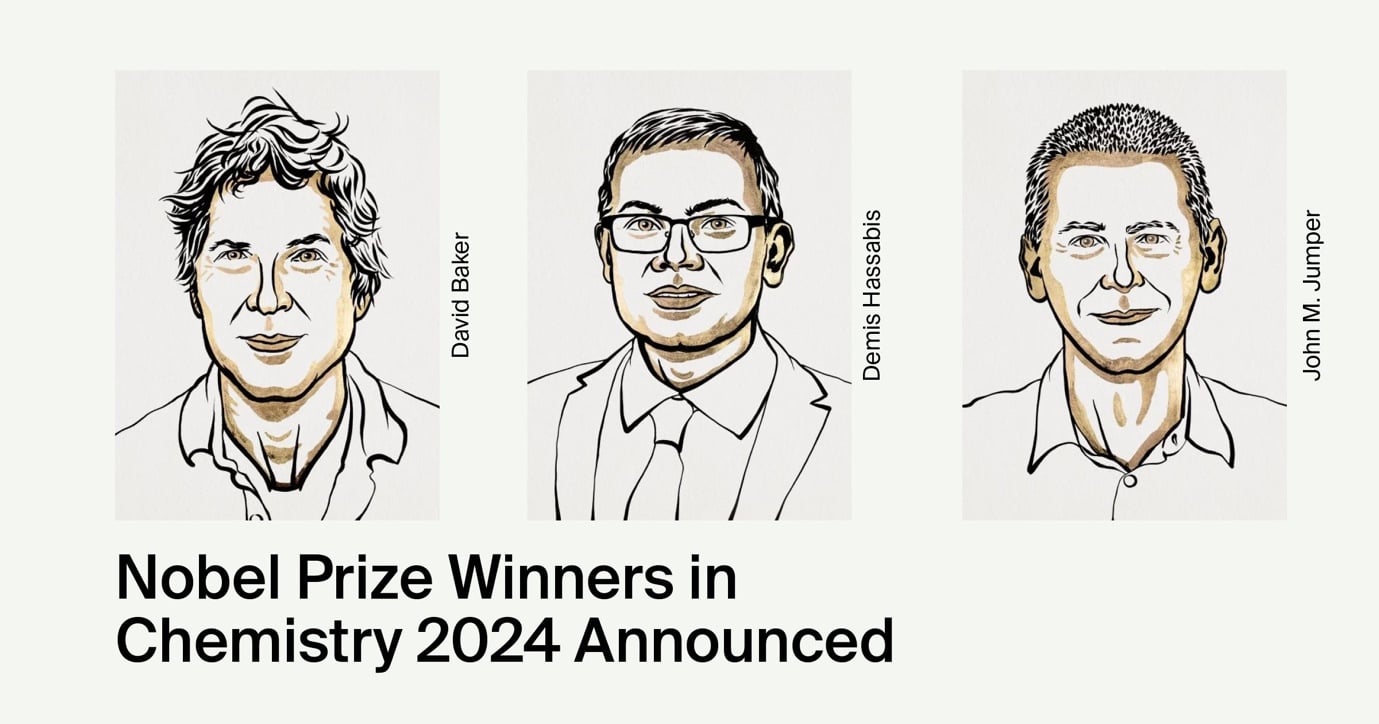
MDPI Connection to Nobel-Winning Protein Research
David Baker, an American biochemist, and Demis Hassabis and John M. Jumper, two scientists from Google DeepMind, have been awarded the 2024 Nobel Prize in Chemistry for their groundbreaking advancements in better understanding the structure of proteins, the molecular engines of life’s processes.
One half of the prize was awarded to Professor David Baker from the University of Washington for his development of revolutionary protein design software enabling the creation of novel proteins for vaccines, nanomaterials, and sensors. Prof. Baker co-authored a 2016 paper in MDPI’s Toxins journal on protein-based therapeutics.
Meanwhile, DeepMind’s Demis Hassabis and John M. Jumper received recognition for AlphaFold, the AI model that predicts protein structures from amino acid sequences, fulfilling a long-held scientific dream.
“We congratulate this year’s Nobel laureates for their groundbreaking contributions to the study of life”
Nobel Prize Laureates Entrust MDPI with Their Research
As at October 2024, 45 Nobel laureates had contributed to more than 115 articles across
35 MDPI journals. The privilege of hosting the research of such contributors, who significantly influence the open access movement, resonates deeply with our editorial teams.
We are proud to list the names of Pierre Agostini, Hiroshi Amano, Werner Arber, Aaron Ciechanover, Robert H. Grubbs, Oliver Hart, Gerard ‘t Hooft, Michael Houghton, Harald zur Hausen, Katalin Karikó, Jean-Marie Lehn, Gérard Mourou, Ferid Murad, Shuji Nakamura, William Nordhaus, Kostya S. Novoselov, Giorgio Parisi, Charles M. Rice, Alvin E. Roth, Donna Strickland, K. Barry Sharpless, George F. Smoot, Anne L’Huillier, Drew Weissman, Kurt Wüthrich, Ada Yonath, Tomas Lindahl, Thomas C. Südhof, Stanley B. Prusiner, Roger Kornberg, Robert F. Engle, Richard J. Roberts, Ōmura Satoshi, Kenneth J. Arrow, John B. Goodenough, Jennifer Doudna, Hamilton Othanel Smith, Eric R. Kandel, Carlo Rubbia, Bernard Feringa, Barry J. Marshall, Anthony J. Leggett, Andrew Victor Schally, and David Baker.
Notable MRNA Published in Cells
On 7 October 2024, the 2024 Nobel Prize in Physiology or Medicine was jointly awarded to Victor Ambros and Gary Ruvkun for the discovery of microRNA and its role in post-transcriptional gene regulation.
MicroRNAs are proving to be fundamentally important for how organisms develop and function. Some interesting papers about microRNA research are published in the MDPI journal Cells. I invite you browse through the notable papers related to microRNA research in Cells.
Inside MDPI
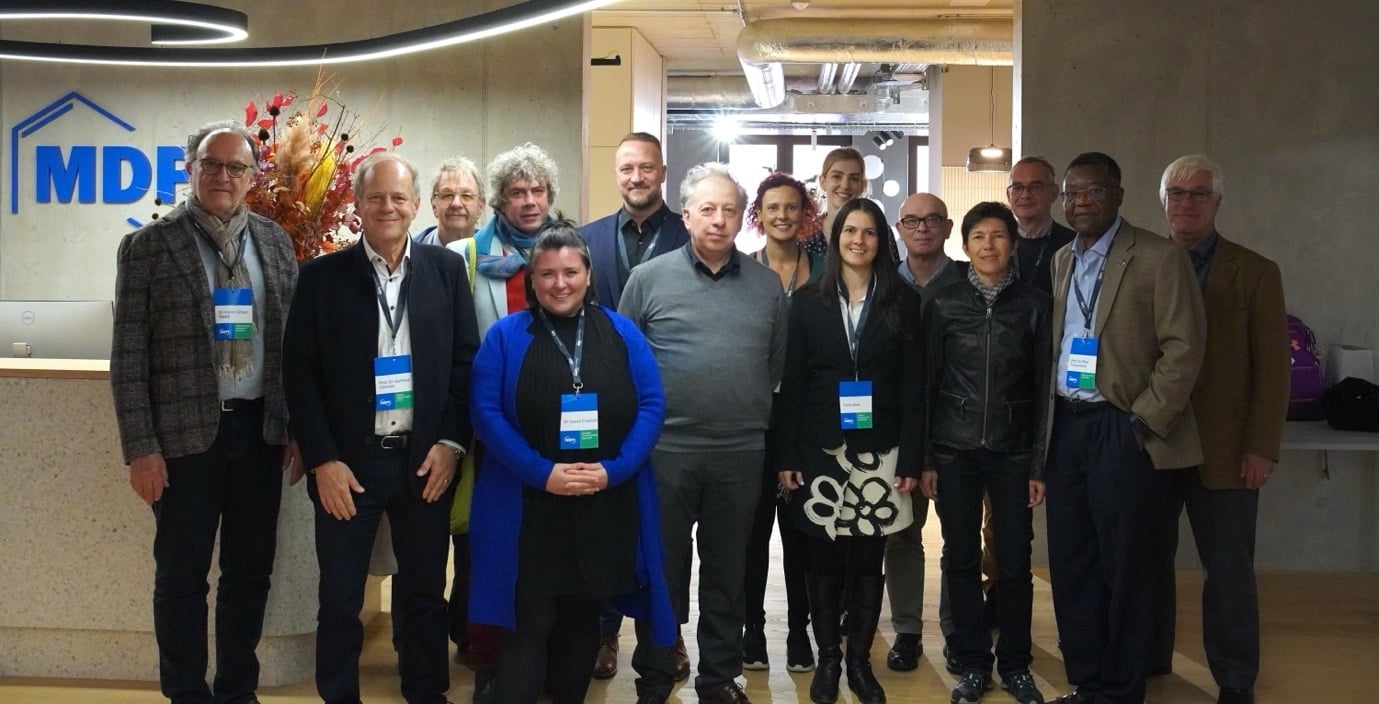
Basel Open Day
On 21 October, we held the Basel Open Day at our headquarters, welcoming a group of journal Editors-in-Chief (EiC) and Editorial Board Members (EBMs) for a full-day workshop. The event featured presentations and discussions on MDPI’s latest editorial updates, data integrity policies, society collaborations, and local market insights.
The following MDPI journals were represented during the visit: Physics, Journal of Personalized Medicine (JPM), Sci, Remote Sensing, Animals, Cells, Buildings, Histories, Sensors, and International Journal of Environmental Research and Public Health (IJERPH).
This was a great opportunity to showcase our new office space while gathering feedback from leading journal stakeholders. To get everyone on the same page, we took 60 minutes for round-table introductions, which helped set a collaborative tone and ground us in MDPI’s mission of disseminating open science.
“This was a great opportunity to gather feedback from leading journal stakeholders”
The general feedback from the day highlighted positive developments around our editorial and ethics policies, as well as areas for improvement, including flexibility regarding reviewer deadlines. There was a genuine appreciation and push for our ongoing efforts to share more about MDPI, including company updates and promoting high-quality research through our blog, announcements, and social media channels, which we have been growing and expanding.
Our Basel Open Day was a positive experience, bringing together key journal stakeholders and gathering insights to guide MDPI’s continued engagement with the academic community. We look forward to hosting future events of this kind and welcoming more scholars to our headquarters in Basel, Switzerland.
Coming Together for Science

ncRNA 2024 Conference in Basel
I am pleased to share that we held Non-coding RNA World 2024: Exploring Mechanisms, Designing Medicines (ICM 2024) in Basel, Switzerland this past 7–9 October.
The three-day event attracted just over 100 attendees, including two Chairs, 10 invited speakers and two keynotes from Prof. Mauro Giacca and Prof. Ling-Ling Chen. Of the presentations on site, there were 35 posters and 44 oral presentations.
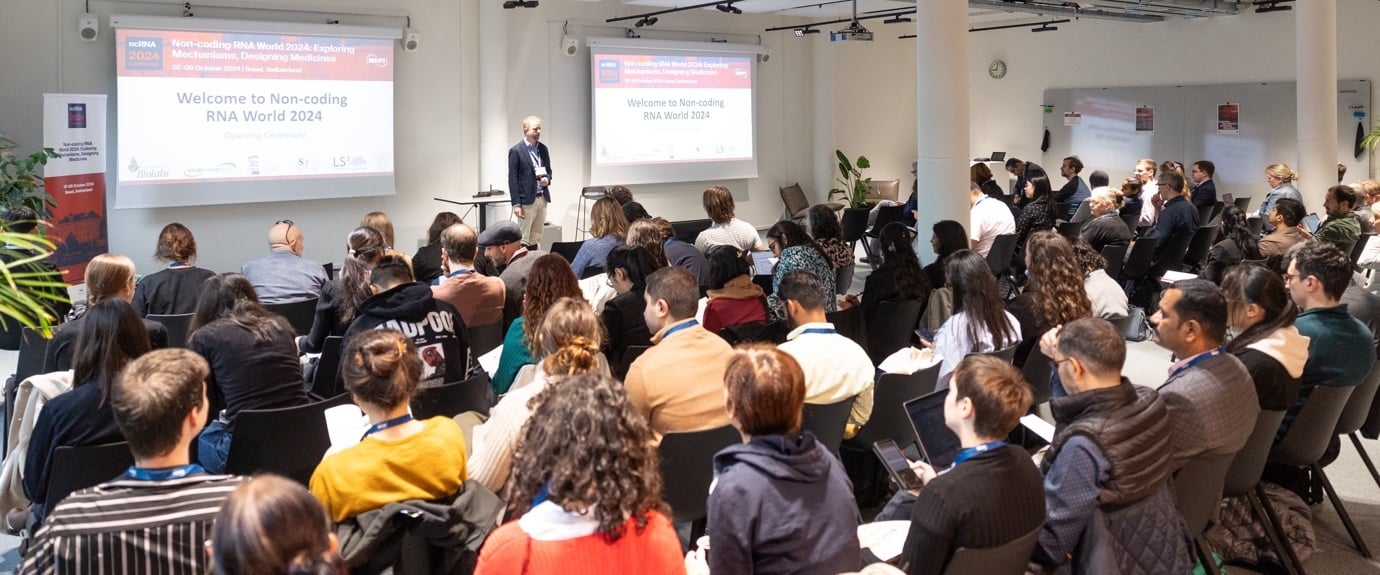
The overall feedback was positive, with people enjoying the intimate event and the unique activities offered, including a guided tour around Basel’s Old Town (a must-see for anyone visiting the city) and a memorable conference dinner.

It was cool to see the winners of the 2024 Nobel Prize in Physiology or Medicine announced during the conference days. This was exciting for attendees, as the winners discovered a new class of RNA molecules (miRNAs). As one invited speaker put it, “It's exciting to be among fellows when something that important for the field is announced.”
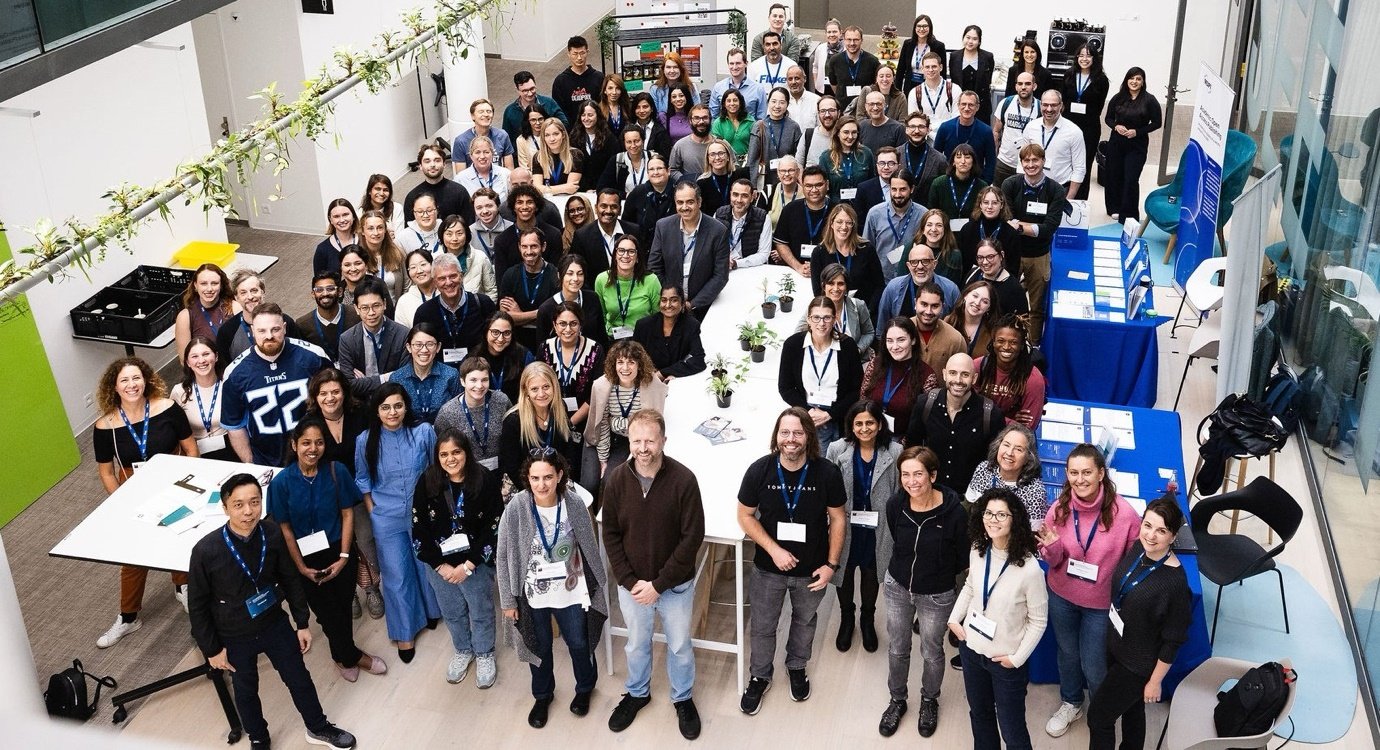
“It's exciting to be among fellows when something that important for the field is announced”
Every attendee receives a conference survey, and I’m always pleased to see a high percentage of ‘Very Satisfied’ responses when asked about ‘treatment from conference personnel’. Kudos to our conference team for meeting our attendees’ needs. These events are a great opportunity for us to reach new audiences, as 92% of the respondents had never been to an MDPI conference, so I am thrilled to see us connecting with a new demographic of your researchers in the RNA field.
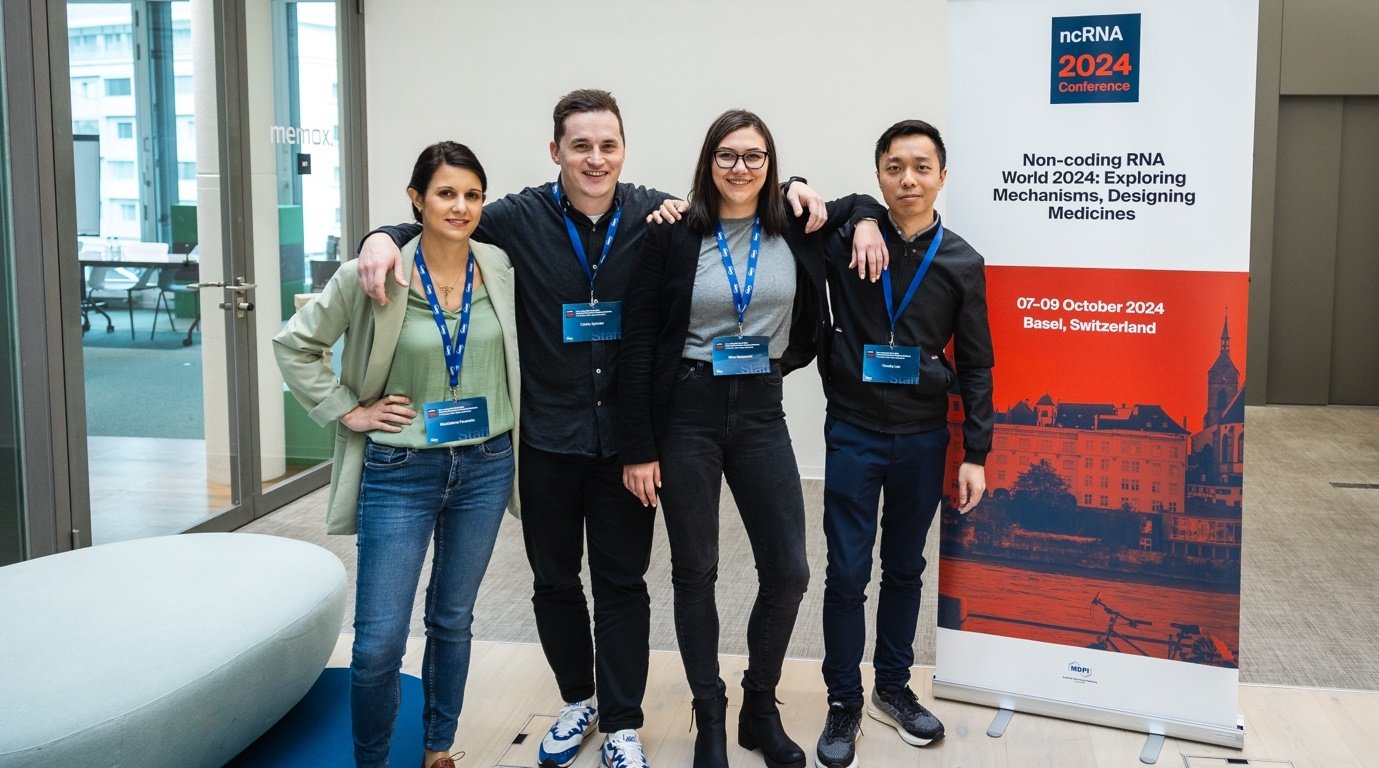
A special thank-you to our partnering societies The Epigenetics Society, The French Society of Genetics, LS2 / USGEB (Union of Swiss Societies for Experimental Biology), and The RNA Biology Group, as well as to our sponsors New England Biolabs and Arraystar for their support of the ncRNA 2024 conference. I am also pleased to report that we presented two awards, including the Best Presentation Award and two Best Poster Award, recognizing the contributions of our participants.
Upcoming In-Person Event
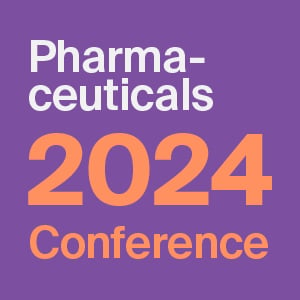
27–29 November 2024
Pharmaceuticals 2024 – Recent Advances in Pharmaceutical Sciences Towards a Healthy Life
Location: Barcelona, Spain
The discovery of new molecules, their properties, and actions to enhance human health and quality of life.
Find more upcoming MDPI events here.
Closing Thoughts

Beijing Graphene Forum 2024
I am pleased to share that we had a successful time at the Beijing Graphene Forum 2024, which drew around 1,000 attendees, including Konstantin Novoselov (2015 Nobel Prize in Physics) and other high-profile scholars in materials science and chemistry. It was a great opportunity to present MDPI on the big stage, with university presidents from institutions such as Peking University also in attendance.
I had the honour of awarding Prof. Zhongfan Liu, Chairman of the Chemical Science Committee, with a medal and presenting certificates to the members of the Chemical Science Committee; this is an important initiative to help expand MDPI’s journals and influence in China. These are highly respected scholars, and we enjoyed connecting with them over lunch as well.
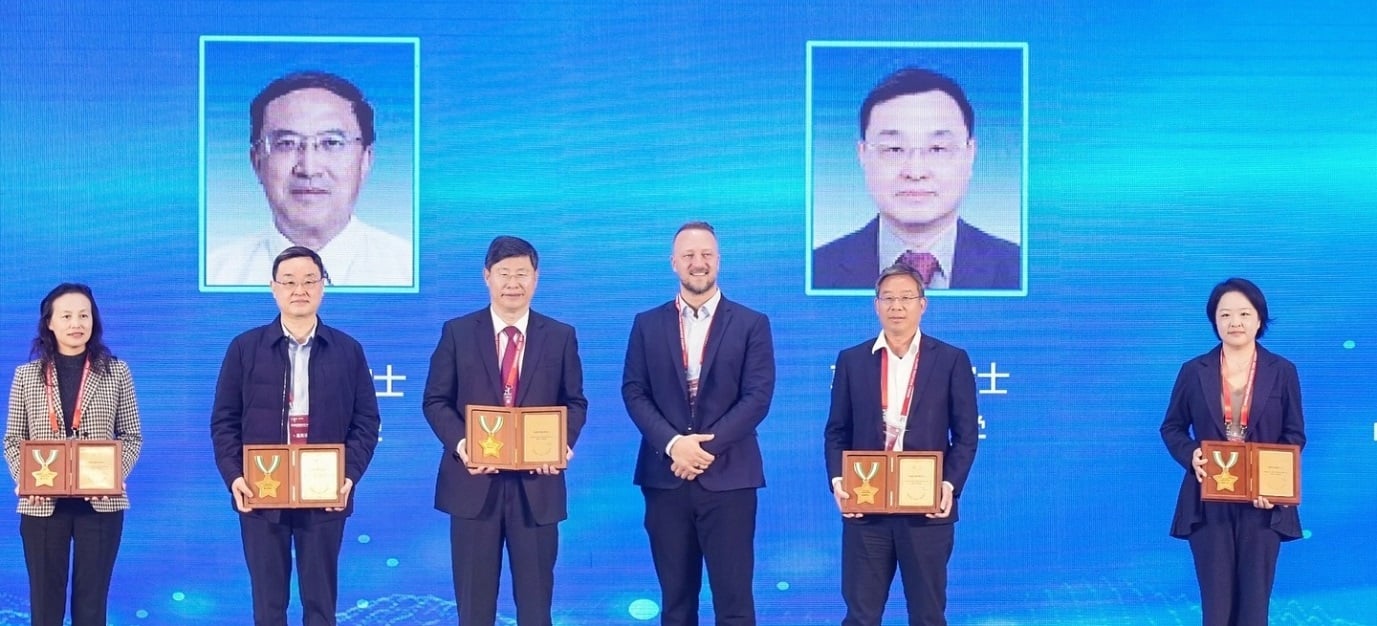
“This is an important initiative to help expand MDPI’s journals and influence in China”
I also had the chance to speak about MDPI and open access, giving a five-minute speech during the opening ceremony and a 20-minute presentation at the close. MDPI hosted a sub-forum where both academic scholars and MDPI members shared insights, and we engaged with attendees at our MDPI booth.
This was a great opportunity to spotlight MDPI as the main publishing partner for the event, and I was proud to represent us on stage. We also met with scholars to discuss topics such as their publishing needs and institutional policies, open access, impact journals, and IOAP.
Chief Executive Officer
MDPI AG
22 October 2024
Join Us at “MDPI Open Access—An Author Training Program”, 5 November 2024, Bangkok, Thailand

We are thrilled to announce an author training session jointly hosted by MDPI and Kasetsart University, Thailand. Similar to MDPI’s successful collaboration with the Faculty of Architecture of Chulalongkorn University, Thailand, this training session will explain the purpose and goals of open access publishing and enable the sharing of valuable perspectives.
This training session is being held due to MDPI and the university’s common interest in academic research and paper publication. MDPI, as a renowned international open access publisher, offers a high-quality publishing platform and services to scholars worldwide. Meanwhile, Kasetsart University, as a leading academic institution in Thailand, has taught many talented researchers. Hence, we aim to teach students about MDPI’s paper publishing process, enhance their English paper writing proficiency, help them to better understand paper data visualization, and discuss the applications of artificial intelligence in publishing.
Date: 5 November 2024
Time: 9:30 a.m.–12:00 p.m.
Venue: Meeting Room, 5th Floor, Kasetsart University Library
Registration link: https://www.surveymonkey.com/r/89K9F8F
Schedule:
| Time | Program | Speaker |
| 9:30–9:40 | Opening Speech | Ms. Supanee Hongthong, Director of Kasetsart University Library |
| 9:40–10:00 | MDPI and Journals Introduction | Dr. Janenipa Saupsor |
| 10:00–10:30 | How to Write Scientific Papers? | Ms. Ploy Assavajamroon |
| 10:30–10:40 | Q&A Session | |
| 10:40–11:10 | Data Visualization for Scientific Papers | Mr. Suvicha Sasivimolkul |
| 11:10–11:20 | Q&A Session | |
| 11:20–11:50 | Artificial Intelligence in Scientific Publishing | Dr. Kamolchanok Deesrisak |
| 11:50–12:00 | Q&A Session |
| Chair | Biography |
|
|
Ms. Supannee Hongthong graduated with a degree in science (agriculture). She works in the field of Agricultural Digital Information and Digital Institution Repository (IR) for AGRIS/ FAO and Coretrust Seal, managing electronic books and special libraries. |
MDPI speakers:
| Speaker | Biography |
|
|
Dr. Janenipa Saupsor holds a doctoral degree in chemical engineering from Chulalongkorn University, Thailand. She joined MDPI as an Assistant Editor for the journal Energies in 2021. In 2022, she served as a Group Leader and became a Section Managing Editor in February 2023. She is now the Deputy Office Manager at the MDPI Bangkok Office. |
|
|
Ms. Ploy Assavajamroon obtained her master’s degree in chemistry from Thammasat University in 2020 and joined MDPI as an Assistant Editor for the journal Crystals in the same year. She became a Section Managing Editor in 2021 and a Group Leader in 2022. She is currently one of MDPI’s Regional Journal Relations Specialists for Asia-Pacific. |
|
|
Mr. Suvicha Sasivimolkul earned his master’s degree in biomedical engineering from Rangsit University, Thailand, in 2021. That same year, he joined MDPI as an Assistant Editor for the journal Crystals. In 2022, he advanced to the role of Section Managing Editor and Training Assistant. In 2023, he became Co-Training Group Leader. He currently serves as the Training Group Leader for MDPI’s Asian offices. |
|
|
Dr. Kamolchanok Deesrisak obtained her Ph.D. in medical technology from Mahidol University. She joined MDPI in 2021 as an Assistant Editor for the International Journal of Environmental Research and Public Health and became the Section Managing Editor of the journal Social Sciences in 2023. Since February 2024, she has worked as Scientific Advisor for the journal Healthcare. |
16 October 2024
MDPI's Newly Launched Journals in September 2024
Five new journals covering a diverse range of subjects launched their inaugural issue in September 2024. Like other journals in MDPI’s portfolio, these journals are dedicated to sharing the latest research through open access, reflecting our commitment to making knowledge accessible to all.
We extend our sincere gratitude to the Editorial Board Members for their dedication to the launch and development of our new journals. Each journal will ensure its high-quality output via excellent editorial and rigorous peer-review processes so that the published articles achieve significant impact and broad visibility.
We invite you to explore and learn more about these new journals below.
| Journal | Founding Editor-in-Chief | Journal Topics (Selected) |
| Prof. Dr. Nejat Düzgüneş, University of the Pacific, USA | Editorial | view inaugural issue | biological therapy and stem-cell therapy; drug therapy; chemotherapy; radiation and other nonsurgical therapeutic strategies | view journal scope | submit an article | |
| Prof. Dr. Magda Tsolaki, Greek Federation of Alzheimer’s Disease, Greece; Aristotle University of Thessaloniki, Greece | Editorial | view inaugural issue | surgical/procedural complications; complications; perioperative adverse events; postoperative adverse events | view journal scope | submit an article | |
| Prof. Dr. Steven R. Fassnacht, Colorado State University, USA; Cooperative Institute for Research in the Atmosphere, USA | Editorial | view inaugural issue | ice as a mineral; atmospheric ice; sea ice; freshwater ice; ice sheets; ice caps and ice shelves | view journal scope | submit an article | |
| Dr. Francisco Epelde, Hospital Universitari Parc Tauli, Spain; University Autonoma of Barcelona, Spain | Editorial | view inaugural issue | hospital management; hospital facilities; hospital services; hospital risk management; health law | view journal scope | submit an article | |
| Prof. Dr. Nicola Ferri, University of Padova, Italy | Editorial | view inaugural issue | lipids in cells and whole organisms; lipid structure and function; lipid products and processes; dietary lipids and nutrition | view journal scope | submit an article |
We wish to thank everyone who has supported the development of open access publishing. You are welcome to send an application here or contact the New Journal Committee ([email protected]) if you would like to create more new journals.
4 October 2024
MDPI INSIGHTS: The CEO's Letter #16 - UNGA79 Science Summit, OASPA, Peer Review Week

Welcome to the MDPI Insights: The CEO's Letter.
In these monthly letters, I will showcase two key aspects of our work at MDPI: our commitment to empowering researchers and our determination to facilitating open scientific exchange.
Opening Thoughts

MDPI Joins the Science Summit at UNGA79 (23–27 September 2024, New York)
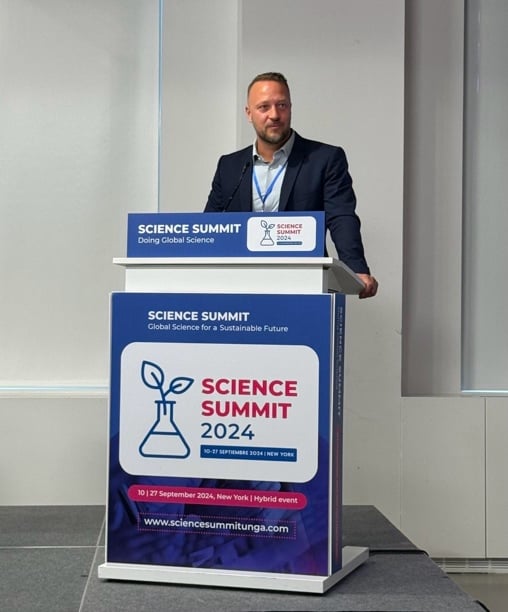
On Friday 27 September, I had the privilege of giving the opening talk at the “Youth at the Science Summit” panel during the Science Summit conference, held in New York at the 79th session of the United Nations General Assembly (UNGA). Together, we discussed the future of science, publishing, innovation, and sustainable development.
It was a great opportunity to learn from our young leaders, whose voices must be included in the conversation as science shapes the future of artificial intelligence, climate mitigation, healthcare, technology, and more. This was also a powerful reminder of how essential global collaboration is in solving the major challenges we face. I left inspired by the dedication of these young researchers to making the world a better place!
Today’s youth are not just the leaders of tomorrow – they are already leading the change today.
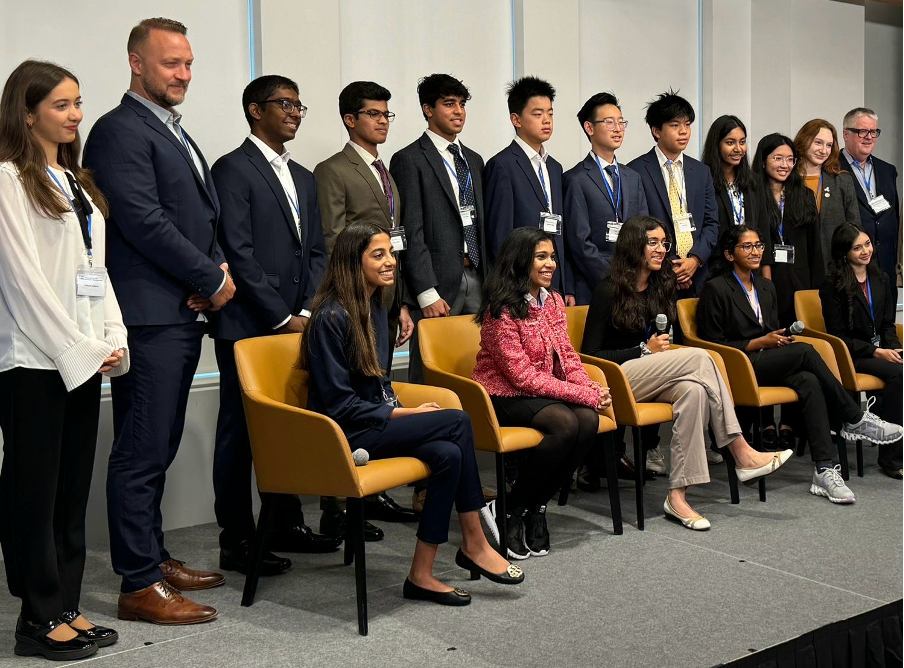
Stefan Tochev (second from left) at the UNGA Science Summit 2024: “A great opportunity to learn from our young leaders.”
MDPI Supports the Future Generation of Scientists
This aligns with MDPI’s mission to support the next generation of scientists and early-career researchers by recognizing their achievements through our various MDPI awards, including the Young Investigator Awards, Best PhD Thesis Awards, Travel Awards, and more.
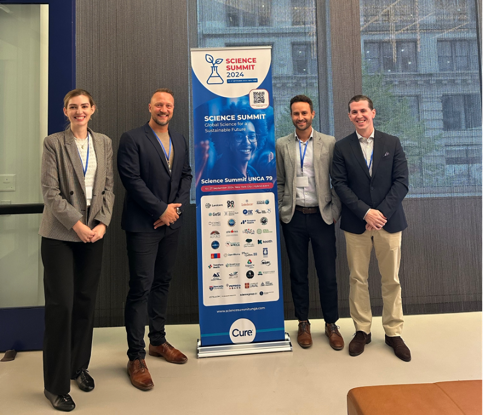
Our presence at this global event showed our commitment to advancing Open Science as a key driver for sustainable development. As a leading Open Access (OA) publisher, MDPI’s role at the summit was to emphasize the critical importance of democratizing scientific knowledge, making it accessible to all, and promoting global collaboration.
Through OA publishing, we aim to address pressing global challenges such as climate change, public health, and inequality, in line with the United Nations Sustainable Development Goals (SDGs).
“We aim to address pressing global challenges”
MDPI and the SDGs
In 2020, the SDG Publishers Compact was launched to accelerate implementation of the SDGs by promoting content that informs, develops, and inspires action. MDPI joined this initiative in 2021 and subsequently launched the MDPI SDG Hub in 2022, offering free access to recent research within the scope of each of the 17 SDGs.
During the summit, we highlighted the connection between Open Science and the SDG Publishers Compact, supporting the core objective to “Leave No One Behind” (LNOB). The transformative promise of the SDGs relies heavily on the Open Access model, which serves as a fundamental enabler of Open Science. We advocate for the wider adoption of Open Science practices in order to achieve the SDGs by 2030.
Impactful Research
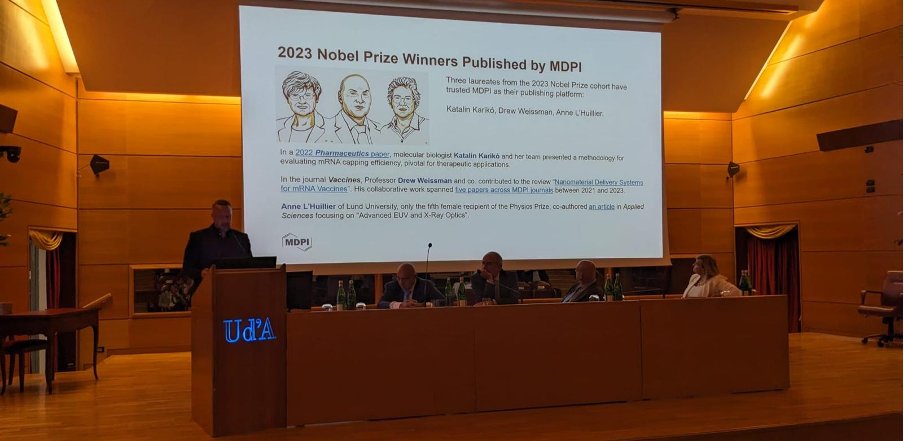
Presenting at the 1st International Conference of Environmental Medicine
In September, MDPI and our journals IJERPH and Diseases sponsored and participated in the 1st International Conference of Environmental Medicine: Environmental Threats to Human Health: From Genetics to Epigenetics, held in Chieti, Italy.
The conference was organized in collaboration with various societies, including the Italian Society of Environmental Medicine (SIMA), one of more than 160 societies partnering MDPI journals.
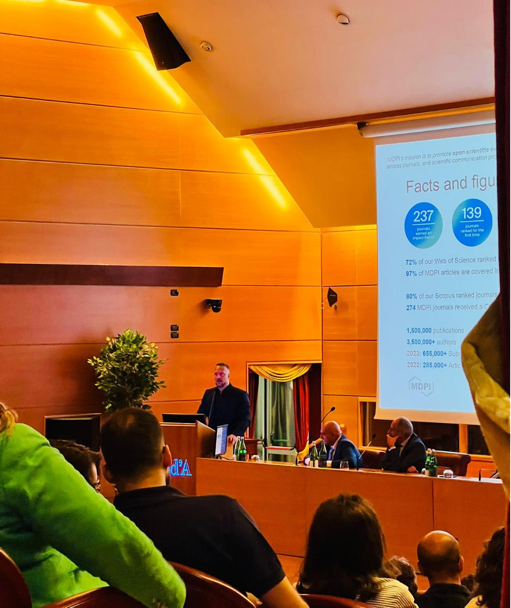
The conference brought together influential figures from the Italian scholarly community, such as Antonio Felice Uricchio (President of the National Agency for University Research Assessment [ANVUR]), Alessandro Miani (President of SIMA), and Liborio Stuppia (Director of ‘Gabriele d’Annunzio’ University of Chieti-Pescara), among others.
MDPI was the sole publishing sponsor of the conference, at which I had the opportunity to present on behalf of the company. I provided an overview of MDPI, covering key facts and figures, the peer-review process, our strong collaboration with the Italian market, and insights into Nobel Prize winners who have published with MDPI, ahead of Sir Richard Roberts’ Nobel lecture.
“As at September 2024, 44 Nobel laureates have contributed to over 115 articles across 35 MDPI journals”

The keynote speaker at the event was Sir Richard Roberts, Nobel Laureate and 1993 Nobel Prize winner in Medicine, recognized for his discovery of split genes.
Nobel Laureates’ Contributions to MDPI
As at September 2024, 44 Nobel laureates have contributed to over 115 articles across 35 MDPI journals. I’ll share more details on this in the October newsletter.
Hosting such prominent figures in their respective fields, who play a significant role in advancing the OA movement, of which we are leaders in, resonates deeply with our editorial teams.
Sponsoring and supporting academic conferences is something we do on a large scale, and it continues to grow. Attending and speaking about MDPI shows our commitment by taking the time to connect with the scholarly community in person.
MDPI’s Presence in Italy
Italy ranks third globally in total MDPI publications, with nearly 130,000 contributions. We collaborate with about 12,000 Editorial Board Members in Italy, over 6,100 of whom have an H-index of more than 25.
We have 83 Editors-in-Chief and 209 Section Editors-in-Chief from Italy. We also support 20 Italian universities through our Institutional Open Access Program (IOAP) agreements with major institutions such as Sapienza University of Rome, the University of Milan, and the University of Pisa, among others.
Inside MDPI

Celebrating Peer Review Week, 23–27 September 2024
As we conclude another productive month at MDPI, I am pleased to highlight our participation in this year’s Peer Review Week (PRW), which took place from 23–27 September 2024. This global, community-driven celebration underscores the vital importance of peer review in maintaining the integrity and reliability of academic work. PRW provide a platform for institutions, publishers, and scholars to come together and reflect on the processes that uphold the quality of scholarly communication.
“We remain committed to enhancing the peer review process”
The theme for PRW 2024 was ‘Innovation and Technology in Peer Review.’ At MDPI, we were proud to contribute through various online and in-person events, including webinars from Europe, Asia-Pacific, and a roundtable discussion on innovation and technology in peer review. These events offer an opportunity to explore new tools and technologies that are shaping the future of peer review, particularly the integration of AI. As a company, we remain committed to enhancing the peer review process with innovative solutions while preserving the essential human expertise that makes it effective.
Peer Review Innovation and Technology at MDPI
Our efforts to improve peer review extend beyond the activities of this week. We also released a blog article discussing New Tools for Advancing Research Integrity and Peer Review, where we highlight two tools that MDPI has developed to support research integrity: Eureka – Reviewer Recommender and Online Proofreader. We are continually refining SuSy, our in-house submission system, to provide a seamless experience for authors and reviewers alike.
Listening to MDPI’s Authors and Reviewers
We highly value the time of our reviewers, and so do the authors who contribute to our journals. Our editorial process is bolstered by a network of dedicated reviewers, a team of over 6,000 diligent, well-trained staff members, and an in-house article submission platform designed to ensure efficient processes.
We make it a point to continually improve the experiences of both our authors and our reviewers throughout the entire editorial process, from submission to publication. This is why we regularly ask for feedback by conducting surveys. Here is what some of our respondents recently had to say about working with MDPI:
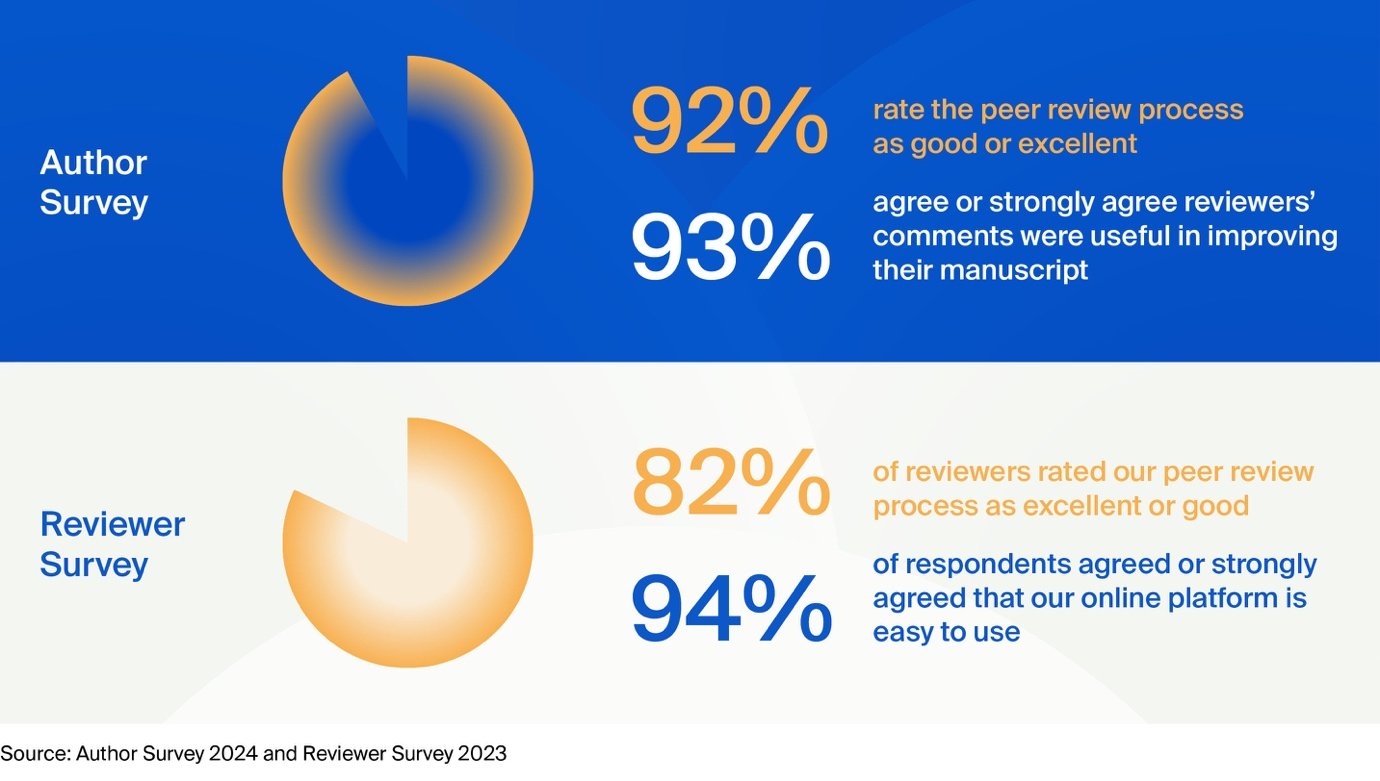
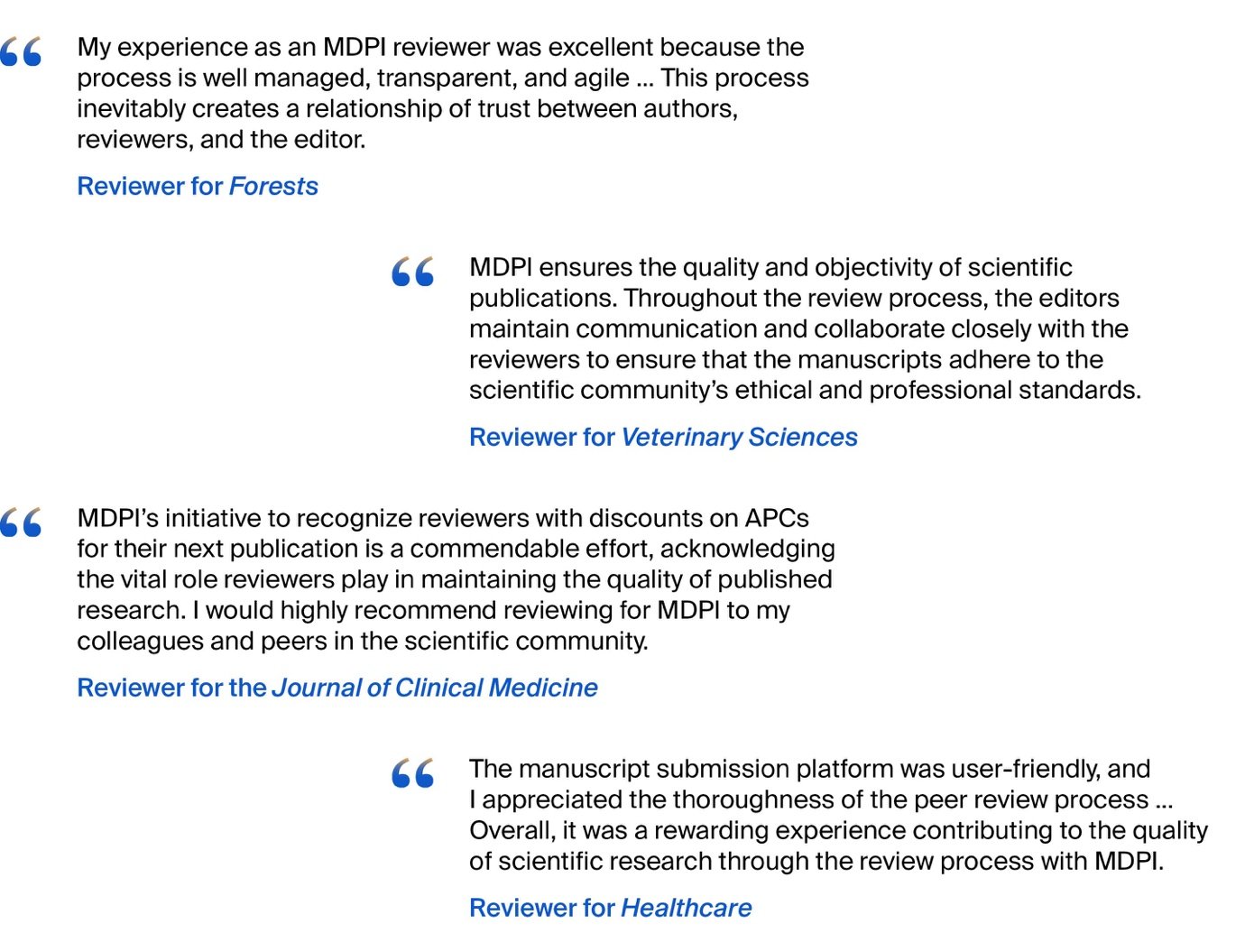
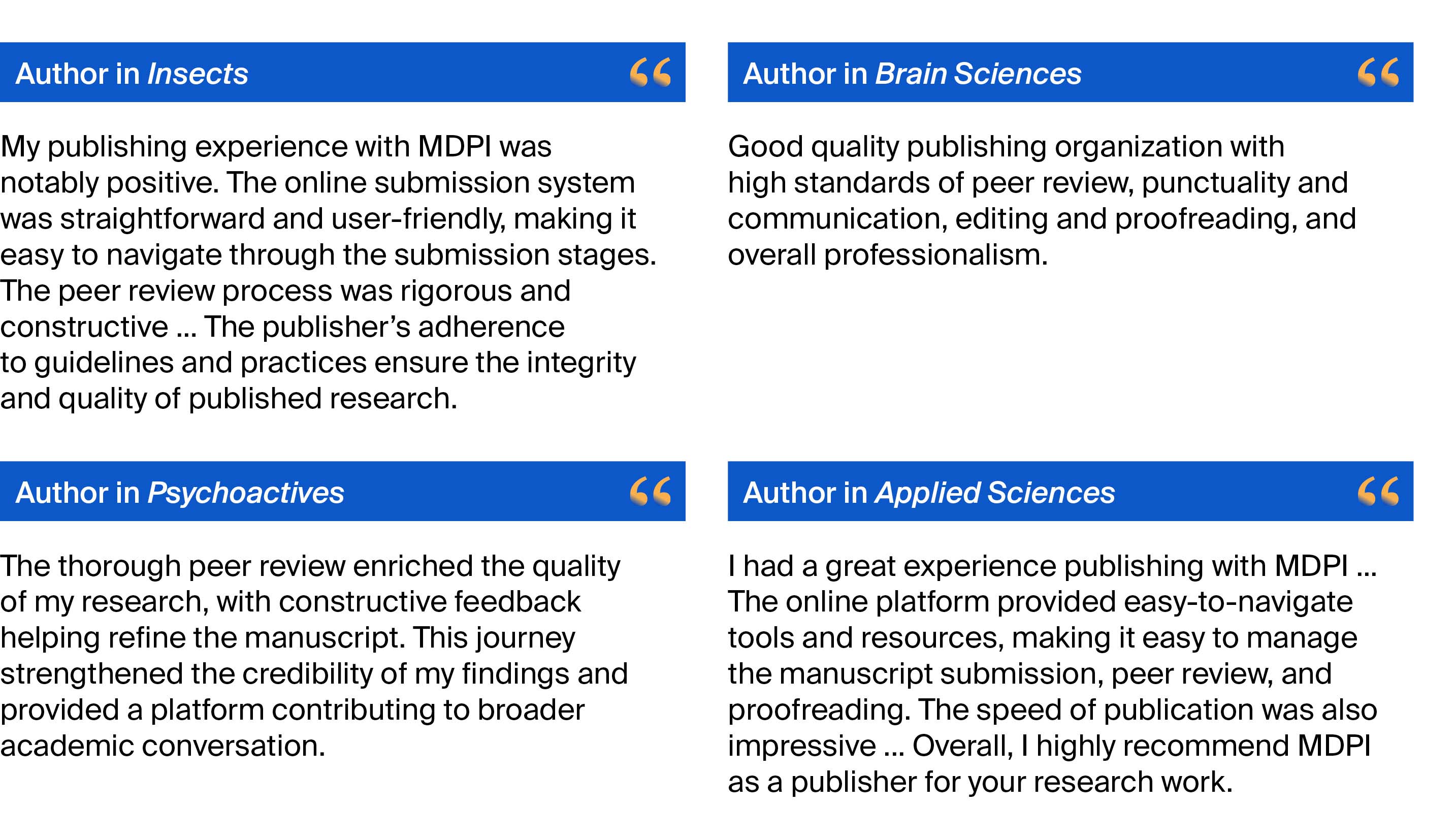
Coming Together for Science

ICM 2024 – Advances in Material Innovation
I am pleased to share that we held The 5th International Conference on Materials: Advances in Material Innovation (ICM 2024) in Basel, Switzerland this past 25–27 September.
This intimate event brought together leading scientists, researchers, and industry experts to exchange insights on recent advancements in materials characterization, processing, and manufacturing. Key focus areas included nanotechnology in material sciences and engineering, optical, electrical, and magnetic materials, soft, biological, and biomaterials, fibres, membranes, thin films, sensing materials, as well as materials and devices for energy and solar fuels. In addition, discussions featured the integration of AI and machine learning in materials research.
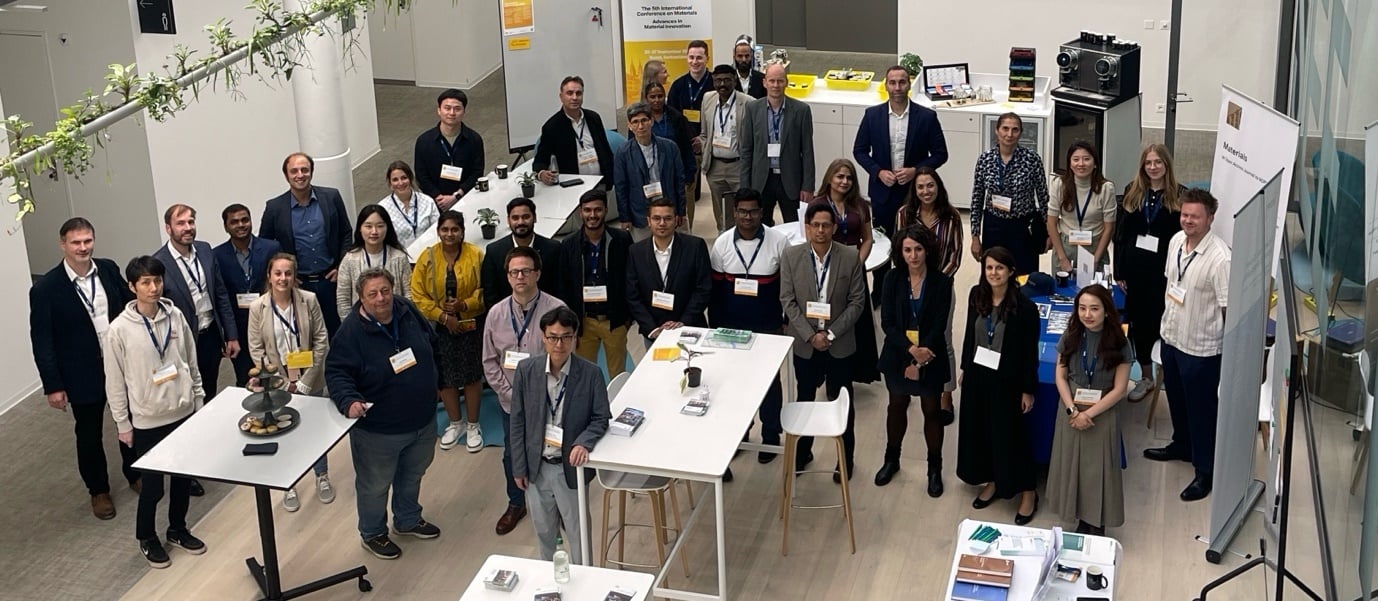
We received 90 abstract submissions. Over the course of the three-day event, 18 posters were displayed, and 34 talks were delivered, including three plenary speeches, seven invited talks, and 24 selected oral presentations.
A special thank-you to our partnering societies The Polish Membrane Society and The North American Thermal Analysis Society, as well as our sponsor, Nanomegas, for their support of the ICM conference. I am also pleased to share that we presented three awards, including the Best Presentation Award and two Best Poster Awards, recognizing the outstanding contributions of our participants.
Upcoming In-Person Event
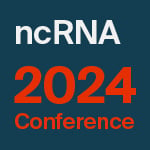
7–9 October 2024
Non-coding RNA World 2024: Exploring Mechanisms, Designing Medicines
Location: Basel, Switzerland
ncRNA 2024 will explore the latest advances in the field, covering topics from basic biology to medical and technological applications.
Find more upcoming MDPI events here.
Closing Thoughts
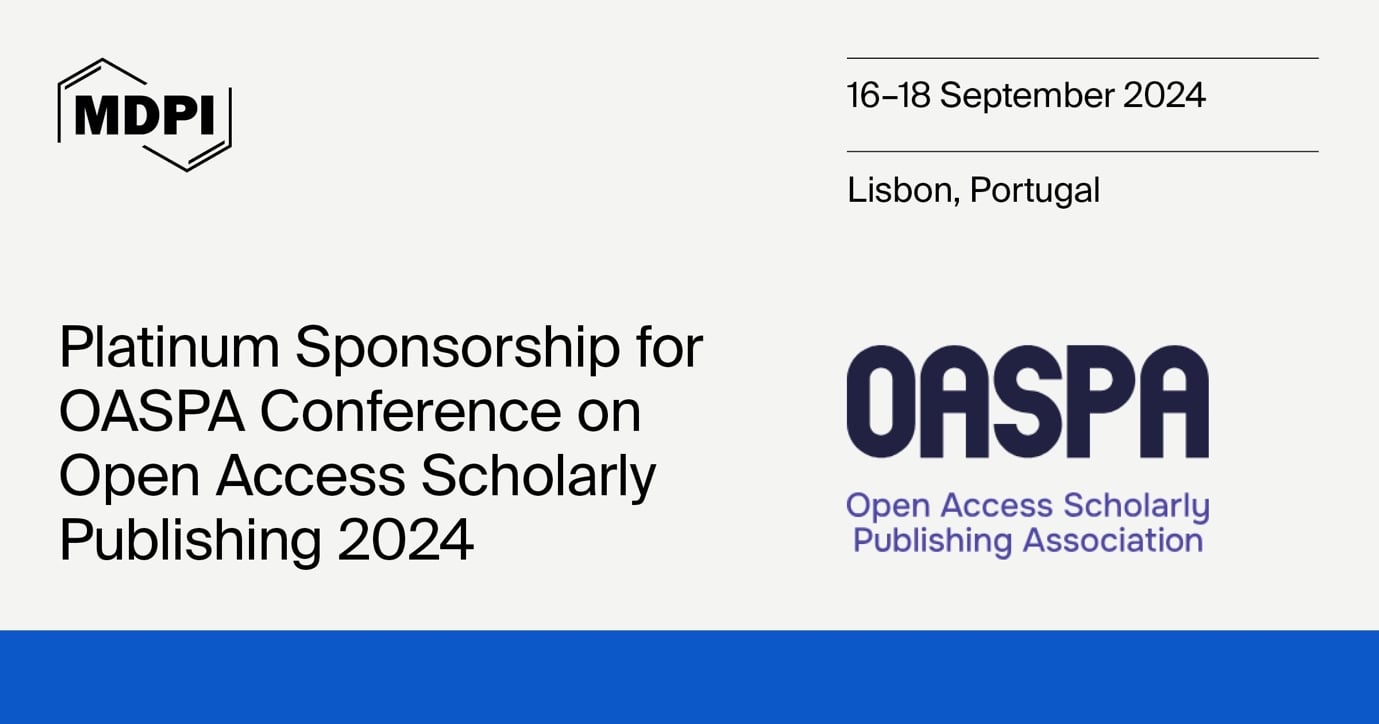
Reflections from OASPA 2024 Conference in Lisbon (16–18 September)
Amidst my September travels, I also had pleasure of attending the OASPA 2024 Conference in Lisbon from 16–18 September. It’s the first in-person Open Access Scholarly Publishing Association (OASPA) event in five years, and being in the sunny city of Lisbon made it even better! MDPI has long been a member of OASPA, and attending this conference gave us an opportunity to connect with other key members of the organization to see the latest developments in the OA movement.
“I believe that publishers have a lot to offer in terms of data and insights”
Main Themes from OASPA 2024
The main themes covered were equity and inclusivity, diamond OA, AI and openness, OA books, research integrity, and how OA can address broader societal challenges such as climate change. While it was great to see the latest developments in these areas, it was also clear that certain voices were missing, particularly those of major publishers. Although it’s not easy to incorporate every perspective, I believe that publishers, including MDPI, have a lot to offer in terms of data and insights. During the membership meeting, a few of us raised the point that large-scale publisher input could add value to these discussions.
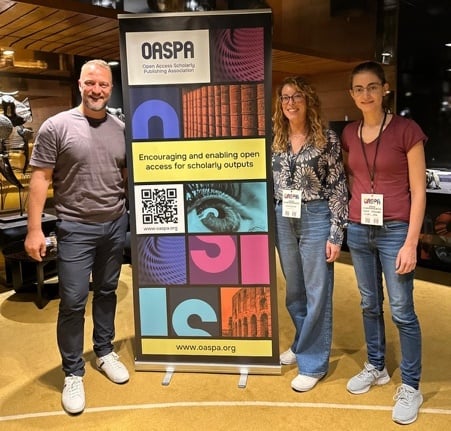
It’s important to participate in industry conferences such as OASPA in order to be part of the discussions and remain at the forefront of the OA movement.
It’s an opportunity to build meaningful relationships with organizations that share our commitment to OA.
While sponsorship is one way to show our support, it’s clear that being part of the conversation through participating in the OASPA groups and committee is what really makes a difference.
It took the last 20 years for more than 50% of the world's research to be published via open access. This provides a sobering reminder that flipping the remaining 50% will be a big challenge.
An important takeaway for me was that there is no "one-size-fits-all" solution for OA challenges: different regions and different stakeholders need different forms of support, whether it is infrastructure, funding, education, or policy, for example. I also enjoyed Rebecca Ross' presentation on how OA can drive action on climate. A few panellists shared the need for transparency in the peer-review process, advocating for open review reports, which is something we have been offering since 2014.
Speaking of openness, we are excited to celebrate Open Access Week 2024 with the scholarly community from 21–27 October. I look forward to sharing a recap of our activities in the next newsletter.
Chief Executive Officer
MDPI AG
2 October 2024
World Animal Day 2024

Since the World Animal Protection Congress in May 1931, October 4 was designated as World Animal Day. Thousands of passionate animal advocates have participated in World Animal Day celebrations. World Animal Day was established to raise the status of animals and improve welfare standards around the world. We look forward to raising awareness of the treatment of animals around the world by participating in this event.
Animals are the spirits of nature and important guardians of ecological balance. From galloping horses on the vast grasslands to dolphins swimming in the deep ocean, from clever squirrels in the forest to soaring eagles in the sky, every animal has its unique charm and value. They give us companionship and warmth. Loyal dogs are always waiting at the door for their owners to return, and cute cats soothe our tired hearts with their softness. In the zoo, the laughter of children and the lively figures of animals are intertwined, creating the most beautiful picture.
However, the living conditions of animals today are worrying. Habitats continue to be destroyed, illegal hunting continues, and the impacts of climate change are intensifying. Many rare species are on the verge of extinction and their survival faces unprecedented threats.
On World Animal Day, let us make a promise: not to participate in the illegal wildlife trade, protect animal habitats, and care for stray animals. Use our actions to create a better world for animals.
In order to increase the research and understanding of various types of animals, we have collected animal research results from multiple journals, which are all open access, and we hope they can help animal lovers, policymakers, and everyone around the world access and share the latest scientific knowledge.
Let us celebrate World Animal Day together and join hands to protect these miracles of life so that animals and humans can maintain a harmonious and beautiful relationship.


“Population Trend of Colonially Nesting Heron Species in Greece”
by Savas Kazantzidis, Theodoros Naziridis, Evangelia Katrana, Nikolaos Bukas, Georgios Kazantzidis, Aristidis Christidis and Christos Astaras
Birds 2024, 5(2), 217-239; https://doi.org/10.3390/birds5020015
“Innovative Foraging Behavior of Urban Birds: Use of Insect Food Provided by Cars”
by Jukka Jokimäki and Anna Ramos-Chernenko
Birds 2024, 5(3), 469-486; https://doi.org/10.3390/birds5030032
“Climate Change and Herbivores: Forty Years in a Bunchgrass Prairie”
by Gary E. Belovsky and Jennifer B. Slade
Animals 2024, 14(18), 2647; https://doi.org/10.3390/ani14182647
“Factors Associated with Reproductive Success in Captive Vancouver Island Marmots (Marmota vancouverensis)”
by Laura H. Graham, Emily M. Leishman, Kahlee Demers, Douglas P. Whiteside and Malcolm McAdie
Animals 2024, 14(3), 387; https://doi.org/10.3390/ani14030387
“The Effect of Disease and Injury on Faecal Cortisol Metabolites, as an Indicator of Stress in Wild Hospitalised Koalas, Endangered Australian Marsupials”
by Flavia Santamaria, Rolf Schlagloth, Ludovica Valenza, Rupert Palme, Deidre de Villiers
and Joerg Henning
Vet. Sci. 2023, 10(1), 65; https://doi.org/10.3390/vetsci10010065

“A Review of Potential Feed Additives Intended for Carbon Footprint Reduction through Methane Abatement in Dairy Cattle”
by Ian Hodge, Patrick Quille and Shane O’Connell
Animals 2024, 14(4), 568; https://doi.org/10.3390/ani14040568
“Sarcocystis Species Richness in Sheep and Goats from Lithuania”
by Alina Marandykina-Prakienė, Dalius Butkauskas, Naglis Gudiškis, Evelina Juozaitytė-Ngugu, Dovilė Laisvūnė Bagdonaitė, Muza Kirjušina, Rafael Calero-Bernal and Petras Prakas
Vet. Sci. 2023, 10(8), 520; https://doi.org/10.3390/vetsci10080520
“Modern Imaging Techniques in the Study and Disease Diagnosis of the Mammary Glands of Animals”
by Mariana S. Barbagianni and Pagona G. Gouletsou
Vet. Sci. 2023, 10(2), 83; https://doi.org/10.3390/vetsci10020083
“Effects of Perching on Poultry Welfare and Production: A Review”
by Ramesh Bahadur Bist, Sachin Subedi, Lilong Chai, Prafulla Regmi, Casey W. Ritz, Woo Kyun Kim and Xiao Yang
Poultry 2023, 2(2), 134-157; https://doi.org/10.3390/poultry2020013
“Diagnosing Infectious Diseases in Poultry Requires a Holistic Approach: A Review”
by Ramesh Bahadur Bist, Sachin Subedi, Lilong Chai, Prafulla Regmi, Casey W. Ritz, Woo Kyun Kim and Xiao Yang
Poultry 2023, 2(2), 252-280; https://doi.org/10.3390/poultry2020020

“Towards an Objective Measurement Tool for ADHD-like Traits in Family Dogs: A Comprehensive Test Battery”
by Barbara Csibra, Vivien Reicher, Melitta Csepregi, Kíra Kristóf and Márta Gácsi
Animals 2024, 14(13), 1841; https://doi.org/10.3390/ani14131841
“Veterinary Education and Training on Non-Traditional Companion Animals, Exotic, Zoo, and Wild Animals: Concepts Review and Challenging Perspective on Zoological Medicine”
by Jaime Espinosa García-San Román, Óscar Quesada-Canales, Manuel Arbelo Hernández, Soraya Déniz Suárez and Ayoze Castro-Alonso
Vet. Sci. 2023, 10(5), 357; https://doi.org/10.3390/vetsci10050357
“Animal Health Discourse during Ecological Crises in the Media—Lessons Learnt from the Flood in Thessaly from the One Health Perspective”
by Eleftherios Meletis, Andrzej Jarynowski, Stanisław Maksymowicz, Polychronis Kostoulas
and Vitaly Belik
Vet. Sci. 2024, 11(4), 140; https://doi.org/10.3390/vetsci11040140
“The Effects of Dog Behavioural Problems on Owner Well-Being: A Review of the Literature and Future Directions”
by Ana Maria Barcelos, Niko Kargas and Daniel Mills
Pets 2024, 1(1), 53-69; https://doi.org/10.3390/pets1010007
“Local Anaesthesia Techniques in Dogs and Cats: A Review Study”
by Chrysoula Margeti, Charalampos Kostakis, Vassiliki Tsioli, Konstantina Karagianni and Eugenia Flouraki
Pets 2024, 1(2), 88-119; https://doi.org/10.3390/pets1020009

|
Special Issue: “Wildlife Clinical Pathology: A One Health Key to Ecosystem Assessment” |
Special Issue: “Current Research and Key Issues in Poultry Immunology” |
 |
 |
|
Special Issue: “Resilience of Birds in Changing Environments” |
Special Issue: “Soft-Tissue Sarcomas in Dogs” |
 |
 |
|
Special Issue: “Understanding the "Human Dimension" of Animal Health and Welfare” |
Special Issue: “Advances in Poultry Science: Nutritional Aspects of Poultry Production” |
 |
 |
29 September 2024
MDPI New Journal Proposal—Invitation to Shape the Future of Open Science Together

As a leader in open access publishing, MDPI is eager to explore new collaboration opportunities, including the launch of new journals and the transfer of existing ones. At present, MDPI publishes over 400 journals, more than 160 of which have established partnerships with academic organizations. Additionally, we publish 19 association journals.
In order to enhance exchange and cooperation with scientific researchers and share the results of open science, MDPI invites experts and scholars from various fields to submit proposals for new journal collaboration opportunities. If your proposal is approved, you could take on the role of Editor-in-Chief, Deputy Editor-in-Chief, or Editorial Board Member of the journal. This position allows you to manage the manuscript review process alongside our editorial department, participate in calls for papers, strengthen your network with scholars in the field, expand scientific research cooperation, enhance your personal and academic influence internationally, and play a leading role in academia.
Once the new journal is online, MDPI will provide a variety of promotional channels to market the journal internationally.
MDPI will offer various promotional channels to enhance its visibility and promote it internationally.
How can you determine the theme of a new journal?
- Assess research hotspots/academic frontiers;
- Assess pioneers in the field/key research directions of universities;
- Determine whether MDPI has already established a journal in the field.
You can browse MDPI’s existing journals at the following link: https://www.mdpi.com/about/journals.
Advantages of collaborating with MDPI:
- MDPI is a global leader in open-access publishing with extensive academic resources.
- MDPI offers a professional publishing team that provides comprehensive support throughout the publishing process.
- MDPI’s diverse promotional platforms and channels help journals quickly increase their international visibility and influence.
We invite you to submit new journal proposal here, and contribute to academic development! In addition, if your institution (university, institute, college, national key laboratory, society, etc.) intends to establish a journal, you can also submit a draft to MDPI on its behalf.
27 September 2024
MDPI’s 2023 Travel Awards—Winners Announced

MDPI journals frequently grant travel awards to empower junior researchers to showcase their latest research at academic conferences, thereby amplifying their impact within their research fields.
We extend our heartfelt congratulations to the 103 recipients of MDPI's 2023 Travel Awards from different countries and territories for their exceptional presentations. These outstanding individuals were selected by the journal editors based on the strength of their research proposals and the anticipated impact of their presentations at academic conferences. We commend their exceptional contributions and wish them continued success in their academic endeavors.
MDPI will continue to provide support and recognition to the academic community. To learn more about the list of awardees, please visit the following pages:
- Biology and Life Sciences;
- Chemistry and Materials Sciences;
- Engineering;
- Environmental and Earth Sciences;
- Medicine and Pharmacology;
- Public Health and Healthcare;
- Others.
About MDPI Awards:
To reward the academic community, especially young researchers, and enhance communication among scientists, MDPI journals regularly offer various awards to researchers in specific fields. These awards, serving as a source of inspiration and recognition, help raise the influence of talented individuals who have been credited with outstanding achievements and are making a significant contribution to the advancement of their fields.
To explore more MDPI awards, please click here.
12 September 2024
Meet Us at the British Ecological Society Annual Meeting 2024 (BES 2024), 10–13 December 2024, Liverpool, UK

MDPI will attend the British Ecological Society Annual Meeting 2024 (BES 2024) as an exhibitor. This meeting will be held in Liverpool, UK, from 10 to 13 December 2024.
The British Ecological Society was established in 1913 and has been fostering the science of ecology ever since. The society has 7,000 members around the world and brings people together across regional, national and global scales to advance ecological science. Membership is open to anyone, anywhere. The British Ecological Society is the oldest ecological society in the world and its annual meeting is Europe’s largest conference dedicated to ecology. More than 1,500 delegates from over 50 countries across six continents attended the 2023 meeting in person or online.
The following MDPI journals will be represented:
If you are attending this conference, please feel free to start a conversation with us at our booth. Our delegates look forward to meeting you in person and answering any questions that you may have.
For more information about the conference, please visit: https://www.britishecologicalsociety.org/events/bes-annual-meeting-2024/.
11 September 2024
MDPI’s 2023 Best PhD Thesis Awards—Winners Announced

MDPI’s Best PhD Thesis Awards are granted to promising young scholars whose PhD theses are deemed exceptional within their respective research fields. These awards aim to encourage young scholars to continue their outstanding accomplishments and further contribute to their field.
We extend our heartfelt congratulations to the 54 winners of the 2023 Best PhD Thesis Awards and wish them success with their future research endeavors.
MDPI will continue to provide support and recognition to the academic community. To learn more about all the awardees and their research projects in your field of study, please visit the following pages:
About MDPI Awards:
To reward the academic community, especially young researchers, and enhance communication among scientists, MDPI journals regularly offer various awards to researchers in specific fields. These awards, serving as a source of inspiration and recognition, help raise the influence of talented individuals who have been credited with outstanding achievements and are making a significant contribution to the advancement of their fields.
To explore more MDPI awards, please click here.
3 September 2024
MDPI INSIGHTS: The CEO's Letter #15 - CHORUS, Best Paper Award, August Events

Welcome to the MDPI Insights: The CEO's Letter.
In these monthly letters, I will showcase two key aspects of our work at MDPI: our commitment to empowering researchers and our determination to facilitating open scientific exchange.
Opening Thoughts
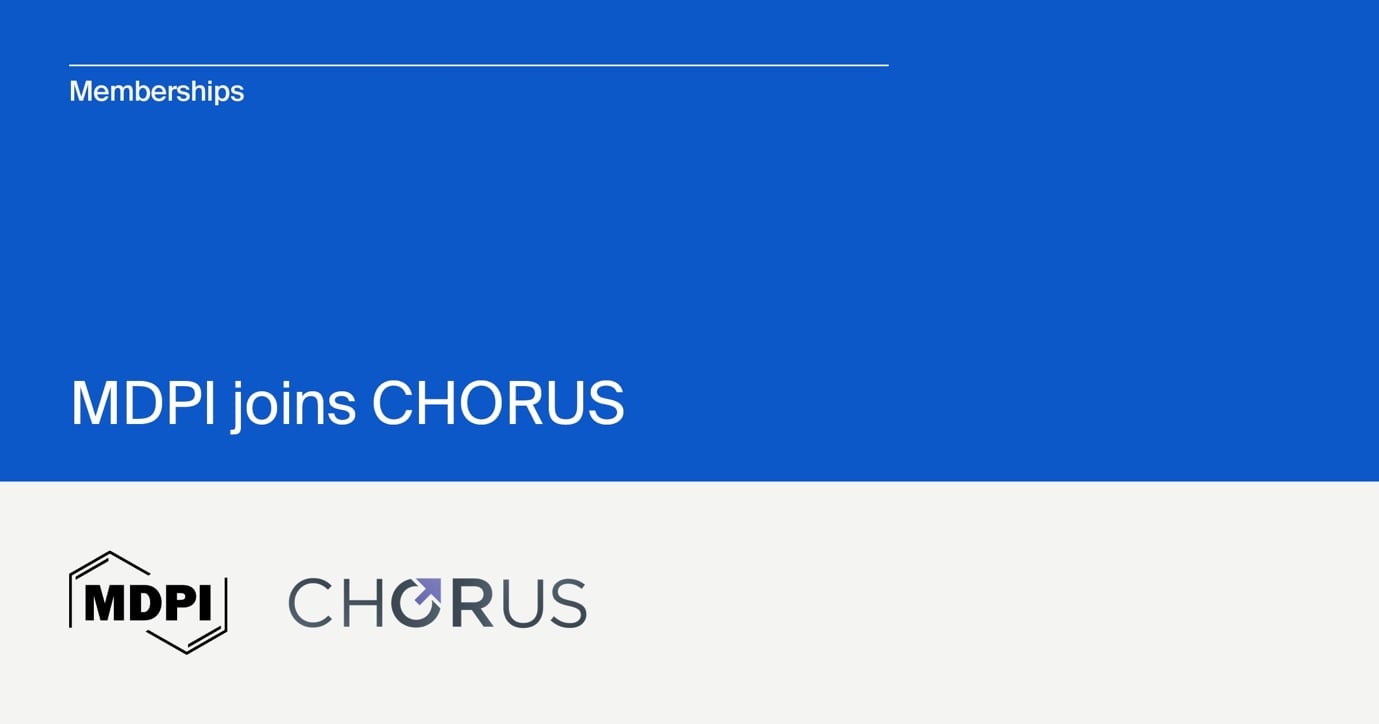
I am pleased to share that MDPI is now an Affiliate Member of CHORUS, a not-for-profit organization dedicated to ensuring public access to articles reporting on U.S. government-funded research. This partnership highlights our long-standing commitment to advancing Open Access (OA) publishing and meeting funders’ open research requirements.
Read the full announcement here.
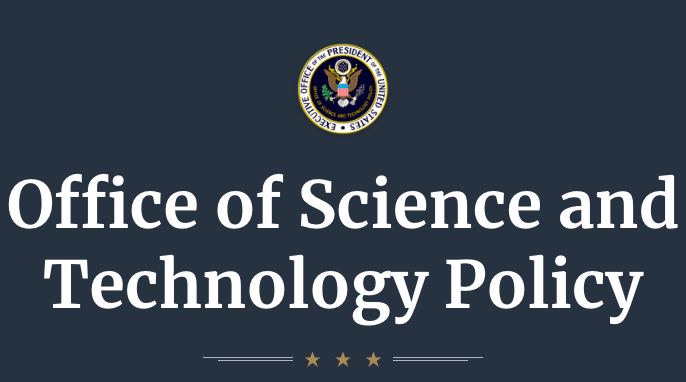
With the White House Office of Science and Technology Policy (OSTP) 2022 memorandum calling for immediate public access to all federally funded research by 2026, this partnership positions MDPI to further support academic institutions in adhering to national mandates while providing authors with fully compliant (CC-BY) OA journals.
The CHORUS platform went live in July 2014 and includes NASA, the U.S. Department of Energy, the U.S. Department of Defense, the U.S. Geological Survey, and the National Science Foundation.
“This partnership positions MDPI to further support academic institutions in adhering to national mandates”
Joining CHORUS perfectly aligns our mission as the leading OA publisher, which is to drive transparency and innovation in scholarly publishing, with that of CHORUS itself, which is to advance Open Access research. It will also support MDPI publications from organizations such as NASA, with 1,200 research papers published by NASA-affiliated authors as at 31 August 2024.
Impactful Research
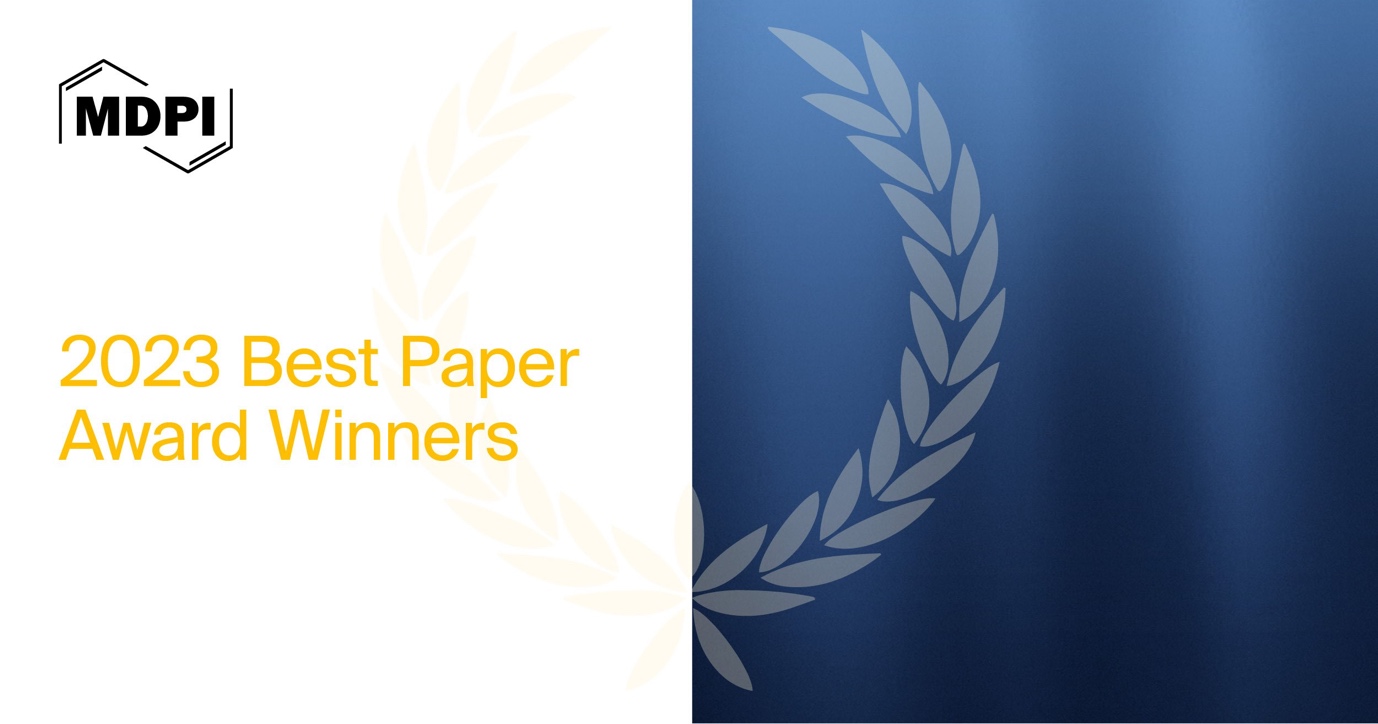
MDPI’s Best Paper Awards—Award-Winning Papers in 2023 Announced
MDPI is committed to supporting and recognizing the academic community and is proud to announce the recipients of the 2023 Best Paper Awards, which recognize high-quality papers of significant scientific merit and impact. Each year, the editors of our journals carefully select papers that showcase outstanding scientific achievement.
This year, 115 Best Paper Awards were presented, chosen from 346 exceptional papers in a highly competitive selection process. Congratulations to the authors for their remarkable contributions!
To learn more about all the awardees and their research projects, visit the following pages:
- Biology and Life Sciences
- Business and Economics
- Chemistry and Materials Sciences
- Computer Sciences and Mathematics
- Engineering
- Environmental and Earth Sciences
- Medicine and Pharmacology
- Public Health and Healthcare
- Social Sciences, Arts and Humanities
- Physical Sciences
About MDPI Awards
MDPI regularly offers various awards to recognize researchers, particularly young scientists, and to promote communication within the scientific community. These awards exist to inspire and acknowledge talented scientists who have made significant contributions to advancing their fields.
To find out more MDPI awards, please click here.
“Our awards exist to inspire and acknowledge talented scientists”
Inside MDPI

MDPI AI Team Presented at EuroSciPy 2024 in Poland
As part of the CEO Letter, I hold dear this ‘Inside MDPI’ section, where I have an opportunity to highlight various projects, teams and updates within our organization. As such, I’m happy to showcase the following presentations from members of MDPI’s Artificial Intelligence (AI) team, which were recently presented at the EuroSciPy 2024 (16th European Conference on Python in Science). This conference took place in Szczecin, Poland from 26–30 August.
“This event was a great opportunity to reinforce our commitment to innovation and excellence in publishing”
MDPI colleagues Frank Sauerburger (AI Tech Leader) and Daniele Raimondi (Senior Data Scientist) both presented at the conference. Frank discussed MDPI’s AI infrastructure, while Daniele showcased a new methodological approach we have been developing to track the journey of rejected academic manuscripts. This approach combines AI, data science and analytics to improve the identification of manuscripts and authors, enhancing our understanding of publishing dynamics.
This event was a great opportunity to reinforce our commitment to innovation and excellence in publishing. It also allowed us to contribute to the academic discussion on integrating AI and data science into scholarly communication.
From data analysis in Jupyter Notebooks to production applications: AI infrastructure at reasonable scale – Frank Sauerburger
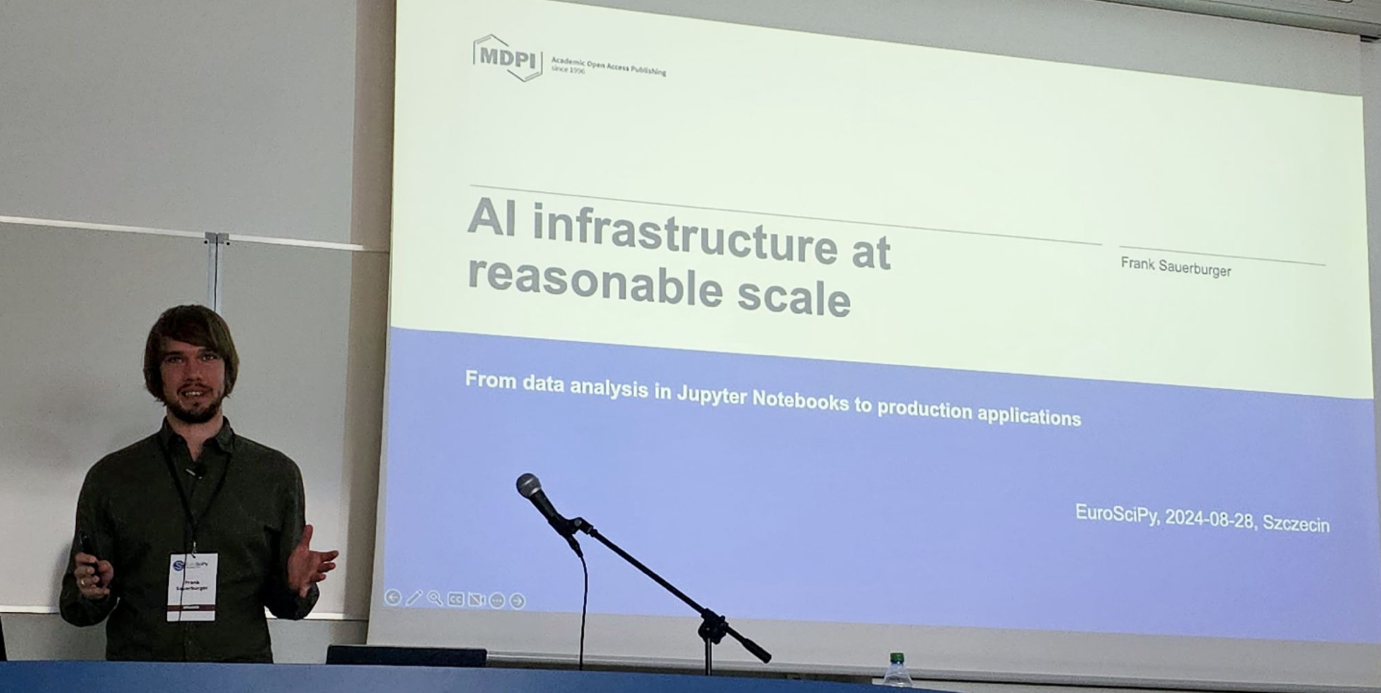
Frank’s presentation on MDPI’s AI infrastructure provided a chance to showcase the advanced technological frameworks that power our operations. Given the technical and academic focus of EuroSciPy, this talk demonstrated how MDPI’s AI capabilities are not only cutting-edge but also central to driving efficiency and innovation in scholarly publishing. Engaging with the EuroSciPy community helps position MDPI as a leader in applying AI within the publishing industry, fostering potential collaborations and attracting interest from top researchers.
A Qdrant and Specter2 framework for tracking resubmissions of rejected manuscripts in academia – Daniele Raimondi
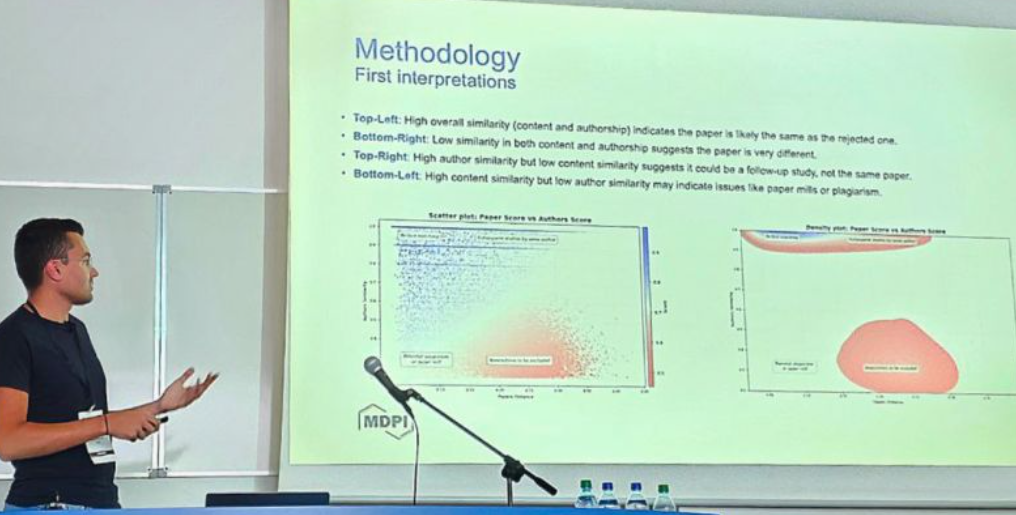
Daniele’s talk on the novel methodological approach that combines AI, Data Science, and Analytics was crucial in highlighting how MDPI is advancing the precision and effectiveness of manuscript and author identification. This approach is pivotal in enhancing our understanding of publishing dynamics and ensuring the quality and integrity of the academic content we manage. By presenting at EuroSciPy, we had the opportunity to engage with an audience deeply involved in scientific computing, gaining feedback and insights that could further refine our methodologies.
Thank you, Frank and Daniele, for representing MDPI so well!
I will share more about MDPI’s AI team and projects in upcoming CEO Letters, as we have a well-rounded AI and Data Team working on an exciting suite of AI products for MDPI and the scholarly community at large.
Coming Together for Science
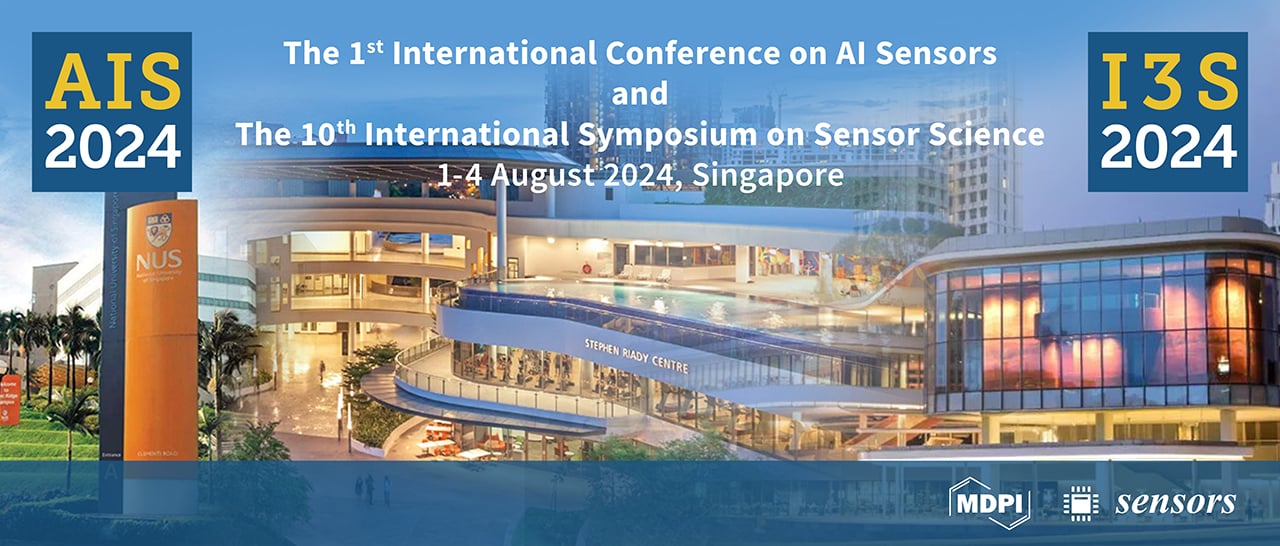
The 1st International Conference on AI Sensors & The 10th International Symposium on Sensor Science
I am pleased to share the success of our MDPI conference The 1st International Conference on Artificial Intelligence (AI) Sensors and the 10th International Symposium on Sensor Science in Singapore this past 1–4 August.
With nearly 400 attendees, the event brought together researchers and industry experts from China, Singapore, Japan, Korea, Taiwan, India and other countries to share their findings on the latest developments in sensors, sensing technology, artificial intelligence for sensing applications and AI-enhanced sensing systems.
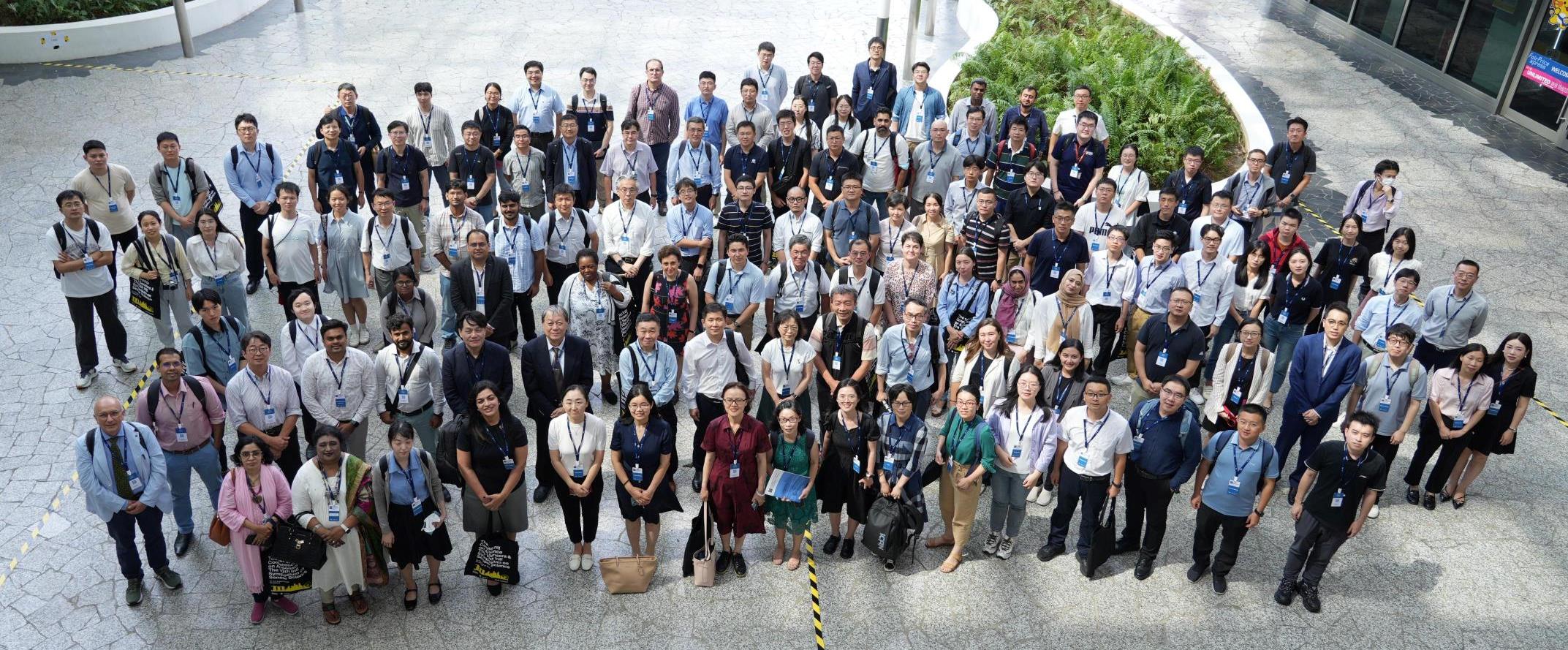
We accepted a total of 355 abstracts, featuring 772 authors from 28 countries. Over the course of the four-day event, 66 posters were displayed and 296 talks were delivered, including 4 plenary talks, 46 keynote speeches, 122 invited talks, and 124 selected oral presentations. View the event gallery here.
I am pleased to announce the winners of the four awards, including Best Presentation and Best Poster, recognizing the contributions of our participants during the conference.
Looking ahead, the 2nd International Conference on AI Sensors and Transducers is scheduled to take place from 29 July to 5 August, 2025, in Bangkok, Thailand.
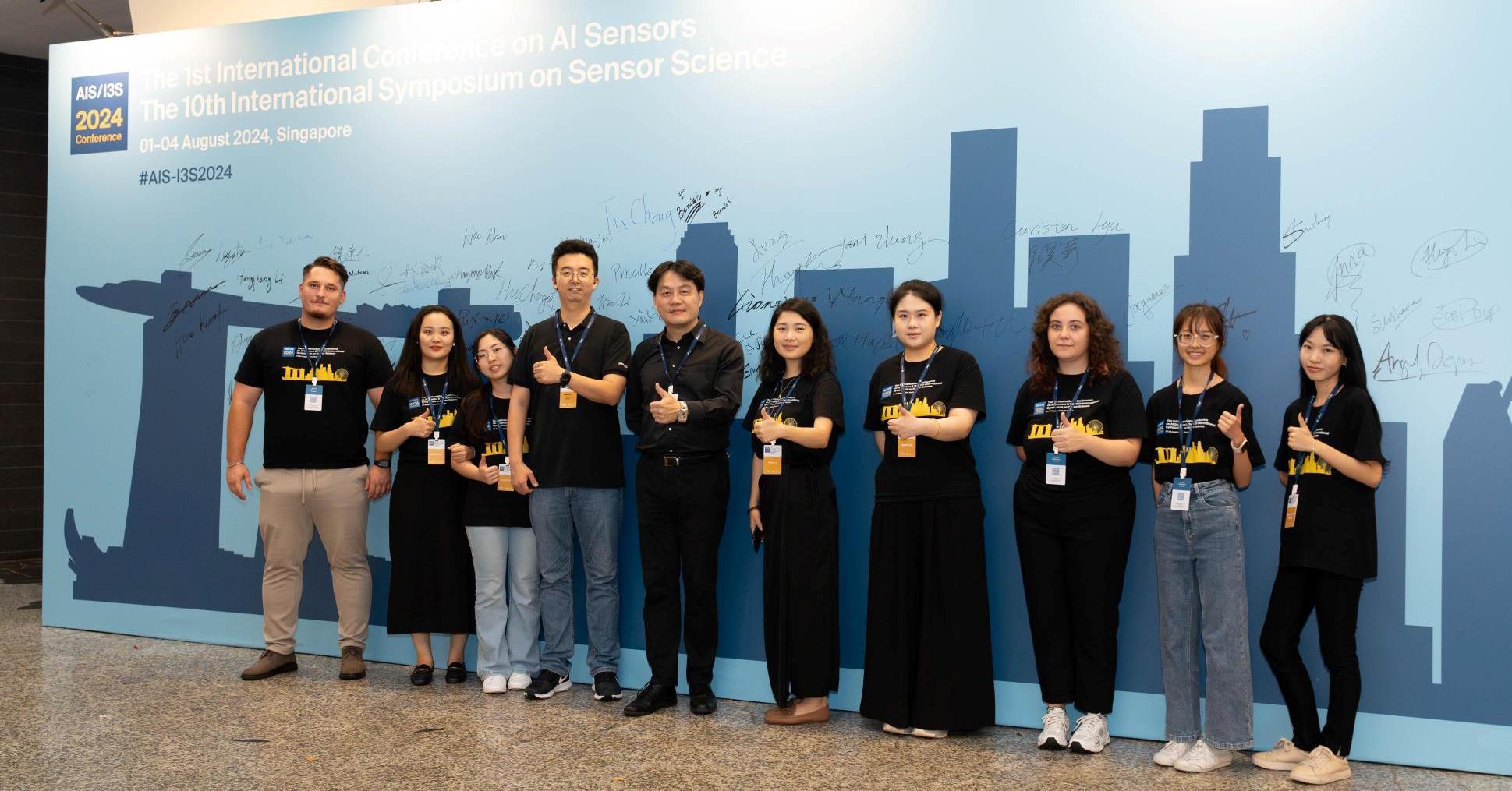
Thank you to our Conference team, including Ionut Spatar, Teodora Nicoleta Cremene, Ang Kai Lin, Benjamin Tay, Leong Jin Yue Esther, Wong Jolin, Judith Wu, Alethea Liu and Flora Li, who were involved in making this event a success. A big thank-you also goes to our local MDPI colleagues for their support: Yu Nwe Soe, Hen Chu Yang, Kwah Zhi En Watcharapong, Zephan Yang, Daphne Neo, Huimin Cheng, Nathan Li and Ting Yin.
Upcoming In-Person Event
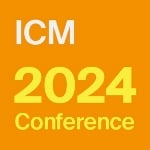
25–27 September, 2024
The 5th International Conference on Materials: Advances in Material Innovation
Location: Basel, Switzerland
ICM 2024 will unite experts to share insights on recent advancements in Materials Characterization, Processing and Manufacturing.
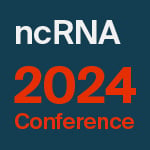
7–9 October, 2024
Non-coding RNA World 2024: Exploring Mechanisms, Designing Medicines
Location: Basel, Switzerland
ncRNA 2024 will explore the latest advances in the field, covering topics from basic biology to medical and technological applications.
Find more upcoming MDPI events here.
Closing Thoughts

The 2nd Sustainable Publishing Forum
In 2022, the International Association of Scientific, Technical and Medical Publishers (STM) outlined three goals to reflect the academic community’s shared aspirations: promoting Open Science, maintaining research integrity and fulfilling social responsibility. Open Science has evolved from the Open Access movement of the early 2000s to become a preferred model in academic publishing. Publishers and academic journals play a crucial role in ensuring research integrity, with efforts to prevent misconduct markedly on the increase now.
As the world faces sustainability challenges, the academic publishing industry is increasingly committed to contributing the achievement of the United Nations Sustainable Development Goals (SDGs). Many publishers are implementing strategies to support these objectives, including ours, which you can view here.
The 2nd MDPI Sustainable Publishing Forum provided a platform for global editors and publishers to discuss these themes, aiming to strengthen collaboration and advance the contributions that scientific publishing can make to academia and society.
“Open Science has evolved to become a preferred model in academic publishing”
The 2nd Sustainable Publishing Forum
We hosted MDPI’s 2nd Sustainable Publishing Forum in Beijing, China, on 15–16 August, attracting nearly 120 attendees from local and international publishers, university presses, scientific and technical journal associations, libraries and the Chinese Academy of Sciences. The event focused on promoting Open Science, maintaining research integrity, and fulfilling social responsibility.
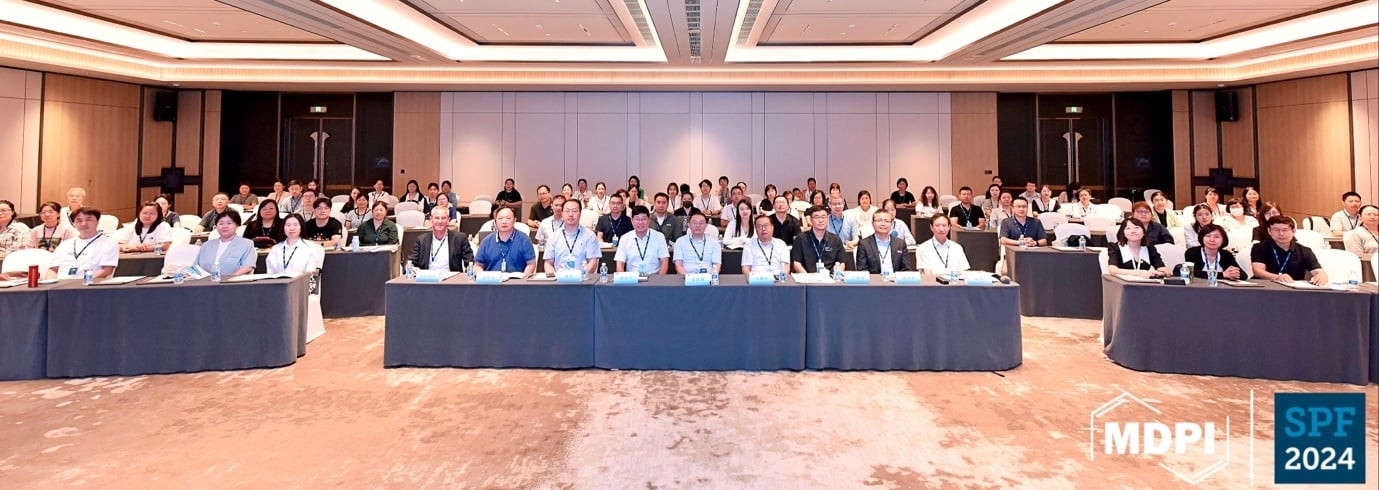
This was an excellent opportunity for us to share more with conference attendees about the approach of our research integrity team. Our Head of Publishing, Peter Roth, also participated, speaking on how to identify and avoid predatory publishers and about the principles that underpin ethical academic publishing.
I extend my thanks to all of our conference speakers, including Hylke Koers (STM Solutions), who presented on STM Trends 2028 and shared insights on the STM Integrity Hub, of which MDPI is a member.
Chief Executive Officer
MDPI AG
19 August 2024
MDPI’s 2023 Young Investigator Awards—Winners Announced

MDPI’s Young Investigator Awards recognize promising early career scientists, acknowledge their contributions, and foster collaboration within the scientific community. We are proud to announce the recipients for 2023, who were carefully selected by the journals’ esteemed Award Evaluation Committee.
We extend our heartfelt congratulations to the 79 winners of MDPI’s 2023 Young Investigator Awards for their excellent contributions in their research field. We look forward to seeing these rising stars continue to contribute to the advancement of science.
MDPI will continue to support and recognize the academic community. To explore details about the awardees by field, please visit the individual pages listed below:
Congratulations to all the winners for their exceptional contributions and dedication to advancing scientific research.
About MDPI Awards:
To support the academic community, particularly young researchers, and to enhance communication among scientists, MDPI journals regularly offer various awards to researchers in specific fields. These awards, serving as a source of inspiration and recognition, help to elevate the profiles of talented individuals who have made outstanding achievements and are making significant contributions to advancements in their respective fields.
To find out more about MDPI awards, please click here.
7 August 2024
MDPI Insights: The CEO's Letter #14 - New Headquarters, Marketing, Poland

Welcome to the MDPI Insights: The CEO's Letter.
In these monthly letters, I will showcase two key aspects of our work at MDPI: our commitment to empowering researchers and our determination to facilitating open scientific exchange.
Opening Thoughts
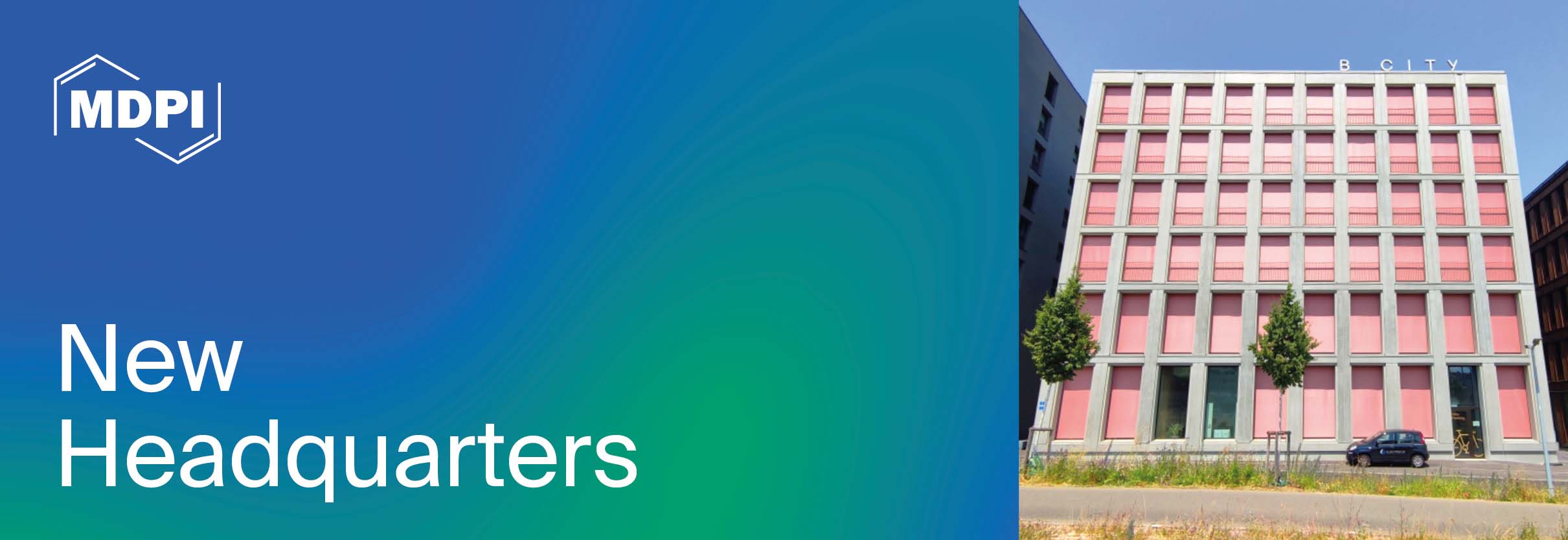
MDPI Moves to New Headquarters in Basel, Switzerland

I am excited to share that MDPI has moved to a new state-of-the-art office space in Basel, Switzerland. This move consolidates our operations by bringing together our two previously separated Basel offices into one central location.
We are always growing our talent pool and encourage you to view our Careers Page for the positions available in Basel and across our offices.
New Address: Grosspeteranlage 5, CH-4052 Basel, Switzerland
Effective Date: 1 July 2024
This new chapter in our company’s journey is designed to continue our mission of positioning MDPI as a leader in Open Access (OA) publishing, highlighting our commitment to making scholarly research accessible to everyone.

Boasting modern amenities, improved meeting and event spaces designed to support our growing needs, the new location provides a more collaborative and efficient working environment for our employees. The location offers convenient accessibility to public transportation and is situated near the Basel SBB railway station, with a variety of nearby services and amenities.
In fact, I can see the trains right outside of my window as I write these lines!
This move marks an exciting milestone in MDPI’s development, and I am confident that the new headquarters will serve as an inspiring and productive space for everyone. We also very much look forward to welcoming visitors here. You can read more about MDPI's history here.
“This new chapter continues our mission of positioning MDPI as a leader in OA publishing”
For Those New to MDPI
A pioneer in scholarly, Open Access publishing, MDPI has supported academic communities since 1996. MDPI is leading the transition to Open Science by making a greater proportion of the research conducted worldwide free and accessible to everyone. To date, over 3.5 million researchers have entrusted MDPI with publishing their scientific discoveries. MDPI’s editorial process is bolstered by a network of dedicated reviewers, a team of 6,000 professional, well-trained staff members, and an in-house article submission platform designed to ensure efficient processes within its 440 fully Open Access titles. MDPI supports more than 800 academic institutions worldwide, helping them adhere to national mandates while facilitating authors’ publication in fully compliant (CC BY) Open Access journals.
Impactful Research
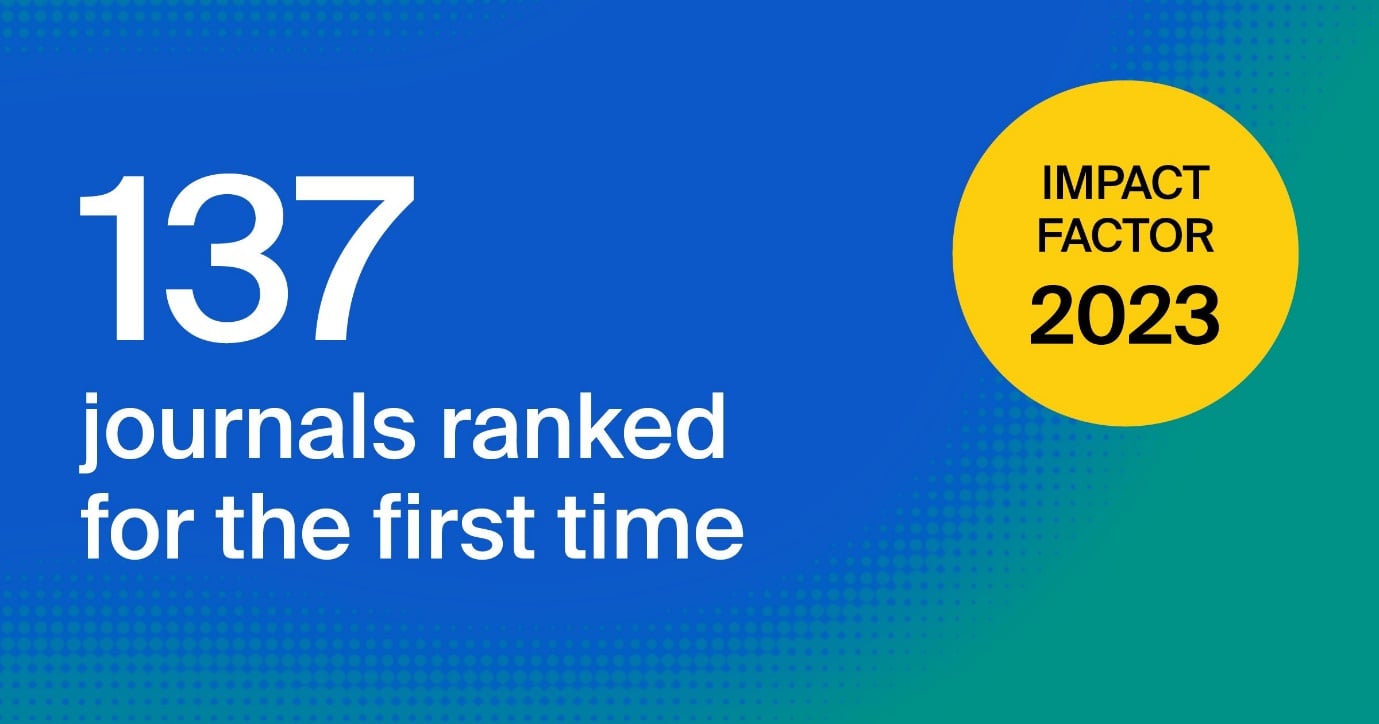
New and Emerging MDPI Journals Making an Immediate Impact
Unpacking some of the Impact Factor updates from the June CEO Letter, I wanted to dive a little deeper into the 137 MDPI journals which received Impact Factor for the first time.
Academic authors highly value efficient publishing processes, robust editorial support, and the opportunity to publish in high-impact journals. We are proud that our newly launched journals typically achieve coverage in the Emerging Sources Citation Index (ESCI) of the Web of Science within just a few years, with a median time of only three years from release to inclusion.
As part of our commitment to advancing academic research and providing high-quality OA publishing, we actively seek new research areas to expand our portfolio of journals. We have a proven track record of successfully establishing new journals.
Our dedicated teams excel in fostering dynamic editorial boards and working closely with Editors-in-Chief (EiC) to define the precise scope and focus of each new journal. Our expertise extends to collaborating with indexing services, ensuring that our journals comply with best practices and are indexed promptly in all relevant databases.
Emerging Titles Ranked for the First Time
Our commitment to excellence is reflected in the annual impact metrics released this past June. The latest edition of the Journal Citation Reports (JCR) showcases the integration of journals from the ESCI in the new unified category rankings, providing a simplified and more complete view of all journals within each subject category, including newly established titles.
Out of 137 new and developing MDPI journals ranked in the 2024 release, 79 are in the top half (Q1 or Q2) of their categories. Here is a breakdown of the number of MDPI’s ESCI-indexed journals by quartile in the JCR:
| Quartile | No. of journals |
| Q1 | 17 (12.4%) |
| Q2 | 62 (45.3%) |
| Q3 | 43 (31.4%) |
| Q4 | 15 (10.9%) |
| Not ranked (humanities-related journals) | 2 |
These rankings highlight our success in rapidly establishing high-impact new journals. Among those that made it directly into the top 25% of their category are the International Journal of Neonatal Screening, Journal of Xenobiotics, Polysaccharides, Smart Cities, and thirteen other journals.
You can browse MDPI journals by Indexing. Simply visit our Journals page and select from the list of Indexing bodies in the top left-hand corner.
Inside MDPI

MDPI Corporate Marketing Strategy and Team Meeting 2024
In July, I hosted the annual Corporate Marketing strategy and team-building activity with 15 of our team members.
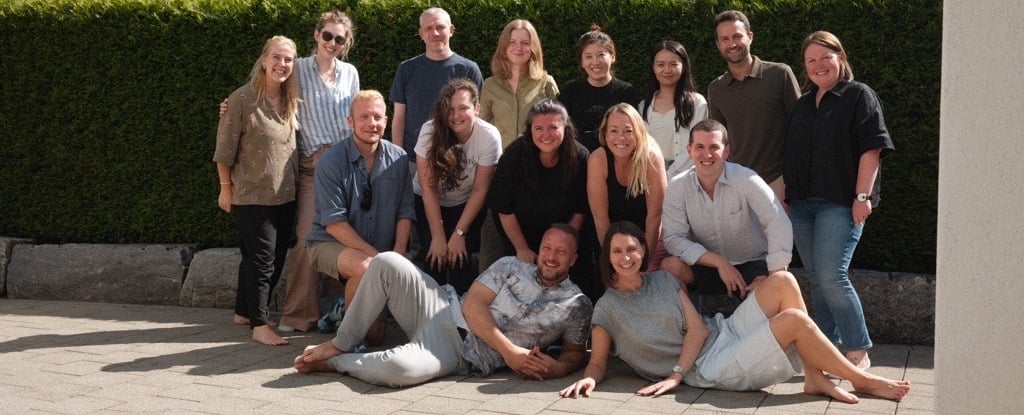
The aim was to align the Corporate Marketing strategy with MDPI's goal of becoming the world's most trusted OA publisher. While we provide a high-level publishing experience for our authors, as seen from our surveys, we need to keep building on our transparent and open communication to foster trust within the scholarly community and continue enhancing our reputation.
The Corporate Marketing team plays an important role as the mouthpiece for all our major activities within MDPI, especially those that model what it means to be a trusted partner. The purpose of the strategy meeting was to develop a feeling of trust in one another and an understanding of how to inspire trust in the stakeholders with whom we interact.
“We need to keep building on our transparent and open communication to foster trust within the scholarly community”

We conducted a set of activities to facilitate that sense of mutual trust and trustworthiness. Examples of some activities we worked on during this strategy-building event include:
- Exploring what trust means
- ‘Letter to self’
- ‘The brand I most trust’
- Most Trusted Academic Publisher
- ‘The brand I would like MDPI to become’
- ‘The 2029 MDPI Annual Report’
- Voice of Customer and Share of Voice – survey/data update on MDPI Brand Experience and Brand Perception
- Integrate Trust-Based Objective into Marketing Plan
- ‘Becoming the MDPI experience’
- ‘Trusting the next steps’
While two days is not enough to finalize a marketing strategy, it is sufficient to get everyone who attended into the mindset of the direction in which we are working. From here, we will develop a program with next steps on main projects, update communications, and collaborate with team leads to incorporate this approach into our work going forward.
As a marketing team, we can communicate our messages, but trust has to be built at every touchpoint in the stakeholder journey. Just talking about it isn’t enough. We need to be about it. That’s a role each of us plays, from editorial to IT, from marketing to HR. We must build trust from the inside out. It starts with each manager and resonates out via every team member.
As a company, our goal is to give all stakeholders with whom we interact – whether internal or external – the experience of working with an organization it can trust.
Coming Together for Science
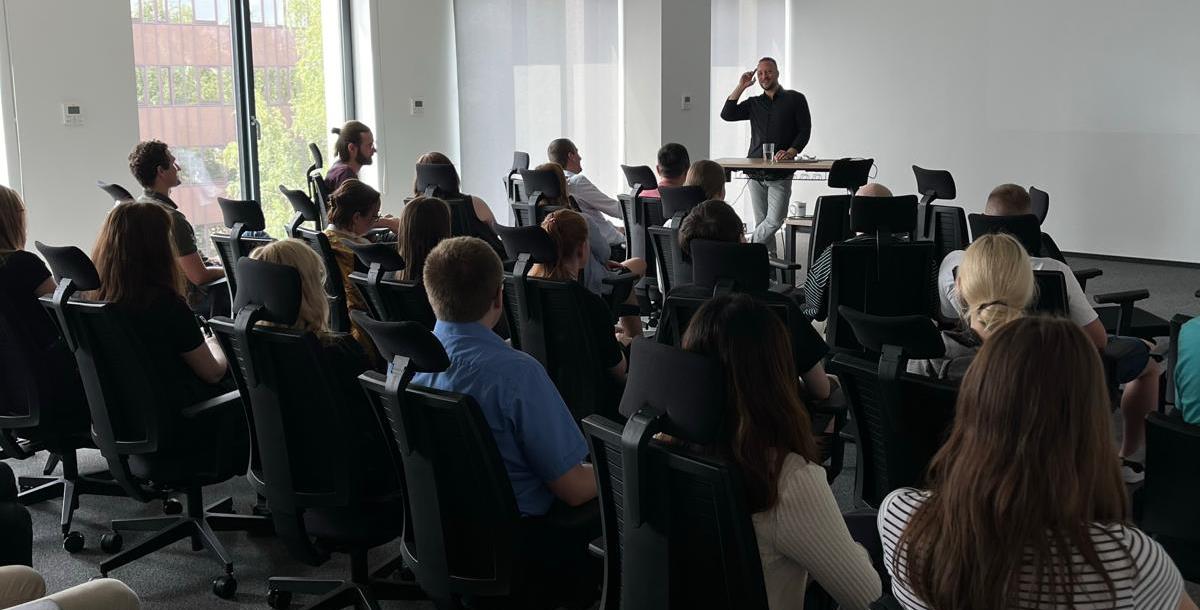
MDPI in Poland: Krakow Office
In July, I had the pleasure of visiting our Krakow office, following my recent trip to Warsaw to meet with the Polish Ministry of Science and Higher Education.

During these visits, I prioritized meeting with our Office Manager, Editorial Director, Group Leads, and members from various teams, including editorial, production, marketing, and journal relationship specialists, to understand their roles and current challenges. Instead of a formal presentation, I opted for an open discussion, sharing updates from headquarters to engage with colleagues in a more personal way.
Our Krakow office has many things to be proud of, including a large number of PhD colleagues (over a third of its staff holds a PhD degree). Krakow provides an opportunity for expanding beyond the 100 colleagues we currently have, by adding new hires in departments including editorial, production and marketing, among others.
About our Krakow office
- Opened in 2020
- 99 staff members as at 1 August 2024
- Main Departments include Editorial, Production, English Department, JRS, PR
Our Krakow office participates in international conferences, conducts author trainings and scholar visits, and engages in local market outreach. The office is also a member of the Polish Chamber of Commerce for High Technology (IZTECH) and is working on expanding its local engagement.
Krakow is the second-largest city in Poland, with a population of about 800,000. It also has a large student population of around 128,000, with seven universities. This means that roughly one in every eight residents is a student.
Poland and MDPI

Poland is a crucial market for MDPI. From 2020 to June 2024, Poland ranked 7th in submissions and 5th in publications for MDPI research articles. As at 31 July 2024, Poland ranks 7th in total MDPI publications, with approximately 70,000 research papers.
Between 2020 and June 2024, 61,500 authors from Poland published with MDPI. As at 30 June 2024, there are 1,205 active Editorial Board Members (EBMs) from Poland, with 661 EBMs (55% of the total) having an H-index over 25.
We also have four Editors-in-Chief (EiC) from Poland leading our journals: Coatings, Venereology, Advances in Respiratory Medicine, and Limnological Review, along with six Section EiC.
In 2023, we received approximately 21,000 submissions from Polish-affiliated authors, of which 12,032 were published.
“Poland is a crucial market for MDPI”
Meeting with Ministry of Education

On 22 July, we visited Warsaw to meet with the Polish Ministry of Science and Higher Education.
We were pleased to learn that they are strong supporters of the OA publishing model and value MDPI’s approach to the peer-review process, including our high ethical standards for quality control.
In 2023 Polish authors predominantly published their papers in OA, with MDPI holding the largest market share in OA publications within the country.
Our commitment to collaborating with Polish institutions is evident through our 33 Institutional Open Access Program (IOAP) agreements with prestigious institutions such as the University of Warsaw, the University of Wroclaw, the Jagiellonian University, and Gdańsk University of Technology. Through IOAP discounts, a healthy waiver rate, and our peer-review voucher system, we provide the Polish scholarly community with significant savings in OA publishing. The Minister greatly appreciated these efforts and our commitment to offsetting some of the APC costs.
We discussed industry concerns about the threat of papermills and presented the preventive measures MDPI has in place to mitigate this risk and uphold high ethical standards. We informed them of our commitment to combating papermills, including our involvement with United2Act and the STM Research Integrity Hub, as well as our efforts to expand our research integrity team and explore proactive measures.
Closing Thoughts

MDPI Thought Leadership Op-ed on Open Access is Now Live on Politico
I am pleased to share that our thought leadership Op-ed piece on Open Access (OA) is now live on Politico. This is a nice push for continued influence and support of OA among policymakers and industry leaders.
Why Politico?
Politico's reputation as a highly credible and influential news platform makes it an important venue to reach key opinion leaders (KOL) from academia, policymakers, and thought leaders from many industries. This visibility helps promote the OA philosophy.
Open Access: A Moral Imperative for Progress
In this piece, I discuss the necessity of making scientific research freely available to all. I argue that publicly funded research should be publicly accessible, highlighting how OA democratizes scientific knowledge, accelerates research availability, and fosters collaboration.
“Open Access is a fundamental right for all citizens”
Democratizing scientific communication
The impulse to democratize scientific communication is nothing new. OA may seem like a recent innovation, but its principles have historical roots traceable to Europe in the 15th century. Just as the printing revolution accelerated the dissemination of new ideas, OA publishing unlocks new scientific insights that would otherwise only be accessible to a few.
Benefits for scholars: amplifying impact through Open Access
Authors publishing in an OA journal can expect more citations of their work, increasing its potential impact. Research findings that are freely available are more likely to be cited than those hidden behind a paywall. Freedom of access greatly increases the potential audience for each paper, fostering a sense of community among researchers worldwide. Heightened visibility can attract prospective collaborators and employers for young scientists. At MDPI, we believe that all these factors can only accelerate the advance of science. Additionally, authors retain copyright in their work instead of signing it away, permitting broader dissemination under Creative Commons licenses and increasing its capacity for impact.
The moral imperative
OA is not just a matter of scientific policy; it is a fundamental right for all citizens and a prerequisite for a brighter, more informed future. Publicly funded research should be a top priority, and I am pleased to see policy moving in this direction. Our capacity to generate transformative scientific insights has to be democratized. The question today is no longer whether we can afford to embrace OA; rather, it is whether we can afford not to.
Chief Executive Officer
MDPI AG
6 August 2024
Join Us at “MDPI Open Access—An Author Training Program”, 2 October 2024, the Agri-Food Research and Technology Centre of Aragon (CITA), Zaragoza, Spain

Three MDPI journals – Animals (ISSN: 2076-2615), Agronomy (ISSN: 2073-4395), and Foods (ISSN: 2304-8158) – are collaborating with the Agri-Food Research and Technology Centre of Aragon (CITA) to hold an author training session. This session will provide authors with a comprehensive understanding of MDPI's publishing process, current Special Issues in these journals, and opportunities tailored for different author groups. Academic editors will run the session, ensuring that participants gain the knowledge needed to maximize their publishing potential.
Date: 2 October 2024
Time: 11:30–13:00
Venue: The Agri-Food Research and Technology Centre of Aragon
Registration link: https://www.surveymonkey.com/r/6QB2H9L
Schedule:
|
Time |
Program and Content |
Speaker |
|
11:00–11:45 |
Introduction to MDPI, Animals journal and Editorial Process |
Ms. Paula Navarro |
|
11:45–12:15 |
How to Reply to Reviewers and Scientific Writing |
Mr. Iñigo Aristizábal |
|
12:15–13:00 |
Discussion after Presentation |
|
MDPI speakers:
|
Speaker |
Biography |
|
|
Ms. Paula Navarro is a biotechnologist with more than 6 years of experience in the scientific publishing industry. She joined MDPI in January 2018 and, after holding several roles (Assistant Editor, Section Managing Editor, Group Leader), she currently works as a Journal Relations Specialist for five journals: Genes, Antibodies, Dietetics, Epigenomes, and JMAHP. In recent years, she has organized and attended numerous online and in-person meetings with scholars. She has also attended several international conferences as MDPI’s representative. |
|
|
Mr. Iñigo Aristizabal is a biochemist with strong expertise in the academic publishing industry. He joined MDPI’s Barcelona office as an Assistant Editor in November 2017 and has worked as a Section Managing Editor and a Journal Relations Specialist, primarily for Genes, Cardiogenetics, DNA, and J—Multidisciplinary Scientific Journal, helping these journals with scholarly meetings and booth attendance at both virtual and in-person conferences. |
2 August 2024
MDPI Romania Author Training Sessions in May
In May, MDPI Romania held three author training sessions – one endorsing an external event and two stand-alone sessions.
The National Session of Scientific Student Communications took place at Technical University Cluj on 17 and 18 May 2024. MDPI Romania sponsored this event and contributed an author training session on the production of research papers and case study analyses. JRS Norbert Kiss gave a presentation called The World of Open Access to explain different open access publishing models and the benefits of open access publishing. His presentation highlighted the impact of open access publishing on scientific progress and innovation.
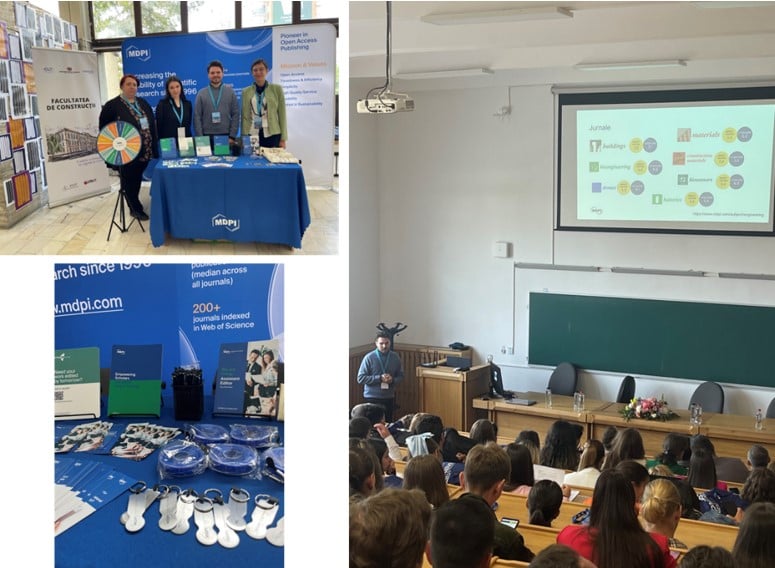
On 29 May 2024, MDPI Romania hosted an author training session for Ph.D. students, early career researchers, and professors at the Carol Davila University of Medicine and Pharmacy. In collaboration with Prof. Andreea Arsene, JRS Ioana Paunescu prepared two presentations: The Steps of the Publishing Process and Elaboration of a Peer Review Report. In her first presentation, she delved into MDPI’s history and mission, MDPI’s editorial process, and MDPI journals of various scopes that are accepting submissions. Her second presentation outlined the types of peer review, the contents of a peer review report by an MDPI reviewer, and the responsibilities of an MDPI reviewer.
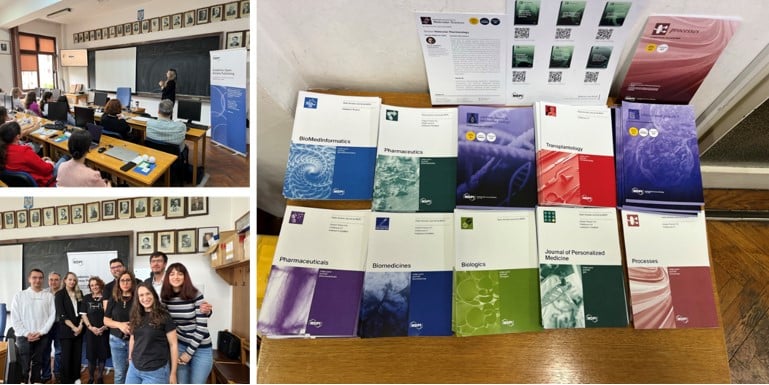
MDPI Romania also hosted an author training session at the Iasi University of Life Sciences on 29 May 2024. JRSs Laurentiu Preda and Cosmin Artan gave four presentations: Efficient Writing of an ISI-Indexed Scientific Article, Benefits of Publishing in the Open Access Model, Various Methods of Open Access Publishing, and MDPI Guide for the Article Review Process. The first three presentations offered guidance on how to improve academic writing, the fourth focused on how to write peer review reports. A highly interactive discussion followed the presentations, during which the JRSs provided extensive answers to attendees’ questions.
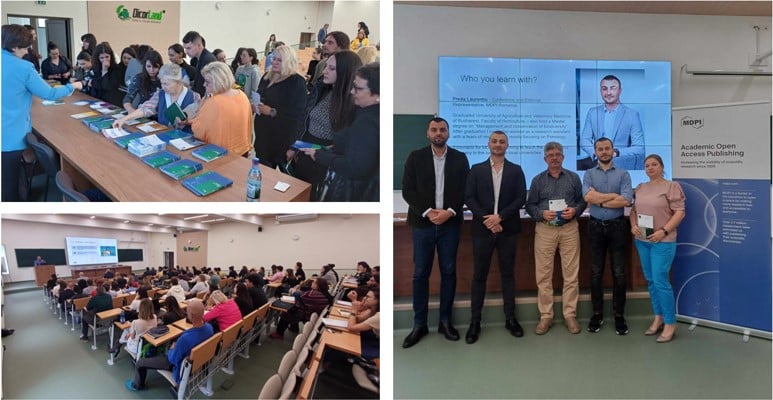
MDPI is grateful for all the attendees, speakers, and organizers involved in these events. Through their enthusiasm and dedication, these events were great successes.
26 July 2024
Animals Exceptional Reviewers List 2024

We are thrilled to share the updated Exceptional Reviewers List 2024. This program was designed to recognize and honor scholars who have consistently delivered exceptional review reports to our journal. Committed to fostering rigorous research and promoting knowledge exchange, the journal Animals (ISSN: 2076-2615) recognizes the significant role our reviewers play in maintaining the quality and integrity of the articles we publish. According to surveys conducted in 2023, 91% of our authors rate the peer review as good or excellent thanks to our pool of excellent reviewers.
We would like to express our sincere appreciation to all reviewers who have generously volunteered their time and expertise to assist in the peer-review process of Animals. Their dedication and attention to detail in evaluating manuscripts, offering valuable feedback, and contributing to academic rigor are truly commendable.
The Exceptional Reviewers List was introduced in April 2024. Each quarter, we will be selecting a group of outstanding reviewers and introduce them here.
Q1:
Name: Dr. Sławomir Mitrus
Affiliation: Institute of Biology, University of Opole, Opole, Poland
Interests: life history of animals; physiological ecology of animals; ecology and conservation of the European pond turtle (Emys orbicularis); ecology of ants
Name: Dr. Linda Van Bomme
Affiliation: 1 School of Natural Sciences, University of Tasmania, Hobart, Australia; 2 Fenner School of Environment and Society, Australian National University, Canberra, Australia
Interests: human wildlife conflict; wildlife management; predator ecology; conservation
Name: Dr. Richard D. Murray
Affiliation: Institute of Translational Medicine, University of Liverpool, Liverpool L69 3BX, United Kingdom
Interests: animal science; veterinary medicine; lameness in cattle; pathophysiology of pregnancy; digital dermatitis and dairy cattle
Name: Dr. Betty McGuire
Affiliation: Department of Ecology and Evolutionary Biology, Cornell University, Ithaca, NY 14850, USA
Interests: mammalian social behavior; parental care, and ecology; applied animal behavior; human–animal interactions; animal shelters; animal welfare
Name: Dr. Alejandro Casas-Alvarado
Affiliation: Neurophysiology, Behavior and Animal Welfare Assessment, DPAA, Universidad Autónoma Metropolitana (UAM), Mexico City 04960, Mexico
Interests: anesthesiology; pain assessment; pain management; animal behavior
Q2:
Name: Dr. Alejandro Plascencia
Affiliation: Faculty of Veterinary Medicine and Zootechnics, Autonomous University of Sinaloa, Culiacan 80260, Mexico
Interests: ruminal fermentation; ruminal metabolism
Name: Dr. Claudia Gittel
Affiliation: Rossdales Equine Hospital, Newmarket CB8 7NN, UK
Interests: veterinary medicine; equine science; regenerative medicine; ventilation; animal welfare; anesthesia; intensive care; pain management
Name: Dr. Marek Gaworski
Affiliation: Department of Production Management and Engineering, Warsaw University of Life Sciences, 02-787 Warsaw, Poland
Interests: animal behavior; dairy equipment; dairy technology; progress; welfare
Name: Dr. Luis M. Bautista Sopelana
Affiliation: Department of Evolutionary Ecology, National Museum of Natural History (MNCN - CSIC), 28006 Madrid, Spain
Interests: ethology; animal ecology; conservation biology; behavioral ecology; ornithology
Name: Prof. Dr. Aleksandro Schafer Da Silva
Affiliation: Department of Animal Science, Universidade do Estado de Santa Catarina (UDESC), Chapecó 89815-000, SC, Brazil
Interests: animal health; veterinary parasitology; biochemistry; clinical pathology; animal additives and supplementation
Q3:
Name: Prof. Dr. Ewa Joanna Godzińska
Affiliation: Laboratory of Ethology, Nencki Institute of Experimental Biology of the Polish Academy of Sciences, 02-093 Warsaw, Poland
Interests: ethology; neuroethology; altruism; aggression; entomology; myrmecology; ants; behavior of domestic animals (dogs and cats)
Name: Dr. Martin Maquivar
Affiliation: Department of Animal Sciences, Washington State University, Pullman, WA 99164, USA
Interests: applied reproductive management and physiology of beef and dairy cattle
Name: Prof. Dr. Han-Tsung Wang
Affiliation: Department of Animal Science and Technology, National Taiwan University, Taipei 10672, Taiwan
Interests: digestive tract microbes; rumen fermentation regulation; ruminant diet assessment; feed additives; protein and Enzyme; purification; biomaterials
Name: Dr. Sue Dyson
Affiliation: Independent Researcher, Suffolk, UK
Interests: improving the diagnosis of lameness and poor performance and maximizing the opportunity for horses to fulfill their athletic potential at whatever level
Name: Prof. Dr. Malcolm Jobling
Affiliation: Universitetet i Tromsø - Norges Arktiske Universitet, Tromso, Norway
Interests: fish feeding and nutrition; physiological energetics of cold-water ectotherms; physiological ecology; behavioral ecology - applications to aquaculture
18 July 2024
Meet Us at the 14th European Conference on Ecological Restoration (SERE2024), 26–30 August 2024, Tartu, Estonia

MDPI will be attending the 14th European Conference on Ecological Restoration (SERE2024) in Tartu, Estonia, which will take place from 26 to 30 August 2024. Ecological restoration is a topic that holds a prominent place on both political and scientific agendas. The decline in biodiversity demands our urgent attention, and degraded ecosystems around the world require an effective and knowledge-driven path to recovery. The SERE2024 will cover topics ranging from the theory and practice of restoring various ecosystems (wetlands, grasslands, forests, rivers, agroecosystems, urban and marine ecosystems) to the socioeconomic and political contexts of ecological restoration.
The following MDPI journals will be represented:
- Diversity;
- Land;
- Animals;
- Clean Technologies;
- Conservation;
- Ecologies;
- Environments;
- Forests;
- Geosciences.
If you are attending the conference, please visit our booth. Our delegates look forward to meeting you in person and answering any questions that you may have. For more information about the conference, please visit the following link: https://sere2024.org/.
12 July 2024
MDPI Webinar | World Hepatitis Day 2024, 29 July 2024

MDPI invites all experts recognized in their fields to attend the MDPI World Hepatitis Day Webinar 2024. Inspired by the collaborative spirit of World Hepatitis Day, this webinar aims to raise awareness about hepatitis and promote the development of innovative strategies to combat it. By engaging experts and the public, the webinar seeks to drive advancements and highlight the importance of collective efforts in scientific research and innovation.
We are looking forward to seeing you at the MDPI World Hepatitis Day Webinar 2024.
Title: MDPI World Hepatitis Day Webinar 2024
Date: 29 July 2024
Time: 15:00–17:00 (CEST) | 21:00–23:00 (CST Asia)
More Information: https://sciforum.net/event/WHD2024
This is a free webinar. After registration, you will receive a confirmation email containing information on how to join the webinar. Registrations with academic institutional email addresses will be prioritized.
Unable to attend? Register anyway and we will let you know when the recording is available for viewing.
Register for free:
Program:
|
Speaker/Presentation |
Time in CEST |
Time in CST Asia |
|
Host |
15:00–15:10 |
21:00–21:10 |
|
Assoc. Prof. Yee-Joo Tan |
15:10–15:40 |
21:10–21:40 |
|
Dr. Giuseppe Colucci |
15:40–16:10 |
21:40–22:10 |
|
Prof. Dr. Chia-Yen Dai |
16:10–16:40 |
22:10-22:40 |
|
Q&A Session |
16:40–16:50 |
22:40–22:50 |
|
Host |
16:50–17:00 |
22:50–23:00 |
Relevant Special Issues:
Animals
“Diseases of the Small and Large Intestine, Liver and Pancreas in Small Animals: Second Edition”
Edited by Dr. Alessio Pierini and Dr. Eleonora Gori
Deadline for submission: 20 December 2024
“Metabolic Disorders of Poultry”
Edited by Dr. Victoria Anthony Uyanga and Dr. Felix Kwame Amevor
Deadline for submission: 28 February 2025
Cancers
“Hepatitis Viruses and Cancer”
Edited by Prof. Dr. John Koskinas and Dr. Urania Georgopoulou
Deadline for submission: 1 November 2024
Cells
“Interdisciplinary Approaches to Studying Human Liver Biology and Promoting Organ Regeneration: Understanding the Curse of Prometheus”
Edited by Prof. Dr. David C. Hay, Dr. Matthew Sinton and Alvile Kasarinaite
Deadline for submission: N.A.
Children
“Old and New Therapeutic Strategies in Children with Liver Disease”
Edited by Dr. Raffaele Iorio and Dr. Fabiola Di Dato
Deadline for submission: 30 September 2024
Diagnostics
“Diagnosis, Management, and Prognosis of Liver Disease and Its Syndromes”
Edited by Prof. Dr. Chien Hao Huang
Deadline for submission: 31 August 2024
“Diagnostic and Prognostic Markers in Liver Diseases”
Edited by Dr. Dávid Tornai
Deadline for submission: 31 October 2024
“Diagnosis of Liver Disease”
Edited by Dr. Sung-Eun Kim
Deadline for submission: 31 December 2024
Gastroenterology Insights
“Novelties in Diagnostics and Therapeutics in Hepatology: 2nd Edition”
Edited by Dr. Giovanni Marasco and Dr. Matteo Renzulli
Deadline for submission: 31 December 2024
Journal of Personalized Medicine
“Chronic Liver Disease: New Targets and New Mechanisms”
Edited by Dr. Theodoros Androutsakos
Deadline for submission: 20 February 2025
Livers
“Liver Fibrosis: Mechanisms, Targets, Assessment and Treatment”
Edited by Prof. Dr. Ralf Weiskirchen and Prof. Dr. Tilman Sauerbruch
Deadline for submission: 20 December 2024
Medicina
“Editorial Board Members’ Collection Series: Gastrointestinal and Hepatic Diseases”
Edited by Prof. Dr. Ludovico Abenavoli and Dr. Marcello Candelli
Deadline for submission: 24 December 2024
“Advances in Liver Surgery”
Edited by Prof. Dr. Jai Young Cho
Deadline for submission: 24 December 2024
“Novelties in Chronic Liver Diseases”
Edited by Prof. Dr. Ludovico Abenavoli
Deadline for submission: 30 September 2024
Metabolites
“Research on Pharmacotherapy of Metabolic-Associated Fatty Liver Disease”
Edited by Dr. Aleksandra Bołdys
Deadline for submission: 30 September 2024
“Metabolic Syndrome and Non-alcoholic Liver Disease”
Edited by Prof. Dr. Mircea-Catalin Fortofoiu, and Dr. Luigi Boccuto
Deadline for submission: 20 October 2024
“Liver Injury and Regeneration—Metabolic Research”
Edited by Dr. Miguel Suárez Matías
Deadline for submission: 31 December 2024
Microorganisms
“Hepatitis B Virus Infection and Vaccine”
Edited by Dr. Nishi N. Prabdial-Sing
Deadline for submission: 15 December 2024
Nutrients
“Metabolic-Dysfunction-Associated Steatotic Liver Disease at the Forefront: Confronting Nutritional Obstacles in Advanced Chronic Liver Disease and Portal Hypertension”
Edited by Dr. Angelo Armandi and Dr. Federico Ravaioli
Deadline for submission: 15 October 2024
“Prevention and Treatment of Liver Diseases by Dietary Habits and Lifestyle”
Dr. Marica Cariello and Dr. Raffaella Maria Gadaleta
Deadline for submission: 15 December 2024
“Managing Nonalcoholic Fatty Liver Disease with Nutrition”
Edited by Dr. Nobuyuki Toshikuni
Deadline for submission: 25 December 2024
Pathogens
“Zoonotic Hepatitis E Virus: A Focus on Animals, Food and Environment”
Edited by Prof. Dr. Barbara Di Martino, Dr. Federica Di Profio and Dr. Andrea Palombieri
Deadline for submission: 10 October 2024
Vaccines
“Vaccines and Vaccination: HIV, Hepatitis Viruses, and HPV”
Edited by Dr. Ivan Schietroma and Dr. Sonia Moretti
Deadline for submission: 28 February 2025
“Vaccination and Treatments against Viral Hepatitis: Achievements, Challenges and Perspectives”
Edited by Dr. Bárbara Vieira Do Lago and Dr. Vinicius M. Mello
Deadline for submission: 15 March 2025
11 July 2024
Animals | Editor’s Choice Papers in the Section “Companion Animals”
Editor’s Choice Articles are selected based on suggestions from Animals’ Academic Editors worldwide. The journal’s Academic Editors select a small number of published articles that they consider will be of particular interest to our readers or important in their respective fields of research. We welcome you to read the Editor’s Choice Papers in the Section “Companion Animals”, a curated list of high-quality articles from 2022 to 2023 in this Section. The list of selected papers can be viewed below.
1. “Nutritional Composition and Untargeted Metabolomics Reveal the Potential of Tetradesmus obliquus, Chlorella vulgaris and Nannochloropsis oceanica as Valuable Nutrient Sources for Dogs”
by Ana R. J. Cabrita, Joana Guilherme-Fernandes, Inês M. Valente, Agostinho Almeida, Sofia A. C. Lima, António J. M. Fonseca and Margarida R. G. Maia
Animals 2022, 12(19), 2643; https://doi.org/10.3390/ani12192643
Available online: https://www.mdpi.com/2076-2615/12/19/2643
Editor’s Comments:
Food security is an increasing concern, and the environmental impact of pet food production is widely debated. The authors of the above study identified a novel, nutritionally balanced food suitable for dogs that can be made from microalgae.
2. “Babesia gibsoni Infection in Dogs—A European Perspective”
by Oliwier Teodorowski, Marcin Kalinowski, Dagmara Winiarczyk, Banu Dokuzeylül, Stanisław Winiarczyk and Łukasz Adaszek
Animals 2022, 12(6), 730; https://doi.org/10.3390/ani12060730
Available online: https://www.mdpi.com/2076-2615/12/6/730
Editor’s Comments:
The authors of the above review report confirmed cases of Babesia gibsoni infection in dogs in Europe. Most of these cases occurred in dog fighting breeds, especially American Pit Bull Terriers or related breeds, suggesting a breed-specific predisposition. Furthermore, rather than a tick bite, the main transmission route could be via wound contact with infected blood. The course of the disease is severe, and diagnosis and treatment are a challenge. The authors point out that B. gibsoni should be considered a possible emerging parasite in Europe.
3. “Expansion of Canine Heartworm in Spain”
by José Alberto Montoya-Alonso, Rodrigo Morchón, Sara Nieves García-Rodríguez, Yaiza Falcón-Cordón, Noelia Costa-Rodríguez, Jorge Isidoro Matos, Iván Rodríguez Escolar and Elena Carretón
Animals 2022, 12(10), 1268; https://doi.org/10.3390/ani12101268
Available online: https://www.mdpi.com/2076-2615/12/10/1268
Editor’s Comments:
Global warming favors the spread of vector-borne diseases, such as canine heartworm. The above study focuses on the epidemiology of heartworm in dogs and the impact of climate change in Spain. The study results show the expansion of canine heartworm in Spain, especially in northern regions where it has not been previously reported, such as the Basque Country. In some regions where the presence of Dirofilaria immitis has already been observed, its prevalence was not notable, probably because of the implementation of preventive measures in the dog population. The authors suggest that global warming, the mobility of animal reservoirs, and the modification of the landscape with high edaphic availability of water or stagnant water that provides suitable conditions for the presence of the culicid vectors have an impact on the expansion of D. immitis in Spain. The study results evidence the importance of the implementation of prophylactic programs in the canine population to control infection.
4. “Characterization of the Fecal and Mucosa-Associated Microbiota in Dogs with Chronic Inflammatory Enteropathy”
by David Díaz-Regañón, Mercedes García-Sancho, Alejandra Villaescusa, Ángel Sainz, Beatriz Agulla, Mariana Reyes-Prieto, Antonio Rodríguez-Bertos and Fernando Rodríguez-Franco
Animals 2023, 13(3), 326; https://doi.org/10.3390/ani13030326
Available online: https://www.mdpi.com/2076-2615/13/3/326
Editor’s Comments:
Disturbance of the intestinal microbiome (dysbiosis) is important in the pathogenesis of intestinal inflammation in dogs (and other species). However, most studies have only studied dysbiosis in fecal samples, which may not reflect what is happening in the small intestine where inflammation predominates. The authors of the above study compared the microbiota in the feces and duodenal biopsies of dogs with intestinal inflammation. The results showed dysbiosis in both areas compared with healthy controls. Furthermore, the results demonstrated greater changes in fecal samples compared to duodenal biopsies. These findings suggest that analysis of the fecal microbiota, which is much more accessible, can reflect dysbiosis within the small intestine.
5. “When and Why Cats Are Returned to Shelters”
by Vivian Mundschau and Malini Suchak
Animals 2023, 13(2), 243; https://doi.org/10.3390/ani13020243
Available online: https://www.mdpi.com/2076-2615/13/2/243
Editor’s Comments:
The authors of the above study report the return-to-shelter rate of adopted cats of just under 12% within 4 years of adoption with approximately half being returned within the first month. The risk of being returned was found to increase with the age of the cat at the time of adoption and if there was a history of biting and decrease if the cats had spent time in foster care. Short-term returns were mainly due to unacceptable cat behaviour, but the reason for cats being returned after more than 30 days was mainly due to the owner’s personal reasons. An increased in-depth understanding of these reasons and the timing of returns can increase the likelihood of developing strategies to keep cats in their new homes.
6. “Understanding the Factors Influencing Cat Containment: Identifying Opportunities for Behaviour Change”
by Gemma C. Ma and Lynette J. McLeod
Animals 2023, 13(10), 1630; https://doi.org/10.3390/ani13101630
Available online: https://www.mdpi.com/2076-2615/13/10/1630
Ma and McLeod’s interesting study into cat containment practices in New South Wales, Australia, adopted the Capability–Opportunity–Motivation (COM) Behavioural Model to determine the importance of these COM factors along with other situational factors in explaining the cat containment behaviours of cat owners. Owners not currently containing their pet cats can be divided into six profiles according to the COM themes, and this knowledge can be used to design specific strategies to encourage behaviour change and increase cat containment. The authors identified that encouraging a night curfew would be a useful first step towards 24-hour containment.
11 July 2024
Meet Us at the Aquaculture Europe 2024 (AQUA 2024), 26–30 August 2024, Copenhagen, Denmark

Conference: Aquaculture Europe 2024 (AQUA 2024)
Organization: European Aquaculture Society (EAS)
Date: 26–30 August 2024
Place: Ac Hotel by Marriott Bella Sky, Center Boulevard 5 2300, Copenhagen
MDPI journals will be attending AQUA 2024 as exhibitors. This meeting will be held in Copenhagen, Denmark, from 26 to 30 August 2024.
AQUA 2024 will take place in the Danish capital of Copenhagen. It will comprise a scientific conference, trade exhibition, industry forums, workshops, student events and receptions. The event will highlight the latest in aquaculture research and innovations, underpinning the continued growth of this exciting food production sector. It will be a showcase for Denmark and its innovation leadership in several key technologies that are crucial for future aquaculture, but the event will also function as a meeting and exchange platform for experts from around the world.
The following MDPI journals will be represented:
- Fishes;
- Animals;
- Antioxidants;
- Aquaculture Journal;
- Biology;
- Life;
- Diversity;
- Oceans;
- Sustainability;
- Water;
- JMSE.
If you will be attending this conference, please feel free to start a conversation with us. Our delegates look forward to meeting you in person and answering any questions you may have. For more information about the conference, please visit the following website: https://www.aquaeas.org/.
11 July 2024
Meet Us at the 49th World Small Animal Veterinary Association Congress (WSAVA 2024), 3–5 September 2024, Suzhou, China

It is our great pleasure to announce that MDPI will be attending the 49th World Small Animal Veterinary Association Congress (WSAVA 2024). This event will take place from 3 to 5 September 2024 in Suzhou, China, at the Suzhou International Expo Centre (SuzhouExpo).
The WSAVA World Congress is a unique opportunity for the profession to learn, share ideas, and build relationships with colleagues from all over the world. The 2024 WSAVA World Congress will emerge as a significant event, fostering extensive interaction amongst small animal veterinary professionals across the East and the West.
The following MDPI journals will be represented:
If you are considering attending this conference, we encourage you to visit our booth and speak to our representatives. We are eager to meet you in person and assist you with any queries you may have.
For more information about the conference, please visit the official website at http://www.2024wsava.com/.
10 July 2024
MDPI's Newly Launched Journals in June 2024
 Five new journals covering multiple subjects have launched their inaugural issue in June 2024. We are excited to be able to share with you the newest research rooted in the value of open access.
Five new journals covering multiple subjects have launched their inaugural issue in June 2024. We are excited to be able to share with you the newest research rooted in the value of open access.
We would like to express our deepest appreciation to all the Editorial Board Members and each journal will ensure its high-quality output using excellent editorial and rigorous peer review processes, to ensure that the articles achieve high impact and visibility.
Please feel free to browse and discover more about the new journals below.
|
Journal |
Founding Editor-in-Chief |
Journal Topics (Selected) |
 |
Prof. Dr. Marco Ranucci, IRCCS Policlinico San Donato, Italy |
anaesthetic medications; blood and fluid management; pain management; critical care; critical illness | view journal scope | submit an article |
 |
Dr. Giovanni E. Cacciamani, University of Southern California, USA |
surgical/procedural complications; complications; perioperative adverse events; postoperative adverse events | view journal scope | submit an article |
 |
Prof. Dr. Gassan Hodaifa, Universidad Pablo de Olavide, Spain |
laboratory management; laboratory safety; protective equipment; laboratory problems and challenges; laboratory Innovation | view journal scope | submit an article |
 |
Prof. Dr. Jan S. Suchodolski, Texas A&M University, USA |
companion animals health and disease; veterinary care and nutrition; genetics and genomics; behavior and welfare; human-animal relations | view journal scope | submit an article |
 |
Prof. Dr. Pierfrancesco De Paola, University of Naples Federico II, Italy |
real estate appraisal; economic and financial valuation of real estate projects; sustainable real estate; housing and urban economics | view journal scope | submit an article |
We wish to thank everyone who has supported the development of open access publishing. You are welcome to send an application here, or contact the New Journal Committee ([email protected]) if you would like to create more new journals.
9 July 2024
Meet Us at the Mediterranean Life Sciences Union Annual Meeting (MedLIFE-24), 8–10 December 2024, Istanbul, Turkey

Name: Mediterranean Life Sciences Union Annual Meeting (MedLIFE-24)
Date: 8–10 December 2024
Place: Congress Center of Istanbul Technical University, Istanbul, Turkey/Hybrid
Submission deadline: 31 August 2024
Website: https://2024.med-life.org/index.php
It is a pleasure and an honor to invite you to attend the Mediterranean Life Sciences Union Annual Meeting (MedLIFE-24), which will be held in person and online from 8 to 10 December 2024, at the Congress Center of Istanbul Technical University. Researchers from all fields of life sciences, both in the Mediterranean area and throughout the world, are invited to present and discuss their most recent research discoveries at MedLIFE-24 and to publish their findings in the MedLIFE-24 proceedings.
After the remarkable successes of the Mediterranean Geosciences Union Annual Meetings (MedGU-21 in Istanbul, MedGU-22 in Marrakech, and MedGU-23 in Istanbul) that were aimed mainly at highlighting the contributions of the Earth Sciences community in addressing the UN Sustainable Development Goals (SDGs), it became obvious that there is a need to expand this global scale initiative to create extensive and comprehensive international annual meetings for other science unions in order to connect researchers and enable them to present and discuss their most recent findings.
With this objective in mind and as a continuation of the tremendous success of the MedGU Annual Meetings, which have attracted overwhelming interest with over 4000 abstract submissions from 95 countries, MedLIFE-24 will be organized to provide a forum for life scientists from the Mediterranean region and all over the world. Researchers, particularly those in the early stages of their careers, can be informed about the latest studies and discuss their latest unpublished findings with experts from the wide-ranging fields of life sciences.
Connecting and communicating the impact of life science research on sustainability is critical for shaping and influencing the future of life sciences, including training next-generation life scientists, accelerating scientific innovation, and advancing our understanding of life, the planet, and beyond. In this regard, life sciences should continue to play their specific role in achieving the SDGs. For example, the life sciences have been used in the health, medicine, and pharmaceutical industries to improve people’s quality of life. In addition, several SDGs directly or indirectly address the water–food–energy nexus, which has been a focal point for life scientists throughout history. Life scientists are, therefore, critical to delivering the SDGs. Their vast knowledge of the function and interactions of living organisms and their environments, together with their ability to translate this knowledge into tools to inform policy and practice, may help to enlighten many important areas and inform many key aspects of sustainable development.
In this context, MedLIFE-24 seeks to highlight and strengthen the synergies and links between various domains of life science and the UN SDGs. For example, SDG 3, “ensuring healthy lives and promoting well-being”, is one of the 17 goals and targets that is especially pertinent to life science. It represents the core of efforts towards sustainability in the field. Given their traditional focus on “purposive” research, life scientists have adopted and continue to pursue integrative approaches, for example, by complementing perspectives from natural and technical disciplines with those from the environmental and social sciences. They can thus offer expertise in integrating knowledge from the natural, technical, and social sciences to provide solutions for many of the global challenges posed by sustainable development.
MedLIFE-24, through engagement by life scientists in academia, research, industry, government, and civil society, working across sectors and in close partnership with other disciplines (e.g., engineering, earth science, environmental sciences, and social sciences), can inform many key aspects of sustainable development. MedLIFE-24 will host initiatives that allow life scientists to conduct transdisciplinary research with stakeholders. This could contribute to the development of theory since integrating academic and experiential knowledge from practitioners is crucial to achieving the transformation towards sustainability.
During MedLIFE-24, prominent speakers will be invited to give Plenaries. Moreover, we are planning a rich Conference Program, including regular and Special Sessions, a Social Program, and an Excursion to Cappadocia, where participants can take a little time out to explore the wonders of Turkey and discover new experiences and sensations.
As with the previous MedGU Annual Meetings (see SpringerLink), the research findings presented at MedLIFE-24 will be published in the conference proceedings by Springer in the IEREK Interdisciplinary Series for Sustainable Development ASTI Book Series (indexed in Scopus/SCImago) and in Special Issues; this is in order to encourage greater scientific cooperation and to open doors to new and enriching collaborations between life scientists on opposite shores of the Mediterranean and from all over the world.
MedLIFE-24 is looking forward to welcoming you to Istanbul. Your participation, in person or virtually, will support MedLIFE’s mission of ensuring a sustainable future for humanity in the region and the planet.
Join us for a memorable experience!
The MedLIFE-24 Steering & Organizing Committees
27 June 2024
Join Us at “MDPI Open Access—An Author Training Program”, 2 July 2024, Universidad Zaragoza, Spain

Animals (ISSN: 2076-2615), in collaboration with Universidad Zaragoza, Spain, is hosting an author training session to offer valuable insights into the world of open access publishing. This session will provide authors with a comprehensive understanding of MDPI's publishing process, current Special Issues, and opportunities tailored for different author groups. Esteemed academic editors will guide the session, ensuring participants gain the knowledge needed to maximize their publishing potential.
Date: 2 July 2024
Time: 12:00–13:30
Venue: Zoom
Registration link: https://us02web.zoom.us/webinar/register/6317193046127/WN_WX_dc9XgS7eEywwiOhFGfQ
Schedule:
|
Time |
Program and Content |
Speaker |
|
12:00–12:45 |
Introduction to MDPI, Animals Journal and Editorial Process |
Ms. Paula Navarro |
|
12:45–13:15 |
How to Reply Reviewers and Scientific Writing |
Mr. Iñigo Aristizábal |
|
13:15–13:30 |
Discussion After Presentation |
MDPI speakers:
|
Speaker |
Biography |
|
|
Ms. Paula Navarro is a biotechnologist with more than 6 years’ experience in the scientific publishing industry. She joined MDPI in January 2018 and, after holding several roles (Assistant Editor, Section Managing Editor, Group Leader), she currently works as a Journal Relations Specialist for five journals: Genes, Antibodies, Dietetics, Epigenomes and JMAHP. In recent years, she has organized and attended numerous online and in-person meetings with scholars. She has attended several international conferences as the MDPI conference representative. |
|
|
Mr. Iñigo Aristizabal is a biochemist with strong expertise in the academic publishing industry. He joined the MDPI office in Barcelona as Assistant Editor in November 2017 and has worked as a Section Managing Editor and later on as a Journal Relations Specialist, mainly for Genes, Cardiogenetics, DNA and J (Multidisciplinary Scientific Journal), helping these journals with scholarly meetings and booth attendance both in virtual and in-person conferences. |
26 June 2024
Animals Receives an Increased CiteScore of 4.9

We are pleased to inform you that Animals (ISSN: 2076-2615) has received a heightened CiteScore of 4.9.
CiteScore provides transparent metrics that enable well-informed publishing strategy, library collection development, and the benchmarking of journal performance. It is now a standard citation metric alongside SNIP and SJR that gives an up-to-date view of a journal’s impact.
The 2023 CiteScore provides an assessment of the scientific influence of journals in the 2020 to 2023 period.
This is a reflection of the excellent performance, support, and dedication of all journal editors, reviewers, authors, and readers.
Animals’ CiteScore ranks as follows:
- Q1 (14 out of 194) in the “General Veterinary” category;
- Q1 (64 out of 490) in the “Animal Science and Zoology” category.
For more journal statistics, please visit https://www.mdpi.com/journal/Animals/stats.
Thank you to everyone who has contributed to the journal.
Animals Editorial Office
26 June 2024
Meet Us at the Joint AAAP and AAAS Animal Production Congress 2024, 9–12 July 2024, Melbourne, Australia

It is our great pleasure to announce that MDPI will be attending the joint Congress for the Australian Association of Animal Science (AAAS) and the Asian-Australasian Association of Animal Production (AAAP). Focusing on recent and future developments in animal science, this congress combines the 35th biennial AAAS conference and the 20th AAAP Congress into one meeting. This event will take place from 9 to 12 July 2024, at the Melbourne Convention and Exhibition Centre.
This congress aims to bring together the brightest minds in animal science from the Asia and Australasia regions to discuss recent developments and research findings in the field. The theme of the congress is “Embracing Disruption as an Opportunity for Animal Science”. Topics of discussion will include animal genetics, breeding, nutrition, health, behavior, and welfare across a wide variety of species. We encourage participants to submit abstracts for oral or poster presentations that highlight their original research, innovative technologies, and best practices.
The following MDPI journals will be represented:
If you are considering attending this conference, we encourage you to visit our booth #5 and speak to our representatives. We are eager to meet you in person and assist you with any queries you may have.
For more information about the conference, please visit the official website at https://www.aaap2024.com/.
20 June 2024
2023 Impact Factors for MDPI Journals Released

MDPI is pleased to announce the inclusion of 237 journals in the 2024 release of the Journal Citation Reports (JCR) and share the key results (see above).
This year, journals covered in the Emerging Sources Citation Index (ESCI) received category ranks together with journals in the Science Citation Index Expanded (SCIE) and Social Sciences Citation Index (SSCI). Overall, 139 MDPI journals indexed in ESCI are included in the new unified rankings for the first time.
Enhanced Comparability of Data
According to Clarivate, "the creation of unified category rankings [provides] a simpler and more complete category view for the evaluation of journal performance. [...] The category-first approach simplifies journal performance assessment with a holistic view of all journals in each subject category."
We are thrilled to announce that 72% of our ranked MDPI journals (171 of 237) are above average, in Q1 or Q2. Twenty-nine of our journals received their first Impact Factor this year, accounting for more than 5% of the journals accepted into the Web of Science last year.
MDPI Journals Ranked in JCR
The following data includes all MDPI journals indexed in SCIE, SSCI, ESCI and AHCI.
|
Journal |
Impact Factor |
Rank Quartile |
Category |
|
Q3 |
Acoustics |
||
|
Q2 |
Engineering, Mechanical |
||
|
Q2 |
Instruments & Instrumentation |
||
|
Q2 |
Management |
||
|
Q3 |
Respiratory System |
||
|
Q2 |
Engineering, Aerospace |
||
|
Q1 |
Agronomy |
||
|
Q2 |
Agricultural Engineering |
||
|
Q1 |
Agronomy |
||
|
Q1 |
Plant Sciences |
||
|
Q2 |
Computer Science, Artificial Intelligence |
||
|
Q2 |
Computer Science, Interdisciplinary Applications |
||
|
Q3 |
Computer Science, Artificial Intelligence |
||
|
Q2 |
Computer Science, Theory & Methods |
||
|
Q1 |
Agriculture, Dairy & Animal Science |
||
|
Q1 |
Veterinary Sciences |
||
|
Q1 |
Infectious Diseases |
||
|
Q1 |
Pharmacology & Pharmacy |
||
|
Q3 |
Immunology |
||
|
Q1 |
Biochemistry & Molecular Biology |
||
|
Q1 |
Chemistry, Medicinal |
||
|
Q1 |
Food Science & Technology |
||
|
Q2 |
Chemistry, Multidisciplinary |
||
|
Q1 |
Engineering, Multidisciplinary |
||
|
Q3 |
Materials Science, Multidisciplinary |
||
|
Q2 |
Physics, Applied |
||
|
Q2 |
Computer Science, Information Systems |
||
|
Q2 |
Engineering, Electrical & Electronic |
||
|
Q2 |
Telecommunications |
||
|
N/A |
Humanities, Multidisciplinary |
||
|
Q3 |
Environmental Sciences |
||
|
Q3 |
Meteorology & Atmospheric Sciences |
||
|
Q3 |
Physics, Atomic, Molecular & Chemical |
||
|
Q1 |
Audiology & Speech-language Pathology |
||
|
Q1 |
Mathematics, Applied |
||
|
Q2 |
Electrochemistry |
||
|
Q2 |
Energy & Fuels |
||
|
Q2 |
Materials Science, Multidisciplinary |
||
|
Q2 |
Psychology, Multidisciplinary |
||
|
Q2 |
Food Science & Technology |
||
|
Q2 |
Computer Science, Artificial Intelligence |
||
|
Q2 |
Computer Science, Information Systems |
||
|
Q1 |
Computer Science, Theory & Methods |
||
|
Q2 |
Engineering, Biomedical |
||
|
Q1 |
Biology |
||
|
Q2 |
Biochemistry & Molecular Biology |
||
|
Q2 |
Medicine, Research & Experimental |
||
|
Q1 |
Pharmacology & Pharmacy |
||
|
Q1 |
Engineering, Multidisciplinary |
||
|
Q3 |
Materials Science, Biomaterials |
||
|
Q1 |
Biochemistry & Molecular Biology |
||
|
Q1 |
Chemistry, Analytical |
||
|
Q1 |
Instruments & Instrumentation |
||
|
Q2 |
Nanoscience & Nanotechnology |
||
|
Q3 |
Biotechnology & Applied Microbiology |
||
|
Q1 |
Ornithology |
||
|
Q3 |
Neurosciences |
||
|
Q2 |
Construction & Building Technology |
||
|
Q2 |
Engineering, Civil |
||
|
Q2 |
Materials Science, Multidisciplinary |
||
|
Q1 |
Oncology |
||
|
Q4 |
Cardiac & Cardiovascular Systems |
||
|
Q2 |
Chemistry, Physical |
||
|
Q2 |
Cell Biology |
||
|
Q1 |
Materials Science, Ceramics |
||
|
Q3 |
Materials Science, Multidisciplinary |
||
|
Q2 |
Engineering, Chemical |
||
|
Q3 |
Chemistry, Multidisciplinary |
||
|
Q2 |
Chemistry, Analytical |
||
|
Q2 |
Electrochemistry |
||
|
Q1 |
Instruments & Instrumentation |
||
|
Q2 |
Pediatrics |
||
|
Q2 |
Engineering, Environmental |
||
|
Q2 |
Environmental Sciences |
||
|
Q3 |
Green & Sustainable Science & Technology |
||
|
Q2 |
Meteorology & Atmospheric Sciences |
||
|
Q2 |
Medicine, General & Internal |
||
|
Q3 |
Clinical Neurology |
||
|
Q3 |
Neurosciences |
||
|
Q2 |
Materials Science, Coatings & Films |
||
|
Q3 |
Materials Science, Multidisciplinary |
||
|
Q2 |
Physics, Applied |
||
|
Q3 |
Chemistry, Physical |
||
|
Q2 |
Mathematics, Interdisciplinary Applications |
||
|
Q2 |
Computer Science, Interdisciplinary Applications |
||
|
Q3 |
Physics, Condensed Matter |
||
|
Q2 |
Biochemistry & Molecular Biology |
||
|
Q2 |
Dermatology |
||
|
Q3 |
Computer Science, Information Systems |
||
|
Q2 |
Computer Science, Theory & Methods |
||
|
Q2 |
Crystallography |
||
|
Q3 |
Materials Science, Multidisciplinary |
||
|
Q3 |
Biochemistry & Molecular Biology |
||
|
Q2 |
Oncology |
||
|
Q3 |
Computer Science, Information Systems |
||
|
Q2 |
Multidisciplinary Sciences |
||
|
Q2 |
Dentistry, Oral Surgery & Medicine |
||
|
Q3 |
Dermatology |
||
|
Q3 |
Endocrinology & Metabolism |
||
|
Q1 |
Medicine, General & Internal |
||
|
Q2 |
Medicine, Research & Experimental |
||
|
Q2 |
Biodiversity Conservation |
||
|
Q3 |
Ecology |
||
|
Q1 |
Remote Sensing |
||
|
Q3 |
Environmental Sciences |
||
|
Q3 |
Geosciences, Multidisciplinary |
||
|
Q3 |
Ecology |
||
|
Q3 |
Economics |
||
|
Q2 |
Economics |
||
|
Q1 |
Education & Educational Research |
||
|
Q2 |
Computer Science, Information Systems |
||
|
Q2 |
Engineering, Electrical & Electronic |
||
|
Q2 |
Physics, Applied |
||
|
Q3 |
Energy & Fuels |
||
|
Q2 |
Physics, Multidisciplinary |
||
|
Q2 |
Environmental Sciences |
||
|
Q3 |
Genetics & Heredity |
||
|
Q4 |
Critical Care Medicine |
||
|
Q4 |
Dermatology |
||
|
European Journal of Investigation in Health Psychology and Education |
Q1 |
Psychology, Clinical |
|
|
Q2 |
Biotechnology & Applied Microbiology |
||
|
Q2 |
Materials Science, Multidisciplinary |
||
|
Q2 |
Ecology |
||
|
Q1 |
Forestry |
||
|
Q2 |
Fisheries |
||
|
Q2 |
Marine & Freshwater Biology |
||
|
Q3 |
Mechanics |
||
|
Q3 |
Physics, Fluids & Plasmas |
||
|
Q1 |
Food Science & Technology |
||
|
Q2 |
Multidisciplinary Sciences |
||
|
Q1 |
Forestry |
||
|
Q1 |
Mathematics, Interdisciplinary Applications |
||
|
Q3 |
Energy & Fuels |
||
|
Q3 |
Engineering, Chemical |
||
|
Q2 |
Computer Science, Information Systems |
||
|
Q2 |
Astronomy & Astrophysics |
||
|
Q4 |
Economics |
||
|
Q4 |
Mathematics, Interdisciplinary Applications |
||
|
Q4 |
Social Sciences, Mathematical Methods |
||
|
Q3 |
Gastroenterology & Hepatology |
||
|
Q4 |
Gastroenterology & Hepatology |
||
|
Q1 |
Polymer Science |
||
|
Q3 |
Ethnic Studies |
||
|
Q4 |
Family Studies |
||
|
Q3 |
Sociology |
||
|
Q2 |
Genetics & Heredity |
||
|
Q2 |
Geosciences, Multidisciplinary |
||
|
Q3 |
Geriatrics & Gerontology |
||
|
Q2 |
Health Care Sciences & Services |
||
|
Q2 |
Health Policy & Services |
||
|
Q4 |
Hematology |
||
|
Q4 |
Hematology |
||
|
N/A |
Humanities, Multidisciplinary |
||
|
Q2 |
Multidisciplinary Sciences |
||
|
Q1 |
Horticulture |
||
|
N/A |
Humanities, Multidisciplinary |
||
|
Q2 |
Water Resources |
||
|
Q4 |
Immunology |
||
|
Q2 |
Infectious Diseases |
||
|
Q2 |
Computer Science, Interdisciplinary Applications |
||
|
Q3 |
Computer Science, Information Systems |
||
|
Q2 |
Construction & Building Technology |
||
|
Q2 |
Engineering, Civil |
||
|
Q2 |
Transportation Science & Technology |
||
|
Q2 |
Chemistry, Inorganic & Nuclear |
||
|
Q1 |
Entomology |
||
|
Q2 |
Business, Finance |
||
|
Q1 |
Biochemistry & Molecular Biology |
||
|
Q2 |
Chemistry, Multidisciplinary |
||
|
Q1 |
Genetics & Heredity |
||
|
Q1 |
Pediatrics |
||
|
International Journal of Turbomachinery Propulsion and Power |
Q2 |
Engineering, Aerospace |
|
|
Q3 |
Engineering, Mechanical |
||
|
Q2 |
Engineering, Multidisciplinary |
||
|
Q2 |
Computer Science, Information Systems |
||
|
Q2 |
Geography, Physical |
||
|
Q2 |
Remote Sensing |
||
|
Q2 |
Cardiac & Cardiovascular Systems |
||
|
Q1 |
Medicine, General & Internal |
||
|
Q2 |
Materials Science, Composites |
||
|
Q3 |
Developmental Biology |
||
|
Q1 |
Engineering, Biomedical |
||
|
Q2 |
Materials Science, Biomaterials |
||
|
Q1 |
Sport Sciences |
||
|
Q2 |
Microbiology |
||
|
Q1 |
Mycology |
||
|
Q3 |
Imaging Science & Photographic Technology |
||
|
Q1 |
Psychology, Multidisciplinary |
||
|
Q3 |
Engineering, Electrical & Electronic |
||
|
Q2 |
Engineering, Manufacturing |
||
|
Q1 |
Engineering, Mechanical |
||
|
Q2 |
Materials Science, Multidisciplinary |
||
|
Q1 |
Engineering, Marine |
||
|
Q2 |
Engineering, Ocean |
||
|
Q2 |
Oceanography |
||
|
Q2 |
Health Care Sciences & Services |
||
|
Q1 |
Medicine, General & Internal |
||
|
Q2 |
Computer Science, Information Systems |
||
|
Q2 |
Telecommunications |
||
|
Journal of Theoretical and Applied Electronic Commerce Research |
Q1 |
Business |
|
|
Q1 |
Toxicology |
||
|
Q2 |
Biodiversity Conservation |
||
|
Q2 |
Communication |
||
|
Q2 |
Environmental Studies |
||
|
N/A |
Language & Linguistics |
||
|
Q2 |
Linguistics |
||
|
Q1 |
Law |
||
|
Q1 |
Biology |
||
|
Q2 |
Management |
||
|
Q2 |
Operations Research & Management Science |
||
|
Q2 |
Engineering, Mechanical |
||
|
Q2 |
Computer Science, Artificial Intelligence |
||
|
Q2 |
Computer Science, Interdisciplinary Applications |
||
|
Q2 |
Engineering, Electrical & Electronic |
||
|
Q3 |
Engineering, Electrical & Electronic |
||
|
Q2 |
Engineering, Mechanical |
||
|
Q2 |
Chemistry, Inorganic & Nuclear |
||
|
Q3 |
Chemistry, Physical |
||
|
Q3 |
Materials Science, Multidisciplinary |
||
|
Q1 |
Chemistry, Medicinal |
||
|
Q1 |
Pharmacology & Pharmacy |
||
|
Q3 |
Chemistry, Physical |
||
|
Q2 |
Materials Science, Multidisciplinary |
||
|
Q1 |
Metallurgy & Metallurgical Engineering |
||
|
Q2 |
Physics, Applied |
||
|
Q2 |
Physics, Condensed Matter |
||
|
Q2 |
Mathematics, Interdisciplinary Applications |
||
|
Q1 |
Mathematics |
||
|
Q1 |
Medicine, General & Internal |
||
|
Q2 |
Chemistry, Physical |
||
|
Q2 |
Engineering, Chemical |
||
|
Q2 |
Materials Science, Multidisciplinary |
||
|
Q2 |
Polymer Science |
||
|
Q2 |
Biochemistry & Molecular Biology |
||
|
Q3 |
Materials Science, Multidisciplinary |
||
|
Q2 |
Metallurgy & Metallurgical Engineering |
||
|
Q3 |
Biochemical Research Methods |
||
|
Q3 |
Microbiology |
||
|
Q2 |
Chemistry, Analytical |
||
|
Q2 |
Instruments & Instrumentation |
||
|
Q3 |
Nanoscience & Nanotechnology |
||
|
Q2 |
Physics, Applied |
||
|
Q2 |
Microbiology |
||
|
Q2 |
Geochemistry & Geophysics |
||
|
Q2 |
Mineralogy |
||
|
Q2 |
Mining & Mineral Processing |
||
|
Q3 |
Engineering, Multidisciplinary |
||
|
Q4 |
Chemistry, Organic |
||
|
Q2 |
Biochemistry & Molecular Biology |
||
|
Q2 |
Chemistry, Multidisciplinary |
||
|
Q3 |
Computer Science, Artificial Intelligence |
||
|
Q2 |
Computer Science, Cybernetics |
||
|
Q3 |
Computer Science, Information Systems |
||
|
Q2 |
Chemistry, Multidisciplinary |
||
|
Q2 |
Materials Science, Multidisciplinary |
||
|
Q2 |
Nanoscience & Nanotechnology |
||
|
Q2 |
Physics, Applied |
||
|
Q2 |
Clinical Neurology |
||
|
Q3 |
Clinical Neurology |
||
|
Q4 |
Neurosciences |
||
|
Q4 |
Environmental Sciences |
||
|
Q2 |
Biochemistry & Molecular Biology |
||
|
Q2 |
Genetics & Heredity |
||
|
Q1 |
Nursing |
||
|
Q1 |
Nutrition & Dietetics |
||
|
Q3 |
Marine & Freshwater Biology |
||
|
Q3 |
Oceanography |
||
|
Q4 |
Optics |
||
|
Q3 |
Chemistry, Organic |
||
|
Q3 |
Astronomy & Astrophysics |
||
|
Q2 |
Physics, Nuclear |
||
|
Q3 |
Physics, Particles & Fields |
||
|
Q2 |
Microbiology |
||
|
Q2 |
Pathology |
||
|
Q3 |
Pediatrics |
||
|
Q2 |
Chemistry, Medicinal |
||
|
Q1 |
Pharmacology & Pharmacy |
||
|
Q1 |
Pharmacology & Pharmacy |
||
|
Q3 |
Pharmacology & Pharmacy |
||
|
Q2 |
History & Philosophy of Science |
||
|
N/A |
Philosophy |
||
|
Q2 |
Optics |
||
|
Q2 |
Physics, Multidisciplinary |
||
|
Q1 |
Plant Sciences |
||
|
Q3 |
Physics, Fluids & Plasmas |
||
|
Q1 |
Polymer Science |
||
|
Q1 |
Polymer Science |
||
|
Q2 |
Engineering, Chemical |
||
|
Q4 |
Materials Science, Biomaterials |
||
|
Q2 |
Biochemistry & Molecular Biology |
||
|
Q4 |
Psychiatry |
||
|
Q1 |
Information Science & Library Science |
||
|
Q3 |
Instruments & Instrumentation |
||
|
Q3 |
Materials Science, Characterization & Testing |
||
|
Q4 |
Quantum Science & Technology |
||
|
Q2 |
Geosciences, Multidisciplinary |
||
|
Q3 |
Chemistry, Multidisciplinary |
||
|
Q2 |
Green & Sustainable Science & Technology |
||
|
N/A |
Religion |
||
|
Q2 |
Environmental Sciences |
||
|
Q1 |
Geosciences, Multidisciplinary |
||
|
Q2 |
Imaging Science & Photographic Technology |
||
|
Q2 |
Remote Sensing |
||
|
Q3 |
Medicine, General & Internal |
||
|
Q4 |
Obstetrics & Gynecology |
||
|
Q4 |
Reproductive Biology |
||
|
Q2 |
Environmental Sciences |
||
|
Q3 |
Green & Sustainable Science & Technology |
||
|
Q2 |
Business, Finance |
||
|
Q2 |
Robotics |
||
|
Q3 |
Public, Environmental & Occupational Health |
||
|
Q3 |
Pharmacology & Pharmacy |
||
|
Q2 |
Chemistry, Analytical |
||
|
Q2 |
Engineering, Electrical & Electronic |
||
|
Q2 |
Instruments & Instrumentation |
||
|
Q3 |
Chemistry, Analytical |
||
|
Q2 |
Medicine, General & Internal |
||
|
Q3 |
Psychology, Multidisciplinary |
||
|
Q2 |
Social Sciences, Interdisciplinary |
||
|
Q2 |
Womens Studies |
||
|
Q1 |
Engineering, Electrical & Electronic |
||
|
Q1 |
Urban Studies |
||
|
Q2 |
Social Sciences, Interdisciplinary |
||
|
Q2 |
Sociology |
||
|
Q2 |
Soil Science |
||
|
Q3 |
Chemistry, Physical |
||
|
Q3 |
Materials Science, Multidisciplinary |
||
|
Q2 |
Sport Sciences |
||
|
Q4 |
Mathematics, Interdisciplinary Applications |
||
|
Q3 |
Statistics & Probability |
||
|
Q3 |
Chemistry, Physical |
||
|
Q3 |
Materials Science, Multidisciplinary |
||
|
Q4 |
Surgery |
||
|
Q2 |
Environmental Sciences |
||
|
Q2 |
Environmental Studies |
||
|
Q3 |
Green & Sustainable Science & Technology |
||
|
Q2 |
Multidisciplinary Sciences |
||
|
Q1 |
Social Sciences, Interdisciplinary |
||
|
Q1 |
Engineering, Multidisciplinary |
||
|
Q3 |
Telecommunications |
||
|
Q4 |
Hematology |
||
|
Q2 |
Radiology, Nuclear Medicine & Medical Imaging |
||
|
Q2 |
Environmental Sciences |
||
|
Q1 |
Toxicology |
||
|
Q2 |
Food Science & Technology |
||
|
Q1 |
Toxicology |
||
|
Q2 |
Infectious Diseases |
||
|
Q2 |
Parasitology |
||
|
Q1 |
Tropical Medicine |
||
|
Q2 |
Astronomy & Astrophysics |
||
|
Q2 |
Physics, Particles & Fields |
||
|
Q3 |
Environmental Sciences |
||
|
Q3 |
Environmental Studies |
||
|
Q2 |
Geography |
||
|
Q3 |
Regional & Urban Planning |
||
|
Q2 |
Urban Studies |
||
|
Q1 |
Immunology |
||
|
Q1 |
Medicine, Research & Experimental |
||
|
Q2 |
Engineering, Mechanical |
||
|
Q2 |
Transportation Science & Technology |
||
|
Q2 |
Veterinary Sciences |
||
|
Q3 |
Engineering, Mechanical |
||
|
Q3 |
Mechanics |
||
|
Q2 |
Virology |
||
|
Q2 |
Environmental Sciences |
||
|
Q2 |
Water Resources |
||
|
Q2 |
Economics |
||
|
Q2 |
Political Science |
||
|
Q1 |
Social Sciences, Interdisciplinary |
||
|
Q2 |
Engineering, Electrical & Electronic |
||
|
Q2 |
Transportation Science & Technology |
Source: 2023 Journal Impact Factors, Journal Citation Reports TM (Clarivate, 2024)
About MDPI
A pioneer in scholarly, open access publishing, MDPI has supported academic communities since 1996. MDPI is leading the transition to open science by making more research free and accessible to everyone. Over 3.5 million researchers have entrusted MDPI with publishing their scientific discoveries. MDPI’s editorial process is bolstered by a network of dedicated reviewers, a team of 6000 professional, well-trained staff members, and an in-house article submission platform that was designed to ensure efficient processes within its 440 fully open access titles.
7 June 2024
MDPI Calls for Greater Open Access to Science for Ocean Protection
On UNESCO’s 2024 Oceans Day, MDPI encourages the scientific community to increase the accessibility of ocean research to accelerate ocean conservation.
Basel, Switzerland, June 7, 2024: MDPI, a leading open access (OA) publisher, is proud to announce its active support for World Oceans Day 2024, celebrated under UNESCO’s Ocean Decade framework. MDPI’s CEO, Stefan Tochev hopes that “the latest ocean research can be made freely accessible to help empower scientists and communities at large to save our oceans,” under UNESCO’s Ocean Decade until 2030.
Open Access: A Catalyst for Ocean Action
MDPI’s presence at the UNESCO Ocean Decade Conference 2024 highlights our unwavering commitment to using OA to advance ocean science, support research communities, and promote sustainable ocean management.
"Our involvement in the UNESCO Ocean Decade Conference underscores MDPI's commitment to the underfunded Ocean SDG. By promoting OA to scientific articles and books on SDGs, we aim to inspire critical actions," said Tochev. "Our initiatives, like the World Sustainability Award and Emerging Sustainability Award, further demonstrate our dedication to advancing sustainability.”
Showcasing MDPI’s Contributions to Ocean Research
Over the past three years, MDPI has published 30,000 papers focused on ocean research and related topics. Key MDPI journals contributing to this body of work include:
- Journal of Marine Science and Engineering (4.9k papers)
- Remote Sensing (2.6k papers)
- Sustainability (2k papers)
- International Journal of Molecular Sciences (IJMS) (1.7k papers)
- Marine Drugs (1.5k papers)
- Water (1.5k papers)
These publications highlight MDPI’s contributions to ocean science, reinforcing our role in the broader sustainability agenda by promoting blue innovation and economy.
Additionally, MDPI has launched Oceans, an international, peer-reviewed forum specifically aimed at publishing studies related to all branches of oceanography with an emphasis on the functioning of the ocean and the sustainable use of its resources and ecosystem services.
Affirming MDPI’s Commitment to Ocean Science
MDPI’s commitment to OA is pivotal in addressing critical global challenges, from climate change to ocean sustainability. Our efforts resonate with Outcome 4 of the UNESCO Ocean Decade action roadmap: an accessible ocean with open and equitable access to data, information, technology, and innovation. By aligning with UNESCO’s goals, MDPI continues to contribute to shaping a sustainable future for our oceans, reinforcing our position as a forward-thinking publisher dedicated to environmental stewardship and scientific excellence.
For more information, contact Rui Duarte at [email protected] or +41764313242.
About MDPI
A pioneer in scholarly, open access publishing, MDPI has supported academic communities since 1996. MDPI is leading the transition to open science by making more research free and accessible to everyone. Over 3.5 million researchers have entrusted MDPI with publishing their scientific discoveries. MDPI’s editorial process is bolstered by a network of dedicated reviewers, a team of over 6000 professional, well-trained staff members, and an in-house article submission platform that was designed to ensure efficient processes within its 430 fully open access titles.
5 June 2024
MDPI Sets a New Benchmark for Publishing Excellence

95% of authors rate MDPI’s publication process as excellent or good, setting a new benchmark in scientific publishing – reveals 2023 Annual Report.
Basel, Switzerland, June 4, 2024: MDPI, the leading open access (OA) publisher, proudly announces the release of its 2023 Annual Report, detailing remarkable achievements and reaffirming its leadership in advancing OA publishing. In 2023, MDPI received 655,065 submissions, of which 285,244 articles were published. The company now commands a 17% market share in gold open access articles, with a median publication time of six weeks.
Stefan Tochev, MDPI's CEO, stated, "As a pioneer in open access publishing, MDPI has long been a game-changer in the scholarly community, serving millions of authors around the world to ensure the latest research is freely available. Reflecting on our incredible journey at MDPI, 2023 has been marked by growth in paper submissions, ambitious projects and initiatives aimed at improving our internal processes and delivering top-notch services to our scientists."
MDPI's 2023 Annual Report highlights several key achievements:
- 17% market share in gold open access articles across all disciplines.
- Record satisfaction rates: 95% of authors, 82% of reviewers, and 85% of guest editors.
- Enhanced editorial standards and feedback processes.
- Increased reach and impact with 54 new MDPI journal inclusions in Scopus, 29 in Web of Science, and 77 in DOAJ.
MDPI’s unwavering commitment to advancing OA has transformed the landscape of scholarly publishing, making high-quality research freely accessible to the global scientific community. The continuous improvement in our editorial standards and feedback processes underscores MDPI’s dedication to ensuring academic integrity and excellence.
Global Reach and Collaboration
MDPI’s global footprint continues to expand, with authors from diverse regions: 37% from Asia/Pacific, 36% from Europe, 15% from the Americas, and 12% from other parts of the world. The company’s fully OA platform attracted nearly 14 million monthly visitors in 2023, reflecting its widespread influence in the scientific community.
Commitment to Partnerships
With over 800 institutional partners, MDPI continues to demonstrate its dedication to providing reliable and collaborative publishing services. The introduction of a transparent flat-fee model highlights MDPI's ongoing efforts to enhance affordability and support to the academic community. For more details read our 2023 Annual Report.
For more information, contact Rui Duarte at [email protected] or +41764313242.
About MDPI
A pioneer in scholarly, open access publishing, MDPI has supported academic communities since 1996. MDPI is leading the transition to open science by making more research free and accessible to everyone. Over 3.5 million researchers have entrusted MDPI with publishing their scientific discoveries. MDPI’s editorial process is bolstered by a network of dedicated reviewers, a team of over 6000 professional, well-trained staff members, and an in-house article submission platform that was designed to ensure efficient processes within its 430 fully open access titles.
5 June 2024
Animals 2023 Most Popular Cover Selection—Winners Announced

We are pleased to announce the winners of the Animals 2023 Most Popular Cover Selection. The winners will receive CHF 200 and a certification. The winners are detailed below, in no particular order.
|
|
“Cardiac Magnetic Resonance Imaging Detects Myocardial Abnormalities in Naturally Infected Dogs with Chronic Asymptomatic Chagas Disease” |
|
|
“Scientific Productions on Precision Livestock Farming: An Overview of the Evolution and Current State of Research Based on a Bibliometric Analysis” |
|
|
“Role of Free-Ranging Synanthropic Egyptian Geese (Alopochen aegyptiaca) as Natural Host Reservoirs for Salmonella spp. in Germany” |
Congratulations to the winners for their excellent research.
4 June 2024
MDPI Insights: The CEO's Letter #12 - First Term as CEO, Tu Youyou Award, Books Report

Welcome to the MDPI Insights: The CEO's Letter.
In these monthly letters, I will showcase two key aspects of our work at MDPI: our commitment to empowering researchers and our determination to facilitating open scientific exchange.
Opening Thoughts

Renewed Term as CEO of MDPI
I released the first CEO Letter at the end of June 2023, reflecting on my first month as CEO. Looking back at the first release, I’m pleased to see a marked consistency of content – from talking about open access (OA) and highlighting the great work being done at MDPI, to bringing together the science community with our conferences and building relations with our editorial board members and our industry as a whole.

For example, in the first letter, I highlighted our meeting with Dr. Eric O. Freed, the founding and current Editor-in-Chief (EiC) of our journal Viruses. Meeting with Eric is a pleasure, as he has a strong commitment and clear vision for the journal.
On 21 May, 2024 we met with EiC Prof. Dr. Antonino Carbone, and Section EiC Prof. Dr. Alberto Signore (pictured on the left), of our journal Hemato (tracked for Impact Factor, and indexed in Scopus), showing our continued and active collaboration with our chief editors to develop the visions for the journal. Over the course of the day, we gathered feedback and gained an understanding of the journal's expectations and focus on strategic growth.
Reflections on my first year as CEO: achievements and initiatives
During my first year as CEO, there have been many remarkable moments, including a strong focus on bringing people together, focusing on company communications and performance.
According to a recent study of 3,400 people across 10 countries, “Managers impact employees’ mental health (69%) more than doctors (51%) or therapists (41%) — and even the same as a partner (69%).” This is an important topic for me, and perhaps that’s why I place a high value on management culture due to its tangible impact on people’s lives.
When I joined MDPI, I created a weekly meet-up for the Corporate Marketing department and their team leads. On the final Thursday of every month, we hold a Global Marketing meet-up to present projects, share knowledge, and conduct training. For years, I’ve maintained the tradition of ending each of our monthly global calls with a group photo to boost morale, motivation, and productivity, and to finish on a positive note.
In keeping with this, when I stepped into the role of CEO, I launched a bi-weekly management meeting, chairing over 20 MDPI Management Team meetings in my first year. These sessions provide an opportunity for managers to present their team’s work, focusing on their achievements and the challenges they face, while at the same time creating space for sharing knowledge.
“I firmly believe that OA is the future of publishing”
I co-organized and co-led the 2023 MDPI Strategy Management meeting this past October, from which we established an Executive Task Force that meets monthly to prioritize projects aimed at building MDPI into the world’s most trusted publisher. To achieve our goals, we as managers need to maintain collaborative communication and connect to the bigger picture.
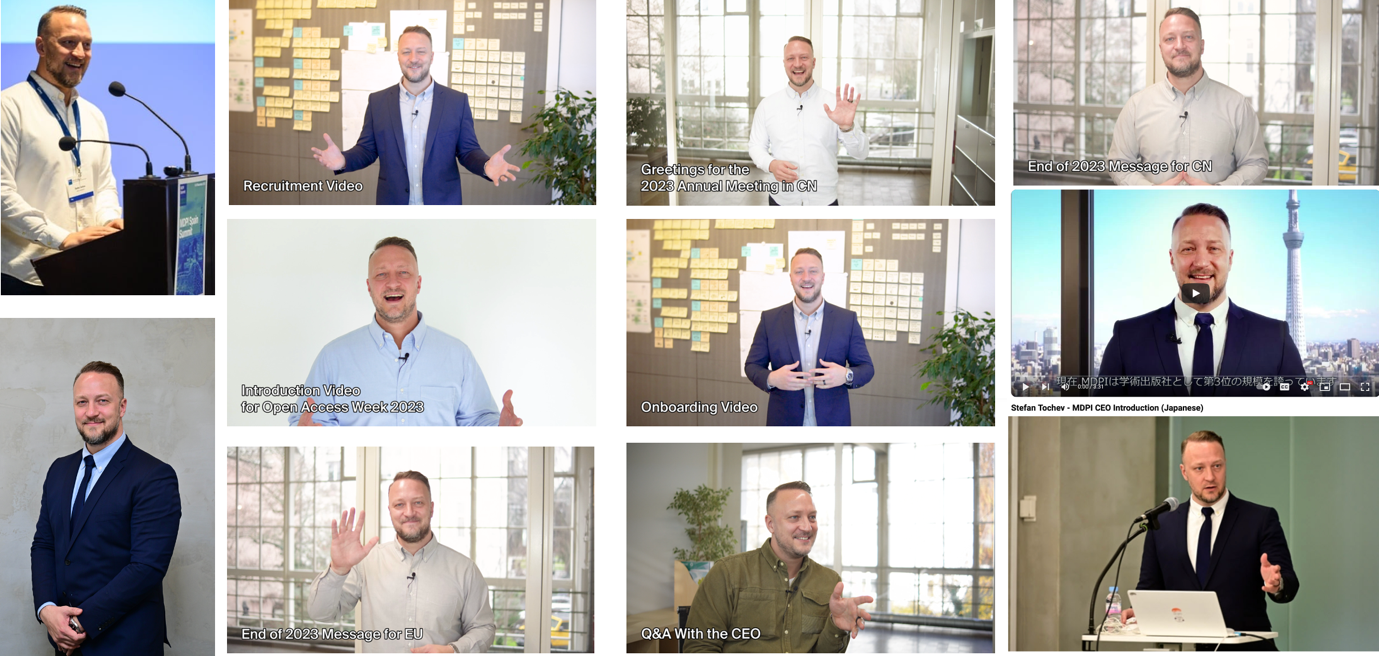
As CEO, I focused on leadership communication by publishing 12 CEO Letters, one for each month of my tenure, to share more about MDPI news and achievements. I also produced ten videos to help further communicate our message.
I was happy to attend eight publishing and conference events, including STM in Frankfurt and Washington, APE, and R2R, and facilitate critical company meetings with Elsevier, Web of Science, ResearchGate, DOAJ, and others. It was a pleasure to meet and have discussions with key organizations and governing bodies such as CAS in China and ANVUR in Italy.
The best part was the opportunity to visit seven MDPI offices across Europe and Asia-Pacific, meeting with local managers and colleagues and supporting them in person. As part of this, I conducted training sessions while continuing to lead the Corporate Marketing department.
Looking ahead
My goal for my second year as CEO is to continue building on the initiatives from the past, including leadership communications, public relations, educational marketing, and company culture, while representing MDPI to the best of my ability. Additionally, I have a few new projects I hope to launch that I believe will be valuable to MDPI and the industry at large.
I firmly believe that OA is the future of publishing, and I am grateful to be in a position to advocate for this belief as part of MDPI, the world's leading open access publisher.
Thank you to our staff and industry friends for your genuine support in this role.
Impactful Research

Nominations Open for the Prestigious Tu Youyou Award 2024
I am pleased to share that MDPI has opened nominations for the 2024 Tu Youyou Award, a prestigious recognition established in honour of Professor Tu Youyou, Nobel Laureate, whose work has significantly transformed the global fight against malaria.
The Tu Youyou Award offers CHF 100,000
In 2015, Professor Tu Youyou was awarded the Nobel Prize in Physiology or Medicine for her discovery of artemisinin, significantly reducing mortality rates from malaria and shaping global health policies. Artemisinin-based combination therapies (ACTs) are now the standard treatment endorsed by the World Health Organization (WHO), saving countless lives, especially in regions heavily burdened by malaria.
MDPI Special Issue
To mark Professor Tu’s 80th birthday in 2009, MDPI’s journal Molecules issued a Special Issue focusing on her contributions to medical research. Recognizing her continuous contribution, MDPI created the Tu Youyou Award in 2016 to honour outstanding achievements in natural products and medicinal chemistry.
The deadline for nominations is 31 December 2024
Nominations are open to scientists excelling in natural products and medicinal chemistry. Eligible nominators include academic institutes, universities, and societies. The deadline for nominations is 31 December 2024, with the winners to be announced on 30 April 2025. The Tu Youyou Award offers CHF 100,000, split equally among the winners.
MDPI encourages the academic community to nominate individuals who have demonstrated excellence and innovation in line with Professor Tu’s legacy. This award not only honours individual achievement but also encourages further scientific exploration and discovery in critical areas of medicine.
This award embodies our deep commitment to groundbreaking research that drives societal progress and celebrates the legacy of one of the greatest medical innovators of our time.
Inside MDPI

2023 MDPI Books Report
In past CEO letters, I have highlighted our publishing process and the impactful peer-reviewed articles that represent the core output of scholarly publishing. However, scholarly books are another pillar of publishing that MDPI also services, which our core audience may not be fully aware of. In this section, I highlight the 2023 MDPI Books report, released by our MDPI Books team in May 2024.
Download the 2023 MDPI Books Report
In the report, you will find a summary of MDPI Books’ 10th anniversary, the books indexed in the Web of Science Book Citation Index, our market outreach, and our outlook for 2024.
MDPI Books celebrated its 10th anniversary in 2023
MDPI Books published its first OA Reprint, “From the Renaissance to the Modern World,” in 2013. Over the past ten years, MDPI Books has seen a significant increase in both the volume and nature of published Reprints. As of December 2023, our catalogue includes a total of 7,369 Reprints, with 1,811 of them added in 2023 alone. MDPI Books includes monographs, book series, edited books and reprints of special issues and topical collections, among other book types.

We’re also celebrating the 10-year MDPI anniversary of Laura Wagner, Head of MDPI Books.
Laura Wagner (Head of Books Division)
Laura holds a Bachelor’s degree in Art History and History from the University of Basel. After her studies, she started her career at an art gallery in Basel.
Since joining MDPI in 2014, Laura has held several roles within the company. This included editorial work, development of reprint and book services, and the temporary management of the journal Arts.
Currently Laura holds the role of Head of Books Division and is in charge of the development and strategic direction of MDPI Books.
MDPI Books indexed in Web of Science Book Citation Index
Another milestone in 2023 was the indexing of four book titles in the Web of Science Book Citation Index. The indexing of our open access books is crucial for their reach and accessibility, ensuring higher visibility within the open science community.

- Self-Representation in an Expanded Field: From Self-Portraiture to Selfie, Contemporary Art in the Social Media Age by editor Ace Lehner
- Towards Socially Integrative Cities: Perspectives on Urban Sustainability in Europe and China by editors Bernhard Müller, Jian Liu, Jianming Cai, Paulina Schiappacasse, Hans-Martin Neumann, and Baojun Yang
- Transitioning to Gender Equality by editors Christa Binswanger and Andrea Zimmermann
- Under Construction: Performing Critical Identity by editor Marie-Anne Kohl
If you would like to learn more about MDPI Books, please visit: www.mdpi.com/books
If you are thinking of writing or editing a book, you can submit your proposal at www.mdpi.com/books/publish-with-us, or email us at [email protected].
Coming Together for Science

Polymers 2024 – Polymers for a Safe and Sustainable Future
Our conference team successfully managed the Polymers 2024 – Polymers for a Safe and Sustainable Future international conference which took place from 28–31 May 2024 in Athens, Greece. The conference was chaired by Prof. Dr. Dimitrios Bikiaris and Prof. Dr. Konstantinos Triantafyllidis from the Aristotle University of Thessaloniki, Greece, and Dr. Ioanna Deligkiozi from AXIA Innovation, Germany. In total, the conference had 259 accepted abstracts and over 300 attendees from 22 different countries.
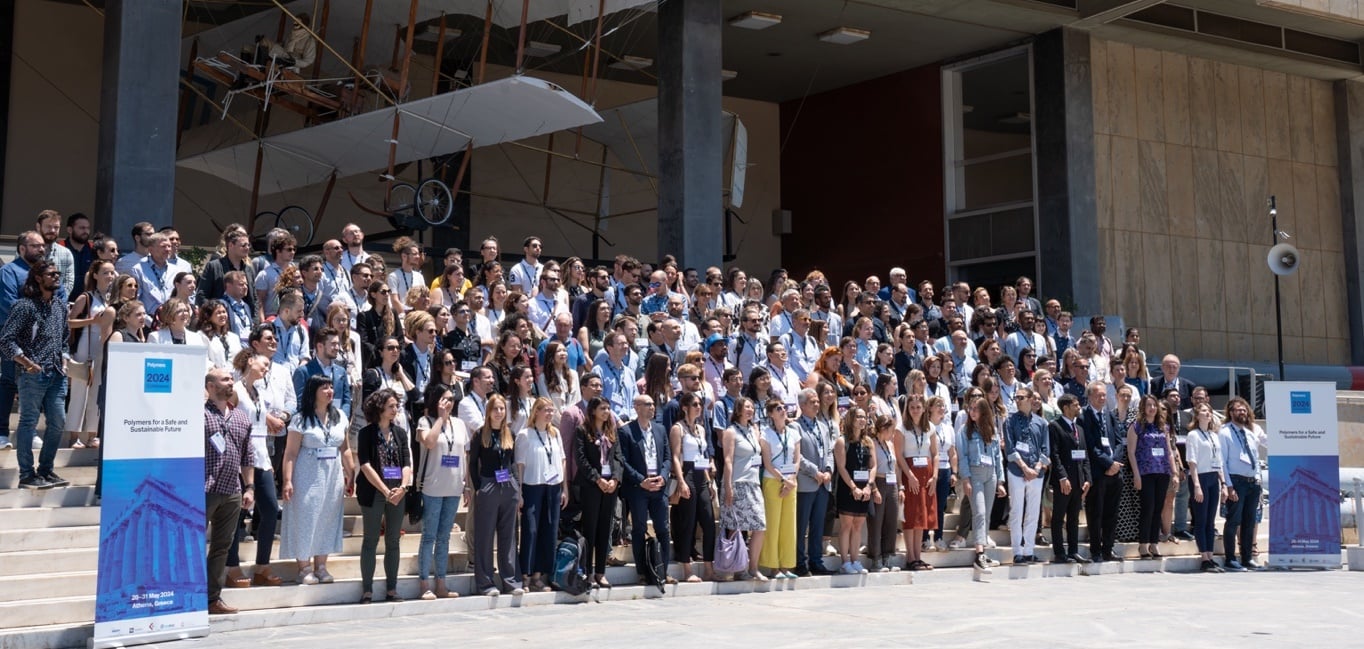
The conference featured three keynote speakers and 12 invited speakers, including esteemed scholars from Europe, Asia, Africa, and Canada. It included 60 selected talks and 189 posters, chosen by the 24 members of the Scientific Committee along with the three Conference Chairs. The event explored the latest scientific advancements and innovations in polymer science, focusing on creating safe, sustainable, and environmentally friendly materials. Emphasizing green polymer chemistry and the use of bioresources, the conference promoted the synthesis of biobased and biodegradable polymers.
The conference featured esteemed scholars from Europe, Asia, Africa, and Canada
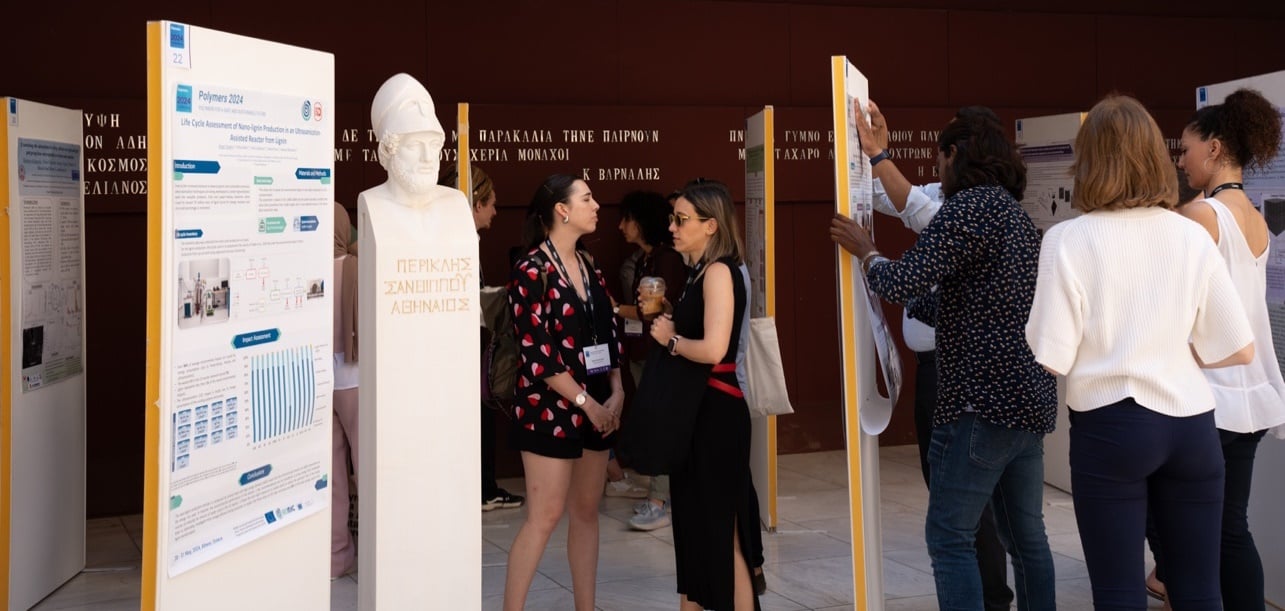
Conference awards
The conference also presented three awards: two sponsored by the journal Polymers – The Best Poster Award (€500) and the Best Oral Presentation Award (€600) – and one sponsored by Ossila, the Best Student Poster Award (€500).
Thank you to our 16 sponsors, three partnering societies (Hellenic Polymer Society, European Polymer Federation, and North American Thermal Analysis Society [NATAS]) and eight media partners.
Upcoming in-person event
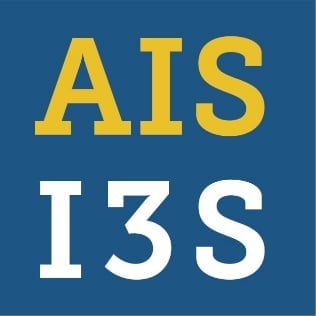
1–4 August, 2024
The 1st International Conference on AI Sensors & The 10th International Symposium on Sensor Science
Location: Singapore
The AI Sensors 2024 Conference will unite innovators and experts in the realms of sensors, sensing technology, and artificial intelligence.
Find more upcoming MDPI events here.
Closing Thoughts
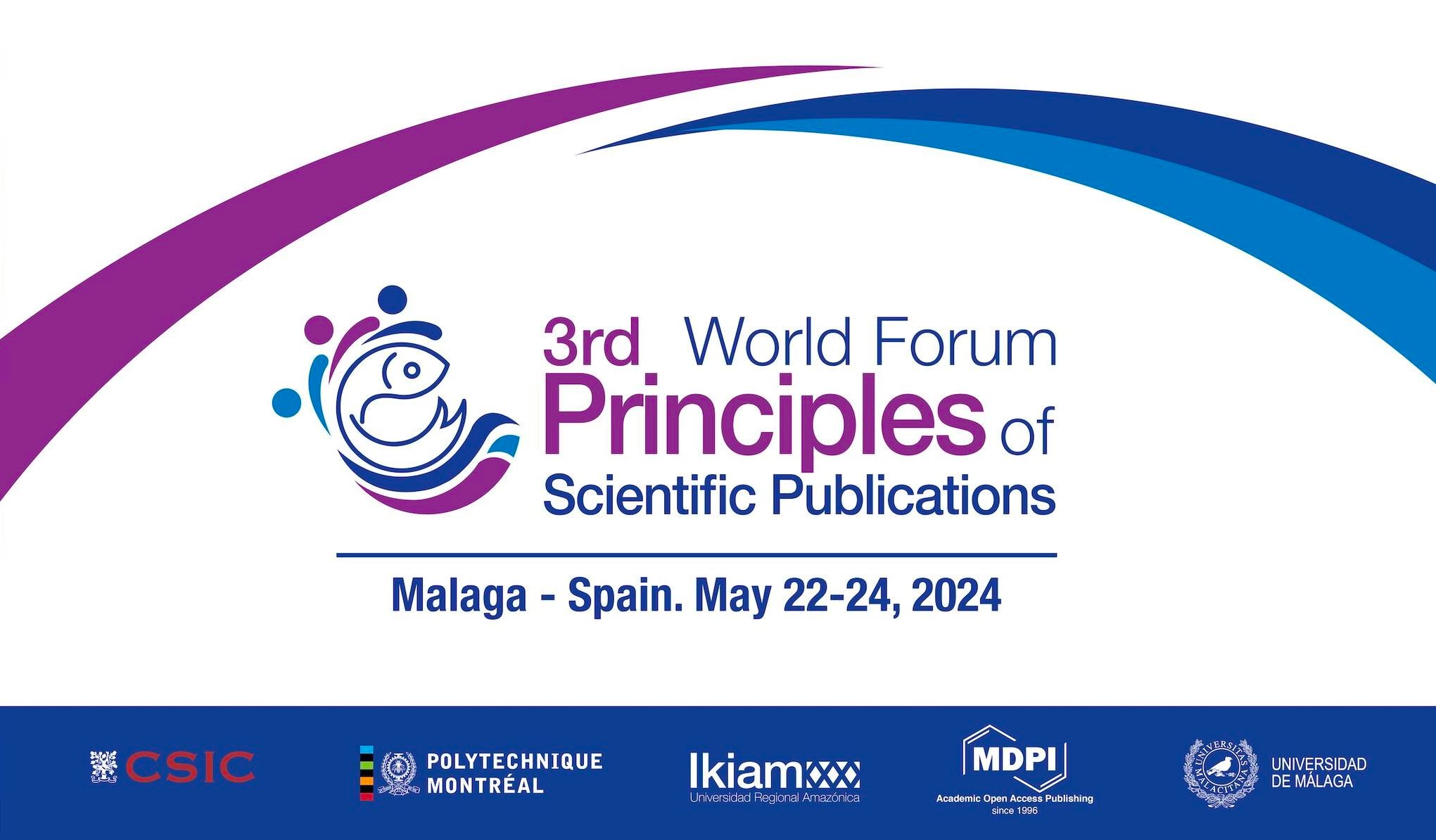
3rd World Forum Principles of Scientific Publications
I’m pleased to share that MDPI sponsored and attended the 3rd World Forum on Principles of Scientific Publications, which took place from 22–24 May in Malaga, Spain. The event brought together academic professionals and leading researchers to discuss critical topics in the realm of publishing and research. Presentation topics included Open Science, AI in Publishing, Predatory Journals, Fake Publications, Challenges for Non-native English Speakers, and more.
“It was great to see strong support from MDPI authors in the audience”
MDPI presentations
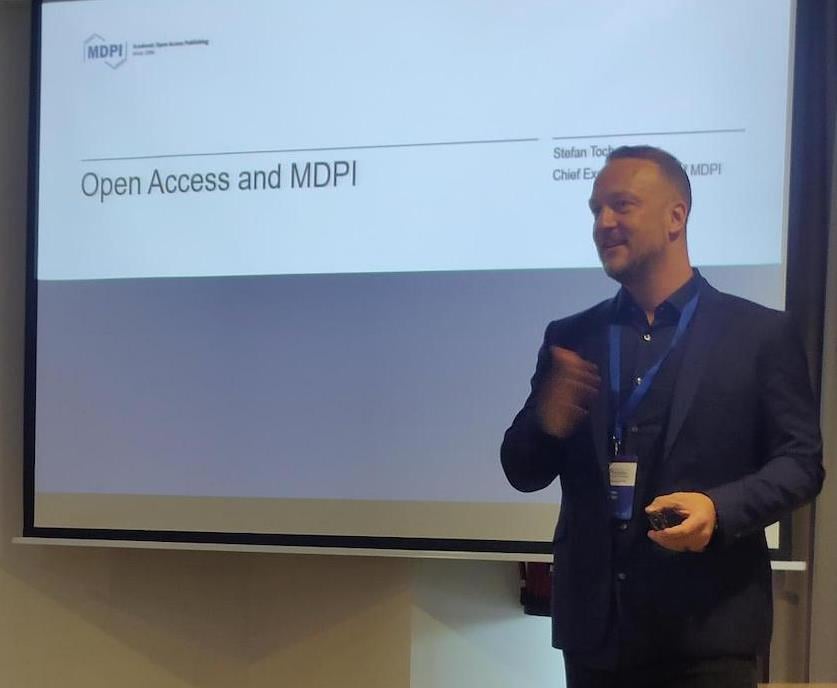
Stefan Tochev (CEO, MDPI) presenting at the 3rd World Forum Principles of Scientific Publications
I had the privilege of attending and presenting at the event, along with my colleague Dr. Enric Sayas (Business Analyst, MDPI) from our Barcelona office, who explored the ethical concerns and opportunities brought by AI in publishing.
I took the opportunity to present on Open Science, the benefits of Open Access, and MDPI’s performance, operations, and investment in ethics. Special thanks to Evan Escamilla (Project Manager, MDPI Books) and Facundo Santomé (Sr. Marketing Manager, MDPI) who also joined the conference.
It was great to see strong support from MDPI authors in the audience who shared their positive experiences publishing with us. Their story reflects the experience of the vast majority of authors who choose to work with MDPI.
We also encountered some conservative views on OA, which created an opportunity for open discussion aimed at addressing concerns about OA and MDPI. Engaging in such discussions is important, as scepticism sometimes arises from misinformation or from a misunderstanding of who we are and how we operate. When we engage in open and honest discussion, we tend to see people getting a better understanding of MDPI, which helps address any misconceptions they may have had.
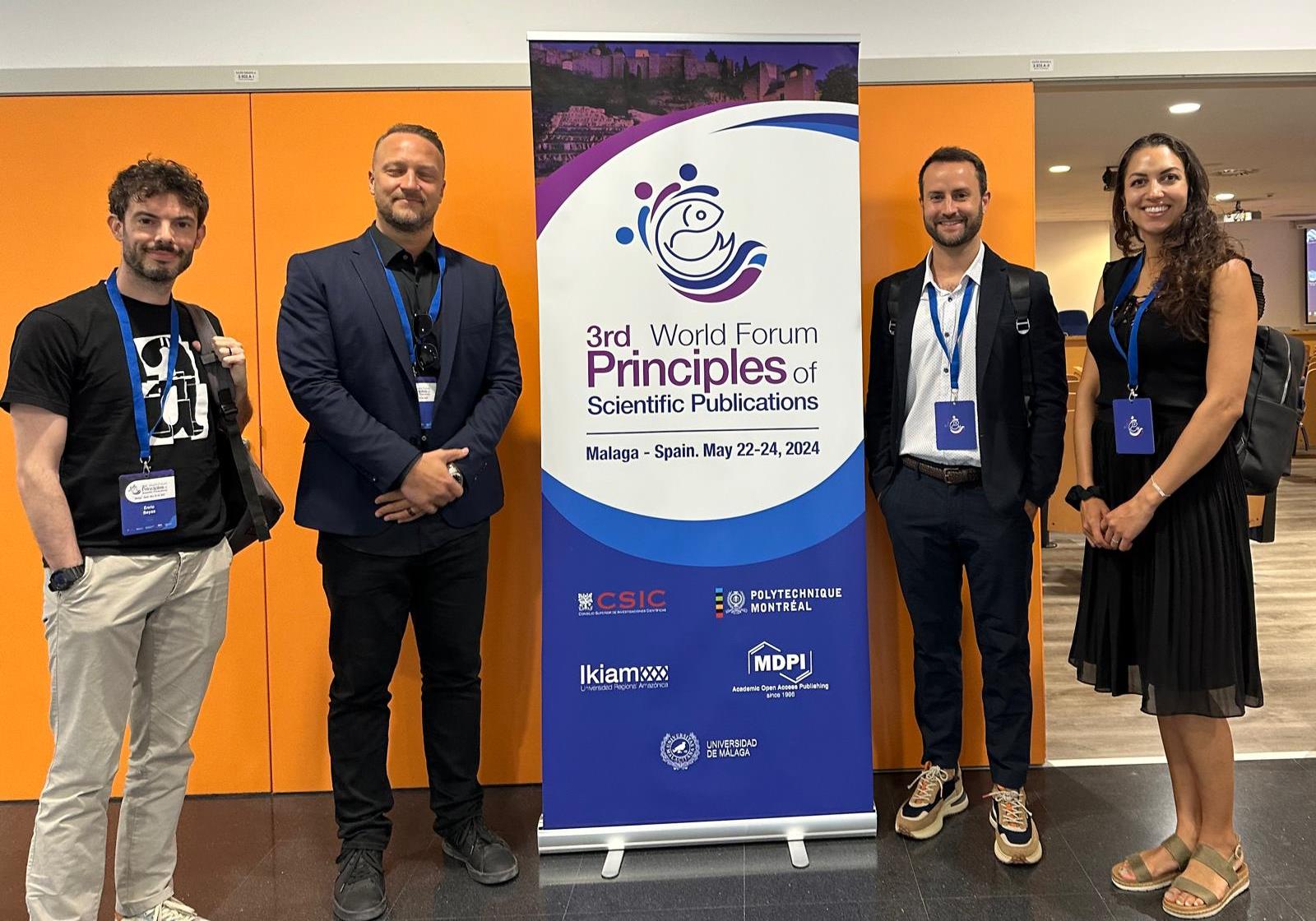
Left to right: Dr. Enric Sayas (Business Analyst, MDPI), Stefan Tochev (CEO, MDPI), Facundo Santomé (Sr. Marketing Manager, MDPI), and Evan Escamilla (Project Manager, MDPI Books) at 3rd World Forum Principles of Scientific Publications
Chief Executive Officer
MDPI AG
23 May 2024
Transfer Service in MDPI
We are pleased to announce MDPI’s Transfer Service.
This service provides a convenient method of transferring your manuscript file, along with any reviewer comments, to another journal within our publishing portfolio.
We are committed to helping authors find the right home for their research, and we will provide authors with guidance and technical support through all stages of the transfer process. Authors will be able to choose to transfer in the following two situations:
1. Select alternative journals on submission.
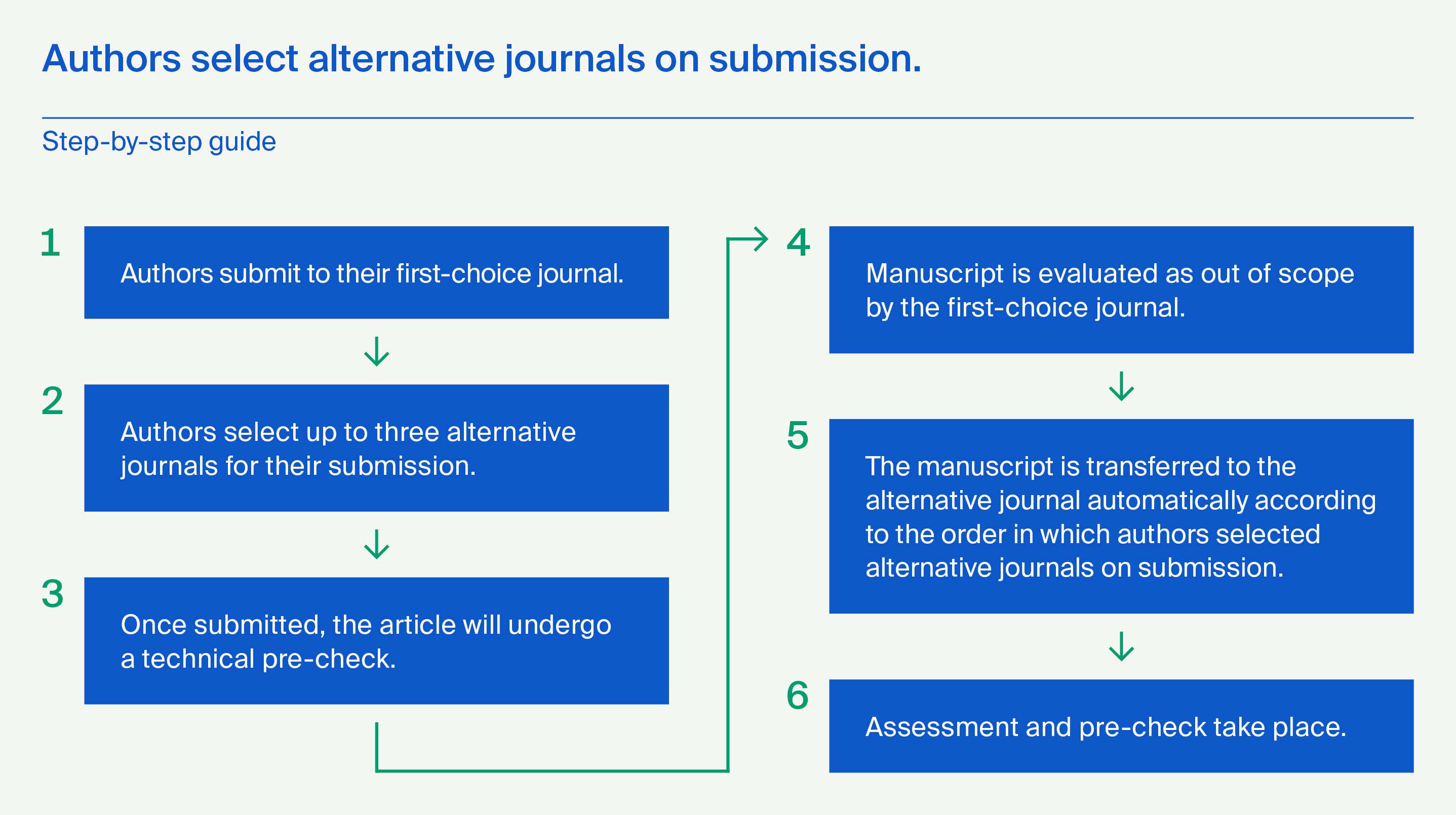
2. Authors are encouraged to transfer manuscripts to other MDPI journals.
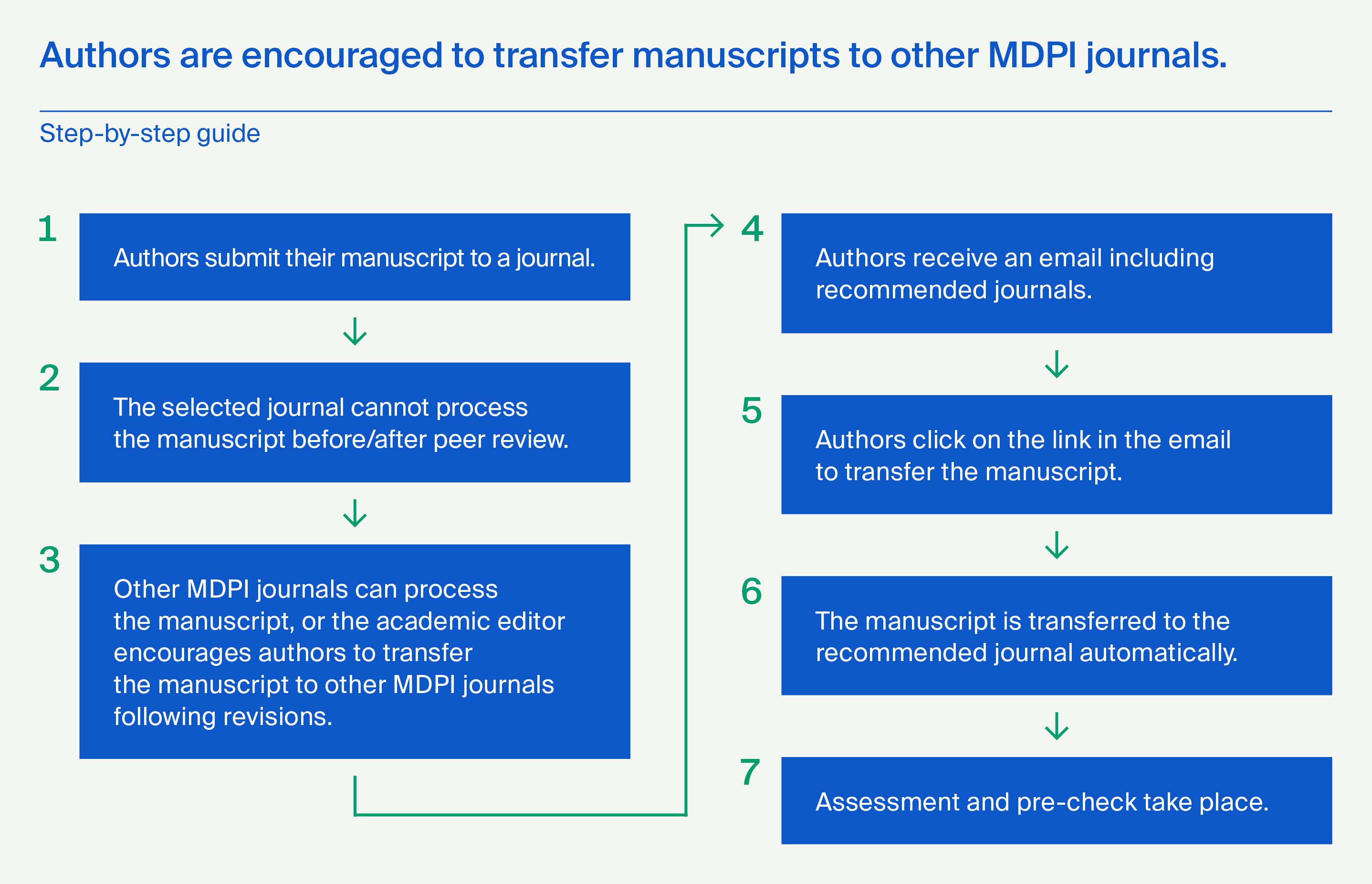
More details about the Transfer Service can be found at the following link:
21 May 2024
MDPI Webinar | International Day for Biological Diversity Webinar, 22 May 2024

In order to commemorate the International Day for Biological Diversity, MDPI is launching a special webinar to encourage researchers to come together, take action, and highlight how the exchange of findings facilitates efforts to raise awareness in all walks of life.
Climate change, man-made changes to nature, and crimes that disrupt biodiversity, such as deforestation, land-use change, intensified agriculture, and livestock production or the growing illegal wildlife trade, can accelerate the speed of the planet’s destruction. This webinar aims to encourage connection and collaboration among researchers and the international open access community to help fight against negative human-induced effects on the Earth.
We are very much looking forward to seeing you at the MDPI International Day for Biological Diversity Webinar. Please find below an up-to-date outline of the presenters.
Date: 22 May 2024 at 10.00 a.m. CEST | 4:00 a.m. EDT | 4:00 p.m. CST Asia
Webinar ID: 880 4396 0569
Sciforum webpage: https://sciforum.net/event/MIDfBDW2
|
Speaker/Presentation |
Time in CEST |
Time in CST Asia |
|
MDPI Introduction |
10:00–10:10 a.m. |
4:00–4:10 p.m. |
|
Dr. Georgios C. Koubouris |
10:10–10:40 a.m. |
4:10–4:40 p.m. |
|
Dr. Adolfo Cordero-Rivera |
10:40–11:10 a.m. |
4:40–5:10 p.m. |
|
Dr. Maria A. Tsiafouli |
11:10–11:40 a.m. |
5:10–5:40 p.m. |
|
Q&A Session |
11:40–11:55 a.m. |
5:40–5:55 p.m. |
|
Closing of Webinar |
11:55 a.m.–12:00 p.m. |
5:55–6:00 p.m. |
After registering, you will receive a confirmation email containing information on how to join the webinar. Registrations with academic institutional email addresses will be prioritized.
Unable to attend? Register anyway and we will inform you when the recording is available.
Keynote Speakers:
- Dr. Georgios C. Koubouris, Hellenic Agricultural Organization ELGO-DIMITRA, Institute of Olive Tree, Subtropical Crops and Viticulture, Greece;
- Dr. Adolfo Cordero-Rivera, Department of Ecology and Animal Biology, University of Vigo, Spain;
- Dr. Maria A. Tsiafouli, Department of Ecology, School of Biology, Aristotle University of Thessaloniki, Greece.
Relevant Special Issues:
Agriculture
“Modern Reproductive Biotechnology Assists Farm Animal Conservation and Genetic Rescue”
Guest Editors: Dr. Monika Trzcińska and Prof. Dr. Marcin Samiec
Deadline for manuscript submissions: 15 May 2024
“Exploring Cereal Biodiversity for Climate Change Mitigation in Agricultural Production”
Guest Editor: Prof. Dr. Jerzy Henryk Czembor
Deadline for manuscript submissions: 10 June 2024
Insects
“Assessing Insect Pollinator Populations Using Molecular Methods—Approaches and Metrics on Species Diversity, Abundance and Genetic Diversity”
Guest Editors: Dr. Wiebke Sickel and Dr. Frank M. J. Sommerlandt
Deadline for manuscript submissions: 31 October 2024
“Genetic Diversity of Insects”
Guest Editors: Prof. Dr. Pairot Pramual and Dr. Luis M. Hernandez-Triana
Deadline for manuscript submissions: 30 April 2025
“Diversity and Function of Collembola”
Guest Editors: Prof. Dr. Liang Chang and Prof. Dr. Meixiang Gao
Deadline for manuscript submissions: 30 September 2024
“Invertebrate Conservation: Challenges and Ways Forward”
Guest Editor: Dr. Richard V. Glatz
Deadline for manuscript submissions: 30 June 2024
“Aquatic Insects: Diversity, Ecology and Evolution”
Guest Editor: Dr. Marija Ivković
Deadline for manuscript submissions: 31 August 2024
Animals
“Wildlife Trade and Crime”
Guest Editor: Dr. Harry Wels
Deadline for manuscript submissions: 31 May 2024
“Assessing the Environmental Adaptation of Wildlife and Production Animals: Applications of Physiological Indices and Welfare Assessment Tools (Volume II)”
Guest Editor: Dr. Edward Narayan
Deadline for manuscript submissions: 31 July 2024
“Importance of Sanctuaries and Rehabilitation Centres for Wildlife”
Guest Editors: Dr. Marco Campera and Dr. Michela Balestri
Deadline for manuscript submissions: 1 September 2024
“Recent Advances and Innovation in Wildlife Population Estimation”
Guest Editor: Prof. Dr. Dimitrios Bakaloudis
Deadline for manuscript submissions: 1 September 2024
“Wildlife Genetic Diversity”
Guest Editors: Dr. Heliodor Wierzbicki, Dr. Magdalena Moska and Prof. Dr. Anna Rząsa
Deadline for manuscript submissions: 31 October 2024
Biology
“Effects of Heavy Metals and Microplastics on Wetland Biodiversity and Ecosystem Function”
Guest Editors: Dr. Hualong Hong and Prof. Dr. Mohammad Belal Hossain
Deadline for manuscript submissions: 30 April 2025
“Aquatic Alien Invasions and Their Impact on Biodiversity and Ecosystem Services (Volume II)”
Guest Editors: Dr. Paraskevi K. Karachle, Dr. Elena Tricarico, Dr. Giorgio Mancinelli and Dr. Baran Yoğurtçuoğlu
Deadline for manuscript submissions: 30 November 2024
“Editorial Board Members' Collection Series: “Biodiversity and Ecosystem Function under Global Change”
Guest Editors: Prof. Dr. Shucun Sun and Prof. Dr. Panayiotis G. Dimitrakopoulos
Deadline for manuscript submissions: 31 December 2024
Fishes
“Aquatic Biodiversity Challenges in the Third Millennium”
Guest Editor: Dr. Doru Bănăduc
Deadline for manuscript submissions: 30 November 2024
Forests
“Fungal Diversity in Forests”
Guest Editors: Dr. Bernardo Ernesto Lechner, Dr. Izabela Kałucka and Dr. Izabela Kałucka
Deadline for manuscript submissions: 31 July 2024
“Transforming Forest Governance and Rural Livelihoods to Address Climate Change and Biodiversity Loss”
Guest Editors: Prof. Dr. Jinlong Liu, Dr. Dominick A. DellaSala and Dr. Peter Edwards
Deadline for manuscript submissions: 25 August 2024
“Biodiversity in Forests: Management, Monitoring for Conservation”
Guest Editors: Dr. Víctor Rincón, Dr. Javier Velázquez Saornil and Dr. Derya Gulcin
Deadline for manuscript submissions: 25 November 2024
“Vitality of Forest Ecosystems through Genetic, Epigenetic, Physiology and Biodiversity Exploitation”
Guest Editors: Dr. Evangelia V. Avramidou, Dr. Evangelia Korakaki and Dr. Evangelia Korakaki
Deadline for manuscript submissions: 9 December 2024
17 May 2024
Meet Us at the XXI International Society for Animal Clinical Pathology (ISACP) Congress, 14–18 May, Heraklion, Crete, Greece

Name: XXI International Society for Animal Clinical Pathology (ISACP) Congress
Date: 14–18 May 2024
Place: Heraklion, Crete, Greece
Website: https://isacp2024.org/
It is our great pleasure to invite you all to the XXI International Society for Animal Clinical Pathology Congress (ISACP2024) that will take place in Heraklion, on the hospitable island of Crete, from 14 to 18 May 2024 at the Galaxy Hotel Iraklio.
The ISACP congress in Crete will bring together scientists from different backgrounds who are engaged in the laboratory analysis of a variety of biological samples to support the diagnosis and treatment of animal diseases, as well as the assessment of their overall health status.
In addition to the keynote presentations, oral presentations and poster sessions will keep us updated throughout the congress. We will have the opportunity to share ideas with colleagues from all over the world, to build and enhance international animal clinical pathology research, educational collaborations and networking.
Topics of Interest:
- Hemoparasites;
- Biomarkers in alternative biological samples;
- Biomarkers of animal welfare;
- Acute phase proteins;
- Diagnostic utility of lipoproteins.
Awarding Ceremony of Academic and Professional Excellence:
The organizers will honor investigators for their excellence with the following awards:
- Young Investigator Prizes;
- The J. Jerry Kaneko Prize;
- The Eitan Bogin Prize.
Join us on social media:
- Facebook: https://www.facebook.com/profile.php?id=61552100466251
- Twitter: https://twitter.com/isacp2024
- LinkedIn: https://www.linkedin.com/events/7109862334004641792/
For any enquiries regarding the event, please contact [email protected]. We look forward to welcoming you all to the ISACP2024 in Heraklion, Crete!
17 May 2024
Tu Youyou Award—Open for Nominations
In acknowledgment of the groundbreaking achievements of Professor Tu Youyou, the Nobel laureate credited with the discovery of artemisinin, MDPI is proud to announce the Tu Youyou Award. This award, inaugurated in 2016, seeks to honor scholars who excel in the fields of natural products chemistry and medicinal chemistry.
Prize:
- CHF 100,000 in total (If there is more than one winner, the prize will be divided equally amongst the winners);
- An award medal for each winner.
Who should be nominated?
- Scientists with outstanding achievements and contributions in the fields of natural products chemistry and medicinal chemistry.
Who can submit a nomination?
- Academic research institutes
- Universities
- Academic societies
Any personal nominations are not accepted.
How do I submit a nomination?
Candidates’ institutional affiliations need to submit their nominations for final candidates to the Tu Youyou Award Team directly by email after internal screening, and each institution can only nominate a maximum of two candidates for each edition of the Tu Youyou Award. Please note that the nominations cannot be modified once they are submitted and confirmed by the Tu Youyou Award Team.
Required nomination materials:
Nomination Form (Download)
Schedule:
Nomination deadline: 31 December 2024;
Winner announcement: 30 April 2025.
Contact:
Tu Youyou Award Team ([email protected])
More information can be found on the Tu Youyou Award official website. For any inquiries, do not hesitate to contact the Tu Youyou Award Team.
16 May 2024
MDPI Romania Author Training Academic Events in April
MDPI Romania sponsored four events over the month of April, contributing author training sessions to each event.
The NutriSciLabs 2024 conference was held at the Carol Davila University of Medicine and Pharmacy on 12 April 2024. Organized by the Association of Students from the Faculty of Pharmacy Studies, the conference aimed to enhance students’ academic writing and research skills, and bolster their confidence in participating in the academic world. Ioana Paunescu, journal relations specialist for MDPI Romania, led the training session. Paunescu first outlined MDPI’s history and core values, then explained academic writing techniques, ethics, and similarity percentages. The presentation covered the entire editorial process, highlighting the amount of attention paid to details throughout manuscript processing. Paunescu also discussed common errors that authors make while writing, and how to avoid such errors.
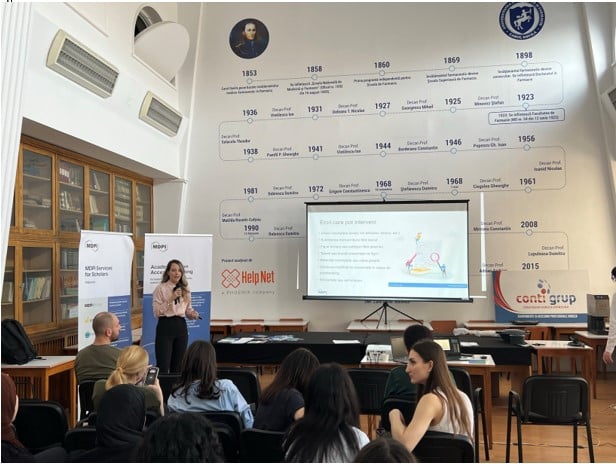
On 13 April 2024, the NextGEN 2.0 Student Conference took place at the Babes-Bolyai University of Cluj-Napoca. NextGen Healthcare organized this event with the university’s European Students’ Society to discuss European and international current affairs. MDPI Romania contributed an author training session called Steps of the Publication Process. Irina Codruta Zaharia, journal relations specialist, began the session with a general introduction of MDPI before diving into different article types, different layout formats, possible journals to submit to, the MDPI submission checklist, and the MDPI editorial process. By explaining the fundamentals of writing and publishing academic papers, Zaharia imparted valuable industry knowledge to the curious minds present. Participants were eager to engage with Zaharia in the subsequent Q&A session.
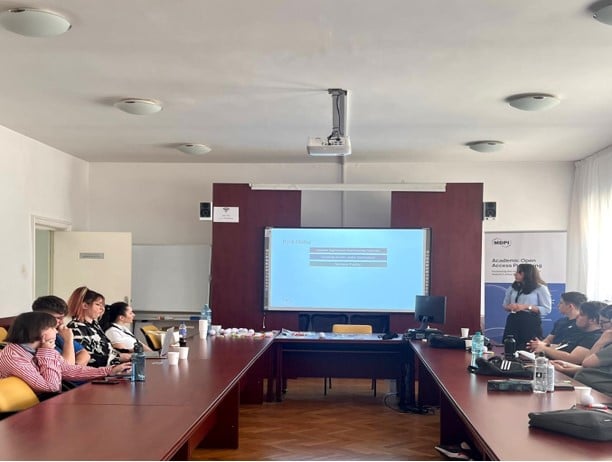
Celebrating its 20th anniversary this year, the International Conference “Students for Students” has long been a gathering place for undergraduate and postgraduate students of all nationalities to present their work and exchange ideas with each other. This year’s conference was held on 18 April 2024, with MDPI Romania contributing an author training session called The World of Open Access. Key speakers included Dr. Norbert Kiss from MDPI Romania and Prof. Dragos Horvath from Strasbourg University. Dr. Kiss discussed the history of open access, differences between open access publishing and traditional publishing, and implications for open access in the future. Attendees expressed keen interest in the subject, approaching Dr. Kiss with questions about academic publishing as well as his career trajectory.
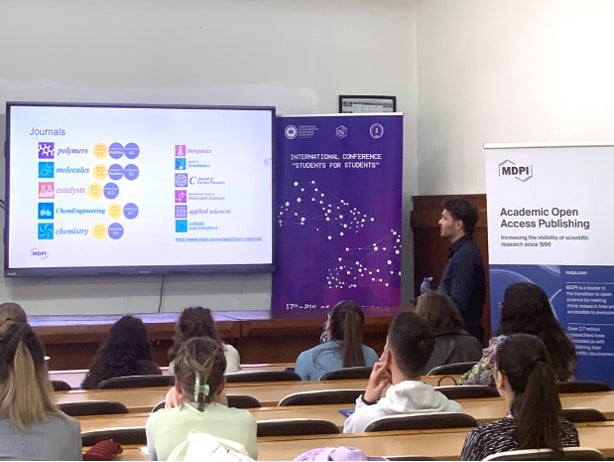
Most recently, on 26 April 2024, MDPI Romania sponsored the National Symposium of Students from Geology and Geophysics Faculties. The AAPG Students Chapter at the Babes-Bolyai University organized this event as an opportunity for geology students from all Romanian universities to present their work and confer with other researchers. Dr. Kiss gave his lecture The World of Open Access at this event as well.
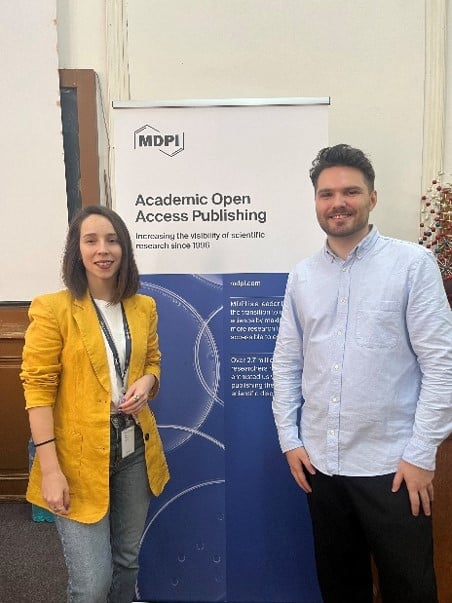
MDPI is thankful to all the participants, speakers, and organizers who attended these events. Through their enthusiasm and dedication, these events were great successes.
7 May 2024
Meet Us at the Annual Joint Meeting of Ichthyologists and Herpetologists (JMIH 2024), 10–14 July 2024, Pittsburgh, PA, USA

Conference: Annual Joint Meeting of Ichthyologists and Herpetologists (JMIH 2024)
Organization: American Elasmobranch Society; American Society of Ichthyologists and Herpetologists; Herpetologists’ League; Society for the Study of Amphibians and Reptiles; Burk & Associates, Inc.
Date: 10–14 July 2024
Place: David L. Lawrence Convention Center, Pittsburgh, PA, USA
Booth: #12
The Annual Joint Meeting of Ichthyologists and Herpetologists (JMIH) is an educational and research forum. More than one thousand field biologists and environmental scientists from all over the world attend. The meeting includes many symposia, poster sessions, special programs, and workshops, as well as topical sessions planned around the hundreds of submitted papers. Each day also includes events for socializing.
The 2024 Annual Meeting will run from July 10 to 14 at the David L. Lawrence Convention Center, in Pittsburgh, Pennsylvania, a vibrant city with an active downtown area.
The following MDPI journals will be represented:
If you are attending this conference, please chat with us. Our delegates look forward to meeting you in person and answering any questions you may have. For more information about the conference, please visit the following website: https://burkclients.com/JMIH/meetings/2024/site/index.html.
2 May 2024
MDPI Insights: The CEO's Letter #11 - 2023 Annual Report, MDPI Awards, STM

Welcome to the MDPI Insights: The CEO's Letter.
In these monthly letters, I will showcase two key aspects of our work at MDPI: our commitment to empowering researchers and our determination to facilitating open scientific exchange.
Opening Thoughts

2023 Annual Report
This is an exciting time of year at MDPI, as we have just released our annual report 2023, recapping the past year and sharing the progress and changes that took place during it.

Stefan Tochev (CEO, MDPI)
Reflecting on 2023, I can't help but think of the changes that have occurred not only at MDPI but also within our industry as a whole. In light of this, I’m reminded that change is the only constant, and that for a publishing enterprise that has experienced rapid growth, adapting to change becomes not only a necessity but also a catalyst for sustained success.
Looking back on the significant ground we covered in 2023, I am pleased to report that the year was marked by a rise in paper submissions, along with a range of initiatives aimed at improving our internal processes and delivering top services to our scientists.
2023 Top-line MDPI Numbers
An important priority for 2023 was to strengthen our editorial policies. Despite a notable increase in the number of papers submitted from 603,000 to 655,000 (+8.6%), there was a decrease in the number of papers published from 303,000 to 285,000 (-5.9%), consistent with the overall trend in the scholarly publishing market. MDPI’s market share in gold open access articles published reached 17% in 2023 (according to Dimensions data).
2023 Open Access Numbers
For over two decades, MDPI has been at the forefront of reshaping the academic publishing landscape, with OA surpassing subscription-based publishing in 2020. This trajectory is deeply rooted in our history and reflects our unwavering commitment to, and vision for, an open future. This momentum continued in 2023, with 39% of the 4.16 million articles and reviews published as gold full-OA, 15% as gold hybrid-OA, 8% as bronze-OA, and 3% as green-OA, relative to 35% behind a paywall. In terms of gold OA (full or hybrid) articles and reviews published, MDPI leads the way in terms of total articles published in 2023.
MDPI is the trusted and preferred OA publisher for the scholarly community
However, in 2023, we saw a downward trend in publication numbers compared to 2022. This trend was also seen in total OA publications. While the number of submissions increased, the decline in MDPI publications can be attributed to several factors, such as improved scrutiny in our peer-review process, including the evaluation of content scope and higher rejection rates, and a post-pandemic decrease in research related to COVID-19 papers.
Download 2023 MDPI Annual Report.
Access 2023 Digital Report.
Impactful Research

Recognizing Scholars – MDPI Awards
MDPI is committed to empowering young researchers as they embark on their careers. In 2023, our journals hosted a total of 400 awards, receiving 8,839 applications and nominations. The evaluation committees selected 959 winners, with the total budget for these awards amounting to CHF 546,500.
For more information about MDPI awards, applications, and winners, please click here
The following awards recognize scholars and the impact of their research, including Young Investigator Awards, Best PhD Thesis Awards, and Travel Awards for junior researchers.
MDPI Awards – The following awards require an application or a nomination.
Young Investigator Award (CHF 1000–2000 for each winner)
This award acknowledges the achievements of young investigators in research areas relevant to the journal’s scope. Candidates must have received their PhD no more than 10 years prior to the award announcement date and must be nominated.
Best PhD Thesis Award (CHF 500–800 for each winner)
This award recognizes young scholars who have completed outstanding PhD theses in research areas relevant to the journal’s scope. It aims to encourage them to continue their excellent work and make further contributions to their field.
Travel Award (CHF 500–800 for each winner)
This award encourages junior scientists to present their latest research at academic conferences relevant to the journal’s scope, thereby increasing their impact.
Distinguished Scholars
Additionally, 220 awards were granted to the most distinguished authors and reviewers in our journals through Best Paper Awards and Outstanding Reviewer Awards. The following awards are selected by the editorial staff of the journal and do not require an application or a nomination. They exemplify the excellent contributions made by our authors, reviewers, and editors.
These awards exemplify the excellent contributions made by our authors, reviewers, and editors
Best Paper Award (CHF 200–500 for each winner)
This award is granted annually to highlight publications of high quality, scientific significance, and extensive influence.
Outstanding Reviewer Award (CHF 500 for partial winners)
This award is given annually to recognize reviewers who generously contribute their time to reviewing papers and demonstrate thoroughness, professionalism, and timeliness in their reviews.
MDPI also offers awards for specific topics in various research fields:
Carbon Neutrality Award (CHF 500–800 for each winner)
Sponsored by MDPI journal Sustainability, this award recognizes applicants who have made exceptional academic or societal contributions to carbon neutrality, either in general or in relation to a specific carbon-neutrality-related issue.
Intelligent Manufacturing Award (CHF 500–800 for each winner)
Administered by MDPI journal Machines, this award is presented to an individual who has made outstanding academic or societal contributions to the field of intelligent manufacturing.
Granted: World Sustainability Awards
Inside MDPI

MDPI Opens Office in Seoul, Korea and Appoints Claude Seo as Office Manager
As CEO of the world’s leading OA publisher, I am pleased to announce the official opening of our Korean branch office. With this addition, MDPI now operates 21 offices in 12 countries worldwide, improving on our position as a truly global publisher. This expansion represents more than just an increase in our physical footprint; it is a pivotal step in our ongoing commitment to making scientific knowledge more accessible across the globe.
MDPI now operates 21 offices in 12 countries worldwide, improving on our position as a truly global publisher

Claude Seo (MDPI Korea Office Manager, Seoul)
Claude Seo, who has over 15 years of experience in the academic publishing industry, has been appointed as the Office Manager of the Seoul office. The launch of our Seoul office allows us to better support the Korean scientific community and to further promote the publication of OA journals in the region.
Reflecting on his role, Claude shared that he is:
“Delighted to have been entrusted with this position within MDPI, the no. 1 scholarly OA publisher. As we establish our presence in Korea, we are dedicated to integrating ourselves into the local community and contributing to its vibrant culture. Our commitment goes beyond business growth; it is about creating a more informed and innovative society by embracing and promoting diversity within the scientific community.”
Sungkyunkwan University Joins MDPI’s Institutional Open Access Program
Additionally, I am pleased to share that Sungkyunkwan University has joined MDPI’s Institutional Open Access Program (IOAP). This program offers free access to MDP’s online submission system for institutions and provides APC discounts to affiliated authors. Thirteen major Korean universities, including Sungkyunkwan University, Kyunghee University, Chung-Ang University, and the Catholic University of Korea, have adopted IOAP in Korea.
Learn more about MDPI’s collaboration in Korea in my previous CEO Letter, in which I recap our visit to Seoul, South Korea.
Coming Together for Science

4th MMCS: Harnessing the Power of New Drug Modalities
Our conference team successfully managed the 4th Molecules Medicinal Chemistry Symposium, held from 24–26 April in Barcelona, Spain. It was chaired by Prof. Dr. Diego Muñoz-Torrero from the Institute of Biomedicine (IBUB), University of Barcelona, Spain, and Prof. Dr. Simona Collina from the University of Pavia, Italy. In total, there were 84 accepted abstracts and 102 conference attendees from 22 different countries.
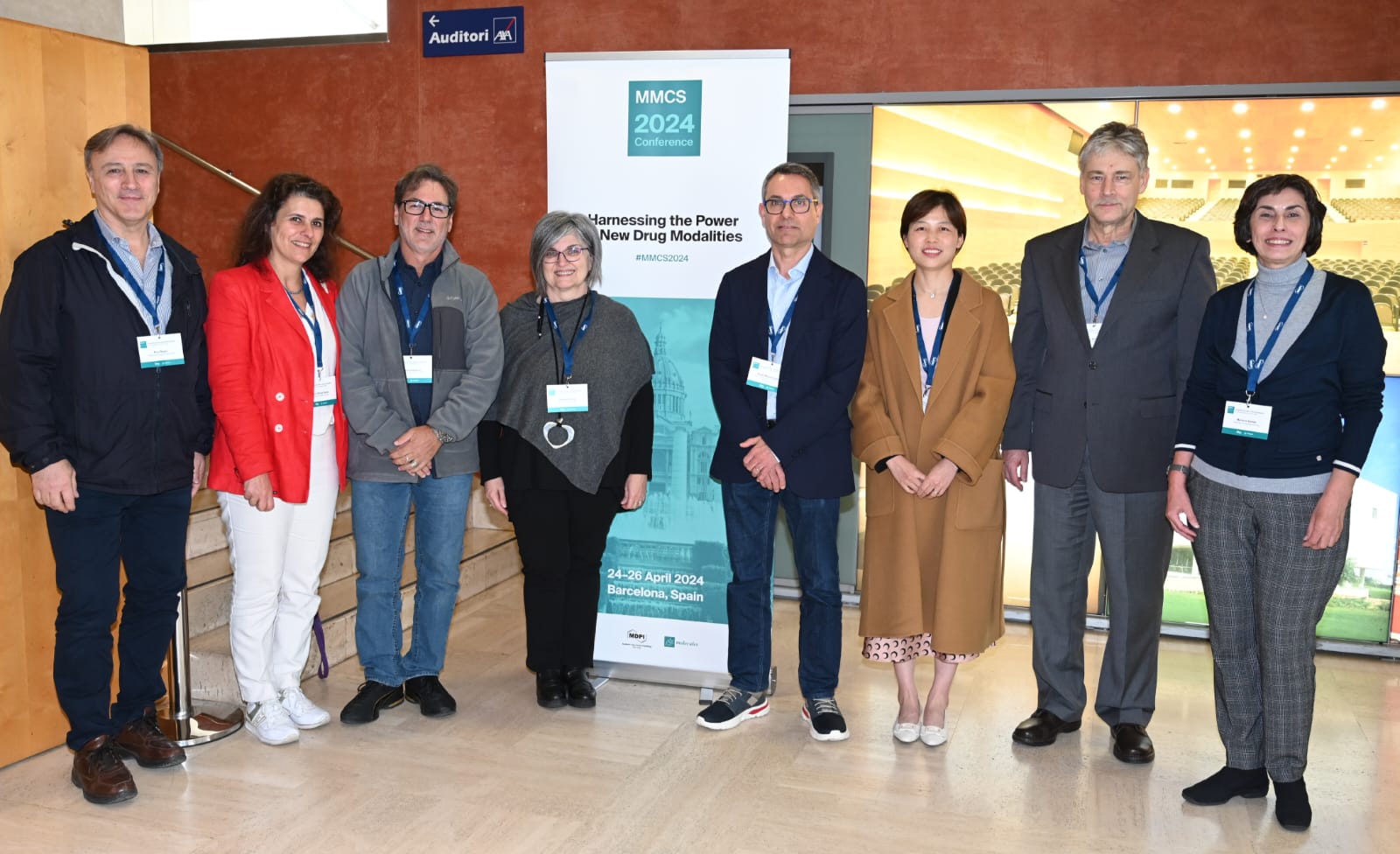
From left to right: Prof. Dr. Rino Ragno (Scientific Committee), Dr. Maria Emilia Sousa (Scientific Committee), Prof. Dr. Claudio Viegas Jr. (Scientific Committee), Prof. Dr. Simona Collina (Chair), Prof. Dr. Diego Muñoz-Torrero (Chair), Alvina Wu (Managing Editor, MDPI), Prof. Dr. Roman Dembinski (Scientific Committee), Prof. Dr. Mariana Spetea (Scientific Committee).
The event comprised 12 Invited Speakers, 35 Selected Talks, 10 Flash Poster Presentations, and 39 Posters. The overarching topic of the conference was the impact of the emergence of new drug modalities on drug discovery, with thematic sessions covering topics such as photoactivatable drugs, candidates targeting RNA and epigenetic targets, covalent modifiers, and the development of new anti-cancer agents, among other medicinal chemistry projects.
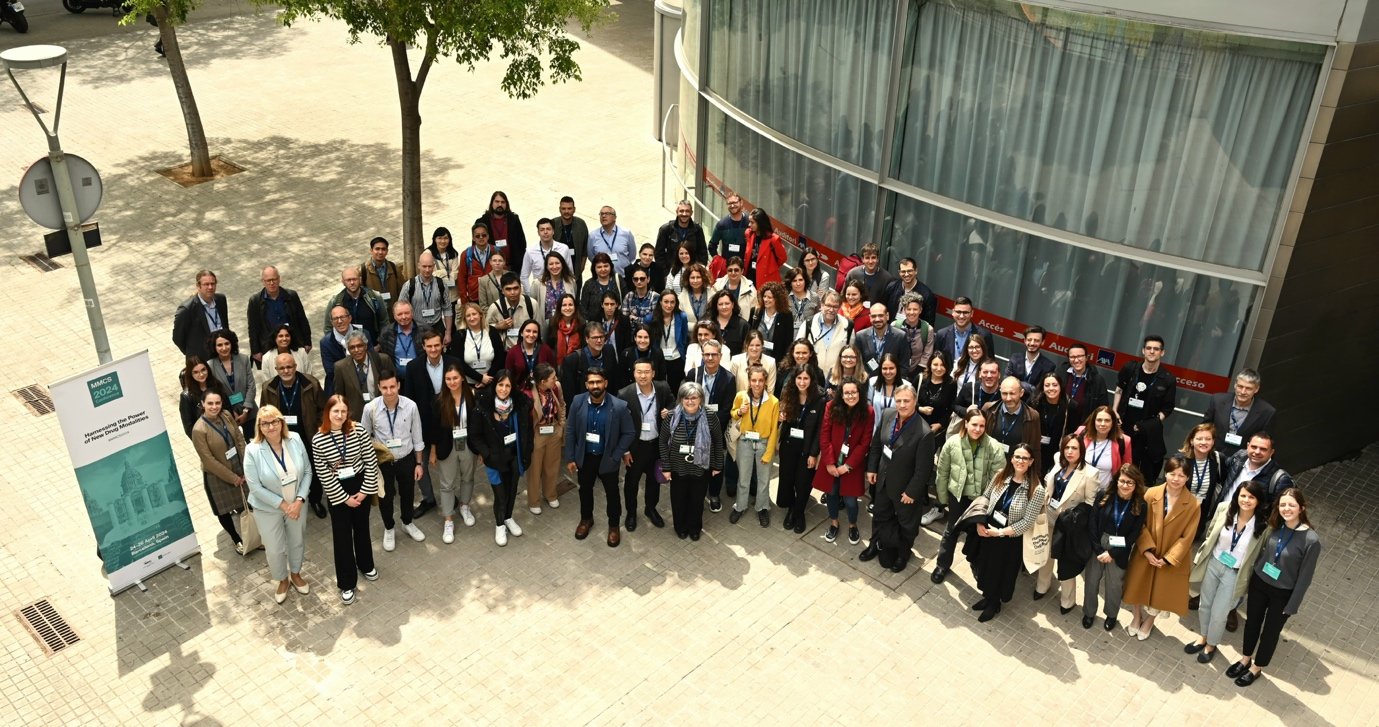
We are pleased to have received feedback from attendees highlighting the professional approach of the conference chairs and participants, the high quality of the talks, and the overall outstanding organization on the part of the MDPI conference team.
Thank you to the conference sponsors, Fluorochem and IBUB, and to our partnering societies, The Spanish Society for Biochemistry and Molecular Biology (SEBBM), and the Spanish Society of Medicinal Chemistry (SEQT).
Upcoming In-Person Event
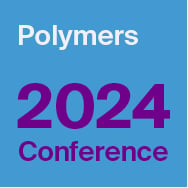
28–31 May, 2024
Polymers 2024 – Polymers for a Safe and Sustainable Future
Location: Athens, Greece
Conference Chairs: Prof. Dr. Dimitrios Bikiaris, Prof. Dr. Konstantinos Triantafyllidis, Dr. Ioanna Deligkiozi
We look forward to welcoming experts Prof. Damià Barceló, Prof. Minna Hakkareinen, and Prof. Armando J. D. Silvestre to this event.
Find more upcoming MDPI events here.
Organize Your Event with MDPI’s Sciforum
Sciforum is MDPI’s platform dedicated to the organization of scientific events. In line with our mission to promote science, Sciforum supports scholars, societies, research networks, and universities at all stages of organizing in-person events, virtual events and webinars. Our platforms are efficient, user-friendly, and cost-effective. We handle all steps related to event management. Contact us for details.
Closing Thoughts
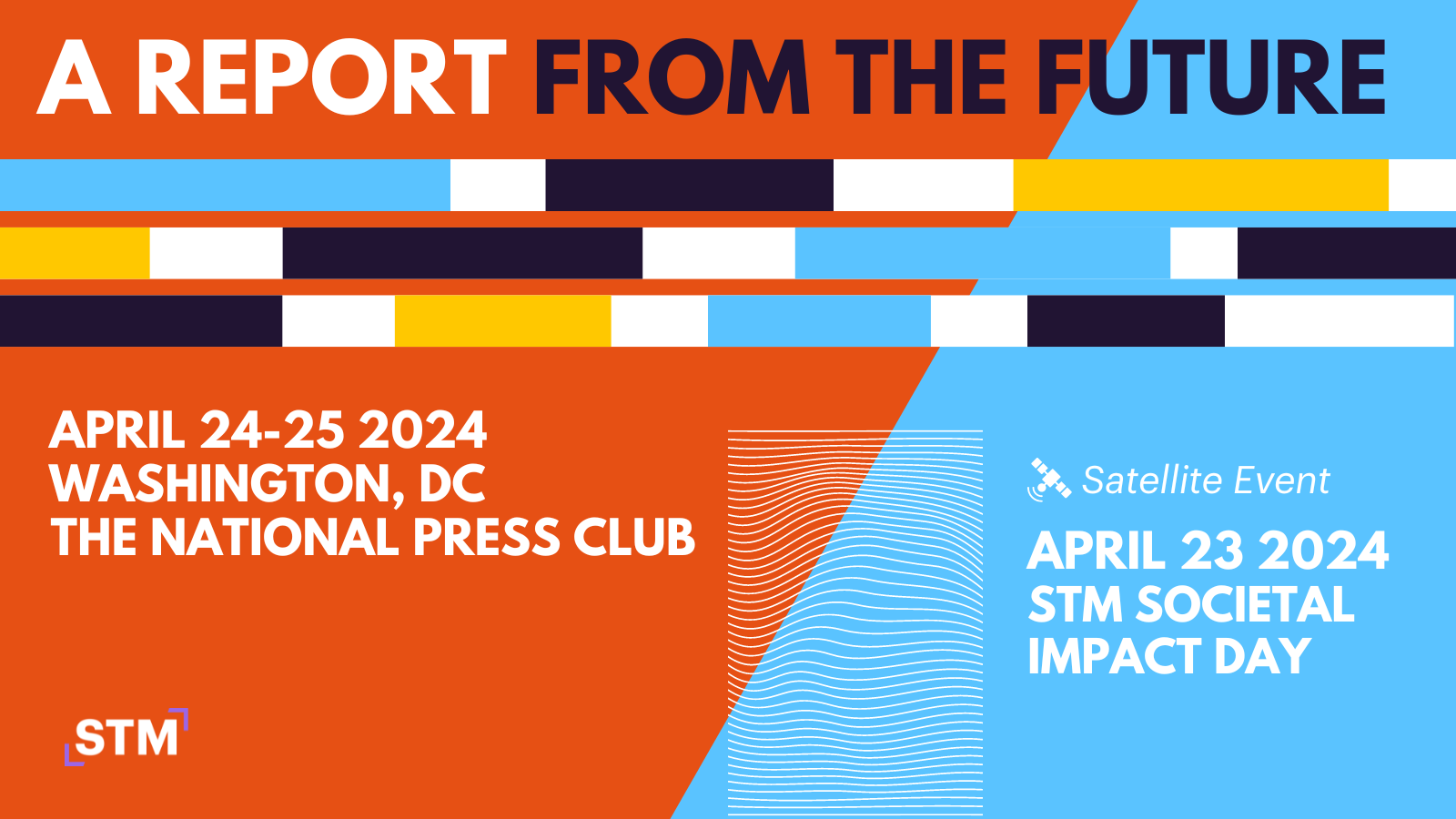
A Report from the Future – STM US Annual Conference 2024
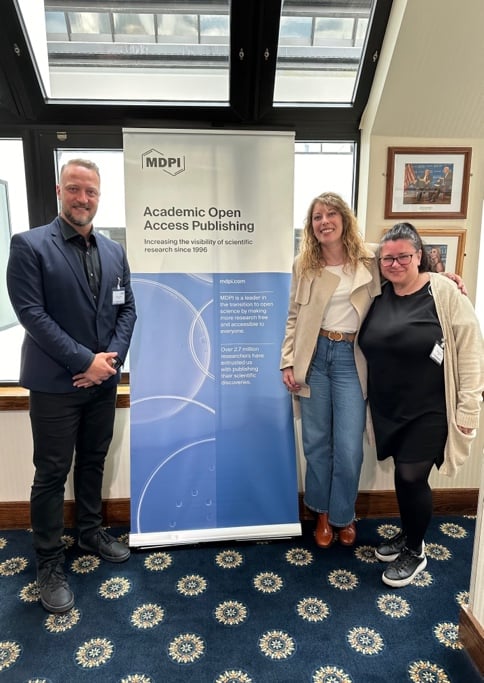
Stefan Tochev (CEO, MDPI), Dr. Giulia Stefenelli and Dr. Ioana Craciun from MDPI’s Scientific Office Board.
MDPI has for a long time been a sponsor of the STM Annual Conferences, held yearly in the US and Frankfurt, and is a trusted partner and supporter of the STM organization. While I have attended the Frankfurt conference for the past three years, this was my first time visiting the Washington, DC session, and I am glad I did.
Although it was a brief trip, I greatly appreciated the opportunity to attend in the company of my colleagues Dr. Giulia Stefenelli and Dr. Ioana Craciun from MDPI’s Scientific Office Board. They always help map some of the new industry trends against MDPI’s operational framework and guidelines. It’s a great group for kicking ideas back and forth on what we can apply at MDPI.
In my experience, STM never fails to deliver. It’s always a great conference for reconnecting with fellow publishers, industry friends, and vendors. As usual, STM this year curated a diverse range of speakers and panels, who proferred valuable knowledge and insights from outside our industry, delivering thought-provoking insights into our field. An example of this was the ‘Trust Panel’ session, which included Alan Schiffres (Managing Director, InfoLinx), who shared a number of the learnings about fraud and risk management from his 40 years in financial services, to help address some of the challenges we are currently facing in the area of publishing integrity.
Launch of STM Trends 2028 Panel
I particularly enjoyed the ‘Launch of STM Trends 2028 Panel’, which presented a report focused on the integration of humans and machines in scholarly publishing. The session highlighted themes such as AI, digitization, and the evolving research ecosystem. The report envisions a future where technology blurs the lines between human and machine involvement in research processes, with significant implications for trust, reputation, and equity. While this presents opportunities for connectivity and knowledge dissemination, it also poses challenges such as disinformation, fragmentation, and geopolitical tensions. We must rely on a wise combination of technology and human agency to navigate this complex landscape and will have to carefully examine its potential impacts on communication and scholarly publishing.
MDPI has joined the STM Integrity Hub. Click here to learn more.
While every presenter brought their own knowledge and personal touch, I was particularly pleased to encounter new speakers such as Heather Whitney (Research Assistant Professor, Radiology, University of Chicago) and Igor Grossmann (Professor of Psychology, University of Waterloo, Canada). Having studied Sociology at the University of Guelph, I have a soft spot for fellow social scientists from Canada, and I was very impressed by Igor’s presentation on ‘The Social Scientist: A View from the Future’ and his participation in the panel session ‘The Future Beyond the Article,’ which was one of my favourites from the conference, given the diversity of perspectives from the panel speakers.
Memorial Park in Washington, DC

On a personal note, this was my first-time visiting Washington, DC, and I’m glad we took an afternoon to visit the Memorial Park, with its incredible monuments to figures ranging from Martin Luther King, Jr. to Abraham Lincoln. The magnitude of the monuments is deeply impressive. I particularly appreciated the Thomas Jefferson memorial and the following quote, which I think speaks to the importance of change and adaptation. It’s something we can apply not only in our industry but also in our personal lives.
"I am not an advocate for frequent changes in laws and constitutions, but laws and institutions must go hand in hand with the progress of the human mind. As that becomes more developed, more enlightened, as new discoveries are made, new truths discovered and manners and opinions change, with the change of circumstances, institutions must advance also to keep pace with the times. We might as well require a man to wear still the coat which fitted him when a boy as a civilized society to remain ever under the regimen of their barbarous ancestors."
– Excerpted from a letter to Samuel Kercheval, July 12, 1816.
Chief Executive Officer
MDPI AG
30 April 2024
MDPI Opens Office in Seoul, Korea and Appoints Claude Seo as Office Manager

MDPI, the leading Open Access (OA) publisher, announced on Monday that it opened its Korean branch office on 29th April 2024. With this addition, MDPI now operates 21 offices in 12 countries worldwide. Claude Seo, with over 20 years of experience in the academic journal publishing industry, including Nature Publishing Group (NPG), has been appointed as the Office Manager of the Seoul office.
With the establishment of a Seoul office, MDPI aims to actively support Korea scientific communities to further promote the publication of OA journals in the region. As of the end of 2023, Korea ranked sixth worldwide in both submissions and publications of MDPI research papers. MDPI is the number one OA publisher in Korea.
Sungkyunkwan University Joins MDPI’s Institutional Open Access Program
In addition, MDPI announced that Sungkyunkwan University joined MDPI’s Institutional Open Access Program (IOAP). This program offers free access to MDPI online submission system for the institutions and APC discounts to affiliated authors. Thirteen major Korean universities, including Sungkyunkwan University, Kyung Hee University, Chung-Ang University and Catholic University of Korea, have adopted IOAP in Korea.
OA aims to break down barriers that have traditionally restricted access to science, ensuring that knowledge is available to all, regardless of financial situation or institutional affiliations. Authors, academia, and scientific communities are rapidly moving toward OA. MDPI has been at the forefront of reshaping the academic publishing landscape, with OA surpassing subscription-based publishing in 2020.
MDPI CEO Visits Seoul, Korea
In March, Stefan Tochev, Chief Executive Officer (CEO) of MDPI, visited Korea and met with various stakeholders including government agencies, research and academic institutions, universities. During his visit, Stefan highlighted that MDPI continues to pave the way for a world where science is accessible to all, supporting a global community of inclusive innovation and collaborative solutions.
Stefan expressed excitement about the new venture, stating, "Today marks a significant milestone for MDPI as we celebrate the opening of our new office in Seoul, Korea. This expansion is more than just an increase in our physical footprint, it is a pivotal step in our ongoing commitment to making scientific knowledge more accessible, participatory, and inclusive across the globe."
Claude Seo, reflecting on his new role, commented, "I am delighted to have been offered this position of trust within MDPI, the no. 1 scholarly OA publisher. As we establish our presence in Korea, we are dedicated to integrating into the local community and contributing to its vibrant culture. Our commitment goes beyond business growth; it is about creating a more informed and innovative society by embracing and promoting diversity within the scientific community.”
For further inquiries, please contact our Seoul office directly.
About MDPI
A pioneer in scholarly, open access publishing, MDPI has supported academic communities since 1996. MDPI is leading the transition to open science by making more research free and accessible to everyone. Over 3.3 million researchers have entrusted MDPI with publishing their scientific discoveries. MDPI’s editorial process is bolstered by a network of dedicated reviewers, a team of 6000 diligent, well-trained staff members, and an in-house article submission platform that was designed to ensure efficient processes within its 430 fully OA titles.
25 April 2024
Animals | 2023 Most Popular Cover Selection

Authors are increasingly interested in having their papers published as a cover story in Animals (ISSN: 2076-2615). There were 24 cover stories published in 2023. These cover stories reported important research results, or innovative methods, and presented impressive images. To reward the authors who have published important research results in Animals, we are announcing the Animals 2023 Most Popular Cover Selection.
Five cover stories will be chosen from the stories published in 2023, and each will receive CHF 200.
The criteria that will be considered for selection are as follows:
- Importance or innovation of the research;
- Quality of the cover image.
The voting will be open from 24 April 2024 to 25 May 2024.
To cast your vote, please visit the following link: https://www.surveymonkey.com/r/VZ3HX2M. The winners will be announced on the journal website by the end of May 2024.
10 April 2024
Animals 2024 Exceptional Reviewers List

We are thrilled to share the updated Exceptional Reviewers List 2024. This program was designed to recognize and honor scholars who have consistently delivered exceptional review reports to our journal. Committed to fostering rigorous research and promoting knowledge exchange, the journal Animals (ISSN: 2076-2615) recognizes the significant role our reviewers play in maintaining the quality and integrity of the articles we publish. According to recent surveys conducted in 2023, 91% of our authors rate the peer review as good or excellent thanks to our pool of excellent reviewers.
We would like to express our sincere appreciation to all reviewers who have generously volunteered their time and expertise to assist in the peer-review process of Animals. Their dedication and attention to detail in evaluating manuscripts, offering valuable feedback, and contributing to academic rigor are truly commendable.
The Exceptional Reviewers List was introduced in April 2024. Each quarter, we will be selecting a group of outstanding reviewers and introduce them here.
Q1
- Dr. Sławomir Mitrus
Affiliation: Institute of Biology, University of Opole, Opole, Poland
Country: Poland
Interest: life history of animals; physiological ecology of animals; ecology and conservation of the European pond turtle (Emys orbicularis); ecology of ants
- Dr. Linda Van Bomme
Affiliation: 1 School of Natural Sciences, University of Tasmania, Hobart, Australia; 2 Fenner School of Environment and Society, Australian National University, Canberra, Australia
Country: Australia
Interest: human wildlife conflict; wildlife management; predator ecology; conservation
- Dr. Richard D. Murray
Affiliation: Institute of Translational Medicine, University of Liverpool, Liverpool L69 3BX, United Kingdom
Country: United Kingdom
Interest: animal science; veterinary medicine; lameness in cattle; pathophysiology of pregnancy; digital dermatitis and dairy cattle
- Dr. Betty McGuire
Affiliation: Department of Ecology and Evolutionary Biology, Cornell University, Ithaca, NY 14850, USA
Country: USA
Interests: mammalian social behavior; parental care, and ecology; applied animal behavior; human–animal interactions; animal shelters; animal welfare
- Dr. Alejandro Casas-Alvarado
Affiliation: Neurophysiology, Behavior and Animal Welfare Assessment, DPAA, Universidad Autónoma Metropolitana (UAM), Mexico City 04960, Mexico
Country: Mexico
Interest: anesthesiology; anaesthesiology; pain assessment; pain management; animal behavior
2 April 2024
MDPI Insights: The CEO's Letter #10 - South Korea, IWD, U2A, Japan

Welcome to the MDPI Insights: The CEO's Letter.
In these monthly letters, I will showcase two key aspects of our work at MDPI: our commitment to empowering researchers and our determination to facilitating open scientific exchange.
Opening Thoughts

Left to right: Dr. Jisuk Kang (Scientific Officer, MDPI), Stefan Tochev (CEO, MDPI), and Dr. Giulia Stefenelli (Chair of Scientific Office Board, MDPI), during media meetings at Prain Agency office in Seoul, South Korea.
Visit to Seoul, South Korea
During my recent visit to South Korea, I had the privilege of meeting various stakeholders, including representatives of government, research institutions, and academia, to understand their needs and communicate MDPI’s commitment to accessible science. Accompanied by my colleagues Dr. Giulia Stefenelli and Dr. Jisuk Kang, I engaged with the Korean scientific community, which is increasingly embracing open access (OA).
As the leading OA publisher in South Korea, MDPI is trusted by local authors and in 2023 enjoyed an approximately 30% share of the OA market. South Korea ranks sixth globally for MDPI in terms of research papers submitted and published.
MDPI and South Korea by Numbers
As at 30 March, over 76,000 MDPI articles have been authored by individuals affiliated with Korean institutions. We have over 1,800 active editorial board members (EBMs) from South Korea, with more than 880 EBMs having an H-index between 26 and 50, including 10 serving as Chief Editors.
“South Korea is the sixth-largest contributor to our total publications”
Over the past five years (2019–2023), nearly 120,000 authors affiliated with South Korean institutes have published with MDPI. Specifically in 2023, we received approximately 25,000 submissions from South Korean authors, publishing close to 13,000 articles, resulting in a rejection rate of 47.4%, which is not far below MDPI’s overall rejection rate of 56.4% in 2023.
Institutional Partnerships with South Korea
I am pleased to share that MDPI has more than 825 institutional partnerships worldwide, with 12 in South Korea, including Kyunghee University, Chung-Ang University, and Inha University, among others.

Left to right: Dr. Jisuk Kang (Scientific Officer, MDPI), Dr. Giulia Stefenelli (Chair of Scientific Office Board, MDPI), and Stefan Tochev (CEO, MDPI) fielding media questions at Prain PR Agency office in Seoul, South Korea.
Over the past three years (2021–2023), we have had some of the most prestigious academic universities ranked among the top 10 Korean institutions publishing with MDPI. Seoul National University had the highest number of publications with MDPI during those three years, publishing nearly 6,000 papers. Universities such as Korea University and Yonsei University also rank among the top 10 Korean institutions publishing with MDPI.
MDPI Hosts Seminar for Academia and Media
As the world’s leading OA publisher, MDPI is actively democratizing science. This is reflected in the seminars we hosted on 21 March to address questions about our editorial processes and ethical standards. The visit garnered media coverage, reflecting our mission to providing high-quality services and fostering open dialogue in the community.
“MDPI is actively democratizing science”
MDPI in the News

Stefan Tochev (CEO, MDPI) leading a seminar on OA and MDPI at Prain PR Agency office in Seoul, South Korea.
Media coverage generated by our visit to Seoul included the following stories:
“Open access is an unstoppable trend…it will lead the development of the knowledge ecosystem.”
I greatly appreciate the contributions of everyone who took the time to meet with us, share their stories, and hold us accountable for continuing to provide high-quality publishing services while identifying areas for improvement. I am also excited to announce that we have opened an MDPI office in Seoul and will release a press release on MDPI.com, with details, by the end April 2024. The purpose of the office is to establish a local presence to connect with and support the South Korean academic community through institutional partnerships, conferences, author workshops, stakeholder communications, and more.
Impactful Research

Featured Articles on Women’s Leadership and Healthcare
In celebration of International Women’s Day (8 March 2024), MDPI curated a collection of research articles on various topics, including women’s leadership, reproductive health, preventive healthcare, and a selection of articles from our journal Women.
Women’s Leadership
- Women Entrepreneurship and Sustainable Development: Bibliometric Analysis and Emerging Research Trends
Sustainability 2022, 14, 9160. https://doi.org/10.3390/su14159160 - Refugee Women Business Mentors: New Evidence for Women’s Empowerment
Sustainability 2022, 14, 9154. https://doi.org/10.3390/su14159154 - Women and Leadership in Higher Education: A Systematic Review
Soc. Sci. 2023, 12, 555. https://doi.org/10.3390/socsci12100555 - Understanding Needs and Potentials for Gender-Balanced Empowerment and Leadership in Climate Change Adaptation and Mitigation in Africa
Sustainability 2022, 14, 9410. https://doi.org/10.3390/su14159410 - Challenges Women Experience in Leadership Careers: An Integrative Review
Merits 2023, 3, 366-389. https://doi.org/10.3390/merits3020021
Women’s Reproductive Health
- Recreational Female Athletes’ Understanding of and Perceived Impact of the Menstrual Cycle on Physical Performance, Mood, and Sleeping Behaviour
Women 2023, 3, 445-456. https://doi.org/10.3390/women3030034 - Difficulties in Adaptation of the Mother and Newborn via Cesarean Section versus Natural Birth—A Narrative Review
Life 2023, 13, 300. https://doi.org/10.3390/life13020300 - The Main Theories on the Pathogenesis of Endometriosis
Int. J. Mol. Sci. 2023, 24, 4254. https://doi.org/10.3390/ijms24054254
Women’s Preventive Healthcare
- Insulin Metabolism in Polycystic Ovary Syndrome: Secretion, Signaling, and Clearance
Int. J. Mol. Sci. 2023, 24, 3140. https://doi.org/10.3390/ijms24043140 - Assessing Barriers Encountered by Women in Cervical Cancer Screening and Follow-Up Care in Urban Bolivia, Cochabamba
Healthcare 2022, 10, 1604. https://doi.org/10.3390/healthcare10091604 - Updates on HPV Vaccination
Diagnostics 2023, 13, 243. https://doi.org/10.3390/diagnostics13020243
Featured Articles in MDPI Journal Women
Below are a few articles from Women, our journal focused on women’s health, the social determinants of health, and the healthcare system that serves women. The aim of Women is to encourage academics to publish their experimental and theoretical results in detail, to aid reproducibility, and in an engaging style, to aid comprehensibility.
- Premenstrual Syndrome and Exercise: A Narrative Review
Women 2023, 3, 348-364. https://doi.org/10.3390/women3020026 - Increasing Awareness of the Human Papillomavirus (HPV) Vaccine for Women 18–45 Years of Age
Women 2023, 3, 365-373. https://doi.org/10.3390/women3030027 - Addressing Women’s Needs with Human Immunodeficiency Virus (HIV) and Enhancing the Visibility of Pharmacists in the Public Health Arena
Women 2022, 2, 346-352. https://doi.org/10.3390/women2040032
Inside MDPI

Championing Women’s Healthcare and Access to Healthcare Information
MDPI colleagues from our offices joined in celebrating #IWD2024. In doing so, we emphasized key missions that encompass:
- Empowering women to assume leadership and decision-making roles in both business and science.
- Helping women and girls make informed decisions about their health.
- Recruiting and developing female talent and fostering inclusive workplace environments.
“We are thrilled to recognize the accomplishments of women scientists”
I am proud to see our colleagues enthusiastically supporting the International Women’s Day call to ‘Inspire Inclusion!’ The heart-hands in the collage below symbolize our appreciation of the achievements of women researchers and the recognition of the trailblazers who have courageously made a mark on societies past and present.

We are thrilled to recognize the accomplishments of women scientists through our many MDPI awards and by highlighting success stories. As inspirational figures, female scientists are paving the way for the next generation of women aspiring to pursue careers in engineering, life sciences, computing, and various other STEM fields.
“I consider myself lucky because I work with incredibly talented women who inspire me every day.”
– Dr. Alessandra Pasut, Winner of MDPI's ‘Biology 2023 Young Investigator Award’
“It’s really important to find a supportive and enabling environment in which to do your science; it would have a big impact on you as a person and on your scientific outputs.”
– Dr. Rhea Longley, Winner of the ‘Pathogens 2023 Young Investigator Award’
Open-access publishing, in particular, allows early-career women researchers to share their work more widely, potentially attracting mentorship opportunities and collaborations. This support is crucial for career development and advancement.
Coming Together for Science

MDPI Joins United2Act in Collective Fight to Stop Paper Mills
In my February 2024 CEO Letter, I highlighted some of our recent initiatives aimed at bolstering our commitment to research integrity, including joining the STM Integrity Hub and expanding our Research Integrity and Publication Ethics team (RIPE). Continuing our efforts in coming together for science, I am pleased to share our participation in the United2Act initiative.
The text below is taken from our official announcement:
United2Act represents an international group of stakeholders in the publishing industry committed to addressing the collective challenge posed to research integrity by paper mills.
Scientists and academic publishers have increasingly noted the alarming proliferation of paper mills, recognized as fraudulent entities seeking to manipulate the publication process for financial profit. These entities engage in fraudulent practices such as falsifying or fabricating data, selling co-authorship of fake papers, manipulating peer review, and including inappropriate citations. These actions pose a significant threat to the integrity of the scholarly record, prompting widespread concern among those involved in the academic community.
MDPI has been actively contributing to combat the undermining of the scientific record. Our editors employ a set of tools to detect potential ethical breaches within a manuscript and to tackle the issue of fake papers.
United2Act’s consensus statement is the outcome of a virtual summit held in May 2023. It involved the participation of research bodies, publishers, researchers/sleuths, universities, and publishing infrastructure from 15 countries and resulted in a Consensus Statement outlining five key areas of action for all stakeholders:
- Education and awareness
- Improve post-publication corrections
- Facilitate and organise research on paper mills
- Enable the development of trust markers
- Facilitate dialogue between stakeholders
MDPI is committed to promoting transparency and integrity in scholarly publishing and is continuing to work closely with the scientific community toward this goal.
Closing Thoughts

Left to right: Ryo Hirayama (Marketing Specialist, MDPI), Takashi Sasabe (Marketing Specialist, MDPI), Dr. Giulia Stefenelli (Chair of Scientific Office Board, MDPI), Dr. Izumi Yamamoto (Marketing Manager, MDPI), and Stefan Tochev (CEO, MDPI), at MDPI’s office in Tokyo, Japan.
Visit to Tokyo and Kyoto, Japan
In March, I had the opportunity to visit our Tokyo office and engage with stakeholders in Tokyo and Kyoto. During the visit, I also recorded a video message to welcome Japanese scholars working with MDPI and to highlight our operations in Japan.
We held meetings with Editors-in-Chief, librarians, scholars, and external consultants to gather feedback on our efforts to enhance our reputation and explore additional steps we can take in that direction. Japan's rich cultural heritage, characterized by tradition, respect, and formality, provided valuable insights into meeting the publishing needs specific to Japan.
Japan’s Open Access statistics
Over the years, we have seen a shift from subscription-only to gold OA publishing in Japan, despite the lack of an official mandate. Here are some statistics:
- 2012: 68% of articles were subscription-only, 6% were green Open Access, and 8% were gold Open Access.
- 2016: 55% of articles were subscription-only, 6% were green Open Access, and 20% were gold Open Access.
- 2022: 43% of articles were subscription-only, 7% were green Open Access, and 39% were gold Open Access.
To learn more about the history of OA in Japan as well as about future trends, please read this blog post.
“Japan is the ninth-largest contributor to our total publications”

Left to right: Stefan Tochev (CEO, MDPI), Dr. Izumi Yamamoto (Marketing Manager, MDPI), and Dr. Giulia Stefenelli (Chair of Scientific Office Board, MDPI) visiting Kyoto University in Kyoto, Japan.
MDPI and Japan by Numbers
As at 1 April, over 50,000 MDPI articles have been authored by scholars affiliated with Japanese institutions, making the country the ninth-largest contributor to our total publications. Over the past three years (2020–2023), nearly 90,000 authors affiliated with Japanese institutes have published with MDPI, and we have collaborated with over 4,600 Guest Editors from Japan.
In 2023, we published over 8,200 papers from authors associated with Japanese institutions. MDPI collaborates with 41 institutional partnerships in Japan, including the University of Tokyo, Hokkaido University, and Nagoya University. We have over 2,100 active EBMs from Japan, more than 1,050 EBMs having an H-index between 26 and 50, including 13 serving as Editors-in-Chief.
General Feedback – a side note
A general takeaway from our discussions with stakeholders from around the world is that negative perceptions of MDPI often stem from misinformation, misconceptions, or misunderstandings about MDPI and our practices. While we acknowledge our mistakes and work diligently to address them, maintaining a strong editorial procedure and robust peer-review process, I find that educating stakeholders about our how we do what we do and our ongoing improvements tends to help shift opinions.
That said, we recognize the importance of addressing individual concerns. We take feedback seriously and are continuously working to get better while not compromising the core principles that millions of authors appreciate about MDPI.
Chief Executive Officer
MDPI AG
4 March 2024
MDPI Insights: The CEO's Letter #9 - Romania, Research Integrity, Viruses

Welcome to the MDPI Insights: The CEO's Letter.
In these monthly letters, I will showcase two key aspects of our work at MDPI: our commitment to empowering researchers and our determination to facilitating open scientific exchange.
Opening Thoughts

Reka Kovacs (Deputy Office Manager, MDPI), Stefan Tochev (CEO, MDPI), and Sandra Ana Spatariu (Office Manager, MDPI) at the MDPI office in Cluj, Romania.
MDPI’s Impact on Romania
In February, I visited our office in Cluj, Romania. I worked closely with our senior office managers and various teams, including the departments of training, marketing and conferences, as well as our journal relationship specialists, reviewing our service to the local scholarly community. During the visit, I also met with representatives from Babes-Bolyai University and the Technical University of Cluj-Napoca. Our multifunctional Romanian office plays an important role in supporting our collaborations with the local market as well as helping to meet MDPI’s overall business needs.

Feedback and strategy meeting with a group of MDPI’s Journal Relationship Specialists at the MDPI office in Cluj, Romania.
With 22,436 articles, Romania ranks as a top 20 contributing country to MDPI’s total number of papers published as at 28 February 2024. This highlights the importance of our collaboration with Romanian-affiliated authors and the growing opportunity to support their publishing needs. MDPI is one of the few academic publishers with a significant presence in Romania, boasting over 360 colleagues across our offices in Bucharest and Cluj. We are also proud to hire colleagues from local institutions to launch their careers within publishing.
Romania ranks as a top 20 contributing country.
The Numbers: 2019–2023
MDPI has seen a healthy increase in submissions from Romanian authors over the past three years, from 8,439 in 2021 to 11,866 by end of 2023, with most submissions going to journals such as Sustainability, Medicina, Diagnostics, IJMS, Applied Sciences, and JCM. From 2019 to 2023, MDPI published articles from 32,145 authors affiliated with Romanian institutions. Over those years, we have worked with Romanian Guest Editors on nearly 3,000 occasions to support their Special Issue and Topical collections.
With more than 300 Editorial Board Members from Romania, 34 appear on the board of Mathematics, 27 on Materials, 19 on Polymers, 18 on Coatings, and 16 on Molecules, while three serve as Section Editors-in-Chief (SEiC) on our journals Coatings (3.4 IF, 4.6 Citescore), Magnetochemistry (2.7 IF, 3.5 Citescore), and Chemosensors (4.2 IF, 3.9 Citescore).
Institutional Open Access Programs
Our commitment to working with institutions is evident in Romania, where we have established eight Institutional Open Access Programs (IOAP) with esteemed institutions such as the University of Bucharest, the University of Medicine and Pharmacy Cluj-Napoca, and most recently the National Institute for Laser, Plasma and Radiation Physics.
Our growth and presence in Romania are a true testament.
We also have IOAP agreements with Babes-Bolyai University and the Technical University of Cluj-Napoca, where I had the opportunity to meet senior stakeholders during my visit. Below are a few photos capturing our meeting with Prof. Radu Silaghi-Dumitrescu (Head of Faculty of Chemistry, Babes-Bolyai University) at the MDPI office in Cluj, Romania, along with a photo from our meeting with Vice Deans Nicoleta Cobarzan, Nicoleta Ilies, and Hoda Gavril, from the faculty of Civil Engineering at the Technical University of Cluj, Romania.


Our growth and presence in Romania are a true testament to the service we provide to the scholarly community and the relationships we foster in that region. We look forward to continuing to support Romanian scholars and institutions by providing a valuable and trusted experience with MDPI, the leader in open access publishing.
Impactful Research

MDPI Joins the STM Integrity Hub
MDPI has long been a supporter and partner of STM, with our involvement ranging from sponsoring and attending events to helping organize event programs. By joining the STM Integrity Hub, we aim to further our commitment to STM initiatives aimed at safeguarding the integrity of science.
“We are pleased to welcome MDPI as the 35th organisation participating in the Hub. This expansion is critical, as every new member enhances our capacity to prevent fraudulent submissions from entering the academic record.”
Joris van Rossum, Director of Research Integrity, STM
MDPI operates in full alignment with STM Integrity Hub's values of shared data and experiences. We strongly believe in collaboration and open exchange for the purposes of creating a holistic approach to support research integrity at MDPI itself and across the entire academic publishing industry. The Integrity Hub is an excellent example of how publishers can come together to jointly address industry-wide challenges related to research integrity, such as manuscripts that breach research integrity standards and paper-mills.
I look forward to our Research Integrity and Publication Ethics Team (RIPE) team immersing themselves in this initiative, exchanging information, best practices, and tools for the benefit of the entire scholarly ecosystem. We believe that ethical publishing standards should be implemented across the board, and we aim to be rigorous in our approach, addressing research integrity issues and improving the impact of published research.
Inside MDPI

MDPI Expands Research Integrity and Publication Ethics Team (RIPE)
In addition to external collaborations and joint initiatives aimed at further strengthening our commitment to research integrity, we are also enhancing our internal efforts. This includes improving our processes and guidelines and expanding our teams and departments to ensure quality assurance throughout our publishing process.
We are pleased to announce the expansion of our Research Integrity and Publication Ethics Team (RIPE) at MDPI. The RIPE team has recently welcomed new colleagues, each bringing unique skills and a personal commitment to prioritize ethical considerations in all our work.
The demand for research integrity and high ethical standards in academic publishing is steadily rising across our industry. Our expanded RIPE team will work to enhance and align our practices with industry best practices, ensuring excellence in research integrity and publication ethics.

Stefan Tochev (CEO, MDPI) introduces Dr. Tim Tait-Jamieson (Research Integrity Lead, MDPI) for his presentation on MDPI’s Retraction and Approval Process to a group of Journal Relationship Specialists at the MDPI office in Cluj, Romania: “The demand for research integrity and publication ethics is steadily rising across our industry.”
Introducing our Research Integrity and Publication Ethics Team
Led by Dr. Tim Tait-Jamieson (Research Integrity Lead), the RIPE team comprises Dr. Ivana Resanovic (Research Integrity Manager), Dr. Lavinia Rogojina (Research Integrity Manager), Ms. Diana Apodaritei (Research Integrity Specialist), Dr. Zoltan Mihaly (Research Integrity Specialist), Mr. Aleksandar Đukić (Research Integrity Specialist), Ms. Ana Stankovic (Research Integrity Specialist), and Ms. Anna Pena (Publication Ethics Assistant).
Please click here to access everything that you need to know about MDPI’s Research and Publication Ethics.
With this span of complementary roles, the RIPE team collaborates directly with journal editorial teams and works closely with various departments, including our Scientific Office Board and our Journal Relationship Specialists. The team’s primary objectives are to help prevent issues regarding research integrity and publication ethics during peer review, uphold MDPI’s ethics policies, adhere to industry standards, and resolve publication ethics and research integrity issues and complaints.
Quality Updates to Special Issues Oversight
At MDPI, we are committed to reviewing policies pertaining to the quality of research. In this blog post, Shaheena Patel (Communications Associate, MDPI), outlines two recent updates to MDPI journal processes. These updates pertain to Special Issue (SI) quality guidelines, in line with criteria provided by COPE and DOAJ. Alongside the SI updates, details regarding the new minor corrections policy introduced in 2024 are provided in the blog.
The two updates we implemented include greater oversight and the verification of Guest Editor credentials. These guidelines require that Editors-in-Chief (EiCs) and Editorial Board Members (EBMs) take responsibility for overseeing SIs.
PS. Thank you, James Butcher, for featuring this up in your 67th issue of the Journalogy newsletter.
Read more:
Coming Together for Science

Viruses 2024 – A World of Viruses
I am pleased to share the success of our MDPI conference Viruses 2024 – A World of Viruses, held 14-16 February, in Barcelona. With 240 registrations, this event brought together top scientists, researchers, and industry experts from 40 countries to share their findings on the latest developments in viral pathogenesis and immune responses.
Attendees gathered for the 5th edition of the Viruses’ conference, where we hosted influential keynote speeches from Nobel Prize laureate Dr. Charles M. Rice and ‘Distinguished Senior Virologist’ Prof. Luis Enjuanes, along with 14 invited speakers, 47 selected speakers, and nine flash poster presenters, to discuss the most significant issues in virology today.
Recap on the #Viruses2024 Conference
Take a look at the key moments from MDPI’s Viruses event and please join us in commemorating a gathering for global knowledge and cooperation. A heartfelt thank-you to all attendees; their passion and engagement played a crucial role in making this event an engaging success!
Below are calls to action from the keynote speakers encouraging collaboration and communication:
“There’s never been a better time than now to really take the power that we have both in terms of basic research and also in biotech and pharma to develop antiviral agents.” - Dr. Charles M. Rice, The Rockefeller University, New York, USA
“The collaboration between labs is absolutely essential. Improving initial detection and improving communication is a must for all of us working in science.” - Prof. Dr. Luis Enjuanes, National Center of Biotechnology (CNB-CSIC), Madrid, Spain

Our thanks go to our sponsors and partnering societies, our Viruses journal and editorial team, our Barcelona colleagues, and the social media, conference and other MDPI teams for making this event a memorable occasion. View the event gallery here.
Upcoming In-Person Event

24–26 April, 2024
4th MMCS – Harnessing the Power of New Drug Modalities
Location: Barcelona, Spain
Esteemed speakers at MMCS 2024 include Prof. Arun K. Ghosh, the mind behind the Darunavir molecule, and Prof. Paul Brennan, CSO of Alzheimer's Research UK Oxford Drug Discovery Institute.
Find more upcoming MDPI events here.
Organize Your Event with MDPI’s Sciforum
Sciforum is MDPI’s platform dedicated to the organization of scientific events. In line with our mission to promote science, Sciforum supports scholars, societies, research networks, and universities at all stages of organizing in-person events, virtual events and webinars. Our platforms are efficient, user-friendly, and cost-effective. We handle all steps related to event management. Contact us for details.
Closing Thoughts

Researcher to Reader (R2R) Conference
From 20–21 February 2024, I had the pleasure of attending the Researcher to Reader (R2R) conference in London, which MDPI has proudly sponsored over the years. The conference programme offered a variety of session formats, including workshops, panel discussions, debates, interviews, presentations, and lightning talks, with opportunities to discuss relevant topics.
We take pride in supporting the scientific community, bringing researchers across the world together to network, exchange ideas and share the latest in science and publishing. In 2023, MDPI invested close to 2 million CHF in sponsoring over 2,000 scientific and publishing-related conferences worldwide.
R2R Peer Review Innovations Workshop
I found the R2R conference to be engaging, with the workshops being particularly enjoyable. My colleague Giulia Stefenelli (Chair of Scientific Office Board) and I participated in the “Peer Review Innovations” workshop, which spanned four sessions over the two days. These sessions explored the future of peer review and how we can improve the peer review process for everyone involved. Notably, the large majority of attendees expressed their opinion that peer review, as currently practiced, requires significant improvement. Together, we collaborated on potential immediate and long-term improvements and innovative processes, aiming to create an ecosystem beneficial to all stakeholders by strengthening submission systems with the aim of reducing threats and making authors more responsible for their work. We also discussed the opportunity for academic institutions to better scrutinize the quality of the work produced and submitted to journals.
Our group comprised publishers, software providers, librarians, and more, bringing diverse perspectives to the discussions. These interactions were relevant to MDPI’s ongoing conversations, providing insights to our efforts. The session also made me appreciate that MDPI is doing well, as the group discussions included the subject of various quality checks that we have already embedded in our processes, ensuring that we keep abreast of industry standards.
The need for an optimized system to incentivize the activities of editors and reviewers was also a focus of discussion, as well as the support that reviewers need from publishers via the provision of strong reports through fixed forms, questionnaires and training.
At MDPI, we are currently auditing our reviewer program to improve reviewer recognition, guidelines, and methods for identifying suitable reviewers, while maintaining our commitment to quality and timeliness.
Congratulations to Mark Carden, Conference Director, and the R2R team for organizing a productive and successful event. PS: The break times were greatly appreciated as well!
Chief Executive Officer
MDPI AG
26 February 2024
Meet Us Online at the MDPI World Wildlife Day Webinar 2024, 1 March 2024

MDPI would like to invite all experts recognized in their fields to attend the MDPI World Wildlife Day Webinar 2024. The aim of this webinar is to encourage scientists to come together, take action, and raise awareness as to how the exchange of findings facilitates efforts towards wildlife conservation.
Conference: MDPI World Wildlife Day Webinar 2024
Date: 1 March 2024
Time: 5:00 p.m.–6:30 p.m. (CET)
To register in advance for this workshop, please click here.
After registering, you will receive a confirmation email containing information on how to join the workshop. The number of participants able to join the workshop is limited; however, a recording will be made available online shortly afterwards. Registrations with academic institutional email addresses will be prioritized.
Workshop Speakers:
Name: Dr. Luísa Rodrigues
Affiliation: Portuguese Institute for the Conservation of Nature and Forests, Portugal
Presentation theme: “The Importance of Knowledge Sharing: 36 Years of Bat Conservation in Portugal”
Name: Dr. Todd Fredericksen
Affiliation: Ferrum College, Virginia, USA
Presentation theme: “A Case Study on a Long-Lived Turtle: Terrestrial Species in Eastern North America - the Woodland Box Turtle”
We are pleased to provide this excellent opportunity to all outstanding researchers in their fields, to propose and develop new approaches, exchange perspectives, and encourage new lines of research.
To find out more about the speakers and the program, please visit https://sciforum.net/event/MWWDW24. We hope that you are able to join us for this event.
MDPI Webinar Secretariat
31 January 2024
Acknowledgment of the Reviewers of Animals in 2023
In recognizing the exceptional efforts of our reviewers in 2023, we express our sincere gratitude for upholding the high standards of Animals. Their commitment ensured the rigorous peer review that is integral to quality academic publishing.
In 2023, Animals received 15,661 review reports, from 8302 reviewers. This past year, we worked with reviewers from 101 countries and regions, reflecting the diversity in our collaboration with research communities. Their dedication shapes scholarly discourse and advances global research. The editorial team expresses gratitude for the vital role played by each reviewer in the Animals family throughout 2023, and we look forward to their continued support in 2024.
The following are the reviewers who have consented to show their names:
| Aaron Norris | Katarzyna Ropka-Molik |
| Abbas Zamani | Katarzyna Tkacz |
| Abdallah Tageldein Mansour | Katarzyna Wojczulanis-Jakubas |
| Abdo Gassar | Katharine Carter |
| Abdolmohammad Abedian Kenari | Kathleen Burek-Huntington |
| Abdul Khalique | Kathleen Cooney |
| Abel Villa-Mancera | Kathleen Morgan |
| Abhilasha Kandahalli Venkataranga Nayaka | Kathreen Ruckstuhl |
| Abhinav Sur | Katia Pinello |
| Abner Josué Gutiérrez-Chávez | Katrin Toenissen |
| Abubeker Hassen | Katrina Counihan |
| Ad Groof | Katrina Merkies |
| Adam Biedrzycki | Katsunori Okazaki |
| Adam Cardilini | Kazuomi Sato |
| Adam Hartstone-Rose | Kees Lokhorst |
| Adam L. Kaczmarek | Keila Acevedo Villanueva |
| Adam Pyzik | Keisuke Ishizawa |
| Adham Al-Sagheer | Kelly R. Debure |
| Adi Ratriyanto | Kemal Tuna Olğaç |
| Adília Pires | Keni Ren |
| Adolfo Alvarez | Kenji Saitoh |
| Adrian Grozea | Kenneth Liegner |
| Adriana Consorte-McCrea | Kerou Zhang |
| Adriana Domínguez-Oliva | Kerry Bartie |
| Adriana Morar | Khairul Syahputra |
| Agata Piestrzynska-Kajtoch Piestrzyńska-Kajtoch | Khaled Itani |
| Agata Znamirowska-Piotrowska | Khaleel Jawasreh |
| Agnieszka Partyka | Kichoon Lee |
| Agung Irawan | Kimberly Ange-van Heugten |
| Agustín Olmedo-Juárez | Kin Kui Lai |
| Ahmed Abdel-Wareth | Kirsten Persson |
| Ahmed Ali | Kirsty Lesniak |
| Ahmed Elbestawy | Kirthiram Sivakumar |
| Ahmed Hammam | Klaus Eder |
| Ahmed Saleh | Klemen Potočnik |
| Ahrar Khan | Konrad Fischer |
| Aislan Vivarini | Konstadinos Abeliotis |
| Aiswariya Deliephan | Konstantina Fotou |
| Aitor Arrazola | Konstantinos Arsenopoulos |
| Aitor Fernandez-Novo | Kostas Kougioumoutzis |
| Aitor Garcia-Vozmediano | Krishnamoorthy Srikanth |
| Akebe Luther King Abia | Kristine Hill |
| Akira Nakanishi | Krisztián Frank |
| Ákos Bodnár | Krisztian Katona |
| Alain Fontbonne | Krzysztof Andres |
| Alan Ealy | Krzysztof Tomczuk |
| Álan Pöppl | Ksenia Onufrieva |
| Alan Young | Kun Li |
| Alba Jurado-Ruzafa | Kursat Altay |
| Albert Buitenhuis | Kyle Lovercamp |
| Albert Montori | Kylie Legg |
| Alberto Barbaresi | Kyung-Woo Lee |
| Alda Natale | L. Maruccio |
| Aldo Corriero | Labrini V. Athanasiou |
| Alejandra García-Gasca | Lambros Kokokiris |
| Alejandro Casanova-Higes | Lara Maistrello |
| Alejandro Casas-Alvarado | Lara Tinacci |
| Alejandro Escamilla Sánchez | Larry Carbone |
| Alejandro Plascencia | Larry Chase |
| Aleksandra Domanjko Petrič | Larry Croft |
| Aleksandra Jezierska-Thöle | László Szőllősi |
| Aleksei Podturkin | Laudi Leita |
| Alemayehu Kidane | Laura Almela Veracruz |
| Alessandra Crisá | Laura Calvillo |
| alessandra Gaffuri | Laura Contalbrigo |
| alessandra pelagalli | Laura Gastaldi |
| Alessandro Benedetto | Laura Kvist |
| Alessandro Catenazzi | Laura Teresa Hernández Salazar |
| Alessandro Ferrarini | Lauren Samet |
| Alessandro Reggiani | Laurent Delooz |
| Alessandro Spadari | Laurie Shornick |
| Alessandro Zumbo | Lauryn E. DeGreeff |
| Alessia Cordella | Laxman Khanal |
| Alessia Mariacher | Lea Klambeck |
| Alessio Iannucci | Leandro Buffoni Perazzo |
| Alexander Dvoretsky | Leilane Dourado |
| Alexander Grahofer | Leineweber Christoph |
| Alexander Kirillov | Lekshmi Edison |
| Alexander Mott | Leonardi Leonardo |
| Alexander Tavella | Leonardo Meomartino |
| Alexander Zakhartchouk | Leonor Natividad Camacho Sillero |
| Alexandra Correia | Leontina Grigore-Gurgu |
| Alexandra Dugdale | Leopold Slotta-Bachmayr |
| Alexandra Francisco | Lesley Rogers |
| Alexandra Muresan | Leslie Irvine |
| Alexandre Silva | Lester Pordesimo |
| Alexandros Konstantinidis | Letizia Fiorucci |
| Alexandros Kougioumtzis | Leveda Cheng |
| Alexandru Gudea | Li Guo |
| Alexandru Tutunaru | Li Zhipeng |
| Alexey Andreychev | Liam Clay |
| Alexey Makunin | Lidija Peric |
| Alexey Maximov | Liga Kovalcuka |
| Alexios Lolas | Ligen Yu |
| Alexis Ribas Salvador | Ligiane Leme |
| Alexsandra Fernandes Pereira | Liliana Distasio |
| Alfonso Bolarín | Lily Edwards-Callaway |
| Ali Aygün | Liming Hou |
| Ali El-Raghi | Lin Song |
| Alica Kočišová | Lin Wang |
| Alicja Kowalczyk | Lina Martínez-López |
| Alkiviadis Vatopoulos | Linas Balčiauskas |
| Allai Larbi | Linda Morrison |
| Allen Pettey | Ling Yang |
| Allison Kerwin | Lingchen Yang |
| Alma Alarcon-Rojo | Lingjiang Min |
| Alvaro Fernández-Montero | Lingwei Sun |
| Am Azbas Taurusman | Linlin Zhang |
| Amalia E. Morales | Lisa Ernst |
| Amanda Maiorano | Lisa Holmes |
| Amanda Warren-Smith | Lisa Moses |
| Amaro Saco | Lisa Murphy |
| Amelia Munsterman | Liudmila Lysenko |
| Amin Tamadon | Livio Galosi |
| Amir Ayali | Lluis Ferré Dolcet |
| Amira Goma | Lokesh Kumar |
| Amira Moawad | Long Chen |
| Amit Chougule | Long Guo |
| Amit Ganatra | Longchao Zhang |
| Amit Ranjan | Lorena Jiménez Sobrino |
| Amit Vikram | Lorenzo Domenis |
| Amlan Patra | Lori Sheeran |
| Amy MacNeill | Louis Divincenti |
| Ana Bustos | Luca Canova |
| Ana Catarina Matias | Luca Fontanesi |
| Ana Catarina Torres | Luca Stucchi |
| Ana Cristina Ferreira | Lucas Boer |
| Ana del Cerro | Lucas Rannier Ribeiro Antonino Carvalho |
| Ana I. Faustino-Rocha | Lucía Alarcón-Ríos |
| Ana Isabel Garcia Ruiz | Lucia Bailoni |
| Ana Kaić | Lucia Victoria Bel |
| Ana Margarida Pereira | Luciana Diniz Rola |
| Ana Maria Benedek | Luciana Rossi |
| Ana Molina-López | Luciana-Catalina Panait |
| Ana Muñoz | Luciano Bosso |
| Ana Rey | Luciano Vilchez-Gomez |
| Ana Roca Fernandez | Lucyna Kirczuk |
| Ana Santana | Ludek Barton |
| Ana Velloso Alvarez | Ludmila Zavadilová |
| Anahit Nazari-Ghadikolaei | Luigi Sacchettino |
| Anand Paramasivam | Luis Águila |
| Anastasia Diakou | Luís Bassetti |
| Anastasio Argüello | Luis Conceicao |
| André Antonio Pelegrine | Luis Corona |
| André Luiz Rodrigues Roque | Luis Hector Hernandez Hernandez |
| André Pereira | Luis M. Bautista-Sopelana |
| Andre Zoppa | Luis Monteagudo |
| Andrea Corda | Luis Quintela Arias |
| Andrea Garmyn | Luis Ramirez-Aviles |
| Andrea Guarino | Luis Such-Miquel |
| Andrea Laconi | Luiz Henrique P. Silva |
| Andrea Summer | Lukasz Zdrojkowski |
| Andrea V. Peralta | Luke Duncan |
| Andrei Gradinaru | Lutz Auerswald |
| Andrei Granovitcj | Lynne Sneddon |
| Andreia Garces | Lysimachos G. Papazoglou |
| Andreia Matos | Lyubov Sukhanova |
| Andreia Rodrigues | Lyudmila Kamburska |
| Andrej Lavrencic | Lyudmila Khrabrova |
| Andres Contreras | M. C. Grafton |
| Andrés Muñoz-Pedreros | M. Sheats |
| Andressa Rodrigues | M. Teresa Tejedor |
| Andrew Conlan | Maaria Kortesniemi |
| Andrew Jeffs | Maciej Frant |
| Andrew Smith | Maciej Grzybek |
| Andrey Aksenov | Maciej Szewczyk |
| Andrzej Zybert | Maciej Zdun |
| Andy Dell | Magdalena Kulus |
| Ángel Gutiérrez | Magdalena Larska |
| Àngel Luján | Magdalena Mazur-Kuśnirek |
| Angela Bergschmidt | Magdalena Solka |
| Angela M. Garcia-Sanchez | Magdalena Stachnik |
| Angela Riveroll | Magdalena Zatoń-Dobrowolska |
| Angélica Vasconcellos | Mahmoud Azzam |
| Angélica Villarruel-López | Mahmoud Madkour |
| Angeliki Katsafadou | Maja Zakošek Pipan |
| Anil Bhujel | Malcolm Jobling |
| Anil Kumar Vijjamarri | Małgorzata Blatkiewicz |
| Anita Schmidek | Małgorzata Majewska |
| Anna Arczewska-Włosek | Małgorzata Matysek |
| Anna Bergh | Mandy Paterson |
| Anna Dolgova | Manman Shen |
| Anna Kasprzyk | Mansur Sandhu |
| Anna Milczarek | Manuel De Rojas |
| Anna Rzasa | Manuel Fondevila |
| Anna Scandurra | Manuela Oliveira |
| Anna Szczerba-Turek | Marc Drillich |
| Anna Szczotka-Bochniarz | Marc Girondot |
| Anna Szilasi | Marc Muller |
| Anna Tuśnio | Marcello Franchini |
| Anna Wyrostek | Marcelo Borges Tesser |
| Anna Wysokińska | Marcelo Ghezzi |
| Annamaria Castello | Marcelo Gómez |
| Annamaria Costa | Marcelo Moura |
| Annamaria Nagy | Marcelo Ratto |
| Annamaria Passantino | Marcia Fernandes |
| Anna-Rita Attili | Marcin Barszcz |
| Anne Krogh | Marcin Lis |
| Anne Laarman | Marco Battelli |
| Anne Vardo-Zalik | Marco Birolo |
| Anneli Rydén | Marco Bovo |
| Annemarie Ohler | Marco Cucco |
| Anny Graycy Lima | Marco Ebbing |
| Anoop Alex | Marco Juárez Estrada |
| Anoosh Rakhshandeh | Marco Saroglia |
| Anthony Rowe | Marco Zedda |
| Antonella della Malva | Marco Zuffi |
| Antonella Puggioni | Marcos Brioschi |
| Antonia Picornell | Marcos Godoy |
| Antonietta Di Francesco | Marcus Corat |
| Antonietta Santoro | Mardik Leopold |
| António Andrade Vicente | Marek Pieszka |
| Antonio Carlos Câmara | Margaret Duxbury |
| Antonio Minervino | Margarida Cardoso |
| Antonio Ortega-Pacheco | Maria Angelica Miglino |
| Antonio Pazos | Maria Belén López Morales |
| Antonio Pedro Santos | Maria Bruno Galarraga |
| Anusorn Cherdthong | Maria Calado |
| Aranganoor Kannan Thiruvenkadan | Maria Consuelo Mura |
| Ariadne Hager-Theodorides | Maria da Conceição Medeiros de Castro Fontes |
| Aristotelis Lymperopoulos | Maria de Lourdes Jiménez-Badillo |
| Arkadios Dimitroglou | María Del Mar Campo |
| Arkadiusz Dors | María Del Mar Granados-Machuca |
| Arlind Mara | María Del Mar Yllera |
| Armando Aguilar-Caballero | Maria Denisse Montoya Flores |
| Arnaud lebret | María Dolores Fernández Rodríguez |
| Arno Swart | María Dolores Gómez Ortiz |
| Artem Rozhin | Maria Elena Gelain |
| Artur Ferreira | Maria Eugênia Canozzi |
| Artur Gurgul | Maria J. Alcalde |
| Arturo G. Valdivia-Flores | María J. Delgado |
| Arun De | María Jesús Serrano Andrés |
| Arun Sridhar | Maria João Fradinho |
| Arunima Sikdar | Maria Jose Cubero Pablo |
| Arvind Sharma | Maria José Ranzani-Paiva |
| Asad Ali | Maria Leonor Orge |
| Asger Jensen | Maria Lucia G. Lourenço |
| Ashley Edes | Maria Luisa Dettori |
| Asim Niaz | Maria Malvina Tsamouri |
| Asmaa Khafaga | Maria Maust-Mohl |
| Athanasios Gelasakis | Maria Montaña Lopez Parra |
| Atsushi Kato | Maria Montserrat Rivera del Álamo |
| Augusto Carluccio | María Moraza |
| Augusto M. L. Madureira | María Ortega-Cerrilla |
| Autchara Kayan | María Otero |
| Avinash Premraj | Maria Pia Franciosini |
| Aziz ur Rahman Muhammad | María Pilar González-Hernández |
| Azizul Azizan | María Sáez-Royuela |
| Bagath Madiajagan | Maria Santacà |
| Balaskas Christos | Maria Santillan |
| Baojun Tang | Maria Soltero-Rivera |
| Barbara Brunetti | Maria Tempesta |
| Barbara lamagna | Maria Teresa Armúa-Fernández |
| Barbara Schöning | María Teresa Díaz |
| Barbara Wolfe | María Teresa Gómez |
| Barbara Zorica | Maria Teresa Manfredi |
| Bartosz Borczyk | Maria Zelinda Romano |
| Bartosz Kierończyk | Maria Zoupa |
| Bartosz Pawliński | Marian Brzozowski |
| Basem Ahmed | Marian Czauderna |
| Basveshwar Gawali | Mariana Almeida |
| Beata Abramowicz | Mariana Bentosela |
| Beata Sitkowska | Mariana Melo |
| Beata Wodecka | Mariane Beline |
| Beatriz Alegre | Mariangela Caroprese |
| Beatriz Brener | Marianna Musco |
| Behrooz Heidari | Maricel Floricel Dima |
| Bekir Kabasakal | Marilisa Novacco |
| Bektaş Sönmez | Marin Torti |
| Belal Obeidat | Marina Sofia |
| Benedetta Tugnoli | Marina Spinu |
| Benito Soto-Blanco | Mário Araújo |
| Benjamin de Montgolfier | Mario Encinoso |
| Benjamin Rosenthal | Mário Silvestre |
| Benjamin Smith | Marion Ferren |
| Benjamin Valladares Carranza | Marion Mucha |
| Bernard Roelen | Màrius V. Fuentes |
| Bernard Turek | Mariusz Florek |
| Bernardo Baldisserotto | Mariusz Piotrowski |
| Bernd Ueberschär | Mark McGee |
| Bernice Harris | Mark Musch |
| Bersissa Kumsa | Mark Rawling |
| Bert Driessen | Marko Cincović |
| Bertrand Deputte | Marko Pajić |
| Betty McGuire | Marta Vascellari |
| Bianka Grunow | Martin Casco-Robles |
| Biao Chen | Martin Gierus |
| Bilal Paray | Martin Richter |
| Bin Li | Martín Rodríguez |
| Bin Zhou | Martin Schulze |
| Blanca Moncunill-Solé | Martin Soust |
| Bo Zhou | Martin Svoboda |
| Bogdan Lewczuk | Martina Colombo |
| Bohao Fang | Martina Crispo Benedetto |
| Bojana Kokić | Martina Torricelli |
| Boris Bilčík | Martyna Małopolska |
| Boris Yakobson | Marwan Osman |
| Bossima Ivan Koura | Mary Lee Jensvold |
| Boštjan Pokorny | Maryam Mohammadi-Aragh |
| Brad Heins | Marzena Mogielnicka-Brzozowska |
| Brian Babigumira | Maša Pintarič |
| Brian Ellis | Masayuki Takeda |
| Brian Jay Kerr | Masoud Aghapour |
| Brian Nielsen | Massimo Biagetti |
| Britta Dobenecker | Massimo Bracci |
| Brittany Backus | Massimo Trabalza-Marinucci |
| Bruce McGorum | Mateus de Souza Ribeiro Mioni |
| Bruce Smith | Matheus Cruz |
| Byung-Hoon Jeong | Mathilde Leclere |
| Cai Chen | Matias Perez |
| Caio Carlos | Matilde Lombardero |
| Caio Eduardo Domingues | Mats Troedsson |
| Caio Figueiredo | Matt Law |
| Caiqiao Zhang | Matthew Anderson |
| Calin Mircea Gherman | Matthew Bulbert |
| Camila Infantosi Vannucchi | Matthew Merski |
| Camila Pantoja | Matthew Scott |
| Camilla Smoglica | Matthew Wilson |
| Camillo Pieramati | Mattia Iannella |
| Canwei Xia | Mattias Collin |
| Carla Bittar | Maureen Wakefield |
| Carla Miranda | Maurizio Percipalle |
| Carla Molento | Maxim V. Vinarski |
| Carla Moros Nicolás | Maximilian Lackner |
| Carla Zannella | Maxwell Allworth |
| Carlindo Rodrigues | Mayank Choubey |
| Carlo Boselli | Md Karim Uddin |
| Carlo Cinque | Md. Abul Kalam Azad |
| Carlo Corino | Md. Amzad Hossain |
| Carlo Guglielmini | Md. Shariful Islam |
| Carlos Alvarez-González | Megha Agarwal |
| Carlos Cruz-Vázquez | Mehmet Boz |
| Carlos Gornatti-Churria | Mehmet Gültas |
| Carlos Iglesias | Mehran Mehri |
| Carlos Oliveira | Mehran Torki |
| Carlos Panei | Melesio Gutiérrez-Lomelí |
| Carlos Pérez-Marín | Melissa Bain |
| Carlos Romero | Melissa C. Cantor |
| Carlos Rosas Vázquez | Melissa Cook |
| Carlos Viegas | Mélissa Duplessis |
| Carme Rissech Badalló | Meng Gou |
| Carmela Barone | Mengmeng Zhao |
| Carmela Valastro | Menno Holzhauer |
| Carmen Nicolae | Merveille Koissi Savi |
| Carol Berman | Michael Davis |
| Carol Gray | Michael Fine |
| Carolina Palacios Jimenez | Michael Murray |
| Carolina Silva | Michaela Gibson |
| Carolina Veaute | Michail Patsikas |
| Caroline Frey | Michał Budka |
| Carrie Long | Michał Łobacz |
| Cassandra Olds | Michał Wróbel |
| Cataldo Pierri | Michel Galyean |
| Catalina Rey-Valeirón | Michela Bertola |
| Catarina Stefanello | Michela Maria Dimuccio |
| Caterina Di Bella | Michele Christian Klymiuk |
| Catherine Logue | Mietje Germonpré |
| Cathleen Cox | Miguel Ángel Ramírez |
| Cathy Johnson-Delaney | Miguel Angel Reyes Lopez |
| Cécile Frosini | Miguel Angel Silvestre |
| Cecilia Veracini | Miguel Carreira |
| Céline Ster | Miguel Rubio-Godoy |
| Cem Tırınk | Miguel Sánchez-Castro |
| Cesar Meza-Herrera | Mihaela Spataru |
| Chacha Werema | Mihajlo Erdeljan |
| Chadi Eid | Milena Radaković |
| Chaiyapas Thamrongyoswittayakul | Minenori Ishido |
| Chalong Wachirapakorn | Minodora Manu |
| Chandrabose Selvaraj | Mircea Nicoara |
| Chang'an Wang | Mirco Corazzin |
| ChangEon Park | Miriam Vogt |
| Chang-Hyun Kim | Mirkka Lahdenpera |
| Changshan Niu | Miroslav Benić |
| Chaoqun Yao | Miroslav Juráček |
| Charles Byaruhanga | Mirosław Karpiński |
| Charley-Lea Pollard | Mitsuru Kamiya |
| Chenghao Chen | Mitzy Mauthe von Degerfeld |
| Chiara Fogliano | Mohamed Achaaban |
| Chiara Lo Feudo | Mohamed Mahdy |
| Chiara Milani | Mohamed Mammeri |
| Chinnaperumal Kamaraj | Mohamed Moharam |
| Cho Nilar Phyo | Mohamed Rhouma |
| Chong Chen | Mohamed Salah Ayyat |
| Chongxiao Chen | Mohamed Shaalan |
| Chris R. Pavey | Mohammad El Khatib |
| Christelle Fablet | Mohammad Ibrahim Haqani |
| Christian Hanzen | Mohammad Pourkazemi |
| Christiane Schnee | Mohammed Al Abri |
| Christina Stanley | Mohammed Rohaim |
| Christine Unterweger | Mohsin Khurshid |
| Christophe Casteleyn | Mokhtar Mahouachi |
| Christopher Riley | Mônica Cassel |
| Christos Kontos | Monica Colitti |
| Chuanpeng Zhou | Mónica Gandarillas |
| Chugang Mei | Monica Guarino Amato |
| Chukwunonso Onyilagha | Monica Isabella Cutrignelli |
| Chung-Hui Lin | Monica Marin |
| Chunhe Wan | Monica Probo |
| Chutchai Piewbang | Mónica Ramírez-Mella |
| Cino Pertoldi | Monika Budzyńska |
| Claire Diederich | Monika Jach |
| Cláudia Baptista | Monika Olech |
| Claudia Bita-Nicolae | Monika Rinder |
| Claudia Greco | Monique Bestman |
| Claudia Russo | Morena Di Tommaso |
| Claudia Spadavecchia | Mortarino Michele |
| Claudio Tagliavia | Morteza Yousefi |
| Claus Vogl | Motoshi Tajima |
| Colin Tobin | Muawuz Ijaz |
| Colleen Monahan | Mudasir Dar |
| Côme Thieulent | Mudasir Rashid |
| Congjun LI | Mugagga Kalyesubula |
| Conrad Ferris | Muhammad Adnan Bodlah |
| Consiglia Longobardi | Muhammad Asif Zahoor |
| Constantin Cerbu | Muhammad Ehsan |
| Consuelo Serres | Muhammad Imran Rashid |
| Corrin Boyd | Muhammad Mohsin |
| Cosmas Nathanailides | Muhammad Nawaz |
| Costanza Manes | Muhammad Qamer Shahid |
| Craig Brunetti | Muhammad Yousaf |
| Cristian Alexandru Magdaş | Muhammad Yusuf Abduh |
| Cristian Moreno García | Muhammed duman |
| Cristian-Alin Barbacariu | Mulyoto Pangestu |
| Cristina Bonastre | Münir Aktaş |
| Cristina Esmeralda D. Francesco | Murugananth Kumar Raju |
| Cristina Fiori | Nadezda Kantserova |
| Cristóbal Briceño | Nadia Mucci |
| Csaba Hancz | Nadia Storm |
| Csaba Szabo | Nadine Passlack |
| Csilla Tothova | Nagy István |
| Cyril Henard | Naila Chand |
| Dae-Hyun Kim | Nakita Câmara |
| Daisuke Hasegawa | Nancy De Briyne |
| Damián Reyes Jáquez | Narayan Koju |
| Damian Valles | Natalia Ananieva |
| Damiano Spagnuolo | Natalia Kholod |
| Damien Gervasoni | Natalia Kurhaluk |
| Dana Campbell | Natalia Lebedeva |
| Daniel Adams | Natalia Piekuś-Słomka |
| Daniel Hernandez-Patlan | Natalia V. Chernova |
| Daniel Mierlita | Natascha Titze |
| Daniela Bertotto | Natascha Vukasinovic Vukasinovic |
| Daniela Lovarelli | Nathan Meijer |
| Daniela Rojas-Cañizales | Nathaniel Jue |
| Daniela Takacova | Neculai Patriche |
| Danielly Corrêa-Moreira | Nesrein Hashem |
| Danijel Karolyi | Newton Verbisck |
| Danijela Horvatek Tomic | Nicholas Romano |
| Danniella Sherwood | Nicola Gladden |
| Danut Struti | Nicola Pozzato |
| Danyel Bueno Dalto | Nicolai Denzin |
| Daria Lebedeva | Nicole Pfaller-Sadovsky |
| Dariusz Kaczmarczyk | Nicole Verdile |
| Dariusz Piwczyński | Nicolò Columbano |
| Darren Minier | Nieves Pastor |
| Daryoush Babazadeh | Nigel Reeve |
| Dave Mangindaan | Nikita Chernetsov |
| David A. Aborn | Nikola Čobanović |
| David Algar | Nikolaos Kostomitsopoulos |
| David Alves Ferreira | Nilakshi Barua |
| David Areshidze | Nilmani Singh |
| David Barrett | Nils Lundeheim |
| David Bowles | Nina Smolinska |
| David Cutress | Nishant Mittal |
| David Díaz-Regañón | Noelia Nuñez-Ortiz |
| David González-Barrio | Noelia Ortí |
| David Harmon | Nora Mestorino |
| David James | Norihiko Ito |
| David Marbella Fernández | Nuno Brito |
| David Pires | Nuno Franco |
| David Scheim | Oberdan Ferreira |
| David Scott McVey | Oceane Schmitt |
| David Williams | Octavio Alonso Castelán-Ortega |
| David Zapletal | Oldřich Nedvěd |
| Davide Di Paola | Oleg Aleksandrowicz |
| Dawn Bresnahan | Olena Y. Tkachenko |
| Dayna Dreger | Olga Grabowska-Chenczke |
| Dean Hendrickson | Olivier Escaffre |
| Debasish Dey | Ombretta Turriziani |
| Degi Janos | Onur Yilmaz |
| Deirdre Campion | Ori Pomerantz |
| Demin Cai | Orlando Ramirez-Garzon |
| Denilce Lopes | Osama A. Saeed |
| Denis Silachev | Osamu Sakai |
| Denise Schrama | Oscar Tejeda |
| Denner Dos Anjos | Ottmar Distl |
| Dennis Bideshi | Owais Khan |
| Dennis Jewell | Pablo Fuentes |
| Derek Bailey | Pablo Luna-Nevarez |
| Derek Spielman | Pablo Otero |
| Derrick Glasco | Pablo Sanchez-Quinteiro |
| Desislava Tomova | Pabodha Weththasinghe |
| Despoina Karatosidi | Paloma Jimena de Andrés |
| Diana Brozić | Panagiota Tyrnenopoulou |
| Diana Giannuzzi | Panagiota Xaplanteri |
| Diana Valente | Panagiotis Tassis |
| Diane Addie | Paola Scaramozzino |
| Diane Van Rooy | Paolo Felice Dalla Villa |
| Dianjun Cao | Paolo Fontana |
| Diego Francisco Faccone | Paolo Pazzi |
| Diego Martinez | Paolo Polidori |
| Dietmar Crailsheim | Paolo Silacci |
| Dimitrios Kanelis | Paolo Varuzza |
| Dimitrios Loukovitis | Paolo Zambonelli |
| Dimitris Kostopoulos | Paramanandham Krishnamoorthy |
| Ding Wang | Paraskevi Mitliagka |
| Ding Yang | Pascalle Van Loo |
| Dingzhen Liu | Pasquale Santoro |
| Diogo Câmara | Patrick Pageat |
| Dirceu Ramos | Patrick Schembri |
| Dmitri Kramerov | Paul Bloom |
| Dmitrii Aleshin | Paul Mills |
| Dmitrii Pavkin | Paul Rose |
| Dmitry Budnikov | Paula Gabriela Pires |
| Dmitry Gruzdev | Paula Tilley |
| Dmitry Utyanov | Paulina Mielcarek-Bocheńska |
| Dominic Poulin-Laprade | Paulina Przyborowska-Zhalniarovich |
| Dominik Łagowski | pauline denoeux |
| Dominika Zając | Paulo Cortez |
| Dominique Potvin | Paulo Russo Almeida |
| Dominique Wiener | Pavan Kumar |
| Donald Colgan | Pawan Raghav |
| Dora Henriques | Paweł Bęczkowski |
| Dorota Juchno | Paweł Konieczka |
| Dorte Sorensen | Paweł Solarczyk |
| Douglas Glazier | Payam Dibaj |
| Doytcho Dimov | Pedro Ferreira |
| Dragan Milicevic | Pedro Gines Mayor |
| Dragana Milicic | Pedro González-Redondo |
| Dragana Stanley | Pedro Padilha |
| Dragos Scarlet | Perumal Ponraj |
| Duomeng Yang | Perveen Summia |
| E. Lambooij | Petar Kostešić |
| Ebubekir Yüksel | Peter Busher |
| Ediane Zanin | Peter Chrystal |
| Eduarda Mazzardo Bortoluzzi | Peter Hadden |
| Eduardo de Mercado | Peter Kuhnert |
| Eduardo Frank | Peter Machnik |
| Eduardo Maurício Mendes De Lima | Peter Mansell |
| Edward C. Webb | Peter Mawson |
| Edward Narayan | Péter Pongrácz |
| Edyta Kowalczuk-Vasilev | Peter Rosenkranz |
| Edyta Pasicka | Peter Uetz |
| Eeswaran Rasu | Peter W. Physick-Sheard |
| Egidijus Šimoliūnas | Peterson Demite |
| Eiichi Kanai | Petr Pyszko |
| Eiji Arakawa | Petra Drzewnioková |
| Eirini Griela | Petras Prakas |
| Ekaterina Karabanina | Petru Alexandru Vlaicu |
| Ekramy Sayedahmed | Petru Rosca |
| El Mehdi Cherrat | Philippe Le Coustumer |
| Eldbjørg Blikra Vea | Phirom Prompiram |
| Elena Kistanova | Phitchayapak Wintachai |
| Elena Nalon | Pichad Khejornsart |
| Elena Nikitkina | Pier Paolo Danieli |
| Elena Shadrina | Piera Anna Martino |
| Elena Sizova | Pierangelo Freschi |
| Eleni Kasapidou | Pierpaolo Consoli |
| Eleni Katsogiannou | Pierre-Guy Marnet |
| Eleonora Lauteri | Pilar Hernández |
| Elham Kazemirad | Piotr Dobrowolski |
| Elia Ranzato | Piotr Herbut |
| Elio Romano | Piotr Sałek |
| Elisabeth Pinart | Piyush Baindara |
| Elisabeth-Lidwien Verdegaal | Polina Drozdova |
| Elisabetta Suffredini | Po-Tsang Lee |
| Eliseo Belda | Prafulla Salunke |
| Elizabeth McMillan | Pranaya Parida |
| Elke Albrecht | Pravin Mishra |
| Ellie Wigham | Preeti Dabas |
| Elly Hiby | Priscila Moraes |
| Elsayed Mehana | Pronob Das |
| Elvio Lepri | Provvidenza Rita D'Urso |
| Elżbieta Hać-Szymańczuk | Przemyslaw Cwynar |
| Elżbieta Krzęcio-Nieczyporuk | Pushpendra Koli |
| Elżbieta Malinowska | Qi Song |
| Emerson Venancio | Qianqian Zhai |
| Emily Haddy | Qiaoqi Sun |
| Emily Hall | Qing-Hai Fan |
| Emily Kieson | Qinghua Qiu |
| Emma Fàbrega Romans | Qingli Dong |
| Emmanouil Kalaitzakis | Qudrat Ullah |
| Emmanouil Malandrakis | Rachel Caddiell |
| Enric Gisbert | Rachel Forrest |
| Enrico Maestri | Rachel Hogg |
| Enrique Gomez | Rachid Sabbahi |
| Enrique Reyes-Novelo | Radomir Savić |
| Erhan Mutlu | Radoslava Vlčková |
| Eric Auclair | Rafael Arturo Torres-Fajardo |
| Eric Blair | Rafael Domingues |
| Eric LeFlore | Rafael Jesús Astorga Márquez |
| Erica Marchiori | Rafael Kretschmer |
| Érica Martins-Duarte | Rafael Kuradomi |
| Erick Arturo Betanzo Torres | Rafael Macedo-Barragán |
| Erika Faber | Rafael Martínez-García |
| Erin Damsteegt | Rafael Mora Medina |
| Ervin Moung | Rafal P. Piprek |
| Eslam Ahmed | Rafał Pingwara |
| Esperanza Gomez-Lucia | Raffaela Lesch |
| Essa Dirandeh | Raffaele Marrone |
| Estefania Perez Calvo | Raffaella D’Auria |
| Estevam Lux Hoppe | Raffaella Rossi |
| Esther Bouma | Ragab Fereig |
| Esther Siegers | Rahmeto Abebe |
| Ettore Randi | Rajesh Durairaj |
| Eugenio Aragón-Noriega | Rajkishor Pandey |
| Eui-Chul Hong | Ralf Blank |
| Eva Bussalleu | Ramazan Sener |
| Eva Voslarova | Ramesh Yadava |
| Eva-Maria Packeiser | Ramón Raudel Peña Garcia |
| Evangelos Kotsonas | Randall Lockwood |
| Everton Miranda | Rasa Nainiene |
| Evgenija Dmitrieva | Rashed Alhotan |
| Evgeniy Balakirev | Raúl Alegría-Morán |
| Evgeniy Simonov | Raúl Pérez-Caballero |
| Evgeniya Solovyeva | Ravendra Chauhan |
| Evžen Korec | Razvan-Mihail Radu-Rusu |
| Ewa Kuźnicka | Rebecca Hobbs |
| Ewa Skibniewska | Rebeka Zsoldos |
| Ewa Tomaszewska | Reiner Ulrich |
| Ewa Wójcik | Renan Braga Paiano |
| Ewelina Semik-Gurgul | Renan Donadelli |
| Eyal Seroussi | Renan Paiano |
| F. J. Alarcón | Renata Muchacka |
| Fabiana de Freitas Cardoso | Renata Oliveira |
| Fabiano Sant'Ana | Renato Ceccherelli |
| Fábio Alexandre Abade dos Santos | Renato Guimaraes |
| Fabio Angeoletto | Renée Bergeron |
| Fabrício S. Campos | Renee Laufer-Amorim |
| Fabrizio Bertelloni | Renqiang Yu |
| Fanfan Zhang | Retno Hartati |
| Fanju Meng | Reuven Yosef |
| Farina Khattak | Ricardo F. Strefezzi |
| Fatica Antonella | Ricardo Faria |
| Fatih Hatipoglu | Ricardo Lucena |
| Fatma Eldemery | Riccardo Primi |
| Favián Treulén | Richard Harris |
| Federica Aragosa | Richard Paley |
| Federica Bellagamba | Richard Seigel |
| Federica Campolo | Richard Williams |
| Federica Salari | Rifat ullah khan |
| Federico Armando | Rine Reuben |
| Federico Infascelli | Rini Widayanti |
| Federico Ponce-de-León | Rita Payan-Carreira |
| Felicetta Carillo | Rob Hunter |
| Felipe De Jesus Ruiz-Lopez | Robert Boyle Onzima |
| Felista Mwangi | Robert Dores |
| Felix Arion | Robert James Walker |
| Félix Goyache | Robert Mitchell |
| Fenglu Han | Robert Rekawiecki |
| Ferdinando Baldacchino | Robert Strong |
| Ferenc Orosz | Robert Suslo |
| Fernanda Santos | Robert W. Elwood |
| Fernanda Seixas | Roberta Ferro De Godoy |
| Fernando Ferreira | Roberta Russo |
| Fernando Guerra-Infante | Roberto Bermúdez Pose |
| Fernando Jacinavicius | Roberto Cannataro |
| Fernando López-Gatius | Roberto Sargo |
| Fernando Nájera | Roberto Steri |
| Fernando Vargas Junior | Robin Foster |
| Festus Adejoro | Robin Van den Boom |
| Filippo Faccenda | Rocío A. Baquero |
| Fisun Koç | Rocío Leiva Rebollo |
| Flaminia Cesare Marincola | Rodrigo Abad-Guamán |
| Flavio Sacchini | Rodrigo Almeida |
| Flint Harrelson | Rodrigo Arias |
| Florin Stoica | Rogelio Rodríguez Rodríguez |
| Fnu Vikky | Roger Chong |
| Foteini Samartzi | Rolf Schlagloth |
| Fouad Ali Abdullah Abdullah | Rolf Schuster |
| Franca Möller | Roman Nazarov |
| Francesca Arfuso | Roman Niedziółka |
| Francesca Davoli | Romeo-Teodor Cristina |
| Francesca Del Chicca | Rosanna Marino |
| Francesca Martuzzi | Rosemary Whittle |
| Francesca Piras | Roslyn Bathgate |
| Francesco da Borso | Ross Pruitt |
| Francesco Giuseppe Galluzzo | Rossana Cordon |
| Francesco Serrapica | Ruan Veldtman |
| Francesco Zangaro | Ruben Bermejo-Poza |
| Francis Drummond | Ruben Rosales |
| Francisca Alves Cardoso | Rubi Sanchez-Casanova |
| Francisco Augusto Burkert Del Pino | Rui Charneca |
| Francisco Ceacero | Ruimin Qiao |
| Francisco G. Laredo | Ruining Wang |
| Francisco Javier Zamora-Camacho | Ruiqing Shi |
| Francisco Maroto-Molina | Ruiqing Zhang |
| Francisco Reynaldi | Ruisong Yu |
| Francisco Soler Rodriguez | Runan Yan |
| Franco Andreone | Rupert Palme |
| Franco Mutinelli | Ruvini Mutucumarana |
| Frank Idan | Ryan Oliveira |
| František Zigo | Ryan Pralle |
| Franziska Kuhne | Ryan Samuel |
| Frederic Auvray | Sabine Aboling |
| Frederico Vieira | Sabine Hammer |
| Friederike Gethöffer | Sabine Schäfer-Somi |
| Fritjof Freise | Sabir Muzaffar |
| Fusheng Si | Sabrina Oliva |
| Gabriel Anaya Calvo-Rubio | Sadaf Dabeer |
| Gabriela Altamirano | Saeed Shafiei Sabet |
| Gabriela Cornescu | Sahil Kalia |
| Gabriela Goujgoulova | Sairatul Dahlianis Ishak |
| Gabriela Haraf | Sakhawat Shah |
| Gabriela Hernandez-Mora | Salah Amasheh |
| Gabriele Maier | Salvador Ruiz |
| Gabriella Andrade | Salvatore Barbera |
| Gabriella Gaglio | Salvatore Blair |
| Gaby Hirsbrunner | Sami Simsek |
| Gaetano Odierna | Samia Boussaa |
| Gaia Casalino | Samira El Otmani |
| Gail Eyestone | Samson Oladokun |
| Galit Sharon | Samuel Álvarez-Almazán |
| Gáspárdy András | Sanar Muhyaddin |
| Ge Zhang | Sandeep Kondakala |
| Gemma Ma | Sándor Csányi |
| Geno Marcovici | Sandra Branco |
| Geoff Fosgate | Sandra Foltin |
| Geoffrey Holm | Sandra Nicholson |
| George Hotos | Sandra Ramos Júdez |
| George Koliopoulos | Sandra Villagómez-Estrada |
| George Konidaris | Sandro Bertolino |
| George Symeon | Sandro Magalhães |
| Georgiana Deak | Sang-Don Lee |
| Georgios Mantziaras | Sangeeta Rao |
| Georgios Michailidis | Sanjok Poudel |
| Georgios Papadopoulos | Santiago Merino |
| Georgios Papakonstantinou | Santiago Peralta |
| Georgios S. Amiridis | Santiago Uribe |
| Georgios Tsousis | Santina Di Bella |
| Gergana Zahmanova | Sara Busechian |
| Gerhard Forstenpointner | Sara Caceres |
| Germán Ebensperger | Sara Dzik |
| Germán López-Iborra | Sara Fuochi |
| Ghasem Mohammadi | Sara Primavilla |
| Gheorghe Solcan | Sara Sassaroli |
| Gian Guido Donato | Sarah Fischer |
| Giancarlo Bozzo | Sarah Jane Hobbs |
| Gianluca Lepore | Sarah Rennie |
| Gianluca Rugna | Sarah Spooner |
| Gianmarco Del Vecchio | Sarah Taylor |
| Gianvito Lanave | Satoshi Kishigami |
| Gilbert Berben | Satoshi Komoto |
| Gina-Cecilia Pistol | Saw Bawm |
| Giorgia Gioacchini | Scott Rush |
| Giorgio Marchesini | Sebastiano Luridiana |
| Giorgio Provolo | Secundino Lopez |
| Giovanna Martelli | Seham Elkassas |
| Giovanni Buonaiuto | Selim Esen |
| Giovanni Scillitani | Selma Büyükkılıç Beyzi |
| Gisele Margatho | Selvakumar Subbian |
| Giulia Ballotta | Seong Kang |
| Giulia Cifuni | Serafeim Papadopoulos |
| Giulia Guerri | Serena Cavallero |
| Giulia Mo | Serena Ceriotti |
| Giulia Moretti | Serena Reggi |
| Giuseppe Martino | Sergei Raev |
| Giusy Rusco | Sergei V. Kruskop |
| Glenn Van Steenkiste | Sergio Gastón Caspe |
| Glenys Noble | Sergio Gomez Rosales |
| Gningnini Alain KONE | Sergio Guzmán-Pino |
| Gonzalo Hervás | Sergio Rosati |
| Goran Kis | Seung-Hun Lee |
| Graham Belsham | Severino Segato |
| Graham Burgess | Severo Vázquez Prieto |
| Grant Doering | Se-Woon Hong |
| Grazyna Polak | Seyed Pezhman Hosseini Shekarabi |
| Guangliang Xing | Seyed Vahid Razavi-Termeh |
| Guido Pietroluongo | Sezen Ozkan |
| Guilherme Ferraz | Shabana Naz |
| Guilherme Luis Pereira | Shafqat Qaisrani |
| Guilherme Tamarindo | Shahid Mehmood |
| Guilhermo Congio | Shahidul Islam |
| Guillermo Fernandez | Shaimaa Ahmed |
| Guillermo Fondevila | Shaimaa Selim |
| Guillermo Woolrich-Piña | Shalie Malik |
| Günter Gollmann | Shamsaldeen Saeed |
| Guo-Hua Ding | Shaojun He |
| Guru Prasad Mandal | Sharath Madasu |
| Gustavo Santos | Sharon Glaeser |
| Gustavo Schneiders | Shawn Larson |
| Guy Baldwin | Shedrach Pewan |
| H. S. (Seshadri) Arathi | Shehadeh Kaskous |
| Hafiz Muhammad Rizwan | Sheila Schils |
| Haifei Wang | Shelley Edwards |
| Haitham Kalil | Sheng Qin |
| Haiyang Liu | Shereen Basiouni |
| Halima Sultana | Sherif Ramadan |
| Halina Zaleski | Shibani Mohapatra |
| Hamada Elwan | Shih-Ching Yen |
| Hamdy Abdel-Shafy | Shi-Jian Fu |
| Hamed Ghafarifarsani | Shimaa Amer |
| Hamid Reza Esmaeili | Shiqiang Ju |
| Handi Dahmana | Shi-Yi Chen |
| Haney Samir | Shu-cheng Huang |
| Hangkyo Lim | Shucun Sun |
| Hani Ba-Awadh | Siavash Salek Ardestani |
| Hani El-Zaiat | Sicun Fan |
| Hanna Harant | Siemowit Muszyński |
| Han-Shen Chen | Sigit Prastowo |
| Han-Tsung Wang | Silvan Urfer |
| Hany Abdel-Latif | Silvana Marchioro |
| Hao Ma | Silvana Pietrosemoli |
| Hao Wu | Silvana Popescu |
| Haoyu Guo | Silvia Albert |
| Hao-Yu Shih | Silvia Parrini |
| Harald Meimberg | Silvia Vincenzetti |
| Harold McKenzie | Silvina Fernandez |
| Harun Albayrak | Simon P. Daniels |
| Hasan Önder | Simona Sacchini |
| Hayrettin Okut | Simone Guerios |
| He Huang | Simone Taddei |
| He Zhang | Simonetta Citi |
| Heather Burrow | Slađana Rakita |
| Héctor Mario Poggi-Varaldo | Slaven Reljic |
| Hector Raymundo Vera-Avila | Sławomir Mitrus |
| Hedvig Fébel | Slobodan Davidović |
| HeeBok Park | Sohail Ahmad |
| Heidi Golden | Sohrab Ahmadivand |
| Heiko Schoenfuss | Sol García-Germán |
| Heinz Bernhardt | Solenn Patalano |
| Helder Patrício Nunes | Somaye Vaissi |
| Helen Swarbrick | Song Gao |
| Helena Lourenço | Sónia Afonso |
| Heliana Dundarova | Sophie Mahendran |
| Helio Junji Shimozako | Sosthene Musigwa |
| Hemant Prajapati | Spanu Carlo |
| Heng Zhang | Srebrenka Nejedli |
| Henrik Lerner | Stanisław Dzimira |
| Henrik Ronnberg | Stavros Kalogiannidis |
| Henrique J. D. Rosa | Stefan-Gregore Ciornei |
| Henry Alba | Stefania Perrucci |
| Hernan Lara | Stefano Petrini |
| Hervé Poulet | Stefano Tasselli |
| Hervey Rodriguez-Gonzalez | Stefanos Georgiou |
| Hicham Chairi | Steffen Maak |
| Hiroaki Okamoto | Steffen Weigend |
| Hiroyuki Okamoto | Stelios Zimeras |
| Hiroyuki Yamaguchi | Stephan Wildeus |
| Hjördis Heike Pröhl | Stephen Hall |
| Holger Herff | Stephen Newton |
| Holger Martens | Steve Glassey |
| Hon Ip | Stewart White |
| Honggang Zhao | Stjepan Krčmar |
| Hossam Rushdi | Styliani Minoudi |
| Hovirag Lancioni | Styliani Sarrou |
| Hsin-I. Chiang | Sudeb Saha |
| Huamin Zhao | Sunghyun Yoon |
| Hugo Ramírez Álvarez | Surya Paudel |
| Huijun Guo | Susan Cork |
| Hui-ting Wu | Susan Dippenaar |
| Huitong Zhou | Susan J. Lamont |
| Huixin Yang | Susan Motch Perrine |
| Humberto González-Rios | Susana Teixeira |
| Hung King Tiong | Suzanne Rogers |
| Hüseyin Ambarli | Svetoslav Dimov |
| Hüseyin Erdem | Svjetlana Raus |
| Hussein M. El-Husseiny | Swati Dass |
| HyungChul Rah | Sybille Molle |
| Ian Colquhoun | Syed Azmal Ali |
| Iara Rocchetta | Sylvain Fiset |
| Ibrahim Alhidary | Sylvia Squire |
| Ignacio Badiola | Sylwia Prochowska |
| Ignacio Fernández | Szemethy László |
| Ignasi Torre | Tadele Fulasa |
| Igor Oscorbin | Taiana Costa |
| Igor Ovchinnikov | Takamitsu Tsukahara |
| Ilaria Bernabò | Takao Ishikawa |
| Ilham Zulfahmi | Takashi Kumagai |
| Ilias Giannenas | Taki Karsli |
| Ilya Gordeychuk | Takumi Nagasawa |
| Imam Hasan | Talita Resende |
| Imran Bodlah | Tamara B. Popović |
| Indranath Ghosal | Tanja Plavec |
| Indrė Lipatova | Tao Wang |
| Indrikis Krams | Tara Clarke |
| Inga Ciproviča | Tatjana Cvrković |
| Inga Reich | Tatyana Petrova |
| Ioan Hutu | Taweepoke Angkawabish |
| Ioanna-Katerina Aggeli | Taylor Chastain Griffin |
| Ioannis Giantsis | Tea Glonti |
| Ioannis Savvas | Teck Chwen Loh |
| Ioannis Tsakmakidis | Teresa Burns |
| Iolanda Altomonte | Teresa Letra Mateus |
| Iolanda Moretta | Teresa Oliveira |
| Ionescu Dan Traian | Teresa Semedo-Lemsaddek |
| Irene Guarneri | Tetsuro Matsuzawa |
| Irene Valasi | Tetsuya Tani |
| Irina Bakloushinskaya | Teya Brooks Pribac |
| Irina Kiseleva | Thais Rodrigues |
| Isabel Mauricio | Theo De Waal |
| Isabel R. Dias | Theodoros Ntallaris |
| Isabelle Donnay | Theodoros Stathakis |
| Isaia Symeonidou | Theoharis Babanatsas |
| Isain Zapata | Theresa Scheu |
| Ismael Cross | Thiago Araújo |
| Ismael Hernández-Ávalos | Thiago da Silva |
| Ítalo Mourthé | Thomas Blaha |
| Iti Saraav | Thomas Crenshaw |
| Itsasne Granado-Tajada | Thomas Göttert |
| Iulia Varzaru | Thomas Lopdell |
| Iulian Alexandru Grosu | Thomas Lowie |
| Ivan Alić | Thomas R. Zentall |
| Ivan Fasulkov | Thyneice Taylor-Bowden |
| Ivan Galić | Tiago Oliveira |
| Iván Garcia-Galicia | Tiago Paim |
| Ivan Rehák | Tim Mahony |
| Ivan Vnučec | Tim Morris |
| Ivana Knížková | Tim Secott |
| Ivanka A. Lazarova | Tingxian Deng |
| Ivelin Mollov | Ting-Yu Cheng |
| Ivo Alexandre Leme da Cunha | Tobia Pretto |
| Ivo Sirakov | Tobias Krause |
| Ivona Djurkin Kušec | Tom Hellebuyck |
| Iwona Puzio | Tom Smulders |
| Iyad Muhammad | Tom Tabler |
| Iyappan Ramachandiran | Tomas Perez Contreras |
| Izabela Ragan | Tomas Vega Fernandez |
| Izabela Wysocka | Tomasz Hikawczuk |
| J. Alberto Montoya-Alonso | Tomasz Szablewski |
| J. Andres Fernandez-Sarmiento | Tomasz Szara |
| Jacek J. Nowakowski | Tong Wu |
| Jack Ren | Tony Waterhouse |
| Jack Thomson | Tosso Leeb |
| Jackie Abell | Trevor DeVries |
| Jaco Bakker | Trish Berger |
| Jacob Bledsoe | Tristan Merlin |
| Jacqueline Boyd | Tsung-Cheng Tsai |
| Jacques Cabaret | Tuba Çiğdem Oğuzoğlu |
| Jaehwa Park | Tugay Ayasan |
| Jagoda Kępińska-Pacelik | Tuoyu Geng |
| Jaime Bustos-Martinez | Turner H. Swartz |
| Jaime Romero | Tusty-Jiuan Hsieh |
| Jakub Skorupski | Udaya DeSilva |
| James Kellam | Ulrich H. Reichard |
| Jamie Barwick | Ulrich Methner |
| Jan Azarov | Ulrich Sinsch |
| Jan Beran | Ulrike Scherer |
| Ján Matiašovic | Umberto Tecchiati |
| Jan Udala | Umut Yamak |
| Jana Schulz | Urbano Ruiz |
| Jane Boles | Urszula Lisiecka |
| Jane Johnson | Vahab Farzan |
| Jane Morrell | Vahideh Rahmani |
| Janeen Salak-Johnson | Vaitsa Giannouli |
| Janet Genz | Valentina Andreoni |
| Janet Williams | Valentina Becciolini |
| JangPyo Bae | Valentina Bonfatti |
| Janice Lloyd | Valentina Costa |
| Janine Barrett | Valentina La Morgia |
| János Posta | Valentina Virginia Ebani |
| Janusz Strychalski | Valeria Albanese |
| Jarl Bøgwald | Valeria Grieco |
| Jaromír Vašíček | Valeria Malagnini |
| Jarosław Dąbrowski | Valeria Maria Morittu |
| Jasna Prodanov-Radulovic | Valeria Salvatori |
| Jason Cantera | Valerio Manfrini |
| Jason H. Byrd | Vanessa Bergamin Boralli Marques |
| Jason Keegan | Vangelis Economou |
| Jason Sawyer | Vanner Boere |
| Javad Rezaei | Vasco Menconi |
| Javier Feito | Vasfiye Kader Esen |
| Javier Juste | Vasilios Liordos |
| Javier Pérez-González | Vassilios Dotas |
| Jay Calvert | Vassilis Skampardonis |
| Jayeshbhai Chaudhari | Veronica R. Flores |
| Jean-Baptiste Leca | Vesna Milicevic |
| Jean-Luc Cartron | Vicente Aige-Gil |
| Jean-Marie Exbrayat | Vicente Eliezer Vega-Murillo |
| Jeferson Ferreira da Fonseca | Vicente Pantoja Maggi |
| Jeffrey Schmid | Víctor Hugo Parraguez |
| Jelena Prpić | Victor Lizana Martin |
| Jen-Chang Yang | Victor Meyer-Rochow |
| Jennifer Sinski | Victor Palomino-Tapia |
| Jennifer Thomson | Victor Petrone-Garcia |
| Jennifer Young | Viera Karaffová |
| Jeongwhui Hong | Vikas Malik |
| Jernej Poteko | Viktar Lemiasheuski |
| Jerry Malayer | Viktor V. Brygadyrenko |
| Jessica M. Morgan | Vinay Shivanna |
| Jesús Berdugo | Vinayagamurthy Balamurugan |
| Jesús Domínguez | Vincent Bels |
| Jesus Rodriguez-Quiros | Vincenzo Tufarelli |
| Jesus Talavera Lopez | Vinícius Belo |
| Jianbo Shen | Vinícius dos Santos |
| Jianhai Chen | Virgínia Alice Cruz Dos Santos |
| Jianhai Zhang | Virginia Gamino-Rodríguez |
| Jianing Chen | Virginie Gaillard |
| Jianjun Zang | Viridiana Contreras Villarreal |
| Jiann-Shu Lee | Vitalii Timofeev |
| Jianzhu Liu | Vivian Gath |
| Jiasong Zhang | Vivian Goerlich |
| Jieshi Yu | Vladimir Babenko |
| Jing Li | Vladimir Dvoretsky |
| Jinhong Zhao | Vladimir Kolpakov |
| Jinyao Lin | Volker Krömker |
| Jiong Chen | Volker Schmidt |
| Jiri Hejnar | Vyacheslav Yurchenko |
| Joan Viciano | Wael Khalil |
| JoAnn Chew | Wael Mohamed |
| Joanna Bajon | Wagdy Elashmawy |
| Joanna Maj-Paluch | Warren Rusche |
| Joanna Pławińska-Czarnak | Wataru Mizunoya |
| Joanna Wojciechowska-Puchałka | Wei Chen |
| Joanna Zarzyńska | Weidong Deng |
| João Afonso | Weijiang Zheng |
| João Gago | Welder Baldassini |
| João Jacob-Ferreira | Wenbin Bao |
| João Pedro Neves | Wengang Xu |
| João Simões | Wenping He |
| Joao Viana | Wenxin Yu |
| Joaquin Gadea | Wenyong Li |
| Jodi Dearaugo | Wiesław Bielas |
| Jodie Hughes | Wilfrido Contreras |
| Joe Crenshaw | Willem H. De Smet |
| Joel Drevet | William Carneiro |
| Joel Ellwanger | Wilson Furuya |
| Joel Soares Filipe | Wittawat Molee |
| Johannes Schenkel | Wittaya Tawong |
| John Carragher | Wlodzimierz Meissner |
| John Hall | Wojciech Rozek |
| John Otto | Wojciech Solarz |
| John Perry | Wolfgang Fiedler |
| John R. Pluske | Wolfgang Sipos |
| Johnson Retnaraj Samuel Selvan Christyraj | Wolf-Rainer Abraham |
| Jonathan Guzman | Xian Guo |
| Joon-Young Jun | Xiang-Fei Li |
| Jorge Alvarez Cervantes | Xiangfei Zhang |
| Jorge Cassinello | Xiangjun Leng |
| Jorge Cerqueiro Pequeño | Xiangjun Zou |
| Jorge Isidoro Rivero Matos | Xiangli Tian |
| Jorge Manzo | Xiangning Chen |
| Jorge Oliveira | Xiao Chen |
| Jorge Tavares | Xiao Fei |
| Jörn Theuerkauf | Xiaohua Teng |
| Jose A. Tapia | XiaoLong Kang |
| José Antonio Pérez | Xiaopeng Tang |
| José António Silva | Xin Yang |
| José Brites-Neto | Xingzhou Tian |
| Jose Erickson | Xinwei Yu |
| José González | Xiuli Li |
| José Hernández-Marín | Xiuling Li |
| Jose J. Pastor | Xue Zhao |
| José Juan Flores Martínez | Xue-ming Zhang |
| José Luis Hernández-Hernández | Xueyong Zhang |
| Jose Luis Valverde Piedra | Yadav Bajagai |
| Jose Luzardo Estrada | Yafeng Huang |
| José Manuel Oliveira | Yangchun Cao |
| José Manuel Venzal Bianchi | Yannis Kotzamanis |
| Jose Mata-Sotres | Yanping Wang |
| José Pereira Filho | Yanwen Xiong |
| José Rafael de Almeida | Yanxia Gao |
| José Ramiro González Montaña | Yasin Altay |
| Jose Valdez | Yasmina Abd-Elhakim |
| Jose Vasquez | Yassmine El-Gindy |
| Josef Johann Gross | Yasuhiro Uno |
| Joshua Russell | Yaxin Li |
| Josipa Ferri | Yazavinder Singh |
| Josipa Habus | Ye Jin |
| Juan Busso | Yee Huang |
| Juan Carlos Espinosa | Yekaterina Bedoshvili |
| Juan Corbera | Yiannis Zevgolis |
| Juan F. Asturiano | Yifei Wang |
| Juan F. Beltrán | Yifeng Zhang |
| Juan Fernando Vélez García | Yihang Li |
| Juan Guillen-Muñoz | Yiming Huang |
| Juan Han | Yin Li |
| Juan Hernandez | Ying Jia |
| Juan Hernandez Gonzalez | Yingying Liu |
| Juan Hernández Rivera | Yong Shao |
| Juan Hernandez-Garcia | Yong Su |
| Juan Herrero | Yongfeng Sun |
| Juan Mantilla | Yongjie Wang |
| Juan Orengo | Yongwang Miao |
| Juan Pablo Damián | Yoong Soon Yong |
| Juan Rendón-Huerta | Yossi Wein |
| Juana Carrillo Sánchez | Young Min Kwon |
| Juan-Miguel Fregeneda-Grandes | Youssef Es-Saady |
| Judy St Leger | Yu Pi |
| Julia E. Manor | Yuanlong Pan |
| Julia Gickel | Yuan-Tai Hung |
| Julia Guazzelli Pezzali | Yu-Chung Chang |
| Julian Fennessy | Yuefeng Chu |
| Julianna Thuróczy | Yuguo Tompkins |
| Julie Jones-Diette | Yuheng Luo |
| Julie Phillips | Yuhong Su |
| Julien Dandrieux | Yu-Jen Chen |
| Julien Delarocque | Yukichika Kawata |
| Julien Dupont | Yuliang Wei |
| Júlio César Lopes | Yumeng Xi |
| Julio Figueroa | Yun Wang |
| Julio Plaza-Diaz | Yunchao Luo |
| Jun Li | Yury Tatiana Granja-Salcedo |
| Junfeng Gao | Yusheng Liang |
| Junhu Su | Yusuke Matsumoto |
| Junjie Han | Yuxiang Li |
| Junping Zhang | Zachary Smith |
| Junqing Guo | Zahid Parvez Sukhan |
| Junwei Li | Zdeněk Knotek |
| Justin Brown | Zebensui Morales-Reyes |
| Justyna Batkowska | Zebulon Bell |
| Justyna Mazurek-Popczyk | Zehu Yuan |
| Kacper Żukowski | Zeki Atıl Bulut |
| Kamel Mhalhel | Željko Tomanović |
| Kamil Sierżant | Zenon Nogalski |
| Kamila Martyniuk | Zeynep Günay Uçmak |
| Kampon Kaeoket | Zhangrui Cheng |
| Kang Zhan | Zhaolai Dai |
| Karel Charvat | Zhaomin Zhou |
| Karen Blissitt | Zhao-Ying Liu |
| Karim El-Sabrout | Zhen Tan |
| Karin Kirchgatter | Zhengrong Yuan |
| Karin Martin | Zhenhua Ma |
| Karin Schwartz | Zhenyong Du |
| Karina Lezama | Zhi-Tao Wang |
| Karl Pedersen | Zhiyan Zhang |
| Karolina Chodkowska | Zhonglin Tang |
| Karolina Goździewska-Harłajczuk | Zhongqi He |
| Karun Thongprajukaew | Žiga Fišer |
| Kashif Shamim | Ziv Zemah-Shamir |
| Katariina Manni | Ziyao Zhou |
| Katarina Hazuchova | Zofia Koloszko-Chomentowska |
| Katarzyna Buńkowska-Gawlik | Zongshuai Zhu |
| Katarzyna Dudek | Zulma Tatiana Ruiz-Cortes |
| Katarzyna Kazimierska | Zurisaday Santos-Jimenez |
| Katarzyna Knapczyk-Stwora | Zuzanna Goluch |
31 January 2024
MDPI Insights: The CEO's Letter #8 - Altmetric and Flat Fee Agreement

Welcome to the MDPI Insights: The CEO's Letter.
In these monthly letters, I will showcase two key aspects of our work at MDPI: our commitment to empowering researchers and our determination to facilitating open scientific exchange.
Opening Thoughts

MDPI and Digital Science Meeting
At MDPI, we are committed to providing our authors with the essential tools to publish, promote, and track their research. In line with this commitment, we have established a longstanding collaboration with Digital Science, a company specializing in research data and analytical insights for the research community. Our collaboration integrates their Altmetric tool, offering us and our authors the ability to track a variety of sources that monitor and report attention surrounding publications.
As part of our collaboration, we recently hosted Cathy Holland, Director of Global Publisher Business Development, and Helen Cooke, Managing Director of Publisher Sales, from Digital Science, at our MDPI headquarters in Basel, Switzerland.

Left to right: Facundo Santomé (Senior Marketing Manager, MDPI), Constanze Shelhorn (Indexing Manager, MDPI), Cathy Holland (Director of Global Publisher Business Development, Digital Science), Helen Cooke (Managing Director of Publisher Sales, Digital Science), and Stefan Tochev (CEO, MDPI) in front of MDPI headquarters in Basel, Switzerland.
During our meeting, we discussed MDPI’s publishing philosophy and explored further avenues for collaboration. We look forward to continuing our partnership with Digital Science, aiming to improve our services yet further and meet the needs of our authors more closely than ever.
What is Altmetric?
You will notice that MDPI articles feature an Altmetric score, a colourful doughnut capturing the score in the upper right corner of the article page. This score represents ‘alternative metrics,’ as distinct from traditional metrics such as Impact Factor, CiteScore, and Scimago Journal Rank.
Altmetrics complement traditional citation-based metrics by capturing online discussions related to a specific research topic. By analyzing both sets of data, we can obtain a comprehensive understanding of the attention a particular research output receives and the sources in which it is mentioned.
“Almetric provides visual insights into where research is being discussed”
Sources Tracked by Altmetric
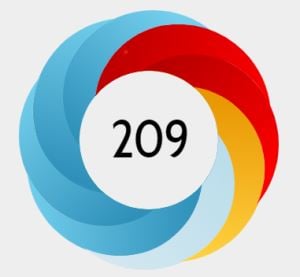
Altmetric badge showing the Altmetric score and colour-coded mention sources.
Altmetric monitors various sources, categorizing them into segments such as policy documents, peer reviews, Wikipedia, news and blogs, and social media, among other sources. Each category is identifiable by a specific colour.
The Altmetric badge provides visual insights into where the research is being discussed. A more colourful badge indicates broader mentions across multiple platforms. Such tracking enables us to gauge the extent of an article’s online dissemination, noting that increased visibility may correlate with higher citation rates.
Read more:
Impactful Research

Ten High-Altmetric Articles Published by MDPI
As at 30 January 2024, Altmetric has tracked 670,500 MDPI research outputs from MDPI, resulting in over 4.3 million mentions. This includes over 71,894 mentions in policy and patents and 294,714 mentions in news and blogs, with some achieving an Altmetric score as high as 28,754.
So, what is a good Altmetric score? There are various ways to put this score into context. You can find out more about the score in context and how to evaluate your work by this means.
Here are ten MDPI papers ranking in the top 5% of all research outputs scored by Altmetric.
|
|
“Accuracy in Wrist-Worn, Sensor-Based Measurements of Heart Rate and Energy Expenditure in a Diverse Cohort” J. Pers. Med. 2017, 7(2), 3; https://doi.org/10.3390/jpm7020003 Altmetric page: https://mdpi.altmetric.com/details/20477344 Altmetric shows that this article appeared in 253 news stories from 209 outlets including Forbes, BBC, and Fox News. |
|
|
“Daylight Saving Time and Acute Myocardial Infarction: A Meta-Analysis” J. Clin. Med. 2019, 8(3), 404; https://doi.org/10.3390/jcm8030404 Altmetric page: https://mdpi.altmetric.com/details/57654628 Altmetric shows that this article appeared in 295 news stories from 207 outlets including Forbes, The Atlantic, and New York Times. |
|
|
“The Preliminary Analysis of Cave Lion Cubs Panthera spelaea (Goldfuss, 1810) from the Permafrost of Siberia” Quaternary 2021, 4(3), 24; https://doi.org/10.3390/quat4030024 Altmetric page: https://mdpi.altmetric.com/details/111086701 Altmetric shows that this article appeared in 182 news stories from 134 outlets including CBC News, CNN, and National Geographic. |
|
|
“Not the Cat’s Meow? The Impact of Posing with Cats on Female Perceptions of Male Dateability” Animals 2020, 10(6), 1007; https://doi.org/10.3390/ani10061007 Altmetric page: https://mdpi.altmetric.com/details/83796184 Altmetric shows that this article appeared in 124 news stories from 98 outlets including VICE, CNN and The Guardian. |
|
|
“Behaviour and Welfare Impacts of Releasing Elephants from Overnight Tethers: A Zimbabwean Case Study” Animals 2022, 12(15), 1933; https://doi.org/10.3390/ani12151933 Altmetric page: https://mdpi.altmetric.com/details/133463915 Altmetric shows that this article appeared in 192 news stories from 186 outlets. |
How do I use altmetrics?
Altmetric Explorer provides a detailed step-by-step guide and instruction video for first-time users of the tool. The guide includes useful diagrams that make it easy to get started.
Sharing Research Online
For research to be tracked across different sources, Altmetric needs a research output with a persistent identifier: a DOI, ISBN, PubMed ID, handle ID, etc. When sharing research, it is important to include a link to the original research output.
|
|
“An Update on Eukaryotic Viruses Revived from Ancient Permafrost” Viruses 2023, 15(2), 564; https://doi.org/10.3390/v15020564 Altmetric page: https://mdpi.altmetric.com/details/142929875 Altmetric shows that this article appeared in 250 news stories from 180 outlets including CTV, Fox News, and CNN. |
|
|
“The Global Problem of Insufficient Sleep and Its Serious Public Health Implications” Healthcare 2019, 7(1), 1; https://doi.org/10.3390/healthcare7010001 Altmetric page: https://mdpi.altmetric.com/details/53406248 Altmetric shows that this article appeared in 252 news stories from 168 outlets including BBC, Harvard Business Review, and Forbes. |
|
|
“A Detailed Review Study on Potential Effects of Microplastics and Additives of Concern on Human Health” Int. J. Environ. Res. Public Health 2020, 17(4), 1212; https://doi.org/10.3390/ijerph17041212 Altmetric page: https://mdpi.altmetric.com/details/86529137 Altmetric shows that this article appeared in 197 news stories from 150 outlets including BBC, The Tribune, and World Economic Forum. |
|
|
“An Empirical Study of Chronic Diseases in the United States: A Visual Analytics Approach to Public Health” Int. J. Environ. Res. Public Health 2018, 15(3), 431; https://doi.org/10.3390/ijerph15030431 Altmetric page: https://mdpi.altmetric.com/details/34714141 Altmetric shows that this article appeared in 232 news stories from 149 outlets including Forbes, New York Times, and Harvard Business Review. |
|
|
“Garden Scraps: Agonistic Interactions between Hedgehogs and Sympatric Mammals in Urban Gardens” Animals 2023, 13(4), 590; https://doi.org/10.3390/ani13040590 Altmetric page: https://mdpi.altmetric.com/details/142934305 Altmetric shows that this article appeared in 172 news stories from 168 outlets including BBC. |
Inside MDPI

MDPI Annual Meeting Celebrations in China
On Thursday 25 January, over 1,300 MDPI colleagues from our two offices in Beijing gathered to kick off MDPI’s traditional ‘Annual Meetings.’ These celebrations take place in MDPI’s offices across China, including Dalian, Tianjin, Wuhan, and Nanjing.
The evenings include performances, informative talks and presentations, awards, and entertainment, providing an ideal platform to recognize our colleagues, celebrate their achievements, and set our sights on the future.
“It is essential that we stay connected and share best practices”

I sent a video congratulating everyone on their work and sharing our vision of building MDPI into the most trusted OA publisher, highlighting the roles each of us has to play in achieving that goal.
Unfortunately I could not join in person, but you may recall my recent trip, when I visited our offices in Beijing and Wuhan, which I look forward to visiting again this year.
Although our headquarters are in Basel, Switzerland, and we are expanding throughout Europe and North America, the majority of MDPI’s workforce is in China and throughout the Asia-Pacific region, including offices in Singapore, Thailand, Japan, and newly opened office in South Korea. It is essential that as a global organization, we stay connected and share best practices in order to grow collectively and continue providing the exceptional service to our authors.
The Annual Meeting is a moment to reflect and enjoy the year’s hard work and dedication.
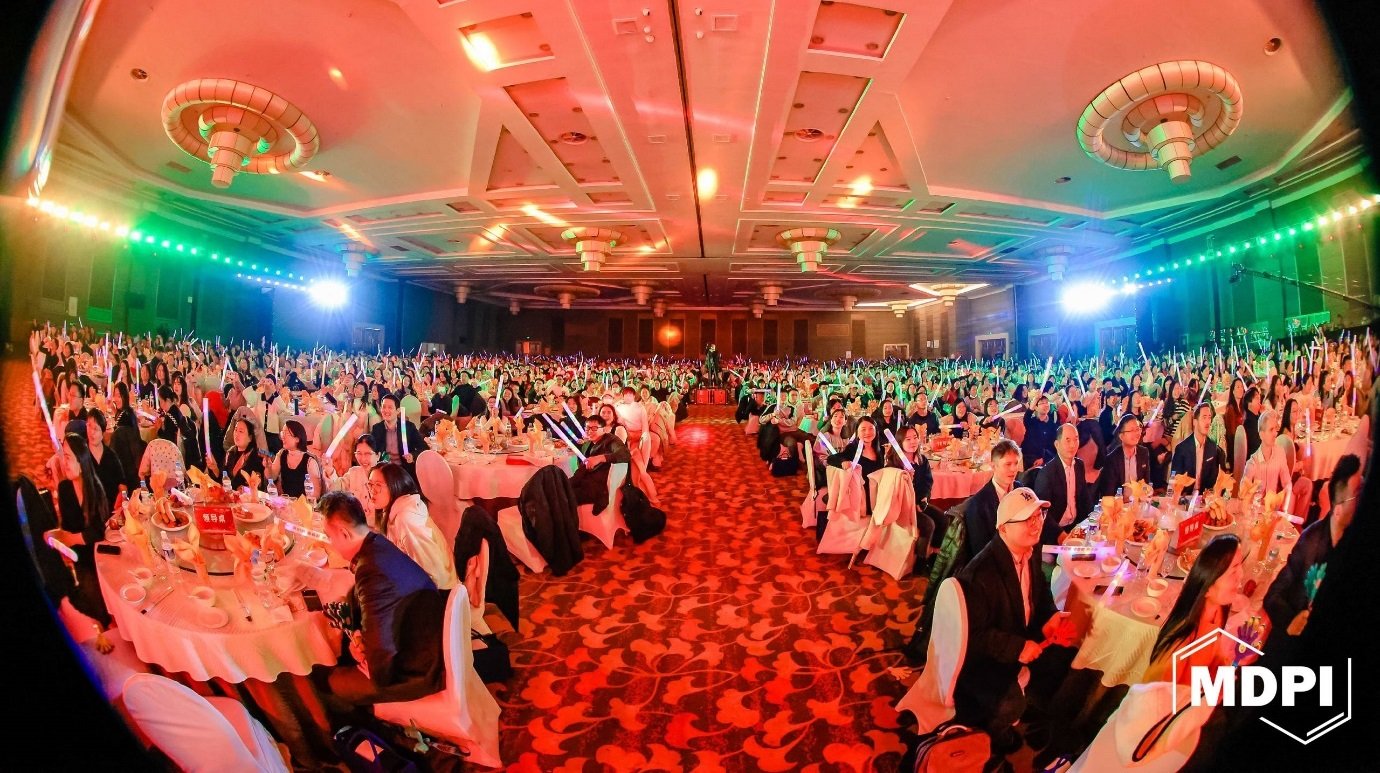
I extend our best wishes to all for the Chinese New Year (Xīnnián kuàilè)!
Coming Together for Science
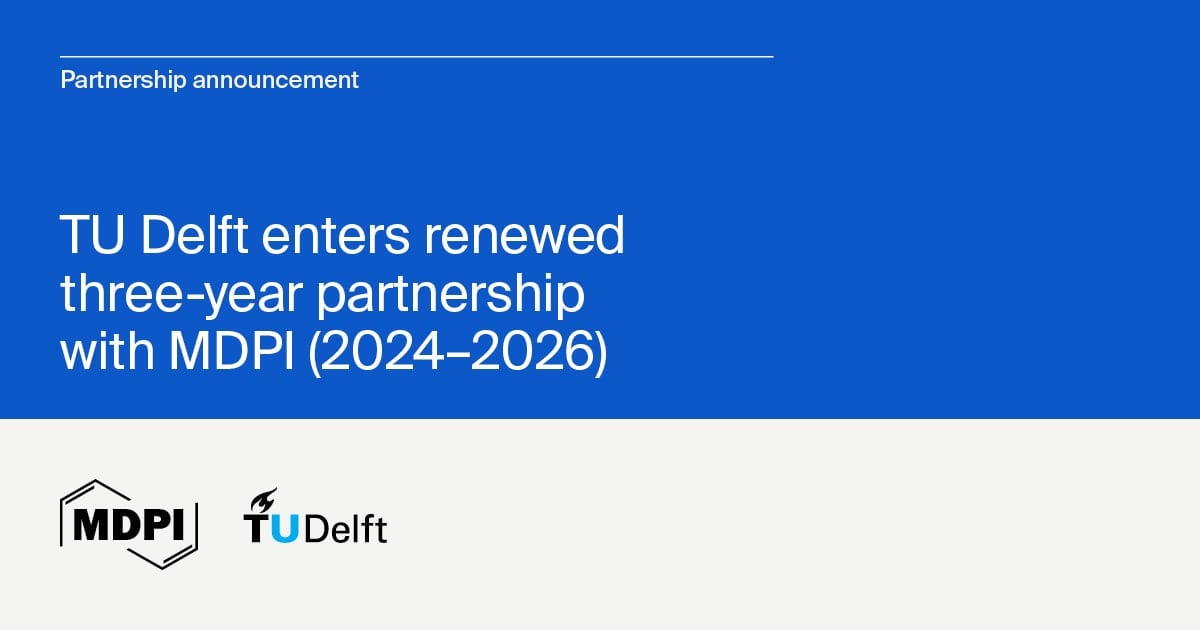
MDPI and TU Delft Adopt Flat Fee Model in Extended Partnership
We are excited to announce a renewed three-year partnership with Delft University of Technology (TU Delft) in the Netherlands. This collaboration introduces a fixed lump-sum fee, covering publishing costs from 2024 to 2026.
“This initiative reflects our dedication to transparent and inclusive publishing”
TU Delft-affiliated authors will enjoy cost-free publishing in any MDPI journal during this period, aligning with our commitment to removing barriers for open access publishing. The agreement supports Plan S compliance and facilitates a seamless publishing process for TU Delft corresponding authors. This initiative reflects our dedication to transparent and inclusive publishing, providing stability and predictability both for authors and for institutions.
For further details on our Institutional Open Access Program (IOAP), please contact us.
Benefits to MDPI’s IOAP
At MDPI we have a long tradition of partnerships, including our Institutional Open Access Program (IOAP). IOAP supports institutions through simplification, access, transparency, APC discounts, and institutional repository deposits. The program simplifies administrative processes, offers central payment, and allows easy opting in and out. Participants gain free access to Susy, MDPI’s online submission system, with extensive article metadata and exportable data. APC discounts and Book Processing Charge discounts are available for affiliated authors. Automated deposits to institutional repositories and streamlined matching of papers to IOAP participants enhance the overall experience.
For further information, see our IOAP FAQ.
Closing Thoughts

Reflections on the 2024 APE Conference
MDPI was proud to co-sponsor the Academic Publishing in Europe (APE) 2024 Conference that took place in Berlin, Germany, from 9–10 January 2024.
The conference theme, ‘Keep the Conversation Going!’, explored the evolving landscape of scholarly communication. APE is one of the key conferences I make a point to attend each year. January offers a valuable opportunity to engage with new contacts, reconnect with familiar faces, and participate in impactful discussions and presentations among professionals, scholars, and practitioners in the field.
“It's fascinating to see how other publishers are leveraging AI”
Highlights
Some of the standout panels for me include: the role of the UN Sustainable Development Goals (SDGs) within the publishing industry. It was encouraging to hear the current status quo, though I was eager also to learn about the exciting projects planned for 2024 and beyond. These will allow us to track progress in subsequent years. At MDPI, we remain committed to promoting Open–Access (OA) content on SDGs through scientific articles and books. Furthermore, we extend our commitment to sustainability by financially supporting researchers through initiatives such as the World Sustainability Award and the Emerging Sustainability Leader Award, as well as waiving the APC for feature papers on each SDG.
In recent years, discussions on AI have become increasingly prominent at such conferences. It’s fascinating to see how other publishers are leveraging AI to meet the evolving needs of their audiences while at the same time using it to safeguard the scientific process. Other engaging panels that I enjoyed included updates on transformation beyond transformative agreements, the principles of lean change, incentive structures related to research integrity, and the panel on reviewer incentives.
“We can share best practices and lessons learned”
Incorporating MDPI’s Insights into Conferences
I must confess that I sometimes feel overlooked when MDPI is not invited to participate in crucial industry discussions. As the leading open access publisher and the third-largest publisher overall, we possess extensive experience in many of these areas and can offer valuable contributions to these discussions. We can share best practices, lessons learned, and our thinking about future trajectories. For instance, in panels discussing reviewer incentives, at MDPI we offer a discount voucher to reviewers for future submissions, reflecting our commitment to fostering a robust peer review process. In 2022 alone, MDPI collected over 1.4 million peer review reports, informing the decision-making processes of our editors. Given our expertise in these areas, it would be natural to include MDPI in such discussions. I therefore extend an invitation to future conference organizers to consider MDPI for speaking engagements and collaborative opportunities.
Chief Executive Officer
MDPI AG
2 January 2024
MDPI Insights: The CEO's Letter #7 - Nobel Laureates Entrust MDPI with Their Research

Welcome to the MDPI Insights: The CEO's Letter.
In these monthly letters, I will showcase two key aspects of our work at MDPI: our commitment to empowering researchers and our determination to facilitating open scientific exchange.
Opening Thoughts

Nobel Prize Laureates Entrust MDPI with Their Research
The Nobel Prize stands as a hallmark of distinction, honouring ground-breaking research across disciplines. Annually, the Nobel Prizes are awarded in six categories: Physics, Chemistry, Medicine or Physiology, Literature, Peace, and Economic Sciences.
Through the years, renowned scholars have entrusted MDPI with their work. As at December 2023, 26 Nobel laureates have contributed to more than 75 articles across 25 MDPI journals, including: Antibiotics, Applied Sciences, Biology, Biomedicines, Cancers, Catalysts, Cells, Crystals, Entropy, Games, IJMS, Life, Materials, Micromachines, Molecules, Pharmaceuticals, Pharmaceutics, Photonics, Quantum Beam Science, Remote Sensing, Sensors, Solids, Universe, Vaccines, and Viruses.
The best of the best trust us with their work.
Nobel Prize Laureates Who Have Published with MDPI
We are proud to list the names of Pierre Agostini, Hiroshi Amano, Werner Arber, Aaron Ciechanover, Robert H. Grubbs, Oliver Hart, Gerard ‘t Hooft, Michael Houghton, Harald zur Hausen, Katalin Karikó, Jean-Marie Lehn, Gérard Mourou, Ferid Murad, Shuji Nakamura, William Nordhaus, Kostya S. Novoselov, Giorgio Parisi, Charles M. Rice, Alvin E. Roth, Donna Strickland, K. Barry Sharpless, George F. Smoot, Anne L’Huillier, Drew Weissman, Kurt Wüthrich, Ada Yonath.
The privilege of hosting such contributors resonates deeply with our editorial teams. For instance, in this interview, the Editor-in-Chief (EiC) of Universe speaks on the significance of publishing a paper by Nobel laureate Gerard ’t Hooft within the journal.
2023 Nobel Prize Winners Published by MDPI

Nobel Prize Winners, 2023: Katalin Karikó, Drew Weissman, Anne L’Huillier (Ill. Niklas Elmehed © Nobel Prize Outreach)
Three laureates from the 2023 Nobel Prize cohort have trusted MDPI as their publishing platform. Notably, in a 2022 Pharmaceutics paper, molecular biologist Katalin Karikó and her team presented a methodology for evaluating mRNA capping efficiency, pivotal for therapeutic applications. Pharmaceutics had previously dedicated a Special Issue to “mRNA Therapeutics: A Themed Issue in Honor of Professor Katalin Karikó”, spotlighting ten articles from August 2021 to February 2022.
In the journal Vaccines, Professor Drew Weissman, collaborating with scholars from Pennsylvania University and George Mason University, contributed an influential review titled “Nanomaterial Delivery Systems for mRNA Vaccines”. His collaborative efforts spanned five papers across MDPI journals between 2021 and 2023.
Furthermore, Anne L'Huillier of Lund University, only the fifth female recipient of the Physics Prize, co-authored an article in Applied Sciences focusing on "Advanced EUV and X-Ray Optics". Similarly, Pierre Agostini, an Emeritus Professor from Ohio State University, co-authored an article featured in the special issue "Attosecond Science and Technology: Principles and Applications".
We extend heartfelt congratulations to all Nobel Prize laureates and express sincere gratitude for their confidence in MDPI as a platform for their scholarly contributions.
Read more:
Impactful Research

MDPI Journals Newly Indexed in 2023
The aim of indexing is to enhance the quality and credibility of published research, ensuring that researchers access the most credible resources available. While the principle behind citation indexing is straightforward, it remains one of the most dependable methods for tracking an idea's evolution across various scientific disciplines.
Throughout the year, MDPI works to expand the reach of our publications across premier multidisciplinary databases like Web of Science, Scopus, EBSCO, and ProQuest. This initiative is spearheaded by MDPI's Indexing team, under the leadership of Dr. Constanze Schelhorn.
In 2023, MDPI achieved 54 new acceptances in Scopus, 29 in Web of Science, 52 in EBSCO, and 83 in DOAJ: Directory of Open Access Journals.
The team prioritizes ensuring that our journals feature in numerous specialized databases, including PMC, PubMed, MEDLINE, Inspec, CAS, and FSTA, among others. Currently, MDPI collaborates with over 65 renowned international databases, consistently enhancing our database affiliations annually.
MDPI’s journals are indexed in all major global databases.
Furthermore, we collaborate with universities and government organizations to list our journals in country-specific ranking lists and relevant institutional repositories. This ensures compliance with requirements often set by funders or institutions for authors to publish in specific journals.
Web of Science Adds 24 MDPI Journals to Emerging Sources Citation Index (ESCI)
Clarivate recently analysed MDPI’s new journals, resulting in 24 journals, mainly established in 2020, being added to the ESCI in November and December 2023. Additionally, five journals passed this assessment earlier in the year. For a complete list of our journals in Web of Science, refer here. Journals in the ESCI meet 24 quality criteria, ensuring editorial rigor. They may be considered for inclusion in broader indices like the Science Citation Index Expanded (SCIE), the Social Sciences Citation Index (SSCI), or the Arts and Humanities Citation Index (AHCI), based on four impact criteria.
Read more:
Inside MDPI

MDPI Appoints New Chief Operating Officer (COO)

Alistair Freeland returned to MDPI and assumed the role of Chief Operating Officer in November 2023, a position he previously held from 2013 to 2019. He succeeds Dr. Yu Lin, who will remain a member of MDPI’s Board of Directors, overseeing significant financial decisions for the company. I would like to express my sincere thanks to Dr. Yu Lin for his service as COO.
Alistair brings extensive experience not only in scholarly publishing but also in technology and business management. Prior to rejoining MDPI, he was associated with SIX Group, the entity responsible for Switzerland's financial market infrastructure. There, he played a pivotal role in developing the blockchain-based platform SDX (SIX Digital Exchange), which has gained traction among major Swiss banks and the Swiss National Bank.
As COO, Alistair will collaborate with the MDPI management team to improve the practices and services we offer to scholarly communities. I am pleased to welcome Alistair back to MDPI and look forward to his contributions going forward.
Coming Together for Science

MDPI’s 2024 In-Person Academic Events Schedule
MDPI's Conference Team is dedicated to organizing and hosting in-person academic events across Europe, Asia-Pacific, and North America. We recognize conferences as invaluable platforms for scientific collaboration, scholarly exchange, discussions on contemporary topics, networking, and forging collaborations.
Here's a glimpse of the notable events we currently have scheduled for 2024:
|
|
14–16 February, 2024 |
|
|
24–26 April, 2024 |
|
|
28–31 May, 2024 |
|
|
1–4 August, 2024 |
Upcoming events with details to be announced:
- September 2024, Materials 2024 – Basel, Switzerland
- 19–21 September 2024, International Conference on Nanomaterials Sciences 2024 – Beijing, China
- October 2024, ncRNA 2024 – Basel, Switzerland
- November 2024, Pharmaceuticals 2024 – Barcelona, Spain
- 22–26 November 2024, International Conference on Science of Electronics – Wuhan, China
- Stay tuned for more details on the Sustainable Publishing Forum 2024.
Click here for all upcoming MDPI events.
Organize Your Event with MDPI’s Sciforum
Sciforum is MDPI’s platform dedicated to the organization of scientific events. In line with our mission to promote science, Sciforum supports scholars, societies, research networks, and universities at all stages of organizing in-person events, virtual events and webinars. Our platforms are efficient, user-friendly, and cost-effective. We handle all steps related to event management. Contact us for details.
Closing Thoughts

Reflecting on 2023 and Looking Ahead to 2024
As we approach 2024, I reflect on the incredible journey we’ve had together at MDPI this year. The past 12 months have been marked by ambitious projects and initiatives to improve our internal processes, and a commitment to continue delivering top-notch services to our stakeholders. I’d like to thank each and every one of our staff members for contributing to the positive experiences our stakeholders have reported in our surveys. Your dedication to speed, efficiency, and effective communication with our stakeholders is very much recognized and appreciated.
Becoming a stronger organisation
While we have encountered challenges in 2023, it’s important to understand that these are a part of our growth process. Difficulties provide us with opportunities to reflect, address problems at their roots, and ultimately evolve into a stronger organization. Our stakeholders expect us to overcome tough times, and it’s an expectation that we have for ourselves.
I extend my sincere appreciation to every MDPI employee, from our editorial office and IT department to marketing, indexing, IOAP, societies, Scientific Office board, products, production, conferences, finance, operations, admin, and beyond. To our newest team members, a warm welcome; to our longstanding colleagues, your dedication is invaluable.
“I am committed to taking MDPI to a new level of excellence.”
Interacting with many of you during my visits to our offices and representing MDPI at external events has been a personal highlight. I am deeply grateful to Dr. Lin for entrusting me with the role of CEO of MDPI. Looking forward, I am committed to working closely with our management team to lead MDPI and take it to a new level of excellence, aiming to establish it as the most trusted publisher in open access worldwide. This is a collective endeavour, with each of us shaping MDPI’s reputation. I therefore encourage us to take pride in our work, as it represents not only our craft but also MDPI as a whole.
Accountability and communication
As we look forward to 2024, there’s a lot to be excited about. Together, we’ll navigate challenges, seize growth opportunities, and refine our practices. To solidify MDPI’s position as the premier open access publisher globally, we must bolster accountability, improve stakeholder communication, share MDPI’s best practices, champion the open access philosophy, and educate stakeholders about our mission, methodologies, and motivations.
Thank you for engaging with the CEO Letter over the past six months of 2023. I will continue to release this newsletter as a method of sharing the great work being done at MDPI. Please feel free to connect directly with any insights or questions.
Here’s to a joyous and prosperous 2024!
Chief Executive Officer
MDPI AG
21 December 2023
Meet Us at the International Plant & Animal Genome Conference (PAG 31), 12–17 January 2024, San Diego, USA

Conference: International Plant & Animal Genome Conference (PAG 31)
Date: 12–17 January 2024
Location: San Diego, CA, USA
MDPI will be attending the International Plant & Animal Genome Conference (PAG 31) as an exhibitor; we welcome researchers from different backgrounds to visit and share their latest ideas with us.
The Plant & Animal Genome Conference (PAG) will bring together leading genetic scientists and researchers involved in plant and animal research. With 62 countries represented, the Plant & Animal Genome Conference facilitates the international exchange of information. Approximately 39% of the attendees travel to PAG from outside the USA, making the conference a truly global event. A total of 73% checked “Plant” and 27% checked “Animal” as their areas of interest.
The following MDPI journals will be represented:
- Plants;
- Agriculture;
- Agronomy;
- Life;
- Horticulturae;
- Grasses;
- Birds;
- Animals;
- Veterinary Sciences;
- Seeds;
- CIMB.
If you plan to attend this conference, please contact us online. Our delegates look forward to meeting you in person and answering any questions that you may have. For more information about the conference, please visit the following website: https://www.intlpag.org/31/.
30 November 2023
MDPI Insights: The CEO's Letter #6 - MDPI Spain Summit and ResearchGate

Welcome to the MDPI Insights: The CEO's Letter.
In these monthly letters, I will showcase two key aspects of our work at MDPI: our commitment to empowering researchers and our determination to facilitating open scientific exchange.
Opening Thoughts

MDPI Spain Summit

Stefan Tochev (CEO, MDPI) gives the opening speech at the MDPI Spain Summit.
On Friday 10 November 2023 I was in Barcelona, Spain, to deliver the opening presentation and participate in a panel at MDPI’s Spain Summit, a two-day event, inspired by our salon events in China.
With 16 Editors-in-Chief (EiCs) and 20 Editorial Board Members (EBMs) in attendance, the event, organized by our conference team and Barcelona office, featured presentations on open access (OA), MDPI, and publishing market trends in Spain.
The event provided a great opportunity to engage with stakeholders from various MDPI journals, including Nutrients, Vaccines, Buildings, IJMS, and others. We were able to gather feedback and have open conversations around manuscript quality, the peer-review process, and journal development, as well as accreditation agencies.
The main objective of this Summit was to bring together Editors representing MDPI journals across various disciplines within Spanish universities and research centers, primarily from the Barcelona area. The aim was to facilitate an open and fruitful discussion regarding the development of their journals, the future of OA in Spain, and to provide meaningful interactions and networking opportunities.
Connecting with Editorial Board Members

Stefan Tochev in conversation with Summit participants: "Our EBMs are passionate about the journals they serve."
Interacting with our EBMs in person provides a valuable opportunity to show how important it is to us to connect with them, hear their perspectives on their journals and learn more about their own experience collaborating with MDPI.
From my conversations, it was clear that our EBMs are passionate about the journals they serve. I know the advice they provide may sometimes involve just small tweaks, but these can lead to important improvements. As the saying goes, small hinges swing open big doors.
As at November 2023, MDPI has over 6,300 EBMs affiliated with Spanish institutions, with more than 30 of them serving as EiCs or section EiCs. Furthermore, over 68,000 Spanish scholars have contributed as reviewers in MDPI journals.
Open Access in Spain
In 2023, Spain implemented legislation mandating immediate OA for all publicly funded research, aligning with the EU’s Plan S initiative to expedite the transition to OA. The Spanish government also approved a four-year, €23.8 million annual budget for the first national OA strategy, aiming to make publicly funded research freely accessible upon publication. This strategy aims to strengthen the quality and transparency of research in Spain, and to help promote movement towards a digital, low-carbon economy.
For further details of Spain's OA policy and the history of government mandates, click here.
Spain has already seen a notable decline in subscription-only articles, decreasing by 62% over a 10-year period, while gold OA increased by 42%. Green OA slightly decreased, suggesting a shift towards publishing in gold OA journals rather than traditional subscription-based ones. Here are some statistics from Scopus.
A big thank-you to the various MDPI teams, including our conference team and the Barcelona office, for organizing this very successful event!

MDPI colleagues from various offices gathered to host and support the first MDPI Spain Summit, in Barcelona, Spain.
I think this type of gathering has the potential to become an annual event in various locations. For example, Manchester could be an option, as we have over 30 EiCs and over 3,000 EBMs in the UK, a top market for MDPI that publishes high-quality research.
Impactful Research

769 Editorial Board Members of MDPI Journals Recognized as Highly Cited Researchers in 2023
Congratulations to our 769 Editorial Board Members from 40 countries/territories who have been awarded Highly Cited Researcher status for 2023 by Clarivate. This recognition is based on their outstanding scientific research contributions and significant influence in various fields, as evidenced by Web of Science data.
Click here to view the full list of 769 Editorial Board Members.
Clarivate's Highly Cited ResearchersTM list identifies individuals with exceptional impact in scientific and social science domains over the past decade. Their papers rank in the top 1% of citations in 21 fields analysed in ‘Essential Science Indicators,’ showcasing their substantial influence.
This year, 7,125 Highly Cited Researcher 2023 designations were issued to 6,849 individuals from 67 countries, representing just 1 in 1,000 researchers worldwide.
These researchers demonstrate exceptional influence, representing a small fraction of contributors pushing the boundaries of knowledge, contributing to global well-being, sustainability, and security.
Congratulations to these scholars for their remarkable achievement: we are honoured to have them on board with our journals!
Inside MDPI

Corporate Marketing and Communications Strategy Session

Members of MDPI’s Corporate Marketing & Communications team.
For the past few years, I have led the Corporate Marketing & Communications department in our annual strategy session.
This typically involves 2–3 days of focused sessions covering key topics including budgeting, hiring targets, campaign reviews, and planning for the upcoming year, department strategy, and structure.
We are constantly exploring ways to optimize the Corporate Marketing & Communications department to support MDPI’s primary objectives and better convey the MDPI story while serving the scholarly community.
The strategy session also serves as a team-building activity, during which the team voted on bowling!
Strategy Session
In this strategy session, we looked at how to align our teams in order to better streamline our content with our campaigns, build a dedicated marketing team to strategically support our core MDPI products, expand our communications teams and functionalities to focus on company-critical campaigns and press releases, align our new brand design system with our marketing initiatives, set up a community and engagement team to support various teams with their outreach and communication efforts, and increase our use of data in the evaluation of campaign performance.
To grow in these areas, we will be hiring for various positions, including those of Public Relations Manager, Communications Manager, Internal Communications Manager, Campaign Manager, Marketing Associate, and Editorial Engagement Manager.
I am grateful for the way our Corporate Marketing & Communications department has grown and gelled over the years, and I look forward to supporting the department teams and their ideas for the future.
Coming Together for Science

ResearchGate and MDPI Partner to Boost the Visibility of Open Access Content through Journal Home

Stefan Tochev (CEO, MDPI) and Sören Hofmayer (Co-Founder and Chief Strategy Officer, ResearchGate) meet in Berlin, Germany to take their ongoing discussion further.
When I assumed the role of CEO at MDPI, my primary focus was to initiate the building of essential partnerships and collaborations within our industry. After all, I am a firm believer in achieving our goals by helping others achieve theirs and focusing on co-opetition wherever there is an opportunity. I first touched on the notion of co-opetition in MDPI Insights: The CEO's Letter #3, particularly when discussing collaborations with Elsevier.
In light of this, Sören Hofmayer (Co-Founder and Chief Strategy Officer at ResearchGate) and I connected recently to continue a discussion that had been ongoing for months. I was quickly brought up to speed and felt there was an opportunity for MDPI journals to pilot the Journal Home service that ResearchGate had launched. This would provide a new way for MDPI to engage with authors and readers and amplify the visibility of our journals.
While I receive many offers and opportunities for discussions with vendors, I am a firm believer that timing is everything, and in this case, the time for us is now. Sören and I met in person during my recent visit to Berlin and decided to proceed with piloting ten MDPI journals with the Journal Home service.
The press release below provides further details.
Press Release: Berlin (Germany) and Basel (Switzerland), 15 November 2023
ResearchGate, the professional network for researchers, and MDPI, the largest open access publisher in the world and a pioneer in open access publishing, today announced a partnership that will see ten of MDPI’s open access journals benefit from an enhanced presence on ResearchGate through its innovative Journal Home offering.
This new partnership will expand the reach and visibility of MDPI’s participating flagship journals with ResearchGate’s highly relevant community of more than 25 million researchers globally.
Around 210,000 version-of-record articles from these 10 titles will be readily available on ResearchGate, including the full archive material and all new articles as they are published. These journals also benefit from enhanced brand visibility, with dedicated journal profiles, prominent representation on all associated article pages and all relevant touchpoints across the ResearchGate network – keeping the journals top-of-mind with their reader and author audiences. All articles covered by the new partnership will automatically be added to the authors’ publication records in ResearchGate. This not only reduces MDPI authors’ needs for direct management but also offers them valuable insights into the impact of their work, including data about readership and citations.
Closing Thoughts

November is Men’s Health Awareness Month

Stefan Tochev (CEO, MDPI) listening to music as he writes at a coffee shop in Basel, Switzerland.
November is dedicated to raising awareness of various men’s health issues. I have been fortunate to have positive male role models in my life, and I strive to share my experiences with others.
I used to take part in Movember, growing my moustache throughout November to raise awareness and funds and to help “change the face of men’s health.” With male family and friends impacted by physical and mental health issues, I have recently become more interested in men’s overall well-being.
Men often face stigma involving the perceived need always to be strong and have things figured out. Recently, I’ve had meaningful conversations with male friends and colleagues about issues we rarely discuss, and it was a positive experience.
Various factors impact men’s health and well-being, all too easily leading to risky health behaviours including a lack of health awareness, poor health education, and negative, culturally induced, behaviour patterns in our work and personal lives. I hope we can break down these barriers in our work environment.
Healthy men help build healthy families and a healthy society
Men are less likely than women to seek help with their physical and mental health struggles. This is a reminder to prioritize your overall well-being. I hope that as men, we will continue to open up to one another, becoming vulnerable in order to share what we are going through. By sharing and by supporting each other, we can learn and grow together. You are not alone, and when you fall, you can still get up and stand tall.
From one broski to another, you are loved and appreciated. I hope this mindset carries into December and beyond.
Mindfulness
Our content team recently released a handful of articles on mindfulness, a practice that I believe provides a good opportunity for stress release and self-reflection:
Chief Executive Officer
MDPI AG
21 November 2023
769 Editorial Board Members of MDPI Journals Achieve Highly Cited Researcher Recognition in 2023

We extend our sincere congratulations to the 769 Editorial Board Members of our journals – from 40 different countries/territories – who have been recognized as Highly Cited Researchers for the year 2023 by Clarivate. They are being recognized for their high-quality scientific research achievements and outstanding contributions to their professional fields, as indicated by Web of Science data.
Clarivate's annual list of Highly Cited ResearchersTM identifies the most highly cited scientists for the past decade who stand out for their significant and broad influence in various scientific and social science domains. Their impactful papers are among the top 1 per cent in the citation distribution of one or more of 21 fields analyzed in the "Essential Science Indicators", distinguishing them as hugely influential among their peers.
This year, 7,125 Highly Cited Researcher 2023 designations were issued to 6,849 individuals from 67 countries, representing just 1 in 1,000 researchers worldwide.
This means that these researchers have demonstrated an incredible level of significant and broad influence in their chosen field or fields over the last decade. They represent a small fraction of the researcher population whose contributions disproportionately push the boundaries of knowledge, enhancing global well-being, sustainability, and security.
Congratulations to the scholars for their noteworthy achievement – we are honored to have them on board with our journals!
|
Abate, Antonio |
Jaiswal, Amit K. |
Shen, Zexiang |
13 November 2023
Meet Us at the British Ecological Society Annual Meeting 2023 (BES 2023), 12–15 December 2023, Belfast, UK
加载中~

MDPI will attend the British Ecological Society Annual Meeting 2023 (BES 2023) as an exhibitor. This meeting will be held in Belfast, UK, from 12 to 15 December 2023.
The British Ecological Society was established in 1913 and has been fostering the science of ecology ever since. The society has 7,000 members around the world and brings people together across regional, national and global scales to advance ecological science. Membership is open to anyone, anywhere. The British Ecological Society is the oldest ecological society in the world and its annual meeting is Europe’s largest conference dedicated to ecology. More than 1,500 delegates from over 50 countries across six continents attended the 2022 meeting in person or online.
The following MDPI journals will be represented:
- Sustainability;
- Land;
- Ecologies;
- IJERPH;
- Earth;
- Plants;
- Environments;
- Resources;
- Animals;
- Diversity;
- Climate.
If you are attending this conference, please feel free to start a conversation with us at our booth #12. Our delegates look forward to meeting you in person and answering any questions that you may have.
For more information about the conference, please visit https://www.britishecologicalsociety.org/events/bes-annual-meeting-2023/.
1 November 2023
MDPI Insights: The CEO's Letter #5 - OA Week, UK, and Strategy

Welcome to the MDPI Insights: The CEO's Letter.
In these monthly letters, I will showcase two key aspects of our work at MDPI: our commitment to empowering researchers and our determination to facilitating open scientific exchange.
Opening Thoughts

Open Access Week 2023 – the Global Drive to Open Continues
As the world's largest open-access (OA) publisher, we believe that unrestricted access to research findings is the cornerstone of transparency, efficiency, and quality control across scientific disciplines. At MDPI, we provide free, immediate access to scientific papers, empowering scientists to examine, validate, replicate, and build upon existing results. This minimizes redundancy, optimizes resources, and fosters innovative approaches.
International OA Week, held from 23 to 29 October 2023, provided a unique opportunity to link the global movement toward open sharing and open science with the progress of policy changes at the local level. Our mission, during OA Week and all the year round, is to offer educational resources highlighting the benefits of open-access publishing. The MDPI Blog is a valuable resource for information on open access and open science.
Core principles of OA publishing
Accessibility, transparency, and collaboration are core principles of OA publishing. OA aims to break down barriers that have traditionally restricted research access, ensuring that knowledge is available to all, regardless of financial situation or institutional affiliations. Our commitment to diverse pathways for OA publishing worldwide includes discounts for researchers. You can learn more about how MDPI supports scientific communities here.
One of the key strengths of OA publishing is its ability to facilitate interdisciplinary research. By removing paywalls and promoting knowledge-sharing across disciplines, OA encourages collaboration and innovation. Researchers from various fields can access and build upon each others’ work, fostering a holistic approach to addressing complex global challenges.
OA holds the potential to democratize knowledge, advance science, and drive positive societal change.
Policy driving change
Governments, institutions, and funding agencies have recognized the transformative potential of OA and have implemented policies to promote it. These policies often require publicly funded research to be made openly accessible, accelerating the growth of OA repositories and journals. Check out our spotlights on OA policies in the US, EU and China.
OA publishing is continuously evolving, with community-driven models and technologies shaping its future. Initiatives such as “Plan S” and “cOAlition S” promote OA publishing from the perspective of national funders, requiring grantees to publish their research openly. A new policy announced by the US administration last year mandates that, with effect from January 2026, all US federally funded research should be freely and immediately available after publication.
Additionally, preprint servers such as MDPI's Preprints.org, which allow researchers to share their findings before formal peer review, have gained popularity, enhancing the speed at which new knowledge is disseminated. The rise of blockchain technology is also being explored to ensure transparency and authenticity in scholarly publishing.
For more than two decades, OA publishing has been revolutionizing academic publishing by promoting accessibility, transparency, and collaboration. Its support for interdisciplinary research, evolving policies, and innovative practices all contribute to its growing influence in the global research community. As OA continues to expand, it holds the potential to democratize knowledge, advance science, and drive positive societal change.
MDPI is proud to lead the transition to open access.
Read more:
Impactful Research

Spotlight on Smart Cities
Smart cities will serve as a cornerstone for future human development. Their implementation will help us tackle many of the significant challenges we are facing – climate change, ageing populations, waste management, public safety, travel, and so on. Recognising the importance of this multifaceted field, MDPI launched the inaugural issue of Smart Cities in 2018 to provide an advanced forum for research into smart technology and society. Here we take a look at how this journal has developed, and its impact in this exciting field.
As at 30 October, 2023, Smart Cities has published 421 papers and has an Impact Factor of 6.4. It also has a CiteScore of 8.5, and more than one quarter of its published papers – 124 – have been cited 10 times or more.
Highly cited papers in Smart Cities
Below are several highly cited papers recently published in Smart Cities. Citation metrics are current as at 31 October 2023.
1. “Introducing the “15-Minute City”: Sustainability, Resilience and Place Identity in Future Post-Pandemic Cities”
Authors: Carlos Moreno, Zaheer Allam, Didier Chabaud, Catherine Gall and Florent Pratlong
Smart Cities 2021, 4(1), 93-111; https://doi.org/10.3390/smartcities4010006
Citations: Crossref (338), Scopus (366), Web of Science (270), Google Scholar (710)
The paper discusses the socio-economic impacts of the COVID-19 on cities, including increasing inequalities and rising unemployment. It introduces the concept of the "15-Minute City," a form of "chrono-urbanism," as a response to the challenges posed by the pandemic.
2. “A Review on Electric Vehicles: Technologies and Challenges”
Authors: Julio A. Sanguesa, Vicente Torres-Sanz, Piedad Garrido, Francisco J. Martinez and Johann M. Marquez-Barja
Smart Cities 2021, 4(1), 372-404; https://doi.org/10.3390/smartcities4010022
Citations: Crossref (359), Scopus (363), Web of Science (268), Google Scholar (558)
This paper provides an overview of the progress in Electric Vehicles (EVs), focusing on battery technology, charging methods, and emerging research challenges. It also analyzes the global EV market and its future outlook.
3. “IoT in Smart Cities: A Survey of Technologies, Practices and Challenges”
Authors: Abbas Shah Syed, Daniel Sierra-Sosa, Anup Kumar and Adel Elmaghraby
Smart Cities 2021, 4(2), 429-475; https://doi.org/10.3390/smartcities4020024
Citations: Crossref (121), Scopus (151), Web of Science (91), Google Scholar (215)
This paper gives an overview of the Internet of Things (IoT) in the context of Smart Cities, discussing the fundamental components, technologies, architectures, networking technologies, and artificial algorithms that underpin IoT-based Smart City systems.
4. “Artificial Intelligence Techniques in Smart Grid: A Survey”
Authors: Olufemi A. Omitaomu and Haoran Niu
Smart Cities 2021, 4(2), 548-568; https://doi.org/10.3390/smartcities4020029
Citations: Crossref (76), Scopus (94), Web of Science (57), Google Scholar (120)
This survey paper reviews the utilization of artificial intelligence (AI) techniques in the context of the smart grid. It covers various applications of AI in load forecasting, power grid stability assessment, fault detection, and security issues in the smart grid and power systems.
5. “The Metaverse as a Virtual Form of Smart Cities: Opportunities and Challenges for Environmental, Economic, and Social Sustainability in Urban Futures”
Authors: Zaheer Allam, Ayyoob Sharifi, Simon Elias Bibri, David Sydney Jones and John Krogstie
Smart Cities 2022, 5(3), 771-801; https://doi.org/10.3390/smartcities5030040
Citations: Crossref (72), Scopus (75), Web of Science (43), Google Scholar (176)
This paper discusses the concept of the Metaverse, a virtual world introduced by Meta (formerly Facebook), and its potential impact on urban life. It explores how emerging technologies such as AI, Big Data, IoT, and Digital Twins could reshape urban design and services in the context of the Metaverse.
Testimonial
“It was indeed a great and pleasant experience with MDPI regarding our recent publication. The submission process was very straightforward and less time-consuming than the norm. The review process was very fast compared to many other open access journals, which is praiseworthy. The support from the Editorial Office during the revision process was highly useful as well. We look forward to publishing with MDPI in the future, and I will most definitely recommend MDPI to my colleagues and collaborators.” – Dr. Luís Rosa, University of Minho
Article in Smart Cities: Mobile Networks and Internet of Things Infrastructures to Characterize Smart Human Mobility
Inside MDPI

MDPI Manchester office, UK Visit

Allie Shi (Editorial Director, MDPI), Stefan Tochev (CEO, MDPI), Jamie Anderson (Manchester Office Manager, MDPI), Michael O’Sullivan (Senior Scientific Officer, MDPI), Hushneara Akhtar, and Becky Castellon (IOAP Team Lead, MDPI), dining out in Manchester, UK.
In October, I visited MDPI’s new office in Manchester. During the visit, I connected with our English Editing (EE) managers, Scientific Officer, members of the Editorial team, the Marketing team, and IOAP Team Lead.
Our Manchester office focuses primarily on EE services and provides local support for the UK market. Additionally, we regularly visit Editorial Board members and participate in local conferences.
I would like to thank Jamie Anderson, Manchester Office Manager, and her team, for their deep commitment to our Manchester staff and to MDPI’s impact on the UK market.
The UK by numbers
The UK is a hub for the world’s top universities, making it a key market for MDPI and the publishing world in general. It is home to two of the top-five-ranked universities globally, 11 in the top 100, and 15 in the top 200.
As a result, the UK plays a key role in MDPI’s global market. As at October 2023, it ranks as the seventh-largest contributor to the total number of papers published by MDPI. We have 3,500 Editorial Board members affiliated with UK institutions, including 34 serving as Editors-in-Chief (EiCs). Our commitment to collaboration with institutions is evident in the UK, where we have successfully established some 60 Institutional Open Access Program (IOAP) agreements with esteemed institutions, such as the University of Oxford, the University of Cambridge, Imperial College London, the University of Edinburgh, and more.
According to InCites Dataset + ESCI for the period 2018–2022, as at October 2023, nearly 65% of UK papers are now published as OA. Just over 10% of total OA publications are by UK authors. UK papers are known for their high quality, with an average of 11 citations per paper. Furthermore, 2.16% of UK papers are in the top 1% of cited papers, and 14.61% are in the top 10% of cited papers, showcasing their impact.
We are currently hiring EEs in various locations worldwide.
English Editing at MDPI
Our English Editing (EE) department consists of two main branches, Quality Control and Learning and Development, reflecting our priorities. We are continuously enhancing the quality of our English Editing services and have raised the relevant standards, which now extend to company-wide communications. English editors participate in international interviews, conduct English assessments, and provide colleagues with presentations on ways to improve their use of written and spoken English.
While expanding, the EE department has proactively refocused its efforts on the quality of our work and how the English Editing department can benefit the company more broadly. We currently have approximately 140 full-time English Editors based across five offices worldwide, supplemented by over 700 freelance English editors.
Our Manchester office serves as the hub for the EE Department, with EE Managers situated there, except for Kurtis Jackson, who serves as the Head of EE and is located in our Basel office. Manchester EEs play a critical role in establishing and developing EE teams in our other offices, overseeing management and recruitment. The EE department plays a vital role in MDPI’s operations, as it is the department that touches every published paper. If this work interests you, I encourage you to explore our available EE positions, whether you are seeking full-time or freelance opportunities.
Testimonials
“MDPI provides an excellent service compared to any other previously used services. It delivers fast and high-quality results but at an affordable price.” – Ardha Apriyanto, University of Potsdam
“In my role as a professor, I consider that MDPI Author Services offer an excellent quality in the editing of Western academic writing while maintaining the required standards of clarity, precision and rigor. Additionally, delivery times are fast compared to other available services.” – Jesus Insuasti, University of Nariño
Read more:
Coming Together for Science

STM and Frankfurt Book Fair
Attending STM
MDPI has been a proud sponsor of the STM Conference for several years. The STM Conference is a dynamic event featuring interactive sessions, expert panellists, idea-sharing, and ample networking opportunities. On 16 October, the event kicked off with arrival drinks, sponsored by MDPI, followed by a welcoming dinner, providing a great chance to connect and network with industry professionals. The following day was filled with speakers, sessions, and further opportunities to connect. STM exemplifies the collaborative spirit of the scientific community, with session topics including achieving open, visible, and impactful research at scale; maintaining research integrity in a rapidly changing world; and exploring the impact of ever-evolving technology in the scholarly community.
Meeting with Web of Science
On a personal note, one of the highlights of STM was a candid and productive conversation with Nandita Quaderi, Editor-in-Chief and SVP at Web of Science. During our discussion, we talked about MDPI, Web of Science, the IJERPH delisting, and ways of moving forward. This open conversation aimed at fostering better collaboration for the future.
“We discussed ways to improve our communication and collaboration.”
I appreciated our frank discussion and felt that Nandita wholeheartedly supports open access. She also expressed her appreciation for the monthly CEO Letter, which she sees as a way to add personality to the MDPI brand and provide insight into the great work we do at MDPI. While we highlighted the positives, we also discussed ways to improve our communication and collaboration moving forward. This meeting alone made the trip worthwhile, and I hope Nandita doesn’t mind my sharing that she found our chat to be “the most honest and constructive discussion” she’s had with someone from MDPI in recent years.
75th Frankfurt Book Fair

Jelena Milojevic (Book Editor, MDPI), Jovana Dubajic (Book Editor, MDPI), Evan Escamilla (Project Manager, MDPI), Laura Wagner (Head of Books, MDPI), and Jenny Knowles (Commissioning Editor, MDPI), at the Frankfurt Book Fair in Frankfurt am Main, Germany.
For the 75th time, the Frankfurter Buchmesse opened its doors in October to celebrate exciting stories and their authors. If you haven’t yet had the chance to visit the Frankfurt Book Fair, I highly recommend it. It’s the largest book fair in the world, attracting thousands of visitors from around the globe. This is the place to gain valuable industry insights from top-class publishing professionals, connect with publishers directly, and learn about the latest trends in publishing.
MDPI Books
Our Books team was also present at the Frankfurt Book Fair, networking and learning from various panels. Did you know that our MDPI Books department publishes OA Books?
The book publishing program includes monographs, book series, edited books and reprints of special issues and topical collections, among other book types.
If you have a book proposal you would like to discuss, please feel free to contact our Books team to understand the benefits and methods of publishing your next book with the OA model.
Closing Thoughts

MDPI Strategy Meeting
As the newly appointed CEO, this is my first year leading the MDPI Senior Management Strategy session. I saw it as an opportunity to explore what MDPI has the potential to become in the next five years. Guided by the vision of its founder and President, Dr. Shu-kun Lin, the company has accomplished remarkable feats over the past 27 years and currently holds the position as the world’s third-largest academic publisher, following Springer Nature and Elsevier.
Our primary objective is to build upon the milestones of the past decades and consolidate MDPI’s position as well-established publishing brand. The two-day meeting emphasized the importance of communicating MDPI’s values more actively via its brand and adopting a straightforward yet impactful approach to managing MDPI as a mature academic publisher.
“Our primary objective is to consolidate MDPI’s position as well-established publishing brand”
As the world’s number one open-access publisher, MDPI has long been a game-changer in the scholarly community, serving millions of authors. The challenge in being a trailblazer is the need to continuously improve and at the same time explore the next blue-ocean strategy, while also maintaining the smooth operation of the business. Our collection model, featuring guest-curated thematic topics in the form of Special Issues, has disrupted the industry. Other publishers closely study us and attempt to replicate our models. The future of this collection model is something we are actively addressing – while, of course, looking ahead to what comes next!
Chief Executive Officer
MDPI AG
19 October 2023
Open Access Week 2023 – the Global Drive to Open Continues

MDPI has been a strong proponent of the open access publishing model right from the beginning. As one of the pioneering fully open access publishers, we firmly believe that unrestricted access to research findings forms the foundation for better transparency, efficiency, and quality control across all scientific disciplines.
In December 2022, we reached a significant milestone by surpassing one million articles published. That is one million articles freely available to all, to circulate and build upon!
Offering free and immediate access to scientific papers empowers scientists to examine, validate, replicate, and expand upon existing results. This not only helps prevent redundancy and optimizes how resources are used but also paves the way for innovative new approaches.
The International Open Access Week takes place from 23 to 29 October 2023, providing a unique opportunity to connect the global movement towards open sharing and open science with the progress of policy transformations at the local level.
Our goal, during Open Access Week as well as throughout the year, is to offer resources for educating people about the benefits of open access publishing. The MDPI Blog offers a wealth of information around open access and open science.
Promoting the values of accessibility, transparency, and collaboration
Open access publishing embodies the fundamental values of democratizing knowledge and fostering global accessibility. It aims to break down barriers that have traditionally limited access to scholarly work, ensuring that knowledge is available to all, regardless of their financial or institutional affiliations.
Discounts are part of our commitment to ensuring there are diverse pathways to Open Access publishing for researchers worldwide. MDPI supports scientific communities in several different ways.
One of the key strengths of open access publishing lies in its ability to facilitate interdisciplinary research. By removing paywalls and promoting the sharing of knowledge across disciplines, OA encourages collaboration and innovation. Researchers from diverse fields can access and build upon each other's work, fostering a holistic approach to addressing complex global challenges.
Funders' policies are getting aligned with open science
Governments, institutions, and funding agencies have recognized the transformative potential of open access and have implemented policies to promote it. These policies often mandate that publicly funded research should be made openly accessible. Such initiatives have accelerated the growth of open access repositories and journals, reinforcing the commitment to open access principles. Check our spotlights on OA policies in the US, EU and China.
Open access publishing is continually evolving, with innovative and community-driven models and technologies shaping its future. Initiatives like "Plan S" and "cOAlition S" promote the adoption of OA publishing from the national funders’ perspective by requiring grantees to publish their research openly. A new policy announced by the US administration last year requires that, as of January 2026, all US federally funded research be made freely and immediately available after publication.
Additionally, preprint servers such as MDPI's Preprints.org, which allow researchers to share their findings before formal peer review, have gained popularity, enhancing the speed at which new knowledge is disseminated. The rise of blockchain technology is also being explored to ensure transparency and authenticity in scholarly publishing.
For more than twenty years, open access scholarly publishing has been revolutionizing academia by promoting the values of accessibility, transparency, and collaboration. Its support for interdisciplinary research, evolving policies, and innovative practices all contribute to its growing influence in the global research community. As open access continues to expand, it holds the potential to democratize knowledge, advance science, and drive positive societal change.
MDPI is proud to be a leader in the transition to open access.
2 October 2023
MDPI Insights: The CEO's Letter #4 - MDPI Presence in China

Welcome to the MDPI Insights: The CEO's Letter.
In these monthly letters, I will showcase two key aspects of our work at MDPI: our commitment to empowering researchers and our determination to facilitating open scientific exchange.
Opening Thoughts

Open Access in China
It is Saturday, 23 September, and I have just returned from an unforgettable 12-day trip to China, visiting our main offices in Beijing and Wuhan. In the wake of a packed and very enjoyable agenda of internal and external meetings, I would like to use this edition of the CEO Letter to showcase how MDPI supports the scholarly community in China.
Coincidentally, Jack McKenna, Communications Associate from MDPI’s corporate content team, has just released a blog article discussing China’s open access (OA) policy. It is a timely read, providing a concise overview of the development of the OA movement in China and reflecting on its future. I shall draw some content from Jack’s piece and use this edition of the CEO Letter to highlight the various ways in which MDPI is involved in this market. And it would be remiss of me not to include some pictures and highlights from my travels!
Open Access Policy in China
As per Jack’s post, in 2020, China became the world’s leading producer of research articles. Today, China is experiencing a “substantial growth rate in OA [Open Access] publication”. This growth is supported by the State’s commitment to research & development and its policy “requiring the promotion of open science”.
Over the past two decades, there have been gradual developments in China’s OA framework, with repositories and platforms being developed in a consistent manner. Currently, key institutions across China – including the National Science Library, the National Science and Technology Library, and the Natural Science Foundation of China – support OA. The State aims to establish consistent policies across government agencies – a framework for a more encompassing embrace of OA across institutions.
In China, the number of subscription-only articles decreased by nearly 30% over the 10-year period of 2011–2021, while gold OA increased by 22%. Between 2017 and 2020 alone, China published 800,921 academic papers in an OA format.
In 2023, as the leading publisher of academic research, China is pursuing “self-reliance”. Therefore, the State will be establishing consistent policies across government agencies, including those related to OA. Additionally, it will want to ensure that Chinese people can access the research that is supported by Chinese funding and produced by Chinese academics. For this reason, “Open Access is a matter of priority in China”.
MDPI Offices in China
While the history of MDPI begins in Basel, Switzerland, the story of MDPI’s founder is very much rooted in China. Dr. Shu-kun Lin, Founder and President of MDPI, graduated with a BSc from Wuhan University in 1982. He also studied physical chemistry at the Lanzhou Institute of Chemical Physics, Chinese Academy of Sciences (1982–1986; MSc in 1985), and at the University of Louisville, USA (1987–1989). Dr. Lin completed his doctorate in organic chemistry at the Swiss Federal Institute of Technology (ETH-Zürich) in 1992.

Stefan Tochev (CEO, MDPI) at MDPI’s Wuhan office.
In 2002, MDPI’s Basel headquarters moved to Matthäusstrasse 11, 4052 Basel, and Dr. Lin opened an editorial office in Qingdao, China, which launched the journal Marine Drugs in the following year. Below is a list of MDPI’s current offices in China and their respective dates of inauguration:
- 2008: Beijing (Tongzhou, Haidian)
- 2013: Wuhan (Hankou, Guanggu)
- 2019: Tianjin
- 2021: Dalian
- 2021: Nanjing
Our Strength is in Our People
With over 6,000 MDPI staff, across 20 offices in 11 countries, MDPI is able to offer authors responsive and efficient round-the-clock support, enabling a rapid publication process.
In my experience, stakeholders are genuinely surprised when they realize the extent of our global operations. My response is to reiterate that our people are our strength. This is why we have fast and efficient processes and top-notch responsiveness. Our global presence ensures that your manuscript is constantly attended to, rather than sitting on someone’s desk. We prioritize our authors’ needs and act quickly to move things through the various stages of publication. MDPI is built on speed, convenience, and competence, which I believe are core pillars for success in any industry. We continually strive to improve our systems and processes on the basis of these core strengths. We literally have over 6,000 staff worldwide dedicated to serving your needs. It’s not magic: it’s people; it’s real.
Impactful Research

MDPI Awards
To support the academic community, and especially young researchers, and also to enhance communication among scientists, MDPI journals offer various awards in specific fields. We serve the scientific community by funding research to facilitate the development of sustainable global solutions through our annual World Sustainability Award and Emerging Sustainability Leader Award.
In 2022, MDPI made awards totalling over US$1 million in recognition and support of researchers worldwide.
Across our journal catalogue, we have granted over 2,000 awards to recognize and support researchers from all disciplines. Since 2016, these awards have served as a source of recognition, acknowledging the impact of research by heightening the influence of talented individuals. The award types mainly include the Young Investigator Award, the Best PhD Thesis Award, the Best Paper Award, and the Outstanding Reviewer Award.
To learn more about MDPI Awards and to find out which are currently available, please click here.
MDPI Awards to Scholars from China
Since 2021, there have been 23 Best Paper Awards granted to authors affiliated with Chinese institutions, identifying their papers as having high-quality scientific impact. A total of 45 Chinese scholars have received awards such as the Young Investigator Award, the Best PhD Thesis Award, the Outstanding Reviewer Award, and the Tu Youyou Award, among others. Prizes for these awards include MDPI grants for paid publications, totalling over CHF 70,000 for scholars affiliated with Chinese institutions.
MDPI’s Tu Youyou Award

Prof. Tu Youyou (left), Dr. Shu-Kun Lin (President, MDPI).
In 2015, Professor Tu Youyou was awarded the Nobel Prize in Physiology or Medicine “for her discoveries concerning a novel therapy against Malaria.” In order to commemorate Professor Tu’s contributions to human health and to promote the passion and spirit conveyed by her experiences, MDPI in 2016 established the ‘Tu Youyou Award’, which runs biennially to recognize outstanding scholars dedicated to the research of natural products and medicinal chemistry.
The 2022 Tu Youyou Award was granted to Prof. Dr. Xiaoguang Lei of Peking University. Click here to access the interview with the winner.
2015 Nobel Prize for Medicine Awarded to Professor Youyou Tu
Professor Tu’s work was celebrated in a Special Issue from Molecules on the occasion of her 80th birthday. The Special Issue: 'Artemisinin (Qinghaosu): Commemorative Issue in Honor of Professor Youyou Tu on the Occasion of her 80th Anniversary” was created five years before she won the Nobel Prize, highlighting the visibility MDPI provides researchers and their work.
Highly Cited Articles by Chinese Scholars Published in MDPI
Click here to access the most cited MDPI papers published by scholars affiliated with Chinese institutions. This list presents the most influential research from the more than 287,000 MDPI papers published by Chinese scholars. With over 9 million total citations, I encourage you to maximize your visibility and impact by publishing with MDPI, the number one most cited open access publisher.
Read more:
- Tu Youyou Award
- World Sustainability Awards
- Available Awards
Inside MDPI
 Stefan Tochev (CEO, MDPI) with the Beijing Marketing team.
Stefan Tochev (CEO, MDPI) with the Beijing Marketing team.
Marketing Department in China
During my visit to our offices in Beijing and Wuhan, I had the opportunity to meet with, and to present to, our local marketing teams. These teams are responsible for various journal-related and corporate promotional activities, including newsletters, conferences, seminars, author training, journal awards, content creation, digital marketing, and social media.
I was pleased by the ambition and curiosity of our marketing colleagues. They showed a strong desire to collaborate and acquire knowledge and tactics to effectively market and promote MDPI-journal-related activities. I presented some of the principles and objectives that we apply in the Corporate Marketing and Communications department, and used the opportunity to strengthen our collaborative communications across offices.
 Stefan Tochev (CEO, MDPI) with the Wuhan Marketing team.
Stefan Tochev (CEO, MDPI) with the Wuhan Marketing team.
Coming Together for Science

Collaborations, Scholarships and Meetings
MDPI maintains partnerships with nearly 190 learned societies and over 800 institutions and consortia, helping to facilitate the transition to OA publishing. Our commitment to working with institutions is evident in China, where we have successfully established over 35 Institutional Open Access Programs (IOAP) with esteemed institutions such as the Tsinghua University, Huazhong University of Science and Technology, and Shanghai Jiao Tong University.
Our institutional partnerships, waiver programs, and article processing cost discounts create diverse pathways to OA publishing for researchers worldwide.
Scholarships in China
Since 2021, several MDPI journals (Sensors, Photonics, Coatings, Materials, Energies, and Journal of Fungi) have funded full scholarships for four Master’s and five Ph.D. projects in China. These scholarships align with Tianjin University, Wuhan University of Technology, Central South University, the Chinese Academy of Sciences, and the China University of Petroleum (Beijing).
Meeting with the Society of Chinese University Journals (CUJS)

Prof. Tieming Zhang (President of CUJS, centre) and MDPI colleagues at CUJS office.
I am pleased to have participated in some highly productive meetings during my visit to China, including one with the Society of Chinese University Journals (CUJS). The meeting involved Prof. Tieming Zhang (President of CUJS), Assoc. Prof. Xin Zhang (Vice President and Secretary General), and Dr. Fei Gao (Executive Member of CUJS). Alongside my colleagues Dr. Guoshi Liu, Dr. Giulia Stefenelli, and Anita Sun, I represented MDPI and held an open discussion to address any questions regarding OA and MDPI.
We discussed several methods for collaboration, including a workshop on the future of peer review, MDPI sponsoring a funding grant for early-career researchers, and transitioning journals from diamond to gold OA. I am thankful for the opportunity to have met our colleagues at CUJS in person and feel very confident about our future collaborations in support of OA publishing in China.
MDPI hosts free academic seminars, author training sessions, and academic conferences as part of its commitment to enrich and support the scholarly community. CUJS often stages academic events (e.g., conferences, editor training, and editor competitions), and I believe there are great opportunities for CUJS and MDPI to collaborate accordingly.
Meeting with National Science Library, Chinese Academy of Sciences (NSLC)

Stefan Tochev (CEO, MDPI), Dr. Giulia Stefenelli (Chair of Scientific Officers, MDPI), Anita Sun (PR Manager, MDPI) and Dr. Guoshi Liu (Managing Director, MDPI) at the National Science Library, Chinese Academy of Sciences.
We also visited the NSLC Director, Xiwen Liu, and colleagues Ying Jin, Zhesi Shen, and Sichao Tong. Following our introductions, we gave a presentation on the history and editorial process at MDPI, discussing specific details related to MDPI’s business and data. We highlighted the status of our IOAP collaborations in China and the makeup of our author base, specifically in China, and drew attention to the fact that MDPI has published research by authors from every country in the world. We then discussed the design indicators, calculation methods and implementation purposes of the ‘Early Warning Journal List’ and how we can have open communication to provide any data regarding MDPI journals. I am pleased to report that we reached a consensus on future communications, and am grateful to NSLC for hosting us in their offices.
In-person meetings with stakeholders provide an invaluable opportunity to communicate what MDPI is about and the various ways in which we serve the scholarly community. While digital marketing and online communication are essential, they are no replacement for the understanding and trust that come about through in-person interactions.
The Numbers
As at September 2023, China holds the largest position in MDPI’s global market, ranking as the largest contributor to the total number of papers published by MDPI.
At this point in time, there were more than 847,000 China mainland scholars who have published with MDPI, 51 of whom are Section-Editors-in-Chief (SEiC) of MDPI journals, with seven serving as Editors-in-Chief (EiCs) for journals such as Air, Big Data and Cognitive Computing, Blockchains, Future, Nanoenergy Advances, and Targets.
Our growth and presence in China are a true testament to the service we provide to the scholarly community, and to the relationships we foster through collaborative activities. We look forward to continuing to support the growth of the scholarly community in China, providing a valuable and trusted experience with MDPI.
Closing Thoughts
Final Reflections on our MDPI Offices in Beijing and Wuhan

Stefan Tochev (CEO, MDPI), Dr. Constanze Schelhorn (Indexing Manager, MDPI), Jiale Shang (Admin, Tongzhou, MDPI) at Beijing Capital International Airport, Beijing.
I spent approximately two weeks visiting some of our offices in China, and the first word that comes to mind when describing my experience is ‘hospitality.’ My colleagues and I were met with enthusiasm and delight at the airport by the Tongzhou Admin team (thank you, Jiale Shang, and thank you, Eric Wang, for keeping us organized on this trip!) and were taken care of with great attention. From hotels to transportation, dinners, and meetings, our stay was catered for perfectly.
Perhaps this is where MDPI’s focus on customers and service originates. At our core, we are a service company that provides a publishing platform for its authors. It’s therefore no surprise that authors consistently rate their experience with MDPI very highly.
95% of submitting authors rate their overall experience with the MDPI publication process as Excellent or Good (Springer Nature report 90%).
91% of submitting authors rate their overall experience with the MDPI peer review process as Excellent or Good.
Speed/Efficiency and Editorial Relationship are two key reasons underlying this high satisfaction score. ‘Editorial Relationship’ can be further explored, but in the past month, the most commonly noted aspects were the professionalism, kindness, availability, communicativeness, and personalized assistance provided by our editorial staff throughout the process. These attributes are at the core of our work across all our offices and continents.
Hospitality and Service
Just as our Chinese colleagues strove to keep us engaged by showing us the city sights (thank you, Thea Pan, and Jason Wu from the Wuhan Marketing team!) and sharing a variety of wonderful meals, our editorial staff are committed to serving our authors throughout their publishing journey. Our aim is to place the author at the centre of everything we do, eager to welcome our ‘guests’ and provide them with a pleasant publishing experience.
I asked my colleague Francis Wu (Senior Publisher, Wuhan office) where this hospitality originates. He responded that it is part of Chinese culture. I reflected long and deep on this answer. China is a vast country, and when visitors arrive, hosts want to ensure they feel welcomed and taken care of in order to maximize their time and visit. I can’t think of a better analogy for how I would want our authors to feel when they visit MDPI for their publishing needs. A company culture that prioritizes service, something that goes beyond products and productivity, and focuses on the overall experience. Over 6,000 people, across all MDPI offices, are ready, willing and able to go the extra mile for their colleagues and their customers. This is something I am truly proud of.
Chief Executive Officer
MDPI AG
18 September 2023
Combined Workshop of European Federation of World’s Poultry Science Association (EF WPSA)
It is our honor and pleasure to welcome you to the Combined Workshop of European Federation of World’s Poultry Science Association (EF WPSA) Working Groups: WG 6 (Incubation and Fertility) and WG 12 (Physiology) on the behalf of Department of Poultry Breeding, Wrocław University of Environmental and Life Science, Polish Branch of World’s Poultry Science Association (PB WPSA) and the Chairwomen of EF WPSA WG 6 and WG 12.
The 2023 Combined Workshop is the 5th scientific event of both the Working Group 6 (Incubation and Fertility) and 12 (Physiology) of the European Federation of the World’s Poultry Science Association (EF WPSA). Since 2011, this event has been organized every four years under changing local responsibility.
The main objective of the Combined Workshops is to bring together participants from basic and applied research as well as practice and administration, and to present and discuss current news and developments around the topic of avian and poultry incubation, reproduction and physiology. Poultry products will continue to dominate the market and secure the population's supply of animal proteins. Improvements in fertility and reproduction provide a significant contribution. Animal welfare is increasingly becoming a decisive competitive factor in poultry production. The course for this is already set in the pre-breeding and hatching phase. Therefore, the orientation of incubation technique and management in line with the physiological needs of embryos in the various incubation phases is becoming continuously important. Knowledge of the natural breeding of domestic poultry and wild birds can also make a significant contribution.
For more information please visit the following website: https://www.sympozjum-drobiarskie.pl/en.
8 September 2023
Meet Us at the Aquaculture Europe 2023 (AE2023), 18–21 September 2023, Vienna, Austria

MDPI will attend Aquaculture Europe 2023 (AE2023), which will be held from 18 to 21 September 2023 in Vienna, Austria. The AE2023 parallel sessions will address the full scope of European aquaculture scientific disciplines and species and will comprise submitted oral and poster presentations. AE2023 will also feature an international trade exhibition, industry forum, student sessions, activities, satellite workshops, and updates on EU research.
The following MDPI journals will be represented:
If you plan to attend this conference, please feel free to stop by our booth #158 and start a conversation with us. Our delegates look forward to meeting you in person and answering any questions that you may have. For more information about the conference, please visit https://www.aquaeas.org/.
6 September 2023
Recap of Awards Granted to Scholars in 2022

MDPI is committed to supporting the academic community, nurturing talent and advancing science. Awards are an important part of the research landscape and play a vital role in helping academics gain recognition, especially young researchers as they embark on new research avenues.
In 2022, our journals presented a total number of 394 Awards, including Travel Awards, Young Investigator Awards, Best PhD Thesis Awards, Best Paper Awards, and Outstanding Reviewer Awards, with several winners announced for some of the awards. The total prize sum amounted to just under 580,000 Swiss francs (CHF), or approximately 650,000 US dollars. Overall, more than 720 scholars were awarded.
The majority of the awards were dedicated to young researchers in relatively early stages of their careers. This encompassed 66 of the afore-mentioned Travel Awards, 60 Young Investigator Awards, supporting research projects and conference attendance, as well as 51 Best PhD Thesis Awards. Additionally, 113 Best Paper Awards were given by our journals. The selection committees were entrusted with identifying the most impactful and novel research and review articles published in their journal within a given year.
MDPI will continue its support and recognition for the academic community moving forward, sponsoring new awards across disciplines. To learn more about all the awardees and their research projects in your field of study, please visit the following pages:
To explore more MDPI awards, please click here.
30 August 2023
MDPI Insights: The CEO's Letter #3 - Sustainability and Co-opetition

Welcome to the MDPI Insights: The CEO's Letter.
In these monthly letters, I will showcase two key aspects of our work at MDPI: our commitment to empowering researchers and our determination to facilitating open scientific exchange.
Opening Thoughts

Our Commitment to Sustainability
As a pioneer in academic open access publishing since 1996, MDPI has always been dedicated to facilitating scientific exchange across all disciplines. Our approach to open science is guided by principles such as Open Access (OA), Timeliness and Efficiency, Simplicity, High-Quality Service, Flexibility, and a commitment to Sustainability. This commitment involves preserving published papers for the long term and supporting the future of science through partnerships, sponsorships, and awards.
In this edition of the CEO Letter, I will delve into MDPI’s various sustainability initiatives. As a leader in OA publishing, we are able to provide the public with a significant amount of environment-related content at no cost.
MDPI and the Sustainable Development Goals (SDGs)
In 2020, the SDG Publishers Compact was launched to accelerate implementation of the SDGs by promoting content that informs, develops, and inspires action. MDPI joined this initiative in 2021 and subsequently launched the MDPI SDG Hub in 2022, offering free access to recent research within the scope of each of the 17 SDGs. We also support authors from underrepresented communities by waiving publication charges for selected SDG-related papers. Detailed sustainability practices and supported publications are available in the report under each Goal page.
“More than 80% of MDPI articles and reviews published in 2022 relate to the Sustainable Development Goals.” [source: InCites, Accessed on 21.08.2023]
As at August 2023, MDPI boasts 14 journals dedicated to sustainability-related topics. Our first journal in this area, Sustainability, has published over 29,000 articles on the SDGs, accumulating over 240,000 citations (source: InCites, as at 1 January 2023). These journals serve as vital platforms for researchers to share insights and address environmental challenges. In addition:
MDPI journals specializing in sustainability-related topics:
- 2009: Sustainability
- 2012: Resources
- 2013: Climate
- 2014: Environments
- 2016: Recycling
- 2019: Clean Technologies
- 2020: Sustainable Chemistry
- 2021: Wind, Biomass, Conservation, Pollutants, Solar
- 2022: Waste, Microplastics
Read more:
Impactful Research

Highly Cited Articles in Sustainability
In 2022, content published in Sustainability and indexed in Journal Citation Reports (JCR) received nearly 190,000 citations. This highlights the fact that Sustainability publishes highly cited research articles related to environmental sciences and SDG-related topics such as climate action.
We are pleased to share that Sustainability received a 2022 CiteScore of 5.8, marking a 16% increase from the 2021 metric. Specifically, the CiteScore positions Sustainability as follows: Q1 (27 out of 163) in the “Environmental Science (miscellaneous)” category, and Q1 (101 out of 779) in the “Geography Planning and Development” category. For additional journal statistics, please visit here.
“Sustainability received a 2022 CiteScore of 5.8”
While MDPI journals such as Climate and Atmosphere have a distinct focus on atmosphere pollution and its impact on climate processes, journals like Sustainability, Environments, Water, Remote Sensing, and IJERPH publish content related to climate change. These journals have published over 32,300 articles related to SDG 13: Climate Action.
Highly Cited Papers in Sustainability
Below are several highly cited papers published in Sustainability over the past three years. Citation metrics are current as at 15 August 2023.
1. “A Global Assessment: Can Renewable Energy Replace Fossil Fuels by 2050?”Authors: Jerry L. Holechek, Hatim M. E. Geli, Mohammed N. Sawalhah, and Raul Valdez
Sustainability 2022, 14(8), 4792; https://doi.org/10.3390/su14084792
Citations: Crossref (97), Scopus (91), Web of Science (82), Google Scholar (125)
This paper addresses one of the most significant challenges of climate change – achieving Net Zero Carbon by 2050. The meta-analysis suggests that while difficult, this transition is possible through the concerted application of pathways, lifestyle changes, and global cooperation.
2. “Anxiety and the Ecological Crisis: An Analysis of Eco-Anxiety and Climate Anxiety”Author: Panu Pihkala
Sustainability 2020, 12(19), 7836; https://doi.org/10.3390/su12197836
Citations: Crossref (144), Scopus (121), Web of Science (159), Google Scholar (382)
This paper has received substantial media attention, including coverage by The Guardian, BBC, Vice, and CNBC. An interview with Dr. Panu Pihkala, a leading interdisciplinary researcher on the topic, can be found on MDPI’s podcast: Insight Faster, Episode 1.
3. “Impact of Climate Change on Agriculture and Its Mitigation Strategies: A Review”Authors: Gurdeep Singh Malhi, Manpreet Kaur, and Prashant Kaushik
Sustainability 2021, 13(3), 1318; https://doi.org/10.3390/su13031318
Citations: Crossref (207), Scopus (221), Web of Science (186), Google Scholar (355)
This paper reviews literature on climate change, addressing its causes, future projections, impact on agriculture, including plant physiology, growth, productivity, pest infestation, and the economic implications of mitigation strategies.
4. “Impacts of Plastic Pollution on Ecosystem Services, Sustainable Development Goals, and Need to Focus on Circular Economy and Policy Interventions”Authors: Rakesh Kumar, Anurag Verma, Arkajyoti Shome, Rama Sinha, Srishti Sinha, Prakash Kumar Jha, Ritesh Kumar, Pawan Kumar, Shubham, Shreyas Das, Prabhakar Sharma, and P. V. Vara Prasad
Sustainability 2021, 13(17), 9963; https://doi.org/10.3390/su13179963
Citations: Crossref (134), Scopus (136), Web of Science (113), Google Scholar (184)
This review aims to assess the adverse effects of plastic pollution on ecosystems, link the management of plastic with the SDGs, and propose policy measures using transdisciplinary approaches. Empowering communities to reduce plastic use is crucial. Addressing global plastic pollution is a priority.
Sustainability is an international, cross-disciplinary, open access journal that explores environmental, cultural, economic, and social sustainability of human beings. It provides a forward-looking platform for research on sustainability and sustainable development, and is published semi-monthly online by MDPI. Sustainability is affiliated with The Canadian Urban Transit Research & Innovation Consortium (CUTRIC) and The International Council for Research and Innovation in Building and Construction (CIB).
Read more:
- Testimonials: See what our editors and authors say about Sustainability.
Inside MDPI

President of Ireland Authors Editorial in MDPI Journal Sustainability
It’s a very special occasion when the president of a country takes the initiative to write an editorial for a journal. Michael D. Higgins, President of the Republic of Ireland, has contributed his insights to a forthcoming Special Issue in Sustainability:

This Special Issue, focusing on “making sustainable development happen” at grassroots levels, allows for perspectives from, and on, the major world faiths, exploring how challenges have been conceptualised and addressed, in addition to case studies of faith-based sustainability initiatives in practice.
The experience of faith institutions and communities in translating theological and moral commitments to sustainable development into action is now a topic we must examine with urgency; one on which I am so glad this Special Issue focuses.
As President of Ireland, I very much support this Special Issue of Sustainability. It is my great hope that the contents of the papers contained herein will assist in making sustainable development happen at grassroots levels across the world so that we can cooperate together, people of faith and of none, to ensure a just, inclusive and sustainable future for all on our fragile planet.
Read the completed editorial here:
Special Issue “Faith and Sustainable Development: Exploring Practice, Progress and Challenges among Faith Communities and Institutions”: Foreword by the President of Ireland
Author: Michael D. Higgins
Sustainability 2023, 15(12), 9683; https://doi.org/10.3390/su15129683
Coming Together for Science

The World Sustainability Forum 2023
The World Sustainability Forum (WSF) is a biennial MDPI event focused on sustainability. WSF 2023 marks the tenth anniversary of the conference series, taking place on 14 September. For the first time, the event will be hosted as a 24-hour conference across three locations – Singapore, Basel in Switzerland, and Toronto in Canada – alongside virtual streaming.
This unique format allows us to span three time zones, providing live coverage of critical sustainability-related topics throughout the day:
- The Singapore Hub, chaired by Professor Horn Mun Cheah and Associate Professor Renee Tan, will explore “Sustainability for Social and Community Impact”.
- The Basel Hub, chaired by Prof. Dr. Anet Režek Jambrak and Dr. Lela Mélon, will delve into “Sustainability in the industry, and at university and corporate settings”.
- The Toronto Hub, led by Dr. Umberto Berardi, will discuss “The Sustainable Built Environment”.
MDPI Sustainability Foundation: Recognizing Excellence in Sustainability Research
The MDPI Sustainability Foundation supports researchers through two sustainability-focused awards:
- The World Sustainability Award, amounting to USD 100,000, is given to senior researchers.
- The Emerging Sustainability Leader Award, valued at USD 20,000, sponsored by the journal Sustainability, is presented to early-career researchers.
The winners of the Sustainability Foundation will be formally awarded during the WSF2023 on 14 September. Interviews with the award winners and finalists are available below.
2023 World Sustainability Award Winners
Interviews with 2023 Emerging Sustainability Leader Award Finalists
- Dr. Bahareh Kamranzad
- Dr. Youjin Kim
- Dr. Julia Lohmann
As a hybrid event, WSF23 provides scholars with the option to attend in person at one of the conference sites or, for a more sustainable approach, virtually. All sessions will be recorded and archived for future access. Registration is open until 3 September 2023, with in-person and virtual tickets available here.
Read more:
Closing Thoughts
“Co-opetition”: Collaboration Plus Healthy Competition – A Visit to Elsevier
I firmly believe in fostering collaboration and at the same time promoting healthy competition within the academic publishing industry. The market offers ample room for publishers and related companies to provide valuable services and products that enrich the academic community. While MDPI is recognized for its efficient and streamlined processes –thanks to our over 6,000 colleagues, in-house tools, and initiatives that support the author journey – our ethos has always involved learning from and collaborating with other organizations.
MDPI’s Interaction with Elsevier
In January 2023, I had a brief conversation with Judy Verses, President of Global Academic and Government Markets at Elsevier, following her participation in a panel discussion at the Academic Publishers Europe event in Berlin. One of the highlights for me was Judy’s insight into the impact of research, particularly her emphasis on the role of collaboration, including policy and showing the impact of research to influence on funding decisions.
“Such collaborations drive forward-looking strategies to elevate our support for the scholarly community”

Judy and I resumed our discussion in August, when I visited Elsevier's office to review current projects, such as our recent agreement with Science Direct and the continued indexing of MDPI journals in Scopus (indexing database owned by Elsevier). We also explored possible opportunities for the future, including a potential collaboration to expand MDPI’s Scilit data infrastructure. This endeavour aims to aggregate and provide access to scholarly metadata encompassing journal articles, conference papers, books, preprints, and more. While these discussions are ongoing, the underlying principle remains that such collaborations drive forward-looking strategies to elevate our services and support for the scholarly community.
It was great that Judy and I acknowledged the merits of 'co-opetition,' a concept based of the belief that fostering cooperation alongside healthy competition can lead to shared advancements for both individual companies and the industry at large.
‘Fully OA’ Organizations Dedicated to Open Access

MDPI proudly aligns with the ‘Fully OA’ group, a collaborative initiative comprising nine organizations dedicated to Open Access. Our monthly meetings, including an OASPA representative, serve as platforms to share non-confidential information, resources, and projects. These gatherings also facilitate discussions on topics relevant to fully OA organizations. Occasionally, joint actions spring from these interactions, such as collaborative blog posts on pertinent subjects and joint statements, such as a recent response to the House Appropriations Committee.
This display of cooperation among competing entities forms a strategic alliance focused on nurturing the best interests of the OA publishing model.
As I wrap up this third edition of the CEO Letter, I encourage you to seize opportunities for collaboration and contribute to advancing our shared academic culture. As the African proverb has it, “If you want to go fast, go alone; if you want to go far, go together.”
Chief Executive Officer
MDPI AG
28 August 2023
Meet Us at the 1st European Symposium on Animal Reproduction (ESAR), 21–23 September 2023, Nantes, France

Conference: The 1st European Symposium on Animal Reproduction (ESAR)
Date: 21–23 September 2023
Location: Nantes, France
MDPI will be attending the 1st European Symposium on Animal Reproduction (ESAR) as an exhibitor; we welcome researchers from different backgrounds to visit and share their latest ideas with us.
This conference has been organized by the three European veterinary scientific societies specialized in animal reproduction: ESDAR, EVSSAR and ECAR. ESAR is a multi-disciplinary and international congress that focuses on animal reproduction. Together, we can build up a wider and better scientific program, one with cross-species talks and a wide panel of parallel sessions to satisfy all interests.
The following MDPI journals will be represented:
- Animals;
- Veterinary Sciences;
- Agriculture;
- Ruminants;
- Biology;
- Sustainability;
- Life;
- Dairy.
If you are planning to attend this conference, please do not hesitate to contact us online. Our delegates look forward to meeting you in person and answering any questions that you may have. For more information about the conference, please visit the following website: https://www.asconnect-evenement.fr/congres/1st-european-symposium-on-animal-reproduction-nantes-2023/.
18 August 2023
Meet Us at the XII European Congress of Entomology (ECE 2023), 16–20 October 2023, Crete, Greece

Conference: XII European Congress of Entomology (ECE 2023)
Date: 16–20 October 2023
Place: Crete, Greece
MDPI journals will be attending the XII European Congress of Entomology as exhibitors. This meeting will be held in Crete, Greece, from 16 to 20 October 2023.
ECE 2023 aims to gather scientists from around the globe and provide a unique opportunity to exchange information and to communicate research results on a wide range of topics. The ECE 2023 audience consists of researchers and academics from a diverse range of entomology-related fields, as well as policymakers, field agronomists, crop protection experts, medical practitioners, engineers, social scientists, and artists. The congress program will include invited lectures from international experts, numerous symposia, oral and poster sessions, and satellite seminars. In addition, the congress is undoubtedly the ideal meeting place to network and interact, helping to establish the starting point for future collaborations and breakthrough innovations in entomology.
The following MDPI journals will be represented:
If you are attending this conference, please feel free to start a conversation with us. Our delegates look forward to meeting you in person and answering any questions you may have. For more information about the conference, please visit the following website: https://ece2023.com/.
14 August 2023
MDPI’s 2022 Young Investigator Awards in Biology and Life Sciences—Winners Announced

MDPI’s Young Investigator Awards recognize promising junior researchers, acknowledge their contributions, and enhance communication among scientists. We are proud to present the winners for the year 2022 in biology and life sciences. The winners were selected by the journals’ Award Evaluation Committee.
We warmly congratulate the awarded young investigators for their outstanding contributions. MDPI will continue to provide support and recognition to the academic community.
- Thomas Hartinger, University of Veterinary Medicine Vienna, Austria
- Leontina Lipan, Universidad Miguel Hernández, Spain
- Daniel Stec, Polish Academy of Sciences, Poland
- Dibyadeep Datta, Yale Medical School, USA
- Giacomo Valle, ETH Zurich, Switzerland
- Morgan H. James, Rutgers University, USA
- Xiaonan Lu, McGill University, Canada
- Alfredo Iacoangeli, King's College London, UK
- Elisa De Franco, University of Exeter, UK
- Riccardo Pecori, German Cancer Research Center, Germany
- Vanessa Silva, University of Trás-os-Montes and Alto Douro, Portugal
- Massimiliano Renna, University of Bari Aldo Moro at Bari, Italy
- Adam G. Dolezal, University of Illinois Urbana-Champaign, United States
- Carla Rodrigues, Institut Pasteur, France
- Lorena Rodriguez-Rubio, University of Barcelona, Spain
- Kevin Solomon, University of Delaware, USA
- Colleen Deane, University of Southampton, UK
- Paz Otero Fuertes, University of Vigo, Spain
- Marta Giovanetti, National Reference Laboratory of Flavivirus in the Oswaldo Cruz Foundation, Brazil
- Carrie M. Long, National Institute of Allergy and Infectious Diseases (NIAID), USA
- Carina Joe, University of Oxford, UK
About MDPI Awards:
In order to reward the academic community, especially young researchers and enhance communication among scientists, MDPI journals regularly offer various awards to researchers in specific fields. These awards, serving as a source of inspiration and recognition, help raise the influence of talented individuals who have been credited with outstanding achievements and are making a significant contribution to the advancement of their fields.
To explore more MDPI awards, please click here.
14 August 2023
MDPI’s 2022 Travel Awards in Biology and Life Sciences—Winners Announced

We are proud to recognize the winners of MDPI’s 2022 Travel Awards in biology and life sciences for their outstanding presentations.
MDPI journals regularly offer travel awards to encourage junior scientists to present their latest research at academic conferences in specific fields, which helps to increase their influence.
The winners mentioned below were carefully selected by the journal editors based on an outline of their research and the work to be presented at an academic conference.
We would like to warmly congratulate the winners of the 2022 Travel Awards and wish them the greatest success in their future research endeavors. MDPI will continue to enhance communication among scientists.
- Liloia Donato, University of Turin, Italy
- Roberta Bettoni, University of Milano Bicocca, Italy
- Vanessa Silva, University of Trás-os-Montes and Alto Douro, Portugal
- Carlo Matera, University of Milan, Italy
- Elisabetta Coppi, University of Florence, Italy
- Ilaria Tonazzini, Nanoscience Institute—National Research Council (CNR) @ NEST in Pisa, Italy
- Pere Catala, University Eye Clinic Maastricht, Maastricht University Medical Center, the Netherlands
- Angela Blasimann, University of Antwerp, Belgium
- Angelo Sabag, Western Sydney University, Australia
About MDPI Awards:
In order to reward the academic community, especially young researchers and enhance communication among scientists, MDPI journals regularly offer various awards to researchers in specific fields. These awards, serving as a source of inspiration and recognition, help raise the influence of talented individuals who have been credited with outstanding achievements and are making a significant contribution to the advancement of their fields.
To explore more MDPI awards, please click here.
14 August 2023
MDPI’s 2022 Outstanding Reviewer Awards in Biology and Life Sciences—Winners Announced

In order to acknowledge our reviewers, who demonstrate diligence, professionalism, and timeliness when generously dedicating their time to reviewing manuscripts, MDPI journals regularly offer outstanding reviewer awards to scholars who participate in the peer review process.
We are proud to recognize the winners for the year 2022 in biology and life sciences for their outstanding contributions, among extensive competition, by presenting them with an Outstanding Reviewer Award.
We would like to take this opportunity to congratulate all of the winners on their achievements. MDPI will continue to provide support and recognition to the academic community.
- Ewa Ropelewska, The National Institute of Horticultural Research, Poland
- Marek Rašovský, Slovak University of Agriculture in Nitra, Slovakia
- Prakash Jha, Kansas State University, USA
- Vasileios Greveniotis, Institute of Industrial and Forage Crops, Greece
- Alberto Collareta, University of Pisa, Italy
- Francisco Curate, University of Coimbra, Portugal
- Gianpiero Greco, University of Study of Bari, Italy
- Luca Poli, University of Study of Bari, Italy
- Shaohua Chen, South China Agricultural University, China
- Chong Chen, Yamaguchi University Graduate School of Medicine, Japan
- Marco Sapienza, University of Catania, Italy
- Sabina Barrios-Fernández, University of Extremadura, Spain
- Corrado Battisti, Torre Flavia LTER (Long Term Ecological Research) Station, Italy
- Daniel Stec, Institute of Systematics and Evolution of Animals of the Polish Academy of Sciences, Poland
- Emilia Grzędzicka, Institute of Systematics and Evolution of Animals of the Polish Academy of Sciences, Poland
- Igor Zelnik, University of Ljubljana, Slovenia
- Eva S. Liu, 1Harvard Medical School, USA 2Brigham and Women’s Hospital, USA
- Aleksandra Szydlowska, Warsaw University of Life Sciences (WULS), Poland
- Mohamed Ali Abdel-Rahman, Al-Azhar University, Egypt
- Andrew G. Jeffs, University of Auckland, New Zealand
- Mohamed Samy-Kamal, Universitat d'Alacant, Spain
- Baskaran Stephen Inbaraj, Fu Jen Catholic University, Taiwan
- Marzena Włodarczyk-Stasiak, University of Life Sciences in Lublin, Poland
- Minaxi Sharma, Haute Ecole Provinciale de Hainaut-Condorcet, Belgium
- Viviani Ruffo de Oliveira, Federal University of Rio Grande do Sul (UFRGS), Brazil
- Federico Manuel Giorgi, University of Bologna, Italy
- Jan Bocianowski, Poznań University of Life Sciences, Poland
- Magdalena Mroczek, Center for Cardiovascular Genetics and Gene Diagnostics, Switzerland
- Keigi Fujiwara, University of Texas MD Anderson Cancer Center, USA
- Tomasz W. Kaminski, University of Pittsburgh, USA
- Takujiro Homma, Yamagata University, Japan
- William Bryan Terzaghi, Wilkes University, United States
- Zong-jie Cui, Beijing Normal University, China
- Abraão Almeida Santos, University of Florida, USA
- Agata Kaczmarek, Polish Academy of Sciences, Poland
- Miguel A. García-Martínez, Universidad Veracruzana, Mexico
- Andrei S. Rodin, Diabetes and Metabolism Research Institute, USA
- Kazuhiko Kotani, Jichi Medical University, Japan
- Jianing Mi, King Abdullah University of Science and Technology, Saudi Arabia
- Nguyen Phuoc Long, Inje University College of Medicine, Republic of Korea
- Xian Luo, University of Alberta, Canada
- Guillaume Fiches, Ohio State University, USA
- Jianxuan Wu, Gilead Sciences, USA
- Tomasz M. Karpiński, Poznań University of Medical Sciences, Poland
- Alicia Ayerdi Gotor, Institut Polytechnique UniLaSalle, France
- Andrea Mastinu, University of Brescia, Italy
- Edyta Paczos-Grzeda, University of Life Sciences in Lublin, Poland
- Narayan Bhusal, Seoul National University, Republic of Korea
- Mohsen Hesami, University of Guelph, Canada
- Christian Müller, University of Greifswald, Germany
- Margarita Fernández-Tejedor, IRTA, Spain
- Christian Napoli, “Sapienza” University of Rome, Italy
- Federico Marchesi, University of Parma, Italy
- Roger E. Thomas, University of Calgary, Canada
- Fun-In Wang, National Taiwan University, Taiwan
- Valeria Grieco, University of Milan, Italy
About MDPI Awards:
In order to reward the academic community, especially young researchers and enhance communication among scientists, MDPI journals regularly offer various awards to researchers in specific fields. These awards, serving as a source of inspiration and recognition, help raise the influence of talented individuals who have been credited with outstanding achievements and are making a significant contribution to the advancement of their fields.
To explore more MDPI awards, please click here.
14 August 2023
MDPI’s 2022 Best PhD Thesis Awards in Biology and Life Sciences—Winners Announced

MDPI’s Best PhD Thesis Awards are presented to recognize the young scholars who are judged to have completed the most outstanding PhD thesis in their field of research and to encourage them to continue their outstanding work and further contributions to their field.
We would like to warmly congratulate the winners of the 2022 Best PhD Thesis Awards and wish them success in their future research endeavors. MDPI will continue to enhance communication among scientists.
- “CYP2D in the Brain Alters Response to Drugs and Neurotoxins”
by Marlaina R. Stocco, University of California, USA - “Neural Encoding of Prior Experience in Sensorimotor Behavior”
by Nicolas Meirhaeghe, Institut de Neurosciences de la Timone, France
- “Perinatal Stem Cell: Epigenetic, Biological and Differentiative Characteristics”
by Giulia Gaggi, University "G.D'Annunzio" of Chieti-Pescara, Italy
- “Uncovering the Genetic Variation Involved in Asthma Exacerbations through Multiple Genomic Approaches”
by Esther Herrera Luis, Universidad de La Laguna, Spain
- “Development of Novel Tools for Monitoring Antimicrobial Resistance in Complex Microbial Communities and Their Application to Improving Our Stewardship of Antimicrobials in Livestock”
by Ashenafi Feyisa Beyi, Iowa State University, United States
About MDPI Awards:
In order to reward the academic community, especially young researchers and enhance communication among scientists, MDPI journals regularly offer various awards to researchers in specific fields. These awards, serving as a source of inspiration and recognition, help raise the of talented individuals who have been credited with outstanding achievements and are making a significant contribution to the advancement of their fields.
To explore more MDPI awards, please click here.
14 August 2023
MDPI’s Best Paper Awards in Biology and Life Sciences—Winners Announced in 2022

The purpose of our Best Paper Awards is to promote and recognize the most impactful contributions published within MDPI journals.
The editors of each journal carefully selected reviews and research papers through a rigorous judging process based on criteria such as scientific merit, overall impact, and the quality of presentation.
We are honored to present the winners for the year 2022 in biology and life sciences, who were selected amongst extensive competition, and congratulate the authors for their outstanding scientific publications. MDPI will continue to provide support and recognition to the academic community.
- “From Smart Farming towards Agriculture 5.0: A Review on Crop Data Management”
by Verónica Saiz-Rubio and Francisco Rovira-Más
Agronomy 2020, 10(2), 207; https://doi.org/10.3390/agronomy10020207
- “Comparison of Biochemical, Anatomical, Morphological, and Physiological Responses to Salinity Stress in Wheat and Barley Genotypes Deferring in Salinity Tolerance”
by Muhammad Zeeshan, Meiqin Lu, Shafaque Sehar, Paul Holford and Feibo Wu
Agronomy 2020, 10(1), 127; https://doi.org/10.3390/agronomy10010127
- “The Use of a Plant-Based Biostimulant Improves Plant Performances and Fruit Quality in Tomato Plants Grown at Elevated Temperatures”
by Silvana Francesca Carmen Arena, Bruno Hay Mele, Carlo Schettini, Patrizia Ambrosino, Amalia Barone and Maria Manuela Rigano
Agronomy 2020, 10(3), https://doi.org/10.3390/agronomy10030363
- “The Management of Agricultural Waste Biomass in the Framework of Circular Economy and Bioeconomy: An Opportunity for Greenhouse Agriculture in Southeast Spain”
by Mónica Duque-Acevedo, Luis J. Belmonte-Ureña, José A. Plaza-Úbeda and Francisco Camacho-Ferre
Agronomy 2020, 10(4), 489; https://doi.org/10.3390/agronomy10040489
- “Apoptotic Bodies: Particular Extracellular Vesicles Involved in Intercellular Communication”
by Michela Battistelli and Elisabetta Falcieri
Biology 2020, 9(1), 21; https://doi.org/10.3390/biology9010021
- “Vegetation and Environmental Changes on Non-Reclaimed Spoil Heaps in Southern Poland”
by Oimahmad Rahmonov, Robert Krzysztofik, Dorota Środek and Justyna Smolarek-Lach
Biology 2020, 9(7), 164; https://doi.org/10.3390/biology9070164
- “Formyl Peptide Receptor 1 Signaling in Acute Inflammation and Neural Differentiation Induced by Traumatic Brain Injury”
by Roberta Fusco, Enrico Gugliandolo, Rosalba Siracusa, Maria Scuto, Marika Cordaro, Ramona D’Amico, Maurizio Evangelista, Angelo Peli, Alessio Filippo Peritore, Daniela Impellizzeri et al.
Biology 2020, 9(9), 238; https://doi.org/10.3390/biology9090238
- “Cholesterol and Alzheimer’s Disease Risk: A Meta-Meta-Analysis”
by Olalla Sáiz-Vazquez, Alicia Puente-Martínez, Silvia Ubillos-Landa, Joaquín Pacheco-Bonrostro and Javier Santabárbara
Brain Sci. 2020, 10(6), 386; https://doi.org/10.3390/brainsci10060386
- “Psychosocial and Behavioral Impact of COVID-19 in Autism Spectrum Disorder: An Online Parent Survey”
by Marco Colizzi, Elena Sironi, Federico Antonini, Marco Luigi Ciceri, Chiara Bovo and Leonardo Zoccante
Brain Sci. 2020, 10(6), 341; https://doi.org/10.3390/brainsci10060341
- “More Than a Functional Group: Diversity within the Legume–Rhizobia Mutualism and Its Relationship with Ecosystem Function”
by Benton N. Taylor, Ellen L. Simms and Kimberly J. Komatsu
Diversity 2020, 12(2), 50; https://doi.org/10.3390/d12020050
- “A Common Approach to the Conservation of Threatened Island Vascular Plants: First Results in the Mediterranean Basin”
by Giuseppe Fenu, Gianluigi Bacchetta, Charalambos S. Christodoulou, Donatella Cogoni, Christini Fournaraki, Giusso del Galdo Gian Pietro, Panagiota Gotsiou, Angelos Kyratzis, Carole Piazza, Magdalena Vicens et al.
Diversity 2020, 12(4), 157; https://doi.org/10.3390/d12040157
- “Plant Diversity Patterns and Conservation Implications under Climate-Change Scenarios in the Mediterranean: The Case of Crete (Aegean, Greece)”
by Konstantinos Kougioumoutzis, Ioannis P. Kokkoris, Maria Panitsa, Panayiotis Trigas, Arne Strid and Panayotis Dimopoulos
Diversity 2020, 12(7), 270; https://doi.org/10.3390/d12070270
- “Conserving the Diversity of Ecological Interactions: The Role of Two Threatened Macaw Species as Legitimate Dispersers of ‘Megafaunal’ Fruits”
by José L. Tella, Fernando Hiraldo, Erica Pacífico, José A. Díaz-Luque, Francisco V. Dénes, Fernanda M. Fontoura, Neiva Guedes and Guillermo Blanco
Diversity 2020, 12(2), 45; https://doi.org/10.3390/d12020045
- “Genomics in Bacterial Taxonomy: Impact on the Genus Pseudomonas”
by Jorge Lalucat, Magdalena Mulet, Margarita Gomila and Elena García-Valdés
Genes 2020, 11(2), 139; https://doi.org/10.3390/genes11020139
- “Histone Deacetylases (HDACs): Evolution, Specificity, Role in Transcriptional Complexes, and Pharmacological Actionability”
by Giorgio Milazzo, Daniele Mercatelli, Giulia Di Muzio, Luca Triboli, Piergiuseppe De Rosa, Giovanni Perini and Federico M. Giorgi
Genes 2020, 11(5), 556; https://doi.org/10.3390/genes11050556
- “COVID-19 and Genetic Variants of Protein Involved in the SARS-CoV-2 Entry into the Host Cells”
by Andrea Latini, Emanuele Agolini, Antonio Novelli, Paola Borgiani, Rosalinda Giannini, Paolo Gravina, Andrea Smarrazzo, Mario Dauri, Massimo Andreoni, Paola Rogliani et al.
Genes 2020, 11(9), 1010; https://doi.org/10.3390/genes11091010
- “Clustered DNA Double-Strand Breaks: Biological Effects and Relevance to Cancer Radiotherapy”
by Jac A. Nickoloff, Neelam Sharma and Lynn Taylor
Genes 2020, 11(1), 99; https://doi.org/10.3390/genes11010099
- “Inhibition of Angiotensin-Converting Enzyme Ameliorates Renal Fibrosis by Mitigating DPP-4 Level and Restoring Antifibrotic MicroRNAs”
by Swayam Prakash Srivastava, Julie E. Goodwin, Keizo Kanasaki and Daisuke Koya
Genes 2020, 11(2), 211; https://doi.org/10.3390/genes11020211
- “Regulation of Ergosterol Biosynthesis in Saccharomyces cerevisiae”
by Tania Jordá and Sergi Puig
Genes 2020, 11(7), 795; https://doi.org/10.3390/genes11070795
- “Laccase Properties, Physiological Functions, and Evolution”
by Grzegorz Janusz, Anna Pawlik, Urszula Świderska-Burek, Jolanta Polak, Justyna Sulej, Anna Jarosz-Wilkołazka and Andrzej Paszczyński
Int. J. Mol. Sci. 2020, 21(3), 966; https://doi.org/10.3390/ijms21030966
- “Lysosomal Exocytosis, Exosome Release and Secretory Autophagy: The Autophagic- and Endo-Lysosomal Systems Go Extracellular”
by Sandra Buratta, Brunella Tancini, Krizia Sagini, Federica Delo, Elisabetta Chiaradia, Lorena Urbanelli and Carla Emiliani
Int. J. Mol. Sci. 2020, 21(7), 2576; https://doi.org/10.3390/ijms21072576
- “Recent Advances in Lipopolysaccharide Recognition Systems”
by Lalita Mazgaeen and Prajwal Gurung
Int. J. Mol. Sci. 2020, 21(2), 379; https://doi.org/10.3390/ijms21020379
- “Redox Interactions of Vitamin C and Iron: Inhibition of the Pro-Oxidant Activity by Deferiprone”
by Viktor A. Timoshnikov, Tatyana V. Kobzeva, Nikolay E. Polyakov and George J. Kontoghiorghes
Int. J. Mol. Sci. 2020, 21(11), 3967; https://doi.org/10.3390/ijms21113967
- “Modulation of Pro-Oxidant and Pro-Inflammatory Activities of M1 Macrophages by the Natural Dipeptide Carnosine”
by Claudia G. Fresta, Annamaria Fidilio, Giacomo Lazzarino, Nicolò Musso, Margherita Grasso, Sara Merlo, Angela M. Amorini, Claudio Bucolo, Barbara Tavazzi, Giuseppe Lazzarino et al.
Int. J. Mol. Sci. 2020, 21(3), 776; https://doi.org/10.3390/ijms21030776
- “SAAMBE-3D: Predicting Effect of Mutations on Protein–Protein Interactions”
by Swagata Pahari, Gen Li, Adithya Krishna Murthy, Siqi Liang, Robert Fragoza, Haiyuan Yu and Emil Alexov
Int. J. Mol. Sci. 2020, 21(7), 2563; https://doi.org/10.3390/ijms21072563
- “Diversity and Global Distribution of Viruses of the Western Honey Bee, Apis mellifera”
by Alexis Beaurepaire, Niels Piot, Vincent Doublet, Karina Antunez, Ewan Campbell, Panuwan Chantawannakul, Nor Chejanovsky, Anna Gajda, Matthew Heerman and Delphine Panziera
Insects 2020, 11(4), 239; https://doi.org/10.3390/insects11040239
- “Soil Health and Arthropods: From Complex System to Worthwhile Investigation”
by Cristina Menta and Sara Remelli
Insects 2020, 11(1), 54; https://doi.org/10.3390/insects11010054
- “Influence of Temperature on Age-Stage, Two-Sex Life Tables for a Minnesota-Acclimated Population of the Brown Marmorated Stink Bug (Halyomorpha halys)”
by Byju N. Govindan and William D. Hutchison
Insects 2020, 11(2), 108; https://doi.org/10.3390/insects11020108
- “Characterization of Resistance in Gram-Negative Urinary Isolates Using Existing and Novel Indicators of Clinical Relevance: A 10-Year Data Analysis”
by Márió Gajdács, Zoltán Bátori, Marianna Ábrók, Andrea Lázár and Katalin Burián
Life 2020, 10(2), 16; https://doi.org/10.3390/life10020016
- “Neuroprotection or Neurotoxicity of Illicit Drugs on Parkinson’s Disease”
by Carla Ferreira, Catarina Almeida, Sandra Tenreiro and Alexandre Quintas
Life 2020, 10(6), 86; https://doi.org/10.3390/life10060086
- “Carbonic Anhydrase Inhibitors Targeting Metabolism and Tumor Microenvironment”
by Andrea Angeli, Fabrizio Carta, Alessio Nocentini, Jean-Yves Winum, Raivis Zalubovskis, Atilla Akdemir, Valentina Onnis, Wagdy M. Eldehna, Clemente Capasso, Giuseppina De Simone et al.
Metabolites 2020, 10(10), 412; https://doi.org/10.3390/metabo10100412
- “MetaboAnalystR 3.0: Toward an Optimized Workflow for Global Metabolomics”
by Zhiqiang Pang, Jasmine Chong, Shuzhao Li and Jianguo Xia
Metabolites 2020, 10(5), 186; https://doi.org/10.3390/metabo10050186
- “Tryptophan Metabolism, Inflammation, and Oxidative Stress in Patients with Neurovascular Disease”
by Martin Hajsl, Alzbeta Hlavackova, Karolina Broulikova, Martin Sramek, Martin Maly, Jan E. Dyr and Jiri Suttnar
Metabolites 2020, 10(5), 208; https://doi.org/10.3390/metabo10050208
- “Production and Purification of Artificial Circular RNA Sponges for Application in Molecular Biology and Medicine”
by Janina Breuer and Oliver Rossbach
Methods Protoc. 2020, 3(2), 42; https://doi.org/10.3390/mps3020042
- “Effectiveness of Chemical Compounds Used against African Swine Fever Virus in Commercial Available Disinfectants”
by Małgorzata Juszkiewicz, Marek Walczak, Natalia Mazur-Panasiuk and Grzegorz Woźniakowski
Pathogens 2020, 9(11), 878; https://doi.org/10.3390/pathogens9110878
- “Betanodavirus and VER Disease: A 30-year Research Review”
by Isabel Bandín and Sandra Souto
Pathogens 2020, 9(2), 106; https://doi.org/10.3390/pathogens9020106
- “The Bradyzoite: A Key Developmental Stage for the Persistence and Pathogenesis of Toxoplasmosis”
by Aude Cerutti, Nicolas Blanchard and Sébastien Besteiro
Pathogens 2020, 9(3), 234; https://doi.org/10.3390/pathogens9030234
- “Understanding Flavivirus Capsid Protein Functions: The Tip of the Iceberg”
by Stephanea Sotcheff and Andrew Routh
Pathogens 2020, 9(1), 42; https://doi.org/10.3390/pathogens9010042
- “Photosynthetic Metabolism under Stressful Growth Conditions as a Bases for Crop Breeding and Yield Improvement”
by Fermín Morales, María Ancín, Dorra Fakhet, Jon González-Torralba, Angie L. Gámez, Amaia Seminario, David Soba, Sinda Ben Mariem, Miguel Garriga and Iker Aranjuelo
Plants 2020, 9(1), 88; https://doi.org/10.3390/plants9010088
- “Plant Roots Release Small Extracellular Vesicles with Antifungal Activity”
by Monica De Palma, Alfredo Ambrosone, Antonietta Leone, Pasquale Del Gaudio, Michelina Ruocco, Lilla Turiák, Ramesh Bokka, Immacolata Fiume, Marina Tucci and Gabriella Pocsfalvi
Plants 2020, 9(12), 1777; https://doi.org/10.3390/plants9121777
- “Feeding Behavior and Virus-transmission Ability of Insect Vectors Exposed to Systemic Insecticides”
by Elisa Garzo, Aránzazu Moreno, María Plaza and Alberto Fereres
Plants 2020, 9(7), 895; https://doi.org/10.3390/plants9070895
- “Transcriptome Analyses and Antioxidant Activity Profiling Reveal the Role of a Lignin-Derived Biostimulant Seed Treatment in Enhancing Heat Stress Tolerance in Soybean”
by Cristina Campobenedetto, Giuseppe Mannino, Chiara Agliassa, Alberto Acquadro, Valeria Contartese, Christian Garabello and Cinzia Margherita Bertea
Plants 2020, 9(10), 1308; https://doi.org/10.3390/plants9101308
- “Aflatoxin Biosynthesis and Genetic Regulation: A Review”
by Isaura Caceres, Anthony Al Khoury, Rhoda El Khoury, Sophie Lorber, Isabelle P. Oswald, André El Khoury, Ali Atoui, Olivier Puel and Jean-Denis Bailly
Toxins 2020, 12(3), 150; https://doi.org/10.3390/toxins12030150
- “Diet Breadth Mediates the Prey Specificity of Venom Potency in Snakes”
by Keith Lyons, Michel M. Dugon and Kevin Healy
Toxins 2020, 12(2), 74; https://doi.org/10.3390/toxins12020074
- “Rapid Quantification of SARS-CoV-2-Neutralizing Antibodies Using Propagation-Defective Vesicular Stomatitis Virus Pseudotypes”
by Ferdinand Zettl, Toni Luise Meister, Tanja Vollmer, Bastian Fischer, Jörg Steinmann, Adalbert Krawczyk, Philip V’kovski, Daniel Todt, Eike Steinmann, Stephanie Pfaender et al.
Vaccines 2020, 8(3), 386; https://doi.org/10.3390/vaccines8030386
- “Influences on Attitudes Regarding Potential COVID-19 Vaccination in the United States”
by Kendall Pogue, Jamie L. Jensen, Carter K. Stancil, Daniel G. Ferguson, Savannah J. Hughes, Emily J. Mello, Ryan Burgess, Bradford K. Berges, Abraham Quaye and Brian D. Poole
Vaccines 2020, 8(4), 582; https://doi.org/10.3390/vaccines8040582
- “Recent Progress on the Versatility of Virus-Like Particles”
by Ciying Qian, Xinlin Liu, Qin Xu, Zhiping Wang, Jie Chen, Tingting Li, Qingbing Zheng, Hai Yu, Ying Gu, Shaowei Li et al.
Vaccines 2020, 8(1), 139; https://doi.org/10.3390/vaccines8010139
- “COVID-19: Mechanisms of Vaccination and Immunity”
by Daniel E. Speiser and Martin F. Bachmann
Vaccines 2020, 8(3), 404; https://doi.org/10.3390/vaccines8030404
- “Manure as a Potential Hotspot for Antibiotic Resistance Dissemination by Horizontal Gene Transfer Events”
by Tiago Lima, Sara Domingues and Gabriela Jorge Da Silva
Vet. Sci. 2020, 7(3), 110; https://doi.org/10.3390/vetsci7030110
- “Seasonality of Nosema ceranae Infections and Their Relationship with Honey Bee Populations, Food Stores, and Survivorship in a North American Region”
by Berna Emsen, Alvaro De la Mora, Brian Lacey, Les Eccles, Paul G. Kelly, Carlos A. Medina-Flores, Tatiana Petukhova, Nuria Morfin and Ernesto Guzman-Novoa
Vet. Sci. 2020, 7(3), 131; https://doi.org/10.3390/vetsci7030131
About MDPI Awards:
In order to reward the academic community, especially young researchers and enhance communication among scientists, MDPI journals regularly offer various awards to researchers in specific fields. These awards, serving as a source of inspiration and recognition, help raise the influence of talented individuals who have been credited with outstanding achievements and are making a significant contribution to the advancement of their fields.
To explore more MDPI awards, please click here.
27 July 2023
MDPI Insights: The CEO's Letter #2 - Open Peer-Review and IJERPH

Welcome to the MDPI Insights: The CEO's Letter.
In these monthly letters, I will showcase two key aspects of our work at MDPI: our commitment to empowering researchers and our determination to facilitating open scientific exchange.
Opening Thoughts

Open Peer Review Reports
Continuing the topic of openness from my inaugural monthly CEO letter, in these Opening Thoughts, I highlight the growth and importance of open peer-review reports at MDPI. Open peer reports align with the principles of open science, making the publishing process more transparent and facilitating rigorous peer review.
MDPI journals operate an open peer-review option by default, allowing authors to publish review reports and author responses (often referred to as open reports) together with the published paper. Publishing the reviewer reports and author responses together with the article provides greater transparency and trust for readers, as this allows them to track the editorial decision-making process. Open peer-review also encourages reviewers and editors to provide high-quality comments, as these will be made public if the article is accepted for publication.
Start and Growth of Open Peer Review at MDPI
The MDPI journal Life was a pioneer in offering this opportunity to its authors in 2014. The first MDPI article with peer-review reports openly published was a review by the Nobel Laureate Werner Arber, in which the review reports were published as supplementary material. By 2018, open peer-review was available across all MDPI journals. As such, MDPI authors have embraced the open peer-review model, providing a steady increase in the number of MDPI articles. As of 2023, approximately one-third (34.0%) of MDPI articles were published with open review reports.
As at July 2023, the percentage of MDPI articles published with open peer review has increased to 36.2% of the total papers published in 2023 so far, indicating ongoing growth in adoption.
Open peer review continues to play a critical role in the assessment of the peer-review process in Life. For further insights, please see the recent editorial by Dr. Pabulo Henrique Rampelotto, the former Editor-in-Chief of Life, who spearheaded the implementation of the open peer-review process.
Benefits of Open Peer Review
The benefits of open peer review include increased transparency, trust and constructive feedback. To promote open communication further and increase the robustness of the peer-review process, we encourage reviewers to sign their reports so that their name appears on the review report (this process is referred to as open identity). The default option is for reviewers to remain anonymous; however, by signing the reports, reviewers receive direct credit for their contribution to the peer-review process and show their commitment towards open science.
As the leading open access publisher, MDPI remains committed to promoting open peer-review and encourages authors to choose this approach. Our goal is to provide a rigorous and transparent peer-review process that benefits the scientific community, and we believe that open peer-review is a vital step in fostering openness and collaboration in scientific communication.
Impactful Research

MDPI Papers Cited in the News – IJERPH edition
Every month, our corporate marketing team compiles data from Altmetrics to create a list of MDPI papers that have been cited in the news. This list continues to grow as renowned news outlets regularly reference research published by MDPI in their articles.
During 2022, a total of 111,965 MDPI research papers were mentioned in prominent news outlets such as National Geographic, The Washington Post, Forbes, The Guardian, the BBC, CNN, Time, and Harvard Business Review.
Highly Cited Journal Publications
IJERPH, known for publishing impactful research, received the most news mentions among all MDPI journals in 2022, based on Altmetrics data:
- International Journal of Environmental Research and Public Health: 3509 mentions
- Nutrients: 2698 mentions
- International Journal of Molecular Sciences: 1701 mentions
- Journal of Clinical Medicine: 1131 mentions
- Viruses: 1111 mentions
These numbers show the recognition and impact of the articles published in IJERPH. For a more detailed view of the journal’s most cited and viewed papers, you can visit here. In total, IJERPH has garnered over 28,000 mentions in prominent news outlets, and as at July 2023, an impressive count of over 17,000 papers cited 10 times or more. These figures highlight the impactful contribution of IJERPH publications to the scientific community.
Example of Recent Mentions
During May and June 2023, a noteworthy selection of articles from IJERPH was cited in news articles, including:
The Washington Post: “Bringing nature inside can improve your health. Here’s how to do it.”
IJERPH paper: “Physiological Benefits of Viewing Nature: A Systematic Review of Indoor Experiments”
Harvard Business Review: “How to Take Better Breaks at Work, According to Research”
IJERPH paper: “Canine-Assisted Therapy Improves Well-Being in Nurses”
National Geographic: “Lyme disease is spreading fast—but a vaccine may be on the way”
IJERPH paper: “Range Expansion of Tick Disease Vectors in North America: Implications for Spread of Tick-Borne Disease”
Inside MDPI

MDPI Develops an Artificial Intelligence Tool to Enhance the Peer-Review Process
At MDPI, we believe that rigorous peer-review is the corner-stone of high-quality academic publishing. We are grateful to the scholars who generously dedicate their time to peer-review articles submitted to MDPI journals. Their contributions are invaluable to the advancement of science.
Peer-review is a critical part of the publication process, ensuring that MDPI upholds the highest quality standards for the papers we publish. Every manuscript submitted to our journals undergoes a comprehensive peer-review process conducted by subject-matter experts.
To further enhance our peer-review process, our Data Analytics team has developed an Artificial Intelligence (AI) tool designed to support the selection of reviewers. This proprietary tool utilizes Natural Language Processing (NLP), a specially designed AI language model, to extract information from the title and abstract of submitted papers. It then searches our database for similar manuscripts and suggests potential reviewers based on this analysis. Integrated with MDPI's submission system (SuSy), the AI tool cross-references the suggested candidates with our reviewer database to verify their invitation status and availability.
The goal of this tool is to provide better targeted peer-review invitations, reducing the number of emails sent for each paper and increasing the efficiency of our editorial staff.
In the near future, our Data Analytics team plans to deploy similar AI projects to improve other critical aspects of our services, offering an enhanced experience to our authors and readers.
Click here to learn about MDPI’s review process, including procedures, responsibilities, and benefits.
Read more:
Coming Together for Science
The Future of IJERPH

On 5 July 2023, Prof. Dr. Paul B. Tchounwou, the founding Editor-in-Chief of IJERPH, along with five Section Editors in Chief (Prof. Dr. Germán Vicente-Rodríguez, Prof. Dr. Karl Goodkin, Prof. Dr. William A. Toscano, Prof. Dr. Jimmy T. Efird, and Prof. Dr. William Douglas Evans), gathered in Basel to discuss the future of the journal. The meeting provided an opportunity to address the recent decision by The Web of Science to delist IJERPH due to the journal failing the Content Relevance criterion, and propose best strategies that will ensure high scientific rigor as well as a clear scope and aim of IJERPH, going forward.
While the delisting is disappointing for IJERPH, as well as for our authors, academic editors, and the entire scientific community supporting our journal, we see it as an opportunity to reflect and prepare for the future direction of the journal.
Since its launch in 2004, IJERPH’s vision and mission have evolved to be more complete and comprehensive in engaging scientific communities. In light of this, we will refresh the journal’s aims and scope, ensuring they align with the organic expansion of IJERPH. Additionally, we will restructure the journal sections into broader categories, encouraging collaborative research and transdisciplinary approaches for authors. This is designed to foster collaboration and knowledge exchange among diverse fields, contributing to a holistic understanding of health promotion and disease prevention. We are confident that these next steps will enhance the scientific strength and societal impact of our journal.

Journal Achievements
In addition to the productive discussions, we took the time to celebrate some of the remarkable achievements of IJERPH, which I highlight below:
- Founded by Prof. Dr. Paul B. Tchounwou in 2004
- Indexed in PubMed in 2008
- Received its first Impact Factor in 2012
- Published its 5000th paper in 2017
- Over 60,000 papers published as at June 30, 2023
- 131,628,173 paper views in 2018–2022
- Over 28,000 mentions in prominent news outlets
- 17,000 papers cited 10 times or more as at June 30, 2023
- No.1 journal in the 2022 Google Scholar Metrics in the category of Public Health
- Awarded several editions of Young Investigator Awards, Travel Awards, and Outstanding Reviewer Awards since 2018.
These achievements showcase the journal’s significant contributions to the field and its impact on global health. We are proud of the exceptional work accomplished by the IJERPH team and look forward to building upon this success in the years to come.
Closing Thoughts
MDPI’s Impact in Spain

During the past month, I had the opportunity to visit our new office building in Barcelona, where I met with our local colleagues to discuss the ways we serve the scholarly community, particularly in Spain. The multi-functional office plays a vital role in supporting various business needs, including editorial, design, conference management, data analytics, journal relationship management, publishing partnerships, and collaborations with societies.
Spain holds a significant position in MDPI’s global market, ranking as the fourth-largest contributor to the total number of papers published by MDPI as at July 2023, ranking next to Italy, the USA, and China, with Germany completing the top five.
The Numbers
Out of the 1,680,000 total MDPI articles published as at 25 July, almost 80,000 articles are contributed by Spanish authors, representing nearly 40,000 unique authors affiliated with Spanish institutions. Remarkably, over 6,300 of these authors hold editorial board member (EBM) positions within MDPI journals, with 30 of them serving as Editors-in-Chief (EiCs).
Our commitment to working with institutions is very evident in Spain, where we have successfully established over 40 Institutional Open Access Programs (IOAP) with esteemed institutions such as the University of Barcelona, the Autonomous University of Barcelona, Pompeu Fabra University, the University of Navarre, and Complutense University of Madrid.
Over the past five years, we have successfully organized eight in-person conferences in Barcelona, attracting over 1,150 registrations, with two forthcoming events scheduled for 2024. Barcelona's excellent connectivity to international airports makes it easily accessible to participants from around the world. Its welcoming atmosphere provides us with the perfect environment for knowledge-sharing, networking, and contributing to the local economy.
Our growth and presence in Spain are a true testament to the incredible service we provide to the scholarly community and the relationships we foster through responsive and collaborative communication. We look forward to continuing to support Spanish scholars, providing them a valuable and trusted experience with MDPI, the leader in open access publishing.
Testimonials
I close this letter as I did in the first edition, by sharing testimonials from our stakeholders. Here are a few IJERPH testimonials from a Spanish guest editor and an author:
Guest Editor
“I want to thank the kindness, attention and professionalism of the MDPI team throughout the editorial process of the Special Issue. I believe that it is a very professional and quality editorial process.”
- Professor Víctor Arufe-Giráldez, University of A Coruña
Special Issue in International Journal of Environmental Research and Public Health: Physical Activity in Childhood and Adolescence
Special Issue in International Journal of Environmental Research and Public Health: Physical Education: Present and Future
__
Author
“I want to thank the rigor of the revisions made to the manuscripts to improve their quality, the support to the authors for the editor assignment system they have and the follow-up they carry out, for the speed in answering and in carrying out the entire process of the revision, and for doing all this at an affordable price.”
- Dr. María Paz García-Caro, University of Granada
Article in International Journal of Environmental Research and Public Health: Factors Associated with Suicide Attempts and Suicides in the General Population of Andalusia (Spain)
Chief Executive Officer
MDPI AG
26 July 2023
Meet Us at the 69th International Congress of Meat Science and Technology, 20–25 August 2023, Padova, Italy

Conference: 69th International Congress of Meat Science and Technology
Date: 20–25 August 2023
Place: Padova, Italy
MDPI will be attending the 69th International Congress of Meat Science and Technology, which will be held from 20 to 25 August 2023 in Padova, Italy.
The main theme of the 69th ICoMST is “From Tradition to Green Innovation”. ICoMST hosts several organizations from over 55 countries embodying the collaboration of the brightest minds in meat science, research and innovation. Renowned scientists, researchers, and scholars will present advanced research works, discuss hot topics in the field, exchange ideas and share their experiences on all aspects of meat science and technology. We believe that the Padova Congress will be dynamic, informative and memorable for all participants; we surely hope you will feel welcome in Padova and we look forward to personally meeting you throughout the days of the congress.
The following MDPI journals will be represented:
- Foods;
- Agriculture;
- Nutrients;
- Animals;
- Poultry;
- Antioxidants;
- Ruminants;
- Applied Biosciences.
Please do not hesitate to reach out ([email protected]) if you plan on attending this conference. Our delegates look forward to meeting you in person and answering any questions that you might have. For more information about the conference, please visit the following website: https://www.icomst2023.com/.
19 July 2023
Meet Us at Behaviour 2023, 14–20 August 2023, Bielefeld, Germany

Conference: Behaviour 2023
Date: 14–20 August 2023
Location: Bielefeld, Germany
MDPI will be attending Behaviour 2023 as an exhibitor; we welcome researchers from different backgrounds to visit and share their latest ideas with us.
This conference has been organized by the International Ethological Congress. Behaviour 2023 is a multi-disciplinary and international congress that focuses on animal behavior. Delegates will come from a wide range of backgrounds: from ethology to behavioral genetics and anthropology.
The following MDPI journals will be represented:
- Animals;
- Insects;
- Fishes;
- Birds;
- Agriculture;
- Life;
- Ruminants;
- Genes;
- Biology.
If you are planning to attend this conference, please do not hesitate to contact us online. Our delegates look forward to meeting you in person and answering any questions that you may have. For more information about the conference, please visit the following website: https://www.uni-bielefeld.de/fakultaeten/biologie/forschung/veranstaltungen/behaviour2023/index.xml.
11 July 2023
MDPI’s Newly Launched Journals in June 2023
With the first issue released in June 2023, five new MDPI journals disseminating multi-disciplinary science are due to launch, which will cover the subjects of medicine & pharmacology, biology and physical sciences.
The newly launched journals will be overseen by professional Editorial Board Members and Editors to ensure an accurate and rapid publication, rigorous peer review and broad visibility.
Please feel free to browse and discover more about the new journals below.
| Journal | Founding Editor-in-Chief | Journal topics (selected) |
| Prof. Dr. Jun Ma, Peking University, China| Editorial | view inaugural issue | growth and development; diet and nutrients; school health promotion policies and practices; child health and care; adolescent health and wellbeing | view journal scope | submit an article |
|
| Prof. Dr. Bernd Rehm, Griffith University, Australia | Editorial | view inaugural issue | DNA and gene synthesis; synthetic transcription factors; protein engineering; viral engineering; metabolic engineering | view journal scope | submit an article | |
| Prof. Dr. Varsha Gandhi, University of Texas MD Anderson Cancer Center, USA | Editorial | view inaugural issue | lymphatics; cancers associated with lymphocytes and lymphoblasts; lymphatic tissues; lymphoma; lymphoid leukemia | view journal scope | submit an article | |
| Dr. Bradley Turner, University of Melbourne, Australia | Editorial | view inaugural issue | multiple sclerosis; amyotrophic lateral sclerosis; primary lateral sclerosis; atherosclerosis; systemic sclerosis | view journal scope | submit an article | |
 |
Prof. Dr. Clemens Burda, Case Western Reserve University, USA | Editorial | view inaugural issue | Gamma ray, X-ray, and UV–Vis spectroscopies; NIR/mid-infrared/Raman spectroscopy; microwave and THz spectroscopy; high-resolution gas-phase atomic, molecular, and cluster spectroscopy; MS, NMR, and EPR spectroscopy | view journal scope | submit an article |
We wish to thank everyone who has supported the development of open access publishing. You are welcome to submit an application to the New Journal Committee ([email protected]) if you would like to create more new journals.
4 July 2023
Animals Receives an Increased CiteScore of 4.2

We are pleased to inform you that Animals (ISSN: 2076-2615) has received an updated CiteScore of 4.2, an increase of 55.56% compared with the 2021 metric. The 2022 CiteScore™ was released recently, providing an assessment of the scientific influence of journals in the 2019 to 2022 period.
Animals’ CiteScore ranks Q1 (24 out of 86) in the "General Veterinary" category.
For more journal statistics, please visit https://www.mdpi.com/journal/animals/stats.
Excellent performance is inseparable from the support and dedication of all journal editors, reviewers, authors, and readers. We would like to take this opportunity to thank all of you who have contributed to the journal.
3 July 2023
MDPI Insights: The CEO's Letter #1 - Open Access and Impactful Research

Welcome to the MDPI Insights: The CEO's Letter.
In these monthly letters, I will showcase two key aspects of our work at MDPI: our commitment to empowering researchers and our determination to facilitating open scientific exchange.
Opening Thoughts
The Future is Open, and MDPI is Leading the Way
I strongly believe in a future that embraces openness, where open source, open information, and open access (OA) take center stage. This belief that led me to join MDPI in 2020, and I am honored to have recently been appointed as Chief Executive Officer (CEO). In this capacity, and operating in close liaison with Dr. Lin and MDPI’s senior management, I shall work to build on Dr. Lin’s achievements of the past quarter-century. In this role, I will focus on communication initiatives to promote MDPI's remarkable work and continue to build our company as a trusted leader in OA publishing. For over two decades, MDPI has been at the forefront of reshaping the academic publishing landscape, with OA surpassing subscription-based publishing in 2020. This trajectory is deeply rooted in our history and reflects our unwavering commitment and vision for an open future.
1 Million Published Articles
2023 began with a remarkable achievement for MDPI, as we became the first OA publisher to reach the milestone of 1 million published articles. This represents 2.7 million unique authors who have trusted us with their work, or about a third of all researchers worldwide. As the world's most cited OA publisher, we are proud in sharing these significant milestones.
Our mission remains unchanged: to make science open and accessible to all. We understand the importance of knowledge access, empowering researchers to stay at the forefront of a rapidly changing world. Our diverse range of journals covers a wide spectrum of disciplines, offering cutting-edge insights, trusted tools, and crucial knowledge to address global challenges.
Liberating Science
As the world’s leading OA publisher, MDPI is actively liberating science. We are committed to eliminating the frustrations researchers and the general public face when accessing information, ensuring it is not locked behind paywalls. We firmly believe that everyone has a right to information, and our commitment to open access publishing drives our work.
In this inaugural edition of Insights: The CEO's Letter, I draw inspiration from the upcoming 20th anniversary of the Berlin Declaration on Open Access. Its stated mission reminds us that true impact is achieved when knowledge is widely and readily available to society:
"Our mission of disseminating knowledge is only half complete if the information is not made widely and readily available to society”
Impactful Research

MDPI Publishes Impactful Research: Recognized by Leading Indexing Databases
MDPI journals are indexed in every single top database in the world.
As of June 2023, we have 214 journals indexed within Web of Science, 223 indexed within Scopus, 87 indexed within PubMed and PMC, and 17 indexed within MEDLINE, and these numbers increase every month. We constantly strive to expand the coverage of our journals within leading multi-disciplinary and scope-specific databases, resulting in an incredibly broad range of journals that are indexed within a variety of databases. MDPI has active relationships with approximately 65 well-known databases around the world, and we continue to expand our portfolio every year so that your work can be found, cited, and referenced with ease.
Continued Growth of MDPI Journals
The 2022 Scopus and Web of Science journal citation metrics were officially released in June, and I am pleased to report that 31 MDPI journals received their first CiteScore, taking the total number of journals with a CiteScore to 216. The number of MDPI journals receiving an Impact Factor (IF) also continues to grow with 111 receiving their first, by being covered in the ESCI, bringing our total number of journals with an IF to 208 of which 41 journals received an IF above 4.0. Looking at 2022 CiteScores in the Scopus database, 80% of MDPI journals have a score that ranks them in Q1 or Q2 in at least one subject category.
Publishing impactful science would not be possible without all of our authors, editors and reviewers. Thank you for your contribution and continued support! Together we share the latest scientific insights faster and ensure that your work is accessible to all.
Read more
Inside MDPI

Preprints.org: Clarivate adds the Preprint Citation Index to the Web of Science
At MDPI, we are dedicated to driving the advancement of science. Through our initiative, Preprints.org, researchers can publish their work and gain valuable feedback from the broader research community, ensuring rapid progress in their respective fields. This is particularly crucial during times of health and climate challenges, where timely dissemination of findings is essential.
Increased Visibility for Preprints
I am pleased to share that Clarivate recognizes the significance of preprints and has taken a crucial step to enhance their visibility. Clarivate has added the Preprint Citation Index to the Web of Science, encompassing preprints published not only on Preprints.org but also on other reputable repositories.
Looking ahead, the future of preprints appears promising, bolstered by the recent indexing announcement from the Web of Science. As a result, preprints will receive increased visibility, serving as a valuable resource for staying informed about the latest research developments.
Read more
What are Preprints?
The Pros and Cons of Preprints
Preprints and COVID-19
Preprints—The Future of Open Access Publishing?
Coming Together for Science

The First International Conference on Antioxidants: Sources, Methods, Health Benefits and Industrial Applications
In this edition of ‘Coming Together for Science,’ I am pleased to highlight the First International Conference on Antioxidants organized by our conference team in the beautiful city of Barcelona, Spain. The conference attracted over 130 attendees, who engaged in 42 talks, and 89 poster presentations spread across several sessions.
Working Together
Under the leadership of Prof. Dr. Alessandra Napolitano (Department of Chemical Sciences, University of Naples ‘Federico II’, Naples, Italy) and Prof. Dr. Rosa M. Lamuela Raventos (Department of Nutrition, Food Sciences and Gastronomy, University of Barcelona, Spain) as chairs, and supported by the committee members, 10 invited keynote speakers, poster presenters, and all the attendees, this dedicated group of academics came together to discuss the natural sources, methodologies, health benefits, and industrial applications of antioxidants.
Especially noteworthy is the positive feedback received from attendees, with 94% rating the overall organization of the conference as good or excellent. I particularly love the picture above, capturing the gathering of some of the participants. You can browse through more photos in the event gallery located here.
Managing Events With Sciforum
If you are considering hosting your own academic event, I highly recommend checking out Sciforum, MDPI's event management platform. Sciforum simplifies the entire process, making it easy to host your own event by allowing you to focus on what really matters: Science!
Read more
Closing Thoughts
 Stefan Tochev, Dr. Shu-Kun Lin, Dr. Eric O. Freed, Peter Roth, Wynne Wang, Allison Yang
Stefan Tochev, Dr. Shu-Kun Lin, Dr. Eric O. Freed, Peter Roth, Wynne Wang, Allison Yang
Viruses and Editorial Quality: Acknowledging the Dedication of our Viruses Journal Team
During a June meeting with Dr. Eric O. Freed, the founding and current Editor-in-Chief of our journal Viruses, I was reminded of the exceptional dedication of our editorial board. Meeting with Eric is a pleasure, as he has a strong commitment and clear vision for the journal. Over the course of two days, we gained a deep understanding of the journal’s expectations and focus on strategic growth, editorial board representation, and engagement.
I am pleased to share that Viruses holds a CiteScore of 7.1 (an increase of 7.57% versus the 2021 metric) and an Impact Factor of 4.7. You can view the journal statistics here. Viruses publishes highly cited papers, and is indexed in renowned databases such as Scopus, SCIE (Web of Science), PubMed, and others, and maintains affiliations with prestigious societies. Moreover, the Viruses team has recently announced an exciting upcoming event titled ‘Viruses 2024 – A World of Viruses,’ scheduled to take place in Barcelona, Spain, from 14–16 February 2024.
Testimonials
If you notice my enthusiasm regarding our editorial service, it’s because the surveys and testimonials we receive speak volumes about the experiences of our authors, reviewers, and guest editors who collaborate with MDPI. The purpose of these letters is to highlight the exceptional work that we do and the experiences we create for the scholars – thus, let me end with this testimonial from an author:
“It was a great pleasure to publish in Viruses Special Issue [Emerging Viruses in Aquaculture]. The submission process was easy. Guest editors were very helpful and provided all the guidance and support as needed. The handling of the manuscript by the Editorial Team was very fast, efficient, and professional. The reviewer’s comments were insightful, and the publication processes were remarkably rapid.”
– Ms. Magdalena Stachnik, Państwowy Instytut Weterynaryjny | PIWet
Article in Viruses: Emerging Viral Pathogens in Sturgeon Aquaculture in Poland: Focus on Herpesviruses and Mimivirus Detection
Chief Executive Officer
MDPI AG
28 June 2023
2022 Impact Factors for MDPI Journals
The 2022 citation metrics have been released in the Journal Citation Reports (JCR), and we’re pleased to announce the following results for MDPI journals:

We are thrilled to announce that 90% of our ranked MDPI journals, specifically 86 out of 96 (captured in the table below), are performing above average in Q1 or Q2. This year, Clarivate has expanded its Impact Factor (IF) awards to include journals in the Emerging Sources Citation Index (ESCI) and the Arts and Humanities Citation Index (AHCI), providing greater transparency for the full set of journals indexed in the Web of Science Core Collection. As a result, 111 of MDPI journals have received their first IF in 2023, with 37 journals surpassing an IF of 3.0. In total, 208 MDPI journals have been honored with an IF.
Clarivate explains that by "expanding the coverage but holding to highly selective standards, the [Impact Factor] is now a reliable indicator of trustworthiness, as well as a measure of scholarly impact, at the journal level."
Please visit our blog post where we discuss the release of the latest citation metrics with our Indexing Manager, Dr. Constanze Schelhorn, to find out what's different this time around and how to make use of different metrics available.
| Journal | Impact Factor | Rank Quartile | Category |
| Vaccines | 7.8 | Q1 | Immunology |
| Medicine, Research & Experimental | |||
| Antioxidants | 7.0 | Q1 | Food Science & Technology |
| Biochemistry & Molecular Biology | |||
| Chemistry, Medicinal | |||
| Cells | 6.0 | Q2 | Cell Biology |
| Nutrients | 5.9 | Q1 | Nutrition & Dietetics |
| International Journal of Molecular Sciences | 5.6 | Q1 | Biochemistry & Molecular Biology |
| Q2 | Chemistry, Multidisciplinary | ||
| Journal of Theoretical and Applied Electronic Commerce Research | 5.6 | Q2 | Business |
| Biomolecules | 5.5 | Q1 | Biochemistry & Molecular Biology |
| Biosensors | 5.4 | Q1 | Chemistry, Analytical |
| Instruments & Instrumentation | |||
| Q2 | Nanoscience & Nanotechnology | ||
| Fractal and Fractional | 5.4 | Q1 | Mathematics, Interdisciplinary Applications |
| Marine Drugs | 5.4 | Q1 | Chemistry, Medicinal |
| Pharmacology & Pharmacy | |||
| Pharmaceutics | 5.4 | Q1 | Pharmacology & Pharmacy |
| Nanomaterials | 5.3 | Q1 | Physics, Applied |
| Q2 | Chemistry, Multidisciplinary | ||
| Materials Science, Multidisciplinary | |||
| Nanoscience & Nanotechnology | |||
| Cancers | 5.2 | Q2 | Oncology |
| Foods | 5.2 | Q1 | Food Science & Technology |
| Polymers | 5.0 | Q1 | Polymer Science |
| Remote Sensing | 5.0 | Q1 | Geosciences, Multidisciplinary |
| Q2 | Remote Sensing | ||
| Imaging Science & Photographic Technology | |||
| Environmental Sciences | |||
| Antibiotics | 4.8 | Q1 | Pharmacology & Pharmacy |
| Q2 | Infectious Diseases | ||
| Drones | 4.8 | Q2 | Remote Sensing |
| Journal of Functional Biomaterials | 4.8 | Q2 | Engineering, Biomedical |
| Materials Science, Biomaterials | |||
| Biomedicines | 4.7 | Q1 | Pharmacology & Pharmacy |
| Q2 | Biochemistry & Molecular Biology | ||
| Medicine, Research & Experimental | |||
| Journal of Fungi | 4.7 | Q2 | Mycology |
| Microbiology | |||
| Viruses | 4.7 | Q2 | Virology |
| Bioengineering | 4.6 | Q2 | Engineering, Biomedical |
| Gels | 4.6 | Q1 | Polymer Science |
| Molecules | 4.6 | Q2 | Chemistry, Multidisciplinary |
| Biochemistry & Molecular Biology | |||
| Pharmaceuticals | 4.6 | Q2 | Pharmacology & Pharmacy |
| Chemistry, Medicinal | |||
| Toxics | 4.6 | Q1 | Toxicology |
| Q2 | Environmental Sciences | ||
| Biomimetics | 4.5 | Q1 | Engineering, Multidisciplinary |
| Q2 | Materials Science, Biomaterials | ||
| Microorganisms | 4.5 | Q2 | Microbiology |
| Plants | 4.5 | Q1 | Plant Sciences |
| Biology | 4.2 | Q2 | Biology |
| Chemosensors | 4.2 | Q2 | Instruments & Instrumentation |
| Chemistry, Analytical | |||
| Electrochemistry | |||
| Membranes | 4.2 | Q2 | Engineering, Chemical |
| Materials Science, Multidisciplinary | |||
| Chemistry, Physical | |||
| Polymer Science | |||
| Toxins | 4.2 | Q1 | Toxicology |
| Q2 | Food Science & Technology | ||
| Metabolites | 4.2 | Q2 | Biochemistry & Molecular Biology |
| Batteries | 4.0 | Q2 | Electrochemistry |
| Materials Science, Multidisciplinary | |||
| Q3 | Energy & Fuels | ||
| Catalysts | 3.9 | Q2 | Chemistry, Physical |
| Journal of Clinical Medicine | 3.9 | Q2 | Medicine, General & Internal |
| Land | 3.9 | Q2 | Environmental Studies |
| Sensors | 3.9 | Q2 | Instruments & Instrumentation |
| Chemistry, Analytical | |||
| Engineering, Electrical & Electronic | |||
| Sustainability | 3.9 | Q2 | Environmental Sciences (SCIE) |
| Environmental Studies (SSCI) | |||
| Q3 | Green & Sustainable Science & Technology (SCIE) | ||
| Green & Sustainable Science & Technology (SSCI) | |||
| Buildings | 3.8 | Q2 | Construction & Building Technology |
| Engineering, Civil | |||
| Agronomy | 3.7 | Q1 | Agronomy |
| Q2 | Plant Sciences | ||
| Fermentation | 3.7 | Q2 | Biotechnology & Applied Microbiology |
| Pathogens | 3.7 | Q2 | Microbiology |
| Agriculture | 3.6 | Q1 | Agronomy |
| Diagnostics | 3.6 | Q2 | Medicine, General & Internal |
| Genes | 3.5 | Q2 | Genetics & Heredity |
| Journal of Intelligence | 3.5 | Q2 | Psychology, Multidisciplinary |
| Lubricants | 3.5 | Q2 | Engineering, Mechanical |
| Processes | 3.5 | Q2 | Engineering, Chemical |
| Coatings | 3.4 | Q2 | Materials Science, Coatings & Films |
| Physics, Applied | |||
| Q3 | Materials Science, Multidisciplinary | ||
| ISPRS International Journal of Geo-Information | 3.4 | Q2 | Geography, Physical |
| Q3 | Computer Science, Information Systems | ||
| Remote Sensing | |||
| Materials | 3.4 | Q2 | Metallurgy & Metallurgical Engineering |
| Physics, Applied | |||
| Physics, Condensed Matter | |||
| Q3 | Materials Science, Multidisciplinary | ||
| Chemistry, Physical | |||
| Micromachines | 3.4 | Q2 | Instruments & Instrumentation |
| Physics, Applied | |||
| Chemistry, Analytical | |||
| Q3 | Nanoscience & Nanotechnology | ||
| Water | 3.4 | Q2 | Water Resources |
| Environmental Sciences | |||
| Brain Sciences | 3.3 | Q3 | Neurosciences |
| Energies | 3.2 | Q3 | Energy & Fuels |
| Fire | 3.2 | Q1 | Forestry |
| Q2 | Ecology | ||
| Life | 3.2 | Q2 | Biology |
| Current Issues in Molecular Biology | 3.1 | Q3 | Biochemistry & Molecular Biology |
| Horticulturae | 3.1 | Q1 | Horticulture |
| Animals | 3.0 | Q1 | Agriculture, Dairy & Animal Science |
| Veterinary Sciences | |||
| Insects | 3.0 | Q1 | Entomology |
| Atmosphere | 2.9 | Q3 | Meteorology & Atmospheric Sciences |
| Environmental Sciences | |||
| Electronics | 2.9 | Q2 | Engineering, Electrical & Electronic |
| Physics, Applied | |||
| Q3 | Computer Science, Information Systems | ||
| Forests | 2.9 | Q1 | Forestry |
| Inorganics | 2.9 | Q2 | Chemistry, Inorganic & Nuclear |
| Journal of Marine Science and Engineering | 2.9 | Q1 | Engineering, Marine |
| Q2 | Oceanography | ||
| Engineering, Ocean | |||
| Metals | 2.9 | Q2 | Metallurgy & Metallurgical Engineering |
| Q3 | Materials Science, Multidisciplinary | ||
| Tropical Medicine and Infectious Disease | 2.9 | Q2 | Tropical Medicine |
| Parasitology | |||
| Q3 | Infectious Diseases | ||
| Universe | 2.9 | Q2 | Astronomy & Astrophysics |
| Physics, Particles & Fields | |||
| Healthcare | 2.8 | Q2 | Health Policy & Services (SSCI) |
| Q3 | Health Care Sciences & Services (SCIE) | ||
| Applied Sciences | 2.7 | Q2 | Engineering, Multidisciplinary |
| Physics, Applied | |||
| Q3 | Chemistry, Multidisciplinary | ||
| Materials Science, Multidisciplinary | |||
| Crystals | 2.7 | Q2 | Crystallography |
| Q3 | Materials Science, Multidisciplinary | ||
| Entropy | 2.7 | Q2 | Physics, Multidisciplinary |
| Magnetochemistry | 2.7 | Q2 | Chemistry, Inorganic & Nuclear |
| Q3 | Chemistry, Physical | ||
| Materials Science, Multidisciplinary | |||
| Symmetry | 2.7 | Q2 | Multidisciplinary Sciences |
| Actuators | 2.6 | Q2 | Instruments & Instrumentation |
| Engineering, Mechanical | |||
| Aerospace | 2.6 | Q1 | Engineering, Aerospace |
| Behavioral Sciences | 2.6 | Q2 | Psychology, Multidisciplinary |
| Current Oncology | 2.6 | Q3 | Oncology |
| Machines | 2.6 | Q2 | Engineering, Mechanical |
| Q3 | Engineering, Electrical & Electronic | ||
| Medicina | 2.6 | Q3 | Medicine, General & Internal |
| Separations | 2.6 | Q3 | Chemistry, Analytical |
| Minerals | 2.5 | Q2 | Mining & Mineral Processing |
| Mineralogy | |||
| Geochemistry & Geophysics | |||
| Children | 2.4 | Q2 | Pediatrics |
| Diversity | 2.4 | Q2 | Biodiversity Conservation |
| Q3 | Ecology | ||
| Journal of Cardiovascular Development and Disease | 2.4 | Q3 | Cardiac & Cardiovascular Systems |
| Mathematics | 2.4 | Q1 | Mathematics |
| Photonics | 2.4 | Q3 | Optics |
| Veterinary Sciences | 2.4 | Q1 | Veterinary Sciences |
| Fishes | 2.3 | Q2 | Marine & Freshwater Biology |
| Fisheries | |||
| Axioms | 2.0 | Q2 | Mathematics, Applied |
| Systems | 1.9 | Q2 | Social Sciences, Interdisciplinary |
| Tomography | 1.9 | Q3 | Radiology, Nuclear Medicine & Medical Imaging |
Note: The Journal of Personalized Medicine's Impact Factor was omitted in the original release and will be assigned separately. Please find the data on the journal webpage in due course.
Source: 2022 Journal Impact Factors, Journal Citation Reports TM (Clarivate, 2023)
13 March 2023
MDPI’s Newly Launched Journals in December 2022
As a leading open access publisher, MDPI provides scholars with a high-quality and rich academic exchange platform by continuously expanding into new and exciting research areas.
In December 2022, MDPI launched five new journals, covering multiple subjects such as life sciences, biology, medicine and pharmacology, social sciences and humanities. These new journals are being edited by established scholars across the world.
|
Journal |
Founding Editor-in-Chief |
Journal Topics (Selected) |
|
Prof. Dr. Fabio Gresta, University of Messina, Italy| Editorial | view inaugural issue |
grass/forage/turf production; grassland management; pasture monitoring; grazing and livestock; grass agro-ecosystems| view journal scope | submit an article |
|
|
Prof. Dr. Christos G. Athanassiou, University of Thessaly, Greece| Editorial | view inaugural issue |
pesticides; fungicides; herbicides; fertilizers; soil conditioners| view journal scope | submit an article |
|
|
Prof. Dr. Stephen H. Safe, Texas A&M University, USA| Editorial | view inaugural issue |
receptor structure; receptor function; receptor signaling; receptor expression and regulation; receptor interactions with drugs| view journal scope | submit an article |
|
|
Dr. Jean Jacques Vanden Eynde, University of Mons-UMONS, Belgium| Editorial | view inaugural issue |
drug discovery; medicinal chemistry; preclinical and clinical research; marketed drugs; intellectual property and regulatory affairs| view journal scope | submit an article |
|
|
Prof. Dr. Heather Kanuka, University of Alberta, Canada| Editorial | view inaugural issue |
higher education; tertiary education; policy and practice in higher education; educational leadership in higher education; educational administration and management in higher education| view journal scope | submit an article |
If you are interested in creating more open access journals with us to publish cutting-edge research, please send your journal proposal application to [email protected].
7 March 2023
Displaying Co-Authors’ Email Addresses on the Webpage of Published Papers
MDPI is pleased to announce that we now display the co-authors’ email addresses in addition to the corresponding author’s email address on the webpage of published papers, protected by Captcha. For more information about this change, please visit the journal’s instructions for authors page.
We believe this change will facilitate academic discussions and advance our cause of open science and research. The corresponding authors are responsible for communicating with their co-authors and indicating in our system (https://susy.mdpi.com/) if co-authors would prefer for their email addresses not to be displayed.
16 February 2023
Increasing Visibility for Preprints.org – Clarivate adds the Preprint Citation Index to the Web of Science

On 9 February 2023, Clarivate, a global leader in providing trusted insights and analytics, added the Preprint Citation Index to the Web of Science platform, streamlining the research process by allowing researchers to locate and link to preprints alongside other trusted content in the database.
The Preprint Citation Index will act as a bridge to connect cutting-edge preprints with peer-reviewed journal articles published within the Web of Science Core Collection. Alerts can be easily set to monitor new research across several repositories and authors will also be able to include preprints on their Web of Science Research Profile to more accurately display their various research outputs.
As of its launch, the Preprint Citation Index will provide nearly two million preprints from various repositories, including MDPI’s own Preprints.org.
MDPI's Preprints Platform – Preprints.org
To advance Open Science and the fast dissemination of research, MDPI offers researchers a free multidisciplinary preprint platform. Preprints.org accepts submissions from all research areas and offers authors high visibility, permanent archiving, article-level Metrics and immediately citable content by assigning a Digital Object Identifier (DOI) to all preprints.
During submission to any MDPI journal, authors have the option to share their research as a preprint. After an initial screening, the manuscript is available online in 48 hours or less. Once online, preprints can be downloaded, shared, commented on, and cited, providing authors maximum visibility.
We invite you to join the ranks of the over 100k researchers using Preprints.org and share your research.
For more information, please visit Preprints.org.
22 December 2022
Special Issue Mentor Program
We are pleased to announce the launch of a new initiative—the MDPI Special Issue Mentor Program.
This program will enable early career researchers (who must hold a Ph.D. in a related field) to experience editing a Special Issue in MDPI journals, under the mentorship of our experienced Editorial Board Members or other experienced scientists. The mentor program will provide an excellent opportunity for early career scientists to gain editorial experience, and to cultivate their ability to edit scientific research.
The mentee’s responsibilities include:
- Proposing a Special Issue title and assisting the mentor in preparing a summary (around 200–400 words) and 3–10 keywords describing the background, importance, and goal of the Issue;
- Writing a brief promotion plan for the Special Issue;
- Preparing a list of scholars who may be interested in the Issue and personally e-mailing invitations on behalf of Guest Editors;
- Writing an editorial for the online Special Issue together with the mentor.
The mentor’s responsibilities include:
- Conducting a final check before the Special Issue is published online;
- Performing editorial control of the Special Issue and quality control of the publications, both of which must be carried out in a timely manner;
- Providing suggestions to younger scholars if they have any doubts or concerns regarding submissions;
- Organizing video calls with young scholars and the Editorial Office regularly to discuss problems and improvement suggestions for the Special Issue;
- Making and submitting decisions regarding submissions with the assistance of mentees.
Certificates and awards:
After the Special Issue closes, the Editorial Office will provide official certificates for all the mentors and early career researchers.
If you are interested in this opportunity, please send your Special Issue proposal to the Editorial Office of a journal you choose, and we will discuss the process (i.e., mentor collaboration, Special Issue topic feasibility analysis, etc.) in further detail. The full list of MDPI journals is as follows: https://www.mdpi.com/about/journals.
In addition to the new Special Issue Mentor Program, we will continue to welcome all Special Issue proposals focusing on hot research topics.
14 December 2022
"Thanks a Million!" – One Million Articles Published in MDPI Journals
MDPI has just become the first open access (OA) publisher to reach the milestone of one million articles published. That is one million articles freely available to all, to circulate and build upon! We are proud to share this special moment with the global scientific community.
This landmark has been reached thanks to the immeasurable support of more than 600,000 expert reviewers, 66,000 editorial board members and 6700 hard-working colleagues across MDPI’s global offices.
Within more than 25 years of publishing, our journals received 2.1 million manuscripts and generated 4.6 million peer review reports to get to one million papers published.
Reaching the milestone of one million articles published reinforces our mission to remove any existing barriers and to make scientific research accessible to all. Since its inception, MDPI’s goal has been to create reliable processes to make science open. This is a path towards facilitating the dissemination of novel insights in scientific communities.
Regular feedback from authors and reviewers shows that our service is greatly appreciated and needed. At the same time, the feedback helps us identify areas for further improvement.
As it stands, a significant share of published research findings remain closed access. More than half of the content published with the most well-known legacy publishers stays behind a paywall, and that is not including articles published in hybrid OA journals, or made available months or years after publication.
A new policy announced by the US administration in August 2022 requires that, as of January 2026, all US federally funded research be made freely and immediately available after publication. While the new policy does not mandate articles be published under an open access license, it is aligned with the open access movement in removing all barriers to research. Similarly, some of the most advanced research institutions in the world intend to have all funded research articles published in open access by 2025.
MDPI is proud to be the leading agent of the transition to open access.
"Thanks a Million" to all the contributors!
12 December 2022
Editorial Board Members from Animals Featured in the 2022 Highly Cited Researchers List Published by Clarivate

Recently, ClarivateTM revealed its 2022 list of Highly Cited Researchers™—individuals at universities, research institutes and commercial organizations.
The scientists who were selected into this year’s list of Highly Cited Researchers have published highly cited papers in the 11-year period from January 2011 to December 2021, with citation frequency in the top 1% of academic subjects and the same year of publication in the Web of ScienceTM database. Based on Web of Science Citation data, 6,938 researchers from across the globe who have demonstrated a disproportionate level of significant and broad influence in their chosen field or fields over the last decade have been awarded Highly Cited Researcher 2022 designations. The list is truly global, spanning 69 countries or regions and spread across a diverse range of research sciences and social sciences.
According to statistics, two members of the Editorial Board of Animals (ISSN: 2076-2615) have been selected into the list of Highly Cited Researchers of Clarivate in 2022. They are being recognized for their high-quality scientific research achievements and outstanding contributions to professional fields. The Animals journal office sincerely congratulates all elected Editorial Board Members and hopes that they continue to have an academically productive relationship with the journal.
| Name | Affiliation |
| Dr. Francesco Gai | Institute of Sciences of Food Production, Grugliasco, Italy |
| Prof. Dr. Yulong Yin | Chinese Academy of Sciences, Changsha 410125, China |
8 December 2022
MDPI Sustainability Foundation: New Look and Nominations for the 2023 Sustainability Awards Now Open

We are pleased to announce that the website of the MDPI Sustainability Foundation has been revamped! For the past couple of months, our UX UI team and front-end developers have been working hard to launch the website in time for the opening of the Sustainability Awards nominations.
The website is not the only thing that has had a remodeling. Indeed, the format of the Emerging Sustainability Leader Award (ESLA) has been updated. ESLA is now a competition open to individual researchers or start-ups founded by researchers under the age of 35. Nominee applications will go through 2 rounds of selection until the final 3 are decided. The finalists will then be invited to give pitch presentations during the Award Ceremony to win either first place (10,000 USD) or runner-up (2 x 5000 USD).
The World Sustainability Award, on the other hand, remains the same: a total prize money of 100,000 USD is up for grabs by senior individual researchers or groups of researchers from the international research community.
Nominations for both the World Sustainability Award and the Emerging Sustainability Leader award are now open! Check out our new website for more information on how to nominate.
17 November 2022
Editorial Board Members from Animals Featured in Stanford’s List of the World’s Top 2% Scientists

Stanford University has recently published an update of the list of the top 2% most widely cited scientists—the World’s Top 2% Scientists.
The time node of the statistical data of this list is from 1960 to 2022, and it is divided into two lists: "Lifetime Scientific Influence Ranking" and "2022 Annual Scientific Influence Ranking". The "Lifetime Scientific Influence Ranking" counts the comprehensive influence performance of scientists during their careers, and the "2022 Annual Influence Ranking" focuses on highlighting the academic influence of scientists in the previous year. This ranking, considered the most prestigious worldwide, is based on the bibliometric information contained in the Scopus database and includes more than 200,000 researchers from the more than 10 million scientists considered to be active worldwide, with 22 scientific fields and 176 subfields taken into account.
We are pleased to share that 117 Editorial Board Members from MDPI’s Animals (ISSN: 2076-2615) were featured in Stanford University’s list of World’s Top 2% Scientists in 2022.
| Name | Affiliation |
| Dr. Abdul Shakoor Chaudhry | Newcastle University, Newcastle upon Tyne NE1 7RU, UK |
| Prof. Dr. Agostino Sevi | University of Foggia, Via Napoli, 25, 71122 Foggia, Italy |
| Prof. Dr. Alessandro Dal Bosco | University of Perugia, Borgo XX Giugno 74, 06100 Perugia, Italy |
| Prof. Dr. Alireza Seidavi | Islamic Azad University, Rasht, Iran |
| Dr. Antonio Gallo | Università Cattolica del Sacro Cuore, 29122 Piacenza, Italy |
| Dr. Antonio Velarde | Institut de Recerca I Technologia Agroalimentaries, Caldes de Montbui, Spain |
| Prof. Dr. Anshan Shan | Institute of Animal Nutrition, Northeast Agricultural University, Harbin 150030, China |
| Prof. Dr. Avigdor Cahaner | The Hebrew University of Jerusalem, Rehovot 76100, Israel |
| Prof. Dr. Simon Bailey | University of Melbourne, Melbourne, Australia |
| Dr. Barbara Padalino | University of Bologna, Viale Fanin 50, 40127 Bologna, Italy |
| Prof. Dr. Beob Gyun Kim | Konkuk University, Seoul 05029, South Korea |
| Prof. Dr. Umberto Bernabucci | University of Tuscia, via S. Camillo De Lellis, s.n.c, 01100 Viterbo, Italy |
| Dr. Chantal Cahu | LEMAR, Univ Bretagne, CNRS, Ifremer, IRD, 29280 Plouzané, France |
| Prof. Dr. Gaia Cecilia Luvoni | Università degli Studi di Milano, Via Celoria, 10, 20133 Milano, Italy |
| Dr. Cédric Sueur | University of Strasbourg, F-67000 Strasbourg, France |
| Dr. Cesare Castellini | University of Perugia, 06123 Perugia, Italy |
| Prof. Dr. Temple Grandin | Colorado State University, Fort Collins, CO 80523, USA |
| Dr. Clemente López-Bote | Universidad Complutense de Madrid, 28040 Madrid, Spain |
| Prof. Dr. Caroline Mansfield | University of Melbourne, Werribee, VIC 3030, Australia |
| Prof. Dr. David J. Mellor | Massey University, 4442 Palmerston North, New Zealand |
| Dr. David C. Dorman | North Carolina State University, 1060 William Moore Drive, Raleigh, NC 27607, USA |
| Prof. Dr. Edward J. Hall | University of Bristol, Bristol, UK |
| Prof. Dr. Donato Traversa | University Teaching Veterinary Hospital, Location Piano d'Accio, 64100 Teramo, Italy |
| Prof. Dr. Eugeni Roura | The University of Queensland, Saint Lucia 4072, Australia |
| Dr. Edouard Timsit | University of Saskatchewan, Saskatoon, SK, Canada |
| Dr. Elisabetta Palagi | University of Pisa, Via Roma 79, 56011 Calci, Pisa, Italy |
| Dr. Enric Gisbert | Institut de Recerca I Technologia groalimentaries, Caldes de Montbui, Spain |
| Prof. Dr. Enrico Alleva | Reference Centre for Behavioural Sciences and Mental Health, Isituto Superiore di Sanità, Rome, Italy |
| Prof. Dr. Ewa Tomaszewska | University of Life Sciences in Lublin, Akademicka St. 12, 20-950 Lublin, Poland |
| Prof. Dr. Fabio De Rensis | University of Parma, 43121 Parma, Italy |
| Dr. Francesca Arfuso | University of Messina, Polo Universitario dell’Annunziata, 98168 Messina, Italy |
| Prof. Dr. Federico Sirri | University of Bologna, 40064 Ozzano dell’Emilia, Italy |
| Prof. Dr. Francesco Fazio | University of Messina, Messina, Italy |
| Dr. Fuhua Li | University of Chinese Academy of Sciences, Beijing 100049, China |
| Dr. Florian Leiber | Forschungsinstitut für biologischen Landbau, Frick, Switzerland |
| Dr. Francesco Gai | Consiglio Nazionale delle Ricerche, Institute of Sciences of Food Production, Grugliasco, Italy |
| Dr. Franco Andreone | Museo Regionale di Scienze Naturali, Sezione di Zoologia, I-10123 Torino, Italy |
| Prof. Dr. Francoise Wemelsfelder | Scotland's Rural College, West Mains Rd., Edinburgh EH9 3JG, UK |
| Dr. Fulvio Gandolfi | Università degli Studi di Milano, 20133 Milan, Italy |
| Prof. Dr. Cedric Gondro | Michigan State University, East Lansing, MI 48824, USA |
| Dr. Nicole Gottdenker | The University of Georgia, Athens, GA 30602, USA |
| Prof. Dr. Giuseppe Piccione | University of Messina, 98168 Messina, Italy |
| Dr. Guillermo Ripoll | Centro de Investigación y Tecnología Agroalimentaria de Aragón, Zaragoza, Spain |
| Prof. Dr. Gunnar Klemetsdal | Norwegian University of Life Sciences (NMBU), Aas, Norway |
| Dr. Guosheng Su | Center for Quantitative Genetics and Genomics Blichers Allé 20 building K23, 3021 8830 Tjele, Denmark |
| Prof. Dr. Harry J. Blokhuis | University of Agricultural Sciences, Box 7068, 750 07 Uppsala, Sweden |
| Prof. Dr. Hyeun Bum Kim | Dankook University, Cheonan 31116, South Korea |
| Prof. Dr. Helmut Segner | University of Bern, Länggassstrasse 122, 3001 Bern, Switzerland |
| Dr. Herbert Weissenböck | University of Veterinary Medicine, Veterinaerplatz 1, 1210 Vienna, Austria |
| Prof. Dr. Ike Olivotto | Università Politecnica delle Marche, Ancona, Italy |
| Prof. Dr. Ian Mayer | Norwegian University of Life Sciences, N-0033 Oslo, Norway |
| Prof. Dr. Ilias Giannenas | Aristotle University of Thessaloniki, 54124 Thessaloniki, Greece |
| Prof. Dr. Inger Lise Andersen | Norwegian University of Life Sciences, 1433 As, Norway |
| Prof. Dr. In Ho Kim | Dankook University, No.29 Anseodong, Cheonan, South Korea |
| Dr. Johannes Charlier | Kreavet, Hendrik Mertensstraat 17, Kruibeke, 9150 Oost-Vlaanderen, Belgium |
| Prof. Dr. Jonathan Cooper | University of Lincoln, Lincoln LN6 7TS, UK |
| Prof. Dr. Johann Detilleux | University of Liege, Boulevard de Colonster 20, B-4000 Liege, Belgium |
| Dr. Jim Webster | AgResearch Ltd., Ruakura Research Centre, Hamilton 3240, New Zealand |
| Prof. Dr. Juan J. Loor | University of Illinois, Urbana, IL 61801, USA |
| Prof. Dr. Jörg R. Aschenbach | Free University of Berlin, 14163 Berlin, Germany |
| Prof. Dr. Johann Kofler | University of Veterinary Medicine Vienna, 1210 Vienna, Austria |
| Prof. Dr. Joris Michiels | Ghent University, Coupure Links 653, 9000 Ghent, Belgium |
| Prof. Dr. José Martín | Museo Nacional de Ciencias Naturales, MNCN-CSIC Jose Gutierrez Abascal 2, 28006 Madrid, Spain |
| Prof. Dr. Ellen D. Ketterson | Indiana University, Bloomington, IN 47401, USA |
| Dr. Kriton Grigorakis | Hellenic Centre for Marine Research, Agios 9 Kosmas Hellinikon, 16777 Athens, Greece |
| Dr. Kit M. Kovacs | Norwegian Polar Institute, Fram Centre, N-9296 Tromsø, Norway |
| Prof. Dr. Klaus Eder | Giessen University, Heinrich-Buff-Ring 26-32, 35392 Giessen, Germany |
| Prof. Dr. Mariusz Pawel Kowalewski | University of Zurich, Winterthurerstrasse 260, CH-8057 Zurich, Switzerland |
| Prof. Dr. Lynette A. Hart | University of California, Davis, 1089 Health Sciences Drive, Davis, CA, USA |
| Dr. Lynda Birke | University of Chester, Chester, UK |
| Prof. Dr. Jiakui Li | Huazhong Agricultural University, Wuhan, China |
| Prof. Dr. Lindsay Matthews | University of Auckland, Auckland, New Zealand |
| Dr. Lorenzo Fraile | University of Lleida, 25198 Lleida, Spain |
| Prof. Dr. Mats H. T. Troedsson | University of Kentucky, Lexington, KY, USA |
| Prof. Dr. Marcella Guarino | Università degli Studi di Milano, 20133 Milan, Italy |
| Prof. Dr. Maria Cristina Veronesi | Università degli Studi di Milano, 26900 Lodi, Italy |
| Dr. Mark McGee | Animal & Grassland Research and Innovation Centre, Grange, Dunsany, Co. Meath, Ireland |
| Prof. Dr. Martino Cassandro | Università di Padova, Viale dell’Università 16, 35020 Legnaro, Italy |
| Dr. Maya Zachut | Agriculture Research Organization, Volcani Center, Rishon Lezion 7505101, Israel |
| Prof. Dr. Kenneth H. McKeever | The State University of New Jersey, New Brunswick, NJ 08901-8525, USA |
| Prof. Dr. Melissa Bateson | Newcastle University, Newcastle, UK |
| Dr. Mario Giorgi | University of Pisa, Pisa, Italy |
| Dr. Mingliang Jin | Zhejiang University, Hangzhou 310058, China |
| Prof. Dr. Mark Mitchell | Louisiana State University, Baton Rouge, LA, USA |
| Dr. Emiliano Mori | Università di Siena, Via P.A. Mattioli 4, 53100 Siena, Italy |
| Prof. Dr. Xiangfeng Kong | Institute of Subtropical Agriculture, Chinese Academy of Sciences, Changsha 410125, China |
| Prof. Dr. Nicola S. Clayton | University of Cambridge, Cambridge, UK |
| Dr. Øivind Bergh | Department of Oceanography and Climate, Institute of Marine Research, Bergen, Norway |
| Dr. Karen L. Overall | University of Prince Edward Island, Charlottetown, PE, Canada |
| Dr. Peter White | University of Sydney, Camden, Australia |
| Dr. Paolo Casale | University of Pisa, 56126 Pisa, Italy |
| Prof. Dr. Peiqiang Yu | University of Saskatchewan, 6D10 Agriculture Building, 51 Campus Drive, Saskatoon, SK S7N 5A8, Canada |
| Prof. Dr. Maria Grazia Pennisi | University of Messina, Via Palatucci 13, 98168 Messina, Italy |
| Dr. Penny Hawkins | Animals in Science Department, RSPCA, Wilberforce Way, Southwater, West Sussex RH13 9RS, UK |
| Prof. Dr. Piotr Tryjanowski | Poznań University of Life Sciences, Wojska Polskiego 71 C, 60-625 Poznań, Poland |
| Prof. Dr. Patricia V. Turner | University of Guelph, Guelph, ON N1G 2W1, Canada |
| Dr. Rosalia Crupi | University of Messina, 98168 Messina, Italy |
| Prof. Dr. Sébastien Buczinski | Université de Montréal, Saint‐Hyacinthe, QC, Canada |
| Prof. Dr. Sylvie Chastant-Maillard | Université de Toulouse, ENVT, 23 Chemin des Capelles, Toulouse, France |
| Dr. Salvatore Mastrangelo | University of Palermo, 90128 Palermo, Italy |
| Dr. Silvana Mattiello | Università degli Studi di Milano, Via Celoria 2, 20133 Milano, Italy |
| Dr. Simon Turner | Animal & Veterinary Sciences, SRUC, Roslin Institute Building, Easter Bush, Midlothian EH25 9RG, UK |
| Prof. Dr. Simon L. Priestnall | Royal Veterinary College, Hawkshead Lane, North Mymms, Hatfield AL9 7TA, UK |
| Prof. Dr. Stephen Hall | University of Lincoln, Lincoln LN6 7DL, UK |
| Prof. Dr. Sven Dänicke | Federal Research Institute for Animal Health, Brunswick, Germany |
| Prof. Dr. Ted Friend | College Station, 3785 W. Villa Maria Rd., Bryan, TX 77807, USA |
| Prof. Dr. Theo De Waal | University College Dublin, D04 W6F6 Dublin, Ireland |
| Prof. Dr. Vera Baumans | Division Laboratory Animal Science, Utrecht University, Utrecht, the Netherlands |
| Dr. Vincenzo Tufarelli | University of Bari Aldo Moro, s.p. Casamassima Km 3, 70010 Valenzano, Bari, Italy |
| Dr. Hermann Wagner | RWTH Aachen University, Aachen, Germany |
| Prof. Dr. Xavier Manteca | Universidad Autónoma de Barcelona, Cerdanyola del Vallès, 08193 Barcelona, Spain |
| Prof. Dr. Yulong Yin | Institute of Subtropical Agriculture, Chinese Academy of Sciences, Changsha 410125, China |
| Prof. Dr. Björn Forkman | University of Copenhagen, 1870 Frederiksberg C, Denmark |
| Prof. Dr. Peter Sandøe | University of Copenhagen, 1958 Frederiksberg, Denmark |
| Prof. Dr. Kurt Pfister | Laboratoire Animal Diagnostic, Beauregard 28, CH-2036 Corcelles-Cormondreche, Switzerland |
| Dr. Pietro Celi | Global Science Lead Eubiotics, DSM Nutritional Products, 6480 Dobbin Road Columbia, Columbia, MD 21045, USA |
| Dr. Alessandra Stella | CREA-Research Centre for Agriculture and Environment, via di Corticella 133, 40128 Bologna, Italy |
The latest Stanford rankings reflect the significant influence and research excellence of the scientists, who are committed to furthering their knowledge for the benefit of the world.
We would like to congratulate our Editorial Board Members on their excellent achievement and thank them for their immense contribution to the scientific progression and development of Animals.
9 November 2022
Animals Webinar | Defining Terms Used for Animals Working in Support Roles for People with Support Needs: Implications for Different Regions of the World, 30 November 2022

Date: 30 November 2022
Time: 8:00 a.m. CET | 2:00 a.m. EST | 3:00 p.m. CST Asia
Webinar ID: 890 0959 3390
Language: English
Register for free here:
https://us02web.zoom.us/webinar/register/2016673793464/WN_PI6T-qhdSOqWGPrWbg-yLg
Chairs:
|
|
Name: Dr. Tiffani Howell Affiliation: School of Psychology and Public Health, La Trobe University, Bendigo, Australia |
Dr. Tiffani Howell is a senior research fellow at the School of Psychology and Public Health at La Trobe University. She has extensive research experience in researching the fields of animal welfare, dog–owner relationships, and assistance dogs. Her methods include surveys, focus groups, and behavioral studies. She recently completed a four-year trial, funded by the Australian Department of Veterans’ Affairs, researching the effectiveness of assistance dogs as an adjunct to treatment for veterans with PTSD.
|
|
Name: Prof. Pauleen Bennett |
Prof. Pauleen Bennett is head of the Department of Psychology and Counseling at La Trobe University. She focuses on human–companion animal relationships. She leads the Anthrozoology Research Group, serves on the board of the International Society for Anthrozoology, acts as Associate Editor for the journal Anthrozoos, and co-supervises higher degree students enrolled at several Australian Universities. She has published over 175 peer-reviewed publications.
Invited Speakers:
|
|
Name: Prof. Lynette Hart |
Prof. Lynette Hart is a professor of Anthrozoology and Animal Behavior at the UC Davis School of Veterinary Medicine. She spearheads anthrozoology on campus, teaching courses, leading research, and mentoring students. She has published over 150 papers, and co-authored books on the behavior profiles of dog breeds and cat breeds, behavior therapy, use of research animals, and dissection. Her work has particularly focused on assistance dogs, optimizing people’s relationships with dogs or cats, pet loss, and self-care for animal caregivers. Additionally, she co-led a 10-year study on the effects of age of spay–neuter for 35 breeds and 5 weight classes of dogs. She is a founding member and fellow of the International Society for Anthrozoology (ISAZ), and she was selected as the first ISAZ Distinguished Anthrozoologist in 2017.
|
|
Name: Prof. Chiara Mariti Affiliation: Department of Veterinary Sciences, University of Pisa, 56124 Pisa, Italy |
Prof. Chiara Mariti graduated in veterinary medicine in 2003 from the University of Pisa, where she also obtained a master’s degree in veterinary behavioural medicine and a Ph.D. in horse behavior. At present, she is an associate professor at the University of Pisa, where she focuses the majority of her research on pets’ behavior and welfare and anthrozoology. She is a diplomate of the ECAWBM, with a subspecialty in Animal Welfare Science, Ethics and Law.
|
|
Name: Prof. Miki Kakinuma |
Prof. Miki Kakinuma is a professor of Comparative Developmental Psychology at Nippon Veterinary and Life Science University. She has extensive experience in research on human–animal bonding, including in conducting surveys and behavioral studies. She is the president of the Asian Society of Animal-Assisted Education and Therapy. She is interested in promoting scientific views from Asian perspectives.
We look forward to your participation in this event.
Animals Editorial Office
28 September 2022
Peer Review Week 2022 – Research Integrity: Creating and Supporting Trust in Research

Peer Review Week began 19 September 2022 under the theme of “Research Integrity: Creating and Supporting Trust in Research”. Through various blog articles, podcast, and webinar, we discussed this crucial subject throughout the week, celebrating the essential role peer review plays in maintaining research quality.
To begin, we held a Webinar on the topic. Professor Peter W. Choate and Dr. Emmanuel Obeng-Gyasi joined Dr. Ioana Craciun, one of MDPI’s scientific officers, for an in-depth discussion.
We invite you to view the event recording:
During the week, the MDPI Blog in a series articles highlighted how good Peer Review safeguards research integrity. The following topics were covered:
- Peer Review Week 2022
- Research Integrity
- What We’ve Learned About Peer Review Reports
- 4 Steps to the Perfect Peer Review Report
- How to Write the Perfect Peer Review Report: An Interview
- Inviting Great Peer Reviewers
In a new edition of Insight Faster, an MDPI podcast, we were delighted to talk to the co-chairs of the Peer Review Week committee, Jayashree Rajagopalan (Senior Manager of Global Community Engagement for CACTUS) and Danielle Padula (Head of Marketing and Community Development at Scholastica) to get their take on this year’s event and its related topics.
You can find the Podcast here.
We hope you enjoy the contents!
27 September 2022
Meet Us at the 2022 Joint Annual Meeting, 13–16 November 2022, Vancouver, Canada

MDPI will be attending the 2022 Joint Annual Meeting, held in Vancouver, Canada, from 13 to 16 November 2022.
The 2022 Joint Annual Meeting will be hosted by the Entomological Society of America (ESA), Entomological Society of Canada (ESC), and the Entomological Society of British Columbia (ESBC). The theme for the Joint Meeting is “Entomology as Inspiration: Insects through Art, Science, and Culture”.
The following MDPI journals will be represented:
- Agriculture (leading journal);
- Insects (leading journal);
- Crops;
- Agronomy;
- Animals;
- Biology;
- JZBG.
If you are attending this conference, please feel free to start a conversation with us at our booth: #616. Our delegates look forward to meeting you in person and answering any questions that you may have. For more information about the conference, please visit https://www.entsoc.org/events/annual-meeting, or contact the Insects Editorial Office at [email protected].
19 September 2022
Animals Webinar | Management of (Hyper)Prolific Sows and Their Litters, 3 October 2022

Date: 3 October 2022
Time: 9:00 a.m. CEST | 3:00 a.m. EDT | 3:00 p.m. CST Asia
Webinar ID: 890 7732 0421
Language: English
Register for free here:
https://us02web.zoom.us/webinar/register/4416617624655/WN_kELjJkJHTgCOCCAoH5R2mg
Chair
|
|
Name: Dr. Roy Kirkwood |
Dr. Roy Kirkwood is a native of the UK and completed his Ph.D. in gilt management in Leeds (UK). Following that, he conducted sow research in New Zealand (2 years) and then Canada (15 years), during which period he went to vet school, graduating in 1995. After a 4-year period, he returned to the UK for 3 years (Royal Vet College) before moving to the Michigan State University College of Veterinary Medicine. After 10 years in the USA, he moved with his family to his current position as Associate Professor in Intensive Production (pigs) at the University of Adelaide, Australia, where he is heavily involved in teaching and research. He became a Diplomate of the European College of Animal Reproduction in 2000. His research interests to date have been to improve sow herd reproductive performance, but more recently, he is becoming increasingly involved in dry sow housing and neonatal piglet health management.
Speakers
|
|
Name: Dr. Kate Plush |
Dr. Kate Plush is the Science, Technology and Adoption Manager at SunPork, Australia’s largest fully integrated pork business. The group conducts research across all areas of production from genetics all the way through to meat quality. Dr. Plush is an Adjunct Senior Fellow at the University of Queensland, and a reproductive physiologist whose scientific interest largely lies in the transition period, when the sow moves from gestation to lactation, and how this influences piglet neonatal survival. She began her research career as a Pork CRC-funded Postdoctoral fellow with the University of Adelaide in confinement-free housing options for sows and piglets, before progressing to the South Australian Research and Development Institute as a Pig Reproduction Scientist. She especially enjoys the translation of scientific outcomes to industry.
|
|
Name: Dr. Pieter Langendijk |
Dr. Pieter Langendijk graduated from Wageningen University, the Netherlands, in 2001 with a Ph.D. in animal science. He has worked as a research scientist at various universities and research institutes in Europe and Australia, with a focus on pig reproduction and nutrition. Pieter joined Trouw Nutrition R&D in 2014. Based on 25 years of research in pig reproduction, his expertise covers insemination strategies, embryo development and survival, ovarian physiology and follicle development, gestation and lactation, and interactions with nutrition. Dr. Langendijk has published over 100 peer-reviewed journal papers and conference papers.
We look forward to your participation in this event.
Animals Editorial Office
15 September 2022
Meet Us at the 25th Annual ESDAR Conference 2022, 28 September–2 October 2022, Thessaloniki, Greece

MDPI will be attending the 25th Annual ESDAR Conference 2022, held in Thessaloniki, Greece, from 28 September to 2 October 2022.
The annual ESDAR conference aims to bring together scientists from around the world with the objective of presenting and discussing recent advances in the field of reproductive biology, in addition to exchanging breakthrough ideas related to biotechnology and physiology, traditional veterinary medicine, and the physiology and pathology of animals’ reproduction.
The following MDPI journals will be represented:
- Animals (leading journal);
- Cells;
- Biology;
- Veterinary Sciences;
- Agriculture.
If you are attending this conference, please feel free to start a conversation with us at our booth: #04. Our delegates look forward to meeting you in person and answering any questions that you may have. For more information about the conference, please visit https://esdar2022.org/, or contact the Animals Editorial Office at [email protected].
15 August 2022
Meet Us at the INTECOL 2022, 28 August–2 September 2022, Geneva, Switzerland

A range of MDPI journals will be attending INTECOL 2022 as exhibitors. This meeting will be held in Geneva, Switzerland, from 28 August to 2 September 2022.
“Frontiers in Ecology – Science and Society” is the general theme of the conference. With an estimated number of 1500 participants coming to Geneva, and as many following the conference from a distance, the conference aims to bring the state-of-the-art expertise in ecology to the forefront of societal challenges.
The following MDPI journals will be represented:
- Diversity (leading);
- Sustainability;
- Forests;
- Ecologies;
- Environments;
- Plants;
- Animals;
- World;
- Quaternary;
- Earth;
- Resources;
- Applied Sciences;
- Birds;
- Climate;
- Water;
- Fishes.
If you are attending this conference, please feel free to start a conversation with us at our booth #03. Our delegates look forward to meeting you in person and answering any questions that you may have. For more information about the conference, please visit http://intecol2021.org/, or contact the Diversity Editorial Office at [email protected].
10 August 2022
Animals | Recruiting Editorial Board Members for Section “Animal Products”

The Section “Animal Products” of Animals (ISSN: 2076-2615) is currently recruiting Editorial Board Members.
Serving as a Section Editorial Board Member, you will have the opportunity to publish one paper free of charge in Animals per year if your editorial workload is carried out in full, and you will receive special discounts to publish additional papers.
The responsibilities of this role include:
- Advising on the strategic development of the journal;
- Leading at least one Special Issue related to your research field every two years;
- Soliciting at least five high-quality submissions and promoting the journal among relevant communities;
- Pre-screening and making decisions regarding manuscripts;
- Promoting the journal at scientific conferences or other venues.
Animals is an international, peer-reviewed, open access journal devoted entirely to animals, including zoology and veterinary sciences, published semimonthly online by MDPI. For more information about this Section, please see: https://www.mdpi.com/journal/animals/sections/Animal_Products.
This position is open to experts in animal products research. To apply for this position, recommend potential candidates, or request further information, please contact [email protected] at the Animals Editorial Office.
12 July 2022
Animals | Special Issue Mentor Program
We are pleased to announce the launch of a new initiative—the Animals Special Issue Mentor Program.
This program will enable early career researchers (must hold a Ph.D. in a related field) to experience editing a Special Issue in Animals (ISSN: 2076-2615), under the mentorship of our experienced Editorial Board Members or other experienced scientists. The mentor program will provide an excellent opportunity for early career scientists to gain editorial experience, and to cultivate their ability to edit scientific research.
The mentee’s responsibilities include:
- Proposing a Special Issue title and assisting the mentor in preparing a summary (around 200–400 words) and 3–10 keywords describing the background, importance, and goal of the issue;
- Writing a brief promotion plan for the Special Issue;
- Preparing a list of scholars that may be interested in the issue and personally e-mailing the invitations on behalf of GEs;
- Writing an editorial for the online Special Issue together with the mentor.
The mentor’s responsibilities include:
- Conducting a final check before the Special Issue is published online;
- Performing editorial control of the Special issue and quality control of the publications in a timely manner;
- Providing suggestions to younger scholars if they have any doubts or concerns regarding submissions;
- Organizing video calls with young scholars and the Editorial office regularly to discuss problems and improvement suggestions for the Special Issue;
- Making and submitting decisions for the submissions under the assistance of mentees.
Certificates and awards:
After the Special Issue closes, the Editorial Office will provide official certificates for all the mentors and mentees.
If you are interested in this opportunity, please send your Special Issue proposal to the Animals Editorial Office ([email protected]), and we will discuss the process (i.e., mentor collaboration, Special Issue topic feasibility analysis, etc.) in further detail.
In addition to the new Special Issue Mentor Program, Animals will continue to welcome all Special Issue proposals focusing on hot research topics.
28 June 2022
2021 Impact Factors - Released
The 2021 citation metrics have been released in the Journal Citation Reports (JCR), and we’re pleased to announce the following results for MDPI journals:

| Journal | Impact Factor | Rank | Category |
| Antioxidants | 7.675 | Q1 | Food Science & Technology |
| Biochemistry & Molecular Biology | |||
| Chemistry, Medicinal | |||
| Cells | 7.666 | Q2 | Cell Biology |
| Nutrients | 6.706 | Q1 | Nutrition & Dietetics |
| Cancers | 6.575 | Q1 | Oncology |
| Pharmaceutics | 6.525 | Q1 | Pharmacology & Pharmacy |
| International Journal of Molecular Sciences | 6.208 | Q1 | Biochemistry & Molecular Biology |
| Q2 | Chemistry, Multidisciplinary | ||
| Marine Drugs | 6.085 | Q1 | Chemistry, Medicinal |
| Pharmacology & Pharmacy | |||
| Biomolecules | 6.064 | Q2 | Biochemistry & Molecular Biology |
| Batteries * | 5.938 | Q2 | Electrochemistry |
| Energy & Fuels | |||
| Materials Science, Multidisciplinary | |||
| Viruses | 5.818 | Q2 | Virology |
| Biosensors | 5.743 | Q1 | Chemistry, Analytical |
| Instruments & Instrumentation | |||
| Q2 | Nanoscience & Nanotechnology | ||
| Journal of Fungi | 5.724 | Q1 | Mycology |
| Q2 | Microbiology | ||
| Nanomaterials | 5.719 | Q1 | Physics, Applied |
| Q2 | Chemistry, Multidisciplinary | ||
| Materials Science, Multidisciplinary | |||
| Nanoscience & Nanotechnology | |||
| Metabolites | 5.581 | Q2 | Biochemistry & Molecular Biology |
| Foods | 5.561 | Q1 | Food Science & Technology |
| Drones * | 5.532 | Q2 | Remote Sensing |
| Remote Sensing | 5.349 | Q1 | Geosciences, Multidisciplinary |
| Imaging Science & Photographic Technology | |||
| Q2 | Remote Sensing | ||
| Environmental Sciences | |||
| Journal of Theoretical and Applied Electronic Commerce Research | 5.318 | Q2 | Business |
| Antibiotics | 5.222 | Q1 | Pharmacology & Pharmacy |
| Q2 | Infectious Diseases | ||
| Pharmaceuticals | 5.215 | Q1 | Pharmacology & Pharmacy |
| Q2 | Chemistry, Medicinal | ||
| Biology | 5.168 | Q1 | Biology |
| Fermentation | 5.123 | Q2 | Biotechnology & Applied Microbiology |
| Toxins | 5.075 | Q1 | Toxicology |
| Q2 | Food Science & Technology | ||
| Bioengineering * | 5.046 | Q2 | Engineering, Biomedical |
| Polymers | 4.967 | Q1 | Polymer Science |
| Journal of Clinical Medicine | 4.964 | Q2 | Medicine, General & Internal |
| Vaccines | 4.961 | Q2 | Immunology |
| Medicine, Research & Experimental | |||
| Molecules | 4.927 | Q2 | Chemistry, Multidisciplinary |
| Biochemistry & Molecular Biology | |||
| Microorganisms | 4.926 | Q2 | Microbiology |
| Journal of Functional Biomaterials * | 4.901 | Q2 | Engineering, Biomedical |
| Materials Science, Biomaterials | |||
| Biomedicines | 4.757 | Q2 | Medicine, Research & Experimental |
| Pharmacology & Pharmacy | |||
| Biochemistry & Molecular Biology | |||
| Plants | 4.658 | Q1 | Plant Sciences |
| International Journal of Environmental Research and Public Health | 4.614 | Q1 | Public, Environmental & Occupational Health (SSCI) |
| Q2 | Public, Environmental & Occupational Health (SCIE) | ||
| Environmental Sciences (SCIE) | |||
| Membranes | 4.562 | Q1 | Polymer Science |
| Q2 | Engineering, Chemical | ||
| Materials Science, Multidisciplinary | |||
| Chemistry, Physical | |||
| Pathogens | 4.531 | Q2 | Microbiology |
| Catalysts | 4.501 | Q2 | Chemistry, Physical |
| Toxics | 4.472 | Q2 | Toxicology |
| Environmental Sciences | |||
| Gels | 4.432 | Q1 | Polymer Science |
| Journal of Cardiovascular Development and Disease | 4.415 | Q2 | Cardiac & Cardiovascular Systems |
| Chemosensors | 4.229 | Q1 | Instruments & Instrumentation |
| Q2 | Chemistry, Analytical | ||
| Q3 | Electrochemistry | ||
| Genes | 4.141 | Q2 | Genetics & Heredity |
| Diagnostics | 3.992 | Q2 | Medicine, General & Internal |
| Agronomy | 3.949 | Q1 | Agronomy |
| Plant Sciences | |||
| Land | 3.905 | Q2 | Environmental Studies |
| Sustainability | 3.889 | Q2 | Environmental Sciences (SCIE) |
| Environmental Studies (SSCI) | |||
| Q3 | Green & Sustainable Science & Technology (SCIE) | ||
| Q4 | Green & Sustainable Science & Technology (SSCI) | ||
| Sensors | 3.847 | Q2 | Instruments & Instrumentation |
| Chemistry, Analytical | |||
| Engineering, Electrical & Electronic | |||
| Materials | 3.748 | Q1 | Metallurgy & Metallurgical Engineering |
| Q2 | Physics, Applied | ||
| Physics, Condensed Matter | |||
| Q3 | Materials Science, Multidisciplinary | ||
| Chemistry, Physical | |||
| Biomimetics * | 3.743 | Q2 | Engineering, Multidisciplinary |
| Q3 | Materials Science, Biomaterials | ||
| Tropical Medicine and Infectious Disease * | 3.711 | Q1 | Tropical Medicine |
| Q2 | Parasitology | ||
| Q3 | Infectious Diseases | ||
| Lubricants * | 3.584 | Q2 | Engineering, Mechanical |
| Fractal and Fractional | 3.577 | Q1 | Mathematics, Interdisciplinary Applications |
| Water | 3.530 | Q2 | Water Resources |
| Q3 | Environmental Sciences | ||
| Micromachines | 3.523 | Q2 | Instruments & Instrumentation |
| Physics, Applied | |||
| Chemistry, Analytical | |||
| Q3 | Nanoscience & Nanotechnology | ||
| Journal of Personalized Medicine | 3.508 | Q2 | Medicine, General & Internal |
| Health Care Sciences & Services | |||
| Agriculture | 3.408 | Q1 | Agronomy |
| Processes | 3.352 | Q2 | Engineering, Chemical |
| Separations | 3.344 | Q2 | Chemistry, Analytical |
| Magnetochemistry | 3.336 | Q2 | Chemistry, Inorganic & Nuclear |
| Q3 | Chemistry, Physical | ||
| Materials Science, Multidisciplinary | |||
| Brain Sciences | 3.333 | Q3 | Neurosciences |
| Buildings | 3.324 | Q2 | Construction & Building Technology |
| Engineering, Civil | |||
| Forests | 3.282 | Q1 | Forestry |
| Energies | 3.252 | Q3 | Energy & Fuels |
| Life | 3.251 | Q2 | Biology |
| Coatings | 3.236 | Q2 | Materials Science, Coatings & Films |
| Physics, Applied | |||
| Q3 | Materials Science, Multidisciplinary | ||
| Animals | 3.231 | Q1 | Agriculture, Dairy & Animal Science |
| Veterinary Sciences | |||
| Journal of Intelligence * | 3.176 | Q2 | Psychology, Multidisciplinary |
| Fishes | 3.170 | Q1 | Marine & Freshwater Biology |
| Q2 | Fisheries | ||
| Healthcare | 3.160 | Q2 | Health Policy & Services (SSCI) |
| Health Care Sciences & Services (SCIE) | |||
| Inorganics * | 3.149 | Q2 | Chemistry, Inorganic & Nuclear |
| Insects | 3.139 | Q1 | Entomology |
| Atmosphere | 3.110 | Q3 | Meteorology & Atmospheric Sciences |
| Environmental Sciences | |||
| Current Oncology | 3.109 | Q3 | Oncology |
| ISPRS International Journal of Geo-Information | 3.099 | Q2 | Geography, Physical |
| Q3 | Computer Science, Information Systems | ||
| Remote Sensing | |||
| Diversity | 3.029 | Q2 | Biodiversity Conservation |
| Ecology | |||
| Tomography | 3.000 | Q3 | Radiology, Nuclear Medicine & Medical Imaging |
| Current Issues in Molecular Biology | 2.976 | Q3 | Biochemistry & Molecular Biology |
| Medicina | 2.948 | Q3 | Medicine, General & Internal |
| Symmetry | 2.940 | Q2 | Multidisciplinary Sciences |
| Horticulturae | 2.923 | Q1 | Horticulture |
| Machines | 2.899 | Q2 | Engineering, Mechanical |
| Engineering, Electrical & Electronic | |||
| Systems * | 2.895 | Q2 | Social Sciences, Interdisciplinary |
| Applied Sciences | 2.838 | Q2 | Engineering, Multidisciplinary |
| Physics, Applied | |||
| Q3 | Chemistry, Multidisciplinary | ||
| Materials Science, Multidisciplinary | |||
| Children | 2.835 | Q2 | Pediatrics |
| Minerals | 2.818 | Q2 | Mining & Mineral Processing |
| Mineralogy | |||
| Geochemistry & Geophysics | |||
| Universe | 2.813 | Q2 | Astronomy & Astrophysics |
| Q3 | Physics, Particles & Fields | ||
| Journal of Marine Science and Engineering | 2.744 | Q1 | Engineering, Marine |
| Q2 | Oceanography | ||
| Engineering, Ocean | |||
| Entropy | 2.738 | Q2 | Physics, Multidisciplinary |
| Fire * | 2.726 | Q2 | Forestry |
| Q3 | Ecology | ||
| Metals | 2.695 | Q2 | Metallurgy & Metallurgical Engineering |
| Q3 | Materials Science, Multidisciplinary | ||
| Electronics | 2.690 | Q3 | Engineering, Electrical & Electronic |
| Computer Science, Information Systems | |||
| Physics, Applied | |||
| Crystals | 2.670 | Q2 | Crystallography |
| Q3 | Materials Science, Multidisciplinary | ||
| Aerospace | 2.660 | Q1 | Engineering, Aerospace |
| Mathematics | 2.592 | Q1 | Mathematics |
| Photonics | 2.536 | Q3 | Optics |
| Actuators | 2.523 | Q2 | Instruments & Instrumentation |
| Q3 | Engineering, Mechanical | ||
| Veterinary Sciences | 2.518 | Q2 | Veterinary Sciences |
| Behavioral Sciences * | 2.286 | Q3 | Psychology, Multidisciplinary |
| Axioms * | 1.824 | Q2 | Mathematics, Applied |
For more information on Impact Factors and what it means to index academic journals, please visit our related blog posts.
* Journals given their first Impact Factor in 2022
Source: 2021 Journal Impact Factors, Journal Citation Reports TM (Clarivate, 2022)
9 June 2022
2021 CiteScores - Released

The 2021 citation metrics have been officially released in Scopus!
We are pleased to announce that 182 MDPI journals are included, of which:
● 21 journals received their first CiteScore.
● 85% of journals increased their CiteScore from 2020.
● 155 journals (85%) ranked above average, in at least one category.
The following 65 MDPI journals (36%) ranked among the top 25% of journals, in at least one category:
|
Journal |
CiteScore |
Quartile |
Category |
|
10.1 |
Q1 |
Genetics |
|
|
10.0 |
Q1 |
Biomedical Engineering |
|
|
8.1 |
Q1 |
Pharmacology, Toxicology and Pharmaceutics (miscellaneous) |
|
|
7.9 |
Q1 |
Electrical and Electronic Engineering |
|
|
7.9 |
Q1 |
Nutrition and Dietetics |
|
|
7.4 |
Q1 |
General Earth and Planetary Sciences |
|
|
7.2 |
Q1 |
Computer Science Applications |
|
|
6.9 |
Q1 |
Inorganic Chemistry |
|
|
6.9 |
Q1 |
Computer Networks and Communications |
|
|
6.7 |
Q1 |
General Biochemistry, Genetics and Molecular Biology |
|
|
6.6 |
Q1 |
General Chemical Engineering |
|
|
6.6 |
Q1 |
Health, Toxicology and Mutagenesis |
|
|
6.6 |
Q1 |
Infectious Diseases |
|
|
6.5 |
Q1 |
Food Science |
|
|
6.5 |
Q1 |
Civil and Structural Engineering |
|
|
6.4 |
Q1 |
Nature and Landscape Conservation |
|
|
6.4 |
Q1 |
Instrumentation |
|
|
6.1 |
Q1 |
Management Information Systems |
|
|
5.9 |
Q1 |
Chemistry (miscellaneous) |
|
|
5.7 |
Q1 |
Polymers and Plastics |
|
|
5.6 |
Q1 |
Engineering (miscellaneous) |
|
|
5.5 |
Q1 |
General Environmental Science |
|
|
5.5 |
Q1 |
Urban Studies |
|
|
5.4 |
Q2 |
Computer Networks and Communications |
|
|
5.3 |
Q1 |
Food Science |
|
|
5.3 |
Q1 |
Plant Science |
|
|
5.2 |
Q1 |
Ecology, Evolution, Behavior and Systematics |
|
|
5.2 |
Q1 |
General Engineering |
|
|
Journal of Open Innovation: Technology, Market, and Complexity |
5.1 |
Q1 |
Development |
|
5.0 |
Q1 |
Chemistry (miscellaneous) |
|
|
5.0 |
Q1 |
Control and Optimization |
|
|
5.0 |
Q1 |
Geography, Planning and Development |
|
|
5.0 |
Q1 |
Geography, Planning and Development |
|
|
4.9 |
Q1 |
Forestry |
|
|
4.9 |
Q1 |
Control and Optimization |
|
|
4.9 |
Q1 |
Soil Science |
|
|
4.8 |
Q1 |
General Earth and Planetary Sciences |
|
|
4.8 |
Q1 |
Mechanical Engineering |
|
|
4.8 |
Q1 |
Public Health, Environmental and Occupational Health |
|
|
4.8 |
Q1 |
Geography, Planning and Development |
|
|
International Journal of Environmental Research and Public Health |
4.5 |
Q1 |
Public Health, Environmental and Occupational Health |
|
4.5 |
Q1 |
Physical Therapy, Sports Therapy and Rehabilitation |
|
|
4.4 |
Q1 |
Mathematical Physics |
|
|
4.4 |
Q1 |
General Medicine |
|
|
4.3 |
Q1 |
General Mathematics |
|
|
4.2 |
Q1 |
Surgery |
|
|
4.1 |
Q1 |
Health Professions (miscellaneous) |
|
|
4.1 |
Q1 |
Plant Science |
|
|
4.0 |
Q1 |
General Engineering |
|
|
4.0 |
Q1 |
Forestry |
|
|
4.0 |
Q1 |
Education |
|
|
3.9 |
Q1 |
General Pharmacology, Toxicology and Pharmaceutics |
|
|
3.9 |
Q1 |
Applied Mathematics |
|
|
3.8 |
Q1 |
Development |
|
|
3.8 |
Q1 |
Architecture |
|
|
3.8 |
Q1 |
Metals and Alloys |
|
|
3.5 |
Q1 |
Communication |
|
|
3.4 |
Q1 |
General Social Sciences |
|
|
2.9 |
Q1 |
General Mathematics |
|
|
2.8 |
Q1 |
Analysis |
|
|
2.7 |
Q1 |
General Veterinary |
|
|
2.6 |
Q1 |
Algebra and Number Theory |
|
|
1.8 |
Q1 |
Conservation |
|
|
1.0 |
Q1 |
Religious Studies |
|
|
0.9 |
Q1 |
Philosophy |
Source: 2021 CiteScores™ (Elsevier)
2 June 2022
MDPI’s 2021 Outstanding Reviewer Awards in “Biology & Life Sciences”—Winners Announced
In order to acknowledge our reviewers, who so generously dedicate their time to reviewing papers and demonstrate diligence, professionalism, and timeliness when reviewing manuscripts, MDPI journals regularly offer outstanding reviewer awards to scholars who participate in the peer-review process.
We are proud to recognize winners for the year 2021 in the “Biology & Life Sciences” category for their outstanding contributions among extensive competition by presenting them with an Outstanding Reviewer Award.
We would like to take this opportunity to congratulate all the winners on their achievement.
MDPI will continue to provide support and recognition to the academic community.
- Enrico Vito Perrino, CIHEAM, Mediterranean Agronomic Institute of Bari, Italy
- Dhirendra Kumar, National Institute of Environmental Health Sciences, Research Triangle Park, USA
- Carlos A. Viegas, Univesity of Trás-os-Montes e Alto Douro, Portugal
- Yuri Shavrukov, Flinders University, Australia
- Bipin Gaihre, Mayo Clinic, USA
- Craig D. Workman, University of Iowa, USA
- Vivian Ciaramitaro, University of Massachusetts Boston, USA
- Yang Zhang, University of Minnesota, USA
- Bonam Srinivasa Reddy, Université de Paris, France
- Homma Takujiro, Yamagata University, Japan
- Hwang, In Koo, Seoul National University, South Korea
- Kobeissy Firas, University of Florida, USA
- Rebelo, Sandra, University of Aveiro, Portugal
- Günter Gollmann, University of Vienna, Austria
- Stephan Koblmüller, University of Graz, Austria
- Emiliano Mori, Istituto di Ricerca sugli Ecosistemi Terrestri, Italy
- Joshua D. Klein, Agricultural Research Organization—The Volcani Center, Israel
- Ana Cristina S Figueiredo, Faculdade de Ciências da Universidade de Lisboa, Portugal
- Carmelo Peter Bonsignore, Università Mediterranea di Reggio Calabria, Italy
- Klaus H. Hoffmann, University of Bayreuth, Germany
- Ivan Milosavljević, University of California, USA
- Remigiusz Bachor, University of Wrocław, Poland
- Nguyen Phuoc Long, Inje University College of Medicine, South Korea
- Chi Chen, University of Minnesota, USA
- Jadwiga Hamułka, Warsaw University of Life Sciences, Poland
- Grace Campbell, University of Sydney, Australia
- Nicholas Norwitz, Harvard Medical School, USA
- Stefan Kabisch, Charité University Hospital Berlin, Germany
- Luis Rodrigo, University of Oviedo, Spain
- Carlos Viegas, Univesity of Trás-os-Montes e Alto Douro, Portugal
- Arvind Sharma, The University of Queensland, Australia
2 June 2022
MDPI’s 2021 Young Investigator Awards in “Biology & Life Sciences”—Winners Announced
MDPI’s Young Investigator Awards recognize promising junior researchers, acknowledge their contributions, and enhance communication among scientists. We are proud to present the 2021 winners in the “Biology & Life Sciences” category. The winners were selected by the journals’ editors.
We warmly congratulate the awarded young investigators for their outstanding contributions.
MDPI will continue to provide support and recognition to the academic community.
- Carlos Guzmán, University of Cordoba, Spain
- Katharina Hohlbaum, Freie Universität Berlin, Germany
- Uri Ben-David, Tel Aviv University, Israel
- Enrico Lunghi, Institute of Zoology Chinese Academy of Sciences in Beijing, China
- Guodong Zhang, University of Massachusetts Amherst, USA
- Luke Bell, Temperate Horticulture, University of Reading, UK
International Journal of Molecular Sciences:
- Alessandro D’Urso, University of Catania, Italy.
- Apostolos Zaravinos, University of Cyprus, Cyprus
- Cesar de la Fuente-Nunez, University of Pennsylvania, USA
- Maria Teresa Caccamo, Messina University, Italy
- Tiziana Bonifacino, University of Genoa, Italy
- Federico Baltar, University of Vienna, Austria
- Rebecca Drummond, University of Birmingham, UK
- Miriam Oses-Ruiz, Public University of Navarre, Spain
Life:
- João Pedro da Silva Machado Lobo, University of Porto, Portugal
- Vincenzo Russo, University of Campania Luigi Vanvitelli, Italy
- Gabriele Rocchetti, Catholic University of Sacred Heart, Italy
- Fiona Lavelle, Queen's University Belfast, UK
- Matthew Snelson, Monash University, Australia
- Si Ming Man, Australian National University, Australia
- Jasper Fuk-Woo Chan, University of Hong Kong, China
- Stefania Sut, University of Padova, Italy
- Mohamed Ahmed El-Esawi, Tanta University, Tanta, Egypt
- Nicholas M. Provine, University of Oxford, UK
- Nicholas S. Heaton, Duke University, USA
2 June 2022
MDPI’s 2021 Travel Awards in “Biology & Life Sciences”—Winners Announced
We are proud to recognize the winners of MDPI’s 2021 Travel Awards in the “Biology & Life Sciences” category for their outstanding presentations and to present them with the prize.
MDPI journals regularly offer travel awards to encourage talented junior scientists to present their latest research at academic conferences in specific fields, which helps to increase their influence.
The winners mentioned below were carefully selected by the journal editors based on an outline of their research and the work to be presented at an academic conference.
We would like to warmly congratulate the winners of 2021 Travel Awards and wish them the greatest success with their future research endeavors. MDPI will continue to enhance communication among scientists.
- Zahra Bitarafan, Norwegian Institute of Bioeconomy Research (NIBIO), Norway
- Nikolaos Tsoulias, Leibniz Institute for Agricultural Engineering and Bioeconomy (ATB), Germany
- Michela Verni, University of Bari, Italy
- Philipp Demling, RWTH Aachen University, Germany
- Jagveer Singh, Punjab Agricultural University, India
- Ibrar Hussain, State University of Londrina, Brazil
- Francis Muchaamba, University of Zurich, Switzerland
- Tanja Eisemann, SBP Medical Discovery Institute, USA
- Mrinalini Dey, National Institute for Health Research, UK
- Ben Kirk, University of Melbourne, Australia
- Kirrilly Pursey, University of Newcastle, Australia
- Dieuwertje Kok, Wageningen University, the Netherlands
- Hanna Huber, University of Bonn, Germany
- Marlene Lages, University of Porto, Portugal
- Zohra S. Lassi, University of Adelaide, Australia
- Rik Olde Engberink, Amsterdam University Medicial Center, the Netherlands
- Sarah Warkentin, University of Porto (ISPUP), Portugal
- Álvaro Hernáez, Norwegian Institute of Public Health, Norway
- Leila Abdelhamid, Virginia-Maryland College of Veterinary Medicine, Virginia Tech, USA
- Maria Michela Cesare, University of Siena, Italy
- Kaisa Hiippala, University of Helsinki, Finland
- Vanessa Silva, University of Trás-os-Montes and Alto Douro, Portugal
- Hejun Liu, Scripps Research Institute, USA
- Tomokazu Tamura, Princeton University, USA
- Cecilie Knudsen, Technical University of Denmark, Denmark
- Laura Biessy, Cawthron Institute, New Zealand
- Marcelo Mendes Rabelo, University of Florida, USA
- Hee Chun Chung, Seoul National University, South Korea
- Alejandro Marin Lopez, Yale University, USA
2 June 2022
MDPI’s 2021 Best Paper Awards in “Biology & Life Sciences”—Winners Announced
The purpose of our Best Paper Awards is to promote and recognize the most impactful contributions published within MDPI journals.
The editors of each journal carefully selected reviews and research papers through a rigorous judging process based on criteria such as the scientific merit, overall impact, and the quality of presentation of the papers published in the journal last year.
We are honored to present the winners in the subject areas of “Biology & Life Sciences”, who were selected amongst extensive competition, and congratulate the authors for their outstanding scientific publications.
MDPI will continue to provide support and recognition to the academic community.
by Wenchao Liu, Yilin Yuan, Chenyu Sun, Balamuralikrishnan Balasubramanian, Zhihui Zhao and Lilong An
Animals 2019, 9(8), 506, doi 10.3390/ani9080506
by Peter Coals, Dawn Burnham, Andrew Loveridge, David W. Macdonald, Michael ’t Sas-Rolfes, Vivienne L. Williams and John A. Vucetich
Animals 2019, 9(2), 52; doi 10.3390/ani9020052
by Giovanni Sogari, Mario Amato, Ilaria Biasato, Silvana Chiesa and Laura Gasco
Animals 2019, 9(4), 119; doi 10.3390/ani9040119
by Mark L. Chiu; Dennis R. Goulet; Alexey Teplyakov and Gary L. Gilliland
Antibodies 2019, 8(4), 55; doi 10.3390/antib8040055
by Luca Frattaruolo, Gabriele Carullo, Matteo Brindisi, Sarah Mazzotta, Luca Bellissimo, Vittoria Rago, Rosita Curcio, Vincenza Dolce, Francesca Aiello and Anna Rita Cappello
Antioxidants 2019, 8(6), 186; doi 10.3390/antiox8060186
by Chunhe Gu, Kate Howell, Frank R. Dunshea and Hafiz A. R. Suleria
Antioxidants 2019, 8(9), 405; doi 10.3390/antiox8090405
by Spyridon A. Petropoulos, Ângela Fernandes, Maria Inês Dias, Ioannis B. Vasilakoglou, Konstantinos Petrotos, Lillian Barros and Isabel C. F. R. Ferreira
Antioxidants 2019, 8(8), 293; doi 10.3390/antiox8080293
by Rubén Domínguez, Mirian Pateiro, Mohammed Gagaoua, Francisco J. Barba, Wangang Zhang and José M. Lorenzo
Antioxidants 2019, 8(10), 429; doi 10.3390/antiox8100429
by Michael H. Hastings, Elizabeth S. Maywood and Marco Brancaccio
Biology 2019, 8(1), 13; doi 10.3390/biology8010013
by Gail D. Schwieterman, Daniel P. Crear, Brooke N. Anderson, Danielle R. Lavoie, James A. Sulikowski, Peter G. Bushnell and Richard W. Brill
Biology 2019, 8(3), 56; doi 10.3390/biology8030056
by Shuichi Nakamura and Tohru Minamino
Biomolecules 2019, 9(7), 279; doi 10.3390/biom9070279
by Dmitrii Usoltsev, Vera Sitnikovaandrey Kajava and Mayya Uspenskaya
Biomolecules 2019, 9(8), 359; doi 10.3390/biom9080359
by Gerhard Liebisch, Josef Ecker, Sebastian Roth, Sabine Schweizer, Veronika Öttl, Hans-Frieder Schött, Hongsup Yoon, Dirk Haller, Ernst Holler, Ralph Burkhardt and Silke Matysik
Biomolecules 2019, 9(4), 121; doi 10.3390/biom9040121
by Anna Janaszewska, Joanna Lazniewska, Przemysław Trzepiński, Monika Marcinkowska and Barbara Klajnert-Maculewicz
Biomolecules 2019, 9(8), 330; doi 10.3390/biom9080330
by Heng Sheng Sow, Jiang Ren, Marcel Camps, Ferry Ossendorp and Peter ten Dijke
Cells 2019, 8(4), 320; doi 10.3390/cells8040320
by Dinender K. Singla, Taylor A. Johnson and Zahra Tavakoli Dargani
Cells 2019, 8(10), 1224; doi 10.3390/cells8101224
by Laura M. Doyle and Michael Zhuo Wang
Cells 2019, 8(7), 727; doi 10.3390/cells8070727
by Yu Han, Xuezhou Li, Yanbo Zhang, Yuping Han, Fei Chang and Jianxun Ding
Cells 2019, 8(8), 886; doi 10.3390/cells8080886
by Sarah B. Kingan, Haynes Heaton, Juliana Cudini, Christine C. Lambert, Primo Baybayan, Brendan D. Galvin, Richard Durbin, Jonas Korlach and Mara K. N. Lawniczak
Genes 2019, 10(1), 62; doi 10.3390/genes10010062
by Katherine E Bohnsack, Claudia Höbartner and Markus T Bohnsack
Genes 2019, 10(2), 102; doi 10.3390/genes10020102
by Laura M. Boykin, Peter Sseruwagi, Titus Alicai, Elijah Ateka, Ibrahim Umar Mohammed, Jo-Ann L. Stanton, Charles Kayuki, Deogratius Mark, Tarcisius Fute, Joel Erasto, Hilda Bachwenkizi, Brenda Muga, Naomi Mumo, Jenniffer Mwangi, Phillip Abidrabo, Geoffrey Okao-Okuja, Geresemu Omuut, Jacinta Akol, Hellen B. Apio, Francis Osingada, Monica A. Kehoe, David Eccles, Anders Savill, Stephen Lamb, Tonny Kinene, Christopher B. Rawle, Abishek Muralidhar, Kirsty Mayall, Fred Tairo and Joseph Ndunguru
Genes 2019, 10(9), 632; doi 10.3390/genes10090632
by Elamin Hafiz Baillo, Roy Njoroge Kimotho, Zhengbin Zhang and Ping Xu
Genes 2019, 10(10), 771; doi 10.3390/genes10100771
by Lida Fuentes, Carlos R. Figueroa and Monika Valdenegro
Horticulturae 2019, 5(2), 45; doi 10.3390/horticulturae5020045
by Marta Guarise, Gigliola Borgonovo, Angela Bassoli and Antonio Ferrante
Horticulturae 2019, 5(1), 13; doi 10.3390/horticulturae5010013
by Rik Clymans, Vincent Van Kerckvoorde, Eva Bangels, Wannes Akkermans, Ammar Alhmedi, Patrick De Clercq, Tim Beliën and Dany bylemans
Insects 2019, 10(7), 200; doi 10.3390/insects10070200
by Marc Kenis, Hannalene du Plessis, Johnnie Van den Berg, Malick Niango Ba, Georg Goergen, Koffi Eric Kwadjo, Ibrahim Baoua, Tadele Tefera, Alan Buddie, Giovanni Cafà, Lisa Offord, Ivan Rwomushana and Andrew Polaszek
Insects 2019, 10(4), 92; doi 10.3390/insects10040092
by Rafael R. da Costa, Haofu Hu, Hongjie Li and Michael Poulsen
Insects 2019, 10(4), 87; doi 10.3390/insects10040087
International Journal of Molecular Sciences:
by Rüdiger Hardeland
Int. J. Mol. Sci. 2019, 20(5), 1223; doi 10.3390/ijms20051223
by Elise Lévy, Nadine El Banna, Dorothée Baïlle, Amélie Heneman-Masurel, Sandrine Truchet, Human Rezaei, Meng-Er Huang, Vincent Béringue, Davy Martin and Laurence Vernis
Int. J. Mol. Sci. 2019, 20(16), 3896; doi 10.3390/ijms20163896
by Beatriz Herrero-Fernandez, Raquel Gomez-Bris, Beatriz Somovilla-Crespo and Jose Maria Gonzalez-Granado
Int. J. Mol. Sci. 2019, 20(21), 5293; doi 10.3390/ijms20215293
by Claudia Beaurivage, Elena Naumovska, Yee Xiang Chang, Edo D. Elstak, Arnaud Nicolas, Heidi Wouters, Guido van Moolenbroek, Henriëtte L. Lanz, Sebastiaan J. Trietsch, Jos Joore, Paul Vulto, Richard A.J. Janssen, Kai S. Erdmann, Jan Stallen and Dorota Kurek
Int. J. Mol. Sci. 2019, 20(22), 5661; doi 10.3390/ijms20225661
by Maiko Okano, Masanori Oshi, Ali Linsk Butash, Eriko Katsuta, Kazunoshin Tachibana, Katsuharu Saito, Hirokazu Okayama, Xuan Peng, Li Yan, Koji Kono, Toru Ohtake and Kazuaki Takabe
Int. J. Mol. Sci. 2019, 20(17), 4197; doi 10.3390/ijms20174197
by Shaista Afroz, Rieko Arakaki, Takuma Iwasa, Masamitsu Oshima, Maki Hosoki, Miho Inoue, Otto Baba, Yoshihiro Okayama and Yoshizo Matsuka
Int. J. Mol. Sci. 2019, 20(3), 711; doi 10.3390/ijms20030711
Life:
by Márió Gajdács, Zoltán Bátori, Marianna Ábrók, Andrea Lázár and Katalin Burián
Life 2020, 10(2), 16; doi 10.3390/life10020016
by Carla Ferreira, Catarina Almeida, Sandra Tenreiro and Alexandre Quintas
Life 2020, 10(6), 86; doi 10.3390/life10060086
by Ronald D. Hills, Benjamin A. Pontefract, Hillary R. Mishcon, Cody A. Black, Steven C. Sutton and Cory R. Theberge
Nutrients 2019, 11(7), 1613; doi 10.3390/nu11071613
by Harri Hemilä and Elizabeth Chalker
Nutrients 2019, 11(4), 708; doi 10.3390/nu11040708
by Humaira Jamshed, Robbie A. Beyl, Deborah L. Della Manna, Eddy S. Yang, Eric Ravussin and Courtney M. Peterson
Nutrients 2019, 11(6), 1234; doi 10.3390/nu11061234
by Israr Kha, Naeem Ullah, Lajia Zha, Yanrui Bai, Ashiq Khan, Tang Zhao, Tuanjie Che and Chunjiang Zhang
Pathogens 2019, 8(3), 126; doi 10.3390/pathogens8030126
by Spyridoula-Angeliki Nikou,Nessim Kichik, Rhys Brown, Nicole O. Ponde, Jemima Ho, Julian R. Naglik and Jonathan P. Richardson
Pathogens 2019, 8(2), 53; doi 10.3390/pathogens8020053
by Steven Batinovic, Flavia Wassef, Sarah A. Knowler, Daniel T.F. Rice, Cassandra R. Stanton, Jayson Rose, Joseph Tucci, Tadashi Nittami, Antony Vinh, Grant R. Drummond, Christopher G. Sobey, Hiu Tat Chan, Robert J. Seviour, Steve Petrovski and Ashley E. Franks
Pathogens 2019, 8(3), 100; doi 10.3390/pathogens8030100
by Muhammad Hammad Saleem, Johan Potgieter and Khalid Mahmood Arif
Plants 2019, 8(11), 468; doi 10.3390/plants8110468
by Ida Linić, Dunja Šamec, Jiří Grúz, Valerija Vujčić Bok, Miroslav Strnad and Branka Salopek-Sondi
Plants 2019, 8(6), 155; doi 10.3390/plants8060155
by Marie Agatha Mohn, Besarta Thaqi and Katrin Fischer-Schrader
Plants 2019, 8(3), 67; doi 10.3390/plants8030067
by Chiara Biselliandrea Volante, Francesca Desiderio, Alessandro Tondelli, Alberto Gianinetti, Franca Finocchiaro, Federica Taddei, Laura Gazza, Daniela Sgrulletta, Luigi Cattivelli and Giampiero Valè
Plants 2019, 8(8), 292; doi 10.3390/plants8080292
28 April 2022
Recruiting Editorial Board Members for Animals

Animals (ISSN: 2076-2615) is currently recruiting Editorial Board Members for the following Sections:
- “Animal Ethics”;
- “Birds”;
- “Public Policy, Politics and Law”;
- “Zoo Animals”;
- “Herpetology”;
- “Mammals”;
- “Animal Products”.
More information on our current Editorial Board can be found on the following webpage: https://www.mdpi.com/journal/animals/editors. If you are interested in applying for this position, or if you can recommend potential candidates, please contact the Animals Editorial Office ([email protected]) for more details.
Animals is an international, peer-reviewed, open access journal devoted entirely to animals, including zoology and veterinary sciences, published semimonthly online by MDPI.
The World Association of Zoos and Aquariums (WAZA) and the European College of Animal Welfare and Behavioural Medicine (ECAWBM) are affiliated with Animals. At present, the journal is covered by the following indexing platforms: Scopus, SCIE (Web of Science), PubMed, PMC, Embase, PubAg, AGRIS, Animal Science Database, and CAB Abstracts. The impact factor of Animals was 2.753 in 2020, and the 5-year impact factor was 2.942. The Animals website can be accessed via the following link: https://www.mdpi.com/journal/animals.
The benefits of being an Editorial Board Member include the following:
- The opportunity to publish one paper, free of charge, per year in Animals, and potential discounts for additional papers you invite;
- A certificate in recognition of you being an Editorial Board Member of Animals;
- Additional sponsorships for conferences organized by Editorial Board Members.
The responsibilities of Editorial Board Members include the following:
- Supervising the editorial process, including prescreening submissions and making final decisions on whether to accept or reject papers;
- Contributing your work and inviting 3–5 papers to Animals;
- Choosing to edit a Special Issue on a topic related to your research, or recommending potential topics and Guest Editors.
If you are interested in becoming an Editorial Board Member of Animals, please send your application, including a full academic CV, to the Animals Editorial Office ([email protected]). We look forward to collaborating with you in the future.
2 April 2022
Recruiting Editorial Board Members for the Section “Herpetology” of Animals

The Section “Herpetology” of Animals (ISSN: 2076-2615) is currently recruiting Editorial Board Members.
Serving as a Section Editorial Board Member, you will have the opportunity to publish one paper free of charge in Animals per year, if your editorial workload is carried out in full, and you will receive special discounts to publish additional papers.
The responsibilities of this role include the following:
- Advising on the strategic development of the journal;
- Leading at least one Special Issue related to your research field every two years;
- Soliciting at least five high-quality submissions and promoting the journal among relevant communities;
- Pre-screening and making decisions regarding manuscripts;
- Promoting the journal at scientific conferences or other venues.
Animals is an international, peer-reviewed, open access journal devoted entirely to animals, including zoology and veterinary sciences, that is published monthly online by MDPI. For more information about this Section, please see: https://www.mdpi.com/journal/animals/sections/Herpetology.
This position is open to experts on various aspects of amphibian and reptile research. To apply for this position, recommend potential candidates, or request further information, please contact Nikola Molerović ([email protected]) at the Animals Editorial Office.
22 November 2021
722 MDPI Editorial Board Members Receiving "2021 Highly Cited Researchers" Distinction
It is our great honor to congratulate the Editorial Board Members and Editors in MDPI's journals who have been distinguished as 2021 Highly Cited Researchers by Clarivate, according to Web of Science data. We herewith express our gratitude for the immense impact the named researchers continue to make on scientific progress and on our journals' development.
Clarivate's annual list of Highly Cited ResearchersTM identifies the most highly cited scientists for the past decade. Their impactful papers are among the top 1 per cent in the citation distribution of one or more of 22 fields analyzed in the "Essential Science Indicators", distinguishing them as hugely influential among their peers.
| Abate, Antonio Abatzoglou, John T. Abbaszadeh, Mostafa Acharya, U. Rajendra Acharya, Viral V. Agarwal, Ravi P. Ahn, Myung-Ju Airoldi, Laura Ali, Imran Allakhverdiev, Suleyman I. Aluko, Rotimi E. Anasori, Babak Andersson, Dan I. Andes, David Anker, Stefan D. Apergis, Nicholas Ariga, Katsuhiko Arqub, Omar Abu Aschner, Michael Assaraf, Yehuda G. Astruc, Didier Atala, Anthony Atanasov, Atanas G. Atangana, Abdon Bahram, Mohammad Bakris, George L. Balandin, Alexander A. Baleanu, Dumitru Balsamo, Gianpaolo Bando, Yoshio Banks, William A. Bansal-Travers, Maansi Barba, Francisco J. Barros, Lillian Basit, Abdul W. Baskonus, Haci Mehmet Bassetti, Matteo Battino, Maurizio Bell, Jordana T. Bellomo, Nicola Benediktsson, Jon Atli Benelli, Giovanni Benjakul, Soottawat Bhatnagar, Amit Biddle, Stuart J. H. Biondi, Antonio Biondi-Zoccai, Giuseppe Bjarnsholt, Thomas Blaabjerg, Frede Blaschke, Thomas Blay, Jean-Yves Blumwald, Eduardo Blunt, John W. Boffetta, Paolo Bogers, Marcel Bonomo, Robert A. Bowman, David M.J.S. Boyer, Cyrille Brestic, Marian Brevik, Eric C. Buhalis, Dimitrios Burdick, Jason A. Byrd, John C. Cabeza, Luisa F. Cai, Xingjuan Cai, Jianchao Calhoun, Vince D. Calin, George Cao, Jinde Cao, Guozhong Carvalho, Andre F. Castellanos-Gomez, Andres Cerqueira, Miguel Ângelo Parente Ribeiro Chang, Jo-Shu Chang, Chih-Hao Chastin, Sebastien Chau, Kwok-wing Chemat, Farid Chen, Xiaobo Chen, YangQuan Chen, Jianmin Chen, Chaoji Chen, Min Chen, Qi Chen, Jun Chen, Xi Chen, Peng Chen, Yulin Chen, Bo Chen, Chen Chen, Zhi-Gang Chen, Wei-Hsin Chen, Gang Chen, Yongsheng Chen, Xiang Chen, Yimin Chen, Runsheng Chen, Lidong Chen, Shaowei Chen, Qian Chen, Yu Chen, Shuangming Chiclana, Francisco Cho, Sun Young Choi, Wonyong Chowdhary, Anuradha Choyke, Peter L. Cichocki, Andrzej Corella, Dolores Corma, Avelino Cortes, Javier Cortes, Jorge Costanza, Robert Crommie, Michael F. Cui, Yi Cui, Haiying Cui, Qinghua Cummings, Kenneth Michael Dai, Shifeng Dai, Sheng Daiber, Andreas Davis, Steven J. Dawson, Ted M. de la Fuente-Nunez, Cesar Decker, Eric Andrew Dekel, Avishai Demaria, Marco Deng, Yong Deng, Xiangzheng DePinho, Ronald A. Desneux, Nicolas Dimopoulos, Meletios-Athanasios Ding, Aijun Dionysiou, Dionysios D. Dokmeci, Mehmet Remzi Dolgui, Alexandre Dong, Fan Dou, Shi Xue Dou, Letian Du, Qian Du, Bo Dube, Shanta Rishi Dufresne, Alain Dummer, Reinhard Dupont, Didier Edwards, David Elaissari, Abdelhamid Elhoseny, Mohamed Ellahi, Rahmat Ellis, Erle C. ElMasry, Gamal Esteller, Manel Estévez, Mario Fabbro, Doriano Facchetti, Antonio Fan, Zhanxi Fang, Chuanglin Fasano, Alessio Fečkan, Michal Felser, Claudia Feng, Liangzhu Fensholt, Rasmus Ferdinandy, Péter Fernandez-Lafuente, Roberto Ferreira, Isabel C. F. R. Filippi, Massimo Fisher, Helen Fortino, Giancarlo Fosso Wamba, Samuel Franceschi, Claudio Fujita, Hamido Fujita, Masayuki Gai, Francesco Gaisford, Simon Galanakis, Charis M. Galluzzi, Lorenzo Galvano, Fabio Gan, Ren-You Gan, Lihua Gandomi, Amir H. Gao, Bin Gao, Feng Gao, Minrui Gao, Huijun Gao, Wei Gao, Huile Garbe, Claus Garcia, Hermenegildo Gasbarrini, Antonio Gasco, Laura Gautret, Philippe Geng, Yong Gerdts, Gunnar Geschwind, Daniel H. Ghadimi, Noradin Ghaffari, Roozbeh Ghamisi, Pedram Giampieri, Francesca Glick, Bernard R. Gnant, Michael Goel, Ajay Gogotsi, Yury Goldewijk, Kees Klein Gong, Jinlong Gong, Yongji Govindan, Kannan Granato, Daniel Grancini, Giulia Green, Douglas R. Grosso, Giuseppe Gu, Ke Guan, Cao Guastella, Adam J. Guerrero, Josep M. Gui, Guan Guizani, Mohsen Guo, Zaiping Gupta, Rangan Gutzmer, Ralf Haase, Dagmar Habibi-Yangjeh, Aziz Hagemann, Stefan Hagger, Martin Hamblin, Michael R. Hammoudeh, Shawkat Han, Heesup Hanes, Justin Harrison, Roy M. Hartung, Hans-Peter Hasanuzzaman, Mirza He, Jr-Hau He, Hongwen He, Jiaqing He, Debiao Henseler, Jörg Herrera, Francisco Herrera-Viedma, Enrique Hetz, Claudio Ho Kim, Jung Holmes, Elaine Hossain, Ekram Hsueh, Po-Ren Hu, Xiaosong Hu, Wenbin Huang, Jianping Huang, Hongwei Huang, Yu Huang, Jianying Huang, Peng Huang, Baibiao Huang, Shaoming Hubacek, Klaus |
Iqbal, Hafiz M. N. |
Saad, Fred |
The full list of 2021 Highly Cited Researchers can be accessed at the following webpage in the Web of ScienceTM https://recognition.webofscience.com/awards/highly-cited/2021/.
--- Highly Cited Researchers (HCR) is a Clarivate product.
16 November 2021
Topical Advisory Panel Established to Support Editorial Board
Academic editors play a crucial role in leading our journals and ensuring that each article undergoes a robust and timely peer-review. With the launch of Topics this year and addition of Topic Editors to our family of academic editors, we decided it would be a good time to restructure our academic boards, thus providing more clarity and support for each role. MDPI is pleased to announce the launch of a new position—Topical Advisory Panel Member, that will replace the previous position of Topics Board Member. The Topical Advisory Panel will be comprised of early career researchers eager to gain experience in editorial work.
The main responsibility of the new members of the Topical Advisory Panel is to regularly provide support to Guest Editors, Topic Editors, and Section Board Members. The responsibilities of the Topical Advisory Panel are available here: https://www.mdpi.com/editors.
Each year, the members’ performances are evaluated, and outstanding members are promoted to the Editorial Board by the Editor-in-Chief.
To qualify as a Topical Advisory Panel Member, applicants must:
- Have expertise and experience in the field related to the journal;
- Have received a Ph.D. in the last 10 years, approximately;
- Have at least 6-8 published papers in the last 5 years as first author or corresponding author;
- Currently hold an independent research position in academia or a government institute.
If you are interested in this role, please contact the editorial office by email.
We look forward to hearing from you soon.
25 October 2021
Open Access Week 2021 | It Matters How We Open Knowledge: Building Structural Equity, 25–31 October

Founded in 1996, MDPI was one of the first fully Open Access publisher. Over 25 years MDPI has grown to become the largest Open Access publisher globally, publishing over 160,000 articles across more than 350 journals in 2020. At the core, MDPI was founded in response to a pressing need of fast publication and inclusion. The scholar was set at the centre of the publication process for the first time. Acting as a service provider, rather than a product provider, MDPI exists to help scientists achive their objective to disseminate research results. At MDPI, we believe scientists deserve a better service from the publishing world.
The International Open Access Week (Open Access Week), founded by the SPARC (the Scholarly Publishing and Academic Resources Coalition) Alliance and student partners in 2008, has been successfully running for 13 years. As an advocate and pioneer of open access publishing, MDPI actively responds to the call of International Open Access Week. This year’s theme of “It Matters How We Open Knowledge: Building Structural Equity” highlights the Recommendation’s call for equitable participation from all authors and readers.
For the last 25 years, MDPI has been committed to disseminating open research. Here is a video showing MDPI’s Commitment to Equity, Inclusion and Diversity for More than 25 Years.
International Open Access Week is an important opportunity to catalyze new conversations, create connections across and between communities that can facilitate this co-design, and advance progress in the building of more equitable foundations for opening knowledge—discussions and actions that need to be continued, year in and year out. MDPI has always aimed to provide professional and efficient publishing services to scholars around the world.
Our mission is to make scientific research accessible to everyone; this year, we interview and hold discussions with open science ambassadors on how to build an equal and inclusive environment for open science. Academic editors help us collaborate with more institutions to advocate for open access ideas.
Besides this, our scientific community is a key driver of our success and MDPI’s remarkable growth. Despite the pandemic, we have prepared online conferences and workshops to gather scholars from different communities.
The Basel Sustainable Publishing online forum provides an equal opportunity for stakeholders and researchers from multi-cultural environments to exchange ideas and eliminate barriers to participation.
Conference date: 25 October 2021, online
Conference website: https://bspf2021.sciforum.net/
Main topics: MDPI discusses the current dilemma of open access science from various perspectives such as governments, libraries, and publishers, and related measures on how to change the status quo of discrimination from a global perspective.
We aim to support equality, inclusion, diversity, and accessibility in scholarly communications. We collaborate with universities and key laboratories and have scholarly communications with researchers, teachers, and students on open access workshops.

- 25 October 2021
Energies journal and Institute of Mechanics, Chinese Academy of Sciences
- 28 October 2021
Machines journal and State Key Laboratory of Traction Power, Southwest Jiaotong University
- 29 October 2021
Processes journal and Beijing Institute of Technology
- 29 October 2021
Coatings journal and Wuhan University of Technology
MDPI is committed to providing open access and high-quality publishing services for scholars and promoting rapid dissemination of academic achievements. We hope to promote the practices and policies of open access publishing and diversify the dissemination of academic achievements.
23 September 2021
2020 MDPI Top Reviewer Award—Winners Announced

Rigorous peer-review is the cornerstone of high-quality academic publishing. Over 369,916 scholars served as reviewers for MDPI journals in 2020. We are extremely appreciative of all those who made a contribution to the editorial process in this capacity. At the beginning of every year, journal editorial offices publish a list of all reviewers’ names to express our gratitude. In addition, this year, the MDPI Top Reviewer Award was announced, to recognize the very best reviewers for their expertise and dedication, and their high-quality, and timely review reports. We are pleased to announce the following winners of the 2020 MDPI Top Reviewer Award:
- Adriana Burlea-Schiopoiu;
- Alban Kuriqi;
- Álvaro González-Vila;
- Alessandro Alaimo;
- Alexey Beskopylny;
- Alexander Yu Churyumov;
- Alberto Fernández-Isabel;
- Andrea Mastinu;
- Antonios N. Papadopoulos;
- Anton Rassõlkin;
- Antonio Humberto Hamad Minervino;
- Arkadiusz Matwijczuk;
- Artur Słomka;
- Baojie He;
- Bartłomiej Potaniec;
- Bojan Đurin;
- Camilo Arturo Rodriguez Diaz;
- Carmelo Maria Musarella;
- Chiachung Chen;
- Chiman Kwan;
- Cristian Busu;
- Danil Pimenov;
- Dan-Cristian Dabija;
- Delfín Ortega-Sánchez;
- Demetrio Antonio Zema;
- Denis Butusov;
- Elena Lucchi;
- Gaurab Dutta;
- Livia Anastasiu;
- M. R. Safaei.
For more information about how to become a reviewer of MDPI journals, please see: www.mdpi.com/reviewers.
22 September 2021
MDPI Joins SDG Publishers Compact

UN's 17 Sustainable Development Goals (SDGs) are the blueprint to achieve a better and more sustainable future for all. In 2020 the SDG Publishers Compact was launched, aimed to inspire publishers and accelerate progress to achieve the 17 goals by 2030. Members of the programme are committed to support the publication of materials that will promote and inspire actions towards SDGs.
MDPI is an eager advocate of SDGs and has already been supporting the programme by creating Special Issues and publishing a series of books on SDGs prior to joining the Compact in 2021. MDPI's Sustainability Foundation initiated the World Sustainability Awards in 2016. We fully support UN's goals to promote sustainable actions that make the world a better place for all and, as part of its commitment, we will focus our actions on SDG10: Reduced Inequalities whilst promoting all 17 SDGs. For more details, please visit the programme’s website: https://www.un.org/sustainabledevelopment/sdg-publishers-compact/.
Joining this initiative was a unanimous decision. MDPI has in its core values the dissemination of science for all, breaking the wall between research access and under-represented members of the scientific community and the general population. To support this initiative further and continue to support under-represented scientists, MDPI will take a series of actions that will be announced once ready.
The first action MDPI takes is to nominate Dr. Liliane Auwerter as the coordinator of the programme. Dr. Auwerter studied Environmental Process Technology (UTFPR, Brazil), obtained her MSc degree in Water and Environmental Engineering (University of Surrey, UK) and in 2020 completed her PhD in self-healing low-friction materials for water transport (Imperial College London, UK), always focusing on diverse scientific projects that would potentially bring sustainability to industrial processes. As a student in Brazil, she engaged in volunteering activities focused on environmental education and took part in the Millennial Development Goals meetings held at the university.
For more information, please contact:
Dr. Liliane Auwerter
Scientific Officer
[email protected]
6 September 2021
Ethical Use of Animals in Research—Opinion of Prof. Clive Phillips, Editor-in-Chief of Animals
It is a privilege to work with animals, but this is particularly true if we use animals in research. Our work with research animals is generally conducted on the assumption that the benefits arising from the work outweigh the harms placed upon the animals. In the context of Animals, much of the published work addresses animal welfare, work that in many cases provides solutions that show clear improvements for the animals’ quality of life. Given that most of the research published in our journal involves animals, this brings a responsibility on the part of the scientists that submit their work to us to ensure that the work is conducted to the highest ethical standards.
We do also recognize that using animals as research subjects is especially contentious given that some people prefer that no animals are used for research, whereas others, including many of the scientists who have published in Animals, condone the use of animals, regardless of the purpose of the research study.
Faced with these views, somehow, we have to ensure that animals are ethically cared for. The easiest research to defend is the one from which the animals themselves are likely to benefit, testing a cure for an illness that they have acquired, for example. Research in which animals of the same species may benefit, but not the actual animals involved, is easier to defend than if only other species, especially humans, are likely to benefit. Much animal research only has the human end user, manager, or consumer in mind to benefit. These considerations of the beneficiary of the research must be taken into account in any ethical evaluation of whether the work should be allowed to proceed.
How does Animals decide whether the ethical standards used in an experiment were acceptable? As a starting point, we ask that all authors, if they work in a jurisdiction that has an animal ethics review system, seek ethical approval before engaging in the animal-based work. We do recognize that not all researchers, including those working in developing countries, have access to an ethical oversight body. Given that Animals is also committed to promoting diversity, equity, and inclusivity it would be unethical, and discriminatory, if we prevented such scientists from submitting their work in the absence of an appropriate certifying body. All articles submitted with or without ethical approval are expected to conform with ARRIVE guidelines. Those submitted without ethical approval are expected to request retrospective approval, or if an approval was not required, authors are requested to provide a certificate from the body that shows that ethical approval was not necessary for this study. For those who are able to reasonably justify that there is no approving body available, this will be checked by the Editorial Office. The authors should fill in the ARRIVE checklist and include clear justification of their research in their manuscript. The checklist, together with the manuscript, will be evaluated by the Editor-in-Chief. The checklist will be available in the Supplementary Material of the published article.
We also recognize that there is variation across jurisdictions as to whether a specific animal-based study requires ethical oversight or not. For example, observational studies on animals, that do not risk their welfare, require evaluation in some jurisdictions but not others. Other challenges also exist, such as understaffing of committees, many of which are often staffed by volunteers who have limited time to review applications. Even if there are pan-national standards that require such work to be evaluated, e.g., the EU or the World Animal Health (OIE) standards, researchers may believe that national standards do not require the research to be submitted for approval. Lastly, even when subjected to review by a local ethics committee, the standards which they adopt can vary considerably between committees and may even depend on the membership of the committee. Many committees include animal scientists, veterinarians, with some also including members from the institution that do not work with animals, members of the public, and members of animal advocacy groups. However, in some approval processes only government scientists are involved. Each of these scenarios brings about its own unique set of challenges, including committee decisions that are inappropriate because of personal relationships between animal scientists within an organisation, good or bad, power issues between individual committee members, or inadequate requirements or training of members of the committee. In many jurisdictions, decisions are based on a utilitarian assessment of harm vs. benefit, i.e., is any harm caused to the animals superseded by benefits to other animals, or as is often the case benefits to humans. These trade-offs are often difficult to judge, and the currency is not always clear. Critics of this approach argue that, given that animals do not have a choice in their involvement, this approach is invalid. Interestingly, in human ethics evaluation, humans, or their designates, must almost always provide consent. Animals respects these differing values and encourages future discussion within the scientific community on this topic.
A common failing of the committee approach is that the members of the committee, and particularly the scientists, focus not on whether the study should proceed, but on the scientific methods proposed to be used. Scientists often fail to take into account the commonly held viewpoint that some animal research should not be allowed because of the animals’ right to avoid the research which severely compromises their welfare.
These difficulties in the “approval by committee” for animal research have encouraged us to adopt even more stringent and standard approaches when evaluating the work that is presented to us. As well as requiring animal ethics approval if it can reasonably be given, we require authors, reviewers, and editors to consider and evaluate for themselves whether the work is ethical. Animals is committed to aid in the development of training to help us achieve this in an equitable way. At all stages of the work the ethical impact on the animals used must be considered, but especially so during the planning stage. If it is not, then our editors, and hopefully reviewers, will challenge it. To our readers, please note that many submitted manuscripts have been rejected because of animal ethics issues, but for the animals involved in those studies it was too late, and we regret that they were subjected to unnecessary harms.
Whoever benefits from the research, the standards of animal welfare should be at the highest possible level; we owe this to the animals used in the pursuit of science. We recognize that this may result in welfare provisions in experimental settings that are above those of the same animals kept for other purposes (i.e., for food production). It is in no-one’s interest to conduct research with laboratory animals whose welfare is poor, not the animals, not the scientists, because the results will not reflect good conditions, and not the members of the public, who are often demonstrably opposed to the use of animals in such research. As animal scientists, therefore, it is desirable for us to do research that benefits the animals, and in this respect it is Animals’ policy not to accept any submissions where animals are used as a model for any type of research where humans are the only beneficiary.
Acknowledgments: I am grateful to the Associate Editors (Prof. Dr. Marina Von Keyserlingk, Dr. Gareth Pearce and Dr. Mandy Paterson) for their comments.
3 August 2021
Announcement on Japanese Consumption Tax (JCT)
This serves to announce to our valued authors based in Japan that value-added tax, or consumption tax will now be imposed on article processing fees and other service fees for all papers submitted, or resubmitted (assigned new paper IDs), effective from 15 August 2021. The change is in accordance with the Japanese "Act for Partial Revision of the Income Tax Act and Other Acts" (Act No. 9 of 2015), which includes a revision of consumption taxation on cross-border supplies of services such as digital content distribution.
For additional information from the National Tax Agency please see here ("Cross-border supplies of electronic services").
Contact: Setsuko Nishihara, MDPI Tokyo
30 June 2021
2020 Impact Factors - Released
The 2020 citation metrics have been officially released in the Journal Citation Reports (JCR)!
We are pleased to announce that 85 MDPI journals are included, of which:
- 10 journals received their first impact factor
- 96% of journals increased their impact factor from 2019
- 32 journals (38%) ranked among the top 25% of journals, in at least one category
| Journal | Impact Factor | Rank | Category |
| Cancers | 6.639 | Q1 | • Oncology |
| Cells | 6.600 | Q2 | • Cell Biology |
| Pharmaceutics | 6.321 | Q1 | • Pharmacology & Pharmacy |
| Antioxidants | 6.313 | Q1 | • Food Science & Technology |
| • Biochemistry & Molecular Biology | |||
| • Chemistry, Medicinal | |||
| Biomedicines | 6.081 | Q1 | • Medicine, Research & Experimental |
| • Pharmacology & Pharmacy | |||
| • Biochemistry & Molecular Biology | |||
| International Journal of Molecular Sciences | 5.924 | Q1 | • Biochemistry & Molecular Biology |
| Q2 | • Chemistry, Multidisciplinary | ||
| Pharmaceuticals | 5.863 | Q1 | • Pharmacology & Pharmacy |
| • Chemistry, Medicinal | |||
| Journal of Fungi | 5.816 | Q1 | • Mycology |
| • Microbiology | |||
| Nutrients | 5.719 | Q1 | • Nutrition & Dietetics |
| Biosensors | 5.519 | Q1 | • Chemistry, Analytical |
| • Instruments & Instrumentation | |||
| Q2 | • Nanoscience & Nanotechnology | ||
| Marine Drugs | 5.118 | Q1 | • Chemistry, Medicinal |
| • Pharmacology & Pharmacy | |||
| Biology | 5.079 | Q1 | • Biology |
| Nanomaterials | 5.076 | Q1 | • Physics, Applied |
| Q2 | • Chemistry, Multidisciplinary | ||
| • Materials Science, Multidisciplinary | |||
| • Nanoscience & Nanotechnology | |||
| Viruses | 5.048 | Q2 | • Virology |
| Journal of Personalized Medicine | 4.945 | Q1 | • Medicine, General & Internal |
| • Health Care Sciences & Services | |||
| Metabolites | 4.932 | Q2 | • Biochemistry & Molecular Biology |
| Biomolecules | 4.879 | Q2 | • Biochemistry & Molecular Biology |
| Remote Sensing | 4.848 | Q1 | • Geosciences, Multidisciplinary |
| Q2 | • Remote Sensing | ||
| • Imaging Science & Photographic Technology | |||
| • Environmental Sciences | |||
| Gels * | 4.702 | Q1 | • Polymer Science |
| Antibiotics | 4.639 | Q2 | • Infectious Diseases |
| • Pharmacology & Pharmacy | |||
| Toxins | 4.546 | Q1 | • Toxicology |
| • Food Science & Technology | |||
| Vaccines | 4.422 | Q2 | • Immunology |
| • Medicine, Research & Experimental | |||
| Molecules | 4.412 | Q2 | • Chemistry, Multidisciplinary |
| • Biochemistry & Molecular Biology | |||
| Foods | 4.350 | Q2 | • Food Science & Technology |
| Polymers | 4.329 | Q1 | • Polymer Science |
| Journal of Clinical Medicine | 4.242 | Q1 | • Medicine, General & Internal |
| Toxics | 4.146 | Q2 | • Toxicology |
| • Environmental Sciences | |||
| Catalysts | 4.146 | Q2 | • Chemistry, Physical |
| Microorganisms | 4.128 | Q2 | • Microbiology |
| Membranes | 4.106 | Q1 | • Polymer Science |
| Q2 | • Engineering, Chemical | ||
| • Materials Science, Multidisciplinary | |||
| • Chemistry, Physical | |||
| Genes | 4.096 | Q2 | • Genetics & Heredity |
| Fermentation * | 3.975 | Q2 | • Biotechnology & Applied Microbiology |
| Journal of Cardiovascular Development and Disease * | 3.948 | Q2 | • Cardiac & Cardiovascular Systems |
| Plants | 3.935 | Q1 | • Plant Sciences |
| Life | 3.817 | Q2 | • Biology |
| Diagnostics | 3.706 | Q2 | • Medicine, General & Internal |
| Current Oncology | 3.677 | Q3 | • Oncology |
| Materials | 3.623 | Q1 | • Metallurgy & Metallurgical Engineering |
| Q2 | • Materials Science, Multidisciplinary | ||
| • Chemistry, Physical | |||
| • Physics, Applied | |||
| • Physics, Condensed Matter | |||
| Sensors | 3.576 | Q1 | • Instruments & Instrumentation |
| Q2 | • Chemistry, Analytical | ||
| • Engineering, Electrical & Electronic | |||
| Pathogens | 3.492 | Q2 | • Microbiology |
| Agronomy | 3.417 | Q1 | • Agronomy |
| • Plant Sciences | |||
| Chemosensors | 3.398 | Q2 | • Instruments & Instrumentation |
| • Chemistry, Analytical | |||
| Q3 | • Electrochemistry | ||
| Land | 3.398 | Q2 | • Environmental Studies |
| Brain Sciences | 3.394 | Q3 | • Neurosciences |
| International Journal of Environmental Research and Public Health | 3.390 | Q1 | • Public, Environmental & Occupational Health (SSCI) |
| Q2 | • Public, Environmental & Occupational Health (SCIE) | ||
| • Environmental Sciences (SCIE) | |||
| Tomography | 3.358 | Q2 | • Radiology, Nuclear Medicine & Medical Imaging |
| Fractal and Fractional * | 3.313 | Q1 | • Mathematics, Interdisciplinary Applications |
| Sustainability | 3.251 | Q2 | • Environmental Sciences (SCIE) |
| • Environmental Studies (SSCI) | |||
| Q3 | • Green & Sustainable Science & Technology (SCIE) | ||
| • Green & Sustainable Science & Technology (SSCI) | |||
| Water | 3.103 | Q2 | • Water Resources |
| • Environmental Sciences | |||
| Journal of Theoretical and Applied Electronic Commerce Research | 3.049 | Q3 | • Business |
| Energies | 3.004 | Q3 | • Energy & Fuels |
| Agriculture | 2.925 | Q1 | • Agronomy |
| ISPRS International Journal of Geo-Information | 2.899 | Q2 | • Geography, Physical |
| • Computer Science, Information Systems | |||
| Q3 | • Remote Sensing | ||
| Micromachines | 2.891 | Q2 | • Instruments & Instrumentation |
| • Physics, Applied | |||
| Q3 | • Chemistry, Analytical | ||
| • Nanoscience & Nanotechnology | |||
| Coatings | 2.881 | Q2 | • Materials Science, Coatings & Films |
| • Physics, Applied | |||
| Q3 | • Materials Science, Multidisciplinary | ||
| Children | 2.863 | Q2 | • Pediatrics |
| Processes | 2.847 | Q3 | • Engineering, Chemical |
| Separations | 2.777 | Q3 | • Chemistry, Analytical |
| Insects | 2.769 | Q1 | • Entomology |
| Animals | 2.752 | Q1 | • Agriculture, Dairy & Animal Science |
| • Veterinary Sciences | |||
| Symmetry | 2.713 | Q2 | • Multidisciplinary Sciences |
| Atmosphere | 2.686 | Q3 | • Meteorology & Atmospheric Sciences |
| • Environmental Sciences | |||
| Applied Sciences | 2.679 | Q2 | • Engineering, Multidisciplinary |
| • Physics, Applied | |||
| Q3 | • Chemistry, Multidisciplinary | ||
| • Materials Science, Multidisciplinary | |||
| Photonics | 2.676 | Q2 | • Optics |
| Buildings * | 2.648 | Q2 | • Construction & Building Technology |
| • Engineering, Civil | |||
| Healthcare | 2.645 | Q2 | • Health Policy & Services (SSCI) |
| Q3 | • Health Care Sciences & Services (SCIE) | ||
| Minerals | 2.644 | Q2 | • Mining & Mineral Processing |
| • Mineralogy | |||
| • Geochemistry & Geophysics | |||
| Forests | 2.634 | Q1 | • Forestry |
| Crystals | 2.589 | Q2 | • Crystallography |
| Q3 | • Materials Science, Multidisciplinary | ||
| Entropy | 2.524 | Q2 | • Physics, Multidisciplinary |
| Diversity | 2.465 | Q2 | • Biodiversity Conservation |
| Q3 | • Ecology | ||
| Journal of Marine Science and Engineering | 2.458 | Q2 | • Oceanography |
| • Engineering, Marine | |||
| • Engineering, Ocean | |||
| Medicina | 2.430 | Q2 | • Medicine, General & Internal |
| Machines * | 2.428 | Q2 | • Engineering, Mechanical |
| Q3 | • Engineering, Electrical & Electronic | ||
| Electronics | 2.397 | Q3 | • Engineering, Electrical & Electronic |
| • Computer Science, Information Systems | |||
| • Physics, Applied | |||
| Fishes * | 2.385 | Q2 | • Fisheries |
| • Marine & Freshwater Biology | |||
| Metals | 2.351 | Q2 | • Metallurgy & Metallurgical Engineering |
| Q3 | • Materials Science, Multidisciplinary | ||
| Horticulturae * | 2.331 | Q1 | • Horticulture |
| Veterinary Sciences * | 2.304 | Q1 | • Veterinary Sciences |
| Universe | 2.278 | Q3 | • Physics, Particles & Fields |
| • Astronomy & Astrophysics | |||
| Mathematics | 2.258 | Q1 | • Mathematics |
| Magnetochemistry | 2.193 | Q3 | • Chemistry, Inorganic & Nuclear |
| • Chemistry, Physical | |||
| • Materials Science, Multidisciplinary | |||
| Current Issues in Molecular Biology | 2.081 | Q4 | • Biochemistry & Molecular Biology |
| Actuators | 1.994 | Q3 | • Instruments & Instrumentation |
| • Engineering, Mechanical | |||
| Aerospace * | 1.659 | Q2 | • Engineering, Aerospace |
* Journals given their first Impact Factor in 2021
Source: 2020 Journal Impact Factors, Journal Citation Reports ® (Clarivate, 2021)
28 April 2021
Book Builder—Compile a Customized E-Book from Your Favorite MDPI Open Access Content
MDPI Books recently released Book Builder, a new online tool to conveniently arrange, design and produce an eBook from any content published in MDPI journals. Book Builder offers two functions: on the one hand (1) Selections, available to every registered user of MDPI; on the other hand (2) Special Issue Reprints, which can be used exclusively by Guest Editors of Special Issues.
Selections
In just a matter of a few clicks, all users are now able to assemble books from MDPI articles and receive instantaneous feedback in the form of a fully produced and compiled book (PDF), which can be downloaded or ordered as print copy. Selections can include any paper published with MDPI, picking and combining content from different journals and special issues.
This way, the user may for example choose to compile an ebook focusing around a particular topic, or assemble articles from a group of others.
We invite you to make yourself familiar with the new tool! The Book Builder can be found here: https://www.mdpi.com/books/book_builder.
Special Issue Reprints
The Book Builder allows Guest Editors of MDPI journals to create a reprint from a successfully completed Special Issue or Topical Collection in book format. If you are a Guest Editor for an MDPI journal, you can use the new tool to create an PDF document which includes all articles published in the Special Issue as well as a book cover and table of contents.
For Special Issues containing a minimum of 5 articles, the Guest Editor can request its publication on the MDPI Book platform. Published reprints are assigned an ISBN and DOI.
In addition to the PDF copy of the Reprint Book, as a token of our gratitude, MDPI offers every Guest Editor one (1) complimentary print copy (via print-on-demand). All contributors benefit from a discount on orders of any additional print copies, to share with colleagues or libraries or others.
In line with our organization's values, MDPI Books publishes all content in open access, promoting the exchange of ideas and knowledge in a globalized world. MDPI Books encompasses all the benefits of open access—high availability and visibility, as well as wide and rapid dissemination. MDPI Books are distributed under the terms and conditions of the Creative Commons Attribution License, meaning as an author you retain the copyright for your work. In addition, with MDPI Books you can complement the digital version of your work with a high-quality printed counterpart.
If you are interested in editing a book volume or series, or have a monograph manuscript to be considered for publication, please submit your proposal online and look at our Information for Authors.
Contact: Laura Wagner, MDPI Books Manager (email)
15 April 2021
MDPI Celebrates Company Milestone With 25th Anniversary Page
"We exist to help scientists achieve their own objectives"

In June of this year, MDPI will celebrate the 25th anniversary of its foundation. To mark this significant milestone, we have created a 25th Anniversary page on our website that evokes the development of our company over the past quarter-century.
MDPI has been a pioneer of Open Access publishing ever since the concept was first created.
In a wide-ranging interview, our CEO Delia Mihaila reflects on the company’s 25th anniversary and its contribution to the world of scientific publishing.
Delia considers how MDPI has evolved since starting life in 1996 as a visionary ‘project’ run out of an apartment in Basel, Switzerland, by Dr. Shu-Kun Lin. A chemist who was passionate about the long-term preservation of rare chemical sample, Dr. Lin was determined to help scholars publish their findings as quickly as possible and make their research results available to as wide a readership as possible worldwide. That determination remains unchanged 25 years later.
Today, MDPI is an international organization with over 4,000 employees based on three continents and in ten countries, and ranks among the world's top four academic publishers.
MDPI's mission is to accelerate access to new scientific research, delivering insight faster for researchers worldwide. Read more here about the company's remarkable success story and what the Open Access publishing model can offer the global scientific community.
10 March 2021
Journal Selector: Helping to Find the Right MDPI Journal for Your Article
At MDPI, we strive to make your online publication process seamless and efficient. To achieve this, our team is continuously developing tools and features to make the user experience useful and convenient.
As the number of academic papers continues to grow, so does the need to analyze and work with them on a large scale. This prompted us to design a new feature aimed at helping researchers find journals that are relevant to their publication by matching their abstract topic. In this regard, we designed a similarity model that automatically identifies the most suitable academic journals for your paper.
We are pleased to introduce Journal Selector, a new feature that measures similarity in academic contexts. By simply entering the title and/or abstract into our Journal Selector, the author will see a list of the most related scientific journals published by MDPI. This method helps authors select the correct journals for their papers, highlighting the time of publication and citability.
The methodology is known as representation learning, where words are represented as vectors in hyperspace. Representation helps us differentiate between different concepts within articles, and in turn, helps us identify similarities between them.
We used an advanced machine learning model to better capture the semantic meanings of words. This helps the algorithm make better predictions by leveraging scientific text representation. In turn, this ensures high precision, helping authors decide which journal they should submit their paper to.
The goal is to support authors to publish their work in the most suitable journal for their research, as fast as possible, accelerating their career progress.
Contact: Andrea Perlato, Head of Data Analytics, MDPI (email)
17 December 2020
Blog │ Discovery of new species of Harlequin toad raising hopes and concerns for wildlife preservation in the Amazon region
15 December 2020
MDPI adopts C4DISC principles to improve diversity and inclusion in scholarly communications
MDPI is proud to adopt the principles of the Coalition for Diversity & Inclusion in Scholarly Communications (C4DISC) to support building equity, inclusion, diversity, and accessibility in scholarly communications.
The C4DISC represents organizations and individuals working in scholarly communications and is focused on addressing issues of diversity and inclusion within the publishing industry.
MDPI’s Managing Editors encourage the Editors-in-Chief and Associate Editors to appoint diverse expert Editorial Boards. This is also reflective in our multi-national and inclusive workplace. We are proud to create equal opportunities without regard to gender, ethnicity, geographic location, sexual orientation, age, disability, political beliefs, religion, or socio-economic status. There is no place for discrimination in our workplace and editors of MDPI journals are to uphold these principles in high regard.
Representatives from C4DISC meet monthly, and have started to implement initiatives to shed light and improve on the lack of diversity in scholarly communications. Some of the initiatives include developing a joint statement of principles; conducting market research; providing training resources, best practices, toolkits, and documentation for our collective memberships; and establishing outreach programs, curricula, events, and publications.
The Coalition is committed to:
- eliminating barriers to participation, extending equitable opportunities across all stakeholders, and ensuring that our practices and policies promote equitable treatment and do not allow, condone, or result in discrimination;
- creating and maintaining an environment that respects diverse traditions, heritages, and experiences;
- promoting diversity in all staff, volunteers, and audiences, including full participation in programs, policy formulation, and decision-making;
- raising awareness about career opportunities in our industries to groups who are currently underrepresented in the workforce;
- supporting our members in achieving diversity and inclusion within their organizations.
14 December 2020
Article Layout and Templates Revised for Future Volumes
At MDPI we have slightly revised the layout for articles to be published in the 2021 Volume, starting at the end of December 2020. As of today, the article templates available for download on ‘Instructions for Authors’ pages have been updated.
The most noticeable change can be found on the first page of the article, where a left-hand column has been created to include the following front matter elements: (i) the recommended citation style for the article, (ii) the publishing history, (iii) as well as the Creative Commons Attribution license used (iv) a standard note regarding affiliations. At the same time, the extra spacing on the left means the authors’ affiliations are now more clearly set apart than before. Other front matter key elements such as journal logo, article type, article title, authors, abstract and keywords remain unchanged.
The blank column on the left runs through all pages in an article; as a result, the main text is slightly more condensed, which improve reader friendliness for smaller screens. Small figures/tables are aligned on the left with standard indenture, while large figures/tables are centered and covering the full width of the page. The revised layout was applied in the article pictured below, to serve as an example:

1) Information is displayed in the left information bar.

2) In the main text, there is a blank column on the left.

3) Small tables/figures are aligned on the left, large tables/figures are centered.
11 December 2020
2020 "Highly Cited Researchers" on MDPI Journal's Editorial Boards
We are pleased to acknowledge that many academic editors who have made an impact on MDPI journals as editorial board members, editors-in-chief, or section editors, are recognized as 2020 Highly Cited Researchers by Clarivate.
Highly Cited Researchers highlights the top 1% of researchers, by citations, in one or more of the 22 fields used in Clarivate Analytics Essential Science Indicators. We offer our congratulations to 279 academic editors of MDPI journals who were recognized as the most influential scholars in their fields in 2020.
Adams, Dave Agarwal, Ravi P. Ahn, Choon Ki Ahn, Myung-Ju Albrecht, Randy A. Andersson, Dan I. Anker, Stefan D. Apergis, Nicholas Ariga, Katsuhiko Artaxo, Paulo Balsamo, Gianpaolo Barba, Francisco J. Benediktsson, Jon Atli Benelli, Giovanni Bhatnagar, Amit Bialystok, Ellen Blaabjerg, Frede Blay, Jean-Yves Bogers, Marcel Bolton, Declan J. Boyer, Cyrille Brocca, Luca Bruix, Jordi Buhalis, Dimitrios Burdick, Jason A. Byrd, John C. Cabeza, Luisa F. Cabrerizo-Lorite, Francisco Javier Cai, Jianchao Calhoun, Vince D. Cantu, Robert C. Cerqueira, Miguel Chang, Jo-Shu Chau, Kwok-wing Chemat, Farid Chen, Jianmin Chen, Jun Chen, Min Chen, Shaowei Chen, Wei Chen, Wei-Hsin Chen, Xiaofeng Chen, Yangkang Chen, Zhi-Gang Chiclana, Francisco Corella, Dolores Cortes, Javier Cortes, Jorge Cummings, Kenneth Michael Dai, Shifeng Decker, Eric A. DePinho, Ronald A. Dimopoulos, Meletios-Athanasios Dincer, Ibrahim Du, Yihong Dupont, Didier Edwards, David Ellahi, Rahmat Ellis, Erle C. ElMasry, Gamal Esteller, Manel Estruch, Ramón Fang, Chuanglin Fasano, Alessio Fernandez-Lafuente, Roberto Ferreira, Isabel Fortino, Giancarlo Galluzzi, Lorenzo Galvano, Fabio Gandomi, Amir H. Gandomi, Amir H. Gao, Bin Gao, Feng Gao, Wei Garbe, Claus García, Hermenegildo Geschwind, Daniel H. Giampieri, Francesca Giralt, Sergio A. Glanz, Karen Goldewijk, Kees Klein Gössling, Stefan Govindan, Kannan Granato, Daniel Grosso, Giuseppe Grosso, Giuseppe Guerrero, Josep M. Haase, Dagmar Hagger, Martin S. Hamblin, Michael R. Han, Heesup Jankovic, Joseph Janotti, Anderson |
Jiang, Hai-Long Kalaji, Hazem M. Kalantar-Zadeh, Kourosh Kaner, Richard B. Karimi, Hamid Reza Kataoka, Kazunori Keesstra, Saskia Kepp, Oliver Kerminen, Veli-Matti Keyzers, Robert A. Khademhosseini, Ali Khan, Nafees A. Kim, Ki-Hyun Klemeš, Jiří Jaromír Klenk, Hans-Peter Konopleva, Marina Y. Krammer, Florian Krebs, Frederik C. Kroemer, Guido Kudo, Masatoshi Kurths, Juergen Kurzrock, Razelle Kuznetsov, Nikolay V. Kyrpides, Nikos C. La Vecchia, Carlo Lai, Yuekun Lam, James Lancellotti, Patrizio Lee, Sangmoon Leung, Victor C. M. Li, Jinghong Li, Yurui Lindahl, José M. Merigó Lip, Gregory Y. H. Loh, Xian Jun Long, Hualou Lund, Henrik Luo, Jingshan Luque, Rafael Lyons, Timothy W. Ma, Jun Ma, Wen-Xiu Ma, Yanming Maeda, Keisuke Makarova, Kira Mantovani, Alberto Martín-Belloso, Olga Martinoia, Enrico Marzband, Mousa Masclaux-Daubresse, Celine Masson, Patrick Mateos, María Victoria Mathiesen, Brian Vad Matyjaszewski, Krzysztof McArthur, Grant A. McCauley, Darren Medlock, Jolyon M. Melero, Ignacio Mezzetti, Bruno Miroshnichenko, Andrey E. Moran, Daniel Mueller, Lukas A. Mueller-Roeber, Bernd Naushad, Mu Nemeroff, Charles B. Nieto, Juan J. O'Donnell, Colm Ogino, Shuji Olabi, Abdul-Ghani O'Regan, Donal Orsini, Nicola Oswald, Isabelle P. Ozcan, Aydogan Pahl-Wostl, Claudia Pang, Huan Payne, James E. Peng, Shushi Perc, Matjaz Perez-Alvarez, Jose Angel Piquero, Alex R. Ploss, Alexander Postolache, Mihai Pradhan, Biswajeet Prinsep, Michele R. Qian, Dong Qu, Xiaogang Reiter, Russel J. Riahi, Keywan Richter, Andreas Rignot, Eric Robert, Caroline Ros, Emilio Rosell, Rafael |
Rosen, Marc A. |
The full list of 2020 Highly Cited Researchers can be accessed on https://recognition.webofsciencegroup.com/awards/highly-cited/2020/
--- Highly Cited Researchers (HCR) is a Clarivate product.
24 August 2020
The 1st International Electronic Conference on Animals—Global Sustainability and Animals: Science, Ethics and Policy

We are pleased to announce that the The 1st International Electronic Conference on Animals—Global Sustainability and Animals: Science, Ethics and Policy (IECA-2020), chaired by Professor Clive J. C. Phillips, will be postponed to 05 - 20 December 2020 at Sciforum (https://ieca2020.sciforum.net/). Please also join our Webinar: IECA 2020 Opening Ceremony on Monday, November 2 at 14:00 CET. You can register here
These are Sessions that we expect to cover:
A.Climate change and sustainability of animal systems;
B. Sustainability of animal use and demand for animal products;
C. Animal welfare, ethics, policy and politics;
D. Animal health and sustainability;
E. Sustainable animal feeding.
The conference will be completely free of charge—both to attend, and for scholars to upload and present their latest work on the conference platform. There will also be a possibility to submit selected papers to the e-conference related Special Issue of the journal Animals (ISSN 2076-2615; Impact Factor: 2.323 (2019)), with a 20% discount on the APC. IECA 2020 offers you the opportunity to participate in this international, scholarly conference without the concerns and expense of traveling—all you need is access to the Internet. We would like to invite you to attend this conference by presenting your latest work.
Abstracts (in English) should be submitted by 20 November 2020 online at https://ieca2020.sciforum.net/. For accepted abstracts, the full paper can be submitted by 30 November 2020. The conference itself will be held on 5–20 December 2020.
We hope you will be able to join this exciting event and support us in making it a success. IECA 2020 is organized and sponsored by MDPI, a scholarly open-access publisher based in Basel, Switzerland.
Paper Submission Guidelines
For information about the submission procedure and preparation of a full presentation, please refer to the "Instructions for Authors".
Time Schedule
- Abstract Submission Deadline: 20 November 2020
- Notification of Acceptance: 25 November 2020
- Proceedings Paper Submission Deadline: 30 November 2020
- Conference Date: 5–20 December 2020
For more information on ICMA 2020, please visit the conference website (https://ieca2020.sciforum.net/) or contact us by email ([email protected]).
9 July 2020
Open Access Agreement Between Jisc Collections and MDPI
We are delighted to announce the establishment of our Open Access agreement with Jisc Collections, which will allow UK institutions to benefit from access to article processing charge (APC) discounts and streamlined payment workflows.
All institutions participating in the agreement will also gain access to the MDPI online submission system where they can find full article metadata and pricing information for easy identification and additional transparency.
Eligible authors affiliated with the participating institutions are prompted to choose the corresponding Institutional Open Access Program (IOAP) when they submit an article via our online submission system.
About Jisc
Jisc's vision is for the UK to be the most digitally advanced education and research nation in the world. At its heart is the super-fast national research and education network, Janet, with built-in cyber security protection. Jisc also provides technology solutions for its members (colleges, universities and research centres) and customers (public sector bodies), helps members save time and money by negotiating sector-wide deals and provides advice and practical assistance on digital technology. Jisc is funded by the UK higher and further education and research funding bodies and member institutions.
For more information, contact [email protected].
About MDPI
MDPI is a publisher of fully peer-reviewed, Open Access journals with a focus on thorough and rapid editorial processing. Its aim is to ensure that high-quality research is verified and made available to the research community as quickly as possible. MDPI stands at the forefront of the Open Access movement, having launched its first online journal Molecules in 1996. Today, MDPI is a leader in Open Access publishing with over 250 journals across all research disciplines, and all content published under a Creative Commons Attribution License (CC BY).
For any questions about this agreement, please contact the MDPI IOAP team at [email protected].
29 June 2020
Updated Impact Factors Released in the Journal Citation Reports (Clarivate)
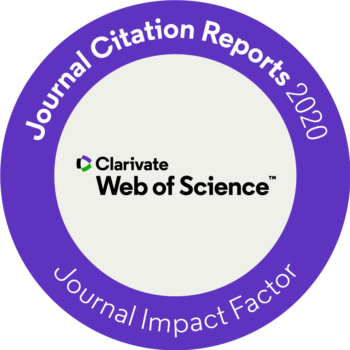
The updated citation metrics have been released in the Journal Citation Reports (JCR), published by Clarivate. The recent release of the JCR includes seventy-one MDPI titles. Out of these, 18 titles are newcomers, receiving a first Journal Impact Factor which is based on citation activity in 2019: Actuators, Agriculture, Biology, Biomedicines, Biosensors, Chemosensors, Children, Healthcare, Journal of Fungi, Journal of Personalized Medicine (JPM), Land, Life, Magnetochemistry, Membranes, Pharmaceuticals, Photonics, Separations and Toxics.
- Out of the previously listed journals, a total of 72 percent boast an increased Impact Factor.
- 25 journals are ranked among the top 25% of journals in at least one of the categories they are ranked for.
- Articles published in 2019 in MDPI journals account for approximately 17 percent of of articles published in gold Open Access journals covered in the Science Citation Index Expanded (SCIE) and Social Sciences Citation Index (SSCI).
First Impact Factors
| Journal | Impact Factor | Rank | Category | Details |
| Actuators | 1.957 | 31/64 (Q2) | • Instruments & Instrumentation | Link |
| Agriculture | 2.072 | 25/91 (Q2) | • Agronomy | Link |
| Biology | 3.796 | 19/93 (Q1) | • Biology | Link |
| Biomedicines | 4.717 | 30/138 (Q1) 36/270 (Q1) |
• Medicine, Research & Experimental • Pharmacology & Pharmacy |
Link |
| Biosensors | 3.240 | 24/86 (Q2) | • Chemistry, Analytical | Link |
| Chemosensors | 3.108 | 16/64 (Q1) 27/86 (Q2) 13/27 (Q2) |
• Instruments & Instrumentation • Chemistry, Analytical • Electrochemistry |
Link |
| Children | 2.078 | 50/128 (Q2) | • Pediatrics | Link |
| Healthcare | 1.916 | 62/102 (Q3) 45/87 (Q3) |
• Health Care Sciences & Services (SCIE) • Health Policy & Services (SSCI) |
Link |
| Journal of Fungi | 4.621 | 5/29 (Q1) 31/135 (Q1) |
• Mycology • Microbiology |
Link |
| Journal of Personalized Medicine | 4.433 | 24/165 (Q1) 10/102 (Q1) |
• Medicine, General & Internal • Health Care Sciences & Services |
Link |
| Land | 2.429 | 58/123 (Q2) | • Environmental Studies (SSCI) | Link |
| Life | 2.991 | 26/93 (Q2) 109/267 (Q2) |
• Biology • Microbiology |
Link |
| Magnetochemistry | 1.947 | 22/45 (Q2) 109/159 (Q3) 201/314 (Q3) |
• Chemistry, Inorganic & Nuclear • Chemistry, Physical • Materials Science, Multidisciplinary |
Link |
| Membranes | 3.094 | 53/143 (Q2) 129/314 (Q2) 23/89 (Q2) |
• Engineering, Chemical • Materials Science, Multidisciplinary • Polymer Science |
Link |
| Pharmaceuticals | 4.286 | 49/270 (Q1) | • Pharmacology & Pharmacy | Link |
| Photonics | 2.140 | 48/97 (Q2) | • Optics | Link |
| Separations | 1.900 | 53/86 (Q3) | • Chemistry, Analytical | Link |
| Toxics | 3.271 | 32/92 (Q2) 92/265 (Q2) |
• Toxicology • Environmental Sciences |
Link |
Updated Impact Factors
| Journal | Impact Factor | Rank | Category | Details |
| Agronomy | 2.603 | 18/91 (Q1) 65/234 (Q2) |
• Agronomy • Plant Sciences |
Link |
| Animals | 2.323 | 10/63 (Q1) 14/142 (Q1) |
• Agriculture, Dairy & Animal Science • Veterinary Sciences |
Link |
| Antibiotics | 3.893 | 23/93 (Q1) 64/270 (Q1) |
• Infectious Diseases • Pharmacology & Pharmacy |
Link |
| Antioxidants | 5.014 | 10/139 (Q1) 56/297 (Q1) 7/61 (Q1) |
• Food Science & Technology • Biochemistry & Molecular Biology • Chemistry, Medicinal |
Link |
| Applied Sciences | 2.474 | 161/314 (Q3) 32/91 (Q2) 88/177 (Q2) 62/154 (Q2) |
• Materials Science, Multidisciplinary • Engineering, Multidisciplinary • Chemistry, Multidisciplinary • Physics, Applied |
Link |
| Atmosphere | 2.397 | 48/93 (Q3) | • Meteorology & Atmospheric Sciences | Link |
| Biomolecules | 4.082 | 98/297 (Q2) | • Biochemistry & Molecular Biology | Link |
| Brain Sciences | 3.332 | 113/271 (Q2) | • Neurosciences | Link |
| Cancers | 6.126 | 37/244 (Q1) | • Oncology | Link |
| Catalysts | 3.520 | 65/159 (Q2) | • Chemistry, Physical | Link |
| Cells | 4.366 | 70/195 (Q2) | • Cell Biology | Link |
| Coatings | 2.436 | 10/21 (Q2) | • Materials Science, Coatings & Films | Link |
| Crystals | 2.404 | 10/26 (Q2) 165/314 (Q3) |
• Crystallography • Materials Science, Multidisciplinary |
Link |
| Diagnostics | 3.110 | 39/165 (Q1) | • Medicine, General & Internal | Link |
| Diversity | 1.402 | 119/168 (Q3) | • Ecology | Link |
| Electronics | 2.412 | 125/266 (Q2) | • Engineering, Electrical & Electronic | Link |
| Energies | 2.702 | 63/112 (Q3) | • Energy & Fuels | Link |
| Entropy | 2.494 | 33/85 (Q2) | • Physics, Multidisciplinary | Link |
| Foods | 4.092 | 27/139 (Q1) | • Food Science & Technology | Link |
| Forests | 2.221 | 17/68 (Q1) | • Forestry | Link |
| Genes | 3.759 | 53/177 (Q2) | • Genetics & Heredity | Link |
| Insects | 2.220 | 18/101 (Q1) | • Entomology | Link |
| International Journal of Environmental Research and Public Health (IJERPH) | 2.849 | 58/193 (Q2) 32/170 (Q1) 105/265 (Q2) |
• Public, Environmental & Occupational Health (SCIE) • Public, Environmental & Occupational Health (SSCI) • Environmental Sciences (SCIE) |
Link |
| International Journal of Molecular Sciences (IJMS) | 4.556 | 74/297 (Q1) 48/177 (Q2) |
• Biochemistry & Molecular Biology • Chemistry, Multidisciplinary |
Link |
| ISPRS International Journal of Geo-Information (IJGI) | 2.239 | 31/50 (Q3) 18/30 (Q3) |
• Geography, Physical • Remote Sensing |
Link |
| Journal of Clinical Medicine | 3.303 | 36/165 (Q1) | • Medicine, General & Internal | Link |
| Journal of Marine Science and Engineering | 2.033 | 31/66 (Q2) | • Oceanography | Link |
| Marine Drugs | 4.073 | 16/61 (Q2) | • Chemistry, Medicinal | Link |
| Materials | 3.057 | 132/314 (Q2) | • Materials Science, Multidisciplinary | Link |
| Mathematics | 1.747 | 28/324 (Q1) | • Mathematics | Link |
| Medicina | 1.205 | 107/165 (Q3) | • Medicine, General & Internal | Link |
| Metabolites | 4.097 | 95/297 (Q2) | • Biochemistry & Molecular Biology | Link |
| Metals | 2.117 | 18/79 (Q1) 185/314 (Q3) |
• Metallurgy & Metallurgical Engineering • Materials Science, Multidisciplinary |
Link |
| Micromachines | 2.523 | 56/92 (Q3) 23/64 (Q2) |
• Nanoscience & Nanotechnology • Instruments & Instrumentation |
Link |
| Microorganisms | 4.152 | 37/135 (Q2) | • Microbiology | Link |
| Minerals | 2.380 | 6/21 (Q2) 11/30 (Q2) |
• Mining & Mineral Processing • Mineralogy |
Link |
| Molecules | 3.267 | 70/177 (Q2) 141/297 (Q2) |
• Chemistry, Multidisciplinary • Biochemistry & Molecular Biology |
Link |
| Nanomaterials | 4.324 | 89/314 (Q2) 42/103 (Q2) |
• Materials Science, Multidisciplinary • Nanoscience & Nanotechnology |
Link |
| Nutrients | 4.546 | 17/89 (Q1) | • Nutrition & Dietetics | Link |
| Pathogens | 3.018 | 65/135 (Q2) | • Microbiology | Link |
| Pharmaceutics | 4.421 | 44/270 (Q1) | • Pharmacology & Pharmacy | Link |
| Plants | 2.762 | 58/234 (Q1) | • Plant Sciences | Link |
| Polymers | 3.426 | 16/89 (Q1) | • Polymer Science | Link |
| Processes | 2.753 | 59/143 (Q2) | • Engineering, Chemical | Link |
| Remote Sensing | 4.509 | 9/30 (Q2) | • Remote Sensing | Link |
| Sensors | 3.275 | 22/86 (Q2) 77/266 (Q2) 15/64 (Q1) |
• Chemistry, Analytical • Engineering, Electrical & Electronic • Instruments & Instrumentation |
Link |
| Sustainability | 2.576 | 120/265 (Q2) 26/41 (Q3) 53/123 (Q2) 6/8 (Q3) |
• Environmental Sciences (SCIE) • Green & Sustainable Science & Technology (SCIE) • Environmental Studies (SSCI) • Green & Sustainable Science & Technology (SSCI) |
Link |
| Symmetry | 2.645 | 29/71 (Q2) | • Multidisciplinary Sciences | Link |
| Toxins | 3.531 | 21/92 (Q1) 34/139 (Q1) |
• Toxicology • Food Science & Technology |
Link |
| Universe | 1.752 | 18/29 (Q3) 42/68 (Q3) |
• Physics, Particles & Fields • Astronomy & Astrophysics |
Link |
| Vaccines | 4.086 | 57/158 (Q2) 50/138 (Q2) |
• Immunology • Medicine, Research & Experimental |
Link |
| Viruses | 3.816 | 12/37 (Q2) | • Virology | Link |
| Water | 2.544 | 31/94 (Q2) | • Water Resources | Link |
Source: Clarivate 2020, InCites Journal Citation Reports®.
13 May 2020
COVID-19 Academic Resources Center

Since 1996, MDPI has been committed to supporting the research community by providing the latest research freely available and making relevant and useful research available as quickly as possible. The world is current experiencing a pandemic of COVID-19, and researchers are working extremely hard to understand it and find a cure.
The values MDPI holds strongly are particularly important at the moment, and we will continue to publish relevant, peer-reviewed research as quickly as possible in open access format. This means that it will immediately be available for researchers, health professionals, and the general public to read, distribute, and reuse. We believe that scientific advancements will be crucial to overcoming this pandemic, and will do everything we can to support researchers working looking for solutions.
COVID-19 Academic Resources Center contains a variety of information related to COVID-19 available from MDPI, including journal articles, special issues, and preprints, among others.
For more information, please visit: https://www.mdpi.com/covid-19
9 April 2020
Free Open Platforms to Support Academics During the COVID-19 Pandemic

As a leading Open Access publisher, MDPI is committed to fostering open scientific exchange in all forms across all disciplines. Due to the outbreak of COVID-19, many researchers have to stay at home and many academic conferences have been cancelled or postponed. In light of these changes, MDPI has adopted numerous initiatives that may help accelerate scientific exchange and provide support to the academics during this period.
Scholarly Community—Encyclopedia
Encyclopedia is an online reference created and curated by active scholars. It aims to highlight the latest research results as well as providing benchmark information for researchers and the general public interested in accurate and advanced knowledge on specific topics.
Comprehensive and Free Literature Database—Scilit
Scilit is a comprehensive, free database for scientists that uses a new method to collate data and index scientific material. Our crawlers extract the latest data from CrossRef and PubMed on a daily basis. This means that newly published articles are immediately added to Scilit.
Display Academic Achievements—SciProfiles
SciProfiles is an innovative social network for researchers and scholars that is developed by MDPI. In line with our broad mission, the purpose of SciProfiles is to accelerate discovery and innovation by facilitating immediate access to research results and providing opportunities for academic networking.
Organize and Participate in Conferences Online—Sciforum
Sciforum is an event planning platform that supports open science by offering the opportunity to host and participate in academic conferences. It provides an environment for scholarly exchange, discussion of topics of current interest, building of networks, and establishing collaborations.
Post Early Versions of Research Outputs—Preprints
Preprints is a platform dedicated to making early versions of research outputs permanently available and citable. We post original research articles and comprehensive reviews, and papers can be updated by authors at any time. Content on Preprints is not peer-reviewed, and feedback can be received from readers.
***
MDPI remains committed to open science and open data and has signed a statement, along with more than thirty scholarly publishers, showing our intention to facilitate sharing of new research findings as early on as possible. The initiative sees publishers collectively removing barriers to new research, in the face of a global healthcare crisis.
25 March 2020
MDPI Comment on the COVID-19 Virus
The world is currently suffering from a global pandemic of the corona virus COVID-19. MDPI expresses its sympathies for all of those affected by the virus and stands in solidarity with medical staff and researchers treating patients and searching for scientific solutions.
MDPI has previously published papers covering corona viruses in addition to new papers on the current outbreak, see all papers here. In particular, Viruses has published a number of Special Issues and papers on the topic (see here, here, and here) as well as a forthcoming Special Issue.
Alongside journal articles, MDPI has been a strong supporter of preprints, which are increasingly being used to rapidly disseminate the latest research, and we run the preprint server Preprints.org. Our database of research articles, Scilit, is free to use and covers all publishers including preprint servers. New papers are often in search results within hours of publication and users can set up alerts for new papers.
Our main priority during this period has been the health and safety of staff, and we continue to allow staff to work at home and closely monitor the situation in all locations in which we work. Despite the restrictions, we continue to provide a full publication service and, by close collaboration with our editorial boards and making use our in-house teams, ensure that there are no unnecessary delays in publishing vital research. Fast and open publication has always been at the core of MDPI values and is now more important than ever.
We hope that a solution to the current situation will emerge soon. In the meantime, we will do our best to continue communicating vital research in all fields.
18 March 2020
MDPI Co-Signed Position Statement on Transformative Agreements
The advantages of the open access model of scientific publishing are being increasingly recognized in the scientific community. It allows new scientific evidence to be accessed from the moment of publication for free by anyone around the globe, boosting the impact of new research. In response, many funders, libraries and universities have been adopting new principles to accelerate the transition to open access.
Recently, “transformative agreements” have been negotiated between traditional publishers and various institutions. While increasing the number of open access papers, these agreements lack binding commitments to a full transition to open access, their conditions vary across different regions, and access is still limited for many users.
MDPI is a co-signatory of the recent position statement raising concerns about potential downsides of transformative agreements and how they may delay a full transition to open access. The statement highlights that these models “risk perpetuating current limitations on access, transparency and market competitiveness, while simultaneously facilitating excessive charges on the public purse”.
As a pioneering open access journal publisher, MDPI is the first to promote the importance of science being made available to everyone. Our peer-reviewed journals, covering diverse academic disciplines, are fully accessible to the public free of charge under a Creative Commons Attribution License (CC BY). This is why, along with other open access publishers, MDPI is a proud signatory of the position paper and is committed to contributing to the replacement of weak transitional agreements with “agreements with publishers that are already fully committed to open science and who offer full, immediate and transparent Open Access”.
Read the position paper here
16 March 2020
Encyclopedia Outstanding Contributor Awards 2020 - Open for Application
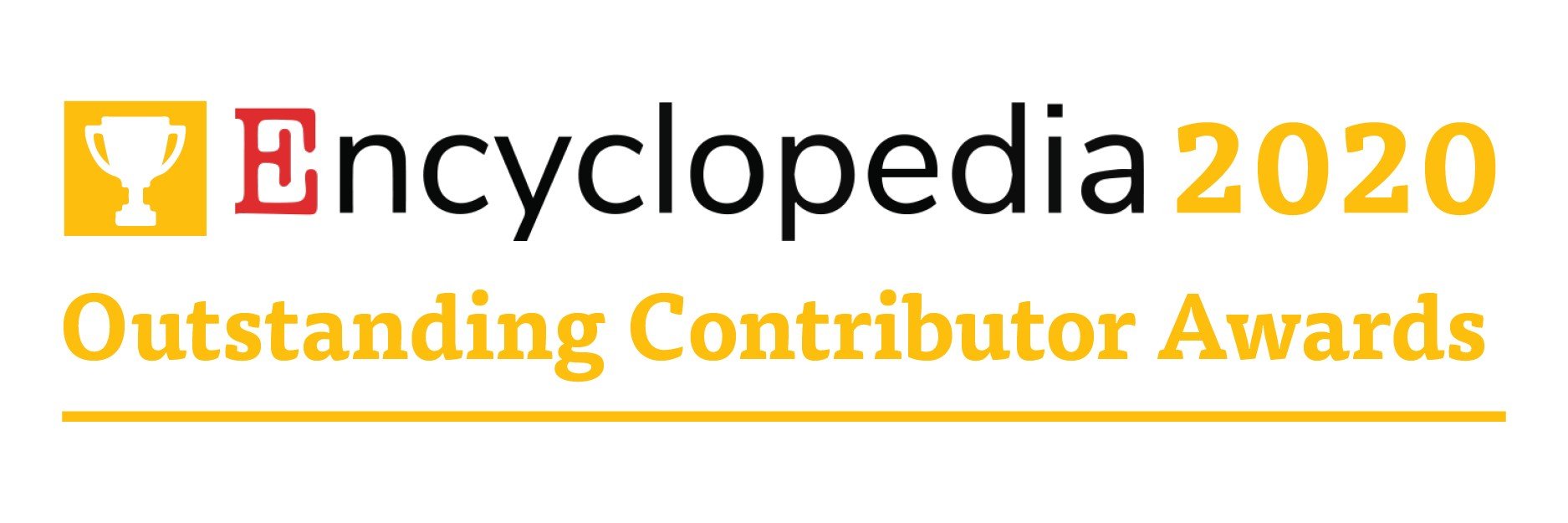
We are pleased to announce that Encyclopedia will be awarding five Outstanding Contributor Awards for researchers in 2020. The nominations and applications will be assessed by an Evaluation Committee consisting of senior scholars from the Encyclopedia Editorial Board.
Prize for Winners
- An official certificate;
- A cash award of 500 CHF or an MDPI discount voucher of 800 CHF.
Application Deadline
31 December, 2020 (Please send your application email with a list of all entries you contributed to our office before the deadline: [email protected])
Candidate Requirements
- Have a Ph.D. degree;
- Have more than three qualified entries published in Encyclopedia in 2020.
Evaluation Standards
- Number of entries published in Encyclopedia in 2020;
- Quality of entries online (including length, figure quality, and novelty);
- Impact of entries (including the number of likes, discussion contents, views, and downloads).
If you are a researcher and have not yet contribute entries to Encyclopedia, please do not miss this chance to highlight your research results.
21 February 2020
Registered Report: New Article Type Accepted For Submission
We are pleased to announce that our journals Animals, Cancers and Journal of Clinial Medicine (JCM) are starting to accept submissions of Registered Reports, to be considered for publication in one of these journals.
Registered Reports are scientific articles which are peer-reviewed before the research is performed and the data are collected. The ideas that meet high scientific standards, such as rigor, soundness, significant importance and implications for the science community, are then provisionally accepted for publication before data collection starts. This format helps to considerably reduce publication bias and to avoid researchers having to invest much time and effort into questionable research studies, while allowing enough flexibility to perform unregistered experiments and report serendipitous findings.
The detailed guidelines for authors to prepare the manuscript can be accessed on the three journals’ instructions website, i.e., Animals, Cancers, Journal of Clinial Medicine. The guidelines for reviewers can be accessed online at Guidelines for Reviewers for Registered Reports Papers.
Please feel free to contact the respective journal editorial offices for related questions (Animals office; Cancers office; JCM office).
14 January 2020
Recruiting Topic Editors for Animals
Animals will be launching a new position—Topic Editor. The main responsibilities of Topic Editors are:
- Setting up at least one Special Issue (SI) within the first two years with the journal, and proposing a detailed strategy plan for the SI (including soliciting papers, promoting the SI, etc.).
- Promoting the journal during conferences (adding 1–2 slides into your presentation, distributing flyers, recommending the journal to your colleagues, etc.).
- Providing support for Special Issues on topics related to your expertise or when the guest editor(s) is not available, including SI promotion via social media, pre-checking new submissions, making decisions, and giving advice in particular scientific cases.
Benefits: Topic Editors are encouraged to apply for travel grants for their research group or themselves after one year served. Moreover, they may be recommended for the role of Editorial Board Member after the Editorial Office’s evaluation.
Animals (ISSN 2076-2615), an international open access journal, publishes original research articles, reviews, communications, and short notes that offer substantial new insight into any field of study that involves animals, including zoology, ethnozoology, animal science, animal ethics and animal welfare. The latest IF is 1.832. The journal ranks 11/60 (Q1) in the category ‘Agriculture, Dairy & Animal Science’ and 29/141 (Q1) in ‘Veterinary Sciences’. It is also indexed in Scopus (Elsevier), the Zoological Record (Thomson Reuters), AGORA(FAO), and AGRIS (FAO), and is one of NC3Rs endorsing members. We strive to support original research that provides a broad and better understanding of how humans and animals can coexist in a sustainable and healthy manner.
If you are interested in this editor role or if you have any suggestions, please feel free to contact us ([email protected]).
For more information about Animals, please visit: https://www.mdpi.com/journal/animals
6 January 2020
Recruiting Section Editor-in-Chief for Animals
Animals is recruiting Section Editor-in-Chief for the following sections:
- Animal Ethics
- Animal Welfare
- Animal System and Management
- Equids
- Human-Animals Interactions, Animal Behaviour and Emotion
- Veterinary Clinical Studies
More details on the Sections of Animals are available at https://www.mdpi.com/journal/animals/sections. If you are interested in this position or know of potential candidates to recommend, please contact us ([email protected]).
11 October 2019
Introducing SciProfiles, an Academic Social Network
MDPI is pleased to announce the release of SciProfiles, its social network platform for researchers and scholars.
The purpose of SciProfiles is aligned with MDPI’s broad mission to accelerate discovery and innovation by facilitating immediate access to research results and to serve scholars and communities by providing opportunities for academic networking.
SciProfiles also ambitions to serve as a sustainable, transparent and community-driven research evaluation system aligned with the DORA principles (https://sfdora.org/). Through their scientific profiles, academics can highlight their contribution to research communities, and measure their impact on their field, beyond publication numbers and impact factors. SciProfiles is currently a beta version and will enrich to give researchers the possibility to highlight all of their contributions to science and their scientific communities as authors, reviewers, editors, conference organizers, conference panelists, conference keynote speakers, or even as lecturers or student mentors at their University.
The classic components of popular community social networks, including follower/following, classical metrics, endorsements and recommendations (https://www.mdpi.com/about/announcements/1690), comments (https://www.mdpi.com/about/announcements/1397) are or will be very soon highlighted in SciProfiles as open science contributions.
To help increase the impact and visibility of articles and their authors to an appropriate audience, the platform offers a NewsFeed that includes recommendations of relevant content based on interests, publication history, saved searches or colleagues’ recommendations.
SciProfiles’ avatars are now being integrated on several MDPI platforms, meaning that you will directly access researchers’ profiles from any of the MDPI platforms:
MDPI's journal publishing website: www.mdpi.com
MDPI's conference hosting and management website: www.sciforum.net
MDPI's pre-print website : www.preprints.org
MDPI's knowledge sharing website : www.encyclopedia.pub
MDPI's books store: www.mdpi.com/books
MDPI's literature database : www.scilit.net
SciProfiles aims to serve scientific communities at large. It can be embedded into third-party websites and also welcomes integration of data from third-parties.
Dr. Shu-Kun Lin: https://sciprofiles.com/profile/2
Dr. Franck Vazquez: https://sciprofiles.com/profile/FranckVazquez
Dr. Martyn Rittman: https://sciprofiles.com/profile/martynrittman
2 October 2019
Winners of the 2019 MDPI Writing Prize
We are delighted to announce the winners of the 2019 MDPI Writing Prize. Entrants were asked to write on the theme "Judging research: How should research and researchers be evaluated and rewarded?" We received a large number of excellent essays from PhD students and postdocs, and the process of shortlisting and choosing winners was not an easy one. The winners demonstrated excellent writing skills alongside interesting and thought-provoking ideas.
As last year, we will begin the process of collating all entries into a book that will be available in open access format. Alongside promoting good writing skills, we see the prize as a way to promote the voices of early career researchers within broader debates and policy discussions.
Congratulations to all of the participants and especially the winners. The winners are:
1st Prize (500 CHF):
Albin Nilsson (National Centre for Nuclear Research, Warsaw, Poland)
[Read here]
2nd Prize (250 CHF):
Qi Zhang (Shandong University, Jinan, China)
[Read here]
Igor Ogashawara (Indiana University, Indianapolis, US)
[Read here]
3rd Prize (100 CHF):
Margaret Sivapragasam (Universiti Teknologi Petronas, Perak, Malaysia)
[Read here]
Arvind Sharma (The University of Queensland, Gatton, Australia)
[Read here]
Jose Flores-Guerrero (University Medical Center Groningen, Groningen, The Netherlands)
[Read here]
The MDPI Writing Prize is an annual award supported by MDPI Author Services, which provides services including language editing, reformatting, plagiarism checks, and image editing.
20 September 2019
MDPI Now Gives Scholars the Possibility to Endorse and Recommend Articles

MDPI is pleased to announce the release of a new functionality giving the possibility for researchers and scholars to endorse, and formally recommend articles to their colleagues.
MDPI was an early signatory of the San Francisco Declaration on Research Assessment (https://sfdora.org/read/) which calls for improvement in how quality and impact of scholarly research outputs are evaluated, especially in moving beyond journal-based citation metrics (journal Impact Factor, Scopus Citescore, etc.).
MDPI supports the establishment of article-level impact metrics, including citations, views, downloads, and Altmetric scores. These measures serve as an impact indicator for research articles on a case–by-case basis, assessing paper on its own merit. However, these metrics are also subjective and can give a biased picture of the article impact: they do not directly reflect the quality or the intrinsic scientific value of the article.
In our view, community engagement with publications based on community-driven metrics can help to overcome this limitation. We have therefore launched an option for scholars to endorse articles, indicating their own assessment of its content and making a recommendation to their community. This follows our implementation of the open source Hypothesis commenting tool, which has been available for all articles published by MDPI for over a year (https://www.mdpi.com/about/announcements/1397). Both endorsement and commenting are available for all previously published and forthcoming MDPI articles.
In addition to potentially serving as a sustainable solution to article assessment, endorsements will help scientific communities to identify the most relevant articles, independently of the journal in which it was published.
The code for the endorsing functionality, which relies on DOIs and ORCIDs, will be made available on GitHub with an open source license.
Dr. Shu-Kun Lin, President and Founder
Dr. Franck Vazquez, Chief Scientific Officer
Dr. Martyn Rittman, Publishing Director
11 September 2019
Create an Entry in Encyclopedia to Get a 100 CHF Voucher in Publishing in MDPI Journals
Encyclopedia is a free online reference created and curated by active scholars. It aims to highlight the latest research results as well as provide a comprehensive record of scientific development. If you have any suggestions or questions, please feel free to contact us via [email protected].

6 August 2019
Preprints Reaches 10,000 Posted Articles Milestone
We are pleased to announce that Preprints has passed the milestone of 10,000 posted preprints. We are delighted to have reached this after just over three years of operation. Our congratulations and thanks go to our authors and advisory board who have supported growth of the platform and been crucial to its operation.
You can find further details at https://www.preprints.org/announcement/show/37.
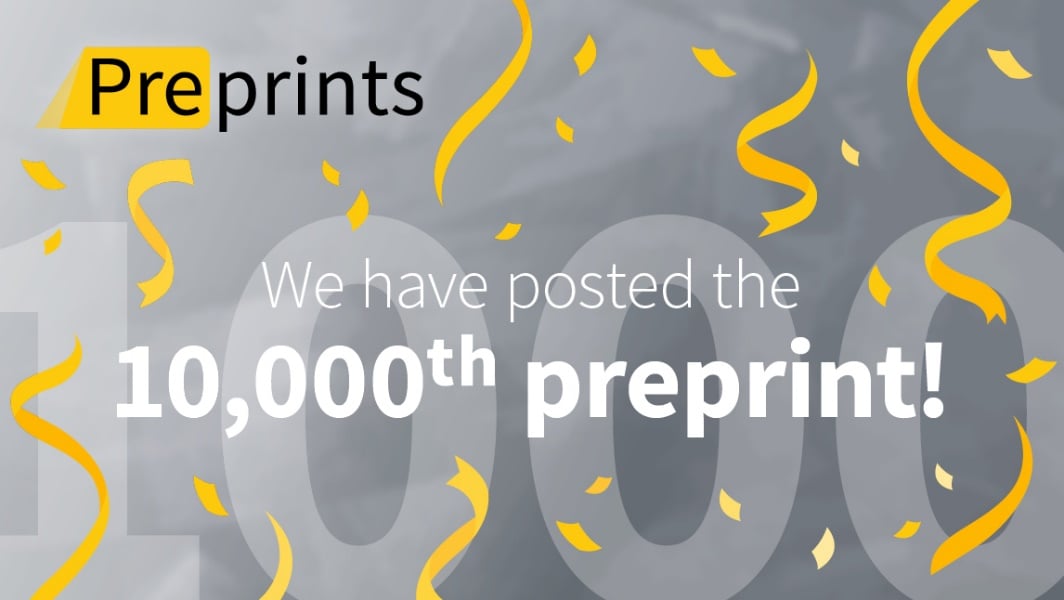
2 August 2019
DeepGreen Partnering with Publishers and Universities in Distributing Open Access Content to Institutional Repositories
Last week, the DeepGreen initiative in Germany started into an advanced test phase with the publishing partners S. Karger AG, SAGE Publishing, MDPI, Frontiers and De Gruyter, as well as 27 universities from all over Germany, from Hamburg University of Applied Sciences to University of Konstanz.
DeepGreen aims at lowering the barriers for open access publishing by automatically delivering metadata and full text publications from participating publishers to authorized repositories at German universities.
In preparation for a later live operation, the advanced test phase serves to gain experience with extensive data deliveries from publishers and also handling different repository software (including OPUS4, DSpace, EPrints, MyCoRe). DeepGreen thereby acts as a sophisticated platform, receiving articles published by authors affiliated with German universities and depositing these articles to respective university repositories, based on the affiliation metadata. For more information about DeepGreen: https://deepgreen.kobv.de
Karger AG has been a close cooperation partner of the DeepGreen consortium since 2016. S. Karger has more than 80 subscription-based and around 20 open access journals covering a wide spectrum in health science. DeepGreen will assign S. Karger articles to authorized institutions on the legal basis of German alliance and national licenses.
SAGE Publishing was founded by Sara Miller McCune in 1965 to support the dissemination of usable knowledge and educate a global community. SAGE publishes more than 1,000 journals and over 600 new books each year, spanning a wide range of subject areas. Our growing selection of library products includes archives, data, case studies and video. SAGE remains majority owned by our founder and after her lifetime will become owned by a charitable trust that secures the company’s continued independence. Principal offices are located in Los Angeles, London, New Delhi, Singapore, Washington DC and Melbourne. SAGE Publishing has been a close cooperation partner of DeepGreen since 2016.
MDPI is a scientific open access publisher and has been a partner of DeepGreen since 2017. MDPI comprises 205 peer-reviewed journals of various disciplines. All articles are published under a CC-BY license and are freely available without embargo period.
Frontiers is a scientific open access publisher with 61 journals of over 600 academic disciplines. All articles are peer-reviewed and published freely available under CC-BY license.
De Gruyter is an academic publisher with more than 700 subscription-based and open access journals of 29 disciplines. Articles provided by De Gruyter will be assigned to institutions with German alliance and national licenses.
There is promising communication with other publishers.
DeepGreen is funded by the German Research Foundation (DFG) and the consortium comprises six institutions: the Cooperative Library Network Berlin-Brandenburg, Bavarian State Library, Bavarian Library Network, University Library of the Technische Universität Berlin, University Library of Erlangen-Nuremberg and the Helmholtz Open Science Coordination Office at the GFZ German Research Centre for Geosciences.
If you would like to know in more detail which institutions take part in the advanced test phase of DeepGreen, you can find more information here.
17 July 2019
First Basel Sustainable Publishing Forum
The University of Basel and the MDPI Sustainability Foundation are organizing the First Basel Sustainable Publishing Forum on 9th September 2019.
The aim of this event is to provide background and perspectives on Plan S to Learned Societies, which have to make well-informed decisions to transition their journals to Open Access (OA).
The BSPF will bring together several representatives of Learned societies, Plan S architects as well as representatives from various publishers and publishing platforms. After getting the big picture from cOAlition S, panel discussions will allow to better understand the diverse challenges that Learned societies are facing to transition their journals to OA as well as to identify sustainable, implementable and scalable solutions for successful Open Access transition.
For program details and registration, please follow the link below:
https://sciforum.net/conference/SustainableSolutionsToOpenAccess
20 June 2019
Animals Receiving 2018 Updated Impact Factor of 1.832
We are pleased to inform that Animals received an updated Journal Impact Factor of 1.832 in the recent release of the Journal Citation Reports®. Animals now ranks 11/61 (Q1) in the category 'Agriculture, Dairy and Animal Science' and 29/141 (Q1) in the category 'Veterinary Sciences'.
Source: data according to Journal Citation Reports®, 2018 release, a Clarivate Analytics product.
20 March 2019
Fostering Open Access Publishing Worldwide: New IOAP Participants in February and March 2019
We are pleased to welcome more universities from Poland, Italy, Germany, Brazil and other parts of the world to MDPI's Institutional Open Access Program (IOAP). A warm welcome to the institutions listed below, who have joined the Program in February and March this year.
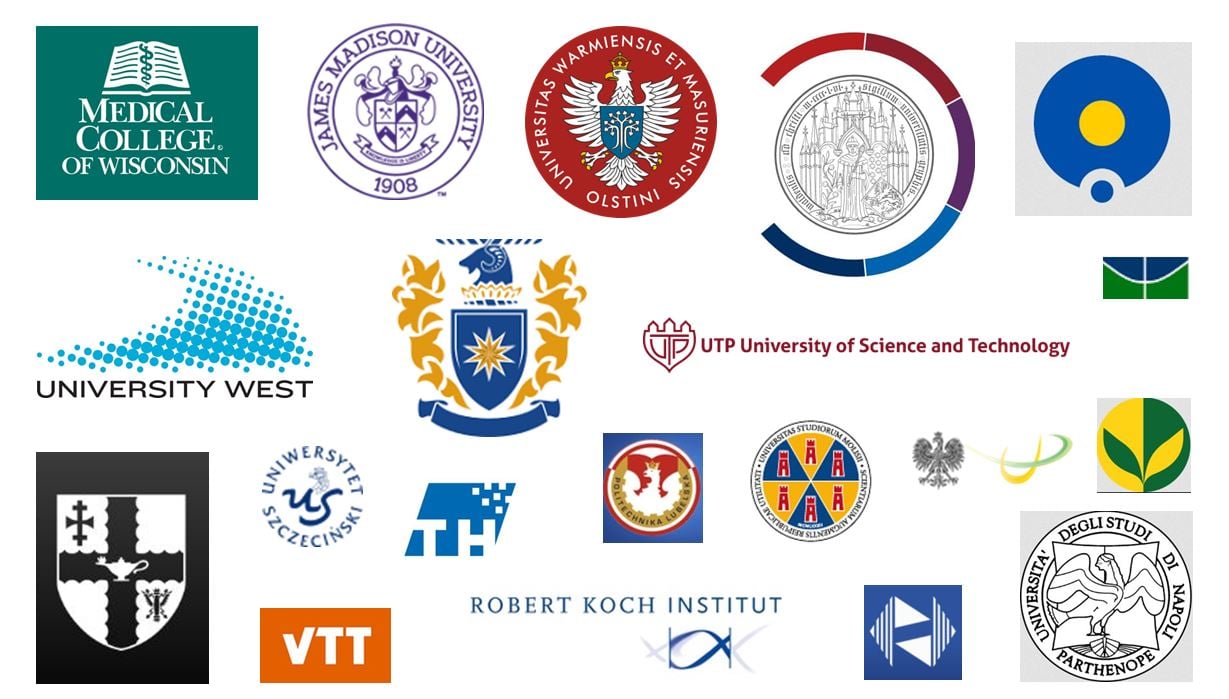
Authors affiliated with these institutions can now enjoy a discount on the APC for papers accepted for publication in any MDPI journal. If you would like to learn more about our program, please visit: https://www.mdpi.com/about/ioap or email us at [email protected].
5 March 2019
MDPI Joins Jisc’s Publications Router Service
We are delighted to announce our participation in Jisc’s Publication Router project, as of March 2019.
Publications Router is a Jisc service that automatically sends notifications about research articles to institutions' systems such as their repositories or CRISs, since May 2015. Through this agreement, MDPI will provide Jisc with daily feeds and information regarding published articles, which will be gathered by their system and delivered to institutions also registered to this service. Nearly all of our articles are published within 15 days of acceptance, so institutions will receive them quite promptly.
The feed will include the full text of the published version of record, with no embargo, so the articles can be exposed immediately for public view. They are accompanied by rich metadata, including confirmation of the immediate CC BY licence, minimising the need for any manual intervention or checking.
For more information about Publications Router, you may contact Jisc’s central helpdesk at [email protected]. For any queries about MDPI’s institutional agreements and collaborations, you may get in touch with MDPI’s Institutional Engagement team at [email protected], which would be very happy to hear from further UK institutions.
1 February 2019
2018 MDPI Top Reviewer Award—Winners Announced
Rigorous peer-review is the cornerstone of high quality academic publishing. Over 97,000 scholars served as reviewers for MDPI journals in 2018. We are extremely appreciative of all those who made a contribution to the editorial process in this capacity. At the beginning of every year, journal editorial offices publish a list all reviewers’ names to express our gratitude. In addition, this year the “MDPI Top Reviewer Awards” are announced, to recognize the very best reviewers for their expertise, dedication, high quality, and timely review reports. We are pleased to announce the following winners of the 2018 MDPI Top Reviewer Awards:
- Ali Behnood
- Andrea Pezzuolo
- Angela Gorgoglione
- Anna D'Auria
- Antonio D'Andrea
- Azhar Abbas
- Bogdan Zagajewski
- Chunhui Chen
- Dominika Głąbska
- Dominika Guzek
- Dragan Pamucar
- Francisco J. G. Silva
- Frank Li
- Gianluca Serafini
- Gyorgy Szekely
- Haozhi Pan
- Helvi Heinonen-Tanski
- José Manuel Gómez-Soberón
- Kathy Lewis
- Klara Kosova
- Luis N. López De Lacalle
- M. Z. Naser
- Malwina Tytła
- Masoume Amirkhani
- Matteo Ghidelli
- Moretti Laura
- Petra Schneider
- Roberto Cerchione
- Spyros Papaefthymiou
- Ştefan Cristian Gherghina
24 January 2019
JAMS Journals: A Low-Cost Publishing Platform

Since 2010, MDPI has run its own online submission system. More recently, we have made the software, with accompanying publishing services, available to other publishers as JAMS (Journal and Article Management System). We are now delighted to announce the launch of JAMS Journals, a standardized platform for operating open access journals at low cost.
JAMS Journals provides a comprehensive service, including a shared submission website, journal websites hosted at a URL provided by the publisher, and a full production service. There is a small setup fee and the cost for each published paper is just a few hundred Swiss francs.
The platform demonstrates that running an open access journal can be straightforward and affordable. The JAMS Journals platform is suitable for
- small publishers or groups of scholars looking to launch their own journal;
- existing publishers or societies seeking to explore open access options;
- publishers looking to convert an existing subscription journal to open access.
JAMS journals launches with two journals from Canadian-based publisher Etcetera Publications:
- Canadian Journal of Pesticides & Pest Management (http://www.cjppm.ca)
- Nanotechnology in Agriculture, Food & Environment (http://www.nanoafe.ca)
Dr AJ Al-Rajab (President of Etcetera Publications) comments:
“In the past few months, we were working on our project to launch new open access scientific journals in the field of agricultural and environmental sciences. We decided to go with JAMS for this venture because of the high quality of their services, reasonable prices, professionalism and easy communication. Our portfolio is expected to grow rapidly during 2019 to include more titles covering different areas in agriculture and environment. MDPI earned already our complete satisfaction and we are looking for a long term cooperation.”
Alongside the new platform, we continue to provide flexible, tailored journal management solutions for existing publishers. For any questions or to request a quotation, contact Dr. Constanze Schelhorn ([email protected]).
24 January 2019
Popularity of Preprints Continues to Grow

2018 was a great year for preprints, with increasing numbers of authors looking to make their papers available online before peer review. Along with other preprint servers, our platform Preprints.org saw an increase in the uptake from authors, and more than double the number of announced papers compared to 2017. In fact, we recently passed two important milestones: 8000 preprints online and 30,000 authors.
We believe that the whole research community has the opportunity to benefit from work being available online as early as possible. We thank and congratulate our authors for supporting us to make this goal a reality.
In 2019, we will be looking carefully at how to provide better value for authors, maintain efficiency while growing in size, and make sure we remain well-connected with the research community.
If you want to participate, you can consider screening preprints or joining our advisory board. And, of course, posting your own work.
9 January 2019
Open Access Agreement between the Austrian Academic Library Consortium (KEMÖ), the Austrian Science Fund (FWF), and MDPI

We are delighted to announce the establishment of our national Open Access agreement with the Austrian Academic Library Consortium (KEMÖ) and the Austrian Science Fund (FWF). Through this national agreement, the Austrian institutions listed below as well as FWF will cover the Article Processing Charges (APC) of manuscripts published by eligible corresponding or funded authors in MDPI journals as long as central funds are available.
All participating institutions have gained access to the MDPI online submission system where they can find full article metadata and pricing information as well as Funder and Grant ID details for easy identification and additional transparency. At the same time eligible authors are benefited from an APC discount which comes at no cost for the institutions.
Eligible corresponding authors affiliated with the participating institutions are prompted to choose the corresponding Institutional Open Access Program (IOAP) when they submit an article via our online submission system. The program will be selected automatically if authors submit their papers using their institutional email address. To claim their discount, FWF funded authors should choose the particular funder and add their Grant ID upon online submission of their manuscript. The institutions will then crosscheck the information and confirm the APC funding.
Eligible authors that have their APC covered by their institution or funder are advised to include the following sentence in their acknowledgments: "Open Access Funding by the [name of the institution/funder]".
The full text of the agreement is openly available online at: http://doi.org/10.5281/zenodo.2536007
For any questions about the agreement, please contact the KEMÖ Consortium at [email protected], FWF at [email protected], or the MDPI IOAP team at [email protected].
The Austrian institutions participating in this agreement are:
- Austrian Science Fund (FWF)
- University for Continuing Education Krems
- University of Applied Sciences BFI Vienna
- University of Applied Sciences Upper Austria
- University of Applied Sciences Technikum Wien
- Vorarlberg University of Applied Sciences
- International Institute for Applied Systems Analysis (IIASA)
- Institute of Science and Technology Austria
- MCI Management Center Innsbruck
- University of Graz
- University of Linz
- University of Salzburg
- Graz University of Technology
- TU Wien
- University of Veterinary Medicine Vienna
- University of Vienna
This is our first collective agreement with a national library consortium, while the individual institutions around the world participating in our IOAP are now more than 500 - see details here: https://www.mdpi.com/about/ioap. We would be mostly interested in discussing about possible collaborations with other consortia, funders, and institutions in our mutual efforts to accelerate Open Access.
2 January 2019
Encyclopedia—the Scholarly Community Encyclopedia

We are pleased to announce the new platform Encyclopedia, which is an online reference created and curated by active scholars. It aims to highlight the latest research results as well as providing benchmark information for researchers and the general public interested in accurate and advanced knowledge on specific topics.
We encourage authors of review articles to quote and adapt the content of their published papers to create Encyclopedia entries. You can create completely new entries on topics in which you have knowledge and expertise. There is no limit on the topics or research fields. All of science and the humanities are included. Each entry will be published directly after submission.
We also have prepared a DOI application function in Encyclopedia. Once a DOI application is approved, the entry website will announce the DOI number and a pdf version with DOI information will be automatically created.
We look forward to your contributions and hope you will make use of this service. Find more about the service at: https://encyclopedia.pub/
30 October 2018
Institutional Open Access Agreement between Bill and Melinda Gates Foundation and MDPI

We are delighted to announce that the Bill and Melinda Gates Foundation (BMGF) is now a participant of our Institutional Open Access Program (IOAP). Authors funded by the BMGF can enjoy discounts on the APC, while the funder covers the costs of eligible articles centrally. BMGF also has access to the MDPI online submission system where they can find full article metadata and pricing information as well as Grant ID details for easy identification and additional transparency.
We hope that funded authors find the programme beneficial and we are happy to offer our IOAP to other funders that need a streamlined workflow of compliance checking and APC coverage.
To claim their discount, BMGF funded authors should choose the particular funder and add their Grant ID upon online submission of their manuscript.
For any questions about the BMGF agreement, please contact the funder at [email protected] or the MDPI IOAP team at [email protected].
2 October 2018
MDPI Welcomes Plan S
Recently, it was announced that a group of European funders supported 10 principles that will help to expand open access, known as Plan S. MDPI warmly welcomes this move as a step towards achieving more open and accessible communication of research across all disciplines. Some aspects remain to be clarified, however the details given so far match the aims and values that MDPI has held over the past two decades.

We believe that open access publishers should be active participants in discussions around Plan S, particularly regarding potential new business models and practical aspects of implementation. MDPI supports APCs as a transparent unit of payment for article publishing, however we are committed to exploring other measures and recently signed the Jussieu Call. Sustainability is a key value for MDPI, and future funding models should have at their heart the sustainability of knowledge and research dissemination. Plan S provides an opportunity for funders and publishers to directly discuss funding of open access journals in ways that are beneficial to all parties involved.
30 August 2018
MDPI establishes Open Access agreement with Qatar National Library

We are happy to announce the establishment of an Open Access (OA) agreement with Qatar National Library (QNL). QNL is committed to supporting and helping Qatar authors publish OA at no cost. Through this national agreement, QNL will cover the Article Processing Charges (APC) of manuscripts published by Qatar-based corresponding authors in MDPI journals.
Eligible corresponding authors affiliated with Qatar research centers and universities are prompted to choose QNL as part of our Institutional Open Access Program (IOAP) when they submit an article via our online submission system. The program will be selected automatically if authors submit their papers using their institutional email and/or a computer registered with the institution’s IP range. QNL will then crosscheck the information and confirm the APC funding.
Qatar authors that have their APC covered by QNL are advised to include the following sentence in their acknowledgments: "The publication of this article was funded by Qatar National Library".
For more information, please visit Open Access at QNL or email the QNL Open Access team at [email protected].
26 June 2018
Animals (ISSN 2076-2615) receives first Journal Impact Factor: 1.654
We are pleased to announce that Animals has received a first Impact Factor in the latest edition of the Journal Citation Reports®, published by Clarivate Analytics in June 2018.
Animals is covered in the Science Citation Index Expanded (SCIE) in Web of Science and received a first Impact Factor of 1.654. The journal ranks 13/60 (Q1) in the category 'Agriculture, Dairy & Animal Science' and 29/140 (Q1) in 'Veterinary Sciences.'
The Journal Citation Reports®, 2018 release, is a Clarivate Analytics product.
31 May 2018
Animals 2017 CiteScore™ Announced - 2.02
We are pleased to report Animals received a CiteScore of 2.02 for 2017. The metric reflects citation activity in 2017 in Scopus for papers published in the period 2014‒2016.
For the full details in the current CiteScore release, please see the journal's Source profile. To check the full list of MDPI journals receiving CiteScores, please see here.
31 May 2018
2017 CiteScore™ Metrics Released
The 2017 CiteScore™ data is available now, based on citation data in the Scopus® database. The current CiteScore reflects citation activity in 2017 for articles published in 2014‒2016. Please note that the list below includes journals assigned a CiteScore in this year’s release. For a full list of journals indexed in Scopus, please see our journal list.
Thirteen of our journals received a CiteScore which is in the top 10% of the distribution in at least one of the categories (marked with * in the table below), while a further 32 journals exhibit scores that are in the first quartile of the respective categories.
To access the full data for MDPI journals, please see here. More data can also be found in SJR Scimago Journal & Country Rank.
Unlike CiteScores and the widely used Journal Impact Factors, the Source Normalized Impact per Paper (SNIP) metrics are normalized in order to correct for differences in citation practices between scientific fields. Therefore, the SNIP allows direct comparison between journals specialized in different fields.
According to 2017 data, MDPI publishes six journals with an average citation impact, or SNIP, in excess of 1.500. These journals are Biomolecules, Cancers, Journal of Clinical Medicine (JCM), Marine Drugs, Remote Sensing and Sensors (see the last column in the table below).
CiteScore Data for MDPI Journals
| Journal | Rank (Quartile) |
Category | Link | CiteScore 2017 | 2016 |
2015 |
SNIP 2017 |
| Aerospace | 43/116 (Q2) | • Aerospace Engineering | Link | 1.23 | - | - | 1.152 |
| Agriculture | 69/309 (Q1) 91/398 (Q1) 78/255 (Q2) |
• Agronomy and Crop Science • Plant Science • Food Science |
Link | 1.93 | - | - | 1.133 |
| Agronomy | 46/309 (Q1) | • Agronomy and Crop Science | Link | 2.38 | - | - | 1.115 |
| Algorithms | 22/46 (Q2) 61/125 (Q2) 60/107 (Q3) 64/114 (Q3) |
• Numerical Analysis • Computational Mathematics • Computational Theory and Mathematics • Theoretical Computer Science |
Link | 1.03 | 1.15 | 1.07 | 0.749 |
| Animals | 12/154 (Q1) * 48/367 (Q1) |
• General Veterinary • Animal Science and Zoology |
Link | 2.02 | 1.46 | 1.66 | 1.099 |
| Antibiotics | 6/68 (Q1) * 62/263 (Q1) 55/230 (Q1) 31/108 (Q2) 47/134 (Q2) 139/398 (Q2) |
• General Pharmacology, Toxicology and Pharmaceutics • Infectious Diseases • Pharmacology (medical) • Microbiology (medical) • Microbiology • Biochemistry |
Link | 2.85 | 1.65 | - | 0.975 |
| Antibodies | 43/143 (Q2) 61/164 (Q2) 85/189 (Q2) |
• Drug Discovery • Immunology and Allergy • Immunology |
Link | 2.85 | - | - | 0.844 |
| Antioxidants | 23/119 (Q1) 35/169 (Q2) 100/398 (Q2) 119/367 (Q2) 102/264 (Q2) |
• Clinical Biochemistry • Physiology • Biochemistry • Molecular Biology • Cell Biology |
Link | 3.42 | - | - | 1.361 |
| Applied Sciences | 48/270 (Q1) 15/66 (Q1) 31/116 (Q2) 18/53 (Q2) 151/434 (Q2) 186/535 (Q2) |
• General Engineering • Fluid Flow and Transfer Processes • Instrumentation • Process Chemistry and Technology • General Materials Science • Computer Science Applications |
Link | 1.90 | - | - | 0.801 |
| Biology | 12/177 (Q1)* 32/186 (Q1) 10/40 (Q1) |
• General Agricultural and Biological Sciences • General Biochemistry, Genetics and Molecular Biology • General Immunology and Microbiology |
Link | 3.48 | 3.02 | 2.78 | 0.961 |
| Biomolecules | 31/398 (Q1) * 41/367 (Q1) |
• Biochemistry • Molecular Biology |
Link | 5.72 | 1.67 | 3.08 | 1.542 |
| Biosensors | 20/119 (Q1) | • Clinical Biochemistry | Link | 3.59 | 2.83 | 2.37 | 1.122 |
| Brain Sciences | 47/111 (Q2) | • General Neuroscience | Link | 2.56 | - | - | 0.695 |
| Cancers | 26/323 (Q1) * 23/191 (Q1) |
• Oncology • Cancer Research |
Link | 5.82 | 5.02 | 4.07 | 1.567 |
| Catalysts | 32/151 (Q1) 21/46 (Q2) |
• Physical and Theoretical Chemistry • Catalysis |
Link | 3.23 | 3.44 | 3.45 | 0.954 |
| Crystals | 76/272 (Q2) 140/434 (Q2) 127/398 (Q2) 26/64 (Q2) |
• General Chemical Engineering • General Materials Science • Condensed Matter Physics • Inorganic Chemistry |
Link | 1.97 | 1.89 | 1.47 | 0.745 |
| Diagnostics | 49/119 (Q2) | • Clinical Biochemistry | Link | 2.43 | - | - | 0.788 |
| Diversity | 30/124 (Q1) 14/52 (Q2) 83/306 (Q2) 11/29 (Q2) |
• Nature and Landscape Conservation • Agricultural and Biological Sciences (miscellaneous) • Ecology • Ecological Modelling |
Link | 2.15 | 2.03 | 1.96 | 1.300 |
| Electronics | 109/644 (Q1) 26/148 (Q1) 42/224 (Q1) 50/259 (Q1) 23/96 (Q1) |
• Electrical and Electronic Engineering • Hardware and Architecture • Control and Systems Engineering • Computer Networks and Communications • Signal Processing |
Link | 2.97 | - | - | 1.227 |
| Energies | 6/73 (Q1) * 31/192 (Q1) 103/644 (Q1) 4/16 (Q1) 47/140 (Q2) |
• Control and Optimization • Energy Engineering and Power Technology • Electrical and Electronic Engineering • Energy (miscellaneous) • Renewable Energy, Sustainability and the Environment |
Link | 3.11 | 2.50 | 2.87 | 1.340 |
| Entropy | 35/202 (Q1) | • General Physics and Astronomy | Link | 2.41 | 1.87 | 1.99 | 1.189 |
| Forests | 17/129 (Q1) | • Forestry | Link | 2.31 | 2.06 | 1.76 | 0.990 |
| Future Internet | 132/259 (Q3) | • Computer Networks and Communications | Link | 1.25 | - | - | - |
| Games | 132/187 (Q3) 78/110 (Q3) 305/418 (Q3) |
• Statistics and Probability • Statistics, Probability and Uncertainty • Applied Mathematics |
Link | 0.61 | 0.87 | 0.57 | 1.038 |
| Genes | 21/91 (Q1) 74/311 (Q1) |
• Genetics (clinical) • Genetics |
Link | 3.49 | 3.62 | 3.18 | 0.374 |
| Geosciences | 32/182 (Q1) |
• General Earth and Planetary Sciences | Link | 1.97 | 1.67 | 1.29 | 0.856 |
| Information | 143/251 (Q3) | • Information Systems | Link | 1.16 | 0.78 | 0.94 | 1.146 |
| Insects | 27/135 (Q1) | • Insect Science | Link | 1.85 | 1.81 | 1.38 | 0.719 |
| International Journal of Environmental Research and Public Health (IJERPH) | 80/478 (Q1) 34/106 (Q2) |
• Public Health, Environmental and Occupational Health • Health, Toxicology and Mutagenesis |
Link | 2.41 | 2.38 | 2.42 | 0.931 |
| International Journal of Molecular Sciences (IJMS) | 7/69 (Q1) * 61/535 (Q1) 20/163 (Q1) 9/64 (Q1) 26/151 (Q1) 89/367 (Q2) 17/46 (Q2) |
• Spectroscopy • Computer Science Applications • Organic Chemistry • Inorganic Chemistry • Physical and Theoretical Chemistry • Molecular Biology • Catalysis |
Link | 3.86 | 3.73 | 3.37 | 0.998 |
| ISPRS International Journal of Geo-Information (IJGI) | 79/605 (Q1) 22/82 (Q2) 13/36 (Q2) |
• Geography, Planning and Development • Earth and Planetary Sciences (miscellaneous) • Computers in Earth Sciences |
Link | 2.10 | 1.62 | 1.52 | 1.062 |
| Journal of Clinical Medicine (JCM) | 10/841 (Q1) * | • General Medicine | Link | 7.07 | - | - | 1.535 |
| Journal of Functional Biomaterials (JFB) | 43/199 (Q1) 23/77 (Q2) |
• Biomedical Engineering • Biomaterials |
Link | 3.47 | - | - | 1.344 |
| Journal of Low Po- wer Electronics and Applications (JLPEA) |
301/644 (Q2) | • Electrical and Electronic Engineering | Link | 1.12 | 0.98 | 0.83 | 0.367 |
| Journal of Personalized Medicine (JPM) | 54/189 (Q2) | • Medicine (miscellaneous) | Link | 2.61 | - | - | 0.944 |
| Land | 50/124 (Q2) 129/306 (Q2) 36/65 (Q3) |
• Nature and Landscape Conservation • Ecology • Global and Planetary Change |
Link | 1.44 | - | - | 0.658 |
| Life | 4/94 (Q1) * 70/561 (Q1) 40/186 (Q1) 20/80 (Q2) |
• Palaeontology • Ecology, Evolution, Behavior and Systematics • General Biochemistry, Genetics and Molecular Biology • Space and Planetary Science |
Link | 3.16 | 2.95 | 1.68 | 0.935 |
| Marine Drugs | 17/146 (Q1) | • Drug Discovery | Link | 4.58 | 3.83 | 3.66 | 1.537 |
| Materials | 83/434 (Q1) | • General Materials Science | Link | 3.02 | 3.26 | 3.11 | 1.285 |
| Membranes | 5/18 (Q2) 15/53 (Q2) 4/10 (Q2) |
• Chemical Engineering (miscellaneous) • Process Chemistry and Technology • Filtration and Separation |
Link | 2.69 | 2.19 | 2.95 | 0.880 |
| Metabolites | 47/209 (Q1) 103/398 (Q2) 127/367 (Q2) |
• Endocrinology, Diabetes and Metabolism • Biochemistry • Molecular Biology |
Link | 3.35 | - | - | 0.925 |
| Metals | 155/434 (Q2) | • General Materials Science | Link | 1.87 | - | - | 0.955 |
| Micromachines | 105/554 (Q1) 154/644 (Q1) 64/224 (Q2) |
• Mechanical Engineering • Electrical and Electronic Engineering • Control and Systems Engineering |
Link | 2.31 | 1.83 | 1.78 | 0.987 |
| Minerals | 33/175 (Q1) 45/208 (Q1) |
• Geotechnical Engineering and Engineering Geology • Geology |
Link | 2.21 | 2.13 | 1.77 | 1.149 |
| Molecules | 4/25 (Q1) 25/172 (Q1) 18/104 (Q1) 31/163 (Q1) 30/151 (Q1) 31/146 (Q1) 55/160 (Q2) |
• Chemistry (miscellaneous) • Pharmaceutical Science • Analytical Chemistry • Organic Chemistry • Physical and Theoretical Chemistry • Drug Discovery • Molecular Medicine |
Link | 3.27 | 3.09 | 2.65 | 1.146 |
| Nutrients | 11/255 (Q1) * 9/112 (Q1) * |
• Food Science • Nutrition and Dietetics |
Link | 4.35 | 4.29 | 4.07 | 1.403 |
| Pathogens | 38/263 (Q1) 20/108 (Q1) 9/40 (Q1) 40/164 (Q1) 110/367 (Q2) |
• Infectious Diseases • Microbiology (medical) • General Immunology and Microbiology • Immunology and Allergy • Molecular Biology |
Link | 3.52 | - | - | 1.166 |
| Pharmaceuticals | 14/172 (Q1) * 33/160 (Q1) |
• Pharmaceutical Science • Molecular Medicine |
Link | 4.12 | 4.90 | 3.64 | 1.370 |
| Pharmaceutics | 21/172 (Q1) | • Pharmaceutical Science | Link | 3.68 | 3.83 | 2.68 | 1.092 |
| Photonics | 30/116 (Q1) 80/270 (Q2) 53/160 (Q2) |
• Instrumentation • Radiology Nuclear Medicine and Imaging • Atomic and Molecular Physics, and Optics |
Link | 1.96 | - | - | 0.817 |
| Plants | 73/561 (Q1) 48/389 (Q1) 44/306 (Q1) |
• Ecology, Evolution, Behavior and Systematics • Plant Science • Ecology |
Link | 3.13 | - | - | 0.969 |
| Polymers | 17/142 (Q1) 63/359 (Q1) |
• Polymers and Plastics • General Chemistry |
Link | 3.30 | 3.74 | 3.37 | 1.213 |
| Religions | 26/389 (Q1) * | • Religious Studies | Link | 0.56 | - | - | 0.676 |
| Remote Sensing | 13/182 (Q1) * | • General Earth and Planetary Sciences | Link | 4.03 | 3.56 | 3.76 | 1.559 |
| Resources | 19/142 (Q1) 39/261 (Q1) |
• Nature and Landscape Conservation • Management, Monitoring, Policy and Law |
Link | 2.69 | - | - | 1.387 |
| Scientia Pharmaceutica | 92/172 (Q3) | • Pharmaceutical Science | Link | 0.86 | - | - | 0.513 |
| Sensors | 9/116 (Q1) * 25/160 (Q1) 100/644 (Q1) 19/104 (Q1) 113/398 (Q2) |
• Instrumentation • Atomic and Molecular Physics, and Optics • Electrical and Electronic Engineering • Analytical Chemistry • Biochemistry |
Link | 3.23 | 2.78 | 2.21 | 1.550 |
| Social Sciences | 81/213 (Q2) | • General Social Sciences | Link | 0.60 | - | - | 0.445 |
| Sustainability | 61/605 (Q1) * 55/261 (Q1) 60/140 (Q2) |
• Geography, Planning and Development • Management, Monitoring, Policy and Law • Renewable Energy, Sustainability and the Environment |
Link | 2.37 | 1.96 | 1.78 | 1.030 |
| Symmetry | 44/327 (Q1) 17/45 (Q2) 16/40 (Q2) 14/25 (Q2) |
• General Mathematics • Computer Science (miscellaneous) • Physics and Astronomy (miscellaneous) • Chemistry (miscellaneous) |
Link | 1.32 | 1.12 | 0.95 | 0.802 |
| Toxins | 18/106 (Q1) 21/111 (Q1) |
• Health, Toxicology and Mutagenesis • Toxicology |
Link | 3.32 | 3.34 | 3.76 | 1.136 |
| Vaccines | 5/230 (Q1) * 13/263 (Q1) * 18/302 (Q1) * 11/146 (Q1) * 32/189 (Q1) |
• Pharmacology (medical) • Infectious Diseases • Pharmacology • Drug Discovery • Immunology |
Link | 4.88 | 1.23 | 3.76 | 1.255 |
| Viruses | 29/263 (Q1) 16/68 (Q1) |
• Virology • Infectious Diseases |
Link | 3.88 | 3.60 | 3.74 | 1.130 |
| Water | 66/605 (Q1) 37/191 (Q1) 43/199 (Q1) 193/398 (Q2) |
• Geography, Planning and Development • Water Science and Technology • Aquatic Science • Biochemistry |
Link | 2.29 | 2.05 | 1.96 | 1.007 |
30 April 2018
Winners of the First MDPI Writing Prize
We are pleased to announce the results of the first MDPI Writing Prize. We received a large number of entries from across the globe on the theme of “The Global Benefits of Open Research”. It was a pleasure to read so many original, well-researched and well-presented ideas, and the final choice was not an easy one. We are pleased to announce that the winners are as follows:
1st prize (500 CHF, Swiss knife and certificate)
Edmond Sanganyado, Shantou University, China
2nd prizes (250 CHF, Swiss knife and certificate)
Kamala T. Rajahgopal, Asia e University, Malaysia
Yin Zhixuan, Qingdao University of Technology, China
3rd prizes (100 CHF, Swiss knife and certificate)
Alexandra Ticea, Carol Davila University of Medicine and Pharmacy, Romania
Ankur Sarker, University of Virginia, USA
Daniel Attoye, United Arab Emirates University, UAE
Congratulations to all of them! The winning entries can be downloaded by clicking on the names above. A compilation of all entries will soon be available as an open access book.
The writing prize is sponsored by the MDPI English editing service.
27 April 2018
Meet us at the 30th World Buiatrics Congress (WBC, 28 August–1 September 2018) in Sapporo, Japan

Location: Sapporo Convention Center, Sapporo, Japan
Date: 28 August–1 September 2018
We will be attending the WBC 2018 Sapporo in Sapporo, Japan, from August 28 to September 1, 2018. The long-established World Buiatrics Congress (WBC) is an opportunity for academic interactions in the field of ruminant animal medicine. The objective of WBC is to share scientific and practical knowledge related to various aspects of ruminant care, such as ruminant animal diseases, health management, breeding, production, and disease control. The congress provides an opportunity for exchanges of opinions among professionals involved in different areas of ruminant medicine, not only scientists from universities and research institutions, but also clinical veterinarians, manager veterinarians engaged in the dairy and livestock industry, training veterinarians, graduate students, and veterinary school students. Representatives of the following MDPI open access journals will attend:
Animals (https://www.mdpi.com/journal/animals)
Veterinary Sciences (https://www.mdpi.com/journal/vetsci)
Vaccines (https://www.mdpi.com/journal/vaccines)
If you are attending this conference, please feel free to stop by our booth (Booth # 15). Our delegates look forward to meeting you in person and answering any questions you may have.
For more information about the conference, please visit:
http://www.wbc2018.com/index.html
23 March 2018
Check for Updates: A New Function in the Article PDF Version

At MDPI, we always want to keep you up to date. Even for already published articles, some corrections or minor changes may occur. To prevent you from missing any updates, from now on you will be able to access the latest version of any manuscript by clicking on the “check for updates” logo that you can find in the PDF file, even if you have saved the file on your computer.
13 March 2018
MDPI Becoming a Member of UKSG
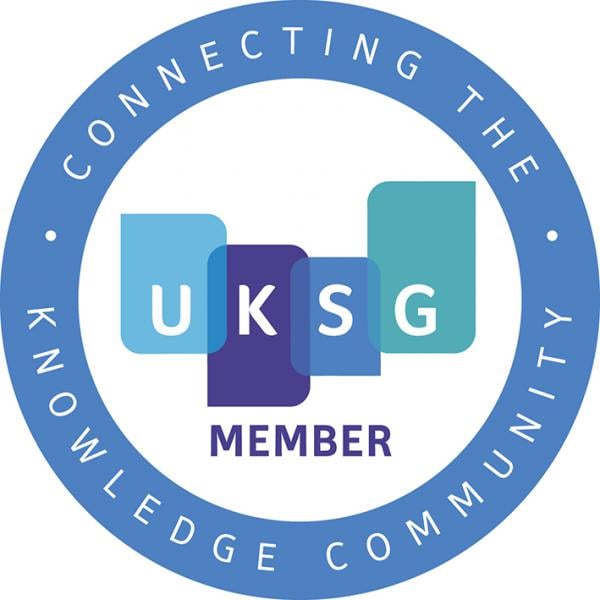
We are proud to announce that MDPI is now a member of UKSG, the UK´s largest scholarly communications community. Through UKSG, different stakeholders share their knowledge and experience in order to improve the knowledge and information environment for researchers. UKSG´s members include universities, publishers, content providers, intermediaries, and other similar organisations. Members participate in discussions and events on issues around scholarly communications.
The UKSG Annual Conference and Exhibition is a flagship initiative from the UKSG and one of the most stimulating events in the scholarly communications calendar. It is held annually and attracts a large number of delegates. More information is available at https://www.uksg.org/events/annualconference
MDPI is delighted to be a part of this active community and we look forward to making our own contribution. We will continue to support organisations and initiatives that boost collaboration and vision within scholarly communication.
More information about UKSG can be found at https://www.uksg.org/. The full membership list is available at: https://www.uksg.org/members.
1 February 2018
MDPI Signed the San Francisco Declaration on Research Assessment (DORA)

The DORA initiative addresses the need for advanced approaches in the evaluation and measurement of the quality of scientific research outputs. It is a worldwide initiative covering all scholarly disciplines. MDPI proudly joins a list of more than 400 organizations around the world which support DORA’s recommendations for improving the way the quality of research results is evaluated.
More info can be found at http://www.ascb.org/dora/
3 January 2018
Expanding the Coverage in SCIE (Web of Science)
The collection of journals in the Science Citation Index Expanded (SCIE)—the most prestigious part of the Web of Science Core Collection—keeps expanding. Last year, nine MDPI open access journals were added in SCIE; they are due to receive first Journal Impact Factors in June 2018.
|
Journal |
Current Volume |
Scope |
|
Oncology | more | submit article |
||
|
Vol. 8 (2018) | articles |
Animal science; animal welfare | more | submit article |
|
|
Vol. 7 (2018) | articles |
Cell biology; cell structure; cell function and processes; molecular biology and biophysics | more | submit article |
|
|
Pharmacokinetics; pharmacodynamics; biopharmaceutics; molecular biology and biotechnology | more | submit article |
||
|
General and internal medicine; healthcare research and practice | more | submit article |
||
|
Entomology; physiology and ecology of insects; taxonomy of insects | more | submit article |
||
|
Chemistry applied to agronomy; agroecology; food science | more | submit article |
||
|
Vol. 7 (2018) | articles |
Electrical engineering; microelectronics; signal processing | more | submit article |
|
|
Vol. 6 (2018) | articles |
Chemical engineering and processing; biochemistry | more |
29 December 2017
Meet Us at the EGU General Assembly 2018 in Vienna, 8–13 April 2018

We will be attending the General Assembly 2018 of the European Geosciences Union (EGU) (https://egu2018.eu/home.html). The EGU General Assembly 2018 will bring together geoscientists from all over the world to one meeting covering all disciplines of the Earth, planetary and space sciences. It aims to provide a forum where scientists, especially early career researchers, can present their work and discuss their ideas with experts in all fields of geoscience. Representatives of the following open access journals will attend:
Remote Sensing
Geosciences
ISPRS International Journal of Geo-Information
Water
Animals
Atmosphere
Climate
Environments
Forests
Hydrology
International Journal of Environmental Research and Public Health (IJERPH)
Journal of Marine Science and Engineering
Land
Minerals
Resources
Quaternary
Sensors
If you are also attending this conference, please feel free to stop by our booth (Booth #36). Our delegates look forward to meeting you in person to answer any questions you may have. For more information about the conference, please visit: https://egu2018.eu/home.html.
19 December 2017
Announcing the MDPI English Writing Prize
The competition is still open until end of March! Please check out the banner for more details: https://mdpi-res.com/data/english-prize.pdf
15 December 2017
UCL Press Adopts the MDPI Editorial Platform JAMS

We are delighted to announce that UCL Press has adopted MDPI's Journal Article & Management System, JAMS, including production services. JAMS is a modular, integrated editorial platform for academic publishers. It offers flexibility, ease-of-use, and is a fully integrated solution for the end-to-end management of scholarly journals. JAMS is based on the software used to publish MDPI’s portfolio of journals.
Ian Caswell, UCL Press Journals Manager, says he is "excited to see UCL Press and MDPI partner together to implement the JAMS submission system for all UCL Press journals. The system offered a flexible, efficient and straightforward solution for our processes from author submission to ready for publication. I am grateful for the valuable experience and support MDPI have offered and look forward to developing our programme with an effective submission system in place.” Dr Martyn Rittman, MDPI’s Publishing Services Manager, adds, “We are proud to support one of the UK’s premier university presses in their publishing operation. This is an excellent way for us at MDPI to share our experience and knowledge, and benefit the research community beyond our own journals.”
JAMS combines services that are kept separate for many publishers. The entire editorial process, production and invoicing (e.g. for open access article processing charges) are fully integrated into a single platform. This allows for efficient, fast manuscript processing. For further information about JAMS, see https://www.mdpi.com/publishing_services.
23 November 2017
New Participants in the Institutional Open Access Program (IOAP)
We are pleased to welcome new participants to MDPI's Institutional Open Access Program (IOAP), designed to help institutions manage the transition to the Open Access publishing model. Researchers affiliated with participating universites benefit from a 10% discount on the Article Processing Charges (APC) for any paper published in an MDPI journal, while the participating library or university incurs no basic fee for participating in the program.
The IOAP set of free services, provided by MDPI to institutions that sign up, include:- No fee for participants and no obligation to prolong after the initial 12 months. The participants may withdraw from the programme at any time, and we will also keep it free for the library for as long as they continue in the programme.
- Authors affiliated with the university will receive a 10% discount on the APC.
- The institution is granted free access to the MDPI submission system and can receive free alerts of new submissions to our journals.
- By default, authors from the institution will continue to be invoiced directly unless the institution opts for central billing.
- Auto-archiving of papers into the institutions´ repository as long as it supports SWORD 1.3.
More details about the programme and a list of our current participant institutions can be found at: https://www.mdpi.com/about/ioap
Institutions which are interested to participate may do so online at: https://www.mdpi.com/ioap-form
The following North American universities have signed up to the IOAP program recently:
Connecticut College, USA
Emory University, USA
Florida International University, USA
Johns Hopkins University, USA
Mississippi State University, USA
Northeastern University, USA
Rice University, USA
University of Ontario Institute of Technology, Canada
University of Rhode Island, USA
University of Texas Southwestern Medical Center, USA
University of Toronto, Canada
University of Windsor, Canada
University of Wisconsin–Madison, USA
Wellesley College, USA
West Virginia University, USA
Many prestigious institutions from Europe and Asia have joined as well:
Asia Pacific University of Technology & Innovation, Malaysia
Czech Technical University in Prague, Czech Republic
Gdansk University of Technology, Poland
Martin-Luther-Universität Halle-Wittenberg, Germany
National Chung Hsing University, Taiwan
Newcastle University, UK
Northumbria University, UK
Southwest University, China
Technical University of Crete, Greece
University Malaya, Malaysia
University of Antwerp, Belgium
University of Cyprus, Cyprus
University of Manchester, UK
University of Reading, UK
University of Sussex, UK
University of Warwick, UK
West Pomeranian University of Technology Szczecin, Poland
We offer a warm welcome to the new participants!
10 November 2017
Available Journal Awards at MDPI
In order to reward the academic community, especially young researchers, and enhance communication among scientists, MDPI journals regularly offer various awards to researchers in specific fields, for example, Young Investigator Awards, Travel Awards, Best Paper Awards, and Best Poster Awards, etc. The awardees range from PhD students to junior scientists.
Currently, the following 44 awards given by MDPI journals are accepting applications. Please click on the award title below to check whether you are eligible for it and start the application process.
|
Subject |
Journal |
Award |
Intended Awardee |
|
Biology & Life Sciences |
Animals |
PhD students or postdoctoral researchers |
|
|
Antioxidants |
Postdoctoral researchers or PhD students |
||
|
Biology |
PhD or postdoctoral fellows |
||
|
Forests |
Postdocs or PhD students |
||
|
International Journal of Molecular Sciences (IJMS) |
Ground-breaking contribution in the fields of Molecular Biology, and Molecular Pathology |
||
|
Journal of Fungi (JoF) |
Travel Awards 2018 |
PhD graduate students, and postdoctoral fellows |
|
|
Life |
Travel Award 2018 |
PhD students or postdoctoral fellows |
|
|
Metabolites |
PhD students |
||
|
Pharmaceuticals |
PhD students |
||
|
Toxins |
Postdoctoral fellows |
||
|
Viruses |
Viruses 2018 participants |
||
|
Viruses |
Viruses 2018 participants |
||
|
Water |
2018 Young Investigator Award |
Young investigators |
|
|
Chemistry & Materials Science |
Biomimetics
|
Graduate Student or Postdoctoral Trainee / Research Associate |
|
|
Catalysts |
PhD students |
||
|
Chemosensors |
PhD or postdoctoral fellows |
||
|
Entropy |
Young investigators |
||
|
Fibers |
2018 Travel award |
Postdocs or PhD students |
|
|
Magnetochemistry |
Postdocs |
||
|
Materials |
PhD or postdoctoral fellows |
||
|
Metals |
PhD or postdoctoral fellows |
||
|
Minerals |
PhD or postdoctoral fellows |
||
|
Sensors |
Travel Award 2018 |
PhD or postdoctoral fellows |
|
|
Sensors |
Sensors' reviewers in 2017 |
||
|
Sensors |
Young investigators |
||
|
Technologies |
PhD students |
||
|
Computer Science & Mathematics |
Multimodal Technologies and Interaction (MTI) |
Postdoctoral researchers or PhD students |
|
|
ISPRS International Journal of Geo-Information(IJGI) |
Postdocs |
||
|
Journal of Sensor and Actuator Networks (JSAN) |
Postdoctoral fellows and PhD students |
||
|
Journal of Imaging |
Postdoctoral fellows and PhD students |
||
|
Engineering |
Actuators |
PhD or postdoctoral fellows |
|
|
Remote Sensing |
Authors |
||
|
Machines |
PhD or postdoctoral fellows |
||
|
Micromachines |
PhD or postdoctoral fellows |
||
|
Fluids |
Postdoctoral fellows and PhD students |
||
|
ChemEngineering |
Postdoctoral researchers and PhD students |
||
|
Environmental & Earth Sciences |
Diversity |
Travel Awards 2018 |
Postdoctoral fellows |
|
International Journal of Environmental Research and Public Health (IJERPH) |
Authors who submit from 1 Nov 2017 to 31 Oct 2018 |
||
|
Resources |
Postdocs or PhD students |
||
|
Geosciences |
Postdoctoral fellows and PhD students |
||
|
Physical Sciences & Astronomy |
Galaxies |
Ph.D. students, postdoctoral fellows, or lecturers in cosmology or galaxies physics |
|
|
Applied Science |
Postdocs |
||
|
Medicine & Pharmacology; Public Health & Healthcare |
Journal of Clinical Medicine (JCM) |
PhD or postdoctoral fellows |
|
|
Medicines |
Postdocs |
7 November 2017
MDPI has signed the Jussieu Call for Open Science and Bibliodiversity
The Jussieu Call aims to develop and implement alternative models to meet the aims of open science while promoting bibliodiversity. In particular it wishes to promote new business models for funding open access publication. It was drafted on the Jussieu campus in Paris by a group of French researchers and scientific publishing professionals.
MDPI supports scholarly communities and initiatives that innovate and further promote Open Access publishing. There is a need to explore different frameworks to fund open access in ways that ensure that excessive funds are not diverted from research towards publishing. Many fair funding models already exist, and they can be further developed and extended. These include institutional support, library contributions or subsidies, premium services, participatory funding, etc. For this reason, MDPI has signed up to the Jussieu call and welcomes its aims.
More information can be found at http://jussieucall.org/ (archived here)
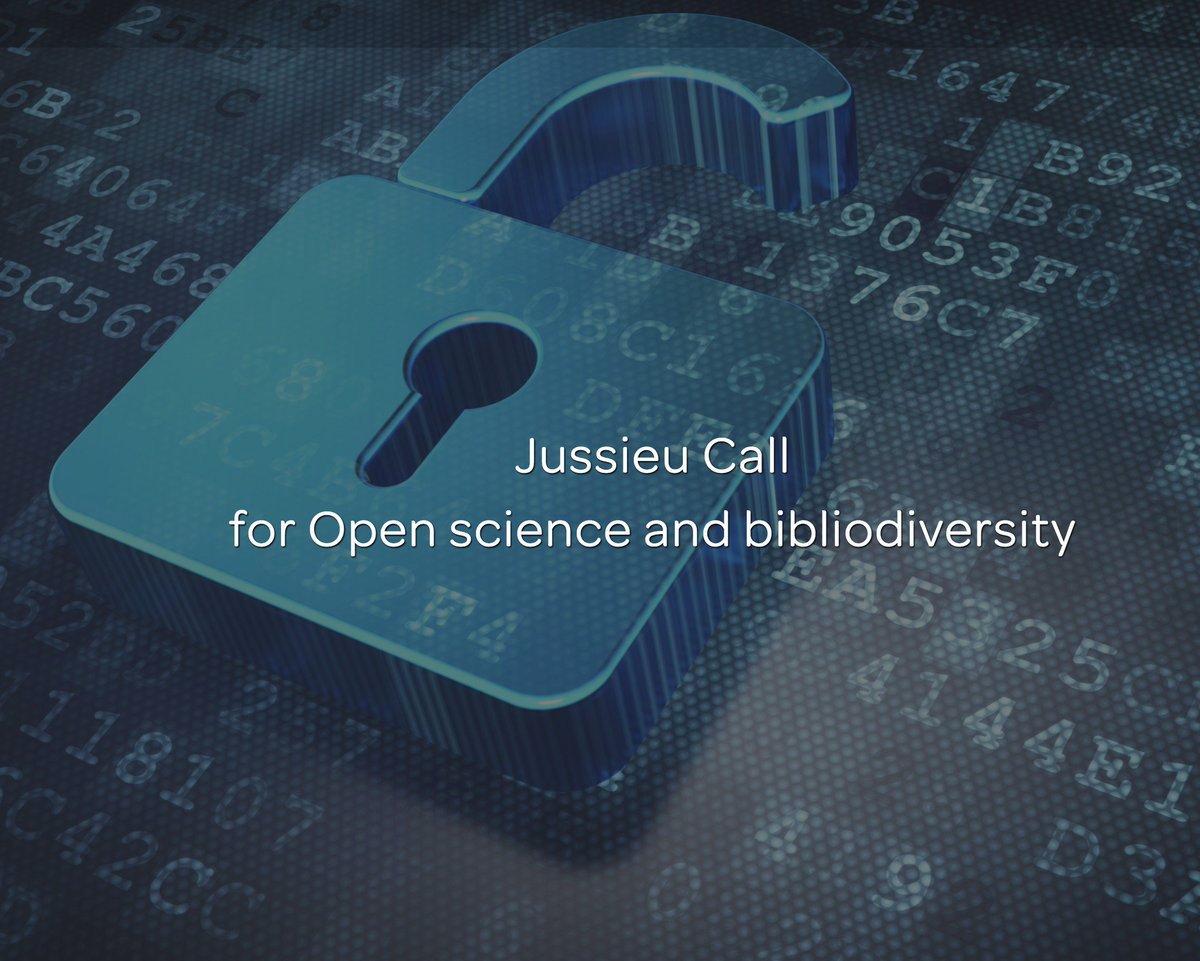
18 October 2017
Journal of Clinical Medicine, Agronomy and Animals added to SCIE in Web of Science
We are pleased to announce that the Journal of Clinical Medicine (JCM) as well as Agronomy and Animals have been accepted into the Science Citation Index Expanded (SCIE) in the Web of Science Core Collection (Clarivate Analytics). Coverage for the newly added titles starts from first issues in 2015. Agronomy, Animals and JCM are now eligible to be included in next year's Journal Citation Reports (JCR); they are due to receive first Journal Impact Factors in 2018.
6 October 2017
Dr. Franck Vazquez, MDPI CEO, Interviewed by Scholarly Kitchen
The Society for Scholarly Publishing’s popular blog about topics in academic publishing, Scholarly Kitchen, recently interviewed MDPI’s CEO, Dr. Franck Vazquez. He shared some thoughts and information on the past and future of MDPI and open access publishing in general:
“In the long run, we aim to anchor MDPI in research communities. We recently developed and launched the preprint platform Preprints, revamped our free-to-use conference hosting platform Sciforum, and are working on other projects, such as Scilit, our bibliographic database.”
Read the full interview here.
20 September 2017
Special Issue Animal Sheltering Receiving Sponsorship from Three Non-Profit Organizations
Animal Sheltering is devoted to new research aimed at reducing the number of dogs and cats euthanized in shelters and municipal animal control facilities. Prof. Jacquie Rand from The University of Queensland is the academic editor of this Special Issue. Please note that the deadline for submissions is 15 December 2017. You are welcome to submit papers at the following link.
https://www.mdpi.com/journal/animals/special_issues/Animal_Sheltering
19 September 2017
A Warm Welcome to the New IOAP Participants
We are delighted to have welcomed 24 new participants to our Institutional Open Access Programme (IOAP) since the beginning of September this year. These are University libraries and Research Institutions located around the world; from the USA and Canada to the UK, and from Norway and Spain to Greece. Well respected Universities, such as the University of Denver, the University of Colorado Boulder, and the University of Arizona in the US, have signed up, while their researchers can now benefit from a 10% discount on the Article Processing Charges (APC) for any papers they publish in MDPI journals, at no cost for the library or the University.
We are more than happy to see the Open Access movement growing stronger and wider every day and we appreciate the vital role which librarians, repository managers, and other scholarly communications professionals play in the field. Our communication with and service to this community is, therefore, one of our principal priorities. The IOAP is our way to support academic and scientific Institutions as well as their scholars in managing, administrating, and publishing research in an Open Access world.
The IOAP set of free services, provided by MDPI to institutions that sign up, include:
- No fee for participants and no obligation to prolong after the initial 12 months. The participants may withdraw from the programme at any time, and we will also keep it free for the library for as long as they continue in the programme.
- Authors affiliated with the university will receive a discount on the article processing charge (APC).
- The institution is granted free access to the MDPI submission system and can receive free alerts of new submissions to our journals.
- By default, authors from the institution will continue to be invoiced directly unless the institution opts for central billing.
- Auto-archiving of papers into the institutions´ repository as long as it supports SWORD 1.3.
More details about the programme and a list of our current participant institutions can be found at: https://www.mdpi.com/about/ioap
Institutions which are interested to participate may do so online at: https://www.mdpi.com/ioap-form
The full list of the Institutions that signed up in September is as follows:
- University of Denver, USA
- University of Colorado Boulder, USA
- University of Arizona, USA
- Institute of Metrology of Bosnia and Herzegovina, Bosnia and Herzegovina
- Middlebury College, USA
- Touro College, USA
- University of New Orleans, USA
- University of Leicester, UK
- Indiana University-Purdue University Indianapolis, USA
- University of Strathclyde, UK
- Cranfield University, UK
- Hope College, USA
- Oregon State University, USA
- Drew University, USA
- Swansea University, UK
- University of South Florida, USA
- University of Georgia, USA
- Arizona State University, USA
- University of Southern Mississippi, USA
- Université du Québec à Chicoutimi, Canada
- Grinnell College, USA
- Norwegian University of Science and Technology, Norway
- University of Patras, Greece
- Public University of Navarre, Spain
23 June 2017
Congratulations for Publishing the 100,000th Peer-Reviewed Article
Congratulations to the authors Javier Monroy and Javier Gonzalez-Jimenez from Universidad de Malaga, Spain, Victor Hernandez-Bennets, Han Fan and Achim Lilienthal from Örebro University, Sweden for publishing the 100,000th peer-reviewed article.
The article is published in the Chemical Sensors section of Sensors.
GADEN: A 3D Gas Dispersion Simulator for Mobile Robot Olfaction in Realistic Environments
Evermore pressing environmental concerns have led global actors and decision-makers to search for stricter emission monitoring approaches. As part of novel monitoring systems, robots with gas and environmental sensors are a promising solution. However, validation of such robotic inspectors is expensive, time consuming, and plagued by repeatability issues. In this article, we present GADEN (the short form for Gas Dispersion Simulator for Mobile Robot Olfaction in Realistic Environments), which combines gas dispersion and robotics simulation in a common framework. Developed under the widely used Robot Operating System (ROS), GADEN enables validation of sensing strategies with gas dispersion being simulated using computational fluid dynamics and filament dispersion theory. GADEN allows simulating complex, realistic, 3D environments for reproducible testing of robotic gas sensing algorithms. Through qualitative and quantitative evaluations, we show that GADEN is a versatile and user-friendly evaluation tool and emphasize its enormous potential for the mobile robot olfaction community.
Read the full article here: https://www.mdpi.com/1424-8220/17/7/1479/htm
6 June 2017
CiteScore™ Metrics Released for Scopus Journals
The CiteScore, the new citation metric for journals covered in the Scopus® database, was released on 1 June 2017, reflecting the citation activity in 2016 for articles published during the three previous years. Please note that the list below does not contain all MDPI journals covered in Scopus. For the CiteScore to serve as a reliable metric at least three volumes of articles need to be indexed in Scopus; journals which have not met this criterion have been omitted here.
Ten MDPI journals received a CiteScore which is in the Top 10% of scores in at least one of the categories, while a further 21 journals exhibit scores that are in the first quartile of the respective categories.
CiteScore Data for MDPI Journals
| Journal | Rank | Category | Link | CiteScore 2016 | 2015 |
2014 |
| Algorithms | 44/112 (Q2) 49/111 (Q2) 19/42 (Q2) 52/113 (Q2) |
• Numerical Analysis • Computational Mathematics • Computational Theory and Mathematics • Theoretical Computer Science |
Link | 1.15 | 1.07 | 1.06 |
| Animals | 69/343 (Q1) 21/146 (Q1) |
• Animal Science and Zoology • General Veterinary |
Link | 1.46 | 1.66 | 0.74 |
| Biology | 13/92 (Q1) 34/81 (Q1) 10/75 (Q1) |
• General Agricultural and Biological Sciences • General Biochemistry, Gene- tics and Molecular Biology • General Immunology and Microbiology |
Link | 3.02 | 2.78 | 1.74 |
| Biomolecules | 234/382 (Q3) 260/353 (Q3) |
• Biochemistry • Molecular Biology |
Link | 1.67 | 3.08 | 1.00 |
| Biosensors | 36/118 (Q2) 209/2156 (Q1) |
• Clinical Biochemistry • General Medicine |
Link | 2.83 | 2.37 | 2.04 |
| Cancers | 29/196 (Q1) 27/321 (Q1) |
• Cancer Research • Oncology |
Link | 5.02 | 4.07 | 2.31 |
| Catalysts | 18/44 (Q2) 27/144 (Q1) |
• Catalysis • Physical and Theoretical Chemistry |
Link | 3.44 | 3.45 | 2.17 |
| Crystals | 70/270 (Q2) 25/64 (Q2) 118/398 (Q2) 131/424 (Q2) |
• General Chemical Engineering • Inorganic Chemistry • Condensed Matter Physics • General Materials Science |
Link | 1.89 | 1.47 | 1.03 |
| Diversity | 10/41 (Q1) 9/25 (Q2) 76/291 (Q2) 24/109 (Q1) |
• Agricultural and Biological Sciences (miscellaneous) • Ecological Modelling • Ecology • Nature and Landscape Conservation |
Link | 2.03 | 1.96 | 1.82 |
| Energies | - | - | Link | 2.50 | 2.87 | 2.66 |
| Entropy | 51/198 (Q2) | • General Physics and Astronomy | Link | 1.87 | 1.99 | 1.69 |
| Forests | 17/127 (Q1) | • Forestry | Link | 2.06 | 1.76 | 1.84 |
| Games | 204/398 (Q3) 83/181 (Q2) 48/105 (Q2) |
• Applied Mathematics • Statistics and Probability • Statistics, Probability and Uncertainty |
Link | 0.87 | 0.57 | 0.64 |
| Genes | 62/300 (Q1) 18/90 (Q1) |
• Genetics • Genetics (clinical) |
Link | 3.62 | 3.18 | 1.33 |
| Geosciences | 36/169 (Q1) |
• General Earth and Planetary Sciences | Link | 1.67 | 1.29 | 1.13 |
| Information | 156/237 (Q3) | • Information Systems | Link | 0.78 | 0.94 | 0.74 |
| Insects | 28/131 (Q1) | • Insect Science | Link | 1.81 | 1.38 | 1.23 |
| International Journal of Environmental Research and Public Health (IJERPH) | 67/446 (Q1) 31/102 (Q2) |
• Public Health, Environmental and Occupational Health • Health, Toxicology and Mutagenesis |
Link | 2.38 | 2.42 | 2.47 |
| International Journal of Molecular Sciences (IJMS) | 23/157 (Q1) 8/64 (Q1) 90/353 (Q1) 22/144 (Q1) 16/44 (Q1) 8/62 (Q1) |
• Organic Chemistry • Inorganic Chemistry • Molecular Biology • Physical and Theoretical Chemistry • Catalysis • Spectroscopy |
Link | 3.73 | 3.37 | 3.06 |
| ISPRS International Journal of Geo-Information | 12/29 (Q2) 28/79 (Q2) 96/587 (Q1) |
• Computers in Earth Sciences • Earth and Planetary Sciences (miscellaneous) • Geography, Planning and Development |
Link | 1.62 | 1.52 | - |
| Journal of Low Power Electronic Applications (JLPEA) | 301/645 (Q2) | • Electrical and Electronic Engineering | Link | 0.98 | 0.83 | 0.83 |
| Life | 65/525 (Q1) 36/186 (Q1) 5/92 (Q1) 20/80 (Q2) |
• Ecology, Evolution, Behavior and Systematics • General Biochemistry, Gene- tics and Molecular Biology • Palaeontology • Space and Planetary Science |
Link | 2.95 | 1.68 | 1.20 |
| Marine Drugs | 18/145 (Q1) | • Drug Discovery | Link | 3.83 | 3.66 | 3.59 |
| Materials | 63/424 (Q1) | • General Materials Science | Link | 3.26 | 3.11 | 2.69 |
| Membranes | 103/424 (Q1) | • Materials Science | Link | 2.19 | 2.95 | 2.42 |
| Micromachines | 173/645 (Q2) 69/211 (Q2) 113/526 (Q1) |
• Electrical and Electronic Engineering • Control and Systems Engineering • Mechanical Engineering |
Link | 1.83 | 1.78 | 2.10 |
| Minerals | 45/206 (Q1) 29/167 (Q1) |
• Geology • Geotechnical Engineering and Engineering Geology |
Link | 2.13 | 1.77 | - |
| Molecules | 32/157 (Q1) | • Organic Chemistry | Link | 3.09 | 2.65 | 2.62 |
| Nutrients | 12/247 (Q1) | • Food Science | Link | 4.29 | 4.07 | 3.78 |
| Pharmaceuticals | 8/168 (Q1) 21/158 (Q1) |
• Pharmaceutical Science • Molecular Medicine |
Link | 4.90 | 3.64 | 1.92 |
| Pharmaceutics | 19/168 (Q1) | • Pharmaceutical Science | Link | 3.83 | 2.68 | 2.46 |
| Polymers | 13/138 (Q1) 44/354 (Q1) |
• Polymers and Plastics • General Chemistry |
Link | 3.74 | 3.37 | 4.10 |
| Remote Sensing | 13/169 (Q1) | • General Earth and Planetary Sciences | Link | 3.56 | 3.76 | 3.23 |
| Sensors | 25/96 (Q2) 25/159 (Q1) 124/382 (Q2) 103/645 (Q1) |
• Analytical Chemistry • Atomic and Molecular Physics, and Optics • Biochemistry • Electrical and Electronic Engineering |
Link | 2.78 | 2.21 | 2.40 |
| Sustainability | 49/129 (Q2) 68/587 (Q1) 56/236 (Q1) |
• Renewable Energy, Sustai-nability and the Environment • Geography, Planning and Development • Management, Monitoring, Policy and Law |
Link | 1.96 | 1.78 | 1.52 |
| Symmetry | 17/42 (Q2) 49/111 (Q2) |
• Numerical Analysis • Computational Mathematics |
Link | 1.12 | 0.95 | 1.02 |
| Toxins | 16/102 (Q1) 16/108 (Q1) |
• Health, Toxicology and Mutagenesis • Toxicology |
Link | 3.34 | 3.76 | 2.85 |
| Vaccines | 146/184 (Q4) 151/250 (Q3) 93/145 (Q3) 186/299 (Q3) 130/232 (Q3) |
• Immunology • Infectious Diseases • Drug Discovery • Pharmacology • Pharmacology (medical) |
Link | 1.23 | 3.76 | 2.85 |
| Viruses | 15/68 (Q1) 34/250 (Q1) |
• Virology • Infectious Diseases |
Link | 3.60 | 3.74 | 3.80 |
| Water | 33/184 (Q1) 48/195 (Q1) 62/587 (Q1) 198/382 (Q3) |
• Water Science and Technology • Aquatic Science • Geography, Planning and Development • Biochemistry |
Link | 2.05 | 1.96 | 1.45 |
17 May 2017
Three New Institutional Memberships Established
We are pleased to announce that the Goethe University of Frankfurt, the Technical University of Hamburg (TU Hamburg-Harburg), as well as the Humboldt University of Berlin, in Germany, have joined MDPI's institutional membership program: Primary authors from these instititions will benefit from a 10% discount on the article processing charges.
Additional details can be found on our institutional membership page.
4 May 2017
MDPI Supports the Initiative for Open Citations (I4OC)
As an open access publisher, we are keen to support openness and transparency in the research process. Citation data is very important for assessing the value of individual papers and the contribution of researchers. As such, we support the recently launched Initiative for Open Citations (I4OC). The initiative recognizes that citations should be freely available and machine-readable. By doing so, authors gain the maximum benefit from having their work cited.
MDPI now uploads citation data with metadata uploaded to Crossref when registering digital object identifiers (DOIs) for published papers. We are delighted to take this step to support a truly open research environment.
2 May 2017
Publons Peer Review Academy Goes Live
Getting high quality review reports is critical for any journal’s editorial process. At MDPI we have put in place several measures to motivate reviewers and reward them for their work. We are proud of the quality of reviewer reports we receive and grateful for the hours put in by active researchers from across the globe.
Reviewers of MDPI’s largest journals can get recognition via Publons, a website dedicated to rewarding peer reviewers. They have now taken this one step further and launched the Publons Reviewer Academy to help train reviewers to provide useful feedback. Through the academy, researchers can be trained and tutored in various aspects of how to provide structured feedback that will be of genuine help to editors and authors. We support this initiative and recommend it to potential MDPI reviewers, especially early career researchers. See the Publons announcement for further information.
More information on reviewing for MDPI, including how to volunteer as a reviewer, can be found here.
24 April 2017
Two New Institutional Memberships Established
We are pleased to announce that the following universities have joined MDPI's institutional membership program: Trinity University, San Antonio, Texas, USA and the University of New South Wales (UNSW), Sydney, Australia. Primary authors from these instititions will benefit from a 10% discount on the article processing charges.
Additional details can be found on our institutional membership page.
30 March 2017
Credit for Preprints Comments via Publons
Preprints.org is a platform run by MDPI that allows authors to make early versions of manuscripts available before peer review has been completed.
One of the major benefits of putting a preprint online is to get feedback before journal submission. Until now, however, the feedback has been on a voluntary basis. Preprints is delighted to be the first preprint server to collaborate with Publons to acknowledge substantial comments as reviews and give commentators the opportunity to receive credit for their efforts.
When you add a comment to any article, there is a check box to click for it to appear on Publons. If you have already linked your account it will be passed on automatically. If you don't already have a Publons account, you will be contacted soon afterwards with instructions on how to create one.
We appreciate the enthusiasm and cooperation of Publons in this project and expect it to be of great benefit to authors and commenters alike.
20 March 2017
MDPI 2016 Annual Report Released
We are pleased to announce that our annual report for the year 2016 has now been published.
It contains information regarding company and journal performance, conferences and other publishing services that we provided throughout 2016.
To read the report in full or download a copy, please click here.
15 March 2017
Our 100,000th Article Could be Yours!
After the 20th anniversary of MDPI in 2016, we will reach another milestone this year and will publish the 100,000th peer-reviewed article in one of our 170+ open access journals.
We would like you to be part of this great achievement and so are offering to publish the 100,000th accepted paper free of charge.
To be in with a chance, select a journal in one of our 10 scientific subject areas and submit your paper.
Access the live tracker on published articles here.
![]()
3 March 2017
1000 Preprints Online
We are delighted that Preprints now has 1000 papers online since its launch on 3 May 2016.
For more information, see the editorial here.
9 February 2017
Minister and State Secretaries Visit MDPI Office at STP, Belgrade, Serbia
Earlier this week the Science Technology Park in Belgrade, Serbia was visited by Swiss Secretary of State Dr. Mauro Dell’Ambrogio, as well as Serbian Minister of Public Administration and Local Self-Government Ana Brnabic, State Secretary Dr. Vladimir Popovic and Mayor of Belgrade Mr. Siniša Mali.
During the visit to the STP they had a short presentation from MDPI’s CEO Dr. Franck Vazquez and IT Manager Mr. Miloš Čučulović, and further discussed important issues such as Open Access and Open education. Dr. Dell'Ambrogio said he was impressed with the potential for development and ideas for business.
For more information please see:
http://bit.ly/2kpIu7k and http://bit.ly/2kpUQfz
7 February 2017
The 6th World Sustainability Forum: Final Press Release
Basel, 29 January 2017
The 6th World Sustainability Forum #WSF2017SA: African universities critical to achieving the Sustainable Development Goals
Jeffrey and Sonia Sachs win first World Sustainability Award.
Universities need to take the lead in solving the greatest challenges the world faces today, particularly in Africa. They need to do this not only through education – teaching the next generation to think critically and creatively to find sustainable solutions – but also through research that cuts across a range of disciplines. To ensure these solutions are implemented, they need to partner with the private sector and with government.
This was the key message from the 6th World Sustainability Forum (WSF2017), which took place in Cape Town on 27 and 28 January 2017. Sponsored by MDPI and the journal Sustainability under the patronage of the Universities of the Western Cape (UWC), Cape Town (UCT), University of Basel and the National Research Foundation (NRF) of South Africa, the conference was attended by key national and international speakers, including world-leading economist Professor Jeffrey D. Sachs, senior United Nations (UN) advisor and director of the Earth Institute at Columbia University.
The WSF is an annual sustainability conference which addresses research in a range of areas related to sustainable development and sustainability globally. This was the first WSF to take place on the African continent. Discussions at the 2017 conference were driven by the 17 sustainable development goals (SDGs) adopted as part of the 2030 Agenda for Sustainable Development by the UN in September 2015.
Achieving the SDGs “is the moonshot for our generation,” said Sachs. “Like the moonshot [moon landing] of the 1960s, these are tough, bold and achievable objectives.”
“This is a nasty, tough world we live in, and our world agrees on very little. So when 193 governments agree on something, that is important. And when they agree on something as important as sustainable development, that is really something for us to grab hold of – that is a lifeline.”
There was agreement at the WSF that the SDGs are particularly important for Africa, and that African universities in particular have a role to play in achieving them.
Said Professor Tyrone Pretorius, vice-chancellor of UWC: “The quest for sustainable development can only be met through education. Universities today are the oil that fuels the knowledge economy.”
As part of the drive to develop academic capacity to provide the knowledge needed to meet the SDGs, WSF2017 was preceded by the 1st Postgraduate Forum on Sustainability. “A series of workshops for postgraduate education linked to WSF are important, in order to equip postgraduates with the skills necessary to promote sustainability,” said Professor Thandi Mgwebi, director for research at UWC. A second postgraduate forum will take place alongside the WSF2018 in Beijing.
This capacity development is particularly critical to Africa. Said Sachs: “African universities need to do research to find solutions to Africa’s development challenges, because no other university will.”
The UN set a target of achieving the SDGs by 2030: “I regard this as the breakthrough period to end extreme poverty on the continent,” said Sachs, “and for Africa to become one of the most dynamic centres of the world economy.”
It is a critical time for South African universities, said Professor Mamokgethi Phakeng, deputy vice-chancellor for research and internationalisation at UCT: “Higher education is at a crossroads, and there is much polarisation. We need to think carefully about how this sustainable development agenda is owned by all so that it is inclusionary.”
There was also strong emphasis on public–private partnerships – for universities, business and government to work together to achieve the goals.
Said Professor Francis Petersen, deputy vice-chancellor at UCT and vice-chancellor designate at the University of the Free State: “Business sustainability has become critical, because there is increasing demand and complexity of demand on business from the natural, social and economic environment. Sustainability cannot be a standalone issue, divorced from business as usual. Sustainability needs to be embedded into business.”
Environmental crises and climate change was also high on the WSF agenda. In his keynote address, Sachs noted the irreversibility of the climate- and environmental-related challenges.
“If we don’t get our act together, we lose the chance of safety,” he said.
Said Professor Mark New, pro vice-chancellor and director of the African Climate and Development Initiative at UCT: “We have a fundamental challenge in responding to climate change, and we must go further than just putting a plaster on a wound. We need to address the deep structural issues, to move from our current model of development into climate-compatible development.”
“This requires researchers to find the evidence for the correct development pathways to take, and then support the ability of policymakers at all levels to enable the shift to climate-compatible development planning.”
Said Dr. Aldo Stroebel, executive director of international relations and cooperation at the NRF, in closing: “We have seen over the past two days an urgency towards the next step of thinking, that critical type of framework that we all must engage with, not only from an academic perspective, but further up into the policy environment and into rural-based environments where one can clearly see the links and effectiveness of the work.”
World Sustainability Awards
The first World Sustainability Award and the first Emerging Sustainability Leader Awards were presented by Prof. Thandi Mgwebi, Director of Research at UWC, and Dr. Franck Vazquez, CEO of MDPI, during the ceremony on 27 January 2017 as part of the gala dinner of the 6th World Sustainability Forum in South Africa.after day one of proceedings of the 2017 World Sustainability Forum South Africa.
Professor Jeffrey D. Sachs and Dr. Sonia Ehrlich Sachs are the joint recipients of the first World Sustainability Award. Jeffrey Sachs is a world-renowned economist and senior United Nations (UN) advisor and director of the Earth Institute at Columbia University. Sonia Sachs is a paediatrician and public health specialist, and director of the Health Centre at the Centre for Sustainable Development, also at Columbia University.
The joint recipients of the first Emerging Sustainability Leader Award are Dr. Esther Ngumbi and Dr. Xiaosong Hu. Esther Ngumbi is a postdoctoral researcher at Auburn University in Alabama USA and serves as a 2015 Clinton Global University Mentor for agriculture. Xiaosong Hu is a professor at the Chongqing University in China and specialises in automotive control systems and mechanical engineering.
The World Sustainability Award and the Emerging Sustainability Leader Awards are funded to encourage new initiatives and developments in sustainability with the ultimate aim of fostering the transition to sustainable practices and societies.
The World Sustainability Award is funded by the MDPI Sustainability Foundation, and included a monetary prize of USD 100,000 to Jeffrey and Sonia Sachs. The Emerging Sustainability Leader Award is funded by the journal Sustainability, awarded to researchers under 40, and included a monetary prize of USD10,000.
Issued jointly by: UCT Global Strategy and Visibility, Research Office, UWC Communications & Media and MDPI AG
Conference photos are free available at: https://sciforum.net/conference/wsf-6/page/175 Photo credit: Matthias Burkhalter
|
Carla Bernardo |
Luthando Tyhalibongo |
Matthias Burkhalter |
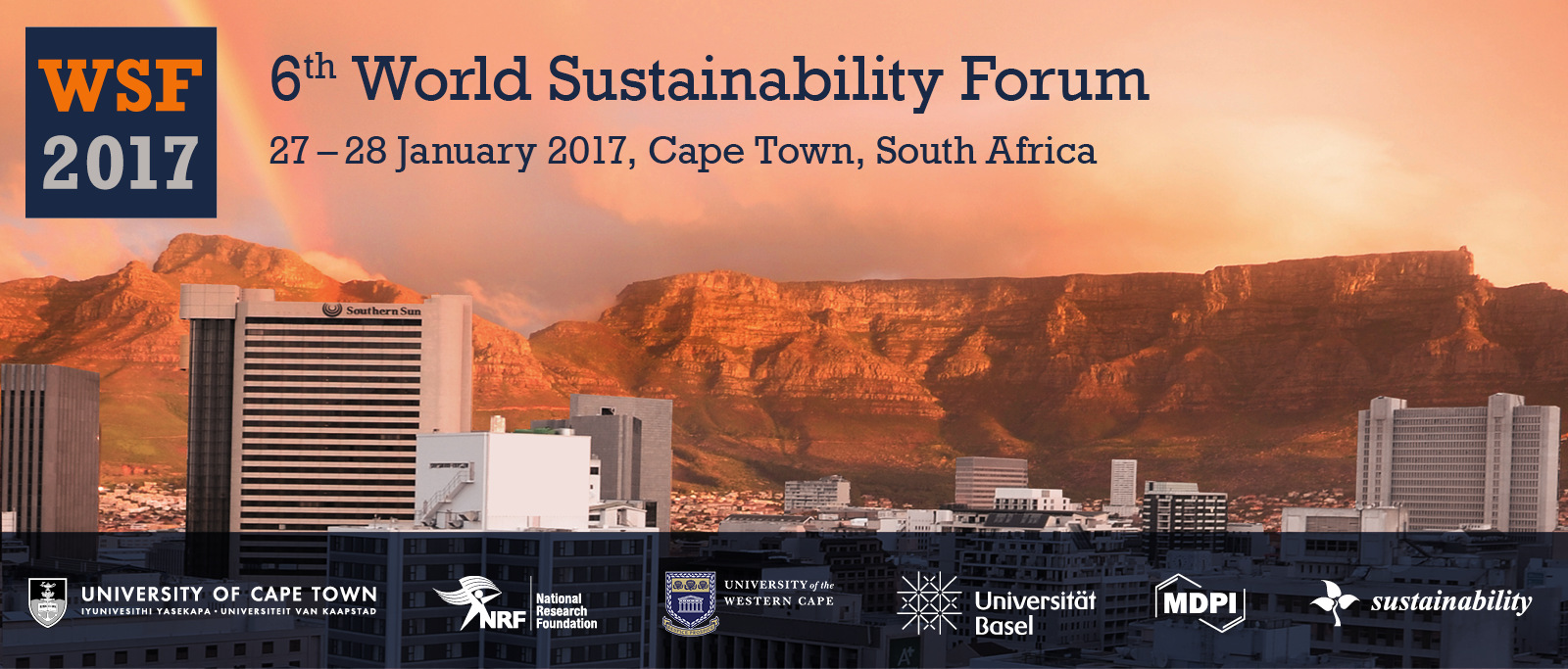
31 January 2017
Three New Institutional Memberships Established
We are pleased to announce that the Chalmers University of Technology, Sweden, the University of Manitoba, Canada and the Technical University of Cartagena, Spain, have joined MDPI's institutional membership program: Primary authors from these institutions will benefit from a 10% discount on the article processing charges.
Additional details can be found on our institutional membership page.
27 January 2017
6th World Sustainability Forum under way in South Africa
The 6th World Sustainability Forum is currently being held at the Cape Sun Hotel until 28 January 2017.
The Forum will showcase the work of internationally renowned researchers and include more than 150 presentations. During the conference dinner, the World Sustainability Award, associated with a US$ 100,000 prize, will be announced, as well as the Emerging Sustainability Leader Award, associated with a US$ 10,000 prize. The prizes are sponsored by the MDPI Sustainability Foundation and Sustainability, an academic open access journal by MDPI.
Here are some pictures from the forum so far:
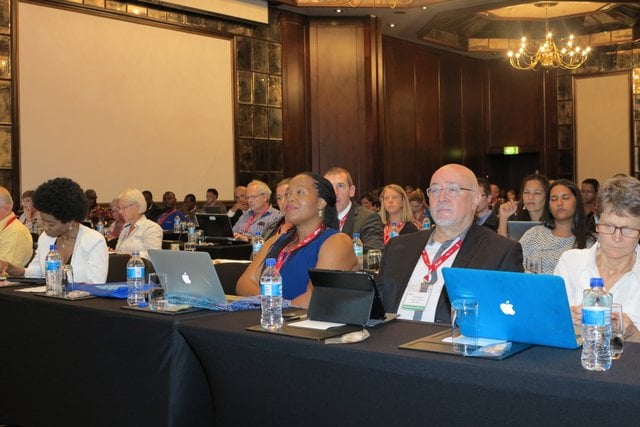
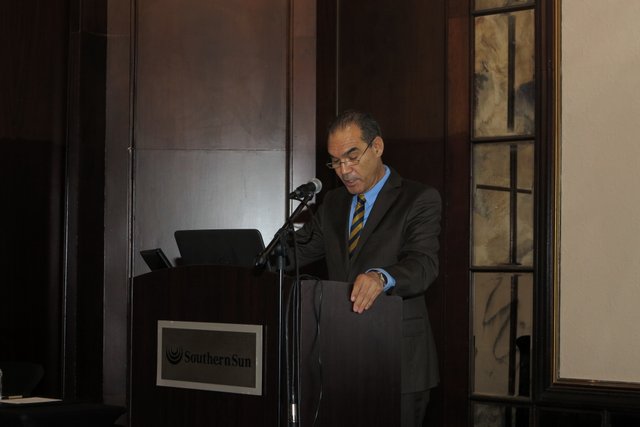
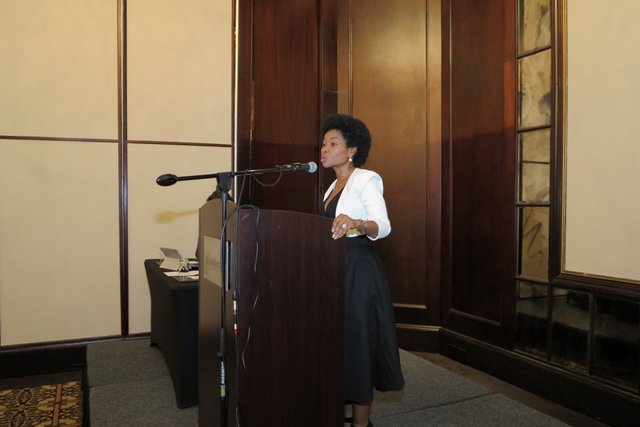
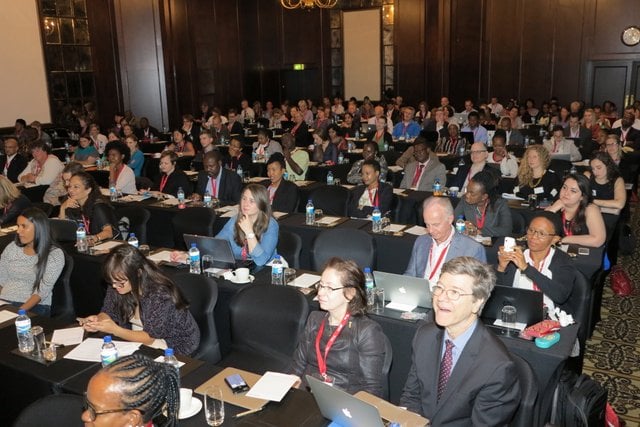
To see the full WSF2017 program and schedule, please see here: https://sciforum.net/conference/wsf-6/page/schedule
19 January 2017
Cape Town to Host the 6th World Sustainability Forum
Cape Town will host the 6th World Sustainability Forum at the Cape Sun Hotel on 27 and 28 January 2017. This prominent event, held for the first time in Africa, will include many illustrious South African and international experts, such as Her Excellency Graça Machel (Sustainable Development Advocate for the United Nations, Mozambique), Joyene Isaacs (HoD Agriculture Western Cape Government), Jeffrey Sachs (Columbia University, USA), Max Bergman (SRaM, University of Basel), Mark New (Pro Vice-Chancellor, University of Cape Town), Frans Swanepoel (FutureAfrica, University of Pretoria) and Francis Petersen (Vice-Chancellor-designate, University of the Free State). The Forum will provide a stage for national and international debates on sustainability in South Africa, the African continent, and about international perspectives on sustainability. It brings together researchers and representatives from government and the business sector to discuss a wide-ranging set of issues associated with sustainability, including food security, water and energy scarcity, mining, poverty reduction, climate change, and urbanisation.
The next few decades will be marked by profound changes in the relationships between global economics, national societies, and the environment. We have entered what some call the Anthropocene, an age in which human activity dominates the climate and the environment. These changes will have numerous consequences on societies around the globe. South Africa and Africa will play a central role, for better or worse, in creating opportunities and risks during these changing times as Africa is profoundly influencing and being influenced by global developments.
The adoption of the 17 United Nations Sustainable Development Goals and the 2030 Agenda for Sustainable Development in September 2015 was accompanied by what insiders considered an optimism they have not experienced in relation to UN resolutions before. The relative efficiency in the drafting, the lack of trenches between East and West, or between North and South, and the unanimity of support of the 193 countries speak volumes. In stark contrast, sustainability seems to go against a changing economic and political tide, where waves of nationalism and protectionism from some of the most powerful countries risk the wellbeing of the rest of the world. The 6th World Sustainability Forum will enable fruitful exchanges, which sensitise South African and international communities to the global urgency and specifics of sustainability.
The Forum will showcase the work of internationally renowned researchers and include more than 150 presentations. During the conference dinner, the World Sustainability Award, associated with a US$ 100 000 prize, will be announced, as well as the Emerging Sustainability Leader Award, associated with a US$ 10 000 prize. The prizes are sponsored by the MDPI Sustainability Foundation and Sustainability, an academic open access journal by MDPI. The World Sustainability Forum is preceded by the Postgraduate Forum on Sustainability, which will introduce more than 100 young scholars from South Africa and the African continent to sustainability research. Both events are organized and sponsored by the University of Cape Town, the University of the Western Cape, the University of Basel, MDPI, and by the National Research Foundation of South Africa.
Contacts:
Scientific Matters: Prof Manfred Max Bergman, Social Research and Methodology Group (SRaM), University of Basel, Switzerland; Email: [email protected]
Press Accreditation and General Enquiries: Mr Matthias Burkhalter, MDPI AG, Basel, Switzerland; Email: [email protected]; Tel. +41 61 683 77 34
Follow us on Twitter
#WSF2017SA
6 January 2017
MDPI Supports the OA2020 Initiative
MDPI is now a proud supporter of the OA2020 Initiative.
Open Access 2020 is an international initiative that aims to induce the swift, smooth and scholarly-oriented transformation of today’s scholarly journals from subscription to open access publishing.
MDPI is participating in the upcoming Berlin13 conference in March 2017, where we are contributing to the initiative by aiding in the design of the roadmap which will make OA the default publishing model.
For more information please see here.
5 January 2017
Three New Institutional Memberships Established
We are pleased to announce that the University of Texas at Arlington, USA, the Harbin Institute of Technology, China and TU Darmstadt, Germany, have joined MDPI's institutional membership program: Primary authors from these institutions will benefit from a 10% discount on the article processing charges.
Additional details can be found on our institutional membership page.
22 December 2016
Two New Institutional Memberships Established
We are pleased to announce that the Otto-von-Guericke-Universität Magdeburg, Germany and the University of California, Berkeley, USA, have joined MDPI's institutional membership program: Primary authors from these instititions will benefit from a 10% discount on the article processing charges.
Additional details can be found on our institutional membership page.
19 December 2016
MDPI and Wellcome Trust Compliance
The Wellcome Trust has, for a number of years, required that the results of its funded projects are published in open access format. Recently it announced criteria that publishers must fulfil for publication fees to be paid by the Trust. MDPI is pleased to have been added to the list of compliant publishers.
Only publishers who have confirmed their compliance by 16 December 2016 will be eligible to receive payment of APCs by the Wellcome Trust as of 1 April 2017. For more information on the criteria and a full list of publishers that meet them, see here.
13 December 2016
Meet MDPI at the 2016 AGU Fall Meeting
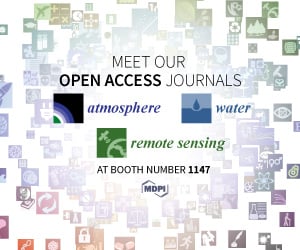 MDPI is currently attending the 2016 AGU Fall Meeting (12–16 December, 2016)
MDPI is currently attending the 2016 AGU Fall Meeting (12–16 December, 2016)
If you are also attending the conference, please feel free to stop by our booth (Booth #1147) and meet the representative editors.
Conference details:
2016 AGU Fall Meeting
12–16 December 2016
Moscone Center
747 Howard St
San Francisco, CA 94103, USA
8 December 2016
Three New Institutional Memberships Established
We are pleased to announce that Purdue University, USA, the Universitat Politécnica de Valencia, Spain and the Queensland University of Technology, Australia, have joined MDPI's institutional membership program: Primary authors from these instititions will benefit from a 10% discount on the article processing charges.
Additional details can be found on our institutional membership page.
16 November 2016
World Sustainability Award - Final Extension
The deadline for the World Sustainability Award has been extended for one last time! You now have one more month to nominate an individual researcher, group or project! The final deadline for nominations will be December 15, 2016.
For full details, please visit here.
11 November 2016
Three New Institutional Memberships Established
We are pleased to announce that the University of Minnesota, USA, the Universidad Politécnica de Madrid, Spain and Shanghai Jiao Tong University, China, have joined MDPI's institutional membership program: Primary authors from these instititions will benefit from a 10% discount on the article processing charges.
Additional details can be found on our institutional membership page.
4 November 2016
MDPI Joins the United Nations Global Compact
MDPI has become a member of the United Nations Global Compact to support corporate sustainability and have committed ourselves to the ten principles associated with the Compact.
Sustainability has always been at the core of MDPI’s values, starting with the collection and preservation of rare chemical samples that started in 1996 and led to the first journal, Molecules. Sustainability has become one of our flagship journals and we have supported and organized several conferences and events based on Sustainability, including the upcoming 6th World Sustainability Forum. As a global enterprise, we see it as our duty to promote responsible practices that will ensure a bright future for our planet. Given this, the choice to join the Global Compact was an easy one and we will do our utmost to fully implement it.
3 November 2016
MDPI Now a Member of SPARC Europe
We are delighted to announce that MDPI has become a member of SPARC Europe, an organization that works for open scholarship in Europe, including support of open access publication.
As one of the few publishers to join SPARC Europe to date, MDPI looks forward to making a contribution that puts open scholarship on a positive and sustainable path. We fully support the goals of open scholarship that allow the largest number of people possible to benefit from work of researchers in all disciplines. We hope that our membership will enable us to work with other stakeholders to find the best possible solution.
2 November 2016
World Sustainability Award Deadline Extension
The deadline for the World Sustainability Award has been extended! You now have until November 15, 2016 to nominate an individual researcher, group or project!
For full details, please visit here.
26 October 2016
Four New Institutional Memberships Established
We are pleased to announce that the Wuppertal Institut, Germany, the University of Girona, Spain and Central South University and Huazhong University of Science and Technology, China, have joined MDPI's institutional membership program: Primary authors from these instititions will benefit from a 10% discount on the article processing charges.
Additional details can be found on our institutional membership page.
24 October 2016
International Open Access Week 2016
Meet us during International Open Access Week 2016! We will be presenting at various locations in Europe and China.
To get involved and for full details see the complete list of events organised by MDPI here.
18 October 2016
Institutional Membership established with Universitat Pompeu Fabra, Spain and Aalto University, Finland
We are pleased to announce that the Universitat Pompeu Fabra, Spain and Aalto University, Finland, have joined MDPI's institutional membership program: Primary authors from these universities will benefit from a 10% discount on the article processing charges.
Additional details can be found on our institutional membership page.
12 October 2016
Institutional Membership Established with Iowa State University and the University of North Texas, USA
We are pleased to announce that the Iowa State University and the University of North Texas, USA, have joined MDPI's institutional membership program: Primary authors from these universities will benefit from a 10% discount on the article processing charges.
Additional details can be found on our institutional membership page.
7 October 2016
MDPI at Open Access Days in Munich, 10-11 October 2016
Meet MDPI during the Open Access Days held from 10-11 October 2016 at Ludwig Maximilian University of Munich, Germany.
The two-day event will feature experts from the open access sector, scientists from all disciplines, publishing representatives and supporters of scientific research and communication from libraries as well as research institutes and funding institutions. Join us!
For more information about the event and to see the program, visit the event webpage.
7 October 2016
Institutional Membership Established with the University of Sevilla and the University of Alicante, Spain
We are pleased to announce that the University of Sevilla and the University of Alicante, Spain have joined MDPI's institutional membership program: Primary authors from these universities will benefit from a 10% discount on the article processing charges.
Additional details can be found on our institutional membership page.
29 September 2016
Institutional Membership Established with the University of Delaware
We are pleased to announce that the University of Delaware, USA, has joined MDPI's institutional membership program: Primary authors from this university will benefit from a 10% discount on the article processing charges.
Additional details can be found on our institutional membership page.
19 September 2016
Peer Review Week 2016
As an open access publisher indebted to the work of our peer reviewers, we are proud to support Peer Review Week 2016. As part of the week's activities and to celebrate this year's theme "Recognition for Review", MDPI will host two webinars that anyone can join.
These webinars will explore the role and value of reviewers and the recognition they receive from a publishers perspective, with examples from MDPI's experience in publishing nearly 80,000 peer reviewed papers, along with evidence from reviewer surveys. It will also touch upon potential changes in how review is carried out and tips for early career researchers who want to be involved in the review process.
Details and links to join can be found below:
Wednesday September 21, 08:00 (CEST)
Friday September 23, 16:00 (CEST)
For more information about all the activites taking place, please visit the Peer Review Week website.
6 September 2016
Institutional Membership established with Kansas State University and Northwestern University, USA
We are pleased to announce that Kansas State University and Northwestern Universty, USE, have joined MDPI's institutional membership program: Primary authors from these universities will benefit from a 10% discount on the article processing charges.
Additional details can be found on our institutional membership page.
5 September 2016
Institutional Membership Established with University College Cork
We are pleased to announce that University College Cork, Ireland, has joined MDPI's institutional membership program: Primary authors from this university will benefit from a 10% discount on the article processing charges.
Additional details can be found on our institutional membership page.
22 August 2016
MDPI New Office Location
We are pleased to announce that MDPI has now moved to a new permanent address:
MDPI AG
St. Alban Anlage 66
CH-4052 Basel
Postfach, CH-4020 Basel
Switzerland
Telephone and fax numbers remain unchanged.
10 August 2016
Institutional Membership established with the University of Texas at Austin, USA, the Wroclaw University of Science and Technology, Poland and the University of Granada and the Compultense University of Madrid, Spain
We are pleased to announce that the following institutions have joined MDPI's institutional membership program in August 2016:
- University of Texas at Austin, USA
- Wroclaw University of Science and Technology, Poland
- University of Granada, Spain
- Compultense University of Madrid, Spain
Authors affiliated with these institutions will benefit from a 10% discount on the article processing charges.
Additional details can be found on our institutional membership page.
18 July 2016
Institutional Membership established with Louisiana State University and Florida State University, USA, Royal College of Surgeons, Ireland, University of Rostock, Germany, AGH University of Science and Technology, Poland and Southeast University, China
We are pleased to announce that the following institutions have joined MDPI's institutional membership program in July 2016:
- Louisiana State University, USA
- Florida State University, USA
- Royal College of Surgeons, Ireland
- University of Rostock, Germany
- AGH University of Science and Technology, Poland
- Southeast University, China
Authors affiliated with these institutions will benefit from a 10% discount on the article processing charges.
Additional details can be found on our institutional membership page.
12 July 2016
MDPI Moving to New Office Location in Basel (Switzerland) in August 2016
As of 20 August 2016, MDPI's new address in Basel will be:
MDPI AG
St. Alban-Anlage 66
CH-4052 Basel
Switzerland
Telephone and fax numbers remain unchanged.
St. Alban-Anlage 66 was built from 1947 to 1948 and initially the home of the "Bühler AG", a book printing business.




For more information about this building, see: https://www.mdpi.com/about/headquarters
21 June 2016
"Behind the Scenes of Academic Publishing—A Publisher's Perspective" - MDPI's Lecture at the University of Basel
From the 15-16 September, 2016, MDPI will run a course on Academic Publishing at the University of Basel.
In this two day workshop, MDPI will look in detail at the role performed by academic journal publishers and how they interact with academics. Ethical dimensions, what happens when problems occur and how the publisher coordinates all aspects of the submission process will also be covered.
For more detailed information about the program, trainers and registration please visit the course webpage.
14 June 2016
2015 Impact Factors Released
We are pleased to report the 2015 Journal Impact Factors in the latest Journal Citation Reports® Science Edition, published by Thomson Reuters in June 2016. Twenty out of 25 journals have seen an increase in their Impact Factor and two journals (Crystals and IJGI) received a first Impact Factor. Coatings was recently added to SCIE and will receive its first Impact Factor in next year’s JCR.
Updated Impact Factors for Journals in the Science Citation Index Expanded (SCIE)
| Journal | 2015 Impact Factor | Details | Category Rank |
| Applied Sciences | 1.726 | Link | 83/163 (Q3) in ‘Chemistry, Multidisciplinary’; 129/271 (Q2) in ‘Materials Science, Multidisciplinary’; 64/145 (Q2) in ‘Physics, Applied’ |
| Atmosphere | 1.221 | Link | 66/84 (Q4) in ‘Meteorology & Atmospheric Sciences’ |
| Catalysts | 2.964 | Link | 53/144 (Q2) in ‘Chemistry, Physical’ |
| Energies | 2.077 | Link | 43/88 (Q2) in ‘Energy & Fuels’ |
| Entropy | 1.743 | Link | 25/79 (Q2) in ‘Physics, Multidisciplinary’ |
| Forests | 1.583 | Link | 19/66 (Q2) in ‘Forestry’ |
| Genes | 3.242 | Link | 60/165 (Q2) in ‘Genetics & Heredity’ |
| International Journal of Environmental Research and Public Health (IJERPH) | 2.035 | Link | 101/225 (Q2) in ‘Environmental Sciences’ |
| International Journal of Molecular Sciences (IJMS) | 3.257 | Link | 110/289 (Q2) in ‘Biochemistry & Molecular Biology’; 51/163 (Q2) in ‘Chemistry, Multidisciplinary’ |
| Marine Drugs | 3.345 | Link | 13/59 (Q1) in ‘Chemistry, Medicinal’ |
| Materials | 2.728 | Link | 63/271 (Q1) in ‘Materials Science, Multidisciplinary’ |
| Metals | 1.574 | Link | 18/73 (Q1) in ‘Metallurgy & Metallurgical Engineering’; 145/271 (Q3) in ‘Materials Science, Multidisciplinary’ |
| Micromachines | 1.295 | Link | 30/56 (Q3) in ‘Instruments & Instrumentation’ 63/83 (Q4) in ‘Nanoscience & Nanotechnology’ |
| Minerals | 1.468 | Link | 9/21 (Q2) in ‘Mining & Mineral Processing; 14/29 (Q2) in ‘Mineralogy’ |
| Molecules | 2.465 | Link | 24/59 (Q2) in ‘Chemistry, Organic’ |
| Nanomaterials | 2.690 | Link | 64/271 (Q1) in ‘Materials Science, Multidisciplinary’; 36/83 (Q2) in ‘Nanoscience & Nanotechnology’ |
| Nutrients | 3.759 | Link | 16/78 (Q1) in ‘Nutrition & Dietetics’ |
| Polymers | 2.944 | Link | 20/85 (Q1) in ‘Polymer Science’ |
| Remote Sensing | 3.036 | Link | 5/28 (Q1) in ‘Remote Sensing’ |
| Sensors | 2.033 | Link | 36/75 (Q2) in ‘Chemistry, Analytical’; 16/27 (Q3) in ‘Electrochemistry’; 12/56 (Q1) in ‘Instruments & Instrumentation’ |
| Sustainability | 1.343 | Link | 146/225 (Q3) in ‘Environmental Sciences’; 22/29 (Q4) in ‘Green & Sustainable Science & Technology’ |
| Symmetry | 0.841 | Link | 31/63 (Q2) in ‘Multidisciplinary Sciences’ |
| Toxins | 3.571 | Link | 16/89 (Q1) in ‘Toxicology’ |
| Viruses | 3.042 | Link | 14/33 (Q2) in ‘Virology’ |
| Water | 1.687 | Link | 33/85 (Q2) in ‘Water Resources’ |
Journals with First Impact Factors
| Journal | 2015 Impact Factor | Details | Category Rank |
| Crystals | 2.075 | Link | 13/26 (Q2) in ‘Crystallography’ |
| ISPRS International Journal of Geo-Information | 0.651 | Link | 45/49 (Q4) in ‘Geography, Physical’; 26/28 (Q4) in ‘Remote Sensing’. |
26 May 2016
Institutional Membership established with University of Bremen, Germany, Koç University, Turkey, IIASA, Austria and Jilin University and Kunming Institute of Botany, CAS, China
We are pleased to announce that the following institutions have joined MDPI's institutional membership program in May 2016:
- Unversity of Bremen, Germany
- Koç University, Turkey
- International Institute for Applied Systems Analysis (IIASA), Austria
- Jilin University, China
- Kunming Institute of Botany, Chinese Academy of Sciences, China
Authors affiliated with these institutions will benefit from a 10% discount on the article processing charges.
Additional details can be found on our institutional membership page.
23 May 2016
Institutional Membership Established with the KTH Royal Institute of Technology, Sweden and the South China University of Technology, Beijing University of Technology and Southern Medical University, China
We are pleased to announce that the following institutions have joined MDPI's institutional membership program in April and May 2016:
- KTH Royal Institute of Technology, Sweden
- South China University of Technology, China
- Beijing University of Technology, China
- Southern Medical University, China
Authors affiliated with these institutions will benefit from a 10% discount on the article processing charges.
Additional details can be found on our institutional membership page.
26 April 2016
New Section on www.mdpi.com - Latest Books
You may have noticed a new section that is now visible on our home page. This section is called "Latest Books" and showcases recent publications from MDPI Books, our book publishing service.
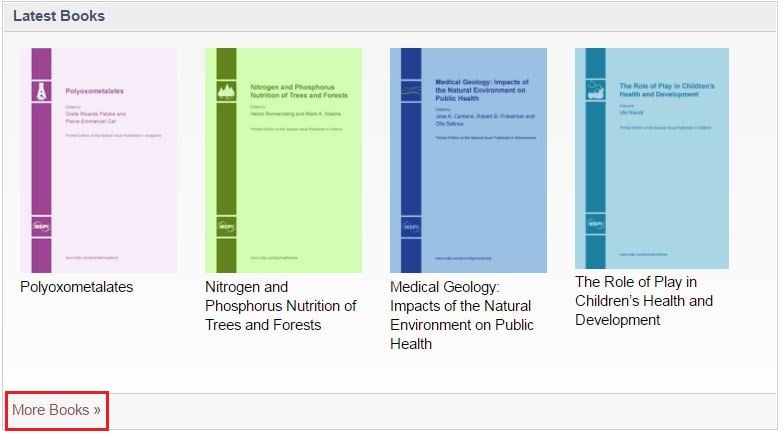
By clicking on the hyperlink "More Books" you will be taken to the MDPI Books Home Page. There you will find more information about the service, as well as the "Recent Publications" list.
Clicking on any of the book images in this list will take you to detailed information about that book (shown below). Here you can also download a PDF version of the book, or order a hardcover printed copy.
For further information about the MDPI Books service, please visit the webpage or contact [email protected].
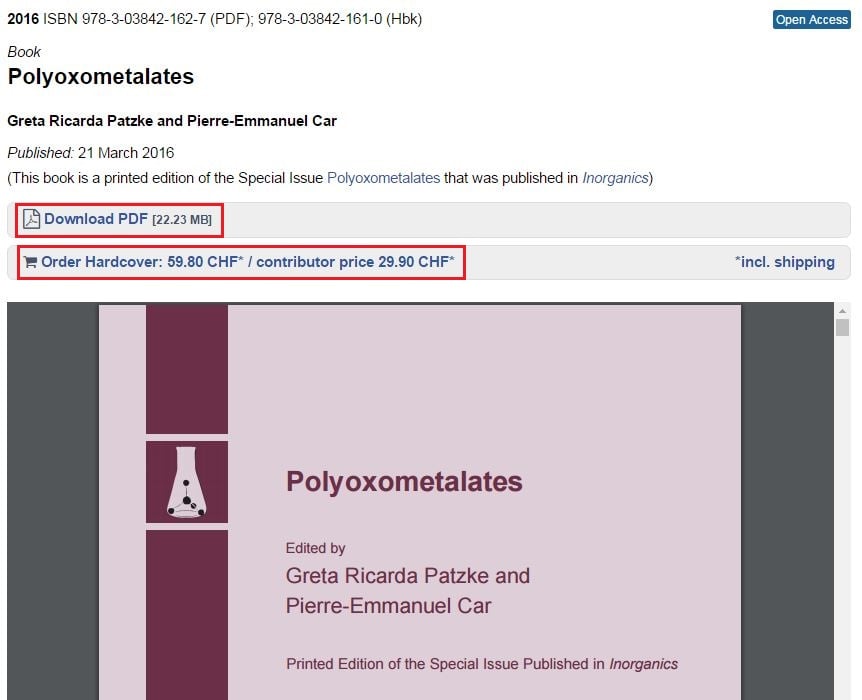
31 March 2016
Axioms, Behavioral Sciences, Photonics, Separations and Toxics added to the Emerging Sources Citation Index in Web of Science
We are pleased to announce that the journals Axioms, Behavioral Sciences, Photonics, Separations and Toxics were recently accepted for inclusion in the newly launched Emerging Sources Citation Index (ESCI) in Web of Science.
ESCI serves to highlight promising journals which are still under consideration for the Science Citation Index Expanded (SCIE) or the Social Sciences Citation Index (SSCI).
The Emerging Sources Citation Index (ESCI), Science Citation Index Expanded (SCIE), Social Sciences Citation Index
(SSCI), and Web of Science™ (WoS) are Thomson Reuters products.
30 March 2016
Institutional Membership established with the University of Winchester, UK, Silesian University of Technology, Poland and Beijing Jiaotong University and Zhejiang University, China
We are pleased to announce that the University of Winchester, UK, the Silesian University of Technology, Poland and Beijing Jiaotong University and Zhejiang University, China, have joined our Institutional Membership program. Primary authors from these universities will benefit from a 10% discount on article processing charges.
Additional details can be found on our institutional membership page.
24 March 2016
New Editorial Office in Barcelona, Spain
We are excited to announce the opening of our new editorial office in Barcelona, Spain. The launch team is led by a Senior Editor and comprises further staff holding doctoral degrees with several years of research experience. The new editorial team will help us to get closer to European research communities and progress Sciforum, the platform to support the scientific community via conference hosting and other functions. They will also help spread the word about Open Access and meet academics at scientific events.
We are in the process of hiring more doctoral and masters graduates to join the editorial team and welcome applications via [email protected]. For contact details about the office, see our contact page.

22 February 2016
Membership Established with the Max Planck Society
We are pleased to announce that the Max Planck Digital Library (MPDL) has signed an agreement with MDPI to support authors associated with the Max Planck Society (Max-Planck-Gesellschaft). As of 22 February 2016, corresponding authors will receive full funding from the MPDL for articles published in MDPI journals, with a 10% discount applied to the Article Processing Charges. Additional details can be found at our institutional membership page.
Founded in 1948, The Max Planck Society is one of Germany’s leading research organizations, and is currently made up of 83 institutes conducting basic research in natural sciences, life sciences, social sciences and humanities. 18 Nobel laureates have emerged from its ranks of scientists and the society has more than 15,000 publications in scientific journals each year.
5 February 2016
Institutional Membership Extension: Wageningen University, CSIC, University of Zürich, ETH Zürich, University of Tübingen and Osnabrück University
We are pleased to announce that Wageningen University, the Netherlands, the Spanish National Research Council (CSIC), Spain, the University of Zürich and ETH Zürich, Switzerland, and the University of Tübingen and Osnabrück University, Germany, have not only renewed their institutional memberships with MDPI after two years of successful cooperation, but have also increased the reduction of the article processing charges (APCs) for affiliated authors to 25%.
Additional details can be found on our institutional membership page.
5 February 2016
Institutional Membership established with Brock University, Canada and the University of Pisa, Italy
We are pleased to announce that Brock University, Cananda, and the University of Pisa, Italy, have joined MDPI's institutional membership program: Primary authors from these universities will benefit from a 10% discount on the article processing charges as of 01 February 2016.
Additional details can be found on our institutional membership page.
25 January 2016
MDPI Sponsors diss:kurs with the University of Basel
MDPI is pleased to announce its newly established sponsorship of diss:kurs, an event coordinated by the University of Basel to support their doctorate program. For more information about the event and how to register, please visit the diss:kurs webpage.
7 January 2016
New Institutional Memberships Established with Tsinghua University, the Chinese Society of Micro-Nano Technology, Ruhr University Bochum and the University of Ulm
We are pleased to announce that the following institutions have joined MDPI's institutional membership program as of 1 January 2016:
- Tsinghua University, China
- Chinese Society of Micro-Nano Technology (CSMNT)
- Ruhr University Bochum, Germany
- University of Ulm, Germany
Authors affiliated with these institutions will benefit from a 10% discount on the article processing charges.
Additional details can be found on our institutional membership page.
5 January 2016
Safety, Fermentation, C-Journal of Carbon Research, Magnetochemistry, Batteries and Horticulturae Released Their First Issue in December 2015
We are pleased to announce that MDPI's open access journals Safety, Journal of Imaging, Fermentation, C-Journal of Carbon Research, Magnetochemistry, Batteries and Horticulturae released their first issue at the end of December 2015.
17 December 2015
Institutional Membership Extension: University of Bern, Switzerland
We are pleased to announce that the University of Bern, Switzerland has not only renewed their institutional membership with MDPI after two years of successful cooperation, but also increased the reduction of the article processing charges (APCs) for affiliated authors to 25%.
17 December 2015
Institutional Membership with the University of Ulm and Helmholtz Zentrum Munich
We are pleased to announce that University of Ulm, Germany and Helmholtz Zentrum Munich, Germany has joined MDPI's institutional membership program:
Primary authors from the University of Ulm and Helmholtz Zentrum Munich will benefit from a 10% discount on the article processing charges as of 1 January 2016. Additional details can be found on our institutional membership page.
9 December 2015
Membership Established with the Virginia Polytechnic Institute and State University (Virginia Tech)
We are pleased to announce that Virginia Tech has joined MDPI's institutional membership program. Authors from Virginia Tech will benefit from a 10% discount on the article processing charges as of 1 December 2015. Additional details can be found on our institutional membership page.
1 December 2015
Membership Established with the Technical University of Denmark and the University of North Florida
We are pleased to announce that the following universities have joined MDPI's institutional membership program:
- Technical University of Denmark (as of 1 November 2015)
- University of North Florida, USA (as of 15 November 2015)
Primary authors from the Technical University of Denmark and the University of North Florida will benefit from a 10% discount on the article processing charges.
Additional details can be found on our institutional membership page.
2 November 2015
Animals (ISSN 2076-2615) now in PubMed and PubMed Central (PMC)
Citations of papers published in Animals (ISSN 2075-4450) are now searchable in PubMed. Further, the full-text versions of the papers are archived in PubMed Central. PubMed comprises more than 25 million citations for biomedical literature from MEDLINE, life science journals in PubMed Central, and online books. It is a free resource developed and maintained by the National Center for Biotechnology Information (NCBI) at the National Library of Medicine (NLM).
2 October 2015
Membership Established with the University of Freiburg and the University of Regensburg
We are pleased to announce that the following universities have joined MDPI's institutional membership program:
University of Freiburg, Germany
University of Regensburg, Germany
Primary authors from the University of Freiburg and the University of Regensburg will benefit from a 10% discount on the article processing charges as of 1 October 2015 and 1 November 2015.
Additional details can be found on our institutional membership page.
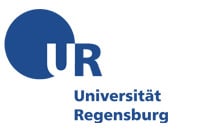




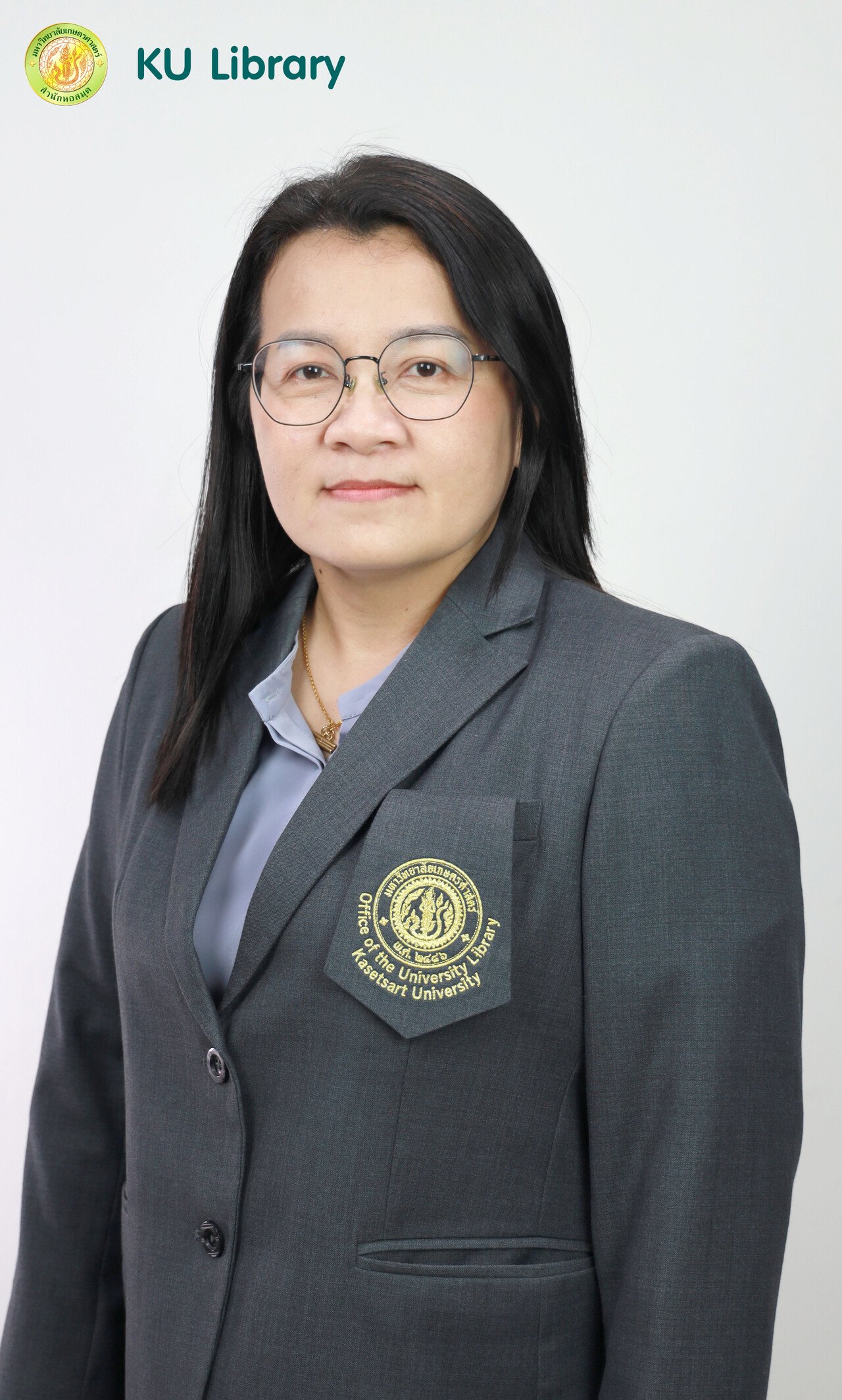











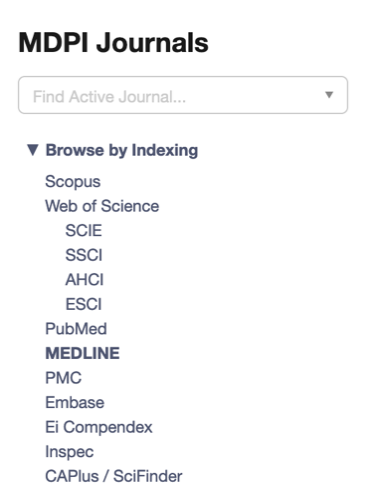
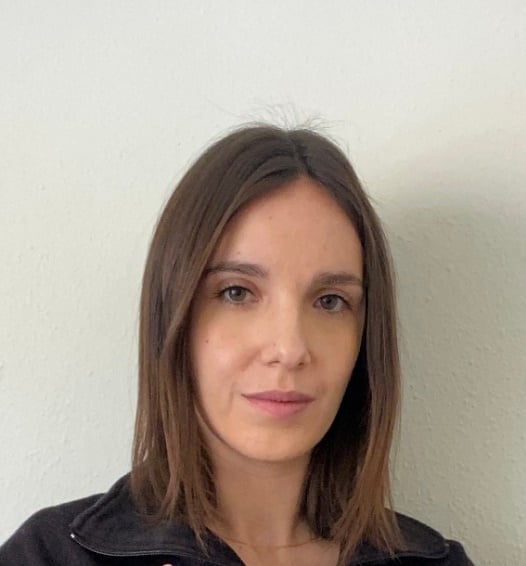



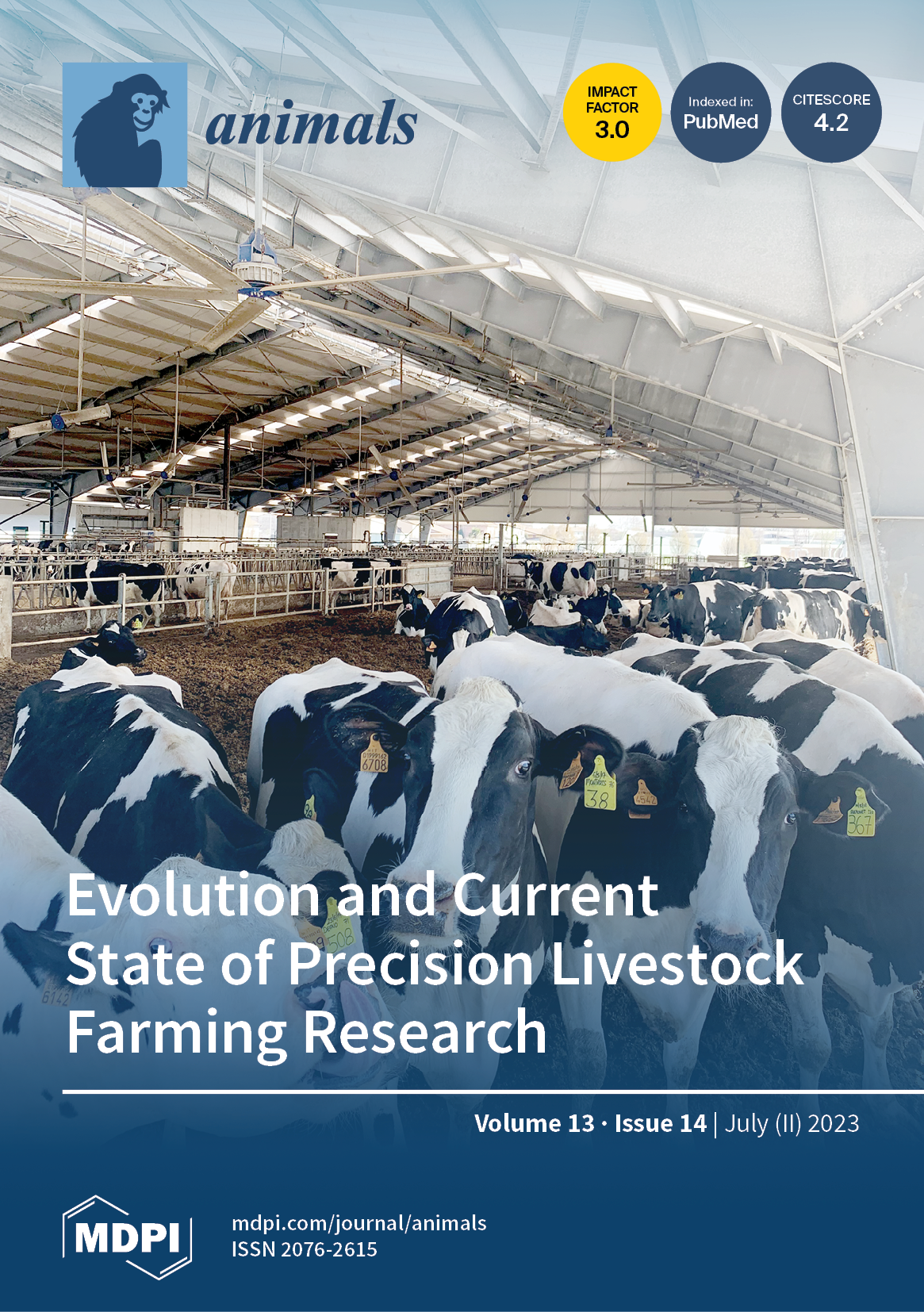
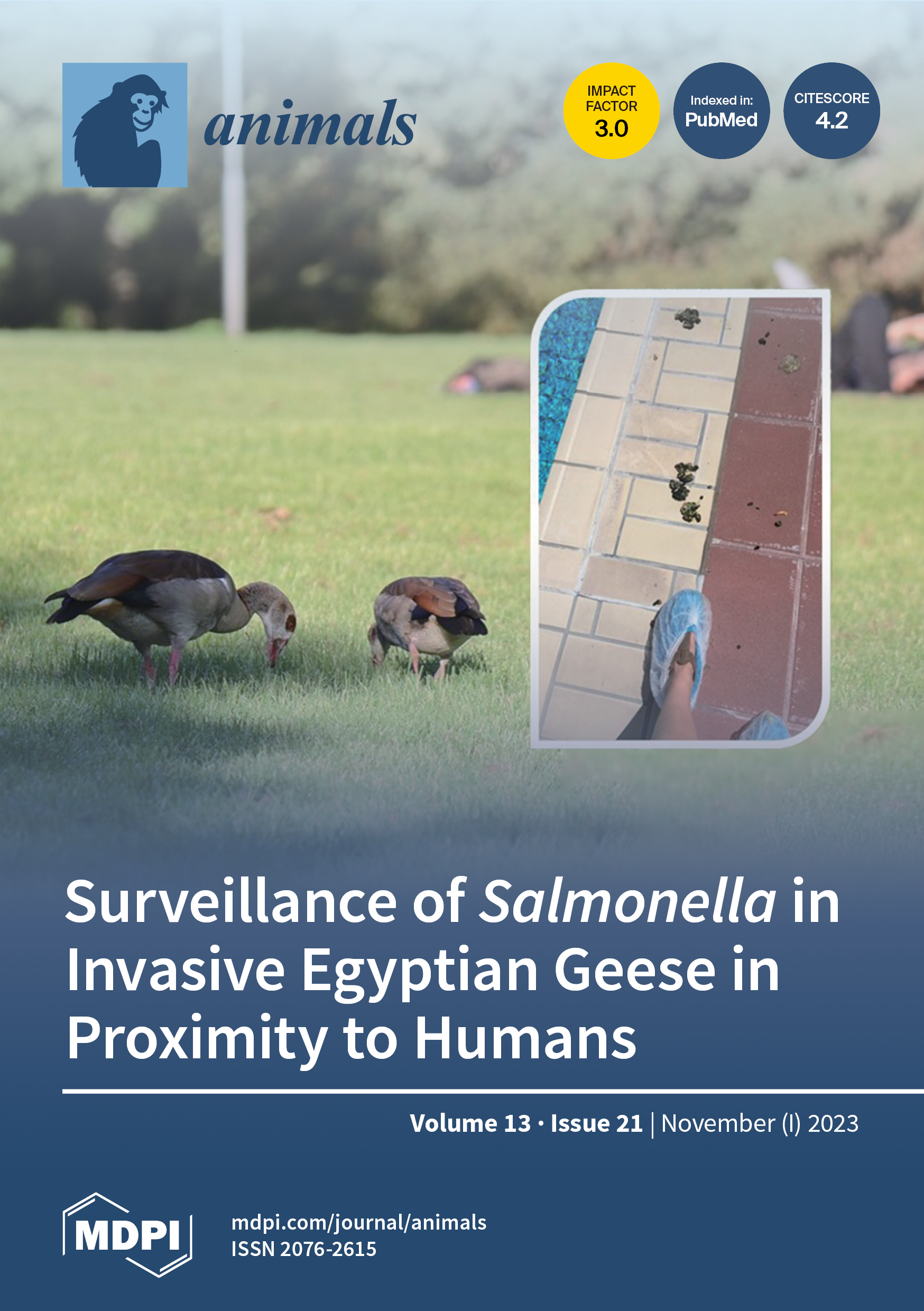



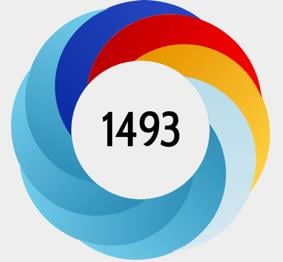
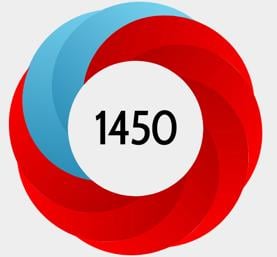









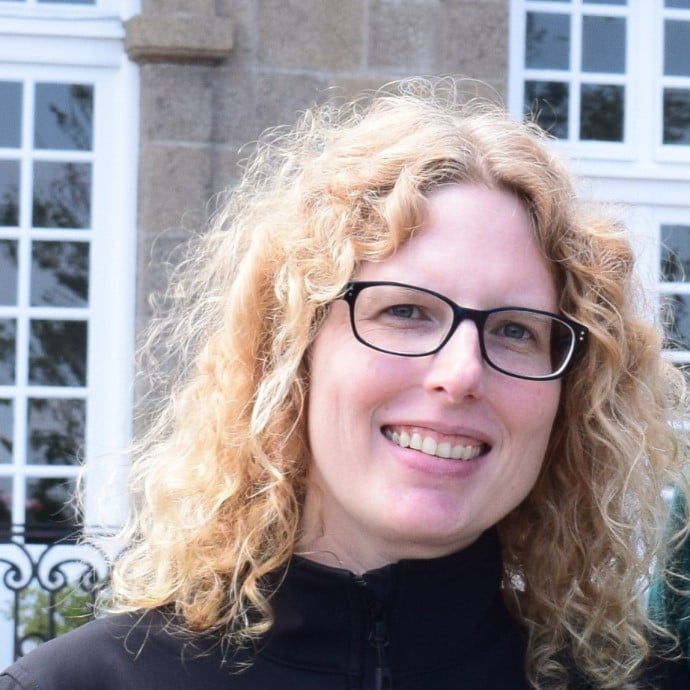












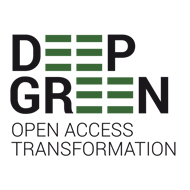











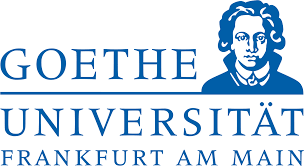
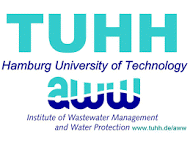




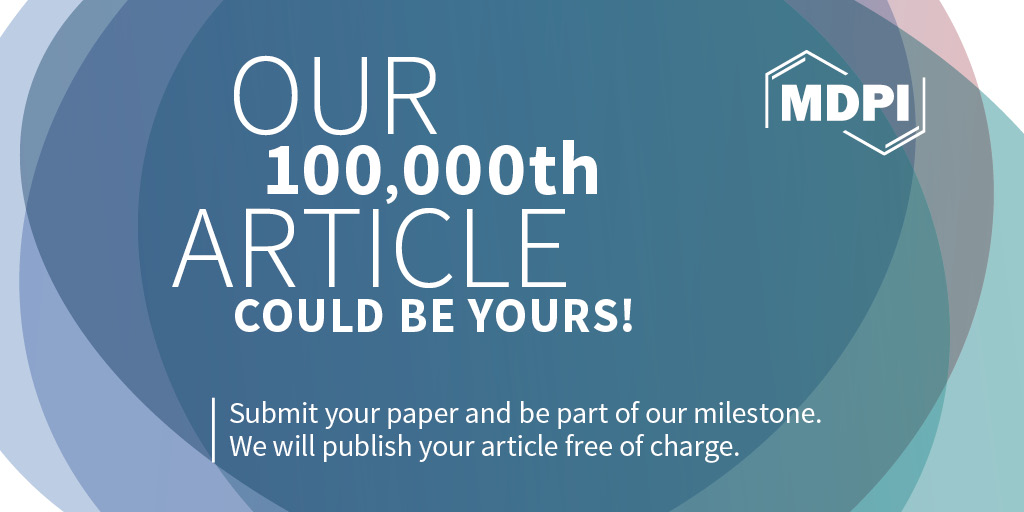

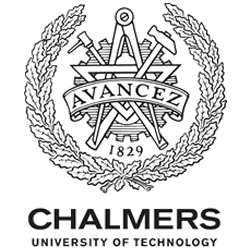

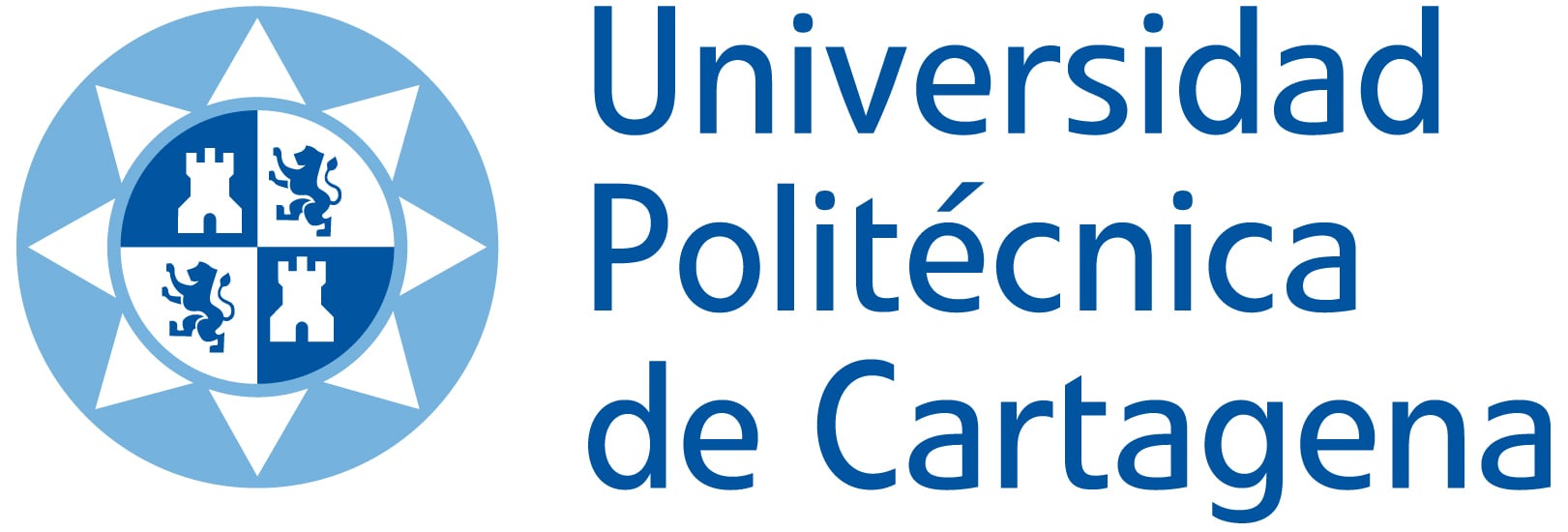
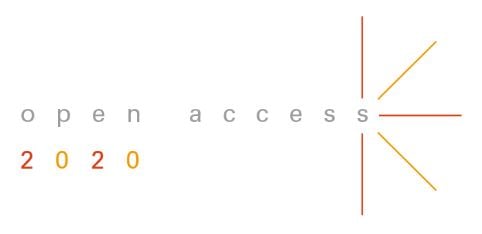



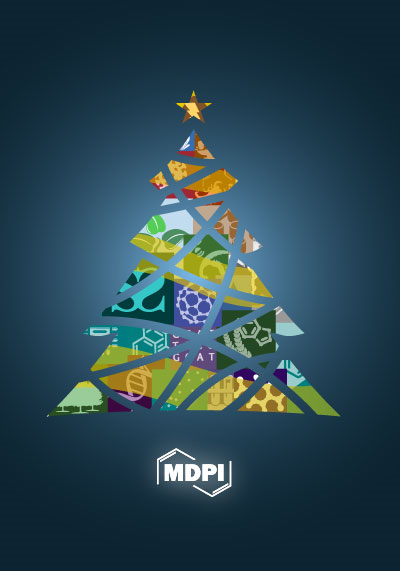





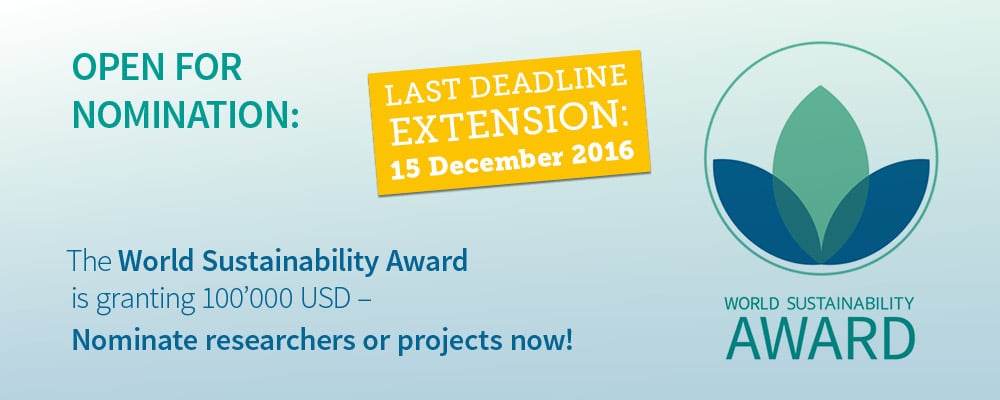



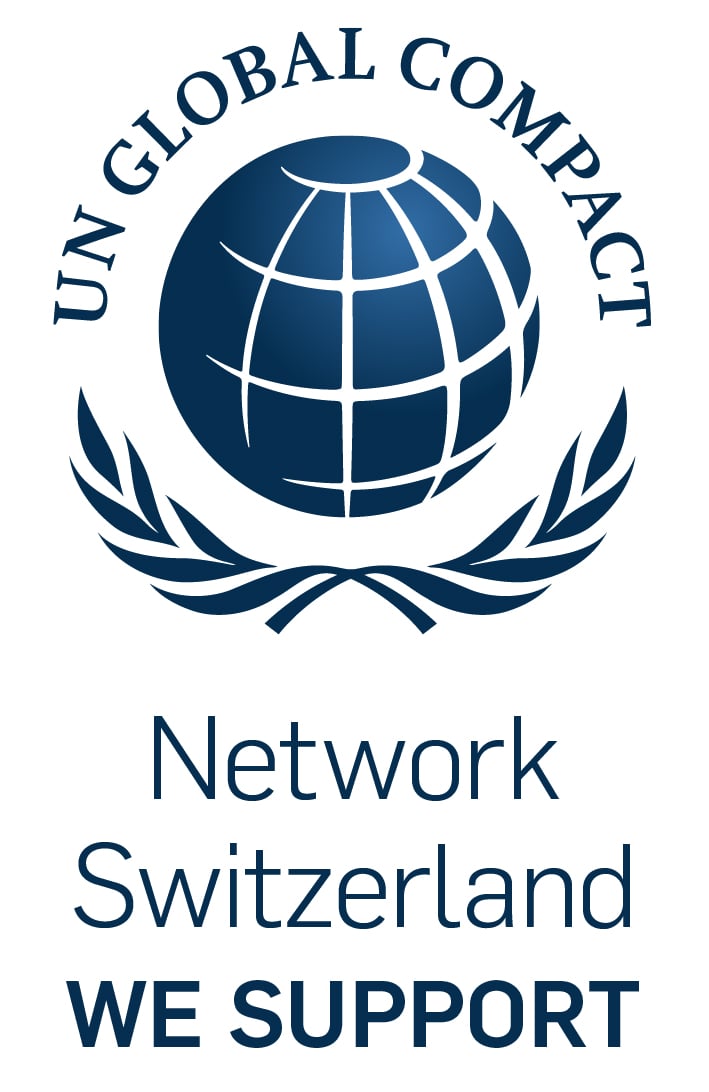
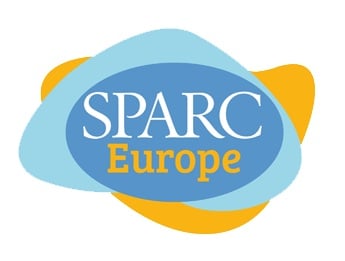
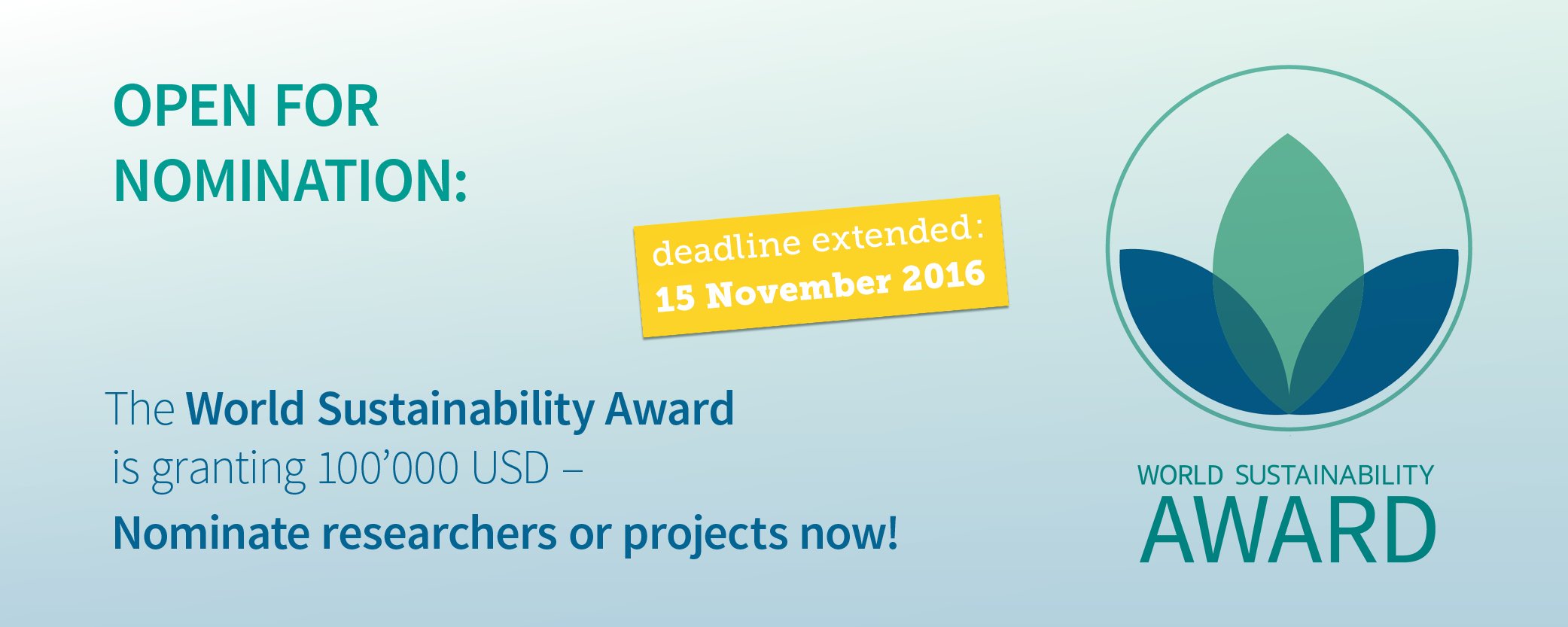 .
.